



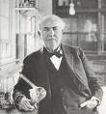



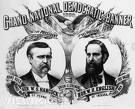
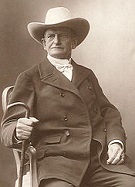
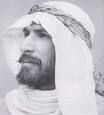

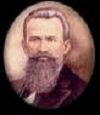


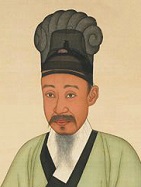






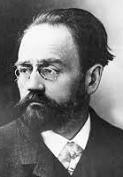

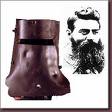







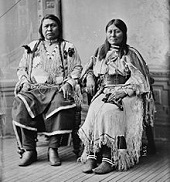



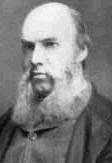

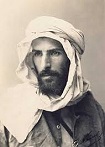


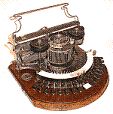





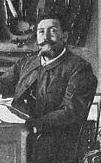







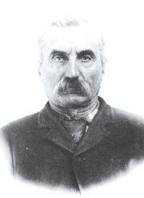



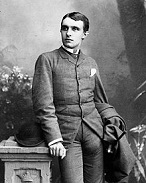




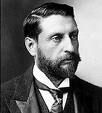
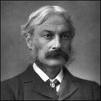
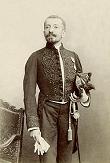





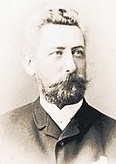
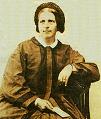
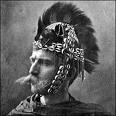
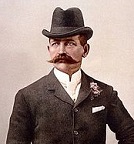

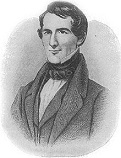

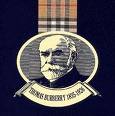


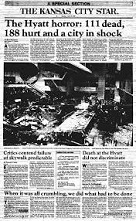
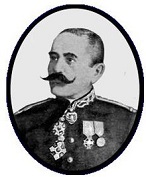
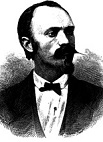
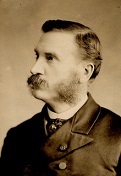
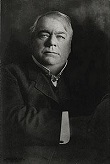



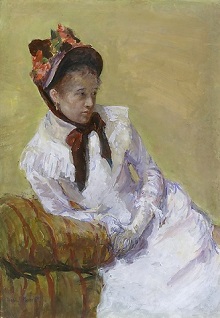
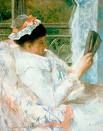
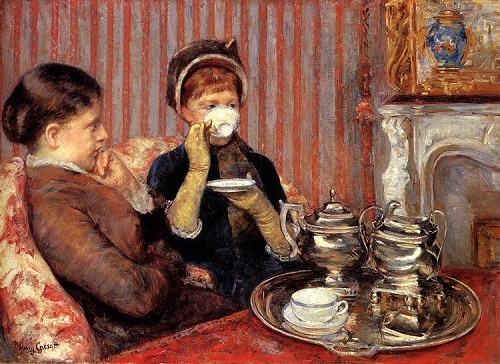
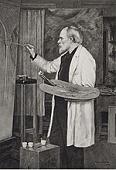
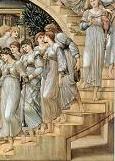

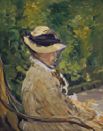

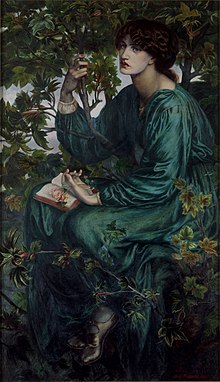
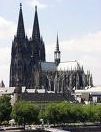



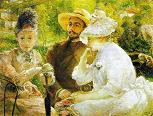
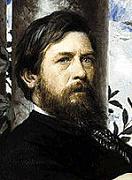
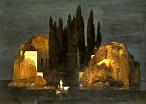

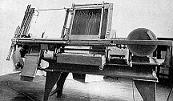

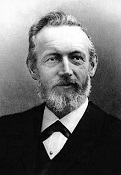

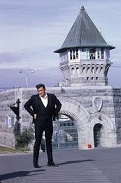


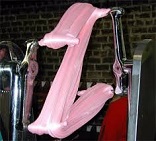
1880
The Tenth (10th) U.S. Census
reports the total pop. as 50,155,783 (16.9 per sq. mi.); pop. of New York City: 1.167M, London: 3.3M, Paris: 2.2M, Berlin: 1.1M, Vienna: 1.0M, Tokyo: 0.8M,
St. Petersburg: 0.6M. Pop. of Guatemala: 1.225M.
The heaviest decade for German immigration to the U.S.: 1.5M (250K in 1882); there are now 250K Jews in the U.S., most of them of German origin.
In this decade more than 5.2M immigrants arrive in the U.S., mostly from E Europe incl. many non-Protestants, causing an increasing split with the old immigrants; most of them stay in
New York City, increasing its pop. by 25%, resulting in vast areas filled with slums; in 1889 an elevated railway is built in the Bowery, accelerating its slide into slums, allowing pioneer
photojournalist Jacob Riis to shock the country with his 1890 pub. "How the Other Half Lives: Studies among the Tenements of New York".
Railroad mileage in operation: U.S.: 87.8K, Britain: 17.9K, France: 16.4K, Russia 12.2K.
The third wave of immigrants arrives in Hawaii (ends 1930) to work on sugar cane and later pineapple plantations owned by Europeans and Americans; the first workers
are Chinese, followed by Japanese, Okinawans, Koreans, Puerto Ricans, Portuguese, and Filipinos.
Starting in this decade, Mary becomes the most popular baby name in the U.S. (until the 1950s).
In this year the word sesquicentennial (150 years) is coined.
In this decade the wild cow towns and mining towns in the Am. West (incl. Deadwood, S.D.) begin to tame down as farmers, homeowners, businessmen, and churchgoers start taking over;
famed Am. West explorer John Wesley "Wes" Powell (1834-1902)
begins lobbying Congress to redraw state boundaries
along watersheds and end freewheeling distribution of land to prevent speculation and failed small homesteads.
In this decade the term tramp steamer (tramper) is coined for a ship that services the spot market instead of a fixed schedule.
In this decade Mandarin oranges
begin to be imported to the U.S. by Japanese immigrants after the Nov. harvest, traveling from W to E in orange boxcars, causing Americans to start stuffing Xmas stockings
with them to represent the gold coins or balls of St. Nicholas; during WWII importation from Japan is suspended, then resumed after the war, with the name changed to mandarin to sound Chinese.
On Jan. 19 (early a.m.) African-Am. man Arthur Jordan
is lynched by the KKK in Warrenton, Va. for eloping with white woman Elvira (Lucille) Corder, daughter of his farmer boss Nathan Corder.
On Jan. 31 British training ship HMS Atlanta leaves Bermuda with 290 crew, and is never heard from again.
In Jan. shifty-eyed Manhattan, N.Y.-born Billy the Kid (Henry McCarty) (William H. Bonney) (1859-81)
kills gunfighter Joe Grant in a gunfight in Ft. Summer, Lincoln County, N.M. after Billy asks to see Grant's Colt in Hargroove's Saloon, fixing it to insure that the first chamber is empty.
On Feb. 2 the first electric streetlight is installed in Wabash, Ind.,
which on Mar. 1 becomes the electrically-lit city on Earth; some New York streets are lit by electricity this year, and Broadway by 1882.
On Feb. 4 the Black Donnelly Massacre
in Buddulph Township, Middlesex County, Ont., Canada sees an armed mob kill five members of the Black Donnellys Irish family;
despite two trials, no one is convicted.
On Feb. 24 the SS Columbia
is launched on the Delaware River in Chester, Penn.; on May 22 it is lit up for the first time at the foot of Wall St. in New York City,
becoming the first outside usage of Edison's incandescent light bulb.
In Feb. Science: A Weekly Record of Scientific Progress is founded by John Michaels with financial backing from
Thomas Edison and Alexander Graham Bell, becoming the official journal of the Am. Assoc. for the Advancement of Science in 1900, reaching 130K subscribers and 570K readers by modern times.
On Mar. 1 the U.S. Supreme (Waite) Court rules 7-2 in Strauder v. W. Va.
that people can't be excluded from juries solely because of their race as a violation of the Equal Protection Clause, becoming the first time the court reverses a state criminal conviction
for violating a constitutional provision concerning criminal procedure.
On Mar. 24 the U.S., Britain and Germany recognize king (malietoa) (since 1860) Talavou Tonumaipe'a (1810-80)
as king of Samoa in exchange for trading rights; he then dies, and his nephew Malietoa Laupepa (1841-98)
succeeds as king (malietoa) of Samoa (until 1880), with an exec. council representing the three Euro powers.
On Mar. 29 the French Third Repub. orders all unauthorized religious assocs. to get authorized within 3 mo., and orders the
dissolution and dispersion of the Jesuits with 3 mo., and the dissolution of all religious teaching assocs. within 6 mo.
On Apr. 18 after William Ewart Gladstone comes out of retirement (since 1874) and stands for MP in Midlothian Scotland, home of the
super-rich Earl and Countess of Rosebery, who finance his Midlothian Campaign
(first modern political campaign?), making the overextension of imperialism the issue, while Benjamin Disraeli attempts to make it the
Irish question, the Liberal Party defeats Disraeli's Conservative Party, and on Apr. 23 Gladstone becomes British PM for the 2nd time
(until June 9, 1885), immediately seeking to appease the Boers;
"The infamy of Lord Beaconsfield's [Disraeli's] policy is only equalled by the villainy with which he has carried it out" (Gladstone);
Lord Rosebery dicks around trying to get appointed as lord privy seal without it looking like payback, while Gladstone tells him he's
not qualified, and gets nowhere until his cagey Jewish wife Hannah intervenes and gets it for him in 1885.
In Apr. the Calif. state legislature mandates the U. of Calif.
to establish instruction and research programs in viticulture and enology to help turn Calif. into a major internat. player in the wine business;
it is shut down during Prohibition and reopened in 1935; in 1958 it does ditto for beer brewing, with an experimental brewery dedicated on Dec. 8;
the first teacher is T.O.M. "Tommy" Nakayama, followed in 1964 by Michael Lewis; in 1999 Charlie Bamforth becomes the Anheuser-Busch prof. of malting and brewing sciences.
On Apr. 19 Swedish PM Louis De Geer resigns ove the defeat of his defense reform bill, and Count
Arvid Rutger Fredriksson Posse (1820-1901) becomes PM of Sweden (until June 13, 1883).
On Apr. 19 the Aristotelian Society for the Systematic Study of Philosophy is founded at
17 Bloomsbury Square in London, England; pres. #1 (1880-94) is Shadworth Hollway Hodgson (1832-1912);
Bertrand Russell becomes pres. #8 in 1911-13.
On Apr. 23 Liberal former PM (1868-74) William Ewart Gladstone (1809-98) becomes PM of Britain again (2nd time) (until June 9, 1885).
On May 22 the U.S.-Korean Treaty of Amity and Commerce
is signed, negotiated by Li Hongzhang of China and U.S. Capt. Robert Shufeldt, opening Korea to the U.S. with trade and extraterritoriality rights,
causing xenophobes to turn to Obi-Wan, er, Taewon-gun (Heungseon Daewongun) (1820-98),
"the Great Archduke" as their only hope.
On June 2-8 the 1880 Repub. Nat. Convention
sees former U.S. pres. Ulysses S. Grant lead on the 1st ballot over James G. Blaine of Maine, the Half-Breed Candidate, until on the 36th
ballot Blaine and former Ohio Sen. John Sherman (brother of Gen. William Tecumseh Sherman) (who failed in his bid for the nomination, then
becomes his campaign mgr.) throw their support to dark horse Civil War Maj. Gen. and Ohio rep. (who had just been elected to the U.S. Senate)
James A. Garfield, who agrees to appease the Repub. Stalwarts (Old Guard) by backing New York boss Roscoe Conkling follower (former New York City
port collector) Chester A. Arthur; speaking of half-breed, half-white half-black former U.S. Miss. Sen.
Blanche Kelso Bruce (1841-98) wins eight votes for vice-pres., becoming the first African-Am. to win any votes
at a major party's pres. convention; on June 22-24 the 1880 Dem. Nat. Convention
nominates incorruptible Gettysburg hero Gen. Winfield Scott Hancock (1824-86)
for pres. and former Indiana rep. (1853-61) William Hayden English (1822-96)
for vice-pres.; the boring campaign is mainly a referendum on the Repubs.' relaxation of Reconstruction, plus the Repubs. back higher tariffs while the Dems. back lower tariffs.
On June 29 France annexes Tahiti, and king (since 1877) Pomare V is pensioned off, going on to drink himself to death in 1891.
In June the first pay telephones are installed in an office building in New Haven, Conn.; an attendant collects the money until
the invention of coin telephones in 1899.
In June the 14th Belmont Stakes features the first post parade in the U.S., instead of going directly from paddock to post.
On July 11 the French govt. grants the Communards amnesty, giving working-class orgs. and Socialists a break.
On July 14 after feasts in Paris in 1878-9, Bastille Day
(La Fete Nationale) (Le Quatorze Jullet) becomes an official holiday in France to commemorate the storming of the Bastille in 1789.
On July 22 British puppet Abdul Rahman (Abd-al-Rahman) (Abdur Rahman) Khan (1844-1901),
a nephew of Shir Ali becomes amir of Afghanistan; on Sept. 1 the British win the
Battle of Kandahar (Baba Wali),
ending the Second Anglo-Afghan War (begun 1878), then pull out of the country when the new Liberal Gladstone cabinet begins meeting, ending the Second Anglo-Afghan War (begun 1878),
and leaving Afghanistan as an independent state; the withdrawal is complete by next year; Rahman goes on to survive four civil wars and 100 revolts by increasing the size and
funding of the army and centralizing control, while the British provide him with military supplies; he also builds bridges and roads to help unify his control.
On Sept. 10 after talking Bateke king Illoh Makoko into placing his kingdom under protection of the French flag, the city of
Brazzaville
on the N bank of the Congo River and the Pool Malebo (Stanley Pool) (Lake Nkunda) (modern-day pop. 1.8M) is founded by French explorer
Pierre Paul François Camille Savorgnan de Brazza (Pietro Paolo Savognan di Brazzŕ (1852-1905),
becoming the capital of the Repub. of the Congo; meanwhile in 1881 the city of
Leopoldville (later Kinshasa) on the S bank of the Congo River and the Pool Malebo opposite Brazzaville (modern-day pop. 11.8M),
named after Leopold II of Belgium is founded by Henry Morton Stanley in the Belgian Congo (modern-day Dem. Repub. of the Congo), becoming the 3rd largest urban area in Africa after
Cairo and Lagos, and 2nd largest Francophone urban area in the world after Paris; French is the official language, although Lingala (Bangala) (Bangi), Tshiluba, and Swahili are also spoken; in
1971-97 the Dem. Repub. of Congo is called Zaire.
On Sept. 12 The New York Times pub. an article
about "a man with bat's wings and improved frog's legs" seen at Coney Island.
On Sept. 18 The Kansas City Star (originally "The Kansas City Evening Star") is
founded in Kansas City, Mo. by William Rockhill Nelson (1841-1915) from Fort Wayne, Ind.
(son of Fort Wayne News Sentinel owner Isaac De Groff Nelson), selling subscriptions for 10 cents a week; in 1882 it launches the Weekly Kansas City Star,
followed in 1894 by the Sun. Kansas City Star; in Aug. 1902 future U.S. pres. Harry S. Truman works in the mailroom for two weeks for $7.00 and $5.40; writer
Ernest Hemingway works as a reporter from Oct. 1917 to Apr. 1918, getting style tips from editor C.G. "Pete" Wellington: "Use short sentences. Use short first paragraphs.
Use vigorous English. Be positive, not negative"; Nelson's daughter Laura Kirkwood (-1926) helps the employees purchase the newspaper, then sell it in 1977 to
Capital Cities, which is acquired in Jan. 1996 by Walt Disney, which sells it in May 1997 to Knight Ridder; in 1990 it becomes a morning newspaper; it goes on to win eight Pulitzer Prizes.
In Sept. after the Denver and Rio Grande Railroad drops negotiations with Animas City 2 mi. to the N, the town of
Durango, Colo.
on the Animas River in La Plata County in S Colo. (named after Durango, Mexico) is founded to serve the San Juan mining district.
On Oct. 1-Apr. 30 the Melbourne Internat. Exhibition
(world's fair) in Australia is held in the new 12K sq. ft. Royal Exhibition Bldg.
On Oct. 10 English-born polygamist (8 wives) John Taylor (1808-87)
becomes Mormon pres. #3 (until July 25, 1887), succeeding the late Brigham Young (d. Aug. 29, 1877), going on to fight the U.S. govt. over polygamy and lose,
going underground in 1885; this year he comes out swinging, with the soundbyte:
"God is greater than the United States, and when the Government conflicts with heaven, we will be ranged under the banner of heaven against the Government. The United States
says we cannot marry more than one wife. God says different."
On Oct. 12 Gen. Alejo Julio Argentino Roca Paz (1843-1914)
becomes pres. #8 of Argentina (until Oct. 11, 1886), going on to promote public works, sale of public lands, and foreign immigration, leading the
Conquest of the Desert (ends 1884)
to subdue the indigenous pop. of Patagona and prevent Chilean expansion there, killing 1K+ and displacing 15K before turning the area into a breadbasket.
On Oct. 18 after receiving help from native guide Chief Kowee and making the first major gold discovery in the panhandle in the Gastineau Channel at the base of
Mt. Juneau across from Douglas Island, Quebec-born miner Joseph "Joe" Juneau (1836-99)
and Irish-born miner Richard Tighe Harris (1833-1907)
found Juneau, Alaska (originally ROckwell) (modern-day pop. 32K/24K), taking 1K lbs. of gold ore back to Sitka;
Juneau replaces Sitka as the capital of Alaska in 1906; the city and borough incl. 3,255 sq. mi. of territory, as large as the states of R.I. and Del. combined.
On Oct. 27 New York City-born Harvard grad. Theodore Roosevelt (b. 1858) marries Mass.-born
Alice Hathaway Lee (1861-84),
whom he fell in love with at first sight, uttering the soundbyte "As long as I live, I shall never forget how sweetly she looked, and how prettily she greeted me";
they have no sons and 1 daughter, Alice Lee Roosevelt Longworth (1884-1980) in a tragically short marriage.
The Great American West Legend is pumped-up with the Town Too Tough to Die, not far from, you guessed it, Winslow, Arizona?
On Oct. 28 Crawfordsville, Ind.-born William "Curly Bill" Brocius (Brocious) (1845-82),
a member of the Clanton "Cow-Boys" is arrested for the drunken night shooting on Allen St. of
Fred White (b. 1849),
the first marshal of Tombstone, Ariz., who dies on Oct. 30, news of which is covered in the
Tombstone Epitaph, founded on May 1 by "White Chief of the Apaches"
John Philip Clum (1851-1932),
a former Rutgers U. divinity student, Indian agent, and owner of the Tucson Weekly Citizen
to compete with the weekly Tombstone Nugget (founded 1879);
when Curly Bill is acquitted because he was merely handing the marshal his gun and it was half-cocked and went off accidentally, and the dying marshal confirmed it,
the Earp-Clanton feud reaches a new level; the town has so much violence that Clum deliberately confines it to the column "Death's Doings";
Wyatt Earp from Dodge, Kan., appointed deputy sheriff earlier in the year by his brother and town marshal Virgil Earp gets their other brother Morgan Earp to join them,
and they and Wyatt's tuberculitic dentist friend and gambler Doc Holliday begin running the "town too tough to die".
On Oct. 30 the city of Tegucigalpa (Nahuatal "Taguz-galpa" = hills of silver) in SC Honduras (claimed by the
Spanish on Sept. 29, 1578) (modern-day pop. 1.1M) becomes the capital of Honduras; the twin city of Comayaguela lies on the opposite (W) bank of the Choluteca River - why does
that name give me goosebumps?
On Nov. 2 the 1880 U.S. Pres. Election
is a V for James A. Garfield with 4,446,158 popular votes and 214 electoral votes to Gen. Winfield Scott Hancock's 4,444,260
popular and 155 electoral votes (less than 2K votes, closest popular vote margin in a U.S. pres. election until ?); they each carry
19 states, and since the electors of Ga. cast their ballots on Dec. 8 rather than Dec. 1 like everybody else, they should have not
been counted, giving Hancock only 144?; James Baird Weaver of the Greenback Party comes in 3rd, and Neal S. Dow of the
Prohibition Party comes in 4th with 10,305 votes; Garfield almost sweeps all NOrthern states, while Scott's sweep of Southern states
cements Dem. Party dominance for generations.
On Nov. 9 (07:33 a.m.) the 6.3 Great Zagreb Earthquake
in Croatia damages many bldgs. incl. Zagreb Cathedral, and kills one.
On Nov. 11 after being captured after a gun battle on June 28 in Glenrowan, Victoria, Australian bushranger
Edward "Ned" Kelly (b. 1854),
known for wearing an armor helmet is hanged for murdering three policemen at Old Melbourne Gaol, becoming a folk hero.
On Dec. 1 pro-Diaz Gen. Manuel Gonzalez (1833-93)
becomes pres. of Mexico (until Nov. 30, 1884).
On Dec. 20 the First Boer War
begins (ends Mar. 23, 1881) when the Cape Parliament rejects Britain's scheme for South African
federation, and the Boers revolt over British annexation of the Transvaal, where they
had gone to live their strict white supremacist religious lifestyle without interference; the
Transvaal (South African) Repub.
is reestablished in Dec. under CIC of Transvaal forces (since 1864) Gen.
Stephanus Johannes Paulus "Paul" Kruger (1825-1904) (Oom Paul).
On Dec. 21, 1880 Newark, Ohio-born U.S. Civil War Brig. Gen. William Burnham Woods (1824-87)
becomes U.S. Supreme Court justice #45 (until May 14, 1887) to replace William Strong (1870-80), leaving the court at nine members;
he goes on to reject the applicability of the Bill of Rights to the states - now throw me a pitch like we're outside?
On Dec. 21 the French govt. passes the Camille See (Sée) Law,
establishing a secondary education program for girls to strengthen their roles as wives and mothers ("duties to God"), and declaring abstract skills
to be something they have no use for - thigh strengtheners provided?
In Dec. Sir William Matthews Flinders Petrie (1853-1942)
(a trained surveyor) arrives in Egypt, where he begins making careful measurements of the Great Pyramid, exploding peoples' pet theories about it, finding that it
contains no mystical secrets but is just a monument to a pharaoh; he is eventually involved with digs at 50 sites and teaches at Univ. College in London for 40 years.
In Dec. after lobbying Congress for 10 years based on the pension they voted for Mary Todd Lincoln in 1870,
Julia Tyler (d. 1889) gets them to vote her a $1.2K a year pension despite her work for the Confederacy in the U.S. Civil War.
The French cabinet falls, and PM Jules Ferry forms a new one which lasts until next year (1881).
Gen. Bernardino Caballero de Anasco (Ańasco) y Melgarejo (1839-1912),
founder of the Colorado Party stages a coup and becomes pres. of Paraguay (until 1886), privatizing much of the land to raise money.
After terrorists plant a bomb in the Winter Palace (the 2nd attempt on the tsar's life), a new dept. of state police is created in Russia, and Russian-Armenian gen.
Mikhail Tarielovich Loris-Melikov (1826-88)
is appointed interior minister (until 1881) to formulate a pretend policy of concessions to appease revolutionaries, giving the state police time to make them disappear?
A new 1880 Bolivian Constitution is promulgated in Bolivia, land of perpetual civil war, vesting executive power in a pres. elected for
four years instead of life like in the 1826 constitution; meanwhile after battles killing 5K soldiers, Chile occupies Arica and Tacna.
The 1880 Leadville Miners' Strike in Colo.
sees workers led by Michael Mooney demand higher wages and an 8-hour workday and go on strike, getting so violent that chicken Colo. gov. (1879-83) Frederick Walker Pitkin has
lt. gov. Horace Tabor order the militia in while he skips to Cheyenne, Wyo. to avoid the heat in case it proves unconstitutional.
Uncompahgre Ute chief Ouray ("arrow") (b. 1833)
leads a delegation of Ute chiefs from W Colo. (incl. Chief Ignacio of the Southern Utes, and Woretsiz of the Tabeguache Utes) to Washington, D.C. to testify before Congress
about the 1879 Ute Uprising in an attempt to secure a treaty for allowing them all to stay in Colo., meeting with Pres. Hayes, who calls him "the most intellectual man I've
ever conversed with", and also with Pres. Grant; too bad, they want them cleared out to make way for white settlers, and the treaty agrees to removal of only the White River
and Tabeguache Utes to Uintah Basin in Utah; and on Aug. 24 he dies near the Los Pinos Indian Agency in Colo., after which The Denver Tribune pub. an obituary containing
the soundbyte: "In the death of Ouray, one of the historical characters passes away. He has figured for many years as the greatest Indian of his time, and during his life
has figured quite prominently. Ouray is in many respects... a remarkable Indian... pure instincts and keen perception. A friend to the white man and protector to the Indians
alike", and The Denver Post pub. a eulogy in 1928 containing the soundbyte:
"He saw the shadow of doom on his people. He sought peace among tribes and whites, and a fair shake for his people, though Ouray was dealt a sad task of liquidating a
once-mighty force that ruled nearly 23 million acres of the Rocky Mountains."
The Free Mash-Tun (Inland Revenue) Act
is passed in Britain, changing the taxation emphasis from malt to beer, removing the 1660 tax on malted barley and leaving brewers free to use other ingredients, incl.
sugar in England and unmalted barley in Ireland.
A Japanese legation is opened in Seoul, Korea.
Thomas Power "Tay Pay" O'Connor (1848-1929)
of Charles Stewart Parnell's Home Rule League is elected as a British MP for Galway, going on in 1885 to become the first Irishman to be elected to sit for an English borough outside
Ireland (Liverpool), remaining in office for 49 years 215 days, becoming known as "Father of the House of Commons".
Sultan Abdul Hamid II sets up the Ottoman Ministry of Police,
putting the Ottoman Empire under an oppressive secret police state with armies of spies, and censorship of everything incl. the very words "liberty", "constitution", and "assassination".
British Gen. Charles George "Chinese" Gordon, gov.-gen. of Sudan since 1873 resigns in disgust after the British govt. issues the soundbyte:
"Her Majesty's Government are in no way responsible for operations in the Sudan", giving the dominant Arab minority its big chance.
The Oregon Trail is used to drive 200K cattle to the railroad junction of Winnemucca, Nev.,
which becomes a new Dodge City; about this time cowboys learn to eat the tough beef (they are given the worst cuts) by inventing
barbecue (BBQ).
The Santa Fe Trial (pioneered in 1821) is supplanted by the Santa Fe Railroad,
which also supplants the Camino Real (built 1598) next year when it is extended S from Albuquerque, N.M. through Las Cruces, N.M. (instead of Mesilla, causing it to decline).
The town of Winslow, Ariz. (Navajo name Beeshsinil = "iron lying down") 58 mi. E of Flagstaff in the
high plateau country of NE Arizona (4,850 ft.) in the Little Colorado River Valley ) (modern-day pop. 10K) is founded as a div. point for the Santa Fe Railway, named
after prospector T.L., er, Tom Winslow and/or Augusta, Maine-born
U.S. Civil War Union Gen. Edward Francis Winslow (1837-1914),
pres. of the St. Louis & San Francisco Railroad, which passes through; it is incorporated in 1900.
The term "boycott" is coined when British land agent Capt. Charles Cunningham Boycott (1832-97)
in Mayo, Ireland is boycotted for refusing to accept rents fixed by his tenants and evicts them.
New York City-born Theodore Roosevelt (b. 1858) joins the Repub. Party.
Am. "March King" John Philip Sousa (1854-1932)
becomes the conductor of the U.S. Marine Band in Washington, D.C. (until 1892).
The bovine disease rinderpest
leads to famine in East Africa.
Russian Tsar Alexander III begins building the 5K-mi.
Trans-Siberian Railway (Railroad)
(finished 1904), the world's longest railroad, becoming the largest civil works project since the Great Pyramid of Giza; too bad, it
becomes a corruption-ridden boondogle that costs over 1B rubles and bankrupts the monarchy, ending up carrying political prisoners and
military supplies instead of trade goods; in 1907 Russia rolls over its debts, and only small investors can be found to subscribe to the new loans,
and the Russian empire goes on an irreversible downhill slide to 1918.
British entrepreneur Cecil John Rhodes (1853-1902)
(an Illuminati?) forms the De Beers Mining Co.,
with ideas of a White Man's Africa dancin' in 'is 'ead; meanwhile rival Randlord
Barney Barnato (1852-97)
founds the Barnato Diamond Mining Co. - Cecil
fit the battle of Barnato?
Improvements in transportation, manufacturing, and packaging lead to the selling of the first nationally-branded products in the U.S. in this
decade, causing advertising agencies begin to grow.
The Southern U.S. tobacco crop finally regains its prewar levels.
After the U.S. Navy has deteriorated since the Civil War to 37 principal ships, 33 of them made of wood and powered by sail, ranking
12th in the world, Capt. Alfred Thayer Mahan (1840-1914)
and his following of junior officers begin to lobby Congress to modernize it.
In this decade Berlin, Germany police commissioner
Leopold von Meerscheidt-Hullesem
allows Gay Berlin to blossom, incl. counseling to gay blackmail victims - by putting one
leg in front of the other, you can walk?
In this decade the site of modern-day Hollywood, Calif. becomes a Mormon community, separated from Los Angeles by a 2-hour train raid, er, ride.
Economist Henry Fawcett (1833-84)
becomes British postmaster-gen. (until 1884), going on to introduce parcel post, postal orders, and licensing charges to
permit pay phones and trunk lines.
Imprisonment for debt in Scotland is abolished, causing Holyrood Church to not be needed as a safe refuge anymore.
By this year the state of Colo. has 50 skiing mail carriers.
Norwegian mountaineers begin using skis.
The city of Long Beach, Calif. 20 mi. S of Los Angeles (modern-pop. 462K/17.8M)
is founded by William E. Willmore,
who buys 4K acres of the Rancho Los Cerritos from Jotham Bixby, "the Father of Long Beach",
then tries to create the farming community of Willmore City, fails, and sells out to a Los Angeles syndicate; it is incorporated on Dec. 13, 1897, later
becoming known as "Iowa by the sea" for its major immigrant group.
The city of Pierre, S.D.,
named after St. Louis, Mo.-born fur trader Pierre Chouteau Jr. (Pierre Cadet Chouteau) (1789-1865)
is founded on the E bank of the Missouri River opposite Fort Pierre (founded 1832)
in the geographic center of the state, becoming the capital of S.D. on Nov. 2, 1889 after defeating rival town Huron.
English mountaineer Edward Whymper (1840-1911)
becomes the first to climb 20.5K-ft. Mt. Chimborazo in the Andes in C Ecuador.
After breaking off his affair with fellow poet Paul Verlaine in 1873, then moving to London, Java, and Cyprus, gay French poet
Jean Nicolas Arthur Rimbaud (1854-91)
moves to Aden, Yemen to work for the Bardey Agency, moving to Harar, Ethiopia to run its offices before quitting to become a merchant in
coffee and fiemarms, helping arm the Negus of Shewa, who later becomes Emperor Menelik II, and becoming friends with the Gov. of Harar
Makonnen Wolde Mikael, father of future emperor Haile Selassie, becoming the first Euro to export Ethiopian coffee from Harar, the first
to do business there, and the 3rd to set foot in the city.
In this decade the "Tumblin'" Tumbleweed,
Amaranthus graecizans (Russian thistle) ("romantic symbol of the Am. West") arrives on the Am. Great Plains from seeds imported
by accident from Russia by German Mennonite farmers, who had gone there on a promise of religious toleration only to find the Russian govt.
renege and have to return to the U.S., settling in Kan. and Neb.; liking the hardy Russian wheat, which can't be legally exported, they
sneak it through in bags sewed into their clothes and in flax bales, and the tumbleweed seeds ride along;
by 1900 they cover the prairies from S Canada to N Tex., and W to the Rockies, each root system producing a new plant each year, which dies,
blows away, and begins tumbling, spreading 10M seeds with each hop; the dry weeds stack up against bldgs., becoming a fire hazard, and
totally foul carpets and mattresses with their tiny stickers, but make great kites and wild horses for kids?
Danish-born Am. social reformer Jacob August Riis (1849-1914) uses burning magnesium powder in a frying pan as a flash to photograph
New York City slums after dark, twice setting a house on fire, and once torching his own clothes; his pictures convince his friend (N.Y. assemblyman 1881-3) Theodore Roosevelt to undertake social reforms.
The first modern beauty pageant takes place in Rehoboth Beach, Del., looking
for "Miss United States"; winner is Myrtle Meriwethers; the judges are Thomas A. Edison, Monsieur Banwart, and Del. Supreme Court Judge Samuel M. Harrington.
Gold Medal Flour wins a gold medal at the Cincinnati Exhibition, giving it its moniker.
Queen Victoria presents U.S. Pres. Rutherford B. Hayes with the Resolute Desk,
built from the timbers of the British ship HMS Resolute; he places it in the White House in Washington, D.C., becoming a favorite of every succeeding pres. except LBJ, Nixon, and Ford.
After the Egyptian govt. gives it as a gift, Cleopatra's Needle
arrives in New York City to a big celebration, with 9K Freemasons parading on Fifth Ave. with the pedestal, while the 69-ft. 220-ton shaft is dragged across Manhattan
from the banks of the Hudson River for 112 days and installed W of the new Metropolitan Museum of Art.
In this decade canned fruits and meats begin to appear in stores.
In this decade cast-iron toys begin to replace tin toys, and rule until the advent of plastic toys.
Early in this decade French painter Camille Pissarro (1830-1903), teacher of Paul Gaugin and Paul Cezanne experiments with Pointillism,
then returns to regular Impressionism; meanwhile Cezanne gives up Impressionism as too "mushy".
In this decade the Golden Age of Illustration
begins (ends 1925), with illustrators Edwin Austin Abbey (1852-1911),
Aubrey Beardsley (1872-98),
Edmund Dulac (1882-1953),
James Montgomery Flagg (1877-1960),
J.C. Leyendecker (1874-1951),
Maxfield Parrish (1870-1966),
Howard Pyle (1853-1911),
N.C. Wyeth (1882-1945)
et al. messing with readers' minds in books, mags., and posters.
In this decade Charles Staff
of Lismore, N.S.W., Australia plants the first commercial orchard of macadamia (AKA Queensland, Bush, Maroochi, Bauple) nut trees, named
after Scottish-born Australian scientist John Macadam (1827-65),
a colleague of German-born Australian botanist Baron Sir Ferdinand Jacob Heinrich von Mueller (1825-96),
who first describes them.
In this decade Mrs. C.M. Hampson
joins the Rocky Mt. News in Denver, Colo., becoming the first woman writer in the Am. West.
St. Elmo, Colo. (originally Forest City) in Chaffee County (elev. 9,961 ft.) on Chalk Creek in the Sawatch Range
of the Rocky Mts. 20 mi. SW of Buena Vista is founded, growing to 2K in the 1890s after gold and silver are found, with 150 patented mine claims incl. the
Mary Murphy Mine, which recovers $60M worth of gold; ; it begins to decline in the early 1920s; in 1922 the
Denver, South Park and Pacific Railroad discontinues service, and in 1952 it becomes a ghost town after the postmaster dies; in 1986 runoff from the Mary Murphy Mine kills 800K fingerling trout.
Case Inst. of Technology
in Cleveland, Ohio is founded by Leonard Case Jr. (1820-80); in 1967 it unites with Western Reserve U. (founded in 1826)
to form Case Western Reserve U.
Emerson College
in Boston, Mass. is founded by Unitarian minister Charles Wesley Emerson (1837-1908) as a "school of oratory".
London Guildhall School of Music and Drama in England is founded.
Owens College in Manchester, England (founded 1851) joins the federal Victoria U., going on to receive a charter on June 24, 1904 as
Victoria U. of Manchester; in 2004 it becomes the U. of Manchester.
The U. of Southern Calif. (USC)
is founded in Los Angeles, Calif; in 1965-? a member of each graduating class is nominated for an Oscar.
S.C.-born Princeton-educated Johns Hopkins U. Greek prof. Basil Lanneau Gildersleeve (1831-1924)
founds the Am. Journal of Philology,
showing that the bourgeois U.S. has everything?
In this decade Eephing,
In this decade Bananas are first grown in the U.S. by plantation owners from Jamaica.
a hiccupping rhythmic wheezing imitating hog and turkeys is originated by hillbillies in rural Tenn.
In this decade George Renninger (1815-91)
of Wunderle Candy Co. in Philadelphia, Penn. invents tri-colored (yellow at the wide end, orange in the middle,
white at the tip) Candy Corn (Kandy Korn)
(originally Chicken Feed) for sale during the Halloween season; in 1898 the Goelitz (later Jelly Belly) Candy Co. begins manufacturing them;
the Indian Corn (chocolate brown at the wide end) variety also becomes popular; farmers love its agrarian look?
In this decade Salt Water Taffy is invented by "Salt Water Taffy King"
Joseph F. Fralinger (1848-1927)
of Atlantic City, N.J., who entertains Boardwalk strollers by pulling it on a hook, then selling 5-cent bags; his recipe is refined by
Enoch James,
who mechanizes the pulling process; on Aug. 21, 1923
John Edmiston
obtains a trademark (#172,016) for salt water taffy, which is invalidated in 1925.
In this decade street vendors in San Antonio, Tex. begin selling Hot Tamales,
and their popularity with Anglos causes causes chili con carne to be sold in Alamo Plaza by Chili Queens (young Mexican senoritas) until the U.S. Army shuts them down as a health hazard in 1943.
Sports:
In this decade British factory workers begin to play soccer.
On May 30 the League of Am. Wheelmen is founded in Newport, R.I., becoming the first U.S. nat. bicycle society,
with membership peaking at 103K in 1898, declining to 8,692 in 1902, when it dissolves until 1942, reaching 614 members in 1945 before dissolving again in 1955, after which it reorganizes in 1965,
changing its name to the League of Am. Bicyclists in 1994, and peaking at 24K members in 1997.
On June 12 Sheffield, Ohio-born John Lee Richmond (1857-1929)
of the Worcester Ruby Legs (Worcesters) pitches the first-ever perfect game
against Cleveland in the NL; no ML pitcher achieves this feat more than once until ?
On Sept. 2 the first Night Baseball Game
is played in Nantasket Beach, Mass., with 36 carbon arc lamps giving off 90K candlepower; on June 2, 1883 the 2nd is played at League Park in Ft. Wayne, Ind. between
Methodist College and the Quincy Pros in front of a crowd of 2K; the field is illuminated by 17 4K-candlepower arc lights; the Pros win 19-11.
Irish-born Am. boxer Paddy Ryan (1851-1900),
"the Trojan Giant" defeats Joe Gross to win the heavyweight boxing (bare knuckle) title (until Feb. 7, 1882).
The first Test Match
between England and Australia is held in England.
The Orange Lawn Tennis Club
is founded in Britain, going on next May to help found the U.S. Lawn Tennis Assoc.,
which reaches 700K members by modern times.
The Cincinnati Tennis Club in Cincinnati, Ohio is founded, surviving to modern times.
Candlepin Bowling
is invented in Worcester, Mass. by Justin White; the balls are only 4.5" in diam., weighing the same as one candlepin, with no finger holes, and the 40 cm. (15-3/4 ") tall 76 mm (3") diam.
pins are not cleared between throws, making scoring more difficult; the highest official score is 245 out of 300 in 1984 by Ralph Semb.
In this decade billiards table manufacturer Brunswick Corp.
of Chicago, Ill. (founded 1845) expands into bowling balls, pins, and wooden lanes to sell to taverns installing bowling alleys, opening a large plant in Muskegon, Mich. in 1906 to
manufacture their hot new Mineralite bowling ball; it leaves the bowling business in 2014.
One word: pills?
Almond, Wisc.-born British entrepreneur Sir Henry Solomon Wellcome (1853-1936)
(known for advertising lemon juice as invisible ink at age 16) and Medina, N.Y.-born pharmacist
Silas Mainville Burroughs (1846-95)
found the Burroughs Wellcome Co.
in London, England, going on to trademark the word "Tabloid" and introduce medicine in tablet form imported from the U.S. to England, along with direct marketing to doctors,
incl. free samples; in 1955 it merges with Glaxo to become Glaxo Wellcome; Jan. 2000 it merges with SmithKline Beecham to become GlaxoSmithKline - we make ourselves
wellcome then burrough in?
Architecture:
On June 23 the 5-story 112'x125'x225' Gothic $750K Windsor Hotel
at 1777 Larimer St. in downtown Denver, Colo. opens, modeled after Windsor Castle in England, constructed of Fort Collins sandstone and Colorado Springs rhyolite, becoming
the city's first luxury hotel, flying the U.S. flag from its main turret, and the Union Jack and Windsor Castle flags from smaller turrets; a room costs $2/night,
or $2.50 with a bath; the hotel has an elevator, and its own farm with imported cows, and hunters who bring in wild game; the bartender of the Bonanza Bar is Harry Tammen,
who later co-founds The Denver Post with Fred Bonfils; the Cattleman's Room is used by state senators to conduct legislative work, and features a public gaming room;
the Suicide Staircase is used by losing high-rollers, and features a stair post that casts a Devil's head shadow on the wall; co-owner Horace Tabor houses his babe Baby Doe
in the luxury suite, which features a gold-leaf bathtub, a 1.5K lb. hand-carved walnut bed and matching dresser, marble fireplace from Italy; the grand ballroom features
a $50K floating dance floor suspended by cables (first in the U.S.); guests incl. Mark Twain, Marie Dressler, Robert Louis Stevenson, John L. Sullivan, Sir Henry M. Stanley,
Sarah Burnhart, Lillian Russell, and U.S. presidents Ulysses S. Grant, Grover Cleveland, Theodore Roosevelt, and William Howard Taft, who gets stuck in Baby Doe's bathtub;
by the 1930s the area becomes Denver's Skid Row, and the Windsor Hotel becomes known as "the only flophouse in the world with a marble fireplace in every room"; it is
demolished in 1960.
Folsom State Prison
in Calif. on the site of the Stony Bar mining camp on the American River 20 mi. NE of Sacramento opens, becoming known for dark stone cells; in 1895 it
becomes the first prison in the U.S. with er, electricity from the new Folsom Power House; on
Dec. 13, 1895 it hangs its first prisoner, followed by 92 more by Dec. 3, 1937, after which Calif. executions are transferred to the gas chamber
in San Quentin; on Jan. 13, 1968 Johnny Cash performs two shows, which are released as an album, featuring the hit song "Folsom Prison Blues".
The Royal Albert Dock
on the Thames River is completed, claiming to be the finest dock system on Earth.
Cologne Cathedral
(begun 1248) is completed - the wages they paid weren't so good?
In this decade the Schottenkirche
(Scottish Church) in Vienna (founded 1177 by the Irish Benefictines) is rebuilt; Adolf Hitler later becomes fond of painting it.
Weisensee Cemetery for Jews in East Berlin is founded, going on to become the 2nd largest Jewish cemetery in Europe, with 115K graves.
Inventions:
On Jan. 27 Am. inventor Thomas Alva Edison (1847-1931)
receives a patent for his electric incandescent lamp (lightbulb).
The first cardboard beermats (coasters) are marketed by the Friedrich Horn printing co. of Germany; on Oct. 25, 1892
Robert Ludwig Sputh (1843-1913) of Dresden patents the first beermat made of wood pulp, which are introduced to the U.K. in 1920 by Watney Brewery.
80-proof Grand Marnier orange-flavored liqueur is invented by
Alexandre Marnier-Laposolle of France,
made of cognac brandy, bitter orange, and sugar.
After the U.S. Congress abolishes it in 1870, the U.S. Patent Office (founded 1790) drops the requirement for a
patent model.
About this time the Dover Egg Beater
is introduced; after an 1895 ruling disallowing the Dover trademark,
Meringue
becomes a rage in the West by the early 1900s.
Responding to a $75K reward, James Albert Bonsack (1859-1924)
of Va. develops the Bonsack Machine
(U.S. patents #238,640 and #247,795 in 1881), the first machine for making yummy-sexy cigarettes;
in 1884 devout Methodist James Buchanan "Buck" Duke (1856-1925)
of Durham, N.C. buys two Bonsack machines and produces 744M cigarettes by the end of the year, underselling all competitors and creating
a monopoly with his Am. Tobacco Co. - a greater mass murderer than Attila the Hun?
English draper Thomas Burberry (1835-1926) of Basingstroke invents
Gabardine,
using weatherproofed yarn to make it water-resistant, tough, and breathable; he patents it in 1888.
Andrew Carnegie develops the first large steel furnace.
The Paige Typesetter
is invented by James W. Paige,
attracting a $300K investment by Mark Twain; too bad, by 1894 the Linotype kills it, leaving Twain strapped.
Stephen Dudley Field invents a dynamo quadruplex telegraph.
Am. journalist James Bartlett Hammond (1839-1913)
of Vt. patents one of the first typewriters constructed on scientific principles with a typewheel and true alignment,
and begins marketing it in 1884, making a fortune.
English geologist John Milne (1850-1913)
(whose portrait bears a striking resemblance to Am. comedian Dick Smothers (1939-)?)
invents the Smothersgraph, er, Seismograph.
Dayton, Ohio saloon owner
Am. decorative artist Louis Comfort Tiffany (1848-1933)
obtains a patent for a glass which changes colors with light, and goes on to design cool lamps using it - do they holly golightly?
The British Perforated Paper Co. sells the first commercial
Toilet Paper;
it comes in squares in a box, not rolls.
James Wimshurst (1832-1903)
of England invents the Wimshurst Machine
(an electrostatic generator), but fails to patent it.
The Petite Sirah (Durif) red wine grape,
known for its spicy plummy flavor is created by crossing Syrah with Peloursin.
Science:
The U.S. NASA Goddard Inst. for Space Studies (GISS) backdates its global avg. temperature (GAT)
baseline to measure CO2-caused global warming.
Alexander Graham Bell discovers that solids can emit sounds when exposed to sunlight, infrared, or ultraviolet radiation.
 German chemist Richard August Carl Emil Erlenmeyer (1825-1909)
formulates the Erlenmeyer Rule,
that alcohols which have a hydroxyl group directly attached to a double-bonded carbon atom become aldehydes or ketones.
French physician Charles Louis Alphonse Laveran (1845-1922)
discovers the parasite that causes malaria after being sent to Algeria to study it in 1878, winning the 1907 Nobel Med. Prize.
French Egyptologist Gaston Camille Charles Maspero (1846-1916)
is sent to Egypt as the head of the new Institut Francais d'Archeologie Orientale,
and when Auguste Mariette (b. 1821) dies next Jan. 19 he also becomes dir. of the Egyptian Museum in Cairo, going on to work at Saqqara,
arrest the tomb-robbing Abd al-Rassul brothers, who confess under torture to finding the royal mummies at Deir el-Bahri in July 1881,
and supervise efforts to uncover the Sphinx in 1886; in 1881 he coins the term "Sea Peoples".
Louis Pasteur discovers a vaccine for chicken cholera; the first successful immunization of livestock against anthrax is performed.
Nonfiction:
Matthew Arnold (1822-88), The Study of Poetry;
the first articulation of the concept of the Historian's Fallacy
(coined in 1970 by David Hackett Fischer); "The course of development of a nation's language, thought, and poetry, is profoundly interesting;
and by regarding a poet's work as a stage in this course of development we may easily bring ourselves to make it of more importance as poetry than in itself it really is, we may come to
use a language of quite exaggerated praise in criticising it; in short, to overrate it. So arises in our poetic judgments the fallacy caused by the estimate which we may call historic."
Walter Bagehot (1826-77), Economic Studies (posth.).
Sir John Charles Bucknill (1817-97), Care of the Insane and their Legal Control.
Verney Lovett Cameron (1844-94), Our Future Highway to India; proposes a railway from Tripoli to India.
Laurence Gronlund (1846-99), The Coming Revolution: Its Principles; Socialism is inevitable in the U.S.?
Albert Kalthoff (1850-1906), The Life of Jesus: Lectures given to the Protestant Reform Club of Berlin.
Moritz Kantor (1829-1920), Vorlesungen uber Geschichte der Mathematik (Investigations in the History of Mathematics) (3 vols.) (1880-98);
covers to the year 1758 (Lagrange).
John Caird (1820-98), Introduction to the Philosophy of Religion.
J.J. Clayton, Quaker Cookbook; female author wears men's business clothes?
Anthony Comstock (1844-1915), Frauds Exposed.
Thomas McIntyre Cooley (1824-98), The General Principles of Constitutional Law in the United States of America; 2nd ed. 1891; 3rd ed. 1898; becomes a std. textbook.
Charles Darwin (1809-82) and Francis Darwin (1848-1925), The Power of Movement in Plants;
proves that seedlings grow toward the light.
Camille Flammarion (1842-1925), Astronomie Populaire (Popular Astronomy); bestseller;
"What intelligent being, what being capable of responding emotionally to a beautiful sight, can look at the jagged, silvery lunar crescent trembling in the azure sky, even through
the weakest of telescopes, and not be struck by it in an intensely pleasurable way, not feel cut off from everyday life here on Earth and transported toward that first stop on the
celestial journeys?... Yes, indeed, if humankind, from humble farmers in the fields and toiling workers in the cities to teachers, people of independent means, those who have reached
the pinnacle of fame or fortune, even the most frivolous of society women, if they knew what profound inner pleasure await those who gaze at the heavens, then France, nay, the whole of Europe,
would be covered with telescopes instead of bayonets, thereby promoting universal happiness and peace."
Leon Gambetta (1838-82), Discours et Plaidoyers Politiques de Gambetta (11 vols.) (1880-5).
Thomas Henry Huxley (1825-95), Science and Culture.
Samuel Pierpoint Langley (1834-1906), The Temperature of the Moon: from Studies at the Allegheny Observatory;
based on his attempts to determine the surface temp of the Moon by measuring infared radiation reaching the Earth, using the angle in the sky to estimate CO2 and water vapor in the Earth's atmosphere,
Charles Godfrey Leland (1824-1903), The Minor Arts.
Henry Rowan Lemly, Among the Arapahos (mag. article).
Cardinal Henry Edward Manning (1808-92), The Catholic Church and Modern Society.
John Morris, The New Nation (5 vols.).
Laurence Oliphant (1829-88), The Land of Gilead;
after visiting Palestine in 1879, then going to Constantinople to unsuccessfully negotiate for a lease of the N half of the
Holy Land for Jewish settlement, then receiving funds from Christians, Jews, and Christadelphians to purchase land in Galilee,
he proposes Jewish settlement of Jordan under British protection while respecting Turkish sovereignty, with British support
of repatriation of Jews from E Europe and Russia, along with driving out "warlike" Bedouins and resettling Arabs in reservations a la America.
Louis Pasteur (1822-95), Sur les Maladies Virulentes;
first description of non-Jennerian vaccination along with more attributions of diseases to germs.
Walter Herries Pollock (1850-1926), The Poet and the Muse.
Sir William Mitchell Ramsay (1851-1930),
The history of freemasonry; from the building of the house of the Lord, and its progress throughout the civilized world, down to the present time.
Frederick William Salem, Beer: Its History and Its Economic Value as a National Beverage
(Hartford, Conn.); argues for beer as an alternative to whiskey to promote temperance, with the motto "Beer against Whisky"; contains a
complete listing of all 2,520 breweries in the U.S., and a breakdown of their production of 10.8M barrels/year.
John Gilmary Shea (1824-92), Bibliography of Hennepin's Works.
Algernon Charles Swinburne (1837-1909), Study of Shakespeare.
Mark Twain (1835-1910), A Tramp Abroad; his leisurely walk through Europe in 1878.
Music:
Edmond Audran (1842-1901), La Mascotte (operetta) (Paris); popularizes the term "mascot"; incl.
Que je Regrette mon Village,
Un Baiser c'est Bien Douce Chase.
Alexander Borodin (1834-87), On (In) the Steppes of Central Asia (symphonic poem).
Max Bruch (1838-1920), Kol Nidre.
Zdenek Fibich (1850-1900), Symphony No. 1 in F major, Op. 17, "The Tempest".
Ion Ivanovici (1845-1902), Waves of the Danube (AKA The Anniversary Song) (waltz);
becomes one of the most famous Romanian tunes.
Calixa Lavallee (1842-91) and Sir Adolphe-Basile Routhier (1839-1920), O Canada;
composed for the Saint-Jean-Baptiste Day (June 24) ceremony; becomes the nat. anthem of Canada; English lyrics pub. in 1906.
Sir Hubert Parry (1848-1918), Choral Scenes from Shelley's Prometheus Unbound; begins a renaissance in English classical music.
Franz von Suppe (1819-95), Donna Juanita (operetta) (Carltheater, Vienna) (Feb. 21).
Giuseppe Verdi (1813-1901), Ave Maria.
Art:
Arnold Bocklin (1827-1901), Isle of the Dead (4 versions) (1880-6).
Marie Bracquemond (1840-1916), On the Terrace at Sevres (Sčvres);
Woman with an Umbrella.
Sir Edward Coley Burne-Jones (1833-98), The Golden Stairs.
Alexandre Cabanet (1823-89), Phaedra.
Mary Cassatt (1844-1926), Woman Reading in a Garden;
The Tea; his sister Lydia and a guest in their Paris apt.;
The Cup of Tea.
Paul Cezanne (1839-1906), Chateau de Medan.
Jean-Leon Gerome (1824-1904), The Snake Charmer.
Nikolaos Gysis (1842-1901), The Barber.
Jule Joseph Lefebvre (1836-1911), Portrait of Julia Foster Ward.
Edouard Manet (1832-83), The Lemon;
Madame Manet; his wife Suzanne Leenhoff (1830-1906).
Berthe Morisot (1841-95), Young Woman at the Dance.
Camille Pissarro (1830-1903), The Outer Boulevards.
Sir Edward John Poynter, A Visit to Aesculapius.
Pierre-Auguste Renoir (1841-1919), Place Clichy.
Auguste Rodin (1840-1917), The Thinker (sculpture);
original name "The Poet"; supposed to be a portrait of poet Dante in front of the Gates of Hell pondering his Divine Comedy;
starts out as small plaster statue, then is cast full-size in bronze in 1902; in 1922 it is moved to the Hotel Biron in Paris,
which becomes the Rodin Museum;
The Gates of Hell (La Porte de l'Enfer) (sculpture) (unfinished);
supposed to be a portal to the Musee des Arts Decoratifs in Paris.
Edwin Lord Weeks (1849-1903),
Call for Jihad in the Cordova Mosque.
Plays:
Ludwig Ganghofer (1855-1920), The Crucifix Carver of Ammergau
(Der Herrgottschnitzer von Ammergau); big hit in Germany, launching his lit. career.
Pierre Loti (1850-1923), The Marriage of Loti (Rarahu)
(Le Mariage de Loti); pub. anon.; based on his experiences in Papeete, Tahiti in 1872, where he went native
and hooked up with hot babe Rarahu (a composite); his first big hit; inspires the 1883 opera "Lakme"
by Leo Delibes.
Steele MacKaye (1842-94),
Hazel Kirke (debut).
Arthur Wing Pinero (1855-1934),
The Money Spinner
(comedy); makes him a star.
Poetry:
Wilfrid Scawen Blunt (1840-1922),
The Love Sonnets of Proteus.
Robert Browning (1812-89), Dramatic Idylls: Second Series.
William Ernest Henley (1849-1903),
A Book of Verses
(debut).
Oliver Wendell Holmes Sr. (1809-94),
The Iron Gate and Other Poems.
Andrew Lang (1844-1912), Ballades in Blue China.
Henry Wadsworth Longfellow (1807-82), Ultima Thule.
Sir Lewis Morris (1833-1907), The Ode of Life.
Algernon Charles Swinburne (1837-1909), Songs of the Springtides; Studies in Song.
Alfred, Lord Tennyson (1809-92),
The Revenge;
Richard Grenville's 1591 flight with the Spanish fleet at Flores in the Azores;
"Sink me the ship, Master Gunner - / Sink her, split her in twain!"
Mrs. Mary Humphry Ward (1851-1920) and Thomas Humphry Ward,
English Poets
(1880-1).
Novels:
Edmond About (1828-85), Le Roman d'un Brave Homme.
Henry Brooks Adams (1838-1918), Democracy; pub. anon.; Madeleine Lee joins Washington society, sees how disgusting it is,
and utters the soundbyte: "Democracy has shaken my nerves to pieces."
Pedro Antonio de Alarcon (1833-91), El Nino de la Bola.
Thomas Bailey Aldrich (1836-1907), Stillwater Tragedy.
Herman Bang (1857-1912), Families Without Hope (Haablřse Slćgter) (first novel); about a young man romancing an older woman, causing it to be
banned as obscene, making him more popular?
Walter Besant (1836-1901) and James Rice (1843-82), The Seamy Side (3 vols.).
Louis Henri Boussenard (1847-1910), Le Tour du Monde d'un Gamin de Paris.
Fernan Caballero (1797-1877), La Familia Albareda.
Lewis Carroll (1832-98), A Tangled Tale (Apr. 1880-Mar. 1885); 10 humorous stories.
Wilkie Collins (1824-89), Jezebel's Daughter.
Carlo Collodi (1826-90), Macchiette.
Moncure D. Conway (1832-1907), A Necklace of Stories.
Benjamin Disraeli (1804-81), Endymion.
Fyodor Dostoyevsky (1821-81), The Brothers Karamazov (Nov.) (last novel); intended it to be part 1 of "The Life of a Great Sinner";
about the struggle to hang onto God in the face of modern reason; daddy Fyodor Pavlovich and sons Dmitri (debauched), Ivan "Vanya" (rationalist),
Alyosha (monk), Pavel Fyodorovich Smerdyakov (illegitimate son of Stinking Lizaveta); jezebel Agrafena Alexandrovna Svetlova AKA Grushenka;
Dmitri's fiancee Katerina "Katya" Ivanovna Verkhovtseva; Father Zosima the Elder; schoolboy Ilyusha; Book 5 "Pro and Contra" contains the chapter "The Grand Inquisitor".
George Gissing (1857-1903), Workers in the Dawn (first novel).
H. Rider Haggard (1856-1925) and Andrew Lang (1844-1912), The World's Desire.
Thomas Hardy (1840-1928), The Trumpet-Major.
Joel Chandler Harris (1848-1908), Uncle Remus: His Songs and His Sayings: The Folk-Lore of the Old Plantation;
authentic African-Am. folk tales by an associate ed. of the Atlanta Constitution, based on stories told him by Uncle George Terrell, Old Harbert, and Aunt Crissy;
Br'er Fox builds a Tar-Baby, and Br'er Rabbit punches it and gets stuck; Br'er Bear; Br'er Rabbit begs Br'er Fox to hang, drown, or skin him, but not fling him into a briar patch;
filmed by Disney in 1946 as "Song of the South" starring James Baskett; followed by six sequels.
Margaret Wolfe Hungerford (1855-97), Beauty's Daughters.
J.K. Huysmans (1848-1907), Croquis Parisiens.
Jens Peter Jacobsen (1847-85), Nils Lyhne; an atheist's lack of faith is tested by life.
Henry James (1843-1916), Washington Square;
based on a story told him by Fanny Kemble.
Andrew Lang (1844-1912), The Red Fairy Book.
Heinrich Laube (1806-84), Die Bohminger.
Pierre Loti (1850-1923), The Romance of a Spahi
(Le Roman d'un Spahi); a French cavalry soldier in Senegambia (Senegal).
Guy de Maupassant (1850-93), Boule de Suif (Apr. 15) (short story); his masterpiece?;
a group of French citizens in the 1870 Franco-Prussian War groom a little ho to placate their German captors; first of 300 short stories written by Gustave Flaubert's
prize student over 13 years, pub. in Evenings at Medan (Les Soirées de Médan),
a collection of six short stories by different authors named after Emile Zola's house near Paris.
Catulle Mendes (1841-1909), Le Roi Vierge; Louis II of Bavaria and Richard Wagner.
George Meredith (1828-1909), The Tragic Comedians; life of Ferdinand Lasalle (1825-64).
Margaret Oliphant (1828-97), He That Will Not When He May;
The Beleaguered City.
Ouida (1839-1908), Moths.
Jose Maria Eca de Queiroz (1845-1900), The Maisas.
Edward Payson Roe (1838-88), A Day of Fate.
Johanna Spyri (1827-1901), A Note on Vrony's Grave (first book).
Anthony Trollope (1815-82), Ayala's Angels.
Throw realism out the window, it's Jeeezus?
Lew Wallace (1827-1905), Ben-Hur: A Tale of the Christ (Nov. 12); Heb. "Ben Hur" = "Son of white linen";
bestselling Am. novel until "Gone With the Wind" (1936); first work of fiction to be blessed by a pope,
Leo XIII; conceived after meetings with famous Am. agnostic Robert G. Ingersoll on a train in 1875; also inspired by Alexandre Dumas pere's "The Count of Monte Cristo" (1846); m
ainly written in the Palace of the Governors in Santa Fe, N.M., where he met William Bonney AKA Billy the Kid; its success turns Christian audiences on to theater and film;
Judah Ben-Hur, his enemy Messala, Valerius Gratus, his adoptive Roman father Quintus Arrius, his babe Esther, his house servant Simonides, Sheik Ilderim of Antioch, Balthasar and
his daughter Iras, Pontius Pilate and Jesus Christ, Egyptian maid Amrah.
Constance Fenimore Woolson (1840-94), Anne (first novel).
Julius Zeyer (1841-1901), Jan Maria Plojhar;
the tragic life of an artist who gave so much and suffered so much (him).
Emile Zola (1840-1902), Nana;
Les-Rougon-Macquart series (#9 of 20); streetwalking ho Nana Coupeau rises to high-class cocotte during the last three years of the French Second Empire.
Births:
Thai Chakri king #6 (1910-25) Rama VI Mongkutlao Vajiravudh
(d. 1925) on Jan. 1 in Bangkok; son of Rama V (1853-1910); educated at Christ Church College, Oxford U.
Am. "The Miracle Rider" cowboy actor Thomas Edwin (Hezikiah) "Tom" Mix
(d. 1940) on Jan. 6 in Mix Run (40 mi. N of State College), Penn.; his horse is named Tony.
Spanish PM #55 (1931-33), #63 (1936), and pres. #2 (1936-9) Manuel Azana (Azańa) Diaz
(d. 1940) on Jan. 10 in Alcala de Henares, Madrid; ducated at Univ. Complutense, and U. of Zaragoza.
Swiss clown Grock the Clown (Charles Adrien Wettach)
(d. 1959) on Jan. 10 in Reconvilier.
Am. "Manzarene Dreams" 5'9" gospel-blues singer (black) George Washington "Wash" Phillips
(d. 1954) on Jan. 11 in Freestone County, Tex.; plays the self-constructed Manzarene.
Am. Keystone Kops actor-dir. ("King of Comedy") Mack Sennett (Mikall or Michael Sinnott)
(d. 1960) on Jan. 17 in Danville, Quebec; Irish Roman Catholic immigrant parents.
Am. "His Family" novelist Ernest Poole
(d. 1950) on Jan. 23.
German writer-biographer (Jewish) Emil Ludwig (Cohn)
(d. 1948) on Jan. 25 in Breslau; emigrates to the U.S. in 1940; not to be confused with Emil Ludwig Fackenheim (1916-2003).
Am. actor-comedian (atheist) W.C. Fields (William Claude Dukenfield)
(d. 1946) on Jan. 29 in Darby (near Philadelphia), Penn.; English descent father, Protestant German descent mother; uses the name Mahatma Kane Jeeves when writing screenplays.
Am. 5-star gen. ("the Far Eastern General") Douglas MacArthur
(d. 1964) on Jan. 26 in Little Rock Barracks, Ark.; son of WWI
War Medal of Honor winner Arthur MacArthur (1845-1912); CIC of Allied forces in the SW Pacific in WWII.
Am. "Ruggles of Red Gap" actress Mary (Marie Anne) Boland
(d. 1965) on Jan. 28 in Philadelphia, Penn.
Am. labor leader, UMW pres. (1920-60), and CIO co-founder (1935)John Llewellyn Lewis
(d. 1969) on Feb. 2 in Lucas, Iowa; son of a Welsh miner; begins working in the coal mines at age 12, calling them "naked and elemental... a mortician's paradise".
German Der Blaue Reiter expressionist painter-printmaker Franz Marc
(d. 1916) on Feb. 8 in Munich.
Am. "John Wilkes in Gone With the Wind" actor-dir. Howard C. Hickman
(d. 1949) on Feb. 9; husband of Bessie Barriscale (1884-1965).
Canadian Capt. Francis Alexander Caron Scrimger
(d. 1937) on Feb. 10 in Montreal.
Am. Jesuit priest
John LaFarge Jr.
(d. 1963) on Feb. 13 in Newport, R.I.; son of John LaFarge Sr. (1835-1910).
Am. "Tol'Able David", "Three Black Pennies", "Java Head" novelist
Joseph Hergesheimer
(d. 1954) on Feb. 15 in Philadelphia, Penn.
Mexican pres. (1920-4) gen.
Alvaro Obregon (Álvaro Obregón) Salido
(d. 1928) on Feb. 17 in Siquisiva (near Navojoa), Sonora; starts out
as a chickpea farmer.
French "Lord Lyllian" novelist-poet (gay) Baron
Jacques d'Adelsward-Fersen
(d. 1923) on Feb. 20 in Paris; descendant of Swedish Count Axel von Fersen (1719-94).
U.S. commerce secy. #6 (1932-3) (Hudson Motors co-founder)
Roy Dikeman Chapin Sr.
(d. 1936) on Feb. 23 in Lansing, Mich; father of Roy D. Chapin Jr. (1915-2001).
British Conservative politician
Samuel John Gurney Hoare, 1st Viscount Templewood
(d. 1959) on Feb. 24 in London; descendant of Quaker Samuel Hoare Jr. (1751-1825);
educated at Harrow School, and New College, Oxford U.
English "Eminent Victorians", "Queen Victoria" writer-critic
Giles Lytton Strachey
(d. 1932) on Mar. 1 in London; educated at Trinity College, Cambridge U.; cousin-lover of Duncan Grant (1885-1978).
Swedish financier ("the Match King")
Ivar Kreuger
(d. 1932) on Mar. 2 in Kalmar.
Am. mathematician-chemist-biophysicist Alfred James Lotka
(d. 1949) on Mar. 2 in Lwow, Austria-Hungary (modern-day Ukraine); educated at the U. of Birmingham, Leipzig U., Cornell U., and Birmingham U.
Japanese diplomat
Yosuke Matsuoka
(d. 1946) on Mar. 3 in Hikari, Yamaguchi.
U.S. Maj. Gen.
George Veazey Strong
(d. 1946) on Mar. 4 in Chicago, Ill.
Am. eugenicist Harry Hamilton Laughlin
(d. 1943) on Mar. 11 in Oskaloosa, Iowa; educated at Princeton U.
English Dakin's Solution chemist Henry Drysdale Dakin
(d. 1952) on Mar. 12 in London; educated at the U. of Leeds, and Columbia U.
Am. silent film actor ("The Star of a Thousand Faces") Robert House Peters Sr.
(d. 1967) on Mar. 12 in Bristol, England; father of Robert House Peters Jr. (1916-2008).
German pres. (1920-45) Otto Meissner
(d. 1953) on Mar. 13 in Bischweiler (Bischwiller), Alsace.
Am. "Great Train Robbery" movie actor-producer (Jewish) Gilbert M. "Broncho" Billy Anderson (Maxwell Henry Aronson)
(d. 1971) on Mar. 21 in Pine Bluff, Ark.
Am. abstract Expressionist Color Field artist Hans Hoffmann
(d. 1966) on Mar. 21 in Weissenburg, Bavaria; emigrates to the U.S. in 1932.
Am. pianist (Jewish) Rosina Lhevinne (Lhévinne)
(d. 1976) on Mar. 29 in in Kiev, Ukraine; wife (1899-) of Josef Lhevinne (1874-1944);
emigrates to the U.S. in 1919.
Irish "Juno and the Paycock" playwright
Sean (John) O'Casey (Gael. "son of vigilant")
(d. 1964) on Mar. 30 in Dublin.
Austrian "Sex and Character" philosopher (Jewish)
Otto Weininger
(d. 1903) on Apr. 3 in Vienna.
Scottish watercolor painter Sir
William Russell Flint
(d. 1969) on Apr. 4 in Edinburgh; knighted in 1947.
Lithuanian Bolshevik leader
Vincas Mickevicius-Kapsukas
(d. 1935) on Apr. 7 (Mar. 23 Old Style) in Budvieciai.
Peruvian archeologist ("Father of Peruvian Archeology")
Julio Cesar (César) Tello
9d. 1947) on apr. 11 in Huarochiri Province; first indigenous Am. archeologist.
Czech psychologist (co-founder of Gestalt Psychology)
Max Wertheimer
(d. 1943) on Apr. 15 in Prague; emigrates to the U.S. in 1933.
Am. artist
Fred Gardner
(d. 1952) on Apr. 16 in Jamesville (near Syracuse), N.Y.
English archeologist Sir
Charles Leonard Woolley
(d. 1960) on Apr. 17 in Upper Clapton, London; son of a clergyman; educated at
New College, Oxford U.; knighted in 1935.
Am. 6'0" baseball hall-of-fame player
Samuel Earl "Wahoo Sam" Crawford
(d. 1968) on Apr. 18 in Wahoo, Neb.
English physicist Albert Wallace Hull
(d. 1966) on Apr. 19 in Southington, Conn.; inventor of the magnetron tube.
Russian choreographer-dancer (in the U.S.)
Michel Mikhailovich Fokine
(Fokin) (d. 1942) on Apr. 23 (Apr. 11 Old Style) in St. Petersburg.
Am. zipper inventor
Otto Frederick Gideon Sundback
(d. 1954) on Apr. 24 in Sweden.
English "Pack Up Your Troubles in Your Old Kit Bag" songwriter (pacifist)
George Henry Powell
(d. 1951) (AKA George Asaf) on Apr. 27 in St. Asaf, Wales; brother of Felix Powell (1878-1942).
German expressionist Die Brucke painter-printmaker
Ernst Ludwig Kirchner
(d. 1938) on May 6 in Aschaffensburg.
Am. polar explorer
Lincoln Ellsworth
(d. 1951) on May 12 in Chicago, Ill.; educated at Columbia U. and Yale U.
Am. journalist (founder of Forbes Mag.)
Bertie Charles Forbes
(d. 1954) on May 14 in New Deer, Aberdeenshire, Scotland; emigrates to the U.S. in 1906;
father of Bruce Charles Forbes (1916-64) and Malcolm Stevenson Forbes (1917-90).
German Field Marshal
Wilhelm List
(d. 1971) on May 14 in Oberkirchberg (near Ulm).
South African diamond-gold magnate (De Beers and Anglo-Am. Corp.) (Jewish) Sir
Ernest Oppenheimer
(d. 1957) on May 22 in Friedberg, Germany; converts to Christianity as an adult;
brother of Sir Bernard Oppenheimer (1866-1921); father of Harry F. Oppenheimer (1908-2000).
Am. diplomat
Joseph Clark Grew
(d. 1965) on May 27 in Boston, Mass.; attends Groton School with FDR;
educated at Harvard U.
German "The Decline of the West", "quiet firm step" philosopher
Oswald Arnold Gottfried Spengler
(d. 1936) on May 29 in Blankenburg am Harz; sees the future as Asiatic
domination - he should see the 2008 Beijing Olympics?
Am. "Auntie Em in Wizard of Oz" actress
Clara Blandick (nee Dickey)
(d. 1962) on June 4 in Hong Kong Harbor, China aboard the Willard Mudgett.
French painter (co-founder with Henri Matisse of Fauvism)
Andre (André) Derain
(d. 1954) on June 10 in Chatou, Yvelines, Ile-de-France.
U.S. Rep. (R-Mont.) (1917-9, 1941-3) (pacifist) ("Bright star in the big sky") ("Lady of the House")
Jeannette Pickering Rankin
(d. 1973) on June 11 in Missoula, Mont.; first female member of the U.S. Congress;
Canadian immigrant father; educated at the U. of Montana.
Am. "Traffic in Souls" silent film dir.-writer George Loane Tucker
(d. 1921) on June 12 in Chicago, Ill.; husband of (1916-21) Elisabeth Risdon (1887-1958).
Am. "Whispering", "Blueberry Hill", "Avalon" bandleader-songwriter Vincent Rose
(d. 1944) on June 13 in Palermo, Italy.
Am. old-time country musician (blind) "Blind" Alfred Reed
(d. 1956) on June 15 in Floyd, Va.
Am. "The Light of the Soul" Theosophist writer Alice Ann Bailey (Alice LaTrobe Bateman)
(d. 1949) on June 16 in Manchester, England; emigrates to the U.S. in 1907.
Am. "Patron of the Harlem Renaissance" novelist-photographer Carl Van Vechten
(d. 1964) on June 17 in Cedar Rapids, Iowa; educated at the U. of Chicago; literary
executor of Gertrude Stein.
Am. "The Village of a Thousand Souls" child psychologist
Arnold Lucius Gesell
(d. 1961) on June 21 in Alma, Wisc.
Am. handicapped author-educator-celeb Helen Adams Keller
(d. 1968) on June 27 in Ivy Green House in Tuscumbia, Ala.; blinded and deafened by a fever at age 19 mo.; on Mar. 3, 1887 at age 6-1/2
instructor Anne Mansfield Sullivan (Macy) (1866-1936)
of the Perkins Inst. for the Blind (recommended by Alexander Graham Bell) meets her, later teaching her the word "water" in sign language on
her palm while holding her other hand under a pump, and she ceases being a "phantom" or "no-person"; in 1890 she learns to speak after only
1 mo. training, then graduates with honors from Radcliffe College in 1904; the first person to bring the Akita dog breed to the U.S.; too bad,
after becoming a celeb she goes radical Socialist and joins the Wobblies in 1912, and supports the eugenics movement - where there's life there's hope,
where's the lavender soap?
German July 20 Plot Gen. Ludwig Beck
(d. 1944) on June 29 in Biebrich.
Am. bread slicer machine inventor Otto Frederick Rohwedder
(d. 1960) on July 7 in Davenport, Iowa; of German descent.
French Nuremberg Trials jurist
Henri Donnedieu de Vabres
(d. 1952) on July 8 in Nimes.
Am. racehorse trainer
Maximilian Justice "Max" Hirsch
(d. 1969) on July 12 ()July 30?) in Fredericksburg, Tex.; father of Buddy Hirsch (1909-97).
Am. "Second Hand Wife" novelist
Kathleen Thompson Norris (nee Thompson)
(d. 1966) on July 16 in San Francisco, Calif; wife (1909-) of novelist Charles Gilman Norris (1881-1945).
German Georgekreis lit. scholar-poet (Jewish)
Friedrich Gundolf (Friedrich Leopold Gundelfinger)
(d. 1931) on July 20; educated at the U. of Munich, U. of Berlin, and U. of Heidelberg';
teacher of Joseph Goebbels at Heidelberg U.; colleague of Max Freiherr von Waldberg (1858-1938);
friend of Arthur Salz (1881-1963).
German philosopher Count
Hermann Keyserling
(d. 1946) on July 20 in Raykull, Estonia; husband of Goedela von Bismarck-Schonhausen
(granddaughter of Otto von Bismarck); father of Arnold Keyserling (1922-2005).
Am. composer (Jewish)
Ernest Bloch
(d. 1959) on July 24 in Geneva, Switzerland; emigrates to the U.S. in 1916.
French engineer (aviation pioneer)
Louis Bechereau (Béchereau)
9d. 1970) on July 25 in Plou, Cher.
Am. philosopher (Jewish)
Morris Raphael Cohen
(d. 1947) on July 25 in Minsk, Belarus; emigrates to the U.S. at age 12;
educated at CCNY, and Harvard U.; father of Felix Solomon Cohen (1907-53).
English "How Green Was My Valley" actor-writer-producer
Donald George Crisp
(d. 1974) on July 27 in London; educated at Oxford U.
Am. abstract modernist painter
Arthur Garfield Dove
(d. 1946) on Aug. 2 in Canandaigua, N.Y.
German Col. gen. (2nd German gen. to be KIA in WWII)
Werner Thomas Ludwig Freiherr von Fritsch
(d. 1939) on Aug. 4 in Benrath, Rhine Province.
Am. "Pancho in The Cisco Kid" actor-cartoonist-activist
Leopoldo Antonio "Leo" Carrillo
(d. 1961) on Aug. 6 in Los Angeles, Calif.; Spanish Castillian ancestors dating back to 1260;
father Juan Jose Carrillo (1842-1916) is police chief and mayor of Santa Monica, Calif.; cousin of
William Gaxton (1893-1963).
English "The Well of Loneliness" novelist-poet (lesbian)
Radclyffe Hall (Marguerite Radcyffe-Hall)
(d. 1943) on Aug. 12 in Bournemouth; educated at King's College, London.
Am. baseball hall-of-fame pitcher (New York Giants, 1900-16) ("the Christian Gentleman")
Christopher "Christy" "Matty" "Big Six" Mathewson
(d. 1925) on Aug. 12 in Factoryville, Penn.
Austrian Lamarckian biologist
Paul Kammerer
(d. 1926) on Aug. 17 in Vienna.
Austro-Hungarian screenwriter-novelist (in the U.K.)
Lajos Biro (Bíró) (Blau)
(d. 1880) on Aug. 22 in Nagyvarad (modern-day Oradea, Romania); collaborator of Athur Wimperis (1874-1953).
Am. "Sound of Petticoats", "Love Story Incidental" romance novelist
Sophie Kerr
(d. 1965) on Aug. 23 in Caroline County, Md.
Austrian "Two Hearts Beat in Three-Quarter Time" composer-songwriter
Robert Elisabeth Stolz
(d. 1975) on Aug. 25 in Graz; studies with Robert Fuchs and
Engelbert Humperdinck; great-nephew of Teresa Stolz.
French "Alcools", "Calligrammes", "The Breasts of Tiresias" poet-writer-art critic and erotic novelist
Guillaume Apollinaire (Wilhelm Albert Wlodzimierz Apolinary Kostrowicki)
(d. 1918) on Aug. 26 in Rome, Italy; Italian army officer father, aristocratic Polish mother;
forerunner of Cubism and Surrealism; coiner of the term "Cubism" (1911) to describe the works of Pablo Picasso and Georges Braque,
the term "Orphism" (1912) to describe the works of Frantisek Kupka, and the term "Surrealism" (1917) to describe the works of Eric Satie.
Am. real estate developer Jesse Clyde "J.C." Nichols
(d. 1950) on Aug 23 in Olathe, Kan.; educated at the U. of Kan., and Harvard U.
Dutch queen (1890-1948) Wilhelmina Helena Pauline Maria
(d. 1962) on Aug. 31 in The Hague; 11th Dutch sovereign of the House of Nassau-Orange; only daughter and child of William III (1817-90)
and 2nd wife Princess Emma of Waldeck and Pyrmont (1858-1934); wife (1901-) of Duke Henry of Mecklenburg-Schwerin (1876-1934); mother of Juliana (1909-2004).
Am. "American Mercury" journalist-editor-writer-critic iconoclast-skeptic ("the Sage of Baltimore")
H.L. (Henry Louis) Mencken
(d. 1956) on Sept. 12 in Baltimore, Md.; rescues the sagging rep of Mark Twain and boosts the careers of Theodore Dreiser and Sinclair Lewis.
Mexican statesman gen. Salvador Alvarado Rubio
(d. 1924) on Sept. 16 in Culiacan, Sinaloa; grows up in Potam, Sonora.
English "The Highwayman", "The Barrel-Organ" poet Alfred Noyes
(d. 1958) on Sept. 16 in Wolverhampton; educated at Exeter College, Oxford U.; converts to Roman Catholicism in 1926.
Italian classical composer-educator-author Ildebrando Pizzetti
(d. 1968) on Sept. 20 in Parma.
English suffragette (Second Adventist) Dame Christabel Harriette Pankhurst
(d. 1958) on Sept. 22 in Manchester; daughter of Emmeline Pankhurst (1858-1928); sister of Sylvia Pankhurst (1882-1960) and Adela Pankhurst (1885-1961).
Scottish OWG agricultural scientist and nutritionist
John Boyd Orr, 1st Baron Boyd Orr
(d. 1971) on Sept. 23 in Kilmaurs, Ayrshire; educated at Glasgow U.;
knighted in 1939.
U.S. Sen. (R-Vt.) (1946-59)
Ralph Edward Flanders
(d. 1970) on Sept. 28 in Barnet, Vt.
Am. "Guys and Dolls", "Hooray Henry" novelist
Alfred Damon Runyon
(d. 1946) on Oct. 4 in Manhattan, Kan.; father of Damon Runyon Jr. (1918-68); grows up in Pueblo, Colo.; America's highest-paid sportswriter;
never uses contracts or the past tense in his stories, except one use of "was" in "The Lily of St. Pierre"; his nameless narrator says
"I am known to one and all as a guy who is just around", and haunts Broadway between Times Square and Columbus Circle, the "Hardened Artery"
(Walter Winchell), filled with bad guys and tough dolls.
Am. geneticist
Clarence Cook "C.C." Little
(d. 1971) on Oct. 8 in Brookline, Mass.; educated at Harvard U.
French "Maria Chapdelaine" novelist
Louis Hemon (Hémon)
(d. 1913) on Oct. 12 in Brest; emigrates to Canada in 1910.
Am. "The Three Godfathers" novelist
Peter B. Kyne
(d. 1957) on Oct. 12 in San Francisco, Calif.
Scottish "Married Love" writer, paleobotanist, and birth control activist
Marie Charlotte Carmichael Stopes
(d. 1958) on Oct. 15 in Edinburgh.
Am. psychical researcher
Hereward Hubert Lavington Carrington
(d. 1958) on Oct. 17 in St. Helier, Jersey, Channel Islands; educated in England; emigrates to the U.S. in 1899.
Russian Zionist leader (Jewish) (founder of the Irgun)
Ze'ev Jabotinsky (Vladimir Yevgenyevich Zhabotinsky)
(d. 1940) on Oct. 18 in Odessa.
Am. "The Spoilers" silent film actor
Paul William "Tom" Santschi
(d. 1931) on Oct. 24 in Crystal City, Mo.
Russian "Petersburg" novelist-poet-critic (founder of Symbolism)
Andrei Bely (Boris Nikolaevich Bugaev)
(d. 1934) on Oct. 26 (Oct. 14 Old Style) in Moscow; son of Nikolai Bugaev (1837-1903).
Am. "The Blue Clown", "The White Clown", "Juggler" artist
Walter "Walt" Kuhn
(d. 1949) on Oct. 27 in New York City; known for his paintings of circus performers and still lifes.
British Canadian gov.-gen. #14 (1931-5)
Vere Brabazon Ponsonby, 9th Earl of Bessborough
(d. 1956) on Oct. 27 in London; educated at Trinity College, Cambridge U.; created earl in 1920.
Soviet physicist (Jewish)
Abram Fedorovich Ioffe (Joffe)
(d. 1960) on Oct. 29 in Romny (Sumy), Ukraine.
Am. "Scarlet Sister Mary" novelist
Julia Peterkin (nee Mood)
(d. 1961) on Oct. 31 in Laurens County, S.C.; educated at Converse College.
Am. Yiddish novelist-playwright (Jewish)
Sholem Asch (Shalom Ash) (Szalom Asz)
(d. 1957) on Nov. 1 in Kutno, Poland; father of Moses Asch (1905-86) and Nathan Asch;
emigrates to France in 1912, and the U.S. in 1915.
Am. sports writer Grantland Rice
(d. 1954) on Nov. 1 in Murfreesboro, Tenn.; educated at Vanderbilt U.;
father of Florence Rice (1907-74).
German geophysicist (originator of the Continental Drift Theory)
Alfred Lothar Wegener
(d. 1930) on Nov. 1 in Berlin.; educated at the U. of Berlin.
Am. "The Vagabond King" poet-lyricist
William Brian Hooker
(d. 1946) on Nov. 2 in New York City; descendant of Thomas Hooker (1586-1647).
British diplomat Sir Percy Lyham Loraine, 12th Baronet
(d. 1961) on Nov. 5 in London; 2nd son of Adm. Sir Lambton Loraine, 11th baronet (1838-1917); educated at Eton College, and New College, Oxford U.
Austrian "Der Mann Ohne Eigenschaften" modernist novelist
Robert Edler von Musil
(d. 1942) on Nov. 6 in Klagenfurt.
U.S. Rep. (R-Ill.) (1941-5)
Charles Schuveldt Dewey
(d. 1980) on Nov. 10 in Cadiz, Ohio; cousin of Adm. George Dewey (1837-1917); distant relative of N.Y. Gov. Thomas E. Dewey (1902-71);
father of Albert Peter Dewey (1916-45); educated at Yale U.
British sculptor (Jewish) Sir Jacob Epstein
(d. 1959) on Nov. 10 in New York City; emigrates to England in 1905; knighted in 1954.
Am. "Civilization" silent film actor-dir.-producer-writer
Thomas Harper Ince
(d. 1924) on Nov. 16 in Newport, R.I.; brother of John Ince (1878-1947) and Ralph Ince (1887-1937);
inventor of the detailed shooting script, and the assembly line system of filmmaking; founder of Inceville.
German Lt. (Jewish)
Hugo Gutmann
(d. 1962) on Nov. 19 in Nuremberg; known for pinning a medal on Hitler's chest on Aug. 4, 1918.
English ed.-publisher (Jewish)
Leonard Sidney Woolf
(d. 1969) on Nov. 25 in London; husband (1912-) of Virginia Woolf (1882-19411).
Russian Modernist Silver Age Symbolist poet Alexander Alexandrovich Blok
(d. 1921) on Nov. 28 (Nov. 16 Old Style) in St. Petersburg.
English "The Acquisitive Society" economic historian (Christian Socialist) Richard Henry "R.H." Tawney
(d. 1962) on Nov. 30 in Calcutta; Sanscrit scholar father; educated at Rugby School, and Balliol College, Oxford U.
English Nuremberg Trials judge Geoffrey Lawrence, 3rd Baron Trevethin, 1st Baron Oaksey
(d. 1971) on Dec. 2.
German Field Marshal ("the Holy Fire of Kustrin") ("Der Sterber") (The Dier)
Moritz Albrecht Franz Friedrich Fedor von Bock
(d. 194English "Mrs. Davis in Our Miss Brooks" actress Jennie "Jane" Morgan
(d. 1972) on Dec. 6; Welsh parents; grows up in Boston, Mass. 5) on Dec. 3 in Kustrin; known for lecturing troops on the glory of dying for the Fatherland.
Czech violinist-composer Jan Kubelik (Kubelík)
(d. 1940) on Dec. 5 in Michle (Prague); father of Rafael Kubelik (1914-96).
Am. "Mrs. Davis in Our Miss Brooks" actress Jennie "Jane" Morgan
(d. 1972) on Dec. 26; Welsh parents; emitrates to Boston, Mass. at age 1.
Am. "Rose-Marie", "The Vagabond King" operetta composer Charles Rudolf Friml
(d. 1972) on Dec. 7 in Prague, Bohemia; pupil of Antonin Dvorak; pianist
for Jan Kubelik; emigrates to the U.S. in 1906; becomes U.S. citizen in 1925.
Am. "Merton of the Movies", "The Green Pastures" playwright-dir.-producer Marcus Cook Connelly
(d. 1980) on Dec. 13 in McKeesport, Penn.; collaborator of George S. Kaufman (1889-1961).
Am. "Raggedy Ann", "Mr. Twee Deedle" cartoonist-writer Johnny Gruelle
(d. 1938) on Dec. 24 in Arcola, Ill.
Australian psychologist (founder of the Human Relations Movement) George Elton Mayo
(d. 1949) on Dec. 26 in Adelaide; educated at the U. of Adelaide, and U. of queensland.
Am. 5-star gen., U.S. secy. of state (1947-49), and U.S. defense secy. (1950-1) George Catlett Marshall Jr.
(d. 1959) on Dec. 31 in Uniontown, Penn.
Iranian Shiite Muslim cleric and politician Shaikh Mohammad Khiabani (Khiyabani)
(d. 1920) on ? in Khameneh (near Tabriz).
Am. Mafia boss Alfred Manfredi "Al" Mineo
(d. 1930) (pr. mee-NAY-oh).
Am. Antarctic explorer and "National Geographic" ed. John Oliver La Gorce
(d. 1949) on ? in ?.
English "The Old Curiosity Shop", "Murder at the Baskervilles" film dir.
Thomas Bentley
(d. 1950) on ? in London.
Saudi Arabian king #1 (1932-53) Abdul-Aziz Ibn Saud (d. 1953) on ? in Riyadh, Nejd; son of Abd al-Rahman, youngest son of
Wahabi sultan Faisal of Nejd (-1867); father of Saud (1902-69), Faisal (1905-75), and Khalid (1949-82); co-founder of the Arab League.
British Brig. Gen. James Lochhead Jack
(d. 1962).
Am. abstract expressionist painter Hans Hofmann
(d. 1966) on ? in Germany.
Am. Imperial School historian Lawrence Henry Gipson
(d. 1971) on ? in Greeley, Colo.; grows up in Caldwell, Idaho; educated at the U. of Ohio, Oxford U., and Yale U.
Deaths:
Scottish minister Alexander Keith (b. 1781).
Am. feminist activist Lucretia Mott (b. 1793) on Nov. 1 in Abingdon, Penn.
French painter Leon Cogniet (b. 1794) on Nov. 20 in Paris.
French atty.-statesman Adolphe Cremieux (b. 1796) on Feb. 10 in Paris.
Am. black poet George Moses Horton (b. 1798).
English astronomer William Lassell (b. 1799) on Oct. 5; leaves an Ł80K fortune.
German-born Am. Sutter's Mill founder John Augustus Sutter Sr. (b. 1803) on June 18 in Washington, D.C.
Am.-Swiss failed roller-coaster rider John August Sutter (b. 1804) (of gold rush fame) in Penn.
Italian-born Am. painter Constantino Brumidi (b. 1805) on Feb. 19 in Washington, D.C.
Am. activist-writer Lydia Maria Child (Francis) (b. 1802) on July 7 in Wayland, Mass.
Am. physician-scientist Charles Thomas Jackson (b. 1805) on Aug. 28 in MacLean Asylum, Somerville, Mass.
German-born soapmaker Eberhard Anheuser (b. 1806) on May 2 in St. Louis, Mo.
German dramatist Heinrich Laube (b. 1806).
French financier Isaac Pereire (b. 1806).
English architect Thomas Henry Wyatt (b. 1807) on Aug. 5 in London.
French atty.-statesman Jules Favre (b. 1809).
Chilean pres. #6 (1851-61) Manuel Montt (b. 1809) on Sept. 20 in Santiago.
Am. mathematician Benjamin Peirce (b. 1809) on Oct. 6:
"Mathematics is the science that draws necessary conclusions" - what use is his death, Charles?
Italian PM #2 (1886-7) Baron Bettino Ricasoli (b. 1809) on Oct. 23 in Castello di Brolio, Gaiole in Chianti (12km NE of Siena).
French naturalist Francois de Castelnau (b. 1810) on Feb. 8.
Am. gunmaker Oliver Fisher Winchester (b. 1810) on Dec. 11 in New Haven, Conn.
Russian chemist Vladimir Markovnikov (b. 1812) on Feb. 18 in St. Petersburg.
English Transcendentalist writer Jones Very (b. 1813) on May 8.
German poet-playwright Emanuel von Geibel (b. 1815) on Apr. 6 in Lubeck.
Am. Civil War Confed. Gen. Bushrod Rust Johnson (b. 1817) on Sept. 12 in Brighton, Ill.
French oleomargarine inventor Hippolyte Mege-Mouries (b. 1817) on May 31 in Paris.
English "Our American Cousin" dramatist Tom Taylor (b. 1817) on July 12 in Battersea, London.
Scottish-born Canadian journalist-politician George Brown (b. 1818).
Am. oil well pioneer Edwin Laurentine Drake (b. 1819) on Nov. 9 in Bethlehem, Penn.; dies broke, living on a $1.5K pension voted him by
the state of Penn. in 1872, calling him a "crazy man".
British writer George Eliot (Mary Ann Evans) (b. 1819) on Dec. 22 in London;
dies after marrying Am. banker John W. Cross in London.
German-born French composer Jacques Offenbach (b. 1819) on Oct. 5 in Paris; c
omposed 90 operettas, leaving his best work, the opera
The Tales of Hoffmann
(Les Contes d'Hoffmann) unfinished (completed by Ernest Guiraud in 1881), containing
The Baccarole.
French "Madame Bovary" novelist Gustave Flaubert (b. 1821) on May 8;
dies while compiling an encyclopedia of stupidity, his intended magnum opus; the frustration killed him?;
"Earth has its boundaries, but human stupidity is limitless."
French neurologist Paul Broca (b. 1824) on July 9:
"I would rather be a transformed ape than a degenerate son of Adam."
German painter Anselm Feuerbach (b. 1829) on Jan. 4 in Venice.
Am. Ute chief Ouray (b. 1833) on Aug. 24 near the Los Pinos Indian Agency, Colo.; secretly buried near Ignacio, Colo., then reinterred in a full ceremony in 1925 by
Bucksin Charley and John McCook; namesake of Ouray County, Ouray, Colo., Mt. Ouray, Ouray Peak, and Camp Chief Ouray in Granby, Colo.
Australian cricketer Tom Wills (b. 1835) on May 3 in Hidelberg, Victoria (suicide).
Polish violinist-composer Henri Wieniawski (b. 1835) on Mar. 31 in Moscow (heart attack).
U.S. almost First Lady Ellen Lewis Arthur (b. 1837) on Jan. 12 in New York City (pneumonia); her sudden death shocks her hubby Chester Arthur, who is elected vice-pres. in Nov. and
utters the soundbyte: "Honors to me now are not what they once were."
Austrian painter Hans Makart (b. 1840) on Oct. 3.
Am. scout-actor Texas Jack Omohundro (b. 1846) on June 28 in Leadville, Colo.; his friend Buffalo Bill Cody commissions a granite grave marker for him in 1908.
German chemist Richard August Carl Emil Erlenmeyer (1825-1909)
formulates the Erlenmeyer Rule,
that alcohols which have a hydroxyl group directly attached to a double-bonded carbon atom become aldehydes or ketones.
French physician Charles Louis Alphonse Laveran (1845-1922)
discovers the parasite that causes malaria after being sent to Algeria to study it in 1878, winning the 1907 Nobel Med. Prize.
French Egyptologist Gaston Camille Charles Maspero (1846-1916)
is sent to Egypt as the head of the new Institut Francais d'Archeologie Orientale,
and when Auguste Mariette (b. 1821) dies next Jan. 19 he also becomes dir. of the Egyptian Museum in Cairo, going on to work at Saqqara,
arrest the tomb-robbing Abd al-Rassul brothers, who confess under torture to finding the royal mummies at Deir el-Bahri in July 1881,
and supervise efforts to uncover the Sphinx in 1886; in 1881 he coins the term "Sea Peoples".
Louis Pasteur discovers a vaccine for chicken cholera; the first successful immunization of livestock against anthrax is performed.
Nonfiction:
Matthew Arnold (1822-88), The Study of Poetry;
the first articulation of the concept of the Historian's Fallacy
(coined in 1970 by David Hackett Fischer); "The course of development of a nation's language, thought, and poetry, is profoundly interesting;
and by regarding a poet's work as a stage in this course of development we may easily bring ourselves to make it of more importance as poetry than in itself it really is, we may come to
use a language of quite exaggerated praise in criticising it; in short, to overrate it. So arises in our poetic judgments the fallacy caused by the estimate which we may call historic."
Walter Bagehot (1826-77), Economic Studies (posth.).
Sir John Charles Bucknill (1817-97), Care of the Insane and their Legal Control.
Verney Lovett Cameron (1844-94), Our Future Highway to India; proposes a railway from Tripoli to India.
Laurence Gronlund (1846-99), The Coming Revolution: Its Principles; Socialism is inevitable in the U.S.?
Albert Kalthoff (1850-1906), The Life of Jesus: Lectures given to the Protestant Reform Club of Berlin.
Moritz Kantor (1829-1920), Vorlesungen uber Geschichte der Mathematik (Investigations in the History of Mathematics) (3 vols.) (1880-98);
covers to the year 1758 (Lagrange).
John Caird (1820-98), Introduction to the Philosophy of Religion.
J.J. Clayton, Quaker Cookbook; female author wears men's business clothes?
Anthony Comstock (1844-1915), Frauds Exposed.
Thomas McIntyre Cooley (1824-98), The General Principles of Constitutional Law in the United States of America; 2nd ed. 1891; 3rd ed. 1898; becomes a std. textbook.
Charles Darwin (1809-82) and Francis Darwin (1848-1925), The Power of Movement in Plants;
proves that seedlings grow toward the light.
Camille Flammarion (1842-1925), Astronomie Populaire (Popular Astronomy); bestseller;
"What intelligent being, what being capable of responding emotionally to a beautiful sight, can look at the jagged, silvery lunar crescent trembling in the azure sky, even through
the weakest of telescopes, and not be struck by it in an intensely pleasurable way, not feel cut off from everyday life here on Earth and transported toward that first stop on the
celestial journeys?... Yes, indeed, if humankind, from humble farmers in the fields and toiling workers in the cities to teachers, people of independent means, those who have reached
the pinnacle of fame or fortune, even the most frivolous of society women, if they knew what profound inner pleasure await those who gaze at the heavens, then France, nay, the whole of Europe,
would be covered with telescopes instead of bayonets, thereby promoting universal happiness and peace."
Leon Gambetta (1838-82), Discours et Plaidoyers Politiques de Gambetta (11 vols.) (1880-5).
Thomas Henry Huxley (1825-95), Science and Culture.
Samuel Pierpoint Langley (1834-1906), The Temperature of the Moon: from Studies at the Allegheny Observatory;
based on his attempts to determine the surface temp of the Moon by measuring infared radiation reaching the Earth, using the angle in the sky to estimate CO2 and water vapor in the Earth's atmosphere,
Charles Godfrey Leland (1824-1903), The Minor Arts.
Henry Rowan Lemly, Among the Arapahos (mag. article).
Cardinal Henry Edward Manning (1808-92), The Catholic Church and Modern Society.
John Morris, The New Nation (5 vols.).
Laurence Oliphant (1829-88), The Land of Gilead;
after visiting Palestine in 1879, then going to Constantinople to unsuccessfully negotiate for a lease of the N half of the
Holy Land for Jewish settlement, then receiving funds from Christians, Jews, and Christadelphians to purchase land in Galilee,
he proposes Jewish settlement of Jordan under British protection while respecting Turkish sovereignty, with British support
of repatriation of Jews from E Europe and Russia, along with driving out "warlike" Bedouins and resettling Arabs in reservations a la America.
Louis Pasteur (1822-95), Sur les Maladies Virulentes;
first description of non-Jennerian vaccination along with more attributions of diseases to germs.
Walter Herries Pollock (1850-1926), The Poet and the Muse.
Sir William Mitchell Ramsay (1851-1930),
The history of freemasonry; from the building of the house of the Lord, and its progress throughout the civilized world, down to the present time.
Frederick William Salem, Beer: Its History and Its Economic Value as a National Beverage
(Hartford, Conn.); argues for beer as an alternative to whiskey to promote temperance, with the motto "Beer against Whisky"; contains a
complete listing of all 2,520 breweries in the U.S., and a breakdown of their production of 10.8M barrels/year.
John Gilmary Shea (1824-92), Bibliography of Hennepin's Works.
Algernon Charles Swinburne (1837-1909), Study of Shakespeare.
Mark Twain (1835-1910), A Tramp Abroad; his leisurely walk through Europe in 1878.
Music:
Edmond Audran (1842-1901), La Mascotte (operetta) (Paris); popularizes the term "mascot"; incl.
Que je Regrette mon Village,
Un Baiser c'est Bien Douce Chase.
Alexander Borodin (1834-87), On (In) the Steppes of Central Asia (symphonic poem).
Max Bruch (1838-1920), Kol Nidre.
Zdenek Fibich (1850-1900), Symphony No. 1 in F major, Op. 17, "The Tempest".
Ion Ivanovici (1845-1902), Waves of the Danube (AKA The Anniversary Song) (waltz);
becomes one of the most famous Romanian tunes.
Calixa Lavallee (1842-91) and Sir Adolphe-Basile Routhier (1839-1920), O Canada;
composed for the Saint-Jean-Baptiste Day (June 24) ceremony; becomes the nat. anthem of Canada; English lyrics pub. in 1906.
Sir Hubert Parry (1848-1918), Choral Scenes from Shelley's Prometheus Unbound; begins a renaissance in English classical music.
Franz von Suppe (1819-95), Donna Juanita (operetta) (Carltheater, Vienna) (Feb. 21).
Giuseppe Verdi (1813-1901), Ave Maria.
Art:
Arnold Bocklin (1827-1901), Isle of the Dead (4 versions) (1880-6).
Marie Bracquemond (1840-1916), On the Terrace at Sevres (Sčvres);
Woman with an Umbrella.
Sir Edward Coley Burne-Jones (1833-98), The Golden Stairs.
Alexandre Cabanet (1823-89), Phaedra.
Mary Cassatt (1844-1926), Woman Reading in a Garden;
The Tea; his sister Lydia and a guest in their Paris apt.;
The Cup of Tea.
Paul Cezanne (1839-1906), Chateau de Medan.
Jean-Leon Gerome (1824-1904), The Snake Charmer.
Nikolaos Gysis (1842-1901), The Barber.
Jule Joseph Lefebvre (1836-1911), Portrait of Julia Foster Ward.
Edouard Manet (1832-83), The Lemon;
Madame Manet; his wife Suzanne Leenhoff (1830-1906).
Berthe Morisot (1841-95), Young Woman at the Dance.
Camille Pissarro (1830-1903), The Outer Boulevards.
Sir Edward John Poynter, A Visit to Aesculapius.
Pierre-Auguste Renoir (1841-1919), Place Clichy.
Auguste Rodin (1840-1917), The Thinker (sculpture);
original name "The Poet"; supposed to be a portrait of poet Dante in front of the Gates of Hell pondering his Divine Comedy;
starts out as small plaster statue, then is cast full-size in bronze in 1902; in 1922 it is moved to the Hotel Biron in Paris,
which becomes the Rodin Museum;
The Gates of Hell (La Porte de l'Enfer) (sculpture) (unfinished);
supposed to be a portal to the Musee des Arts Decoratifs in Paris.
Edwin Lord Weeks (1849-1903),
Call for Jihad in the Cordova Mosque.
Plays:
Ludwig Ganghofer (1855-1920), The Crucifix Carver of Ammergau
(Der Herrgottschnitzer von Ammergau); big hit in Germany, launching his lit. career.
Pierre Loti (1850-1923), The Marriage of Loti (Rarahu)
(Le Mariage de Loti); pub. anon.; based on his experiences in Papeete, Tahiti in 1872, where he went native
and hooked up with hot babe Rarahu (a composite); his first big hit; inspires the 1883 opera "Lakme"
by Leo Delibes.
Steele MacKaye (1842-94),
Hazel Kirke (debut).
Arthur Wing Pinero (1855-1934),
The Money Spinner
(comedy); makes him a star.
Poetry:
Wilfrid Scawen Blunt (1840-1922),
The Love Sonnets of Proteus.
Robert Browning (1812-89), Dramatic Idylls: Second Series.
William Ernest Henley (1849-1903),
A Book of Verses
(debut).
Oliver Wendell Holmes Sr. (1809-94),
The Iron Gate and Other Poems.
Andrew Lang (1844-1912), Ballades in Blue China.
Henry Wadsworth Longfellow (1807-82), Ultima Thule.
Sir Lewis Morris (1833-1907), The Ode of Life.
Algernon Charles Swinburne (1837-1909), Songs of the Springtides; Studies in Song.
Alfred, Lord Tennyson (1809-92),
The Revenge;
Richard Grenville's 1591 flight with the Spanish fleet at Flores in the Azores;
"Sink me the ship, Master Gunner - / Sink her, split her in twain!"
Mrs. Mary Humphry Ward (1851-1920) and Thomas Humphry Ward,
English Poets
(1880-1).
Novels:
Edmond About (1828-85), Le Roman d'un Brave Homme.
Henry Brooks Adams (1838-1918), Democracy; pub. anon.; Madeleine Lee joins Washington society, sees how disgusting it is,
and utters the soundbyte: "Democracy has shaken my nerves to pieces."
Pedro Antonio de Alarcon (1833-91), El Nino de la Bola.
Thomas Bailey Aldrich (1836-1907), Stillwater Tragedy.
Herman Bang (1857-1912), Families Without Hope (Haablřse Slćgter) (first novel); about a young man romancing an older woman, causing it to be
banned as obscene, making him more popular?
Walter Besant (1836-1901) and James Rice (1843-82), The Seamy Side (3 vols.).
Louis Henri Boussenard (1847-1910), Le Tour du Monde d'un Gamin de Paris.
Fernan Caballero (1797-1877), La Familia Albareda.
Lewis Carroll (1832-98), A Tangled Tale (Apr. 1880-Mar. 1885); 10 humorous stories.
Wilkie Collins (1824-89), Jezebel's Daughter.
Carlo Collodi (1826-90), Macchiette.
Moncure D. Conway (1832-1907), A Necklace of Stories.
Benjamin Disraeli (1804-81), Endymion.
Fyodor Dostoyevsky (1821-81), The Brothers Karamazov (Nov.) (last novel); intended it to be part 1 of "The Life of a Great Sinner";
about the struggle to hang onto God in the face of modern reason; daddy Fyodor Pavlovich and sons Dmitri (debauched), Ivan "Vanya" (rationalist),
Alyosha (monk), Pavel Fyodorovich Smerdyakov (illegitimate son of Stinking Lizaveta); jezebel Agrafena Alexandrovna Svetlova AKA Grushenka;
Dmitri's fiancee Katerina "Katya" Ivanovna Verkhovtseva; Father Zosima the Elder; schoolboy Ilyusha; Book 5 "Pro and Contra" contains the chapter "The Grand Inquisitor".
George Gissing (1857-1903), Workers in the Dawn (first novel).
H. Rider Haggard (1856-1925) and Andrew Lang (1844-1912), The World's Desire.
Thomas Hardy (1840-1928), The Trumpet-Major.
Joel Chandler Harris (1848-1908), Uncle Remus: His Songs and His Sayings: The Folk-Lore of the Old Plantation;
authentic African-Am. folk tales by an associate ed. of the Atlanta Constitution, based on stories told him by Uncle George Terrell, Old Harbert, and Aunt Crissy;
Br'er Fox builds a Tar-Baby, and Br'er Rabbit punches it and gets stuck; Br'er Bear; Br'er Rabbit begs Br'er Fox to hang, drown, or skin him, but not fling him into a briar patch;
filmed by Disney in 1946 as "Song of the South" starring James Baskett; followed by six sequels.
Margaret Wolfe Hungerford (1855-97), Beauty's Daughters.
J.K. Huysmans (1848-1907), Croquis Parisiens.
Jens Peter Jacobsen (1847-85), Nils Lyhne; an atheist's lack of faith is tested by life.
Henry James (1843-1916), Washington Square;
based on a story told him by Fanny Kemble.
Andrew Lang (1844-1912), The Red Fairy Book.
Heinrich Laube (1806-84), Die Bohminger.
Pierre Loti (1850-1923), The Romance of a Spahi
(Le Roman d'un Spahi); a French cavalry soldier in Senegambia (Senegal).
Guy de Maupassant (1850-93), Boule de Suif (Apr. 15) (short story); his masterpiece?;
a group of French citizens in the 1870 Franco-Prussian War groom a little ho to placate their German captors; first of 300 short stories written by Gustave Flaubert's
prize student over 13 years, pub. in Evenings at Medan (Les Soirées de Médan),
a collection of six short stories by different authors named after Emile Zola's house near Paris.
Catulle Mendes (1841-1909), Le Roi Vierge; Louis II of Bavaria and Richard Wagner.
George Meredith (1828-1909), The Tragic Comedians; life of Ferdinand Lasalle (1825-64).
Margaret Oliphant (1828-97), He That Will Not When He May;
The Beleaguered City.
Ouida (1839-1908), Moths.
Jose Maria Eca de Queiroz (1845-1900), The Maisas.
Edward Payson Roe (1838-88), A Day of Fate.
Johanna Spyri (1827-1901), A Note on Vrony's Grave (first book).
Anthony Trollope (1815-82), Ayala's Angels.
Throw realism out the window, it's Jeeezus?
Lew Wallace (1827-1905), Ben-Hur: A Tale of the Christ (Nov. 12); Heb. "Ben Hur" = "Son of white linen";
bestselling Am. novel until "Gone With the Wind" (1936); first work of fiction to be blessed by a pope,
Leo XIII; conceived after meetings with famous Am. agnostic Robert G. Ingersoll on a train in 1875; also inspired by Alexandre Dumas pere's "The Count of Monte Cristo" (1846); m
ainly written in the Palace of the Governors in Santa Fe, N.M., where he met William Bonney AKA Billy the Kid; its success turns Christian audiences on to theater and film;
Judah Ben-Hur, his enemy Messala, Valerius Gratus, his adoptive Roman father Quintus Arrius, his babe Esther, his house servant Simonides, Sheik Ilderim of Antioch, Balthasar and
his daughter Iras, Pontius Pilate and Jesus Christ, Egyptian maid Amrah.
Constance Fenimore Woolson (1840-94), Anne (first novel).
Julius Zeyer (1841-1901), Jan Maria Plojhar;
the tragic life of an artist who gave so much and suffered so much (him).
Emile Zola (1840-1902), Nana;
Les-Rougon-Macquart series (#9 of 20); streetwalking ho Nana Coupeau rises to high-class cocotte during the last three years of the French Second Empire.
Births:
Thai Chakri king #6 (1910-25) Rama VI Mongkutlao Vajiravudh
(d. 1925) on Jan. 1 in Bangkok; son of Rama V (1853-1910); educated at Christ Church College, Oxford U.
Am. "The Miracle Rider" cowboy actor Thomas Edwin (Hezikiah) "Tom" Mix
(d. 1940) on Jan. 6 in Mix Run (40 mi. N of State College), Penn.; his horse is named Tony.
Spanish PM #55 (1931-33), #63 (1936), and pres. #2 (1936-9) Manuel Azana (Azańa) Diaz
(d. 1940) on Jan. 10 in Alcala de Henares, Madrid; ducated at Univ. Complutense, and U. of Zaragoza.
Swiss clown Grock the Clown (Charles Adrien Wettach)
(d. 1959) on Jan. 10 in Reconvilier.
Am. "Manzarene Dreams" 5'9" gospel-blues singer (black) George Washington "Wash" Phillips
(d. 1954) on Jan. 11 in Freestone County, Tex.; plays the self-constructed Manzarene.
Am. Keystone Kops actor-dir. ("King of Comedy") Mack Sennett (Mikall or Michael Sinnott)
(d. 1960) on Jan. 17 in Danville, Quebec; Irish Roman Catholic immigrant parents.
Am. "His Family" novelist Ernest Poole
(d. 1950) on Jan. 23.
German writer-biographer (Jewish) Emil Ludwig (Cohn)
(d. 1948) on Jan. 25 in Breslau; emigrates to the U.S. in 1940; not to be confused with Emil Ludwig Fackenheim (1916-2003).
Am. actor-comedian (atheist) W.C. Fields (William Claude Dukenfield)
(d. 1946) on Jan. 29 in Darby (near Philadelphia), Penn.; English descent father, Protestant German descent mother; uses the name Mahatma Kane Jeeves when writing screenplays.
Am. 5-star gen. ("the Far Eastern General") Douglas MacArthur
(d. 1964) on Jan. 26 in Little Rock Barracks, Ark.; son of WWI
War Medal of Honor winner Arthur MacArthur (1845-1912); CIC of Allied forces in the SW Pacific in WWII.
Am. "Ruggles of Red Gap" actress Mary (Marie Anne) Boland
(d. 1965) on Jan. 28 in Philadelphia, Penn.
Am. labor leader, UMW pres. (1920-60), and CIO co-founder (1935)John Llewellyn Lewis
(d. 1969) on Feb. 2 in Lucas, Iowa; son of a Welsh miner; begins working in the coal mines at age 12, calling them "naked and elemental... a mortician's paradise".
German Der Blaue Reiter expressionist painter-printmaker Franz Marc
(d. 1916) on Feb. 8 in Munich.
Am. "John Wilkes in Gone With the Wind" actor-dir. Howard C. Hickman
(d. 1949) on Feb. 9; husband of Bessie Barriscale (1884-1965).
Canadian Capt. Francis Alexander Caron Scrimger
(d. 1937) on Feb. 10 in Montreal.
Am. Jesuit priest
John LaFarge Jr.
(d. 1963) on Feb. 13 in Newport, R.I.; son of John LaFarge Sr. (1835-1910).
Am. "Tol'Able David", "Three Black Pennies", "Java Head" novelist
Joseph Hergesheimer
(d. 1954) on Feb. 15 in Philadelphia, Penn.
Mexican pres. (1920-4) gen.
Alvaro Obregon (Álvaro Obregón) Salido
(d. 1928) on Feb. 17 in Siquisiva (near Navojoa), Sonora; starts out
as a chickpea farmer.
French "Lord Lyllian" novelist-poet (gay) Baron
Jacques d'Adelsward-Fersen
(d. 1923) on Feb. 20 in Paris; descendant of Swedish Count Axel von Fersen (1719-94).
U.S. commerce secy. #6 (1932-3) (Hudson Motors co-founder)
Roy Dikeman Chapin Sr.
(d. 1936) on Feb. 23 in Lansing, Mich; father of Roy D. Chapin Jr. (1915-2001).
British Conservative politician
Samuel John Gurney Hoare, 1st Viscount Templewood
(d. 1959) on Feb. 24 in London; descendant of Quaker Samuel Hoare Jr. (1751-1825);
educated at Harrow School, and New College, Oxford U.
English "Eminent Victorians", "Queen Victoria" writer-critic
Giles Lytton Strachey
(d. 1932) on Mar. 1 in London; educated at Trinity College, Cambridge U.; cousin-lover of Duncan Grant (1885-1978).
Swedish financier ("the Match King")
Ivar Kreuger
(d. 1932) on Mar. 2 in Kalmar.
Am. mathematician-chemist-biophysicist Alfred James Lotka
(d. 1949) on Mar. 2 in Lwow, Austria-Hungary (modern-day Ukraine); educated at the U. of Birmingham, Leipzig U., Cornell U., and Birmingham U.
Japanese diplomat
Yosuke Matsuoka
(d. 1946) on Mar. 3 in Hikari, Yamaguchi.
U.S. Maj. Gen.
George Veazey Strong
(d. 1946) on Mar. 4 in Chicago, Ill.
Am. eugenicist Harry Hamilton Laughlin
(d. 1943) on Mar. 11 in Oskaloosa, Iowa; educated at Princeton U.
English Dakin's Solution chemist Henry Drysdale Dakin
(d. 1952) on Mar. 12 in London; educated at the U. of Leeds, and Columbia U.
Am. silent film actor ("The Star of a Thousand Faces") Robert House Peters Sr.
(d. 1967) on Mar. 12 in Bristol, England; father of Robert House Peters Jr. (1916-2008).
German pres. (1920-45) Otto Meissner
(d. 1953) on Mar. 13 in Bischweiler (Bischwiller), Alsace.
Am. "Great Train Robbery" movie actor-producer (Jewish) Gilbert M. "Broncho" Billy Anderson (Maxwell Henry Aronson)
(d. 1971) on Mar. 21 in Pine Bluff, Ark.
Am. abstract Expressionist Color Field artist Hans Hoffmann
(d. 1966) on Mar. 21 in Weissenburg, Bavaria; emigrates to the U.S. in 1932.
Am. pianist (Jewish) Rosina Lhevinne (Lhévinne)
(d. 1976) on Mar. 29 in in Kiev, Ukraine; wife (1899-) of Josef Lhevinne (1874-1944);
emigrates to the U.S. in 1919.
Irish "Juno and the Paycock" playwright
Sean (John) O'Casey (Gael. "son of vigilant")
(d. 1964) on Mar. 30 in Dublin.
Austrian "Sex and Character" philosopher (Jewish)
Otto Weininger
(d. 1903) on Apr. 3 in Vienna.
Scottish watercolor painter Sir
William Russell Flint
(d. 1969) on Apr. 4 in Edinburgh; knighted in 1947.
Lithuanian Bolshevik leader
Vincas Mickevicius-Kapsukas
(d. 1935) on Apr. 7 (Mar. 23 Old Style) in Budvieciai.
Peruvian archeologist ("Father of Peruvian Archeology")
Julio Cesar (César) Tello
9d. 1947) on apr. 11 in Huarochiri Province; first indigenous Am. archeologist.
Czech psychologist (co-founder of Gestalt Psychology)
Max Wertheimer
(d. 1943) on Apr. 15 in Prague; emigrates to the U.S. in 1933.
Am. artist
Fred Gardner
(d. 1952) on Apr. 16 in Jamesville (near Syracuse), N.Y.
English archeologist Sir
Charles Leonard Woolley
(d. 1960) on Apr. 17 in Upper Clapton, London; son of a clergyman; educated at
New College, Oxford U.; knighted in 1935.
Am. 6'0" baseball hall-of-fame player
Samuel Earl "Wahoo Sam" Crawford
(d. 1968) on Apr. 18 in Wahoo, Neb.
English physicist Albert Wallace Hull
(d. 1966) on Apr. 19 in Southington, Conn.; inventor of the magnetron tube.
Russian choreographer-dancer (in the U.S.)
Michel Mikhailovich Fokine
(Fokin) (d. 1942) on Apr. 23 (Apr. 11 Old Style) in St. Petersburg.
Am. zipper inventor
Otto Frederick Gideon Sundback
(d. 1954) on Apr. 24 in Sweden.
English "Pack Up Your Troubles in Your Old Kit Bag" songwriter (pacifist)
George Henry Powell
(d. 1951) (AKA George Asaf) on Apr. 27 in St. Asaf, Wales; brother of Felix Powell (1878-1942).
German expressionist Die Brucke painter-printmaker
Ernst Ludwig Kirchner
(d. 1938) on May 6 in Aschaffensburg.
Am. polar explorer
Lincoln Ellsworth
(d. 1951) on May 12 in Chicago, Ill.; educated at Columbia U. and Yale U.
Am. journalist (founder of Forbes Mag.)
Bertie Charles Forbes
(d. 1954) on May 14 in New Deer, Aberdeenshire, Scotland; emigrates to the U.S. in 1906;
father of Bruce Charles Forbes (1916-64) and Malcolm Stevenson Forbes (1917-90).
German Field Marshal
Wilhelm List
(d. 1971) on May 14 in Oberkirchberg (near Ulm).
South African diamond-gold magnate (De Beers and Anglo-Am. Corp.) (Jewish) Sir
Ernest Oppenheimer
(d. 1957) on May 22 in Friedberg, Germany; converts to Christianity as an adult;
brother of Sir Bernard Oppenheimer (1866-1921); father of Harry F. Oppenheimer (1908-2000).
Am. diplomat
Joseph Clark Grew
(d. 1965) on May 27 in Boston, Mass.; attends Groton School with FDR;
educated at Harvard U.
German "The Decline of the West", "quiet firm step" philosopher
Oswald Arnold Gottfried Spengler
(d. 1936) on May 29 in Blankenburg am Harz; sees the future as Asiatic
domination - he should see the 2008 Beijing Olympics?
Am. "Auntie Em in Wizard of Oz" actress
Clara Blandick (nee Dickey)
(d. 1962) on June 4 in Hong Kong Harbor, China aboard the Willard Mudgett.
French painter (co-founder with Henri Matisse of Fauvism)
Andre (André) Derain
(d. 1954) on June 10 in Chatou, Yvelines, Ile-de-France.
U.S. Rep. (R-Mont.) (1917-9, 1941-3) (pacifist) ("Bright star in the big sky") ("Lady of the House")
Jeannette Pickering Rankin
(d. 1973) on June 11 in Missoula, Mont.; first female member of the U.S. Congress;
Canadian immigrant father; educated at the U. of Montana.
Am. "Traffic in Souls" silent film dir.-writer George Loane Tucker
(d. 1921) on June 12 in Chicago, Ill.; husband of (1916-21) Elisabeth Risdon (1887-1958).
Am. "Whispering", "Blueberry Hill", "Avalon" bandleader-songwriter Vincent Rose
(d. 1944) on June 13 in Palermo, Italy.
Am. old-time country musician (blind) "Blind" Alfred Reed
(d. 1956) on June 15 in Floyd, Va.
Am. "The Light of the Soul" Theosophist writer Alice Ann Bailey (Alice LaTrobe Bateman)
(d. 1949) on June 16 in Manchester, England; emigrates to the U.S. in 1907.
Am. "Patron of the Harlem Renaissance" novelist-photographer Carl Van Vechten
(d. 1964) on June 17 in Cedar Rapids, Iowa; educated at the U. of Chicago; literary
executor of Gertrude Stein.
Am. "The Village of a Thousand Souls" child psychologist
Arnold Lucius Gesell
(d. 1961) on June 21 in Alma, Wisc.
Am. handicapped author-educator-celeb Helen Adams Keller
(d. 1968) on June 27 in Ivy Green House in Tuscumbia, Ala.; blinded and deafened by a fever at age 19 mo.; on Mar. 3, 1887 at age 6-1/2
instructor Anne Mansfield Sullivan (Macy) (1866-1936)
of the Perkins Inst. for the Blind (recommended by Alexander Graham Bell) meets her, later teaching her the word "water" in sign language on
her palm while holding her other hand under a pump, and she ceases being a "phantom" or "no-person"; in 1890 she learns to speak after only
1 mo. training, then graduates with honors from Radcliffe College in 1904; the first person to bring the Akita dog breed to the U.S.; too bad,
after becoming a celeb she goes radical Socialist and joins the Wobblies in 1912, and supports the eugenics movement - where there's life there's hope,
where's the lavender soap?
German July 20 Plot Gen. Ludwig Beck
(d. 1944) on June 29 in Biebrich.
Am. bread slicer machine inventor Otto Frederick Rohwedder
(d. 1960) on July 7 in Davenport, Iowa; of German descent.
French Nuremberg Trials jurist
Henri Donnedieu de Vabres
(d. 1952) on July 8 in Nimes.
Am. racehorse trainer
Maximilian Justice "Max" Hirsch
(d. 1969) on July 12 ()July 30?) in Fredericksburg, Tex.; father of Buddy Hirsch (1909-97).
Am. "Second Hand Wife" novelist
Kathleen Thompson Norris (nee Thompson)
(d. 1966) on July 16 in San Francisco, Calif; wife (1909-) of novelist Charles Gilman Norris (1881-1945).
German Georgekreis lit. scholar-poet (Jewish)
Friedrich Gundolf (Friedrich Leopold Gundelfinger)
(d. 1931) on July 20; educated at the U. of Munich, U. of Berlin, and U. of Heidelberg';
teacher of Joseph Goebbels at Heidelberg U.; colleague of Max Freiherr von Waldberg (1858-1938);
friend of Arthur Salz (1881-1963).
German philosopher Count
Hermann Keyserling
(d. 1946) on July 20 in Raykull, Estonia; husband of Goedela von Bismarck-Schonhausen
(granddaughter of Otto von Bismarck); father of Arnold Keyserling (1922-2005).
Am. composer (Jewish)
Ernest Bloch
(d. 1959) on July 24 in Geneva, Switzerland; emigrates to the U.S. in 1916.
French engineer (aviation pioneer)
Louis Bechereau (Béchereau)
9d. 1970) on July 25 in Plou, Cher.
Am. philosopher (Jewish)
Morris Raphael Cohen
(d. 1947) on July 25 in Minsk, Belarus; emigrates to the U.S. at age 12;
educated at CCNY, and Harvard U.; father of Felix Solomon Cohen (1907-53).
English "How Green Was My Valley" actor-writer-producer
Donald George Crisp
(d. 1974) on July 27 in London; educated at Oxford U.
Am. abstract modernist painter
Arthur Garfield Dove
(d. 1946) on Aug. 2 in Canandaigua, N.Y.
German Col. gen. (2nd German gen. to be KIA in WWII)
Werner Thomas Ludwig Freiherr von Fritsch
(d. 1939) on Aug. 4 in Benrath, Rhine Province.
Am. "Pancho in The Cisco Kid" actor-cartoonist-activist
Leopoldo Antonio "Leo" Carrillo
(d. 1961) on Aug. 6 in Los Angeles, Calif.; Spanish Castillian ancestors dating back to 1260;
father Juan Jose Carrillo (1842-1916) is police chief and mayor of Santa Monica, Calif.; cousin of
William Gaxton (1893-1963).
English "The Well of Loneliness" novelist-poet (lesbian)
Radclyffe Hall (Marguerite Radcyffe-Hall)
(d. 1943) on Aug. 12 in Bournemouth; educated at King's College, London.
Am. baseball hall-of-fame pitcher (New York Giants, 1900-16) ("the Christian Gentleman")
Christopher "Christy" "Matty" "Big Six" Mathewson
(d. 1925) on Aug. 12 in Factoryville, Penn.
Austrian Lamarckian biologist
Paul Kammerer
(d. 1926) on Aug. 17 in Vienna.
Austro-Hungarian screenwriter-novelist (in the U.K.)
Lajos Biro (Bíró) (Blau)
(d. 1880) on Aug. 22 in Nagyvarad (modern-day Oradea, Romania); collaborator of Athur Wimperis (1874-1953).
Am. "Sound of Petticoats", "Love Story Incidental" romance novelist
Sophie Kerr
(d. 1965) on Aug. 23 in Caroline County, Md.
Austrian "Two Hearts Beat in Three-Quarter Time" composer-songwriter
Robert Elisabeth Stolz
(d. 1975) on Aug. 25 in Graz; studies with Robert Fuchs and
Engelbert Humperdinck; great-nephew of Teresa Stolz.
French "Alcools", "Calligrammes", "The Breasts of Tiresias" poet-writer-art critic and erotic novelist
Guillaume Apollinaire (Wilhelm Albert Wlodzimierz Apolinary Kostrowicki)
(d. 1918) on Aug. 26 in Rome, Italy; Italian army officer father, aristocratic Polish mother;
forerunner of Cubism and Surrealism; coiner of the term "Cubism" (1911) to describe the works of Pablo Picasso and Georges Braque,
the term "Orphism" (1912) to describe the works of Frantisek Kupka, and the term "Surrealism" (1917) to describe the works of Eric Satie.
Am. real estate developer Jesse Clyde "J.C." Nichols
(d. 1950) on Aug 23 in Olathe, Kan.; educated at the U. of Kan., and Harvard U.
Dutch queen (1890-1948) Wilhelmina Helena Pauline Maria
(d. 1962) on Aug. 31 in The Hague; 11th Dutch sovereign of the House of Nassau-Orange; only daughter and child of William III (1817-90)
and 2nd wife Princess Emma of Waldeck and Pyrmont (1858-1934); wife (1901-) of Duke Henry of Mecklenburg-Schwerin (1876-1934); mother of Juliana (1909-2004).
Am. "American Mercury" journalist-editor-writer-critic iconoclast-skeptic ("the Sage of Baltimore")
H.L. (Henry Louis) Mencken
(d. 1956) on Sept. 12 in Baltimore, Md.; rescues the sagging rep of Mark Twain and boosts the careers of Theodore Dreiser and Sinclair Lewis.
Mexican statesman gen. Salvador Alvarado Rubio
(d. 1924) on Sept. 16 in Culiacan, Sinaloa; grows up in Potam, Sonora.
English "The Highwayman", "The Barrel-Organ" poet Alfred Noyes
(d. 1958) on Sept. 16 in Wolverhampton; educated at Exeter College, Oxford U.; converts to Roman Catholicism in 1926.
Italian classical composer-educator-author Ildebrando Pizzetti
(d. 1968) on Sept. 20 in Parma.
English suffragette (Second Adventist) Dame Christabel Harriette Pankhurst
(d. 1958) on Sept. 22 in Manchester; daughter of Emmeline Pankhurst (1858-1928); sister of Sylvia Pankhurst (1882-1960) and Adela Pankhurst (1885-1961).
Scottish OWG agricultural scientist and nutritionist
John Boyd Orr, 1st Baron Boyd Orr
(d. 1971) on Sept. 23 in Kilmaurs, Ayrshire; educated at Glasgow U.;
knighted in 1939.
U.S. Sen. (R-Vt.) (1946-59)
Ralph Edward Flanders
(d. 1970) on Sept. 28 in Barnet, Vt.
Am. "Guys and Dolls", "Hooray Henry" novelist
Alfred Damon Runyon
(d. 1946) on Oct. 4 in Manhattan, Kan.; father of Damon Runyon Jr. (1918-68); grows up in Pueblo, Colo.; America's highest-paid sportswriter;
never uses contracts or the past tense in his stories, except one use of "was" in "The Lily of St. Pierre"; his nameless narrator says
"I am known to one and all as a guy who is just around", and haunts Broadway between Times Square and Columbus Circle, the "Hardened Artery"
(Walter Winchell), filled with bad guys and tough dolls.
Am. geneticist
Clarence Cook "C.C." Little
(d. 1971) on Oct. 8 in Brookline, Mass.; educated at Harvard U.
French "Maria Chapdelaine" novelist
Louis Hemon (Hémon)
(d. 1913) on Oct. 12 in Brest; emigrates to Canada in 1910.
Am. "The Three Godfathers" novelist
Peter B. Kyne
(d. 1957) on Oct. 12 in San Francisco, Calif.
Scottish "Married Love" writer, paleobotanist, and birth control activist
Marie Charlotte Carmichael Stopes
(d. 1958) on Oct. 15 in Edinburgh.
Am. psychical researcher
Hereward Hubert Lavington Carrington
(d. 1958) on Oct. 17 in St. Helier, Jersey, Channel Islands; educated in England; emigrates to the U.S. in 1899.
Russian Zionist leader (Jewish) (founder of the Irgun)
Ze'ev Jabotinsky (Vladimir Yevgenyevich Zhabotinsky)
(d. 1940) on Oct. 18 in Odessa.
Am. "The Spoilers" silent film actor
Paul William "Tom" Santschi
(d. 1931) on Oct. 24 in Crystal City, Mo.
Russian "Petersburg" novelist-poet-critic (founder of Symbolism)
Andrei Bely (Boris Nikolaevich Bugaev)
(d. 1934) on Oct. 26 (Oct. 14 Old Style) in Moscow; son of Nikolai Bugaev (1837-1903).
Am. "The Blue Clown", "The White Clown", "Juggler" artist
Walter "Walt" Kuhn
(d. 1949) on Oct. 27 in New York City; known for his paintings of circus performers and still lifes.
British Canadian gov.-gen. #14 (1931-5)
Vere Brabazon Ponsonby, 9th Earl of Bessborough
(d. 1956) on Oct. 27 in London; educated at Trinity College, Cambridge U.; created earl in 1920.
Soviet physicist (Jewish)
Abram Fedorovich Ioffe (Joffe)
(d. 1960) on Oct. 29 in Romny (Sumy), Ukraine.
Am. "Scarlet Sister Mary" novelist
Julia Peterkin (nee Mood)
(d. 1961) on Oct. 31 in Laurens County, S.C.; educated at Converse College.
Am. Yiddish novelist-playwright (Jewish)
Sholem Asch (Shalom Ash) (Szalom Asz)
(d. 1957) on Nov. 1 in Kutno, Poland; father of Moses Asch (1905-86) and Nathan Asch;
emigrates to France in 1912, and the U.S. in 1915.
Am. sports writer Grantland Rice
(d. 1954) on Nov. 1 in Murfreesboro, Tenn.; educated at Vanderbilt U.;
father of Florence Rice (1907-74).
German geophysicist (originator of the Continental Drift Theory)
Alfred Lothar Wegener
(d. 1930) on Nov. 1 in Berlin.; educated at the U. of Berlin.
Am. "The Vagabond King" poet-lyricist
William Brian Hooker
(d. 1946) on Nov. 2 in New York City; descendant of Thomas Hooker (1586-1647).
British diplomat Sir Percy Lyham Loraine, 12th Baronet
(d. 1961) on Nov. 5 in London; 2nd son of Adm. Sir Lambton Loraine, 11th baronet (1838-1917); educated at Eton College, and New College, Oxford U.
Austrian "Der Mann Ohne Eigenschaften" modernist novelist
Robert Edler von Musil
(d. 1942) on Nov. 6 in Klagenfurt.
U.S. Rep. (R-Ill.) (1941-5)
Charles Schuveldt Dewey
(d. 1980) on Nov. 10 in Cadiz, Ohio; cousin of Adm. George Dewey (1837-1917); distant relative of N.Y. Gov. Thomas E. Dewey (1902-71);
father of Albert Peter Dewey (1916-45); educated at Yale U.
British sculptor (Jewish) Sir Jacob Epstein
(d. 1959) on Nov. 10 in New York City; emigrates to England in 1905; knighted in 1954.
Am. "Civilization" silent film actor-dir.-producer-writer
Thomas Harper Ince
(d. 1924) on Nov. 16 in Newport, R.I.; brother of John Ince (1878-1947) and Ralph Ince (1887-1937);
inventor of the detailed shooting script, and the assembly line system of filmmaking; founder of Inceville.
German Lt. (Jewish)
Hugo Gutmann
(d. 1962) on Nov. 19 in Nuremberg; known for pinning a medal on Hitler's chest on Aug. 4, 1918.
English ed.-publisher (Jewish)
Leonard Sidney Woolf
(d. 1969) on Nov. 25 in London; husband (1912-) of Virginia Woolf (1882-19411).
Russian Modernist Silver Age Symbolist poet Alexander Alexandrovich Blok
(d. 1921) on Nov. 28 (Nov. 16 Old Style) in St. Petersburg.
English "The Acquisitive Society" economic historian (Christian Socialist) Richard Henry "R.H." Tawney
(d. 1962) on Nov. 30 in Calcutta; Sanscrit scholar father; educated at Rugby School, and Balliol College, Oxford U.
English Nuremberg Trials judge Geoffrey Lawrence, 3rd Baron Trevethin, 1st Baron Oaksey
(d. 1971) on Dec. 2.
German Field Marshal ("the Holy Fire of Kustrin") ("Der Sterber") (The Dier)
Moritz Albrecht Franz Friedrich Fedor von Bock
(d. 194English "Mrs. Davis in Our Miss Brooks" actress Jennie "Jane" Morgan
(d. 1972) on Dec. 6; Welsh parents; grows up in Boston, Mass. 5) on Dec. 3 in Kustrin; known for lecturing troops on the glory of dying for the Fatherland.
Czech violinist-composer Jan Kubelik (Kubelík)
(d. 1940) on Dec. 5 in Michle (Prague); father of Rafael Kubelik (1914-96).
Am. "Mrs. Davis in Our Miss Brooks" actress Jennie "Jane" Morgan
(d. 1972) on Dec. 26; Welsh parents; emitrates to Boston, Mass. at age 1.
Am. "Rose-Marie", "The Vagabond King" operetta composer Charles Rudolf Friml
(d. 1972) on Dec. 7 in Prague, Bohemia; pupil of Antonin Dvorak; pianist
for Jan Kubelik; emigrates to the U.S. in 1906; becomes U.S. citizen in 1925.
Am. "Merton of the Movies", "The Green Pastures" playwright-dir.-producer Marcus Cook Connelly
(d. 1980) on Dec. 13 in McKeesport, Penn.; collaborator of George S. Kaufman (1889-1961).
Am. "Raggedy Ann", "Mr. Twee Deedle" cartoonist-writer Johnny Gruelle
(d. 1938) on Dec. 24 in Arcola, Ill.
Australian psychologist (founder of the Human Relations Movement) George Elton Mayo
(d. 1949) on Dec. 26 in Adelaide; educated at the U. of Adelaide, and U. of queensland.
Am. 5-star gen., U.S. secy. of state (1947-49), and U.S. defense secy. (1950-1) George Catlett Marshall Jr.
(d. 1959) on Dec. 31 in Uniontown, Penn.
Iranian Shiite Muslim cleric and politician Shaikh Mohammad Khiabani (Khiyabani)
(d. 1920) on ? in Khameneh (near Tabriz).
Am. Mafia boss Alfred Manfredi "Al" Mineo
(d. 1930) (pr. mee-NAY-oh).
Am. Antarctic explorer and "National Geographic" ed. John Oliver La Gorce
(d. 1949) on ? in ?.
English "The Old Curiosity Shop", "Murder at the Baskervilles" film dir.
Thomas Bentley
(d. 1950) on ? in London.
Saudi Arabian king #1 (1932-53) Abdul-Aziz Ibn Saud (d. 1953) on ? in Riyadh, Nejd; son of Abd al-Rahman, youngest son of
Wahabi sultan Faisal of Nejd (-1867); father of Saud (1902-69), Faisal (1905-75), and Khalid (1949-82); co-founder of the Arab League.
British Brig. Gen. James Lochhead Jack
(d. 1962).
Am. abstract expressionist painter Hans Hofmann
(d. 1966) on ? in Germany.
Am. Imperial School historian Lawrence Henry Gipson
(d. 1971) on ? in Greeley, Colo.; grows up in Caldwell, Idaho; educated at the U. of Ohio, Oxford U., and Yale U.
Deaths:
Scottish minister Alexander Keith (b. 1781).
Am. feminist activist Lucretia Mott (b. 1793) on Nov. 1 in Abingdon, Penn.
French painter Leon Cogniet (b. 1794) on Nov. 20 in Paris.
French atty.-statesman Adolphe Cremieux (b. 1796) on Feb. 10 in Paris.
Am. black poet George Moses Horton (b. 1798).
English astronomer William Lassell (b. 1799) on Oct. 5; leaves an Ł80K fortune.
German-born Am. Sutter's Mill founder John Augustus Sutter Sr. (b. 1803) on June 18 in Washington, D.C.
Am.-Swiss failed roller-coaster rider John August Sutter (b. 1804) (of gold rush fame) in Penn.
Italian-born Am. painter Constantino Brumidi (b. 1805) on Feb. 19 in Washington, D.C.
Am. activist-writer Lydia Maria Child (Francis) (b. 1802) on July 7 in Wayland, Mass.
Am. physician-scientist Charles Thomas Jackson (b. 1805) on Aug. 28 in MacLean Asylum, Somerville, Mass.
German-born soapmaker Eberhard Anheuser (b. 1806) on May 2 in St. Louis, Mo.
German dramatist Heinrich Laube (b. 1806).
French financier Isaac Pereire (b. 1806).
English architect Thomas Henry Wyatt (b. 1807) on Aug. 5 in London.
French atty.-statesman Jules Favre (b. 1809).
Chilean pres. #6 (1851-61) Manuel Montt (b. 1809) on Sept. 20 in Santiago.
Am. mathematician Benjamin Peirce (b. 1809) on Oct. 6:
"Mathematics is the science that draws necessary conclusions" - what use is his death, Charles?
Italian PM #2 (1886-7) Baron Bettino Ricasoli (b. 1809) on Oct. 23 in Castello di Brolio, Gaiole in Chianti (12km NE of Siena).
French naturalist Francois de Castelnau (b. 1810) on Feb. 8.
Am. gunmaker Oliver Fisher Winchester (b. 1810) on Dec. 11 in New Haven, Conn.
Russian chemist Vladimir Markovnikov (b. 1812) on Feb. 18 in St. Petersburg.
English Transcendentalist writer Jones Very (b. 1813) on May 8.
German poet-playwright Emanuel von Geibel (b. 1815) on Apr. 6 in Lubeck.
Am. Civil War Confed. Gen. Bushrod Rust Johnson (b. 1817) on Sept. 12 in Brighton, Ill.
French oleomargarine inventor Hippolyte Mege-Mouries (b. 1817) on May 31 in Paris.
English "Our American Cousin" dramatist Tom Taylor (b. 1817) on July 12 in Battersea, London.
Scottish-born Canadian journalist-politician George Brown (b. 1818).
Am. oil well pioneer Edwin Laurentine Drake (b. 1819) on Nov. 9 in Bethlehem, Penn.; dies broke, living on a $1.5K pension voted him by
the state of Penn. in 1872, calling him a "crazy man".
British writer George Eliot (Mary Ann Evans) (b. 1819) on Dec. 22 in London;
dies after marrying Am. banker John W. Cross in London.
German-born French composer Jacques Offenbach (b. 1819) on Oct. 5 in Paris; c
omposed 90 operettas, leaving his best work, the opera
The Tales of Hoffmann
(Les Contes d'Hoffmann) unfinished (completed by Ernest Guiraud in 1881), containing
The Baccarole.
French "Madame Bovary" novelist Gustave Flaubert (b. 1821) on May 8;
dies while compiling an encyclopedia of stupidity, his intended magnum opus; the frustration killed him?;
"Earth has its boundaries, but human stupidity is limitless."
French neurologist Paul Broca (b. 1824) on July 9:
"I would rather be a transformed ape than a degenerate son of Adam."
German painter Anselm Feuerbach (b. 1829) on Jan. 4 in Venice.
Am. Ute chief Ouray (b. 1833) on Aug. 24 near the Los Pinos Indian Agency, Colo.; secretly buried near Ignacio, Colo., then reinterred in a full ceremony in 1925 by
Bucksin Charley and John McCook; namesake of Ouray County, Ouray, Colo., Mt. Ouray, Ouray Peak, and Camp Chief Ouray in Granby, Colo.
Australian cricketer Tom Wills (b. 1835) on May 3 in Hidelberg, Victoria (suicide).
Polish violinist-composer Henri Wieniawski (b. 1835) on Mar. 31 in Moscow (heart attack).
U.S. almost First Lady Ellen Lewis Arthur (b. 1837) on Jan. 12 in New York City (pneumonia); her sudden death shocks her hubby Chester Arthur, who is elected vice-pres. in Nov. and
utters the soundbyte: "Honors to me now are not what they once were."
Austrian painter Hans Makart (b. 1840) on Oct. 3.
Am. scout-actor Texas Jack Omohundro (b. 1846) on June 28 in Leadville, Colo.; his friend Buffalo Bill Cody commissions a granite grave marker for him in 1908.








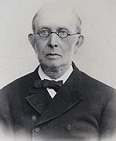

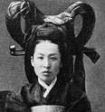




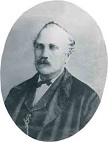



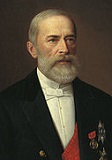





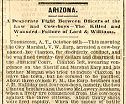






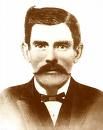







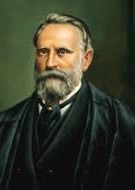


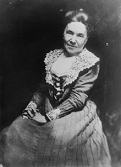







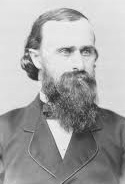
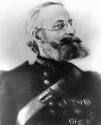









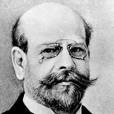








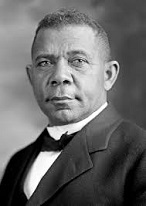

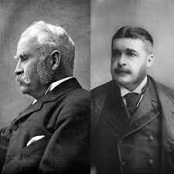



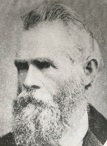

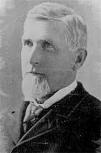


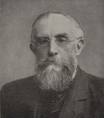



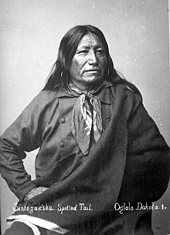

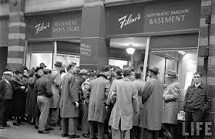
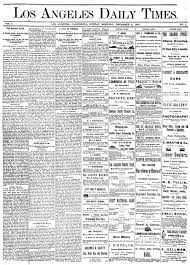
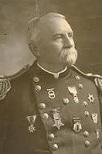
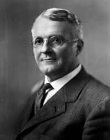
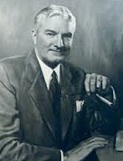
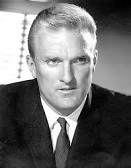





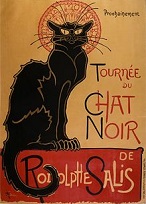
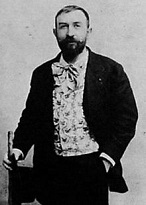
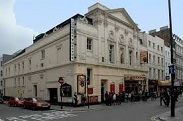

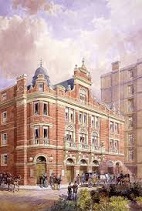


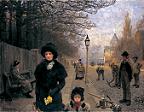
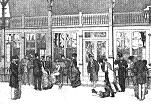




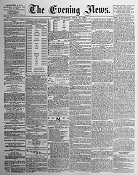
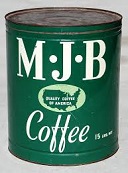
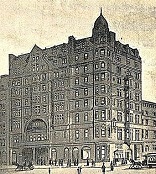
1881 Pop.: London: 3.3M; New York: 1.2M. The 5th Cholera Pandemic of the 19th Cent. (first 1817) begins (ends 1896); this time the only Euro country to get it is Hamburg, Germany (8.6K deaths), becoming the last European outbreak (until ?). The Third Immigration Wave to the U.S. (2nd in 1820-70, first in 1609-1775) begins (ends 1921), during which 23M incl. 2M Jews (44% women) come from N and W Europe until 1890, then S and E Europe incl. Italy, Russia, Austria-Hungary, Poland, and Romania. On Jan. 14 after being caught stealing his backpack, gambler-thief Mike "Johnny" O'Rourke (1862-82), AKA Johnny Behind-the-Deuce (always backs the deuce as the payoff card in Faro) kills the chief engineer of the Corbin Mill in Charleston, Ariz. on the San Pedro River, then flees to Tombstone, and is protected from a lynch mob of miners in an adobe bowling alley by Marshal Ben Sippy, ex-Marshal Virgil Earp, Sheriff John Behan, and a hastily-sworn posse, then driven through the angry crowd in a wagon to Tucson; dime novelists rewrite the scene with Earp facing the mob alone and scaring them off with pure bravado; O'Rourke is killed in a gunfight next year in Sulphur Springs Valley after being caught cheating again - yepadoodle, what the hell? On Jan. 28 2K Boers under Gen. Piet Joubert defeat 1.2K British under Maj. Gen. Sir George Pomeroy Colley at the Battle of Laing's Nek in the Drakensberg Mts.; on Feb. 27 the Boers defeat the British again at the decisive Battle of Majuba Hill, exposing their poor equipment and training; even though the British public calls for blood, PM William Gladstone agrees to end the war on Mar. 23, and recognizes the South African Repub. on Apr. 5, and on Aug. 3 the Treaty of Pretoria is signed, ending the First Boer War (begun 1880), giving the Transvaal internal independence under British suzerainty; Gladstone's attempt to right Disraeli's wrongs is seen by the public as going too far, and Queen Victoria blames him for Majuba Hill; Boer gens. Paul Kruger (1825-1904), Petrus Jacobus "Piet" Joubert (1834-1900), and Marthinus Wessel Pretorius (1819-1901) become big heroes after negotiating the peace treaty. On Jan. 29 (last Tues.) the first annual torch celebration of Up Helly Aa (End of All Holy Days) is held in Lerwick in the Shetland Islands of Scotland, culminating in burning a Viking longship starting in 1889. Oh ya, big dog, the Orabi Revolution in Egypt? In Jan. Egyptian army officers led by Col. Ahmed (Ahmad) Orabi (Urabi) (Ourabi) (1841-1911) mutiny over exclusion from ranks higher than col. by the Ottomans (who reserve them for Turkish and Circassians) and other mistreatment, causing the khedive to grant concessions, incl. the appointment of army officer and poet Mahmud Sami al-Barudi (1839-1904) as war minister; on Sept. 9 his dismissal causes Orabi to organize a huge demonstration outside the khedive's palace, bringing bigger concessions and making Orabi a nat. hero with a grip on the govt. On Feb. 19 Kan. becomes the first U.S. state to prohibit all alcoholic beverages. On Feb. 12 (Feb. 24 Old Style) the Treaty of St. Petersburg, negotiated by Zeng Guofan's son Zeng Jize (1839-90) returns most of the Ili River Basin in NW China to China. On Feb. 25 the city of Phoenix, Ariz. near the confluence of the Salt and Gila Ribvers in the Valley of the Sun in the Salt River Valley of Maricopa County (settled in 1867) is incorporated (modern-day pop. 1.68M/1.45M), becoming the state capital of Ariz. in 1889, and the most populous city in Ariz., also the first state capital with 1M residents (until ?). In Feb. the Canboulay Riots in Port of Spain, Trinidad to protest British police crackdowns on their annual Carnival celebration, spreading to San Fernando and Princes Town in Feb. 1884, with the chantwell (chantuelle) spawning calypso and soca music, and in 1937 to Steelpan (steel drum) music using banned bamboo sticks; in 1947 the U.S. Navy arrives in Trinidad, causing steelpan music to go internat. For 6-1/2 mo. the U.S. finally has a Christian preacher in the White House? On Mar. 4 (Fri.) Ohio log cabin-born Erie Canal boatman, traveling preacher (first preacher until ?), classics prof. and youngest-ever Union maj.-gen. James Abram Garfield (1831-81), AKA "Canal Boy", "Boatman Jim", "the Preacher President", "the Plow Boy of Ohio" becomes the 20th U.S. pres. (until Sept. 19, 1881) in the 27th U.S. Pres. Inauguration at the U.S. Capitol in Washington, D.C. (last log cabin pres.) (first lefty) (Truman, Ford, Reagan, Bush Sr., Clinton, Obama) (first member of Congress to move directly to the presidency) (Harding, Kennedy, Obama); he entertains guests by writing Greek with one hand and Latin with the other; Fairfield, Vt.-born bewhiskered (full sideburns) Chester Alan Arthur (1829-86), AKA "Elegant Arthur", "Prince Arthur", "the Dude President" (for his fashionable Gilded Age clothes) "Our Chet", "the Gentleman Boss" becomes the 20th U.S. vice-pres. (until Sept. 19); James G. Blaine of Maine is appointed U.S. secy. of state (until Dec.); a birther controvery begins when he lies that he was born in 1830, and moved around a lot as a child, and his enemies decide he might not have been born in the U.S. as required, demanding that he provide proof of his birthplace, which he never Barack, er, does; Pres. Lincoln's atty. son Robert Todd Lincoln (1843-1926) is appointed U.S. secy. of war (until Mar. 4, 1885); Garfield names his dog Veto as a warning to Congress; Blanche Kelso Bruce (1841-98) is appointed register of the U.S. treasury (until June 5), becoming the first African-Am. whose signature appears on U.S. currency, getting reappointed on Dec. 3, 1897-Mar. 17, 1898- it's a filthy, filthy job? Autocratic Russia sets the standard for quality health care? On Mar. 13 after approving a compromise plan to permit token democracy, Russian Tsar Alexander II (b. 1818) is assassinated in St. Petersburg by a terrorist bomb while riding in his carriage, asking to be taken to the Winter Palace to die; the Church of Our Savior on Spilled Blood is later (1883-1907) constructed on top of the cobblestones where he was bombed; his equally repressive son Alexander III (1845-94) (known for his great size and strength and peasant ro fanning mob hysteria into Jewish pogroms, causing many Jews to leave Russia, 90% going to the U.S., and thousands to East End, London; meanwhile next year Alexander III begins the Faberge (Fabergé) Egg fetish by giving his wife one for Easter after seeing them at a fair in Moscow, designed by Peter Carl (Karl Gustavovioch) Faberge (Fabergé) (1846-1920); varieties incl. Standard and Azov - is this how we got Isaac Asimov? On Mar. 15 Romania proclaims itself a kingdom, with Carol I as king #1 (until Oct. 10, 1914), and Ioan Bratianu of the authoritarian conservative Liberal Party continuing as PM (until 1888); the Latin script is adopted, and Cyrillic script scrapped; fear of Russia drives Carol I into Austria's arms? On Mar. 28 Billy the Kid is transported from Santa Fe, N.M. to Mesilla, N.M. to stand trial on several counts of murder; on Apr. 9 he is found guilty of the murder of Sheriff Brady; on Apr. 13 Judge Warren Bristol sentences him to hang on May 13 in Lincoln, N.M., where he escapes on Apr. 28; the Kid describes the Mesilla jail as the "worst place I ever struck". On Mar. 30 the War of the Comuneros in Nicaragua sees Indians attempt to fight encroachment by coffee planters in Matagalpa, causing nat. troops to crush them, killing 9K out of 36K and - good fertilizer for coffee plants? In Mar. after Zionist founder Theodor Herzl applies for membership, the Lesehall at the U. of Vienna is dissolved after a discussion degenerates into vicious anti-Semitism, causing him to join the Fraternity Albia instead; too bad, two years later the members attend a Richard Wagner memorial which turns into an anti-Semitic rally, after which his resignation is refused so they can throw them out on their own terms, causing him to decide that Jews have no future in Europe. On Apr. 11 Spelman College (originally Atlanta Baptist Female Seminary) is founded in Atlanta, Ga. for African-Am. women, going on to become the #1 historically black college in the U.S. On Apr. 24 the French invade and occupy Tunis in a 3-pronged attack on the pretext of a border dispute with Algeria, and on May 12 Tunisian bey (since Sept. 23, 1859) Muhammad III as-Sadiq signs the Treaty of Bardo (Qsar es-S'id) (Ksar Said), accepting a French protectorate before abdicating on Oct. 28; the French complete their control of the country by 1882 and stay there until 1956. On Apr. 29 Tsar Alexander II's Alexander's Manifesto on Unshakable Autocracy, engineered by reactionary minister Konstantin Petrovich Pobedonostsev (1827-1907), procurator of the Holy Synod (the non-clerical overseer of the Russian Orthodox Church) apes Ivan the Terrible's coronation speech. On May 5 "the Great Agnostic" Robert G. Ingersoll (1833-99) is quoted in the Chicago Tribute as saying "I like Christ, because he held the Jewish religion in contempt." On May 12 Thomas Stanley Matthews (1824-89) of Ohio becomes U.S. Supreme Court justice #46 (until Mar. 22, 1889) to replace Nathan Clifford (1858-81) and Noah H. Swayne (1862-81), leaving the court at a lame eight members. On May 21 the American Red Cross (ARC) is established in Washington, D.C. by former U.S. Civil War hospital nurse Clarissa "Clara" Harlowe Barton (1821-1912) after she visits Geneva, Switzerland to recover from the war and the Internat. Red Cross asks her to start a U.S. branch, becoming its first pres. for 23 years (until 1904); John D. Rockefeller donates funds for a national HQ one block from the White House in Washington, D.C.; its first major relief operation is helping victims of the Sept. 4-6, 1881 Thumb Fire in Mich., followed by the May 31, 1889 Johnstown Flood in Penn. On May 24 the Canadian ferry Princess Victoria sinks near London, Ont., killing 200. On June 16 Jules Ferry leads a movement establishing free, secular, compulsory public education in France under the aegis of municipal commissions with the first Ferry Law, followed by the Second Ferry Law on Mar. 28, 1882. On June 16 Austria-Hungary and Serbia sign a secret military treaty, which incl. a trade agreement; Austria-Hungary begins dominating Serbia's foreign trade, which consists mostly of pigs for slaughter; meanwhile Austria-Hungary reincorporates the military border into Croatia, increasing ethnic Serbs in Croatia to 25%. On June 18 the 1873-5 Three Emperors' League (Three Caesars' Alliance) (Dreikaiserabkommen) between Germany, Russia, and Austria-Hungary is secretly revived (until 1887). On June 22 a fire destroys much of Tombstone, Ariz., and Wyatt Earp later claims he saved a mother and her daughter from a burning bldg., though the town newspaper Tombstone Epitaph (founded Jan. 1880) never mentions it. On June 27 Manhattan Beach Amusement Park on Sloan Lake in Edgewater, W Denver, Colo. opens, calling itself "the First Amusement Park in the West", featuring a roller coaster, Ferris wheel, dance hall, opening a large theater on June 27, 1891 featuring light opera and vaudeville; the main attraction was Roger (Rajah) the Elephant, who gives rides to children until it is spooked by a hot air baloon and steps on the head of 6-y.-o. George W. Eaton, causing it to be killed and buried in a nearby swamp; it is followed in 1892 by Arlington Park on Cherry Creek in the Alamo Placita neighborhood, and in 1906 by Tuileries Park in Englewood, Colo.; in 1908 Manhattan Beach burns down and is reopened as Luna Park, featuring the steamboat Frolic; in 1908 Lakeside Amusement Park opens in NW Denver, becoming one of the only two amusement parks to survive along with Elitch's (1890). In the summer U.S. Army 1st Lt. Adolphus Washington Greely (1844-1935) and 24 men leave the U.S. on the Lady Franklin Bay Expedition (ends 1884), and arrive in Aug. at Lady Franklin Bay, Ellesmere Island (Grinnell Land) 500 mi. from the North Pole, and set up Fort Conger to take observations for the First Internat. Polar Year (1882-3), which ends up stranded until June 22, 1884; in 1887 he is promoted to maj.-gen. and chief of the Army Signal Corps, going on to fade away with style and flair? Guiteaulong Little Doggies, 200 days if enough? On July 2 (Sat.) (9:30 a.m.) 200 days after taking office and two weeks after uttering the soundbyte: "Whoever controls the volume of money in our county is absolute master of all industry and commerce.. And when you realize that the entire system is very easily controlled, one way or another, by a few powerful men at the top, you will not have to be told how periods of inflation and depression originate", U.S. pres. #20 (since Mar. 4) James Abram Garfield (b. 1831) is shot in the back at the Baltimore and Potomac Rarilroad Station in Washington, D.C. by Freeport, Ill.-born disgruntled atty. and disappointed office ssker Charles Julius Guiteau (1841-82) (who spent five years in the Oneida Community in Upstate N.Y., whose enjoyment of the sexual communism was ruined when women complained that he smelled?), who shouts "I am a stalwart and now Arthur is president"; on Sept. 19 as the nation is flooded with sometimes hourly reports on his condition, Garfield dies in Elberon, N.J. after 80 days of malpractice by physicians who stick unwashed instruments and fingers in him searching for the bullet, while Alexander Graham Bell tries in vain to help with a metal detector (coil mattress springs throw it off?); the bullet is found during the autopsy in a protective cyst 10 in. from the wound, but since the doctors didn't embrace the antiseptic techniques of Joseph Lister (1827-1912), he dies from iatrogenic (doctor-caused) infections, causing Guiteau to say, "Doctors killed Garfield; I just shot him"; Garfield, who is pres. for less than 8 mo. signs one extradition paper during his fatal illness; Guiteau is hanged in Washington, D.C. on June 30, 1882; Garfield and Guiteau are autopsied by the Nat. Museum of Health and Medicine (Army Medical Museum) in Silver Spring, Md. (founded 1862); Garfield becomes the 3rd straight victim of the Zero-Year Presidential Curse (after W.H. Harrison and Lincoln); future Repub. vice-pres. #22 (1889-93) Levi Parsons Morton (1824-1920) had been asked by Garfield to be his running mate, but had preferred the job of U.S. minister to France (until 1885), causing Guiteau to feel he had been "passed over", giving him the reason to murder Garfield?; on Sept. 20 at 2:15 a.m. Fairfield, Vt.-born "Dude President" Chester Alan Arthur (1829-86) becomes the 21st U.S. pres. (until Mar. 4, 1885) in the 28th U.S. Pres. Inauguration in his office at 123 Lexington Ave. in New York City (4th U.S. pres. not to have a vice-pres. after Tyler, Fillmore, and Johnson - next in ?); 2nd time that the U.S. has three presidents in the same year (Hayes, Garfield, Arthur) (first time 1841); a recent (1880) widower, he snubs Garfield's widow and uses his sister Mary Arthur (Mrs. John E.) McElroy (1841-1917) as his White House hostess, and won't move into the White House until it is redecorated by Louis Comfort Tiffany (1884-1933), who adds Tiffany glass to gaslight fixtures and windows, and installs an opalescent floor-to-ceiling glass screen in front of the entrance hall, all of which Teddy Roosevelt removes in 1902 to restore the White House to Federal style; Arthur appoints Ind. U.S. District Judge (since 1869) (former Civil War Union Maj. Gen. from Ind.) Walter Quintin Gresham (1832-95) as postmaster-gen. then treasury secy. (until 1884); in Dec. James G. Blaine resigns because of Arthur's connections with his political enemy Roscoe Conkling; when Arthur actually acts like a pres. and backs civil service reform and even prosecutes his own former political associates for graft, he becomes a lame duck, losing machine support while failing to win the reformers over, his lackadaisical presidency completing the migration of pres. powers to the Congress that is later reversed by presidents Teddy Roosevelt, Woodrow Wilson et al. On July 4 the police chief of Washington, D.C. bans fireworks in tribute to the shooting of Pres. Garfield; instead, prayer meetings for his recovery are held throughout the U.S. On July 4 African-Am. former slave Booker Taliaferro (pr. like toliver) Washington (1856-1915) founds Tuskegee U. (originally Tuskegee Normal School for Colored Teachers, and Tuskegee Normal and Industrial Inst.) in Tuskegee, Ala. to teach vocational skills to blacks, beginning with 30 students after former slave Lewis Adams gets white politician W.F. Foster to talk the state of Ala. into it in return for getting the black vote for his election to the state legislature; the state agrees to pay teachers' salaries but not for land or bldgs., so Booker has the students build them as part of their course; he brings in scientist George Washington Carver to teach, along with other top U.S. blacks - and together they become the fathers of a new black country? On July 14 sheriff Patrick Floyd "Pat" Garrett (1850-1908) shoots and kills William H. Bonney Jr. AKA Billy the Kid (Henry McCarty) (b. 1859) in Pete Maxwell's ranch house in Ft. Sumner, N.M. with a .44-.40, "the gun that shot Billy the Kid". On July 19 Sitting Bull, a fugitive since the Battle of the Little Big Horn surrenders to the U.S. govt. at Ft. Buford, Mont. (at the confluence of the Missouri and Yellowstone Rivers), and is packed off to a rez. On July 23 a group of xenophobic Koreans attacks the Japanese legation in Seoul, drawing support from the Chinese, who on July 24 murder Min Kyom-ho, head paymaster of the Tribute Bureau, whose elder brother is the adopted brother of fatherless Korean spider lady ("the last empress of Korea") Queen Min (1851-95); on Aug. 26 the Chinese free the Taewon-gun and take him to Tianjin, returning him to power, where he begins a struggle with Queen Min for control of the Korean govt., resulting in the Chemulpo (Chemulp'o) Treaty of Amity and Trade (engineered by Queen Min), a mutual defense treaty with the U.S., compensating the Japanese and giving them the right to keep a legation guard; the Yellow Sea port of Inchon (Chemulpo) in W Korea is opened to Japanese commerce, followed by world commerce in 1883; Korea sends several groups of students and observers to Japan - to become oddjobs? On July 26 the halfpenny The Evening News daily newspaper is founded in London, England, undercutting The Times by half and becoming the first popular newspaper in London and the #1 London evening newspaper until it merges with the rival "Evening Standard" in 1980; in 1987 it is revived for 8 mo. In July Turkey cedes Thessaly and part of Epirus to Greece, but when it tries to take control, the turkeys refuse to pull out. On Aug. 4 Seville, Spain sets a European record high temp. of 122 F (50 C); 124F (51C) on July 30, 1876? On Aug. 28 after Congress passes the U.S. Ute Removal Act, reneging on a guarantee of 12M acres in perpetuity, the former Ute Indian Territory is abolished and the Utes removed from their "Shining Mountains" to a rez in E Utah so that the U.S. govt. can open the area to white settlers, incl. Clinton County, Penn.-born George Addison Crawford (1827-91), who next July 22 incorporates the town of Grand Junction, Colo. (AKA River City, Ol' Grandy, Capital of the Western Slope) in Grand Valley on the W slope of the Rockies at the confluence of the Grand (Upper Colorado) and Gunnison Rivers (modern-day pop. 60K/147K), and plants the first vineyard in Colo. near Palisade, after which the area becomes known as the Colo. Wine Country. On Aug. 28 the Jesuit Roman Catholic Marquette U. is founded in Milwaukee, Wisc. by first bishop of Milwaukee (since 1843) John Martin Henni (1805-81), named after 17th cent. explorer-missionary Father Jacques Marquette for the area's mainly German immigrant pop.; in 1909 it becomes the first co-ed Roman Catholic univ. On Aug. 30 steamship Teuton sinks off the Cape of Good Hope, killing 200. In Aug. a reporter for the New York Sun interviews Dr. W.S. Cockerell in Gunnison, Colo., who spots Quebec, Canada-born Bartholomew William Barclay "Bat" Masterson (1853-1921) and spins a yarn about how he had killed 26 men, which is pub. and reprinted all over the U.S., making Masterson a nat. celeb, even though it was moose hockey; on Apr. 17, 1882 Masterson is appointed city marshal of Trinidad, Colo. at $75/mo., going to Colo. gov. #2 (1879-83) Frederick Walker Pitkin to prevent extradition of Doc Holliday from Colo. to Ariz., losing reelection on Apr. 3, 1883 by a 637-248 vote after the local newspaper lampoons him for dealing faro at night. In Aug. Ariz. cattle rancher "Old Man" Newman Haynes Clanton (b. 1816), alleged leader of the "Cow-Boys" and father of the four Clanton brothers is killed with four of his hands in the Guadalupe Canyon Massacre by Mexicans in the S Peloncillo Mts. on the Ariz.-N.M. border in retaliation for a July ambush by rustlers working for them in Skeleton Canyon; Curly Brocius becomes the new leader of the Cow-Boys, wanting to get even with Wyatt Earp for pistol-whipping him during his 1880 arrest for the shooting of prior marshal Fred White. On Sept. 7 what's left of the Jesse and Frank James Gang (with some locally-recruited thugs) robs a train at Blue Cut, Jackson County, Mo. (near Glendale, Mo.) (planning it to be their last of 25+ train and stage coach robberies since 1876), killing the conductor and a pensioner, after which Frank James retires from crime and settles in Baltimore, Md.; Jesse's cousin Robert Woodson "Wood" Hite (b. 1856) is killed in Dec.-Mar. in their hideout in Richmond, Mo. by gang members Dick Liddil and/or Bob Ford after an argument over spoils and/or the Fords' widowed sister Martha Bolton, after which Liddil, Bob Ford, and his brother Charley are arrested, causing them to make a deal with new Mo. gov. Thomas Crittenden (whose is embarrassed that his state has been home to the gang for 12 years, and promises to get them in his inaugural address) to obtain a pardon and $5K each (from the railroad and express cos.) for capturing Jesse and Frank James dead or alive - the official cover story - in reality, dead dead dead like bacon? On Sept. 15 2nd. Lt. Henry Ossian Flipper (1856-1940), the first former slave and black man to graduate from West Point (1878) is court-martialed on trumped-up charges of embezzlement, found not guilty, then dismissed from the U.S. Army for conduct unbecoming an officer, picking himself back up and going on to a distinguished career - keep to your place and go to Tuskegee? On Sept. 18 liberal scholar-historian Domingo Santa Maria Gonzalez (1824-89) becomes pres. of Chile (until Sept. 18, 1886), going on to fight against the great powah of the Roman Catholic Church and secularize marriage, pissing-off the Vatican, which breaks diplomatic relations. On Sept. 21 the Treaty of Akhal between Russia and Persia gives Russia all of Khwarezm incl. Turkestan, Transoxianiania, and Merv. On Oct. 22 the Boston Symphony in Mass. gives its first concert, becoming #2 of the Big Five U.S. Symphonies (first in 1842). On Oct. 24 new U.S. minister to France (since Mar. 2) Levi Parsons Morton (1824-1920) hammers the first rivet into the Statue of Liberty in Paris, driving it into the big toe of her left foot; Colmar, France-born sculptor Frederic Auguste Bartholdi (1834-1904) got the idea from his friend, French jurist Edouard Rene Lefevre (Édouard René Lefčvre) de Laboulaye (1811-83). A 30-second point-blank gunfight by bad marksmen fuels zillions of hours of Am. West movie and TV footage? On Oct. 25 the simmering feud in Tombstone, Ariz. between the Earps and the Clantons reaches critical mass when a bungled stagecoach holdup near Benson, Ariz. in Mar. causes each side to accuse the others of being involved, and braggart Ike Clanton gets drunk and almost gets in a gunfight with them, but backs down, then instead of going back to the ranch stays in the saloon all night in a card game with Virgil Earp and Thomas "Tom" McLaury (b. 1853), then is seen about noon carrying a Winchester rifle and sidearm looking for an Earp or Holliday to plug, then is knocked out, disarmed and taken to the county judge, who fines him $25 for disorderly conduct, causing a courtroom confrontation between the two clans again, after which Wyatt Earp hits Tom McLaury over the head with a pistol, claiming that he is carrying a concealed pistol, which he denies although the saloon keeper of the Capitol Saloon later testifies that he deposits one right afterward; when Tom's older brother Robert Findley "Frank" McLaury (b. 1849) and Ike's younger brother William Harrison "Billy" Clanton (b. 1862) arrive and find out about the beating (that's just too much for an erin go bragh Celt?), they get pissed, load up on ammo and head for the O.K. Corral, which is the way out of town, but also happens to be next to Fly's Rooming House where Doc Holliday is staying, and two blocks from the Earps' home to the W, causing the Earps and Holliday to lock and load and make their big march through the streets to disarm them as officers of the law, although the cowboys are legally entitled to bear arms while entering or leaving the town, as evidenced by being in a, er, corral, causing a legal-poetic-justice ballet that depends on what they think witnesses will later testify to?; on Oct. 26 (Wed.) at 3:00 p.m. (cold day with snow on the ground) the 30-sec. 30-shot Gunfight at the O.K. Corral (18-ft.-wide) on the W end of 4.5K-ft. alt. Tombstone (formerly Goose Flats) in Pima County in SE Ariz. (with a view of the Dragoon Mts. to the NNE), 80 mi. from Tucson (where county sheriff Charles Alexander Shibell (1841-1908) resides) takes place between the sinister darkly-clad handlebar-moustached Earps (Virgil, Wyatt, and Morgan) (the original Morpheus, Neo, and Trinity?) and Doc Holliday (representing the miners, businessmen, bankers and the law) and the Clanton and McLaury "Cow-Boys" (heros of the small farmers and ranchers); after walking down Fremont St. and rounding the corner of Fourth St. in front of the Capitol Saloon, cane-carrying town marshal Virgil Walter Earp (1843-1905) his deputized officer Morgan Earp (1851-82), undeputized Wyatt Earp (1848-1929)(known for the soundbyte "It all ends now"), and TB-suffering gambler-dentist John Henry "Doc" Holliday (1851-87) shoot it out with Joseph Isaac "Ike" Clanton (1847-87) and his gang in the vacant area on the Fremont St. side next to Fly's Rooming House behind the looms of the O.K. Corral; after finding drunken Ike Clanton and his recently-rounded-up wannabe contender William Floyd "Billy the Kid" Claiborne (1860-82) (who likes to pretend he's the real Billy the Kid although he's just a cowhand, and is probably unarmed, as is boasting Ike) standing in the middle of the lot, and well-armed Frank McLaury and Billy Clanton, and probably-unarmed Tom McLaury standing against a house to the W with the horses, Virgil Earp shouts: "Throw your hands up, I want your guns", after which (it depends on whom you believe, but) either Doc Holliday and Morgan Earp start it by opening fire at point-blank range, surprising Wyatt, who is seized by Ike against the rooming house wall, causing his pistol to allegedly accidentally discharge at Billy the Kid Claiborne, striking him in the knee, or Frank McLaury and Billy Clanton draw their pistols first, and Wyatt Earp and Billy Clanton fire first; after Tom McLaury tries to hide behind Billy Clanton's horse, and Frank McLaury shoots Morgan Earp in the shoulder, Doc pulls his concealed sawed-off 10-or-12-gauge double-barreled shotgun from his gray overcoat and fatally shoots Tom McLaury in the right chest near the armpit, after which he stumbles to the W to run away, falls at the telegraph pole at 3rd and Fremont St., and is finished off by a shot to the gut by Wyatt; Frank McLaury is shot by Wyatt Earp in the navel, then stumbles into Freemont St., gets off several shots, loses his horse, and is finished off by Morgan Earp with a head shot; Ike Clanton and Billy Claiborne escape to a nearby photo studio after Ike briefly struggles with Wyatt; death toll: Billy Clanton (shot in the wrist and right chest by Morgan, right arm, scalp and gut by Virgil, and hips by Wyatt) (dies last, claiming he had been murdered), Frank McLaury, Tom McLaury; Wyatt Earp emerges unscathed, but Virgil (right calf), Morgan (upper back between the shoulder blades) and Doc (hip) are badly wounded; Ike, who started it all, and led his brother Billy plus the McLaurys into a death trap, gets out unscathed; the Tombstone Epitaph headline on Oct. 27 reads "Yesterday's Tragedy, Three Men Hurled Into Eternity in the Duration of a Moment, the Causes That Led to the Sad Affair", and contains ed. John Phillip Clum's sage observation: "If the present lesson is not sufficient to teach the cowboy element that they cannot come into the streets of Tombstone, in broad daylight, armed with six-shooters and Henry rifles to hunt down their victims, then the citizens will most assuredly take such steps to preserve the peace as will be forever a bar to further raids"; on Nov. 29 after the hero shine wears off and talk of the unarmed innocent lambs throwing up their hands and being murdered in cold blood, and the boss, Cochise County Sheriff Johnny H. Behan (1844-1912) (a friend of the Clantons, who was at the all-night card game and arose at 1:30 p.m., got a shave at the barber shop, then encountered the Earps going to the corral and let them pass) arrests Wyatt Earp and Doc Holliday for murder, a mo.-long legal inquest by Judge Wells W. Spicer (1831-85) (a relative of the Earps) clears them using a Wild West version of the old doing-their-official-duty theory; the pro-Clanton locals and the Earps go on to circulate different stories, which clouds the episode, making it take half a cent. to reach full Wild West legend status; Spicer's rep is ruined by his decision, and after death threats by the Cow-Boys he ends up a miner, and is found dead in the desert near Ajo, Ariz. in 1885; Clum leaves Tombstone on May 1, 1882, and ends up working in the post office in Alaska, finally running a date farm in Indio, Calif. in 1915, where he stays friends with Wyatt in Los Angeles; Wyatt leaves Tombstone by the end of the year, hooks up with Josephine Sarah "Josie" Marcus (1861-1944) (ex-babe of his arch-enemy Johnny Behan) in San Francisco next year, and becomes a prospector, then operates saloons and gambling halls in the gold camps of Nevada and Alaska, then goes into real estate speculation in Calif. before WWI, and owns a racetrack; he goes to his grave an old fart, never having suffered a direct hit; Billy the Kid Claiborne gets his chance to prove he's no Billy the Kid, and is killed next Nov. 14 in a gunfight with Franklin "Buckskin Frank" Leslie (1848-1930), "the only man who could compare to Doc Holliday's blinding speed and accuracy with a six-gun" (Wyatt Earp) - whose portrait bears a striking resemblance to Hollywood actor Brad Pitt (1963-)? On Nov. 18 the Le Chat Noir (The Black Cat) is founded in Montmartre, Paris at 84 Boulevard Rochechouart by Louis Rodolphe Salis (1851-97), becoming the first modern cabaret, serving hypocras (spiced wine) in golden bowls, attracting the radical writers and artists called Les Hydropathes (hydrophobics) led by Emile Goudeau, moving to 12 Rue Victor-Mass on June 10, 1885, and closing in 1896. On Nov. 24 after Gambetta's proposal to restore Scrutin de Liste is rejected by the Senate, causing voters to throw out Jules Ferry, Leon Gambetta (1838-82) (who lost his left eye at age 15) becomes PM of France (until 1882), forming Le Grand Ministere, with gen. plans of allying with Britain and cooperating with them in Egypt; too bad, after his plans for forming a strong executive govt. stir memories of a new Napoleon, his cabinet falls next Jan. 26 after 66 days, then on Dec. 31, 1882 an accidental pistol wound aggravates an intestinal malady, causing his death. In Nov. the 1879 De Long Arctic expedition ends with the ship broken up by the ice and the survivors marching overland for 3 mo. until only two make it. On Dec. 4 the Los Angeles Times (originally the Los Angeles Daily Times) is founded in Los Angeles, Calif. by wealthy St. Louis, Mo. businessman Nathan Cole Jr. (1860-1921) and Glasgow, Scotland-born dandy Thomas Gardiner (1826-89); in July 1882 Marietta, Ohio-born Harrison Gray Otis (1837-1917) becomes ed., leaving it to his son-in-law Harry Chandler (1864-1944), who leaves it to his son Norman Chandler (1899-1973), who passes it to his son Otis Chandler (1927-2006) in 1960-80. On Dec. 8 a fire at the Ring Theater in Vienna kills 620. On Dec. 20 the Decree of Muharrem in bankrupt Turkey sets up the Public Debt Admin., consisting of Ottoman and Euro reps, and subjecting the Ottoman govt. to foreign financial control from which it never escapes, with the 1914 debt still at 139.1M Turkish pounds - where did the whipped cream bikini come in? On Dec. 20 Boston-born Harvard-educated Horace Gray (1828-1902) is appointed as U.S. Supreme Court justice #47 (until Sept. 15, 1902), followed next Mar. 22 by N.Y.-born Columbia-educated Samuel Blatchford (1820-93) (until July 7, 1893) as U.S. Supreme Court justice #48 to replace Ward Hunt (1873-82), bringing the number of members back up to Beatle John Lennon's number nine. Cecil Rhodes gains a seat in the Cape Colony Parliament. After Bismarck strikes a deal to increase troop levels in exchange for it, a letter of German emperor Wilhelm I to the German Parliament proposes the adoption of universal health care and old age insurance, which is ratified in 1883. The first Sino-Japanese commercial treaty is signed, with both countries claiming equality - shall we shag now or shall we shag later? The tobacco monopoly in the Philippines is abolished, followed by a gen. reform of the tax structure in 1884. The Coercion Act of 1881 is passed by the British Parliament, giving the lord lt. of Ireland power to arrest any person on suspicion of being an anti-English agitator just for refusing to work for or boycotting produce from English landlords; no surprise, Irish leaders Charles Stewart (Stuart) Parnell (1846-91) and William O'Brien (1852-1928) are among the first imprisoned in stinking Kilmainham Jail, causing an Irish uprising, resulting in the Irish Land Bill that gives the Irish fair rents and tenancy rights. Gen. Lew Wallace is appointed U.S. minister to Turkey (until 1885). Learned economist Nicholas (Nikolai) Khristianovich Bunge (1823-95) is appointed Russian minister of finance (until 1887), with the mission of making economic changes necessary for Russian industrialization, incl. the Peasants' Land Bank, abolition of the head tax, introduction of an inheritance tax, and the first Russian labor legislation, attempting to pump up capitalism in Russia. After decades of enjoying industrial superiority while failing to get the rest of Spain to lead them, Valenti (Valentí) Almirall y Llozer (1841-1904) et al. begin agitating for a separate Catalan state in Spain, organizing Catalan congresses and founding the Catalan Center (political party) in Madrid next year. After barbed wire is patented in 1874, the Fence Cutting Wars (end 1891) break out in Tex. as homesteaders begin cutting the barbed wire fences of cattlemen, initially being justified because the fences were put up by men who didn't own the land, but later doing it to anybody's fences, claiming that all land should be in the public domain, speading to Wyo. and Mont. After Garfield's assassination makes yet another destitute First Lady, the U.S. Congress votes $5K a year pensions to the widows of presidents Garfield, Lincoln, Polk and Tyler; an automatic pension doesn't happen until 1958. The state of Ark. ("the Natural State") passes a resolution that its name is to be pronounced like "Arkansaw", not "Arkansas". The city of Aberdeen, S.D. in NE S.D. 125 mi. NE of Pierre (modern-day pop. 28K) is founded in one of the richest farm areas in the U.S., becoming known as the "Hub of the Two Dakotas". The town of Calico, Calif. in the Calico Mts. of the Mojave Desert 3 mi. NE of modern-day Barstow, Calif. is founded near the site of a major silver strike, shipping $13M-$20M worth of silver by the time it becomes a ghost town in 1900; in 2005 Calif. Gov. Arnold Schwarzenegger proclaims it Calif.'s Silver Rush Ghost Town. Rishon LeZion in WC Israel is founded by European Jewish immigrants, becoming the 2nd Jewish agricultural community in Palestine after Petah Tikvah. The British North Borneo Co. is founded to control Sabah (until 1941). The French flag is raised on the N bank of the Congo River, founding the new colony of French Congo. The first Japanese political parties are founded. France permits freedom of the press. Jan Hendrik Hofmeyr (1845-1909) AKA Onze Jan ("Our Jan") founds the Afrikaner Bond to promote the Dutch language in South Africa and eliminate British govt. interference. The Clan-na-Gael (AKA United Brotherhood) Irish Fenian org. is founded in Philly. The Federation of Organized Trades and Labor Unions of the U.S. and Canada is formed. Henry Mayers Hyndman (1842-1921) founds the Dem. Federation (later called the Social Dem. Federation) in England to advance Marxism, reaching a membership of 10K and changing its name in 1911 to the British Socialist Party. Pope Leo XIII commissions a group of theologians and scholars in Freiburg to study Corporatism; in 1884 they define it as a "system of social organization that has at its base the grouping of men according to the community of their natural interests and social functions, and as true and proper organs of the state they direct and coordinate labor and capital in matters of common interest." Scottish Orientalist scholar Sir William Muir (1819-1905) pub. the soundbyte: "Some, indeed, dream of an Islam in the future, rationalized and regenerate. All this has been tried already and has miserably failed. The Qur'an has so encrusted the religion in a hard unyielding casement of ordinances and social laws, that if the shell be broken the life is gone. A rationalistic Islam would be Islam no longer." The Nat. History Museum in South Kensington, London opens. University College in Liverpool, England is founded; in 1903 it receives a royal charter, becoming one of the six original red brick civic univs. The Boston Browning Society is founded (until 1892) in honor of English poet Robert Browning (1812-89). Devout Methodist James Buchanan "Buck" Duke (1856-1925) starts a manufactured cigarette business in Durham, N.C., producing the Duke of Durham brand; the year's production is 9.8M (1.5% of the total market). The Internat. Cotton Exposition is held in Atlanta, Ga. Tenn. passes the Segregation Seating Act for Railroad Cars, setting a model for other Southern states. The Hebrew Immigrant Aid Society (HIAS) (originally the Hebrew Emigrant Aid Society) is founded on Nov. 27 in the U.S. to help Jewish immigrants from Russia, going on to rescue 4.5M Jews by 2010; Emma Lazarus of "The New Colossus" fame is a volunteer. Drake U. in Des Moines, Iowa is founded for the Disciples of Christ by a maverick preacher from nearby Oskaloosa College (who takes most of the staff with him) and U.S. Civil War Brig. Gen. Francis Marion Drake (1830-1903), who becomes Iowa gov. #16 in 1896-8. The U. of Liverpool (originally Univ. College Liverpool, followed in 1884 by Victoria U. at Liverpool until 1903) is founded in Liverpool, England; in 1894 prof. Oliver Lodge makes the world's first public radio transmission, and in 1896 takes the first surgical X-ray in the U.K.; in 1899 Liverpool U. Press is founded; in 1903 it receives a royal charter, becoming one of England's six original red brick civic univs. The Wharton School of Finance and Economy of the U. of Penn. is founded in Philly by liberal Hicksite Quaker industrialist Joseph Wharton (1826-1909) (co-founder of the Bethlehem Steel Co. and Swarthmore College), becoming the first higher ed. for accountants in the U.S. and the first collegiate business school. French financier brothers Emile (1800-75) and Isaac Pereire (Péreire) (1806-80) (of Sepahardic Jewish descent) found the Banque Transatlantique, becoming rivals with the Rothschild family, who are Ashkenazi Jews; in 1909 Isaac's son Eugene's granddaughter Noemie Halphen marries Maurice de Rothschild, ending the rivalry? Winslow Homer visits an English fishing village near Tynemouth. The Vatican archives are opened to scholars. A land telegraph line is built from Shanghai to Tianjin in China. Watertown, N.Y.-born Mormon Oliver Boardman Huntington (1823-1909) pub. a journal containing the allegation that back in 1837 Joseph Smith Jr. taught that: "The inhabitants of the moon are more of a uniform size than the inhabitants of the earth, being about six feet in height. They dress very much like the Quaker style and are quite general in style or the one fashion of dress. They live to be very old; coming generally, near a thousand years"; later Brigham Young claims that the Sun is inhabited. The U. of Conn. (originally Storrs Agricultural School) is founded in Storrs, Conn. by brothers Charles and Augustus Storrs; in 1893 it becomes Storrs Agricultural College; in 1899 it becomes Conn. Agricultural College; in 1933 it becomes Conn. State College; in 1939 it becomes the U. of Conn.; in Sept. 2005 after it emerges from Hurricane Katrina unscathed, it is named by Slate mag. as "America's Best Place to Avoid Death Due to Natural Disaster". The Boston Symphony Orchestra is founded by banker Henry Lee Higginson (1834-1919); its first conductor is Sir George Henschel (1850-1934) (knighted in 1914) (until 1884), followed by Athur Nikisch in 1889-93, and Pierre Monteux in 1919-24, who gives it a signature French sound. In the early 20th cent. 10 theaters on a single block make 42nd Street in Manhattan, N.Y. internationally famous for its playhouses, starting this year with Wallack's Theatre at 30th St. and Broadway. English stage beauty "Jersey Lily" Lillie (Lily) Langtry (real name Emilie Charlotte Le Breton) (1853-1929) makes her prof. stage debut at the Haymarket Theatre in London as Kate Hardcastle in Oliver Goldsmith's 1773 "She Stoops to Conquer"; starting next year she begins playing in the U.S. every season for over 20 years, becoming Edward VII's babe; she retires in 1914. Century Mag. begins pub. as a successor to Scriber's Monthly Mag. (until 1930). Barnum and Bailey's Circus, made up of bearded James Anthony Bailey's Internat. Allied Circus and clean-shaven Phineas Taylor Barnum's Circus is founded- two heads are better than one? Le Chat Noir (Fr. "The Black Cat"), the first cabaret is founded in Montmartre, Paris by Rodolphe Salis (1851-97), and opens on Nov. 18. Wealthy German Jew Emil Rathenau (1838-1915) obtains the rights to manufacture Thomas Edison's electrical products, founding the Allgemeine Elektricitats-Gesselschaft (AEG) in 1887. Filene's Department Store (originally Filene's Sons and Co.) in Boston, Mass. is founded by German Jewish immigrant William Filene (1830-1901) from Posen, Prussia to sell clothing; in 1891 his sons Edward Albert Filene (1860-1937) and Abraham Lincoln Filene (1865-1957) take over mgt., using the scientific mgt. ideas of Frederick Winslow Taylor (1856-1915), opening Filene's Basement (Automatic Bargain Annex) in 1908 to go with an automatic mark-down schedule for merchandise and money-back guarantee, founding the first employee's credit union; in 1912 the flagship store at the corner of Washington and Summer Sts. in Chicago, Ill. is built by architect Daniel Burnham (his last major project), expanding to the whole block by 1929; in 1929 Filene's, Lazarus, and Abraham & Straus found Federated Department Stores in Columbus, Ohio as a holding co. The J.L. Hudson Co. department store in Detroit, Mich. is founded by English-born Joseph Lowthian Hudson (1846-1912), growing into a chain claiming to be #2 after Macy's. MJB brand coffee co. is founded in San Francisco, Calif. by German Jewish immigrant Max J. Brandenstein (1860-1925) and his brothers Charlie, Eddie, and Mannie; Mannie later changes his name to Bransten, and in 1910 launches the "MJB Coffee Why?" ad campaign, building an "ultramodern" coffee house at the 1915 Panama-Pacific Internat. Exposition featuring a giant cup and saucer on the roof with an illuminated sign reading "WHY"; in 1985 it is acquired by Nestle; in 1999 Sara Lee Corp. acquires MJB, Hills Brothers, and Chase & Sanborn from Nestle, which in 2006 sells them along with Chock Full O'Nuts to Massimo Zanetti Beverage USA; ad slogan: "You can't make a bad cup of MJB". Borax is discovered in Death Valley, Calif. near Furnace Creek Ranch by Aaron Winters and Rosie Winters, causing a mining boom, starting in 1882 with Eagle Borax Works, with teams of 12-18 mules and 2 horses hauling dual 16-ft. wagons 165 mi. to the town of Mojave from Oct.-May until 1888. Architecture: In May Union Station at the W end of downtown Denver Colo. at 17th and Wynkoop Sts. opens to service the Union Pacific, Denver & Rio Grande Western, Colo. Central, and Denver, South Park & Pacific Railroads; too bad, in 1894 a fire in the women's restroom destroys the central portion, and it is rebuilt in Romanesque Revival style on a larger scale incl. a tall central clock tower with four faces; on July 4, 1906 a large $22,50 arch in front of the station is dedicated, made of 70 tons of steel with 2K light bulbs and the word "Welcome". On Oct. 10 the Savoy Theatre in the Strand, Westminster, West London opens as the home of the D'Oyly Carte Opera Co., founded in 1875 by West End, London-born impresario Richard D'Oyle Carte (1844-1901), becoming the first public bldg. on Earth to be entirely lit by electricity, going on to produce all 14 "Savoy operas" of Sir William Schwenck Gilbert (1836-1911) and Sir Arthur Seymour Sullivan (1842-1900), causing the term "Savoyard" to be coined for an actor, producer, or admirer of their operas, and "Gilbertian" to mean a humorous play. On Oct. 15 the brick-stucco Comedy Theatre (originally Royal Comedy Theatre until 1884) opens on Panton St. in Leicester Square in Westminster, West End, London; in 1883 it debuts the operetta Falka, followed in 1885 by Erminie; in 1856 producer Anthony Field founds the New Watergate Club to get around the 1843 Theatres Act, which has no power over private clubs, producing Arthur Miller's "A View from the Bridge", Robert Anderson's "Tea and Sympathy", and Tennessee Williams' "Cat on a Hot Tin roof"; in Oct. 31, 2011 it is renamed the Harold Pinter Theatre. The Natural History Museum in London (begun 1873) opens. Louis Comfort Tiffany designs the interior of the Mark Twain House in Hartford, Conn. (built in 1874). The $30K Victorian Gothic-inspired Newberry Opera House in Newberry, S.C. is founded, becoming the region's cultural hub. The 45.2-mi. 3-ft.-wide track Durango and Silverton Narrow Gauge Railroad in San Juan County in S Colo. begins operation to transport silver and gold ire from the San Juan Mts., becoming a tourist attraction for its great scenery and cliff-hugging thrills. Sports: In Oct. the first women's lawn bowling match is held in Australia in Stawell, Victoria; the Rainsford Bowls Club, the first women's bowling club is founded on Dec. 16, 1898 in Glenferrie, Victoria; in Sept. 1907 the 6-club Victorian Ladies' Bowling Assoc. is founded in Melbourne, Victoria, becoming the world's first women's bowling assoc. The first U.S. Lawn Tennis Nat. Singles Championship (later called the U.S. Open) is won by Richard Dudley "Dick" Sears (1861-1943), who continues to win through 1888; Clarence Munroe Clark (1859-1937) and Frederick Winslow Taylor (1856-1915) win the first doubles tournament, and Clark marries Winslow's sister; next year he is defeated in the singles final by Sears. Inventions: French inventor Clement Ader (1841-1925) invents the Theatrophone, with a separate channel for each ear, performing the first stereo transmission of an opera performance over a distance of 3km (2 mi.); in 1890 it is commercialized by Compagnie du Theatrophone, which folds in 1932. On July 8 the ice cream "sunday" (later sundae) is invented by druggist Edward C. Berner of Two Rivers, Wisc. to get around Sabbath "blue laws" by serving ice cream as a food instead of a treat. The first machines that sort good from bad cranberries appear, based on the ability of the good ones (containing four air sacs) to bounce. John Boyd Dunlop (1840-1921) of the U.S. acquires the patent for a hollow (pneumatic) tire made of rubber and cloth; because of this, tire makers become the #1 consumer of natural rubber. Irish-born U.S. inventor John Philip Holland (1840-1914), an Irish nationalist wanting to help the U.S. Navy destroy British sea power gets money from the Fenians and launches his first successful submarine Fenian Ram on the Hudson River; too bad, its power system is too defective for long sea voyages and he goes back to the drawing boards. Paris begins building a city-side compressed air distribution system (finished 1889), which distributes 5-6 bar air over 900km of mains, serving 10K customers; it operates until 1994. Santa Cruz, Calif. judge James Harvey Logan (1841-1928) develops the Loganberry by accidentally crossing a blackberry and raspberry. Science: The mummy of Egyptian Pharaoh Rameses II is found, and is in exceptionally good condition - tell me how does it feel to treat me like you do? Russian archeologist Semyon Semyonovich Abamelik-Lazarev (1857-1916) discovers the Palmirian Tarif inscription in Palmyria, Syria, which lists ancient customs rules. Cuban scientist Dr. Carlos Juan Finlay y Barres (Barrés) (1833-1915) presents the Mosquito Theory of Yellow Yever Transmission to a scientific convention in Havana, and is greeted with stony silence, becoming known as the Mosquito Man, and failing to gain acceptance for 20 years (until 1900), while the search for the yellow fever bacterium goes on in vain, because it's caused by a virus too small to be seen in a microscope and everybody wants to become the next Pasteur? English opthalmologist Waren (Warren) Tay (1843-1927) first describes the red spot in the retinas of people suffering from Tay-Sachs Disease, which in 1887 Jewish-Am. neurologist Bernard Sachs (1858-1944) notes is prevalent among Am. Jews of E European (Ashkenazi) descent. English logician John Venn (1834-1923) introduces Venn Diagrams. Tebbutt's Comet is first observed, becoming the first wide-angle photo of a comet's tail, and the first spectrum of a comet's head. Valproate is discovered, later being discovered to be useful in preventing migraine headaches and seizures and treating epilepsy and bipolar disorder; it is first used medically in 1962, and is marketed under the brand name Depakote. Nonfiction: Oscar Browning (1837-1923), An Introduction to the History of Educational Theories. Samuel Butler (1835-1902), The Alps and Sanctuaries of Piedmont and Ticino; travel book. Thomas Carlyle (1795-1881), Reminiscences; ed. by James Anthony Froude (1818-94). Paul du Chaillu (1835-1903), The Land of the Midnight Sun; account of his expedition in 1871-4. Church of England, English Revised Version of the Bible (1881-5); produced by a group of English and Am. scholars working since 1870; the Apocrypha is pub. in 1895; expresses admiration for the admittedly buggy 1611 King James Bible for "its simplicity, its dignity, its power, its happy turns of expression... the music of its cadences, and the felicities of its rhythm", callng it "the noblest monument of English prose"; the Am. scholars in the group go on to produce the 1901 Am. Standard Version. Moncure D. Conway (1832-1907), Thomas Carlyle; Thomas Carlyle: A Memorial Discourse Delivered before the South Place Religious Society, Feb. 13, 1881; The Wandering Jew. Charles Darwin (1809-82), Formation of Vegetable Mould through the Action of Worms; his last scientific book; first major work on soil bioturbation- another earth-shaking publication? Sir John Eliot (1592-1632), An Apology for Socrates (posth.); written in prison. Warren Felt Evans (1817-89), The Divine Law of Cure. Edward Augustus Freeman (1823-92), The Historical Geography of Europe. James Geikie (1839-1915), Prehistoric Europe; claims five interglacial periods in Britain, and that the Pleistocene deposits are interglacial or preglacial. Oliver Wendell Holmes Jr. (1841-1935), The Common Law; Lowell Lectures; makes him an internat. star; "The life of the law has not been logic; it has been experience." Conrad Busken Huet (1826-86), Literarische Fantasien en Kritieken (25 vols.) (1881-8) - don't miss a word? Robert G. Ingersoll (1833-99), The Great Infidels. Helen Hunt Jackson (1831-85), A Century of Dishonor; exposes the mistreatment of Native Ams. by the U.S. govt., getting her an appointment as special commissioner among the Mission Indians in Calif. in 1882. Stanley Lane-Poole (1854-1931), Egypt. Arthur Lillie (1831-?), Buddha and Early Buddhism. Lewis Henry Morgan (1818-81), House-Lives of the American Aborigines. Max Mueller (1823-1900) (tr.), Immanuel Kant's Critique of Pure Reason; "The English-speaking race, the race of the future, will have in Kant's Critique another Aryan heirloom, as precious as the Veda - a work that may be criticised, but can never be ignored." Friedrich Nietzsche (1844-1900), The Dawn (Morgenrote). Benjamin Peirce (1809-80), Ideality in the Physical Sciences. Leopold von Ranke (1795-1886), Weltgeschichte (World History) (16 vols.) (1881-8). Ellen Henrietta Richards (1842-1911), Cooking and Cleaning: A Manual for Housekeepers; founds the science of Home Economics. George John Romanes (1848-94), Animal Intelligence. Philip Schaff (1819-93) and Arthur Gilman (1837-1909), A Library of Religious Poetry: A Collection of the Best Poems of All Ages and Tongues, with Biographical and Literary Notes. Alfred Percy Sinnett (1840-1921), The Occult World. August Strindberg (1849-1912), Swedish People at Work and Play (1881-2). Edward Tylor, Anthropology. John Venn (1834-1923), Symbolic Logic; introduces Venn Diagrams. Richard Wagner (1813-83), Introduction to a Work of Count de Gobineau. Brooke Foss Westcott (1825-1901) and Fenton John Anthony Hort (1828-92), The New Testament in the Original Greek (2 vols.); the result of 28 years of joint labor, favoring the Vaticanus and Sinaiticus mss., and using the combination of Codex Bezae with the Old Latin and the Old Syriac as closer to the original, especially when it is shorter than other forms of the text, such as the majority of the Byzantine text; espouses Hort's doctrine of Western non-interpretations, preferring the Alexandrian text over the larger Western text and the Byzantine text, which is a combo; pioneers the principle of Lectio brevior potior (Lat. "the shorter reading is the stronger"); "Knowledge of Documents should precede Final Judgments upon Readings"; "[It is] our belief that even among the numerous unquestionably spurious readings of the New Testament there are no signs of deliberate falsification of the text for dogmatic purposes"; "Our object is to supply clergymen generally, schools, etc., with a portable Greek Testament, which shall not be disfigured with Byzantine corruptions" (Hort, Apr. 9, 1853) - it takes all this time to get Jesus' words right? Music: Johannes Brahms (1833-97), Academic Festival Overture, Op. 80 (Breslau); Tragic Overture. Emmanuel Chabrier (1841-94), Pieces Pittoresques; incl. Idylle. Charles Gounod (1818-93), Le Tribut de Zamora (opera). Jacques Offenbach (1819-80), Tales of Hoffmann (Les Contes d'Hoffmann (posth.) (opera) (Paris); incl. the Baccarole. Franz von Suppe (1819-95), Der Gascogner (Carltheater, Vienna) (Mar. 22). Art: Arnold Bocklin (1827-1901), Die Toteninsel. George Henry Boughton (1833-1905), The Scarlet Letter. Mary Cassatt (1844-1926), Woman and Child Driving. George Clausen (1852-1944), Spring Morning at Haverstock Hill. James Ensor (1860-1949), Russian Music. Jozef Israels (1824-1911), Alone in the World. Max Klinger (1857-1920), Paraphrases About the Finding of a Glove (10 etchings); made after finding one at an ice skating rink and developing a fetish over the lady owner. Max Liebermann (1847-1935), Alt-Manner-Heim. Edouard Manet (1832-83), A Bar at the Folies-Bergere; big hit at the Salon, causing old friend Antonin Proust, minister of fine arts to get him the Legion of Honor. Claude Monet (1840-1926), Sunshine and Snow; The Artist's Garden at Vatheuil. Mihaly Munkacsy (1844-1900), Christ Before Pilate. William Quiller Orchardson (1832-1910), Napoleon on Board the Bellerophon; makes him a big hit in England. Pierre-Auguste Renoir (1841-1919), The Luncheon of the Boating Party; painted after visiting the restaurant Fournaise on the banks of the Seine River and watching boatmen and their friends relaxing on the terrace. Odilon Redon (1840-1916), Cactus Man; The Crying Spider. Marie Spartali Stillman (1844-1927), The Meeting of Dante and Beatrice on All Saints' Day. Plays: David Belasco (1853-1931), La Belle Russe; The Stranglers of Paris (Baldwin Theater, New York). Sir Francis Burnand (1836-1917), The Colonel; a hit satire of the craze for aesthetic art, based on Morris Barnett's play "The Serious Family". Alexandre Dumas fils (1824-95), La Princesse de Bagdad. Sir William Schwenck Gilbert (1836-1911) and Sir Arthur Sullivan (1842-1900), Patience (comic operetta #6) (Savoy Theatre, London) (Oct. 10, 1881) (578 perf.); satire of Oscar Wilde's esthetic movement; first theatrical production on Earth to be lit entirely by electric light; satire of the 1870s-1880s aesthetic movement; stars Nellie Stewart (1858-1931), who goes on to star in several more of their operettas. William Gillette (1855-1937), The Professor (Madison Square Garden); author produces and stars. Henrik Ibsen (1828-1906), Ghosts; Mrs. Alving, her long-dead hubby Capt. Alving, and syphilitic son Oswald uncover the family ghosts (infidelity, incest, VD, euthanasia); after its debut in Chicago, it is banned in Norway for nine years, with Oscar II telling Ibsen that it isn't a good play and Ibsen replying "Your majesty, I had to write it". Arthur Wing Pinero (1855-1934), The Squire. Poetry: James Thomas Fields Ballads and Other Verses. Victor Hugo (1802-85), Les Quatre Vents de l'Espirit. Christina Georgina Rossetti (1830-94), A Pageant, and Other Poems. Carl Spitteler (1845-1924), Prometheus and Epimetheus; pub. under alias Carl Felix Tandem; repub. in 1924 as "Prometheus the Sufferer", influencing Carl Gustav Jung. Novels: William Harrison Ainsworth (1805-82), Stanley Brereton. Emilia Pardo Bazan (1851-1921), Un Viaje de Novios; introduces French realism to Spain, causing a sensation. Walter Besant (1836-1901) and James Rice (1843-82), The Chaplain of the Fleet (3 vols.). William Black (1841-98), Sunrise; internat. political intrigue. Mary Elizabeth Braddon (1837-1915), Asphodel. Robert Williams Buchanan (1841-1901), God and the Man. Bankim Chatterjee (1838-94), Rajsimha. Wilkie Collins (1824-89), The Black Robe. Carlo Collodi (1826-90), Occhi e Nasi. Alphonse Daudet (1840-97), Numa Roumestan. William Clark Falkner (1825-89), The White Rose of Memphis; his biggest hit, selling 160K copies in 35 eds. Gustave Flaubert (1821-80), Bouvard et Pecuchet (Pécuchet). Anatole France (1844-1924), Le Crime de Sylvestre Bonnard; a skeptical old scholar embodies France's personality; "When a history book contains no lies it is always tedious." Thomas Hardy (1840-1928), A Laodicean; Paula Power, George Somerset, William Dare, Capt. De Stancy, and his sister Charlotte. Margaret Wolfe Hungerford (1855-97), Mrs. Geoffrey; Faith and Unfaith. J.K. Huysmans (1848-1907), En Menage. Jens Peter Jacobsen (1847-85), Pesten i Bergamo. Henry James (1843-1916), The Portrait of a Lady; Isabel Archer. Richard Jefferies (1848-87), Wood Magic: A Fable; child hero Bevis, who lies on a farm near Londpond, and can speak to the animals, who are revolting against the tyrant magpie Capchack. Heinrich Laube (1806-84), Louison. Nikolai Leskov (1831-95), The Tale of Cross-Eyed Left from Tula and the Steel Flee. Pierre Loti (1850-1923), Flowers of Boredom (Fleurs d'Ennui) (short stories); My Brother Yves (Mon Frere Yves). Guy de Maupassant (1850-93), La Maison Tellier (short stories). Conrad Ferdinand Meyer (1825-98), Plautus in the Nunnery. Kalman Mikszath (1847-1910), The Slovak Relations. Joaquin Miller (1837-1913), The Danites in the Sierras. Edward Page Mitchell (1852-1927), The Crystal Man; an invisible man; The Clock That Went Backward (New York Sun); time travel story. Ouida (1839-1908), A Village Commune. Daniel Owen (1836-95), Y Dreflan. Raffi (1835-88), Khent (The Fool); Armenians build a civil rights movement in 1877-8 Turkey during the Russo-Turkish War; becomes the #1 Armenian novel. Jean Richepin (1849-1926), La Glu. Edward Payson Roe (1838-88), Without a Home. Leopold von Sacher-Masoch (1836-95), New Jewish Stories. Matilde Serao (1856-1927), Leggende Napolitane (short stories). Margaret Sidney (Harriet Mulford Stone Lothrop), Five Little Peppers and How They Grew; Ben, Phronsie, Polly, Joel, Davie. Henry Wheeler Shaw (1818-85), Josh Billings Struggling with Things. Joseph Henry Shorthouse (1834-1903), John Inglesant; set in Little Gidding; makes him a star. Johanna Spyri (1827-1901), Heidi: For Children and Those Who Love Children (2 vols.); incl. "Heidi's Years of Learning and Travel", "Heidi Makes Use of What She Learned"; Adelheid "Heidi" loses her parents Tobias and Adelheid, and is brought up by Aunt Dete in Mayenfeld, Switzerland, who takes him to the house of her paternal grandfather Alp-Ohi (Alm-Uncle), who lives like a hermit in Graubunden on alms, winning him over; three years later Dete takes Heidi to Frankfurt to be a companion to invalid wealthy girl Klara Sesemann, suffering under strict housekeeper Fraulein Rottenmeier, and grows so homesick that she turns into a pale sleepwalking ghost, causing the doctor to order her sent back to her grandfather, whom she tames and gets to attend church, after which Klara visits Heidi, and after jealous Peter the goatherd crashes her wheelchair, Heidi gets her to walk, causing the grateful Sesemann family to adopt her; filmed in 1937 starring Shirley Temple; "The pretty little Swiss town of Mayenfeld lies at the foot of a mountain range" (first line). Robert Louis Stevenson (1850-94), Virginibus Puerisque. Giovanni Verga (1840-1922), I Malavoglia (The House by the Medlar Tree). Mrs. Mary Humphry Ward (1851-1920), Milly and Olly (children's book). Births: German sculptor Wilhelm Lehmbruck (d. 1919) on Jan. 4 in Duisburg. Am. "A Cycle of the West" poet-writer (poet laureate of Neb. in 1921-73) Johnathan "John" Gneisenau Neihardt (d. 1973) on Jan. 8 in Sharpsburg, Ill.; educated at Creighton College, and U. of Neb.; poet laureate of Nebraska (1921-). Am. aircraft manufacturer (Piper Aircraft Corp. founder) (the "Henry Ford of Aviation") William Thomas Piper Sr. (d. 1970) on Jan. 8 in Knapps Creek, N.Y.; educated at Harvard U. Am. "Son of the Wilderness" writer Linnie Marsh Wolfe (d. 1945) on Jan. 8 in Big Rapids, Mich.; educated at Whitman College, Radcliffe College, USC, U. of Wash., and U. of Calif. English Georgian poet-critic ("the Georgian Laureate") Lascelles Abercrombie (d. 1938) on Jan. 9 in Ashton-upon-Mersey; educated at Malvern College and Victoria U. Am. pioneer naval aviator John Rodgers (d. 1926) on Jan. 15 in Washington, D.C.; great-grandson of John Rodgers (1772-1838); 2nd U.S. naval officer to fly for the U.S. Navy (1911). English social anthropologist ("the Father of Social Anthropology") ("the Father of Structural Functionalism") Alfred Reginald Radcliffe-Brown (d. 1955) on Jan. 17 in Sparkbrook, Birmingham; educated at Trinity College, Cambridge U. English "Confessions of a Ghost-Hunter" psychical researcher Harry Price (d. 1948) on Jan. 17 in London. U.S. gen. Walter Krueger (d. 1967) on Jan. 26 in Flatow, West Prussia (Zlotow, Poland); first U.S. gen. to rise from the rank of pvt.; emigrates to the U.S. in 1889. Am. industrial chemist (inventor of the tungsten lamp and hydrogen torch) (agnostic) Irving Langmuir (d. 1957) on Jan. 31 in Brooklyn, N.Y.; educated at Columbia U., and U. of Gottingen; assoc. dir. of research at GE (1932-50); developer of the Langmuir-Lewis valence bond theory; inventor of the high vacuum tube and cloud seeding; first industrial chemist to receive a Nobel Prize. English engineer (radar pioneer) Sir Arthur Percy Morris Fleming (d. 1960) in Jan. in Newport, Isle of Wight. Am. silent film actress Florence Hackett (nee Hart) (d. 1954) in Jan. in Buffalo, N.Y.; wife of Arthur V. Johnson (1876-1916). Mexican pres. (1914-15) Eulalio Gutierrez Ortiz (d. 1939) on Feb. 4. in Ramos Arizpe, Coahuila. French artist-filmmaker Joseph Fernand Henri Leger (Léger) (d. 1955) on Feb. 4 in Argentan, Orne, Basse-Normandie. English "King of Cadonia", "The Maid of the Mountains" dramatist Frederick Lonsdale (Lionel Frederick Leonard) (d. 1954) on Feb. 5 in St. Helier, Jersey. Italian "peintura metafisica" Futurist painter Carlo Carra (Carrŕ) (d. 1966) on Feb. 11 in Quargnento (near Alessandria), Piedmont. Russian ballerina (Jewish) ("The Swan") Anna Pavlovna Pavlova (d. 1931) on Feb. 12 (Jan. 31 Old Style) in St. Petersburg; Jewish father dies when she's 2-y.-o. Welsh poet-politician William John Gruffydd (d. 1954) on Feb. 14 in Gorffwysfa, Bethel, Caernarfonshire. Am. bandleader (black) ("the Martin Luther King of music" - Eubie Blake) James Reese Europe (d. 1919) on Feb. 22 in Mobile, Ala.; grows up in Washington, D.C. Am. "Toward Soviet America" Communist Party leader William Z. (Edward) Foster (d. 1961) on Feb. 25 in Taunton, Mass. Icelandic pres. #1 (1944-52) Sveinn Bjornsson (Björnsson) (d. 1952) on Feb. 27 in Copenhagen, Denmark. Dutch mathematician Luitzen Egbertus Jan Brouwer (d. 1966) on Feb. 27 in Overschie. Am. "The Store" novelist Thomas Sigismund Stribling (d. 1965) on Mar. 4 in Clifton, Tenn. British Socialist Labour politician Ernest Bevin (d. 1951) on Mar. 9 in Winsford, Somerset. Turkish secular Muslim pres. #1 (1923-38) ( closet Jew?) (Freemason?) Gen. Mustafa Kemal (Turk. "his excellency") Ataturk (Turk. "Father of the Turks") (d. 1938) on Mar. 12 in Salonika, Greece; secular (Sabbetaian?) father Ali Riza, Muslim mother Zubeyde. French archeologist Abbe Henri de Genouillac (d. 1940) on Mar. 15 in Rouen. Swiss neurophysiologist Walter Rudolf Hess (d. 1973) on Mar. 17 in Frauenfeld; not to be confused with Nazi leader Rudolf Hess (1894-1987). French L'Oreal founder Eugene Schueller (d. 1957) on Mar. 20 Am. architect Raymond Hood (d. 1934) on Mar. 21 in Pawtucket, R.I.; educated at Brown U., and MIT. French "Les Thibault" novelist-playwright Roger Martin du Gard (d. 1958) on Mar. 23 in Neuilly-sur-Seine; educated at Ecole des Chartes in Paris. German polymer chemist Hermann Staudinger (d. 1965) on Mar. 23 in Worms; educated at the U. of Halle. Hungarian "Out of Doors" composer (Roman Catholic turned Unitarian) Bela Viktor Janos Bartok (Béla Viktor János Bartók) (d. 1945) on Mar. 25 in Nagyszentmiklos. Am. Cubist painter Patrick Henry Bruce (d. 1936) on Mar. 25 in Campbell County, Va.; descendant of Patrick Henry (1736-99). Am. architect Raymond Matthewson Hood (d. 1934) on Mar. 29 in Pawtucket, R.I.: educated at Brown U, and MIT. Soviet pres. (1953-60) marshal Kliment Efremovich (Yefremovich) Voroshilov (d. 1969) on Apr. 2 in Verkhneye, Yekaterinoslav. Italian Irredentist anti-fascist anti-Communist PM #44 (1945-53) Alcide Amedeo Francesco De Gasperi (d. 1954) on Apr. 3 in Pieve Tesino, Trentino, South Tirol; educated at the U. of Vienna. Canadian "Did Jesus Christ Really Live?" Freethinker writer Marshall Jerome Gauvin (d. 1978) on Apr. 3 near Moncton, N.B. Swiss existential psychiatrist Ludwig Binswanger (d. 1966) on Apr. 13 in Kreuzlingen; educated at the U. of Zurich. Polish (Galician) Marxist economist (Jewish) Henryk Grossman (Grossmann) (d. 1950) on Apr. 14 in Krakow. British Conservative statesman Edward Frederick Lindley Wood, 1st Earl and 3rd Viscount Halifax (d. 1959) on Apr. 16 in Devon; educated at Eton and Oxford U. Austrian poet Anton Wildgans (d. 1932) on Apr. 17 in Vienna. Am. painter (Jewish) ("America's First Cubist") Max Weber (d. 1961) on Apr. 18 in Bialystok, Poland; emigrates to the U.S. in 1891; not to be confused with German economist Max Weber (1864-1920). Am. architect (black) Julian Francis Abele (d. 1950) on Apr. 30 in Philadelphia, Penn.; first African-Am. graduate from the U. of Penn. dept. of architecture; relative of Absalom Jones (1746-1818); cousin of Julian Abele Cook (designer of Howard U.); father of Julian Francis Abele Jr. French Jesuit evolutionist "Phenomenon of Man", "Omega Point" philosopher-paleontologist-theologian Pierre Teilhard de Chardin (d. 1955) on May 1; gets in on the discovery of Peking Man, freaks, then comes up with a theory of cosmic evolution, causing the Church in 1947 to enjoin him from publicizing his views during his lifetime - the phone lines will remain open for how long after the show? Russian Rev. provisional govt. leader Alexander Fyodorovich Kerensky (d. 1970) on May 4 (Apr. 22 Old Style) in Simbirsk (Ulyanovsk) (same town as Lenin); educated at the U. of St. Petersburg. Am. poet-satirist and "Punch" ed. (1932-49) Edmund George Valpy Knox (AKA Evoe) (d. 1971) on May 10. Hungarian-Am. aeronautical engineer (Jewish) Theodore von Karman (d. 1963) on May 11 in Budapest; emigrates to the U.S.in 1930. Am. baseball hall-of-fame pitcher Edward Augustine "Big Ed" Walsh (d. 1959) on May 14 in Plains Township, Penn.; Irish immigrant father. Polish gen. Wladyslaw Eugeniusz Sikorski (d. 1943) on May 20 in Tuszow Narodowy. French hall-of-fame ice skater and hockey official (pres. #1 of the Internat. Hockey Federation, 1908-1912, 1914) Louis Magnus (d. 1950) on May 25 in Kingston, Jamaica; emigrates to France in 1889. Mexican pres. (1920) Gen. Felipe Adolfo de la Huerta Marcor (d. 1955) on May 26 in Guaymas, Sonora; not to be confused with Victoriano Herta (1850-1916). German Jesuit biblical scholar cardinal (1959-) Augustin Bea (d. 1968) on May 28 in Riedbohringen (Blumberg), Baden-Wurttemberg. Am. "So Proudly We Hail!" actress Mary Servoss (d. 1968) on June 2 in Chicago, Ill. Russian avant-garde artist Mikhail Fyodorovich Larionov (d. 1964) on June 3 in Tiraspol. Swedish entrepreneur Axel Lennart Wenner-Gren (d. 1961) on June 5. Am. "The Civil War and Reconstruction" historian (Methodist) James Garfield Randall (d. 1953) on June 4; named after Pres. James Garfield; educated at Butler College, and U. of Chicago; husband (1917-) of Ruth Elaine Painter Randall; teacher of David Herbert Donald (1920-2009). Am. "The Promised Land" writer (Jewish) Mary Antin (d. 1949) on June 13 in Polotsk, Russia; emigrates to the U.S. in 1894; educated at Columbia U., and Barnard College. Am. "The Merchant of Venice" film actor-producer-dir. Lois Weber (d. 1939) on June 13 in Allegheny, Penn.; John Ford starts out as her asst. French aviation pioneer Paul Cornu (d. 1944) on June 15. English "Casuals of the Sea" novelist William McFee (d. 1966) on June 15 in Erin's Isle; known for his sea stories. German Gen. Emil Leeb (d. 1969) on June 17 in Passau; brother of Gen. Wilhelm Ritter von Leeb (1876-1956). Am. "Will You Love Me in December (as You Do in May?)" Jazz Age songwriter and New York City liberal Dem. Tammany Hall mayor (1926-32) James John Joseph "Jimmy" "Beau James" Walker (d. 1946) on June 19 in New York City; son of Irish immigrant William H. Walker (1842-1916); grows up in Greenwich Village, N.Y.; educated at New York Law School; husband (1933-) of Betty Compton (1904-44). British diplomat Robert Gilbert Vansittart, 1st Baron Vansittart (d. 1957) on June 25 in Wilton House, Farnham, Surrey; of Dutch descent; 2nd cousin of T.E. Lawrence; educated at Eton College. Am. philanthropist-socialite Catherine Eddy Beveridge (d. 1970) on June 29 in Chicago, Ill.; wife (1907-27) of Albert Jeremiah Beveridge (1862-1927); mother of Albert Jeremiah Beveridge II; grandmother of Bitsey Folger and Albert Jeremiah Beveridge III; presented at the court of Tsar Nicholas II in 1902, where fresh asparagus was served at dinner for 1,500 guests. Am. maj. gen. Ulysses Simpson Grant III (d. 1968) on July 4 in Chicago, Ill.; son of Frederick Dent Grant (1850-1912); grandson of pres. Ulysses S. Grant (1822-85); grows up in Austria; educated at Columbia U., and West Point (#6 in the class of 1903, in which Douglas MacArthur is #1). Am. oilman-atty. (Roman Catholic) +William Frank Buckley Sr. (d. 1958) on July 11 in Washington-on-the-Brazos, Tex.; of Irish descent; father of William F. Buckley Jr. (1925-) and James L. Buckley (1923-); grandfather of Christopher Buckley (1952-). British RAF marshal Sir John Maitland Salmond (d. 1968) on July 17 in London; son of maj.-gen. Sir Williams Salmond (1840-1932). Am. scarlet fever physician George Frederick Dick (d. 1967) on July 21 in Ft. Wayne, Ind.; husband of Gladys Rowena Henry Dick (1881-1963); educated at Johns Hopkins U. Russian avant-garde artist Natalia Sergeevna Goncharova (d. 1962) on July 21 in Nagaeva. Am. "The Velveteen Rabbit" children's writer Margery Winifred Williams (d. 1944) on July 22 in London, England; emigrates to the U.S. in 1890. German organic chemist Hans Fischer (d. 1945) on July 27 in Hochst on Main; son of Emil Fischer (1852-1919). Am. conservative Bible scholar (Presbyterian) John Gresham Machen (d. 1937) on July 28 in Baltimore, Md. ; educated at Johns Hopkins U., and Princeton U. Am. "War is a Racket" Marine Corps Maj. Gen. Smedley Darlington "Old Gimlet Eye" "The Fighting Quaker" "Old Duckboard" Butler (d. 1940) on July 30 in West Chester, Pa.; receives the Medal of Honor 2x. Am. businesswoman (first female dept. store mgr.) Hortense McQuarrie Odlum (d. 1970) in July in St. George, Utah; wife (1915-35) of Floyd Odlum (1892-1976); aunt of Robert Hudson Walker (1918-51). English "The Towers of Trebizond" Christian poet-novelist-essayist Dame Emilie Rose Macaulay (d. 1958) on Aug. 1 in Rugby, Warwickshire; educated at Somerville College, Oxford U.; created dame in 1958. Am. FDR New Deal bureaucrat and journalist Brig. Gen. Hugh Samuel "Iron Pants" Johnson (d. 1942) on Aug. 5 in Ft. Scott, Kan. Scottish physician-scientist (penicillin discoverer) Sir Alexander Fleming (d. 1955) on Aug. 6 in Lochfield; educated at imperial College London. Am. movie gossip columnist (Jewish) Louella "Lolly" Parsons (Louelloa Rose Oettinger) (d. 1972) on Aug. 6 in Freeport, Ill.; grows up in Reagan-town Dixon, Ill. French Vichy politician Adm. Jean Louis Xavier Francois Darlan (d. 1942) on Aug. 7 in Nerac. German field marshal Paul Ludwig Ewald von Kleist (d. 1954) on Aug. 8 in Braunfels an der Lahn. Am. Piggly Wiggly supermarket founder Clarence Saunders (d. 1953) on Aug. 9 in Va. Am. poet Harold Witter Bynner (d. 1968) (AKA Emanuel Morgan) on Aug. 10 in Brooklyn, N.Y.; educated at Harvard U. Am. "The Greatest Show on Earth", "The Ten Commandments" film dir.-producer-actor-writer Cecil Blount DeMille (de Mille) (d. 1959) on Aug. 12 in Ashfield, Mass.; son of Episcopal minister Henry Church De Mille (1855-93) and converted Jew Matilda Beatrice Samuel (1853-1923); brother of William Churchill de Mille (1878-1955); uncle of Agnes de Mille (1905-93); goes to Hollywood in 1913 and changes his name to look better on a marquis. English hero Capt. Edward Kinder Bradbury (d. 1914) on Aug. 16 in Altringham, Cheshire. Am. movie pioneer (Paramount Pictures founder) ("the Man Who Invented Hollywood") William Wadsworth Hodkinson (d. 1971) on Aug. 16 in Independence, Kan.; starts out as a messenger for Western Union. Romanian violinist-pianist-composer-conductor Georges Enescu (Enesco) (d. 1955) on Aug. 19 in Liveni; child prodigy. Am. "A Heap o' Livin'" poet ("the People's Poet") Edgar Albert Guest (d. 1959) on Aug. 20 in Birmingham, England; emigrates to the U.S. in 1891. Italian automobile manufacturer Vincenzo Lancia (d. 1937) on Aug. 24 in Fobello, Piedmont. German Nazi Reich minister of justice Frank Guertner (Gürtner) (d. 1941) on Aug. 26 in Regensburg. Am. "The New Yorker" artist Rea Irvin (d. 1972) on Aug. 26 in San Francisco, Calif. U.S. Sen. (D-Miss.) (1919-41) Byron Patton "Pat" Harrison (d. 1941) on Aug. 29 in Crystal Springs, Mo.; educated at the U. of Miss., and La. State U. French "Fermina Marquez" poet-novelist Valery Larbaud (d. 1957) on Aug. 29 in Vichy. Am. Ford Motor Co. designer Charles Emil Sorensen (d. 1968) on Sept. 7 in Denmark; emigrates to the U.S. in 1885. English feminist socialist activist Ethel Snowden, Viscountess Snowden (nee Annakin) (d. 1951) on Sept. 8. English Bloomsbury Group art critic Arthur Clive Heward Bell (d. 1964) on Sept. 16 in East Shefford, Berkshire; educated at Trinity College, Cambridge U. French race car designer Ettore Arco Isidoro Bugatti (d. 1947) on Sept. 15 in Milan, Italy. German G-spot physician (Jewish) Ernst Grafenberg (Gräfenberg) (d. 1957) in Adelebsen (near Gottingon); educated at the U. of Wurzburg. Austrian libertarian economist (Austrian School) (Jewish) Ludwig Heinrich Edler von Mises (d. 1973) on Sept. 29 in Lemberg, Galicia (Lviv, Ukraine); educated at the U. of Vienna; emigrates to the U.S. in 1940. Am. aircraft king William Edward Boeing (d. 1956) on Oct. 1 in Detroit, Mich.; father is a rich German-born mining engineer and timber merchant; educated at Yale U. German field marshal (CIC of the German Army in WWII) Heinrich Alfred Hermann Walther von Brauchitsch (d. 1948) on Oct. 4 in Berlin. French poet-writer-art critic (Jewish) Andre (André) Salmon (d. 1969) on Oct. 4 in Paris. Am. jurist (Jewish) Hans Kelsen (d. 1973) on Oct. 11 in Prague, Czech.; grows up in Vienna; emigrates to the U.S. in 1940. English pacifist mathematician (Quaker) ("Father of Fractals") Lewis Fry Richardson (d. 1953) on Oct. 11 in Newcastle upon Tyne; educated at King's College, Cambridge U. and the U. of London. Am. "So Red the Rose" novelist-playwright-critic Stark Young (d. 1963) on Oct. 11 in Como, Miss.; educated at the U. of Miss. English "Christianity and Social Order" archbishop of Canterbury (1942-4) William Temple (d. 1944) on Oct. 15 in Exeter, Devon; son of Archbishop Frederick Temple (1821-1902); educated at Rugby School, and Balliol College, Oxford U. English "Jeeves", "Blandings Castle" novelist-playwright Sir Pelham Grenville "P.G." "Plum" Wodehouse (d. 1975) on Oct. 15 in Guildford, Surrey; educated at Dulwich College; knighted in 1975. Am. physicist Clinton Joseph Davisson (d. 1958) on Oct. 22 in Bloomington, Ill.; educated at the U. of Chicago. Am. film dir.-producer-writer Alfred Ernest "Al" Christie (d. 1951) on Oct. 23 in London, Ont., Canada; emigrates to the U.S. in 1909. Spanish #1 abstract artist (cross-eyed) Pablo Ruiz Picasso (Pablo Diego José Francisco de Paula Juan Nepomuceno María de los Remedios Cipriano de la Santísima Trinidad Ruiz y Picasso) (d. 1973) on Oct. 25 in Malaga, Andalusia (Costa del Sol); prefers his mother's maiden name. British Adm. ("Evans of the Broke") Edward Ratcliffe Garth Russell "Teddy" Evans, 1st Baron Mountevans (d. 1957) on Oct. 28 in London; created baron in 1945. Am. "The Great Meadow" novelist Elizabeth Madox Roberts (d. 1941) on Oct. 30 in Perryville, Ky. Polish physician (chmn. #1 of UNICEF in 1946-50) (Christian) Ludwik Witold Rajchman (d. 1965) on Nov. 1 in Warsaw; brother of Aleksander Rajchman (1890-1940); 1st cousin of Ludwik Hirszfeld (1884-1965); father of Jan. Aleksander Rajchman (1911-89). Am. Technicolor inventor Herbert Thomas Kalmus (d. 1963) on Nov. 9 in Chelsea, Mass.; husband (1902-22) of Natalie Kalmus (1882-1965). German July 20 Plot diplomat Christian August Ulrich von Hassell (d. 1944) on Nov. 12. Am. film exec (Jewish) (co-founder of Loewes and MGM) Nicholas M. Schenck (d. 1969) on Nov. 14 in Rybinsk, Russia; brother of Joseph Schenck (1878-1961); emigrates to the U.S. in 1893. Am. "The Conning Tower" author-columnist Franklin Pierce Adams (d. 1960) (AKA FPA) on Nov. 15 in Chicago, Ill. British military gov. of Jerusalem Sir Ronald Henry Amherst Storrs (d. 1955) on Nov. 19 in Bury St. Edmunds; educated at Charterhouse School, and Pembroke College, Cambridge U. Turkish leader Enver Pasha (d. 1922) on Nov. 22; rival of Kemal Ataturk; planner of the Armenian Genocide? Italian pope (1958-63) John XXIII (Angelo Giuseppe Roncalli) (d. 1963) on Nov. 25 near Bergamo, Italy. Austrian "Amok", "Conflicts", "The Royal Game" novelist-playwright-biographer (Jewish) Stefan Zweig (d. 1942) on Nov. 28 in Vienna; flees the Nazis in 1934, ending up in London in 1934. German field marshal Job Wilhelm Georg "Erwin" von Witzleben (d. 1944) on Dec. 4 in Breslau, Poland. Irish "Wild Earth" novelist-poet-playwright Padraic Colum (Collumb) (d. 1972) on Dec. 8 in Columbkille, County Longford. Am. "Dippermouth Blues", "Doctor Jazz" jazz cornet player (black) Joseph Nathan "Joe" "King" Oliver (d. 1938) on Dec. 19 in Aben, La.; grows up in New Orleans, La.; teacher of Louis Armstrong (1901-71). Am. actress Doris Keane (d. 1945) on Dec. 21 in St. Joseph, Mich.; educated in Europe; wife (1918-25) of Basil Sydney (1894-1968). Am. ML baseball hall-of-fame exec (St. Louis Cardinals, Brooklyn Dodgers, Pittsburgh Pirates) ("The Mahatma") Wesley Branch Rickey (d. 1965) on Dec. 20 in Portsmouth, Ohio; signs the first black (Jackie Robinson), and first Hispanic (Roberto Clemente) to the ML. French aviator Jules Charles Toussaint Vedrines (Védrines) (d. 1919) on Dec. 21 in Saint-Denis. Am. Warner Bros. Studios co-founder (Jewish) Harry Morris (Hirsch Moses) Warner (Wonsal) (d. 1958) on Dec. 21 in Krasnosielc, Poland; brother of Abe Warner (1884-1967), Sam Warner (1887-1927), and Jack Warner (1892-1978); emigrates to the U.S. in 1889. Spanish poet Juan Ramon Jimenez (d. 1958) on Dec. 24 in Moguer, Andalusia; emigrates to the Americas in 1938. Am. 6'6" 245 lb. heavyweight boxing champ #7 (1915-19) ("the Pottawatomie Giant") ("the Great White Hope") Jess Willard (d. 1968) on Dec. 29 in Pottawatomie County, Kan. Israeli journalist (Jewish) Jacob Israel de Haan (d. 1924) on Dec. 31 in Smilde, Netherlands. German "Our Father Who Art in Heaven" expressionist painter Max Hermann Pechstein (d. 1955) on Dec. 31 in Zwickau. German sociologist-economist (Jewish) Arthur Salz (d. 1963) on Dec. 31 in Staab (Stod), bohemia; educated at the U. of Munich, and U. of Heidelberg; friend of Friedrich Gundolf (1880-1931); emigrates to Britain in 1933, and the U.S. in 1934. British inventor Ludwig (Louis) Blattner (d. 1935); emigrates to Britain in 1897. Italian automotive pioneer Carlo Maserati (d. 1910) in Voghera; brother of Bindo Maserati (1883-1980), Alfieri Maserati (1887-1932), Ettore Maserati (1894-1990), and Ernesto Maserati (1898-1975). English novelist Ethel May Dell (d. 1939). Am. "Flint" novelist-playwright Charles Gilman "Chuck" Norris (d. 1945) in Chicago, Ill.; brother of Frank Norris (1870-1902); husband (1909-) of novelist Kathleen Norris (1880-1966). Spanish playwright-novelist Gregorio Martinez Sierra (d. 1947) in Madrid. French aromatherapy pioneer Rene-Maurice Gattefosse (René-Maurice Gattefossé) (d. 1950) in Montchat, Lyon. Am. economist Walton Hale Hamilton (d. 1958); educated at UTA, and U. of Mich. Austrian philosopher Leopold Ziegler (d. 1958). Am. tenor Edward Johnson (d. 1959) in Guelph, Ont., Canada; becomes a U.S. citizen in 1922; gen. mgr. of the Metropolitan Opera House in 1935-50. Am. "Baseball's Sad Lexiicon" poet Franklin Pierce Adams (d. 1960). English "Jesus: God, Man or Myth?" writer-etcher (Jewish) (atheist) Herbert Cutner (d. 1969) in Hull. English "The Young Visiters" child prodigy novelist Margaret Mary Julia "Daisy" Ashford (d. 1972); her lit. career spans ages 9-13. Am. Pueblo potter Maria Montoya Montez (nee Maria Antonia Montoya) (d. 1980) in San Ildefonso Pueblo (20 mi. NW of Santa Fe), N.M. Deaths: Scottish essayist-historian Thomas Carlyle (b. 1795) on Feb. 5 in London; "The figures of most historians seem like dolls stuffed with bran, whose whole substance runs out through any hole that criticism may tear in them; but Carlyle's are so real in comparison, that, if you prick them, they bleed" (James Russell Lowell): "Happy the people whose annals are blank in history-books"; "History is a great dust heap"; "[History] may be called, more generally still, the Message, verbal or written, which all Mankind delivers to everyman"; "In a certain sense all men are historians"; "Under all speech that is good for anything there lies a silence that is better. Silence is deep as Eternity; speech is shallow as Time"; "I know so little about any history. How little do I know even about the history of myself." Japanese inventor Tanaka Hisashige (b. 1799) on Nov. 7. German chemist Ferdinand Reich (b. 1799) on Apr. 27 in Freiberg. English architect Decimus Burton (b. 1800) on Dec. 14. Am. politician-gen. Joseph Lane (b. 1801) on Apr. 19 in Roseburg, Ore. French journalist-politician Emile de Girardin (b. 1802) on Apr. 27 in Paris. English linguist George Borrow (b. 1803) on July 26 in Oulton Broad, Suffolk. U.S. Supreme Court justice (1858-81) Nathan Clifford (b. 1803) on July 25 in Cornish, Maine; last pre-Civil War appointee to die. Am. explorer James Bridger (b. 1804) on July 17 near Kansas City, Mo. British Conservative PM (1874-80) Benjamin Disraeli (b. 1804) on Apr. 19 in London: "Mediocrity can talk but it is for genius to observe"; "Youth is a blunder, manhood a struggle, old age a regret"; "When I want to read a book I write one." German biologist and cell theory proponent Matthias Schleiden (b. 1804). U.S. Supreme Court justice #34 (1862-81) Noah Haynes Swayne (b. 1804) on June 8 in New York City. French rev. leader Louis Auguste Blanqui (b. 1805) on Jan. 1 in Paris (apoplexy). Swiss-born Roman Catholic archbishop of Milwaukee (since 1843) John Martin Henni (b. 1881) on Sept. 7 in Milwaukee, Wisc. English artist-writer Samuel Palmer (b. 1805) on May 24 in Redhill, Surrey. British-Jamaican Crimean War nurse Mary Seacole (b. 1805) on May 14 in Paddington, London; a statue is erected in her honor at St. Thomas' Hospital in London on June 20, 2016, pissing-off supporters of rival Florence Nightingale. Am. Southern slavery apologist George Fitzhugh (b. 1806). Swiss scholar-statesman Johann Kaspar Bluntschli (b. 1808). German missionary Johann Ludwig Krapf (b. 1810) on Nov. 26 in Korntal. French marshal Francois Achille Bazaine (b. 1811) on Sept. 23 in Madrid; dies in exile. Am. Repub. politician Henry Smith Lane (b. 1811) on June 18 in Crawfordsville, Ind. (1:00 p.m.) (heart attack); "Here comes an uglier man than I am" (Abraham Lincoln). English Mormon leader George Darling Watt (b. 1812) on ct. 24 in Kaysville, Utah. U.S. Rep. (D-N.Y.) Fernando Wood (b. 1812) on Feb. 14 in Hot Springs, Ark. Am. pres. Fillmore's 2nd wife Caroline Carmichael McIntosh Fillmore (b. 1813) on Aug. 11. Am. Mormon leader Granville Hedrick (b. 1814) on Aug. 22 in Independence, Mo. Am. Civil War Confed. Gen. John C. Pemberton (b. 1814) on July 13 in Penllyn, Penn. German Karl Marx's wife Jenny von Westphalen (b. 1814) on Dec. 2 in London, England. U.S. Army surgeon gen. Joseph K. Barnes (b. 1817) on Apr. 5 in Washington, D.C. Am. poet-ed. James Thomas Fields (b. 1817) on Apr. 24 in Boston, Mass. German philosopher-physician Rudolf Hermann Lotze (b. 1817). Am. anthropologist Lewis Henry Morgan (b. 1818) on Dec. 17 in Rochester, Minn. German historian Karl Julius Ploetz (b. 1819) on Feb. 6 in Gorlitz. Am. "The Hand That Rocks the Cradle" poet-atty. William Ross Wallace (b. 1819) on May 5 in New York City. Belgian violinist-composer Henri Vieuxtemps (b. 1820) on June 6 in Mustapha Superieur, Algeria. Swiss moral philosopher Henri Frederic Amiel (b. 1821) on May 11 in Geneva; leaves Private Journal (Journal Intime): "The man who has no inner life is the slave of his surroundings"; "Society lives by faith and develops by science"; "You're as old as you feel"; "Analysis kills spontaneity. The grain once ground into flour springs and germinates no more"; "Order is power"; "An error is the more dangerous in proportion to the degree of truth which it contains"; "Truth is not only violated by falsehood; it may be equally outraged by silence"; "Accept life, and you must accept regret"; "We are always making God our accomplice so that we may legalize our own iniquities." Russian "Crime and Punishment" novelist Fyodor Dostoyevsky (b. 1821) on Feb. 9 (Jan. 28 Old Style) in St. Petersburg; lives in an apt. at Kuznechny Pereulok 5; buried in Tikhvin Cemetery: "If there is no God, then everything is permissible." German mathematician Eduard Heine (b. 1821) on Oct. 21 in Halle, Prussia. French Egyptologist Auguste Mariette (b. 1821) on Jan. 19 in Cairo, Egypt. Am. Sioux chief Spotted Tail (b. 1823) on Aug. 5 in Rosebud Indian Rez, S.D.; killed by Crow Dog, who is arrested by Chief Hollow Horn Bear (1850-1913) and found guilty of murder and sentenced to hang until the U.S. Supreme Court rules in Ex parte Crow Dog (Dec. 17, 1883) that the federal court in Deadwood, S.D. has no jurisdiction, causing Crow Dog to be freed, establishing the sovereignty of Indian tribes, after which federal and Indian tribal courts begin hashing out their division of powers, with the tribes getting the short end of the arrow with the 1885 U.S. Major Crimes Act and the U.S. Plenary Power Doctrine. Am. Civil War Union gen. Ambrose Burnside (b. 1824) on Sept. 13 in Bristol, R.I. (heart attack). English architect George Edmund Street (b. 1824) on Dec. 18 in London. U.S. Civil War Gen. James G. Blunt (b. 1826) on July 27 in Washington, D.C. Am. actor Edward Askew Sothern (b. 1826) on Jan. 21. German-born British banker-economist Ernest Seyd (b. 1830) on May 1. English bicycle inventor James Starley (b. 1830) on June 17. U.S. Repub. pres. #20 (1881) James Abram Garfield (b. 1831) on Sept. 19 (10:35 p.m.) in Elberon (Long Branch), N.J. (assassinated); serves 6 mo. 15 days; buried in Cleveland, Ohio. Am. Arctic explorer Isaac Israel Hayes (b. 1832) on Dec. 17. Russian composer Nikolai Rubinstein (b. 1835) on Mar. 23 (Mar. 11 Old Style) Russian composer Modest Mussorgsky (b. 1839) on Mar. 28 (Mar. 16 Old Style) in St. Petersburg (alcoholism). Am. poet and Confederate soldier Sidney Lanier (b. 1842) on Sept. 7 in Lynn, N.C. Am. Arctic explorer George Washington De Long (b. 1844) on Oct. 31 in Yakutsk, Siberia (starvation). English poet Arthur O'Shaughnessy (b. 1844) on Jan. 30 in London: "We are the music makers/ And we are the dreamers of dreams." Am. outlaw Billy the Kid (b. 1859) on July 14 in Ft. Sumner, N.M. (assassinated); killed eight men, although the legend is 21; they shoot the wrong man, and he changes him name to John Miller or Bushy Bill Roberts (1859-1950)? - the good bad die young?





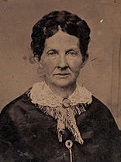
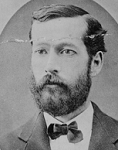





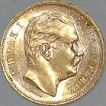





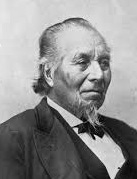




















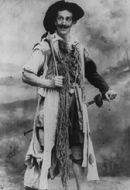
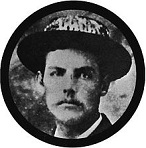


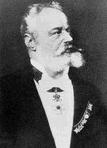





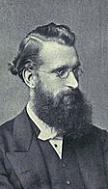




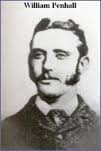










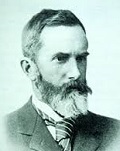
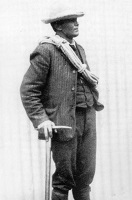
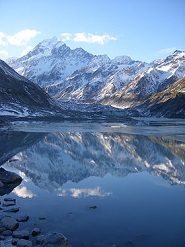

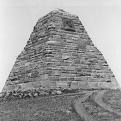




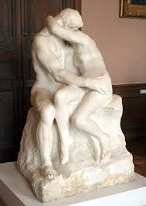
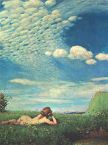
1882 Thank you, Waite Court? In 1882-1968 there are at least 4,743 lynchings in the U.S., 3,446 of them blacks; in 1889-1918 at least 3,224 people are lynched in the U.S., 2,552 of them blacks. Jewish immigration to the U.S. from Eastern Europe begins to greatly increase this year as mainly young people seek to escape the anti-Semitic stinkhole of Russia and Austria-Hungary; by 1927 80% of 4.2M U.S. Jews are of Eastern European origin. On Jan. 8 Britain and France issue a joint threat to intervene in the Orabi Rev. in Egypt on the side of the khedive against the nationalists, which only emboldens them, and in Feb. Ahmed Orabi becomes war minister in a new cabinet headed by Mahmud Sami al-Barudi, with the slogan "Egypt for the Egyptians", backed by the new Egyptian Nat. Party, leading to violent anti-European riots in Alexandria on June 1, in which many Europeans are killed; both France and Italy refuse Britain's plea to join them in fighting back, causing them to prepare to enter Egypt to fight the rebels alone. On Mar. 6 Paris-educated prince (since June 10, 1868) Milan Obrenovic (Obrenovich) IV (1854-1901) proclaims himself king of independent Serbia (until Mar. 6, 1889). The Earp legend continues, needing ever more detergent? On Mar. 18 Morgan Earp (b. 1851) is murdered while playing pool in Tombstone, Ariz. by members of the Clanton Gang, incl. Johnny Ringo; Earp brothers Wyatt and Virgil then begin the Earp Vendetta Ride, killing former Cochise Count sheriff and suspected stage robber Frank C. Stilwell (b. 1856) in the trainyards of Tucson, Ariz. as Morgan's body is being taken to Calif., then fleeing to Colo. in Apr.; on Mar. 24 after the Earp posse corners them in Iron Springs, Ariz., Wyatt Earp kills "Arizona's most famous outlaw" Curly Bill Brocius (b. 1845) in a shootout; James Earp, another Earp brother, is never involved with any of the shootouts but is later lumped in. On Mar. 23 the U.S. Congress, responding to moral outrage over the sexual practices of holier-than-thou Marry More and More Mens (Mormons) passes the U.S. Edmunds Anti-Polygamy Act, sponsored by U.S. Sen. (R-Vt.) (1866-91) George Franklin Edmunds (1828-1919), outlawing polygamy and "unlawful cohabitation", making most Mormon adults into instant criminals; 1.3K+ Mormon men are eventually imprisoned under this act. On Mar. 29 the monogamous-or-less Roman Catholic fraternal org. Knights of Columbus is chartered in the basement of St. Mary's Church on Hillhouse Ave. in New Haven, Conn. by Waterbury, Conn.-born Father Michael Joseph McGivney (1852-90) to provide insurance for Roman Catholic widows and orphans; at his death it has 6K members, growing to 1.7M by the end of the 20th cent. A dirty little coward provides the laundry booster for the legend of Mister Clean Jesse James? On Apr. 3 (Mon.) (22 years to the day after the Pony Express began there) while planning to rob the Platte City Bank, Mo., aging, married-with-kids living legend outlaw (son of a Baptist preacher) Jesse Woodson James (b. 1847) (whose portrait bears a striking resemblance to actor Kevin Norwood Bacon (1958-)?), living under the name of Tom Howard is assassinated in his house on Lafayette St. in St. Joseph, Mo. (shot in the back of the head as he stands on a chair to adjust a picture above the mantle) by gang member Robert Newton "Bob" Ford (1862-92) (whose portrait bears a striking resemblance to actor Leonardo DiCaprio (1974-)?) after he outdraws his brother Charles Wilson "Charley" "Charlie" Ford (1857-84), killing him with a gun Jesse gave to him as a gift, then telling the shocked widow he didn't do it or it was an accident; he later claims that Jesse just learned in the newspaper of the arrest three weeks earlier of former gang member Dick Liddil and connected it with them, then laid his guns down supposedly to avoid being spotted by neighbors, but really to throw the Fords off guard that he planned to kill them that night out of the presence of his wife and kids; after rushing to the telegraph office to claim the reward, then being arrested, pleading guilty and being convicted of murder and sentenced to hang, the Ford brothers are pardoned in two hours by Mo. gov. (1881-5) Thomas Theodore Crittenden (1832-1909) and given only a portion of their $5K reward (causing rumors that he had planned the murder with them), after which they tour the U.S. restaging the murder 800X (Bob can act, Charley can't?) (Bob's face becoming more recognizable than the president's?) after which Charley (who disputes his brother's protestations that he isn't a coward, falls out with him, and becomes wracked with guilt?) commits suicide on May 6, 1884, while Bob ends up being called a "dirty little coward" and widely hated, and Jesse becomes the American Robin Hood, after which drunken Bob is finally killed by a sawed-off shotgun in his saloon in Creede, Colo. on June 8, 1892; Jesse leaves widow (and 1st cousin) Zerelda Amanda "Zee" James (nee Mimms) (1845-1900) and two children, Jesse Edward and Mary James; Jesse's mother Zerelda denounces Dick Liddil at the coroner's inquest, accusing him of cooperating with Mo. authorities, and he later turns state's witness against Frank James; the cottage and the bullet hole in the wall become a tourist attraction; two days earlier Jesse attempted to change a $100 bill at the downtown Mo. State Bank, the oldest bank W of the Mississippi, possibly to case it for a heist; from 1875-1900 St. Jo, where East-West trade converged is one of the wealthiest cities in the U.S.; on Oct. 4 Frank James surrenders to Crittenden on condition of not being extradited to Northfield, Minn., and is tried in Gallatin, Mo. in July 1883 for the murder of stone mason Frank McMillan during a July 15, 1881 Rock Island Line train robbery near Winston; his Confederate cmdr. Gen. Joseph O. Shelby testifies in his defense drunk, and comes back the next day to apologize; on Sept. 6 after three days of summary arguments the jury returns a not guilty verdict in four hours; in Apr. 1884 he is acquitted by another jury in Huntsville, Ala. for the Mar. 11, 1881 robbery of a U.S. Army Corps of Engineers payroll at Muscle Shoals, Ala., and Frank becomes the only member of the James-Younger Gang to obtain an acquittal, going on to live to a ripe old age as a law-abiding citizen. On Apr. 1 Andy Adams goes on a cattle drive from the Rio Grande to Montana (ends in Sept.), and writes a journal; meanwhile John E. McDowell goes on a wagon train trip from Kansas to Washington state, and writes a journal. In Apr.-May after the English press reveals that his mistress had borne him children, Charles Stuart Parnell cops out and signs the Kilmainham Agreement (Treaty) in order to gain release from Kilmainham Jail, going back to working for Home Rule for Ireland; too bad, on May 6 the Fenians murder chief British secy. for Ireland, Lord Frederick Charles Cavendish (b. 1836) and his undersecy. Thomas Henry Burke (b. 1829) in Phoenix Park in Dublin in protest against the Coercion Act of 1881, and on Aug. 17 the Maamtrasna Murders of John Joyce and four members of his family take place, after which innocent non-English-speaking man Maolra Seoighe is hanged and four other innocent men jailed for life; Parnell distances himself from the radical Irish Nat. League and seems to be on the way to his dream until the Times of London pub. a forged letter in which he allegedly supports the murders, setting him back by making him fight it out in court to clear his name while Irish Home Rule goes down in Parliament; meanwhile the British respond by passing the Crimes Act of 1887, making the Coercion Act even more stringent. On May 6 English Queen Victoria gives 6K-acre Epping Forest in SE England between Greater London and Essex to the nation - so they Brits can forever play Robin Hood? On May 6 the U.S. Chinese Exclusion Act bans the importation of Chinese laborers to the U.S. for 10 years, since "the coming of Chinese laborers to this country endangers the good order of certain localities within the territory thereof"; too bad, it has the side-effect of altering the legal definition of U.S. citizenship, creating the concept of illegal alien, leading to passports; it isn't repealed until Dec. 17, 1943; meanwhile the N.M. Territory supreme court rules in Territory of New Mexico v. Yee Shun that Asians have the right to testify before a judge - here comes what right down Santa Claus lane? On May 10 the Alliance Colony Jewish agricultural community is founded in Pittsgrove Township, Salem County, N.J. after funding by the Baron de Hirsch Fund, named after the Alliane Israelite Universelle of Paris; by 1901 there are 151 adults and 345 children on 78 farms covering 1,886 acres; another Jewish agricultural colony is founded in Cumberland County, N.J.; too bad, they gradually fade away, while the Hirsch Villages founded in Israel blossom. On May 20 a 5-year Triple Alliance between Germany, Austria-Hungary, and Italy is signed in response to tensions with France (and later Russia), providing for aid by the other two if one of them is attacked by any other two great powers, or, for Germany and Italy, by France alone; Italy tells Britain that its actions are not to be regarded as directed against it; it is renewed until 1914. On May 22 the 9.3-mi.-long double-track Gotthard Rail Tunnel (begun Sept. 13, 1872) opens, becoming the first major railroad tunnel through the Alps. On June 6 8,878-ft. Mount Cinto, the highest peak in Corsica is scaled by Edouard Rochat; next May 26 English mountaineer Francis Fox Tuckett leads a party that ascends via Tuckett Pass. On June 16 a hailstone is found in Dubuque, Iowa measuring 17 in. (43.2 cm) and weighing 1.75 lb. (794 g). On June 30 pres. assassin Charles Julius Guiteau (b. 1841) is hanged after an 8-hour trial that incl. the passing around of Garfield's spine - Guiteau gets the galleaux? In June the Bank of Japan Act is passed, founding the Bank of Japan, which opens on Oct. 10. In June after balking at adopting white man's ways, 350 disgruntled Creeks under Ala.-born Chief Isparhecher (Ispaheche) (Spahecha) (1829-1902) based in Nuyaka, Okla. (near Okmulgee) begin a rebellion against the white-dominated Creek govt. in Indian Territory led by Checote, launching the Green Peach (Peach Orchard) War, and are defeated in Feb. 1883, after which a U.S. govt. commission meets with reps of both factions in Muskogee, holding an election for new chief on Sept. 3, which is won by Checote man Joseph Perryman, who mollifies loser Isparhecher by appointing him his rep in Washington, D.C. and recompensing him for his losses. In July after the fact that one of the 15 assassins of Tsar Alexander II, Gesya Gelfman (Hesya Helfman) was Jewish, causes pogroms, encouraged by his son Alexander III, starting on Apr. 15 in Elizavetgrad, the first group of the First Aliyah Jewish settlers, funded by French Rothschild banking family member Baron Edmond Benjamin James de Rothschild (1845-1934) ("the Famous Benefactor") arrives in Palestine from Kharkov, Russia, bringing 30K Jews from E Europe by 1904 to add to the 12K already there, dominated by Socialist Zionists who establish 23 kibbutzes (agricultural settlements); by 1914 2M Jews emigrate from Russia; the whole idea pisses off the Muslim Ottoman govt., which issues orders prohibiting Jewish settlement in Palestine, followed in 1892 by restrictions on purchasing land, although baksheesh-taking local officials look the other way; this year Lithuanian Jew Elieser (Eliezer) Ben-Yehuda (1858-1922) (original name Eliezer Yitzhak Perlman) emigrates to Palestine, dedicating himself to reviving Hebrew as a living language, and going on to pub. a Hebrew dictionary and coin new Hebrew words for modern living by transforming vernacular Arabic, causing Jewish to be adopted as the nat. language of Israel - he did what? In July Egyptian khedive Tawfik puts himself under the protection of British troops, who land in Egypt in Aug., and occupy it in Sept., making it a quasi-protectorate after sending an army into the Suez Canal and routing Col. Ahmed Orabi's nationalist army at the Battle of Tel El Kebir (Tel-el-Kebir) on Sept. 13, then occupying Cairo and defeating the nationalists; Orabi is exiled to Ceylon, and Tawfik is restored; Egypt maintains the legal fiction of Ottoman suzertainty until 1914; Britain controls Egypt for the next 40 years (until 1923) through its consul gen., although never actually declaring a protectorate, and announcing its intention of withdrawing as soon as order and good govt. have been restored, ending up occupying it for 72 years - did George Dubya learn anything from this? On Sept. 4 (3:00 p.m.) the Edison Electric Illuminating Co. opens the first commercial power plant in the U.S. on Pearl St. in Lower Manhattan, New York City. On Sept. 22 the Central Labor Union of New York City celebrates the first Labor Day ("devoted to no man, living or dead, to no sect, race or nation"), based on a proposal made by machinist Matthew Maguire, secy. of Local 344 of the Internat. Assoc. of Machinists in Paterson, N.J. (or Peter McGuire, gen. secy. of the Brotherhood of Carpenters and Joiners), marching from City Hall to Union Square (N of 14th St.) (named because Broadway and the Bowery used to join there, along with several trolley lines, not because of the federal union or labor unions); it is held again next year on the same date, then moved to the first Mon. in Sept. On Oct. 24 black man Charles Thurber is lynched in Grand Forks, N.D. for allegedly raping two white women. On Oct. 25 Pres. Arthur issues a proclamation, declaring Nov. 30 as Thanksgiving. On Oct. 26 the fishing village of Angoon in the panhandle of SE Alaska is shelled by U.S. gunboats during a whaling dispute; the U.S. govt. pays reparations of $90K in 1973 after the world's largest king salmon caught on sport tackle (87 lb.) is landed there in 1971. Who's going on the cannon and who's going on the crane? William Wallace's proud Scot heritage of fighting for their freedom continues in the Appalachian backwoods of the U.S.? On Nov. ? (Election Day) the Appalachian hillbilly families of William Anderson "Devil Anse" Hatfield of W. Va. and Randolph McCoy of Ky. begin the Hatfield and McCoy Feud after a McCoy accuses a Hatfield of stealing a pig, and three of McCoy's sons fatally shoot and stab Ellison Hatfield, causing Devil Anse Hatfield and his clan to get revenge by tying McCoys to pawpaw bushes along a riverbank and killing them; the feud ends in 1900 when Ellison Mounts, illegitimate son of Ellison Hatfield is hanged in Pikeville, Ky. for his part in a raid that kills two McCoys; did the McCoys have von Hippel-Lindau disease, possibly with pheochromocytomas (adrenal gland tumors), causing them to be easy to rile? In Nov. Am. journalist Charles Henry Dow (1851-1902), statistician (Brown U. dropout) Edward Davis Jones (1856-1920), and journalist Charles Milford Bergstresser (1859-1923) found Dow, Jones & Co. at 15 Wall Street in New York City; Bergstresser bankrolls the co. and acts as a silent partner, becoming known for how "He could make a wooden Indian talk, and tell the truth" (Jones). On Dec. 4 the U.S. Supreme (Waite) Court rules 5-4 in U.S. v. Lee that the U.S govt.'s seizure of Arlington House from the family of Confed. Gen. Robert E. Lee was illegal, returning it to them; next year they sell it back to the federal govt. for $150K. On Dec. 6 there is a rare Transit of Venus; Chile occupies Lima, confiscates Peruvian properties, and levies taxes to support its army, imposing Gen. Miguel Iglesias Pino de Arce (1830-1909) as pres. of Peru (until 1885); a neutral French fleet at Callao commanded by vice-adm. Abel-Nicolas Georges Henri Bergasse Dupetit Thouars (1832-90) (sent to pacify the Marquesas in 1880, which had been conquered by his uncle Abel Aubert Dupetit Thouars in 1842) saves Lima from being destroyed by threatening retaliation, making him a big hero and getting a street named after him. Bougainville Island in the Solomons comes under control of a German trading co. English explorers Sir Richard Burton and Verney Lovett Cameron visit Africa's Gold Coast in search of guess what. The Crash of 1882 almost causes the Paris Bourse to close. A Three-Mile Limit for territorial waters is agreed upon at The Hague Convention. The Married Women's Property Act gives married women in Britain the same property rights as unmarried women. Moscow stages the All-Russia Industry and Art Exhibition in Moscow. U.S. Supreme Court Justice Horace Gray hires the first U.S. Supreme Court Law Clerk; by modern times each associate justice is allowed four law clerks, and the chief justice five; seven have gone on eo become Supreme Court justices, incl. Byron White (Vinson, 1946-7), John Paul Stevens (Rutledge, 1947-8), William Rehnquist (Jackson, 1952-3), Stephen Breyer (Goldberg, 1963-4), John Roberts (Rehnquist, 1980-1), Elena Kagan (Marshall, 1987-8), and Neil Gorsuch (Kennedy and White, 1993-4); Alger Hiss, law clerk for Justice Oliver Wendell Holmes in 1929-30 is the only clerk convicted of federal felonies and sentenced to prison. The city of Regina (Lat. "Queen") in Saskatechewan, Canada (modern-day pop. 214K/236K) (originally Wascana = "Buffalo Bones" in Cree), named for Queen Victoria is established after being picked by Victoria's daughter Princess Louise, wife of the Marquess of Lorne, gov.-gen. of Canada; the capitol bldg. is at Victoria Ave. and Albert St.; the city of Saskatoon (Cree "place of many saskatoon berries") on the South Saskatechewan River in Saskatchewan, Canada (modern-day pop. 246K/295K) is founded by the Toronto-based Temperance Colonization Society as a dry community, going on to become the largest city in Saskatechewan. The town of Rifle, Colo. on Rifle Creek near its mouth on the Colorado River (40 mi. S of Meeker) is founded in former Ute country by Abram Maxfield, becoming a center for cattle ranching; it is incorporated on Aug. 18, 1905. Edward White Benson (1829-96), Queen Victoria's chaplain-in-ordinary in 1875 and bishop of Truro since 1876, who devised the Festival of Nine Lessons and Carols for Christmas Eve, 1880 is appointed archbishop of Canterbury (until 1896). The British Parliament enacts its first rule of cloture in order to silence pesky Irish Home Rule MPs, with 40 MPs being able to request the speaker to close debate; in 1887 this is changed to 200 MPs, or 100 MPs if the other side has less than 40 MPs. The London Chamber of Commerce is founded. Sussex, England-born William Herbert Purvis (1858-1950) introduces macadamia nuts to Hawaii as a windbreak for sugar cane using seeds from Australia, introducing the mongoose to control rats in 1883, which only turns them into pests too; in 1888 Charles Staff plants the first commecial macadamia orchard in Lismore, N.W.W., Australia; in 1910 the Hawaiian Agricultural Experiment Station calls for commercial planting of macadamias in the Kona district of the Big Island of Hawaii; in 1922 Ernest Van Tassel founds the Hawaiian Macadamia Nut Co. in Hawaii, leasing 75 acres on Round Top in Honolulu in 1825, and offering Van's Macadamia Nuts in 1931. Nine nations establish internat. polar stations for research. The Royal Polytechnic Inst. (originally The Polytechnic) in Upper Regent St., London is founded by Quintin Hogg to provide part-time education, becoming the first of many polytechnics. Aletta Henriette Jacobs (1854-1929), the first female univ. grad and first female physician in Holland founds the first known birth conrol clinic. French geographer Jean Jacques Elisee (Élisée) Reclus (1830-1905) founds the Anti-Marriage Movement in Switzerland and France, allowing his two daughters to marry without a civil or religious ceremony, pissing-off the French govt. into prosecuting him and fellow anarchist Peter Kropotkin (1842-1921), the latter getting five years while Reclus goes free. Scientists turn into intellectual whores when they visit mediums in an emotion-charged search for proof of the triple-axel-pyramidal trick of life after death? Now that the stage has been set by the demise of organized religion and the rise of organized science, Utilitarian philosopher Henry Sidgwick (1838-1901), glib classicist Frederic William Henry Myers (1843-1901) (coiner of the term "telepathy") et al. found the Society for Psychical Research in London England, giving a second chance for the boys who decided to get out of show business; Mark Twain (1835-1910), who had a recurring dream about his brother's death for 25 years joins; in 1885 new full prof. of philosophy Darwin's co-author Alfred Russel Wallace gets interested in spiritualism as a way to put a moral force into godless evolution and has a seance given by Scottish-born Conn. spiritual celeb Daniel Dunglas Home (1833-86), which shakes him up, although Robert Browning mocks him in his 1864 poem Mr. Sludge, the Medium; Boston housewife Leonora Piper (1857-1950) becomes a superstar medium, convincing Am. psychologist William James, British physicist Sir Oliver Lodge, and Australian psychical researcher Richard Hodgson (1855-1905), who spies on her during a 1888 blizzard in an attempt to expose her as a fraud, but is won over by a spiritual visit of a deceased friend; in 1900 Frederic Myers is convinced by new British medium Rosina Thompson (1868-?), who brings up the spirit of his dead lover Annie, embarrassing his wife, then accurately predicts his death within a year - first godless evolution, then a feeling of emptiness, and back to the old pagan demons, all within 30 years? British Gen. Charles George "Chinese" Gordon (1833-85), Queen Victoria's favorite gen., who had converted from Anglicanism to evangelical Christianity visits Palestine this year and next, and proposes that the site for Golgotha, where Christ was crucified was not N of the Holy Sepulchre, but near the Garden Tomb (unearthed in 1867), outside the Old City walls near the Damascus Gate, where a rocky escarpment looks like a skull, which is the real tomb of Christ were It Happened, not the traditional Holy Sepulchre. After graduating from Oxford U., Francis Robert "Frank" "F.R." Benson (1858-1939) makes his debut as Paris in Shakespeare's "Romeo and Juliet" in the Lyceum Theatre in London; in 1883 he founds his own co., which produces all but three of Shakespeare's plays, getting him knighted by George VI in 1916. Oscar Wilde makes his first visit to the U.S., and when asked if he had anything to declare, he replies "Nothing but my genius." A Statue of Robert Burns carved in Carrara marble from Italy is erected in Dumfries, Scotland. The Berlin Philharmonic Orchestra in Germany is founded. The Helsinki U. Chorus, Helsinki Philharmonic Orchestra, and Helsinki Music Inst. are founded, giving native Finnish Music a boost. The Princeton U. Art Museum in N.J. is founded. Charles U. in Prague is divided into separate German and Czech institutions. Mass. Inst. of Technology (MIT) establishes the first curriculum for electrical engineering within its physics dept. The Nat. Brewers' and Distillers' Assoc. is founded in Milwaukee, Wisc., home of Schlitz Brewing Co. The Matson Navigation Co., is founded by Swedish-born William Matson (Wilhelm Mattson) (1849-1917) (financed by his friend Claus Spreckels) to service the route between San Francisco, Calif. and Hawaii; its fleet of steamships grows to 14 by 1917. Architecture: White people in the Am. West create their own lost pyramid? The $65K Ames Monument, a 60-ft. granite pyramid is built by the Union Pacific Railroad between Cheyenne and Laramie, Wyo. (S of the Vedauwoo Balancing Rocks) to honor brothers Oakes Ames (1804-73) (the U.S. rep. from Mass. impeached in the Credit Mobilier scandal) and Oliver Ames Jr. (1807-77), who orchestrated the building of the first transcontinental railroad (and whose faces are carved on it by Augustus Saint-Gaudens facing E-W along the tracks), and sited at its highest point (8,247 ft.); Pres. Hayes attends the dedication ceremony; the nearby town of Sherman, where the train stops so that the helper engines can be removed becomes home to the railroad's board of dirs., who later leave after the track is rerouted (1902), causing it to become a ghost town; Oakes Ames' son Oliver Ames (1831-95) goes on to become Repub. gov. #35 of Mass. in 1887-90. Sports: The Am. Baseball Assoc. is founded (until 1891), challenging the NL for dominance incl. winning an early version of the World Series 7x. The Cincinnati Red Stockings baseball team wins its first AA title, going on to play the first game of the season at home nearly every year through 2008. The New York Gothams baseball time is founded, becoming the first ML team based in New York City, playing at the Polo Grounds, changing their name in 1886 to the New York Giants and developing a rivalry with the Brooklyn Dodgers. In June the Seventh-Inning Stretch is allegedly invented by Brother Jasper Brenna of Mary, F.S.C., coach at Manhattan College in N.Y. in a game against the semi-pro Metropolitans. We're old and gruff, we're not young and buff? Boston, Mass.-bred John Lawrence Sullivan (1858-1918) defeats Paddy Ryan (champ since 1880) on Feb. 7 in Mississippi City, Miss. in round 9 to win the heavyweight (bare knuckle) boxing title (until 1892). On Sept. 29 the U. of Minn. Golden Gophers football team plays its first game, defeating Hamline U. 4-0; in 1890 they defeat the rival U. of Wisc. Badgers 63-0. On Nov. 30 (Thur.) (Thanksgiving) after Yale and Princeton tie 0-0 for the last 3 years, the student-run Intercollegiate Football Assoc. holds its first Thanksgiving Day Championship Game, starting a tradition. Irish mountaineer Rev. William Spotswood Green (1847-1919) makes an unsuccessful attempt with two Swiss guides of 12,349 ft. (3,764m) Mount Cook (Aoraki), highest mountain in New Zealand; on Dec. 25, 1894 a party led by Kiwi mountaineer Thomas Camperdown "Tom" Fyfe (1870-1947) becomes the first to climb it; too bad, in Dec. 1991 a rockslide reduces its height to 12,218 ft. (3,724m). Inventions: The Bordeaux Mixture, the first herbicide (fungicide) (also an insecticide) is developed in France from lime and copper sulfate (bluestone); the usual formula is 4 lb. of each in 50 gal. of water; Parqauat (made from sodium, anhydrous ammonia, and chloromethane) is first synthesized; its herbicidal properties aren't recognized until 1955, and it is first marketed commercially for weed killing in 1961. The first Flip-Book Cartoons are patented in the U.S. by ? Am. inventor Amos Emerson Dolbear (1837-1910) patents a wireless telegraph that uses ground transmission up to a distance of 0.5 mi., then in 1886 patents a voice transmission system, preventing Guglielmo Marconi from operating in the U.S. until he buys him out. Thomas Edison designs the first hydroelectric plant in Appleton, Wisc. on the Fox River. The first Electric Cristmas Tree Lights are invented by Edward H. Johnson, vice-pres. of the Edison General Electric Co.: 80 red, white, and blue lights made and wired by hand. Alfred Nobel patents Ballistite, a smokeless gunpowder made from nitrocellulose and nitroglycerine, stabilized with diphenylamine; it is found to be good for rocket motors. Buffalo, N.Y. dentist A.P. Southwick first suggests the Electric Chair to replace hanging - he oughta know, he's tried? Schuyler Skaats Wheeler (1860-1923) invents the 2-blade electric fan. The modern Cream Separator is invented by ?. Science: After studying a horse parasite, Belgian biologist Edouard Van Beneden (1846-1910) discovers that every species has a characteristic number of chromosomes. Viennese physician Joseph Breuer (1842-1925) uses hypnosis to treat hysteria, founding the field of Psychoanalysis; meanwhile French neurologist Jean-Martin Charcot (1825-93) sets up the first neurology clinic in Salpetriere, where he loves to exhibit hysterical women, esp. "Blanche" (Marie Wittman), and grooms French-Polish student Joseph Jules Francois Felix Babinski (1857-1932) - here's how to turn porno into respectable science? Carl Langenbuch (1846-1901) of Germany performs the first Cholecystectomy (gall bladder removal). The first known specimen of Grevy's Zebra is sent to French pres. Jules Grevy, and named in his honor. Heinrich Hermann Robert Koch (1843-1910), prof. at the Berlin School of Medicine isolates the tuberculosis (TB) bacillus. German mathematician Carl Louis Ferdinand von Lindemann (1852-1939) proves that pi is transcendental (non-algebraic), i.e., not the root of any algebraic equation with rational coefficients, although, duh, irrational numbers such as the square root of 2 can be algebraic (solution of x^2 - 2 = 0). French chemist Francois-Marie Raoult (1830-1901) pub. Raoult's Law of freezing point depression of solutions by solutes. Nonfiction: Henry Brooks Adams (1838-1918), Life of John Randolph. Matthew Arnold (1822-88), Culture and Anarchy; Literature and Science. Mikhail Bakunin (1814-76), God and the State (posth.); written in 1871, it is discovered after his death, in an unfinished state, like all his work - after all, he's an anarchist? Bruno Bauer (1809-82), Disraeli's Romanticism and Bismark's Socialist Imperialism. Annie Besant (1847-1933), All Sorts and Conditions of Men. Wilfred Scawen Blunt (1840-1922), The Future of Islam; Islam is archaic and on the way out?; "Islam, if she relies only on the sword, must in the end perish by it, for her forces, vast as they are, are without physical cohesion, being scattered widely over the surface of three continents and divided by insuperable accidents of seas and deserts; and the enemy she would have to face is intelligent as well as strong, and would not let her rest." Daniel Garrison Brinton (1837-99), American Hero-Myths. Library of Aboriginal American Literature (8 vols.) (1882-90). Ferdinand Buisson (1841-1932), Dictionnaire de Pédagogie et d'Instruction Primaire (1882-7); becomes the Bible of the secular republican French educational system. Moncure D. Conway (1832-1907), Emerson at Home and Abroad; Travels in South Kensington, with Notes on Decorative Art and Architecture in England; Lessons for the Day, Delivered Before the South Place Religious Society (2 vols.). Mandell Creighton (1843-1901), A History of the Papacy During the Period of the Reformation (5 vols.) (1882-94). William Cunningham (1849-1919), Growth of English Industry and Commerce in Modern Times; becomes std. work. Ignatius Loyola Donnelly (1831-1901), Atlantis: The Antediluvian World; starts Atlantis mania; "Who shall say that one hundred years from now the great museums of the world may not be adorned with gems, statues, arms, and implements from Atlantis, while the libraries of the world shall contain translations of its inscriptions, throwing new light upon all the past history of the human race, and all the great problems which now perplex the thinkers of our day?" Queen Elizabeth of Romania (1843-1916), Pensees d'une Reine (autobio.). Anselm von Feuerbach (1829-80), Ein Vermachtnis von Anselm Feuerbach (autobio.) (posth.). James Anthony Froude (1818-94), Thomas Carlyle (2 vols.) (1882-4); incl. "A History of the First Forty Years of His Life", "A History of His Life in London, 1834-1881"; causes a war with Carlyle's niece Mrs. Alexander Carlyle, who doesn't want his dirty laundry aired. Pat Garrett (1850-1908), The Authentic Life of Billy, the Kid (Apr.); a flop. H. Rider Haggard (1856-1925), Cetywayo and His White Neighbours: Remarks on Recent Events in Zululand, Natal and the Transvaal. Henry Houssaye (1848-1911), The Number of Citizens of Athens in the Fifth Century B.C.E.. William Stanley Jevons (1835-82), The State in Relation to Labour. Fanny Kemble (1809-93), Records of Later Life; Notes on Some of Shakespeare's Plays. Heinrich Laube (1806-84), Erinnerungen, 1841-1881) (autobio.). William Morris (1834-96), Hopes and Fears for Art. John Ballou Newbrough (1828-91), Oahspe: A New Bible; produced by a Mohicanville, Ohio-born dentist via automatic writing; how "aliens" or "angels" traveled in "fire-ships" to transplant animals, plants, and humans through the Universe and revealed the name of "Jehovih"; in 1884 he founds the "Faithist" colony of Shalam in Las Cruces, N.M., which houses orphaned city children in a 20-room house built in 1890; it folds in 1901. Friedrich Nietzsche (1844-1900), The Joyful (Gay) Science (Die Frohliche Wissenschaft); introduces the Death of God, Eternal Recurrence (Return), and the Ubermensch (Übermensch) (Superman) (Overman). Maffeo Pantaleoni (1857-1924), Theory of Tax Shifting; an analysis of tax incidence, founding Public Choice Theory. Walter Herries Pollock (1850-1926), Songs and Rhymes: English and French. Ernest Renan (1823-92), Q'est-ce qu'une Nation?; speech delivered on Mar. 11 at the Sorbonne. Theodore Roosevelt (1858-1919), The Naval War of 1812; or The History of the United States Navy During the Last War with Great Britain to Which Is Appended an Account of the Battle of New Orleans (first book); becomes a std. work, establishing his rep. Philip Schaff (1819-93), History of the Christian Church (8 vols.); "Jesus Christ, the God-Man, the prophet, priest, and king of mankind, is, in fact, the centre and turning-point not only of chronology, but of all history, and the key to all its mysteries. Around him, as the sun of the moral universe, revolve at their several distances, all nations and all important events, in the religious life of the world; and all must, directly or indirectly, consciously or unconsciously, contribute to glorify his name and advance his cause." Philip Schaff (1819-93) and Johann Jakob Herzog (1805-82) (eds.), The Schaff-Herzog Encyclopedia of Religious Knowledge (1882-4). Horace Elisha Scudder (1838-1902), Noah Webster. William Sharp (1855-1905), Dante Gabriel Rossetti: A Record and Study. Leslie Stephen (1832-1904), The Science of Ethics. William Graham Sumner (1840-1910), Andrew Jackson As a Public Man. Leo Tolstoy (1828-1910), A Confession; about his midlife existential crisis and religious awakening. Aubrey Thomas de Vere, The Foray of Queen Maeve and Other Legends of Ireland's Heroic Age. Music: Edmond Audran (1842-1901), Gillette de Narbonne (Paris). Ernest Chausson (1855-99), Poeme de l'Amour e de la Mer, Op. 19; lyrics by M. Bouchor. Claude Debussy (1862-1918), Le Printemps (orchestral suite). Sir William Schwenck Gilbert (1836-1911) and Sir Arthur Sullivan (1842-1900), Iolanthe (London) (comic operetta #7); satires the British House of Lords. Charles Gounod (1818-93), La Redemption (oratorio) (Birmingham). Karl Millocker (1842-99), Der Bettelstudent (The Beggar Student) (operetta) (Theater an der Wien, Vienna) (Dec. 6) (5K perf.); libretto by Friedrich Zell (under alias Camillo Walzel) and Richard Genee; based on "Les Noces de Fernande" by Victorien Sardou and "The Lady of Lyons" by Edward Bulwer-Lytton. O.W. Norton, Taps; replaces "Extinguish the Lights" in the U.S. Army. Nikolai Rimsky-Korsakov (1844-1908), The Snow Maiden (opera) (St. Petersburg). Pat Rooney, The Life of Reilley; "Is that Mr. Reilly that owns the hotel?/ Well, if that's Mr. Reilly, they speak of so highly,/ Upon me soul, Reilly, you're doin' quite well." Peter Tchaikovsky (1840-93), The 1812 Overture; calls it "loud and noisy". Richard Wagner (1813-83), Parsifal (opera) (Beyreuth) (July 26) (last opera); Parsifal, a "pure fool" is seduced by Kundry, female slave of evil magician Klingsor, but kills him and recovers the Spear of Christ to vindicate King Amfortas, knight of the Holy Grail; by tradition there is no applause after the first act because it's a "Buhnenweihfestspiel" (festival play for the consecration of the stage). Art: George Henry Boughton (1833-1905), Weeding the Garden. Paul Cezanne (1839-1906), Self-Portrait. Jean-Leon Gerome (1824-1904), The Tulip Folly. Jule Joseph Lefebvre (1836-1911), The Japonaise; Pandora. Edouard Manet (1832-83), Bar aux Folies-Bergere. Auguste Rodin (1840-1917), The Kiss; sculpture of Paolo and Francesca da Ramini inspired by Dante's "Inferno" (Circle 2, Canto 5); Paolo holds a copy of "Lancelot and Guinevere"; the lovers' lips do not touch because Paolo's brother Giovnni Malatesta (Francesca's hubby) murders them; shows the woman as an active partner, not totally submissive, outraging Victorian society; displayed at the 1889 Paris Exposition Universelle, and at the 1893 World's Columbian Exposition in Chicago, Ill. in a guarded chamber; many copies are made by Rodin in bronze, terracotta, and plaster; the sculpture supposedly brings the era of classical art to an end; Rodin calls it "complete in itself and artificially set apart from the surrounding world." John Singer Sargent (1856-1925), The Daughters of Edward D. Boit. Pal Szinyei-Merse (1845-1920), Lark. Plays: F. Anstey, Vice Versa. (Am. RepertoryLes Corbeaux. Henry Becque (1837-99), Les Corbeaux. Bronson Crocker Howard (1842-1908), Young Mrs. Winthrop. Victor Hugo (1802-85), Torquemada. Henrik Ibsen (1828-1906), An Enemy of the People; written while living in Rome; Dr. Stockman criticizes the town's draining system and is stifled. Henry Arthur Jones (1851-1929) and Henry Herman, The Silver King (Nov.); a hit, allowing Jones to retire from being a traveling salesman. Joaquin Miller (1837-1913), The Danites; based on his novel. George Bernard Shaw (1856-1950), Widowers' Houses (first play); Cashel Byron's Profession. Victorien Sardou (1831-1908), Fedora (Fédora); stars Sarah Bernhardt as Princess Fedora Romazov, who wears a center-creased soft-brimmed felt hat that starts a fashion trend that really picks up after Prince Edward of Wales starts wearing them in 1924, although Orthodox and Haredi Jews begin wearing black fedoras in the early 1900s; debuts in the U.S. in 1889. Poetry: Bronson Alcott (1799-1888), Sonnets and Canzonets. Giosue Carducci (1835-1907), Giambi ed Epodi. Eugene Field (1850-95), The Denver Tribune Primer. Paul Hamilton Hayne (1830-86), Collected Poems. Robert Hamerling (1830-89), Amor una Psyche. Andrew Lang (1844-1912), Helen of Troy. Andrew Lang (1844-1912), Walter Leaf (1852-1927), and Ernest James Myers (tr.), Homer's Iliad. George Moore (1852-1933), Pagan Poems; written in Paris. Sir Lewis Morris (1833-1907), Poetical Works. William Sharp (1855-1905), The Human Inheritance, The New Hope, Motherhood and Other Poems (debut). Edward Rowland Sill (1841-87), The Venus of Milo, and Other Poems. Algernon Charles Swinburne (1837-1909), Tristram of Lyonesse. Novels: Pedro Antonio de Alarcon (1833-91), La Prodiga. Jules Amedee Barbey d'Aurevilly (1808-89), The Story without a Name (Une Histoire sans Nom). Walter Besant (1836-1901), All Sorts and Conditions of Men (3 vols.); The Revolt of Man; gender roles reversed. Louis Henri Boussenard (1847-1910), Les Robinsons de la Guyane. Francis Marion Crawford (1854-1909), Mr. Isaacs (first novel). Felix Dahn (1834-1912), Short Novels of the Migrations (13 vols.) (1882-1901). William Clark Falkner (1825-89), The Little Brick Church. Theodor Fontane (1819-98), L'Adultera; about adultery; takes two years to find a publisher. Renato Fucini (1843-1921), Le Veglie di Neri: Paesi e Figure della Campagna Toscana. Theophile Gautier (1811-72), One of Cleopatra's Nights and Other Fantastic Romances (posth.) (short stories); tr. by Lafcadio Hearn. Karl Gjellerup (1857-1919), The German Student; a young Dutchman goes from a theologian to a Pro-German atheist intellectual. Edmond de Goncourt (1822-96), La Faustin. Ludovic Halevy (1834-1908), L'Abbe Constantin; big hit. Thomas Hardy (1840-1928), Two on a Tower; bored Lady Viviette Constantine hooks up with amateur astronomer Swithin St. Cleeve, who makes her pregnant, then dumps her for organist Tabitha Lark. Margaret Wolfe Hungerford (1855-97), Portia; or By Passions Rocked. J.K. Huysmans (1848-1907), A Vau-l'Eau. Jens Peter Jacobsen (1847-85), Mogens and Other Tales. Richard Jefferies (1848-87), Bevis; sequel to "Wood Magic" (1881). Emily Lawless (1845-1913), A Chelsea Householder (first novel). Pierre Loti (1850-1923), Les Trois Dames de la Kasbah. Conrad Ferdinand Meyer (1825-98), Gustav Adolf's Page. Kalman Mikszath (1847-1910), The Good People of Paloc; Paloc is the home of Hungary's largest ethnic minority; coins the phrase "The Slovak kinsmen and the good people of Paloc"; spawns Paloc Soup. Petroleum V. Nasby (1833-88), Nasby in Exile. Margaret Oliphant (1828-97), A Little Pilgrim in the Unseen. Ouida (1839-1908), Bimbi: Stories for Children. Raffi (1835-88), David Bek. Robert Louis Stevenson (1850-94), The New Arabian Nights; Prince Florizel; Treasure Island (original title "The Sea-Cook"); narrated by Jim Hawkins; pirate Ben Gunn is marooned there, and digs up the treasure; the first thing he wants when he sees Hawkins is a piece of cheese; the "Black Spot" is ?iven to announce a death verdict, and causes Billy Bones to suffer a fatal stroke; when Long John Silver gets one, he yawns it off and points out that it's a no-no to tear one out of a Bible; Capt. Smollett's 200-ton ship the Hispaniola; Long John Silver is based on amputee poet friend William Ernest Henley (1849-1903), author of Invictus; it all starts when Stevenson draws a treasure map for his stepson?; "15 men on a dead man's chest, yo-ho-ho and a bottle of rum". Frank Richard Stockton (1834-1902), The Lady, or the Tiger? August Strindberg (1849-1912), The New Country; Swedish Destiny and Adventure (short stories) (1882-91). Anthony Trollope (1815-82), The Fixed Period. Mark Twain (1835-1910), The Prince and the Pauper; Tom Conty is the dead ringer of Prince Edward in the 1500s. Jules Verne (1828-1905), School for Crusoes (Godfrey Morgan: A Californian Mystery); based on Daniel Defoe's "Robinson Crusoe" (1719); Godfrey Morgan and his teacher Prof. T. Artelett leave San Francisco, Calif. on a round-the-world ocean voyage, and end up as castaways on an uninhabited island in the Pacific, where they later encounter African slave Carefinotu, brought by cannibals. Births: Czech journalist-novelist Ivan Olbracht (Kamil Zeman) (d. 1952) on Jan. 6 in Semily; son of Antal Stasek. U.S. Rep. (D-Tex.) (1913-61) and House Speaker (1940-7, 1949-53, 1955-61) Samuel "Mister Sam" Taliaferro Rayburn (d. 1961) on Jan. 6 in Roane County, Tenn.; grows up poor, and dies with modest means despite all the chances to go on the take; coiner of the term "Sun Belt". English "Garrison Follies" comedian-producer Barry Lupino (George Barry Hook) (d. 1962) on Jan. 7 in London; brother of Stanley Lupino (1893-1942). English "Sea Hawk" actor Milton Sills (d. 1930) on Jan. 12 in Chicago, Ill. Am. "The Story of Mankind" juvenile historian-journalist Hendrik Willem van Loon (d. 1944) on Jan. 14 in Rotterdam, Netherlands; emigrates to the U.S. in 1903; educated at Cornell U. Am. "Sgt. Gonzales in The Mark of Zorro" actor Noah Beery Sr. (Noah Nicholas Beery) (d. 1946) on Jan. 17 in Kansas City, Mo.; father of Noah Beery Jr. (1916-94); brother of actor Wallace Beery (1885-1949); both brothers die on April Fool's Day? Am. 1919 Black Sox World Series Scandal crime boss (Jewish) Arnold "the Brain" Rothstein (d. 1928) on Jan. 17 in New York City. English "Winnie the Pooh" playwright-novelist and children's writer A.A. (Alan Alexander) Milne (d. 1956) on Jan. 18 in Kilburn, London; Scottish father; father of Christopher Robin Milne (1920-96); educated at Westminster School, and Trinity College, Cambridge U. Am. mobster John (Giovanni) "Papa Johnny" "The Fox" "The Immune" Torrio (d. 1957) on Jan. 20 in Irsina, Basilicata, Italy; emigrates to the U.S. in 1902. French "The War of the Buttons" novelist-poet Louis Pergaud (d. 1915) on Jan. 22 in Belmont, Doubs. English "Mrs. Dalloway", "To the Lighthouse", "Orlando" writer-novelist (bi) (bipolar?) "Who's Afraid of" (Adeline) Virginia Woolf (nee Stephen) (d. 1941) on Jan. 25 in Kensington, Middlesex,London; daughter of philosopher Sir Leslie Stephen (1832-1904); wife (1912-) of "penniless Jew" Leonard Woolf (1880-1969); educated at King's College, London; member of the Bloomsbury Group, based in her house at 46 Gordon Square; likes to write standing up - and pee how? British naval attache Capt. Francis Newton Allen Cromie (d. 1918) on Jan. 30 in Ireland. Please allow me to introduce myself, I'm a man of wealth and taste? U.S. pres. #32 (1933-45) (Freemason) (philatelist) (America's answer to Stalin?) Franklin Delano Roosevelt (d. 1945) on Jan. 30 [Aquarius] in Hyde Park, N.Y.; only child of James Roosevelt (1828-1900) and Sara Ann Roosevelt (1854-1941); related to Theodore Roosevelt (1858-1919), whose father Isaac was a 4th-gen. descendant of Nicholas Roosevelt (1658-1742), a 6th-gen. ancestor of Teddy (5th cousins); also related to Salem Witch Trials judge William Stoughton (1631-71), whose mother Mary Rebecca Aspinwall (1809-86) was a 6th-gen. descendant of his sister Rebecca; born into an aristocratic family, he becomes a mama's boy, and is home schooled until age 14, parting his hair in the middle; attends Groton Academy in Mass.; educated at Harvard U., and Columbia U.; one of the most loved and most hated men in U.S. history? - going straight on, straight on for you? Czech "Robinsonka" novelist Marie Majerova (Majerová) (d. 1967) on Feb. 1 in Uvaly. Canadian PM #12 (1948-57) Louis Stephen (Louis-Etienne) St. Laurent (d. 1973) on Feb. 1 in Compton, Quebec. Greek-Danish Schleswig-Holstein-Sonderburg-Glucksburg prince Andrew (d. 1882) on Feb. 2 (Jan. 20 Old Style) in Athens; 4th son of George I (1845-1913) and grand duchess Olga Konstantinova (1851-1926); husband (1903-) of Princess Alice of Battenberg (1885-1969); father of Prince Philip, duke of Edinburgh (1921-). Irish Joycean "Ulysses", "Finnegans Wake" novelist-poet (alcoholic) James Augustine Aloysius Joyce (d. 1941) on Feb. 2 in Rathgar, Dublin; eldest of 10 children; educated at University College, Dublin; likes to write while lying on his stomach wearing a white coat and using large blue pencils. Canadian poet Edwin John Pratt (d. 1964) on Feb. 4 in Western Bay, Newfoundland. Am. 5'9" college basketball coach-player Harold A. "Harry" Fisher (d. 1967) on Feb. 6 in New York City; educated at Columbia U. Am. economist-ambassador Henry Francis Grady (d. 1957) on Feb. 12 in San Francisco, Calif.; educated at Columbia U. U.S. Dem. First Lady (1945-53) Bess Wallace Truman (nee Elizabeth Virginia Wallace) (d. 1982) on Feb. 13 in Independence, Mo.; wife (1919-72) of Harry S. Truman (1884-1972). Am. "American Mercury" mag. co-founder George Jean Nathan (d. 1958) on Feb. 14 in Ft. Wayne, Ind.; known for hypercritical acid-tinged prose. Am. "Grand Hotel", "Dinner at Eight" actor ("the Great Profile") John Barrymore (John Sidney "Jack" Blyth) (d. 1942) on Feb. 15 in Philadelphia, Penn.; son of Maurice Barrymore (1849-1905) and Georgiana Drew (1856-90); brother of Lionel Barrymore (1878-1954) and Ethel Barrymore (1879-1959); husband of Dolores Costelo (1903-79); father of John Drew Barrymore (1932-2004); grandfather of Drew Barrymore (1975-); gives up the stage for Hollywood in 1926 at age 44. Paraguayan pres. (1949-54) Federico Chavez Careaga (d. 1978) on Feb. 15 in Paraguari; Portuguese father. Romanian Gen. Petre Dumitrescu (d. 1950) on Feb. 18 in Dobridor, Dolj. Am. sociologist Emory Stephen Bogardus (d. 1973) on Feb. 21 near Belvidere, Ill. English typographer-artist-critic-philosopher Arthur Eric Rowton Gill (d. 1940) on Feb. 22 in Brighton, East Sussex; known for carving inscriptions on tombstones, for his Gill-Sans and Perpetua typefaces, for his devout Roman Catholic philosophy, and sexual perversions. Mystery "The Death Ship", "The Treasure of the Sierra Madre" novelist (in Mexico) B. Traven (d. 1969) on Feb. 23 (Feb. 25?) (May 3, 1890?) in ?. U.S. Rep. (D-Tex.) (1917-40) and federal judge John Marvin Jones (d. 1976) on Feb. 26 near Valley View, Tex.; educated at Southwestern U., and UTA. Am. Pearl Harbor patsy Adm. Husband Edward Kimmel (d. 1968) on Feb. 26 in Henderson, Ky. U.S. Sen. (D-Mont.) (1923-47) Burton Kendall Wheeler (d. 1975) on Feb. 27 in Hudson, Mass. Am. operatic soprano and silent film actress Geraldine Farrar (d. 1967) on Feb. 28 in Melrose, Mass. Am. Ponzi Scheme swindler Charles (Carlo) K. Ponzi (d. 1949) on Mar. 3 in Lugo, Italy; emigrates to the heaven-heartache-and-the-power-of-love U.S. in 1903. Am. "Captain Blood", "42nd Street", "Mr. Smith Goes to Washington" actor Guy Bridges Kibbee (d. 1956) on Mar. 6 in El Paso, Tex. Bolivian pres. (1930-1) Gen. Carlos Blanco Galindo (d. 1943) on Mar. 12 in Cochabamba. Polish "Sierpinski Carpet" mathematician Waclaw Franciszek Sierpinski (d. 1969) on Mar. 14 in Warsaw. Am. Olympic runner James Davies "Jim" Lightbody (d. 1953) on Mar. 16 in Pittsburgh, Penn. Italian "Rispetti e Strombotti" composer Gian Francesco Malipiero (d. 1973) on Mar. 18 in Venice. Am. "Standing Woman" fat-women-are-cool sculptor Gaston Lachaise (d. 1935) on Mar. 19 in Paris; emigrates to the U.S. in 1906; known for his massively proportioned nude babes. Polish PM #13 (1925-6) Count Alexander (Aleksander) Jozef Skrzynski (d. 1931) on Mar. 19 in Zagorzany, Gorlice County. German mathematician Emmy Amalie Noether (d. 1935) on Mar. 23. Am. Samsonite Co. founder (Jewish)Jesse Shwayder (d. 1970) on Mar. 26 in Black Hawk, Colo.; of Polish-Jewish descent. English Freudian child psychologist (Jewish) (co-founder of Object Relations Theory) Melanie Reizes Klein (d. 1960) on Mar. 30 in Vienna, Austria; emigrates to England in 1926; believes that brats start out in the paranoid-schizoid phase, followed by the depressive phase, and construct elaborate "phantasies" about the "good breast" and the "bad breast"; "The dominant aim is to possess himself of the contents of the mother's body and to destroy her by means of every weapon which sadism can command" - mother jokes here? Am. Socialist labor leader (Jewish) Rose Schneiderman (d. 1972) on Apr. 6 in Saven, Poland; emigrates to the U.S. in 1890. German chancellor (1932-3) gen. Kurt von Schleicher (d. 1934) on Apr. 7 in Brandenburg an der Havel. U.S. labor secy. #4 (1933-45) (first woman U.S. cabinet member) Frances Coralie Perkins (d. 1965) on Apr. 10 in Boston, Mass.; educated at Mount Holyoke College, and Columbia U. Austrian Vienna Circle philosopher (father of Logical Positivism) Moritz Schlick (d. 1936) on Apr. 14 in Berlin. Am. "The Bridge of San Luis Rey" dir. Charles J. Brabin (d. 1957) on Apr. 17 in Liverpool; husband (1921-55) of Theda Bara (1885-1955). Am. "Web of Government" sociologist Robert Morrison MacIver (d. 1970) on Apr. 17 in Stornoway, Isle of Lewis, Scotland; educated at the U. of Edinburgh, and Oxford U. Am. pianist-composer (Jewish) Arthur (Artur) Schnabel (d. 1951) on Apr. 17 in Kunzendorf, Bielitz, Galicia, Silesia; emigrates to the U.S. in 1939; pupil of Theodor Leschetizky; father of Karl Ulrich Schnabel (1909-2001) and Stefan Schnabel (1912-99). British diplomat-politician (Roman Catholic turned Christian Scientist) Philip Henry Kerr, 11th Marquess of Lothian (d. 1940) on Apr. 18 in London. Am. Lilienfeld Radiation physicist (Jewish) Julius Edgar Lilienfeld (d. 1963) on Apr. 18 in Lemberg, Galicia, Austria-Hungary; emigrates to the U.S. in 1927; becomes a U.S. citizen in 1934; inventor of the electrolytic capacitor and field-effect transistor. Anglo-Am. "Disney's Fantasia" baton-eschewing Philadelphia Orchestra conductor Leopold Anthony Stokowski (Antoni Stanislaw Boleslawowicz) (d. 1977) on Apr. 18 in London (Cracow, Poland?); Polish father, Irish mother; educated at the Royal College of Music, and Queen's College, Oxford U.; emigrates to the U.S. in 1905; known for his lionlike mane of hair. Brazilian pres. (1930-45, 1950-4) Getulio Dornelles Vargas (d. 1954) on Apr. 19. U.S. Marine Corps Gen. Holland McTyeire "Howlin' Mad" Smith (d. 1967) on Apr. 20 in Seale, Ala. Am. high pressure physicist Percy Williams Bridgman (d. 1961) on Apr. 21 in Cambridge, Mass.; educated at Harvard U. English "The Eagle" composer-conductor Albert Coates (d. 1953) on Apr. 23 in St. Petersburg, Russia; English father, Russian mother; no relation to Eric Coates (1886-1957). British air chief marshal (RAF cmdr. during the Battle of Britain) Hugh Caswell Tremenheere "Stuffy" Dowding, 1st Baron Dowding (d. 1970) on Apr. 24 in Moffat, Scotland. French artist Edouard Leon Cortes (d. 1969) on Apr. 26. Am. "Comedy: American Style" Harlem Renaissance novelist-poet-writer (black) Jessie Redmon Fauset (d. 1961) on Apr. 27 in Fredericksville, N.J.; educated at Cornell U. (first black woman Phi Beta Kappa); mother of Arthur Fauset (1899-1983). Am. "Kings Row" novelist Heinrich Hauer "Henry" Bellamann (d. 1945) on Apr. 28 in Fulton, Mo. Italian tire manufacturer Alberto Pirelli (d. 1971) on Apr. 28 in Milan. U.S. Supreme Court justice #82 (1941-2), U.S. secy. of state #49 (1945-7), and Dem. S.C. gov. #104 (1951-5) (Episcopalian-turned-Roman Catholic) James Francis Byrnes (d. 1972) on May 2 in Charleston, S.C.; irish-Am. mother. Puerto Rican activist Isabel Gonzalez (d. 1971) on May 2 in San Juan. Australian geologist and antarctic explorer Sir Douglas Mawson (d. 1958) on May 5; knighted in 1912. English Communist suffragist Estelle Sylvia Pankhurst (d. 1960) on May 5 in Manchester; daughter of Richard Marsden Pankhurst (1834-98) and Emmeline Pankhurst (1858-1928); sister of Christabel Pankhurst (1880-1958) and Adela Pankhurst (1885-1961). German Prussian Hohenzollern crown prince (last) Wilhelm (William) (Friedrich Wilhelm Viktor Augustus Ernst) (d. 1951) on May 6 in Marmorpalais, Potsdam, Brandenburg; eldest son of Wilhelm II (1859-1941) and 1st wife Augustus Viktoria of Schleswig-Holstein (1858-1921); father of Prince Wilhelm (1906-40) and Prince Louis Ferdinand (1907-94). Am. Liberty Ship industrialist Henry John Kaiser (d. 1967) on May 9 in Sprout Brook, N.Y.; German immigrant parents; father of Edgar Fosburgh Kaiser Sr. (1908-81). Austrian "Romantic Piano Concerto" composer Joseph Rupert Rudolf Marx (d. 1964) on May 11 in Graz; known for his cordial relations with the Nazis. French Fauve artist and Cubism co-founder (with Picasso) ("if it ain't a Picasso it's his") Georges Braque (d. 1963) on May 13 in Argenteuil-sur-Seine; grows up in Le Havre. Am. silent film actress Betty Harte (Daisy Mae Light) (d. 1965) on May 13 in Lebanon, Penn. Am. historian and U.S. ambassador (to Spain) (Roman Catholic) ("Father of Nationalism") Carlton Joseph Huntley Hayes (d. 1964) on May 16 in Afton, N.Y.; educated at Columbia U. Am. baseball pitcher (Pittsburgh Pirates) Charles Benjamin "Babe" Adams (d. 1968) on May 18 in Tipton, Ind. Iranian PM (1951-3) Mohammed Mossadegh (Mossadeq) (d. 1967) on May 19 in Tehran. Norwegian "Kristin Lavransdatter" historical novelist Sigrid Undset (d. 1949) on May 20 in Kalundborg, Denmark; emigrates to Norway at age 2. Am. "Here Comes Mr. Jordan" actor James Gleason (d. 1959) on May 23 in New York City. Am. "Bread and Roses" poet-novelist James Oppenheim (d. 1932) on May 24 in St. Paul, Minn. English film actor-writer-dir. Guy Newall (d. 1937) on May 25 in Isle of Wight. Am. "The Gold Diggers", "The Bat", "The Alarm Clock" playwright ("the Playboy Playwright") (gay) Avery Hopwood (d. 1928) on May 28 in Cleveland, Ohio; educated at the U. of Mich. English "The Island Within" novelist-critic (Jewish) Ludwig Lewisohn (d. 1955) on May 30 in Berlin, Germany; emigrates to the U.S. in 1890; educated at Columbia U.; starts out Methodist then reconverts to Judaism after experiencing anti-Semitism in the U.S. English "Abraham Lincoln" poet-dramatist John Drinkwater (d. 1937) on June 1 in Leytonstone, London. Soviet microbiologist Nikolai Grigoryevich Cholodny (d. 1953) on June 10 (22?) in Tambov, Russia. British diplomat Sir Nevile Meyrick Henderson (d. 1942) on June 10 in Sedgwick, West Sussex; educated at Eton College. Romanian dictator (1940-44) Ion Victor Antonescu (d. 1946) on June 15 in Pitesti. Kiwi surgeon (in Britain) ("the Father of Plastic Surgery") Sir Harold Delf Gillies (d. 1960) on June 17 in Dunedin; educated at Gonville and Caius College, Cambridge U.; knighted in 1930. Russian "Rite of Spring" composer Igor Fyodorovich Stravinsky (d. 1971) on June 17 in Orlenbaum. Bulgarian Communist dictator #1 (1946-9) Georgi Mikhaylovich Dimitrov (d. 1949) on June 18 in Kovachevtsi, Pernik Province; Protestant mother. Am. Garden City Movement architect (Jewish?) Clarence Samuel Stein (d. 1975) on June 19; educated at Columbia U. Am. realist artist-illustrator-author and liberal activist Rockwell Kent (d. 1971) on June 21 in Tarrytown, N.Y. Am. Dr. Scholl's foot care king (arch support inventor) William Mathias Scholl (d. 1968) on June 22 in La Porte, Ind.; educated at Loyola U., and Chicago Medical School. Am. Holland Tunnel civil engineer Ole Knutsen Singstad (d. 1969) on June 29 in Agdenes, Lensvik, Norway; emigrates to the U.S. in 1905; becomes U.S. citizen in 1911. Indian Chishti Sufi musician (founder of the Internat. Sufi Movement) Inayat Khan (d. 1972) on July 5 in Vadodara, Gujarat. Am. "Country Gardens" composer-composer Percy Aldridge Grainger (d. 1961) on July 8 in Melbourne, Victoria, Australia. Am. "Dracula", "Freaks" film dir. Tod (Charles Albert) Browning Jr. (d. 1962) on July 12 in Louisville, Ky. Am. "Sitting Bull in Branded", "Brother Jasper in Combat!" actor Felix Locher (d. 1969) on July 16 in Switzerland; father of Jon Hall (1915-79). Australian "Visitors to Hugo" novelist Alice Grant Rosman (d. 1961) on July 18 in Kapunda, South Australia. Am. Columbia Pictures co-founder Joe Brandt (d. 1939) on July 20 in Troy, N.Y.; educated at NYU. Am. fax machine inventor Herbert Eugene Ives (d. 1953) on July 21 in Philadelphia, Penn.; educated at the U. of Penn., and Johns Hopkins U. Am. realist "Nighthawks" painter Edward Hopper (d. 1967) on July 22 in Nyack, N.Y.; studies with William Chase, Robert Henri, and Kenneth Hayes Miller. Australian "Middle Parts of Fortune" poet-critic-writer Frederic Manning (d. 1935) on July 22 in Sydney, N.S.W.; of Roman Catholic Irish origin. Am. "How Green Was My Valley" actor-dir. George William "Donald" Crisp (d. 1974) on July 27 in Bow, London, England; of Scottish descent; educated at Oxford U.; emigrates to the U.S. in 1906; husband (1932-44) of Jane Murfin (1884-1955). British aviation pioneer Capt. Sir Geoffrey de Havilland 9d. 1965) on July 27 in High Wycombe, Buckinghamshire; knighted in 1944; cousin of Olivia de Havilland and Joan Fontaine. Italian Fascist gen. Rodolfo Graziani, 1st Marquess of Neghelli (d. 1955) on Aug. 11 in Filettino (near Frosinone); starts out in WWI as the youngest col. in the Italian army. Bulgarian PM (1934-5, 1944-6) Gen. Kimon Georgiev Stoyanov (d. 1969) on Aug. 11 in Pazardzhik. Am. "Up the Hudson" painter George Wesley Bellows (d. 1925) on Aug. 12 (19?) in Columbus, Ohio; pupil of William Chase, Kenneth Hayes Miller, and Robert Henri; known for his paintings of amateur boxing matches. Am. silent film actress Mae Costello (nee Altschuk) (d. 1929) on Aug. 13 in Brooklyn, N.Y.; German Bavarian immigrant father; wife (1902-27) of Maurice Costello (1877-1950); mother of Helene Costello and Dolores Costello (1903-79), wife (1928-34) of John Barrymore (1882-1942); grandmother of John Drew Barrymore (1932-2004); great-grandmother of Drew Barrymore (1975-). Am. composer (lesbian?) Marion Eugenie Bauer (d. 1955) on Aug. 15 in Walla Walla, Wash.; French-Jewish immigrant parents. Am. New Age writer Corinne Heline (d. 1975) on Aug. 18 in Atlanta, Ga. Am. "I Didn't Raise My Boy to Be a Soldier" composer John Alberto Joseph "Al" Piantadosi (d. 1955) on Aug. 18 in Manhattan, N.Y. Austrian "The Eyewitness" novelist (Jewish) Ernst Weiss (d. 1940) on Aug. 18 in Brno, Moravia. British auto racer Dario "Dolly" Resta (d. 1924) on Aug. 19 in Faenza, Italy; emigrates to Britain in 1884. French aviatrix #1 Elise Raymonde de Laroche (Deroche) (d. 1919) on Au. 22 in Paris. German "Franck-Hertz Experiment" physicist (Jewish) James Franck (b. 1882) on Aug. 26 in Hamburg; educated at the U. of Berlin. German "In the Last Coach" expressionist novelist (Jewish) Leonhard Frank (d. 1961) on Sept. 4 in Wurzburg. Am. "The Katzenjammer Kids" cartoonist Harold Hering Knerr (d. 1949) on Sept. 4 in Bryn Mawr, Penn. Am. actor-dir. Harry C. "Henry" Myers (d. 1938) on Sept. 5 in New Haven, Conn.; husband of Rosemary Theby (1892-1973). Danish silent film actress ("the Silent Muse") ("Die Asta") Asta Sofie Amalie Nielsen (AKA Die Asta) (d. 1972) on Sept. 11 in Vesterbro, Copenhagen. German field marshal (CIC of the German Army in 1938-45) Wilhelm Bodewin Johann Gustav Keitel (d. 1946) on Sept. 22 in Helmscherode, Brunswick (near Hanover); highest-ranking German soldier tried at Nuremberg. Am. A&W Root Beer founder Roy W. Allen (d. 1968) on Sept. 30 in Ill. Am. "Thunderbolt" actor George Bancroft (d. 1956) on Sept. 30 in Philadelphia, Penn.; known for his inflated ego, once refusing to fall down on a set after a prop revolver is fired at him, saying "Just one bullet can't stop Bancroft". German Geiger Counter scientist Johannes Wilhelm "Hans" Geiger (d. 1945) on Sept. 30 in Neustadt-an-der-Haardt; educated at the U. of Erlangen. Soviet field marshal (1940-) Boris Mikhailovich Shaposhnikov (d. 1945) on Oct. 2 (Sept. 20 Old Style) in Zlatoust (near Chelyabinsk). Canadian Toronto Group of Seven landscape painter Alexander Young "A.Y." Jackson (d. 1974) on Oct. 3 in Montreal, Quebec. Am. film producer-dir.-writer Guy Blache (Blaché) (d. 1953) on Oct. 5 in London, England; French mother; emigrates to the U.S. in 1910; husband (1907-) of Alice Guy Am. rocket scientist ("Father of the Rocket") Robert Hutchings Goddard (d. 1945) on Oct. 5 in Worcester, Mass.; gets his big inspiration in a cherry tree on Oct. 19, 1899; educated at Worcester Polytechnic Inst., Clark U., and Princeton U. - got a God complex? Am. "Big Rock Candy Mountain", "The Old Chisholm Trail" singer-songwriter Harry Kirby "Haywire Mac" McClintock (d. 1957) on Oct. 8 in Knoxville, Tenn. Am. "Second Hand Rose", "The Trail of the Lonesone Pine", "Rose of Washington Square" lyricist Ballard MacDonald (d. 1935) on Oct. 15 in Portland, Ore. Irish statesman, PM #1 (1937-48, 1951-4, 1957-9) and pres. #3 (1959-73) Eamon de Valera (George De Valero) (d. 1975) on Oct. 14 in Manhattan, N.Y.; Irish mother, Cuban father; educated at Blackrock College, Dublin. Italian Futurist artist Umberto Boccioni (d. 1916) on Oct. 19 in Reggio Calabria. Am. "foil to the Marx Brothers" actress Margaret Dumont (Daisy Juliette Baker) (d. 1965) on Oct. 20 in Brooklyn, N.Y. Am. "Count Dracula" 6'1" actor Bela Lugosi (Bela Ferenc Deszo Blasko) (d. 1956) on Oct. 20 in Logos, Austria-Hungary (Lugoj, Romania); emigrates in 1920; becomes a U.S. citizen in 1931 - born comfortably close to Halloween? French children's illustrator Edmund Dulac (d. 1953) on Oct. 22 in Toulouse. Am. painter-illustrator Newell Convers Wyeth (d. 1945) on Oct. 22 in Needham, Mass.; father of Andrew Wyeth (1917-2009). Hungarian "The Gay Hussars" operetta composer (Jewish) Emmerich Kalman (Imre Koppstein) (d. 1953) on Oct. 24 in Siofok; Hitler likes him so much he offers to make him an "honorary Aryan", but he refuses and flees to Paris, New York City, and finally Paris in 1951. English "Saint Joan" stage actress and pacifist Labour activist Dame Agnes Sybil Thorndike (d. 1976) on Oct. 24 in Gainsborough, Lincolnshire; created dame in 1931. Am. "The Roosevelt Myth" journalist John Thomas Flynn (d. 1964) on Oct. 25 in Bladensburg, Md.; educated at Georgetown U. Serbian PM #18 (1941-2) Gen. Dusan Simovic (d. 1962) on Oct. 28 in Kragujevac. French "Madwoman of Chaillot" novelist-dramatist and diplomat Jean Giraudoux (d. 1944) on Oct. 29 in Bellac, Haute-Vienne. U.S. Adm. William Frederick "Bull" Halsey Jr. (d. 1959) on Oct. 30 in Elizabeth, N.J.; ensign in 1906, rear Adm. in 1938, full Adm. in 1942, fleet Adm. in 1945. German Nazi field marshal Gunther (Gunther) "Hans" von Kluge (d. 1944) on Oct. 30 in Posen. Austrian Freudian psych patient Ida Bauer (d. 1945) on Nov. 1 in Vienna; AKA Dora, the subject of a famous psychoanalysis by Sigmund Freud. Am. basketball hall-of-fame mgr.-coach (black) ("Father of Black Professional Basketball") Robert L. "Bob" Douglas (d. 1979) on Nov. 4 in Saint Kitts, British West Indies. Am. "World Peace Through World Law" atty. (Unitarian) Grenville Clark (d. 1967) on Nov. 5 in New York City Chinese "Christian General" warlord Feng Yuxiang (Yu-Hsiang) (d. 1948) on Nov. 6 in Chao-Hsien, Anhwei. Am. silent film actress Ethel Clayton (d. 1966) on Nov. 8 in Champaign, Ill.; wife of Joseph Kaufman and Ian Keith. Swedish king (1950-73) Gustaf (Gustav) (Gustavus) VI Adolf (d. 1973) on Nov. 11 in Stockholm; eldest son of Gustaf V (1858-1950) and Victoria of Baden (1862-1930). Am. topologist Robert Lee Moore (d. 1974) on Nov. 14 in Dallas, Tex.; notorious for white racism, refusing to teach blacks or even listen to lectures given by them - it's their funny-shaped parts? U.S. Supreme Court justice #79 (1939-62) (Jewish) Felix Frankfurter (d. 1962) on Nov. 15 in Vienna, Austria; emigrates to the U.S. in 1894; educated at CCNY, and Harvard U. Italian coloratura soprano Amelita Galli-Curci (d. 1963) on Nov. 18 in Milan; disciple of Paramhansa Yogananda. English "The Human Age" Vorticist painter-novelist Percy Wyndham Lewis (d. 1957) on Nov. 18 off Nova Scotia (in his father's yacht); Am. father, English mother; educated at Rugby School and Univ. College, London. French Roman Catholic Thomist philosopher Jacques Maritain (d. 1972) on Nov. 18 in Paris; educated at the Sorbonne. French poet-playwright Charles Vildrac (Messager) (d. 1971) on Nov. 22 in Paris. English "The Worm Ouroboros" novelist Eric Rucker (Rücker) Eddison (d. 1945) on Nov. 24 in Adel, Leeds; educated at Eton College, and Trinity College, Cambridge U. Am. labor activist Thomas Joseph "Tom" Mooney (d. 1942) on Dec. 8 in Chicago, Ill. Austrian Vienna Circle positivist sociologist (Jewish) Otto Neurath (d. 1945) on Dec. 10 in Vienna. German nuclear physicist (quantum mechanics pioneer) (Jewish) Max Born (d. 1970) on Dec. 11 in Breslau, Silesia; raised as a Lutheran; emigrates to England from 1933-53; becomes British citizen in 1939. Am. New York City mayor (1934-45) (Jewish) Fiorello (It. "little flower") Henry (Enrico) La Guardia (b. 1947) on Dec. 11 in Greenwich Village, N.Y.; son of a U.S. Army bandmaster and lapsed Italian Catholic Achille La Guardia and Italian Jewish mother from Trieste, Italy; raised a Presbyterian; lives in Prescott, Ariz., Trieste, Italy while growing up. French "Benoni", "L'Approbaniste", "Introibo", "Le Narthex" novelist Andre (André) Billy (d. 1971) on Dec. 13 in Saint-Quentin, Aisne. German businessman (Nazi party financier) Wilhelm Karl Keppler (d. 1960) on Dec. 14 in Heidelberg. Am. baseball catcher Jay Justin "Nig" Clarke (d. 1949) on Dec. 15 in Anderdon Township (modern-day Amherstburg), Ont., Canada; emigrates to Detroit, Mich. in Apr. 1888. British cricketer ("the Master") Sir John Berry "Jack" Hobbs (d. 1964) on Dec. 16 near Fenner's, Cambridge. Hungarian "Psalmus Hungaricus" composer Zoltan Kodaly (Zoltán Kodály) (d. 1967) on Dec. 16 in Kecskemet. Am. auto racer Raffaele "Ralph" De Palma (d. 1956) on Dec. 18 in Biccari, Italy; emigrates to the U.S. in 1893. Polish violinist (Jewish) Bronislaw Huberman (d. 1947) on Dec. 19 in Czestochowa; student of Mieczyslaw Michalowicz, and Isidor Lotto. English astrophysicist (Quaker) Sir Arthur Stanley Eddington (d. 1944) on Dec. 28 in Kendal, Westmorland; educated at Trinity College, Oxford U. Danish transgender celeb painter Lili Elbe (Lili Ilse Elvenes) (Einar Magnus Andreas Wegener) (d. 1931) on Dec. 28 in Vejle. German philosopher Leonard Nelson (d. 1927). Polish composer Karol Szymanowski (d. 1937). Am. inventor Vincent Bendix (d. 1945) in Moline, Ill. Jordanian king (1946-51) (founder of the Hashemite Dynasty) Abdullah (Abdallah) bin Al-Hussein (Ibn Hussein) I (d. 1951) in Mecca; son of Hussein ibn Ali of Hejaz; brother of King Faysal; father of Hussein bin Talal (1935-99). Am. folklorist Olive Arnold Dame Campbell (d. 1954) in West Medford, Mass.; educated at Tufts College; wife (1907-19) of John Charles Campbell (1867-1919). Am. Life Savers and Am. Broadcasting Co. magnate Edward John Noble (d. 1958) in Gouverneur, N.Y.; educated at Syracuse U., and Yale U. Am. Modernist painter John R. Covert (d. 1960) in Pittsburgh, Penn. Canadian suffragette "Slasher" Mary Raleigh Richardson (d. 1961); grows up in Beleville, Ont. Moroccan Berber Rif leader Abd el-Krim (Muhammad Ibn Abd al-Karim al-Khattabi) (d. 1963) in Ajdir. Am. McCarthyist Senate staffer H. Ralph Burton (d. 1971) in Washington, D.C. Am. scientist (discoverer of vitamin E) Herbert McLean Evans (d. 1971) in Modesto, Calif. Am. poet Anne Spencer (d. 1975). Deaths: Italian artist Francesco Hayez (b. 1791) on Dec. 211. French chemist Antoine Bussy (b. 1794) on Feb. 1 in Paris. Russian gourmet Count Sergei Stroganoff (b. 1794) on Mar. 22 in St. Petersburg - a magician with sour cream, and it didn't seem to shorten his life? Am. political boss Thurlow Weed (b. 1797) on Nov. 22 in New York City. Irish evangelist John Nelson Darby (b. 1800) on Apr. 29 in Bournemouth, England. English Oxford Movement leader Edward Bouverie Pusey (b. 1800). German #1 chemist Friedrich Wohler (b. 1800) on Sept. 23 in Gottingen; a commemorative plaque at the Deutsches Museum in Munich contains his yummy original vial of synthesized urea. Am. diplomat-philologist George Perkins Marsh (b. 1801) on July 23 in Vallombrosa, Italy. Am. politician Josiah Quincy IV (Jr.) (b. 1802). Am. Transcendentalist leader Ralph Waldo Emerson (b. 1803) on Apr. 27 in Concord, Mass. (pneumonia); dies after years of failing memory makes him cancel public appearances: "Trust thyself"; "We are always getting ready to live but never living"; "Money often costs too much"; "Character is higher than intellect." English Hansom Cab inventor Joseph Aloysius Hansom (b. 1803) on June 29 in Fulham. Estonian writer Friedrich Reinhold Kreutzwald (b. 1803) on Aug. 25 (Oct. 13 Old Style) in Tartu. Am. geologist (MIT founder) William Barton Rogers (b. 1804) on May 30 in Boston, Mass.; namesake of Mount Rogers, Va.; last words: "Bituminous coal." British novelist William Harrison Ainsworth (b. 1805) on Jan. 3. German theologian Johann Jakob Herzog (b. 1805) on Sept. 30. French engineer Pierre le Play (b. 1806) on Apr. 5 in Paris. German physiologist Theodor Bischoff (b. 1807). Italian freedom fighter Giuseppe Garibaldi (b. 1807) on June 2 in Caprera. Am. poet Henry Wadsworth Longfellow (b. 1807) on Mar. 24 in Cambridge, Mass. (peritonitis); dies in his home, a former HQ of George Washington; "Time is the Life of the soul." German mathematician Johann Benedict Listing (b. 1808) on Dec. 24. German anthropologist-physician Franz Ignaz Pruner (b. 1808) on Sept. 29 in Pisa, Italy. German philosopher Bruno Bauer (b. 1809) on Apr. 13 in Rixdorf. English evolutionary biologist Charles Robert Darwin (b. 1809) on Apr. 19 in Downe, Kent; grows a long beard in his later years to more resemble an ape or monkey?; dies after allegedly being converted to Christ by English evangelist Elizabeth Reid, Lady Hope (1842-1922); buried next to Sir Isaac Newton in Westminster Abbey (along with 3K other British notables) after a political fight by the clerics, becoming the last gasp of their influence?: "I love fools' experiments. I am always making them"; "It is a cursed evil to any man to become as absorbed in any subject as I am in mine"; "The highest possible stage in moral culture is when we recognize that we ought to control our thoughts"; "It is not the strongest of the species that survives, nor the most intelligent, but the one most responsive to change." French mathematician Joseph Liouville (b. 1809) on Sept. 8. Scottish-born Canadian steamship line magnate Sir Hugh Allan (b. 1810) on Dec. 9 in Edinburgh, Scotland; dies on a visit to his son-in-law Sir George Houston-Boswall, leaving a fortune of Ł8-12M, one of the world's richest men. Scottish scholar John Muir (b. 1810) on Mar. 7. German biologist and cell theory founder Theodor Schwann (b. 1810). English-born Am. scientist John William Draper (b. 1811) on Jan. 4 in Hasting-on-Hudson, N.Y. Am. theologian Henry James Sr. (b. 1811) on Dec. 18 in Boston, Mass. Am. historian James Shepherd Pike (b. 1811) on Nov. 29. Am. rear Adm. John Rodgers Jr. (b. 1812) on May 5 in Washington, D.C. Am. Confederate vice-pres. Alexander Hamilton Stephens (b. 1812) on Mar. 4 in Atlanta, Ga. French Socialist historian Louis Blanc (b. 1813) Norwegian writer-theologian Jorgen Moe (b. 1813). English artist Harry Hall (b. 1814). Am. Civil War Union gen. John Gross Barnard (b. 1815) on May 14 in Detroit, Mich. Am. "Two Years Before the Mast" writer-lawyer Richard Henry Dana Jr. (b. 1815) on Jan. 6 in Rome (influenza). British novelist Anthony Trollope (b. 1815) on Dec. 6 in London: "Nobody holds a good opinion of a man who has a low opinion of himself." French racist historian Joseph Arthur, Count de Gobineau (b. 1816) on Oct. 13. Hungarian poet Janos Arany (b. 1817) on Oct. 22 in Budapest. Am. Truth Seeker ed. D.M. Bennett (b. 1818) on Dec. 6 in Brooklyn, N.Y. Russian gen. Konstantin von Kaufman (b. 1818) on May 16 in Tashkent. U.S. very odd First Lady (1861-5) Mary Todd Lincoln (b. 1818) on July 16 in Springfield, Ill.; she was the one who really killed Abe Lincoln? Am. Gen. Mills founder Cadwallader Colden Washburn (b. 1818) on May 15 in Eureka Springs, Ark. English poet Dorothy Greenwell (b. 1821) on Mar. 29 in Clifton, Bristol. German-born Am. brewer Bernhard Stroh Sr. (b. 1822) on June 24 in Detroit, Mich. Swiss-born German composer Joachim Raff (b. 1822) on June 24/25 in Frankfurt. French dirigible pioneer Henri Giffard (b. 1825) on Apr. 14 (suicide due to failing eyesight). German explorer Hermann Schlagintweit (b. 1826) on Jan. 19. Italian alcoholic drinks manufacturer Gaspare Campari (b. 1828) on Apr. 14 in Milan. Irish novelist Charles Joseph Kickham (b. 1828) on Aug. 22 in Blackrock, County Dublin. English Pre-Raphaelite painter-poet Dante Gabriel Rossetti (b. 1828) on Apr. 9. Scottish "Voyage of the Challenger" naturalist Sir Charles Wyville Thomson (b. 1830) on Mar. 10 in Linlithgow. German rifle designer Wilhelm Mauser (b. 1834) on Jan. 13. Scottish "The City of Dreadful Night" poet James Thomson (AKA B.V.) (b. 1834). German astronomer Johann Karl Friedrich Zollner (b. 1834) on Apr. 25 in Leipzig. English economist-logician William Stanley Jevons (b. 1835) on Aug. 13 near Hastings (drowned while bathing). French statesman-orator Leon Gambetta (b. 1838) on Dec. 31 in Paris (killed by an accidental discharge of a revolver); his big funeral is on Jan. 6. French sculptor Alfred Barye (b. 1839) in Paris. Australian poet Henry Kendall (b. 1839) on Aug. 1 in Sydney. English novelist James Rice (b. 1843) on Apr. 26 in Redhill. Am. outlaw hero Jesse James (b. 1847) on Apr. 3 in St. Joseph, Mo. (murdered); his body is exhumed in 1995 for DNA testing, and the results are inconclusive. Am. gunfighter Johnny Ringo (b. 1850) on July 13 in West Turkey Creek Valley, Ariz.; found dead on a tree with a bullet hole in his head; Wyatt Earp's wife later blames him and Doc Holliday, while others blame Johnny Behind-the-Deuce. Am. lawman Morgan Earp (b. 1851) on Mar. 18 in Tombstone, Ariz. (murdered). Scottish embryologist Francis Maitland Balfour (b. 1851) on July 19 on Mont Blanc; killed while trying the first-ever ascent. English mountaineer William Penhall (b. 1858) on Aug. 3; killed in an avalanche on the Swiss Wetterhorn.
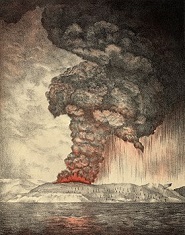

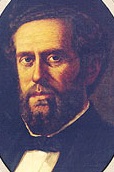
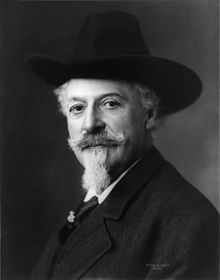

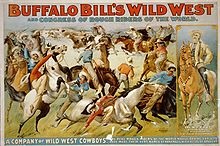
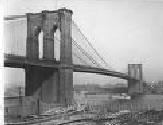











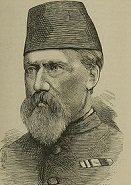
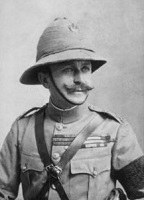



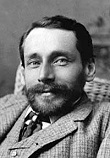
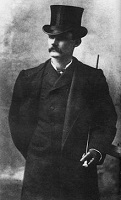
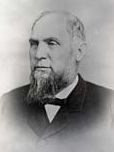

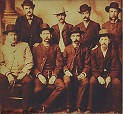
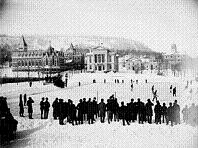
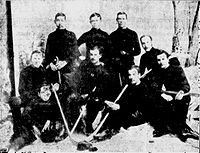
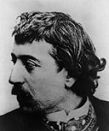





























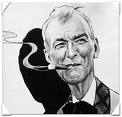


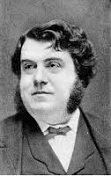




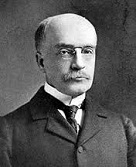
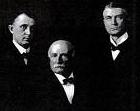


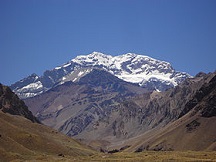
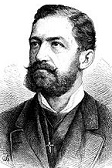
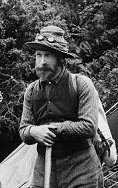
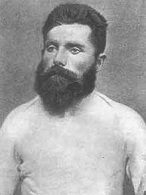

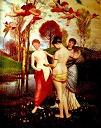

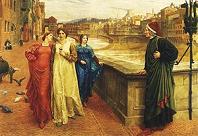




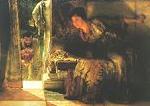


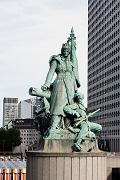
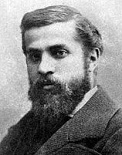
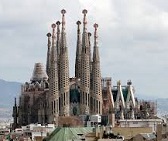

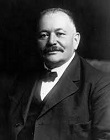


1883 The Lost Generation of people who endure WWI and maybe WWII consists of people born in 1883-1900. On Jan. 16 Charles Julius Guiteau's case causes the U.S. Pendleton Civil Service Reform Act to be signed by Pres. Arthur, founding the U.S. Civil Service Commission; its main author is Dem. Ohio Sen. (1879-85) "Gentleman" George Hunt Pendleton (1825-89). On Jan. 16 after serving in the Confed. army then joining the Tex. House of Reps in 1872 and helping it create the U. of Tex. at Austin (UTA) before serving on the Tex. Supreme Court in 1875, Hart County, Ky.-born atty. "Oxcart" John Ireland (1827-96) of Seguin, Tex. becomes Dem. Tex. gov. #18 (until Jan. 18, 1887), going on to get an amendment to the Tex. constitution passed establishing an ad valorem tax, pick Tex. pink granite for the new Texas State Capitol, and permit public lands to be sold to cattle ranchers, who fence their holdings with barbed wire to keep cattle from straying, cutting off access to water by farmers and ranchers, which is compounded by a drought early in the year, causing them to cut the fences in over half of the counties of Tex., splitting public opinion, causing Gov. Ireland to call a special session of the legislature next year that passes a 825K-acre King Ranch (founded 1853) (originator of the Santa Gertrudis breed, the first new U.S. breed) and the 3M-acre XIT Ranch in the Tex. Panhandle begin fencing cattle to keep them in, allowing them to conserve grass and engage in selective breeding. On Feb. 16 Ladies' Home Journal (originally "The Ladies Home Journal and Practical Housekeeper") begins pub. (until ?), ed. by Louisa Knapp Curtis (-1910), wife of New York Tribune publisher Cyrus Hermann Kotzschmar Curtis (1850-1933); in 1946 it adopts the motto "Never underestimate the power of a woman". On Mar. 1 Adan Cardenas (Adán Cárdenas) del Castillo (1836-1916) of the Conservative Party becomes pres. of Nicaragua (until Mar. 1, 1887). On Mar. 3 the U.S. "Mongrel" Tariff Act of 1883 imposes a 10% tax on imported vegetables, but exempts "fruits, green, ripe or dried", with tomatoes considered as vegetables and taxed, pissing-off Westerners and Southerners, who start a court case that goes all the way to the U.S. Supreme Court (1893). In spring the Cambridge U. Tripos Dispute sees prof. of history (since 1869) Sir John Robert Seeley (1834-95) and prof. of moral philosophy (since 1883) Henry Sidgwick (1838-1900) (author of "Inductive Political Science") want the tripos bachelor's honors exam in history to concentrate on political history, with the Seeley soundbytes "History is the school of statesmanship", "History is past politics, and politics present history", and "History without politics descends to mere literature", while historians Frederick Maitland, George Walter Prothero, Henry Melvill Gwatkin, and Mandell Creighton advocate a broader more scientific approach, reaching a compromise emphasizing the reading of primary sources, requiring a compulsory paper on "Political Science", with required readings incl. "Introduction to Political Science" (1896) by Seeley and "The Elements of Politics" (1891) by Sidgwick. On Apr. 16 longtime Zulu fighter and Boer gen. Paul Kruger (Oom Paul) (1825-1904) becomes pres. of the South African Repub. (until 1902). On Apr. 28-June 7 the bloodless Dodge City War sees Lawrence E. Deger, new (since Apr. 3) mayor of Dodge City, Kan. get tired of vice and vagrancy and attempt to force Polk County, Ark.-born owner Luke L. Short (1854-93) (a notorious gunfighter and friend of Wyatt Earp and Bat Masterson) to close the Long Branch Saloon, running him out of town on Apr. 30, causing him to present a petition on May 10 to Dem. Kan. gov. #9 (1883-5) George Washington Glick (1827-1911) in Topeka, Kan. then hook up with Earp and Masterson and return with them to Dodge City on May 31, after which on June 9 (night) after the Santa Fe Railroad chimes in about not wanting to lose business during the cattle season, both sides resolve their differences, and on June 10 the Dodge City Peace Commission poses for a photo that becomes famous, after which Earp and Masterson board a train for Colo. and Short sells-out to Roy Drake and Frank Warren on Nov. 19 and moves to Fort Worth, Tex. via San Antonio, opening the White Elephant Saloon, going on to kill town marshal Timothy Isaiah "Jim" Courtright in a gunfight on Feb. 8, 1887 after selling his interest in the saloon to pay his legal costs incurred after shooting Charles T. Schuyler in the back on Jan. 23 in San Angelo, Tex. On May 19 after staging his first Wild West show the "Old Glory Blowout" last July 4 in North Platte, Neb., the Buffalo Bill's Wild West [Show] of "the Colonel", Le Claire, Iowa-born William Frederick "Buffalo Bill" Cody (1846-1917) opens in Omaha, Neb., starring him as the headline act for the next 34 years, also starring Sitting Bull, Calamity Jane, Annie Oakley and Frank Butler, Gabriel Dumont, and Lillian Smith, during which time he rides 11 different horses and tours Europe 8x; in 1893 he changes the name to Buffalo Bill's Wild West and Congress of Rough Riders of the World. On May 24 (2:00 p.m. ET) the 5,989-ft. x 85 ft. Brooklyn Bridge over the East River linking Manhattan and Brooklyn, designed by German-born civil engineer John Augustus Roebling (1806-69) opens, becoming the first modern suspension bridge and the first land passage between Manhattan and Brooklyn; one of the bridge supports sits on the site of the first U.S. pres. exec. house; 1.8K vehicles and 150,300 people cross on the first day; on May 30 a rumor that the bridge is about to collapse causes a stampede, and 12 people are trampled to death. On June 5 the Orient Express begins running from Paris to Istanbul (ends May 22, 1977); a ferry ride is included; on Oct. 4 it makes it from trip from Paris to Giurgiu, Romania via Munich and Vienna (ends 1963). In June the USS Yantic under Cmdr. Frank Wildes along with the steamer USS Proteus leave to search for the Lt. A.W. Greely team; on July 23 the Proteus is crushed in the pack ice in Kane Basin between Greenland and Ellesmire Island, and the Yantic finds the rescue team stranded on a floe in the Kane Sea, returning and reaching New York City on Sept. 14 with the bad news; on Dec. 17 Pres. Arthur appoints an Army-Navy board to consider a rescue, which takes until Jan. 17 to decide on it, and until Jan. 22 for Congress to appropriate funds. On July 3 steamship Daphne sinks in the Clyde River in Scotland, killing 124. On July 11 Bohemian-born Am. Reformed Judaism leader Rabbi Isaac Mayer Wise (1819-1900) holds a reconciliation dinner with Orthodox leaders in Cincinnati, Ohio that consists of trafe (non-kosher) food incl. shrimp and lobster, causing all attempts to unify Am. Jewry to collapse. Vietnamese cooking is born despite protests by Chinese cooks? On July 17 Tu Duc dies, and on July 20 his adopted nephew Duc Duc (1852-83) (pr. dzup-duc) becomes Nguyen emperor #5 of Annam (Vietnam), but is executed on trumped-up charges on July 23 after three days, and is succeeded on July 30 by Hiep Hoa (1847-83) as Vietnamese Nguyen emperor #6 (until Nov. 29, 1883); on Aug. 25 the French force the Treaty of Hue, negotiated by Vietnamese PM Nguyen Van Tuong (1824-86), making Annam (Tonkin) (N Vietnam) a French protectorate administered by French residents, disregarding Chinese protests; after a rebellion, on Aug. 30 French ships under Adm. Courbet invade Vietnam, defeating Vietnamese forces outside Hanoi on Sept. 3, and forcing Hoa on Sept. 25 to sign the Harmond Treaty (Convention), a protection treaty; he is then forced to commit suicide on Nov. 29 by regent Don't Do That Yet, er, Ton That Thuyet (1839-1913), and on Dec. 1 Tu Duc's nephew Kien Phuc (1869-84) becomes Vietnamese Nguyen emperor #7 (until July 31, 1884); France fights the Chinese every step of the way and goes on to subdue the remainder of Vietnam and set up three zones: Cochin China (south), the protectorate of Annam (central), and Tonkin (north); meanwhile De Tham (1858-1913) begins a guerrilla war against the French that lasts 30 years. On July 22 the Zulu Civil War (ends June 5, 1884) breaks out when Usibepu (Zibhebhu) (1841-1904), a son of Cetshwayo who was left in charge of his mini-kingdom after the Brits changed their minds about subdividing the Zulu kingdom 13 ways in 1879, attacks Cetshwayo's kraal in Ulundi aided by Boer mercenaries, wounding his daddy, who escapes to Eshowe then dies of poisoning next Feb. 8, leaving his son Dinuzulu to succeed him as king of Zululand if he can. On July 30 Ranavalona II dies, and her sister queen Ranavalona III (1861-1917) becomes ruler of Madagascar (until Feb. 28, 1897), marrying PM Rainilaiarivony and getting caught up in the final takeover of the island by France, beginning with a French invasion this year known as the First Franco-Hova War, which causes them to cede Antisarana (Diego Suarez) on the N coast and pay an indemnity of 560K gold francs. On Aug. 21 a F5 tornado hits Rochester, Minn., killing 37 and injuring 200+, causing brother surgeons William James Mayo (1861-1939) and Charles Horace Mayo (1865-1939), sons of William Worrall Mayo (1819-1911) to found the Mayo Clinic on Sept. 30, 1889 at St. Mary's Hospital in Rochester, Minn.; on Sept. 30 Charles H. Mayo performs the first modern surgical procedure, the removal of a cancerous growth - you can almost taste the hotdog? On Aug. 24 Henri, Comte de Chambord (b. 1820) dies, leaving his distant cousin Jonathan Quayle Higgins, er, Don Juan Carlos Maria Isidro de Borbon (Borbón), Count of Montizon (Montizón) (1822-87) as his heir, and being proclaimed Jean III, king of France and Navarre by his widow and a few supporters, and makes a statement that he does not renounce his claims to the throne, but otherwise takes no active steps; meanwhile the majority of royalists back Louis-Philippe II (Louis-Philippe Albert of Orleans), Comte de Paris (1838-94) (grandson of Louis-Philippe who fought as an aide to Union Gen. McClellan in the U.S. Civil War) as head of the French Bourbons and French pretender, with his son Louis Philippe Robert (1869-1926) assuming the title of duke of Orleans; luckily, Montizon soon dies, uniting the royalists behind one horse - calm down, mister melodrama, I have an idea? Atlas cracks his toa in Indonesia? Krakonesia, biggest volcano grave on Earth? On Aug. 26-27 the small volcanic island of Krakatoa (Krakatau) in the Sunda Strait between Java and Sumatra (100 mi. W. of Batavia) erupts with a ginormous explosive force of 200 megatons (Volcanic Explosivity Index of 6), ejecting 6 cu. mi. of rock, creating a 120-ft.-high tsunami which travels 5,450 mi. to South Africa in 12 hours and drowns 36K; a Dutch warship in Batavia (Djakarta) 100 mi. away is washed ashore and left stranded .5 mi. inland 30 ft. above sea level; the sound (largest noise ever heard by man?) is heard 2.2K mi. away in Alice Springs and 2.97K mi. away in Rodrigues Island near Mauritius; at Batavia people have to light their lamps during the day; for the next two years a thin haze of particles can be seen in the night sky as far away as London, and for three years all over the world sunrise and sunset are brilliantly colored; the explosion leaves a 2,667-ft. cone, and the island shrinks from 18 sq. mi. to 6 sq. mi.; the explosion causes the Muslims of Indonesia to see it as a sign from Allah and begin a jihad to push the Dutch out; the volcanic ash in the atmosphere causes global cooling next year, with aftereffects lasting almost a cent., offsetting anthropogenic global warming? On Sept. 11 Sir Evelyn Baring (1841-1917) (later 1st Earl of Cromer) becomes British consul gen. of Egypt (until May 6, 1907), appointing British advisors in Egyptian ministries, making sure the fellahs pay the Euros back every penny loaned, and alienating the Egyptians with his great white father chrome-plated evil overbearing autocratic ways, incl. his statement that "Islam as a social system has been a complete failure... The degradation of women in the East is a canker that begins its destructive work early in childhood, and has eaten into the whole system of Islam", and his solution that Muslims "be persuaded or forced into imbibing the true spirit of Western civilization." On Sept. 15 after stalling since the Tex. legislature approved it on Feb. 11, 1858, the U. of Tex. at Austin (UTA) in Austin, Tex. opens, becoming the flagship univ. of the state; sports teams are called the Texas Longhorns. On Oct. 15 in Five Civil Rights Cases Testing the Civil Rights Act of 1875, the U.S. Supreme (Waite) Court by an 8-1 vote overturns the act, declaring that freed slaves are just individuals on their own now in a white world and entitled to no sacred cow protections against individual discrimination or private violations of their civil rights, disclaiming federal responsibility for the protection of individual civil rights other than "prohibition against state laws and state proceedings affecting those rights and privileges", declaring a policy that is continued until after WWII; the lone dissenter is Southerner and former slave owner John Marshall Harlan, who was gung-ho for slavery and vehemently against black civil rights until he witnessed the excesses of the KKK in Frankfort, Ky., and considers it a matter of honor to pay for abuse of white power. On Oct. 20 after Chile forces Peru to drop out of the War of the Pacific, the Treaty of Ancon (Ancón) is signed in Ancon District (near Lima), ceding the Peruvian provinces of Tacna and Arica for 10 years (to be followed by a plebiscite), and Antofagasta and the province of Tarapaca permanently, giving Chile coveted nitrate fields and increasing its territory by one-third; after Chile reneges on holding the plebiscites and keeps the territories, the dispute is not resolved until 1929; meanwhile Chile campaigns against the Mapuches and herds them into reservations. On Nov. 30 wealthy educated Liberal Gen. Luis Bogran (Bográn) Barahona (1849-95) becomes pres. of Honduras (until Nov. 30, 1891), going on to expand the educational system and work toward union of the five Central Am. states, which the ultra-conservatives block (with the U.S. behind it?). On Dec. 17 the U.S. Supreme Court rules in Ex Parte Crow Dog that the federal govt. has no jurisdiction to try cases involving Indians when the offense has already been tried by a tribal council, pissing-off Congress, who enacts the U.S. Major Crimes Act in 1885, placing 15 major crimes under federal jurisdiction when committed by one Indian against another on a rez or tribal land, launching the plenary power doctrine limiting tribal sovereignty to Great White Father's whim. In June a fundamentalist Muslim Arab rebellion begins in the Egyptian province of Sudan, led by Nubian Sunni Muslim Sufi Samaniyya Sheikh Muhammad Ahmad bin Abd Allah (1844-85), who proclaims himself El Mahdi, claiming to be chosen by Allah to lead a holy war (jihad) against infidel Brits, Egyptians, and other Sunni Muslims in order to prepare for the Second Ccoming of Christ (Isa), setting up a Mahdist regime with its own caliph (him) and its own modified Sharia (fight for him rather than go to Mecca, add him to their daily prayers, click on hook-up-my-space?) while coincidentally seeking to restore the Arab slave trade in African blacks which the British had just spent a decade eradicating; Sudanese warlord Rabih az-Zubayr ibn Fadl Allah (Fadlallah) (1842-1900) begins conquering the three kingdoms of Chad W of Lake Chad between the Nile and Ubangi River basins (until 1893); meanwhile on Nov. 5 40K spear-carrying El Mahdi followers known as the Ansar (helpers) (Dervishes) surprise an 8K-man Egyptian garrison leaving El Obeid (Al Ubayyid) and massacre them and steal their weapons, then take the town after a 4-mo. siege, then defeat and massacre an 8K-man force led by British Col. William "Pasha" Hicks (1830-83) after leading them on a wild goose chase until they is dying of thirst, allowing the Mahdi's spear-chucking army to capture 10K British Enfield rifles and several cannons, then defeat Austrian-born Maj. Gen. Sir Rudolf Anton Carl von Slatin (1857-1932) (British gov.-gen. of Dara in SW Darfur), and take over Darfur (W Sudan), followed by Jabal Qadir in S Sudan; after a the British cabinet under Gladstonian paralysis refuses to send help, in Dec. it orders the Egyptians to evacuate, sending Gen. Charles George "Chinese" Gordon (1833-85) to facilitate it, but without an army to back him up; meanwhile believing that his D proves that Christianity is weaker than Islam, Slatin converts to Islam under the name Abd al Qadir. The colony of Queensland takes possession of the non-Dutch (non-Western) portions of New Guinea. Britain puts the pedal to the medal and crushes the Pedi Kingdom in the Steelport Valley of NE Transvaal, herding the pop. into a rez inside their former territory. Jules Ferry becomes French PM again (until 1885). Liberal Sir Henry Charles Keith Petty-Fitzmaurice, 5th Marquess of Lansdown (1845-1927) becomes gov.-gen. of Canada (until 1888). The U.S. Congress embarks on the construction of a modern steel navy, authorizing three cruisers, the largest at 4.5K tons. The Northern Pacific Railroad line is completed. The Arctic Oil Works is founded in San Francisco, Calif., turning it into the main whaling port on the West Coast of the U.S. The Germans found settlements in SW Africa and at Angora Reqana between Angola and Cape Colony. Scottish explorer Joseph Thomson (1858-95) rediscovers Mt. Kenya (discovered in 1849). German-born Franciscan nun Mother Marianne Cope (1838-1918) goes to Hawaii to work with leprosy patients on Molokai; Robert Louis Stevenson writes a poem in tribute to her; she is beatified in 2005 - pass the chaulmoogra oil? The U.S. discontinues the Shield Nickel and mints the Liberty Head Nickel (until 1913) along with the Racketeer Nickel (until 1913), which starts a minor crime wave after the Mint goofs and prints a Roman V instead of "5" on the reverse, allowing crooks to gold plate them, cut reeds into the edges and pass them off as $5 gold coins; deaf mute Josh Tatum is acquitted even though he would use the altered coins to pay for 5 cent cigars and get $4.95 change, since he never tells the clerk they were $5 coins; true story or not, the Mint soon begins putting the word "cents" on the coins. Amsterdam stages an Internat. Colonial Exhibition to celebrate its new commercial prosperty caused by the opening of the Noord Canal in the 1860s and new rail station in 1879, becoming the first world's fair with a colonial theme, featuring mock native villages stocked with indigenous peoples to show the superiority of Western civiliztion. The K-12 Kamehameha Schools (originally Kamehameha Schools Bishop Estate) are established in Honolulu, Hawaii to educate native boys by Princess Bernice Pauahi Bishop; in 1965 they go coed; on Aug. 2, 2005 a U.S. federal appeals court rules that its admission policy amounts to unlawful racial discrimination. The Royal College of Music in London is founded by the prince of Wales (later Edward VII), with Sir George Grove (1820-1900) (knighted this year) as dir. #1. German settler Friedrich Pfalz-Pfein founds the Askaniya-Nova Biosphere Reserve in S Ukraine on 27K acres of virgin prairie land; bison are imported from the U.S. - good timing? An electric tramway is constructed in Portrush, Ireland by Sir Charles William Siemens, becoming the first in the British Isles; 7 mi. NE of Portrush is the ultra-cool Giant's Causeway on the N coast of County Antrim. The main Korean seaport of Pusan is opened to gen. commerce; the port of Wonsan on East Korea Bay in N Korea 110 mi. N of Seoul is opened to foreign trade. Prince Peter Kropotkin is arrested in France for anarchistic activities and sentenced to 5 years, but wins release in 1883 after Georges Clemenceau and other French govt. officials intercede, then moves to England until after the 1917 Bolshevik Rev., when he returns to Russia, and is treated as a hero even though he officially opposes all govts., even theirs, his optimistic communist writings acting like the laundry machine for the realities of Dirty Linen, er, Lenin? Swedish pacifist journalist Klas Pontus Arnoldson (1844-1916) becomes the first chmn. of the Swedish Peace and Arbitration Society in Stockholm, which pub. the mag. Pax and becomes Scandinavia's first and biggest peace org.; he receives the 1908 Nobel Peace Prize - after WWI starts, all the winners should be forced to give the money back? The Metropolitan Opera House moves to West 39th St. and Broadway, ramping up the Manhattan Theater District, bounded by West 40th St., West 54th St., Sixth Ave., and Eight Ave., incl. Times Square; meanwhile in 1880 the section of Broadway that runs through it between 42nd and 53rd Streets is built, later called the Great White Way, gaining its name from its Brush arc lamps after becoming one of the first U.S. thoroughfares to be illuminated with electricity; the term is first used by Shep Friedman in the New York Morning Telegraph in 1901. New York Society is shaken when Caroline Webster Schermerhorn Astor (1830-1908), the head of it all who created the List of 400 Nobs (old money elite) is forced to socially acknowledge "Swell" (new money) Alva Vanderbilt, 1st wife of William Kissam Vanderbilt after Alva blackmails her daughter Caroline Astor; in 1887 after her hubby William Astor dies, she gets in a war with her nephew William Waldorf Astor over the right to be called "the Mrs. Astor", and wins, causing him to emigrate to Britain. Canadian geologist George Mercer Dawson (1849-1901) explores the Canadian Rockies, discovering 11,870 ft. (3,618m) Mount Assiniboine and 11,627 ft. (3,544m) Mount Temple, pub. a map in 1886 covering from the U.S. border to Red Deer Valley and Kicking Horse Pass; in 1887 he begins exploring N British Columbia to the headwaters of the Yukon River, pub. maps in 1897 just in time for the Klondike Gold Rush (1896-99), causing Dawson City in the Yukon to be named after him, along with Dawson Creek in British Columbia. Amadou (Ahmadou) Bamba (1853-1927) founds the Muslim Sufi Mouride ("those who desire") order in Senegal. Royal Holloway College for women is founded in Mount Lee, Egham, Surrey by Holloway's Pills magnate Thomas Holloway (-1883); it later becomes the Royal Holloway and Bedford New College, and is amalgamated with London U. French stockbroker Paul Gaugin (1848-1903), who lost his job in the 1882 Paris stock exchange crash leaves his family to devote himself to painting, inventing a style called synthetism, using flat planes, solid figures, and bright colors - the distant sounds of an exploding volcano send him a message? Self-taught Boston, Mass.-born artist Winslow Homer (1836-1910) gets serious, improves his style and settles in Prout's Neck, Maine, then begins to paint monumental sea scenes, becoming the "Yankee Robinson Crusoe" in the front rank of Am. painters, although they never sell well; he spends the winters of 1884-5 in Fla., Cuba, and the Bahamas, painting black natives and Caribbean scenes. Hungarian-born half-Roman-Catholic, half-Jew Joseph Pulitzer (1847-1911), who emigrated to the U.S. in 1864 and worked his way up in St. Louis, Mo., and switched from Repub. to Dem. purchases the New York World (founded 1960), and goes on to outcompete rival New York Sun, run by Charles A. Dana, by being the first to buy a Linotype, issue a color supplement with comics, and build a dream of working men saving money to enjoy outings at Coney Island. Lord John Morley, ed. of the Fortnightly Review since 1867 becomes ed. of Macmillan's Mag. and MP for Newcastle-upon-Tyne. The leading Socialist periodical Die Neue Zeit (The New Times) is founded by Karl Johann Kautsky (1854-1938), who joins the German Social Dem. Party, gets in a debate with "Marxist revisionist" Eduard Bernstein (1850-1932) (who denies the inevitability of class conflict) over revolution vs. gradual social reform, and flip-flops to his side, becoming a pacifist. N.Y. state passes a law banning the practice of rolling cigars in homes, but it is ruled unconstitutional 4 mo. later, allowing the 127 apt. houses in New York City employing 7,924 people in 1,962 families to stay in business. The Metropolitan Opera House in New York City at 39th and Broadway opens with Faust. The Tokyo Electric Light Co. in Japan is founded; too bad, it produces electricity at 50Hz instead of the U.S. std. of 60Hz, later causing E Japan incl. Tokyo to stay wired at 50Hz while the rest of Japan is wired at 60Hz. The U.S. ends its Civil War tax on cigars, ushering in a 40-year golden age for cigar smokers; German-born Am. Jew Oscar Hammerstein I (1847-1919) receives a patent for a cigar-rolling machine. German-born After seeing their toy locomotive in a store window in Leon and liking it, French steam car maker De Dion-Bouton is founded in Paris, France by wealthy Marquis Jules Felix Philippe Albert de Dion de Wandonne (1856-1946) and starving scientific toymakers Georges Bouton (1847-1938), and his brother-in-law Charles Trepardoux; on Apr. 28, 1887 a De Dion steam car driven by Georges Bouton is clocked at 37 mph in "Europe's first auto race" from Neuilly Bridge to the Bois de Boulogne, sponsored by Le Velocipede ed. M. Fossier; In 1895 they invent a 1-cylinder engine with trembler coil ignition that works best at high rpm, reaching a record 3.5K rpm; after being mounted on a tricycle frame and fitted with new Michelin pneumatic tires, it goes on the market next year as the Petite Voiture Tricar, which is a big hit, causing a 4-wheeler to be marketed in 1898, and the Model D Voiturette in 1900, which puts the engine under seat and makes the passenger face the driver, who sits in the rear; in 1898 Louis Renault modifies a De Dion-Boutin with a fixed drive shaft and ring-and-pinion gear, becoming the first hot rod?; in 1900 they become the world's largest automobile manufacturer, producing 400 cars and 3.2K engines; in 1902 the De Deion-Bouton Motorette Co. is founded in Brooklyn, N.Y. to make them in the U.S.; as a topper, in 1902 the Crazy Frog outfit comes up with the Model K, with a front-mounted engine under a crocodile hood, rear entry of passengers, and a decelerator pedal that applies a transmission brake; the co. folds in 1932. The Kroger Co. (originally Great Western Tea Co., then Kroger Grocery and Baking Co. in 1902) is founded in Cincinnati, Ohio by Bernard Henry "Barney" Kroger (1860-1938) with $372 in savings, reaching 5.5K stores in 1930 and growing to the 3rd largest private employer in the U.S., 3rd largest retailer on Earth, 2nd largest retailer after Walmart, and largest supermarket chain in the U.S. ($115.3B/year); in 1916 it begins self-service shopping; in 1929 rumors fly that it is about to merge with Safeway; in the 1930s it becomes the first grocery chain to surround stores on all sides with parking lots and to monitor foods and test them for quality; in 1955 it begins acquiring other supermarket chains; in the 1970s it becomes the first grocery chain to use an electronic scanner and formalize consumer research; in 1972 it builds Crossroads Farms Dairy in Indianapolis, Ind., which becomes the largest dairy plant on Earth. Butcher Oscar Ferdinand Mayer (1859-1955) and his brother Gottfried found Oscar Mayer Co. in Chicago, Ill., cranking out bratwurst and liverwurst, growing to 43 employees by 1900, and in 1906 becoming one of the first U.S. cos. to voluntarily submit to the U.S. Food Safety Inspection Service of the USDA; in 1936 they begin touring the U.S. in the Wienermobile; in 1965 they launch the "If I were an Oscar Meyer wiener" TV ad campaign, followed in 1974 by "My bologna has a first name, it's O-S-C-A-R"; in 1981 it is acquired by Gen. Foods, which is acquired in 1985 by Philip Morris, then merges in 1989 with Kraft Foods. Rheingold Beer (named after Richard Wagner's 1869 opera "Das Rheingold") is founded in Bushwick, Brooklyn, N.Y., becoming a favorite with working men, becoming the official beer of the ML New York Mets and holding 35% of the New York City beer market in 1950-60, with numerous cans found in the wreckage of the World Trade Center in 2001 hidden in the beams by construction workers; in 1965 it pioneers racially-diverse actors in its TV ads incl. Jackie Robinson and Sarah Vaughan; in 1940-65 it holds the annual Miss Rheingold beauty pageant, with contestants wearing ball gowns w/white gloves; after introducing the world's first light beer in 1967, it folds in 1976, and is revived in 1998. Sports: The first Montreal Winter Carnival Ice Hockey Tournament organized by the Montreal Amateur Athletic Assoc. (MAAA) is held, featuring an ice castle or fort that can be stormed in mock attacks, along with snowshoe races, toboggan slides, skating carnivals, and the first ice hockey championships, with four teams incl. the McGill U. Club, the Montreal Hockey Club, Montreal Crystals, and Montreal Victorias); the first tournament is held on the St. Lawrence River, the 2nd at the outdoor rink of McGill U.; after cancelling in 1886 and 1888, the last tournament is held in 1889; 1 mo. after witnessing the 1883 Montreal Winter Carnival, the Ottawa Senators (originally the Ottawa Hockey Club or Ottawa HC) ice hockey club is founded in Ottawa, Ont., becoming their first ice hockey club, becoming the Ottawa Generals in the 1890s, the Ottawa Silver Seven in 1903, and the Ottawa Senators in 1908; they disband in 1934. Mahalaxmi Racecourse in Bombay (Mumbai), India is built. A party led by German geologist Paul Gussfeldt (Güssfeldt) (1840-1920) makes two attempts to summit 22,838 ft. (6,961m) Mount Aconcagua in Argentina (70 mi. NW of Mendoza) 9 mi. from the border with Chile, highest mountain outside Asia, reaching 6.5km; in Dec. 1896 a European expedition led by Am.-born English mountaineer Edward Arthur FitzGerald (1871-1931) makes the first of eight attempts, with Swiss guide Matthias Zurbriggen (1856-1917) reaching the summit on Jan. 14, followed on Feb. 13 by Stuart Vines and Nicola Lanti. Architecture: All Saints Church in Peshawar, Pakistan is built by Rev. Worthington Jukes, with a unique architecture adopted from local mosques; after the local Muslims kill several workers, it becomes known as the Church of Martyrs. The Herald Square Theatre at 1331 Broadway in Manhattan, N.Y. (cap. 1,150) opens; in 1900 it becomes the first Broadway theater owned by the Shubert family; in 1911 after a fire it becomes the first New York theater to be converted into a silent movie theater, and is closed in 1914 after the Garment District expands into the neighborhood and the Broadway theater district moves N of 40th Street. The first steel-framed office bldg. (skyscraper), the 10-story 180-ft. Home Insurance Bldg. in Chicago (1884-5) is designed by Fairhaven, Mass.-born William Le Baron Jenney (1832-1907), becoming the tallest bldg. on Earth (until 1889); demolished in 1931. English novelist Thomas Hardy builds Max Gate near Dorchester, living there for most of his life. After Francisco Paula de Villar resigns as chief architect (since 1882), Spanish Catalan gaudy Modernist Art Nouveau architect Placid Guillem Gaudi (Gaudí) i Cornet (1852-1926) begins his Sagrada Familia, a large Roman Catholic church in Barcelona, which goes on to become the most visited monument in Spain and a UNESCO World Heritage Site; in Nov. 2010 Pope Benedict XVI consecrates it as a minor basilica. Inventions: On June 12 Charles Stilwell of Fremont, Ohio patents a machine to mass-produce brown paper bags with square bottoms and pleated sides called "S.O.S." (self-opening sacks); by 2000 40B are used in the U.S. each year. Atlantic City Boardwalk shopkeeper David Bradley allegedly coins the term "saltwater taffy" after a summer storm causes a tidal surge swamping his candy store. German-Am. immigrant Julius Schmid (1854-1935) begins making condoms, later sold under the brand name Ramses (named after Pharaoh Ramses II, who fathered 150+ children), becoming the "king of condoms"; the originals are made of lamb cecum - ask any Scot? Sir Joseph Wilson Swan (1828-1914) of England invents a synthetic fiber. The first Dirigible, a balloon powered by an electric motor is developed by brothers Albert Tissandier (1839-1906) and Gaston Tissandier (1843-99) of France. Science: On Aug. 12 after being hunted to extinction by white hunters, the last known South African Quagga (like a zebra but with stripes only on the front half, the opposite of an okapi) dies in Artis Magistra Zoo in Amsterdam; too bad, nobody realizes it for years, esp. since Afrikaaners call all zebras quaggas. French mathematician Joseph Louis Francois Bertrand (1822-1900) proposes the Bertrand Model of Competition, which reworks Cournot's 1838 Duopoly Model using prices instead of quantities, describing interactions among sellers that set prices and customers that choose quantities at the prices set, showing that the equilibrium price is simply the competitive price; in 1889 Francis Ysidro Edgeworth extends the Bertrand Model to handle capacity constraints, and proposes the Edgeworth Paradox, where if there is a fixed limit to what firms can sell, there may exist no pure-strategy Nash equilibrium. Robert Koch pub. a method for preventive inoculation against anthrax, and identifies the comma bacillus as the cause of cholera while on an official mission to Egypt and India. German biochemist Ludwig Karl Martin Leonhard Albrecht Kossel (1853-1927), teacher of Friedrich Miescher at the U. of Strasbourg moves to the U. of Berlin, going on to isolate the five constituent organic compounds in nucleic acid incl. adenine, cystosine, guanine, thymine, and uracil; he later discovers histidine and isolates theopylline from tea, and predicts the polypeptide nature of the protein molecule; "The processes of life are like a drama, and I am studying the actors, not the plot. There are many actors, and it is their characters which make this drama. I seek to understand their habits, their peculiarities." Scottish surgeon Robert Lawson Tait (1845-99) (co-founder of gynecology with J. Marion Sims) performs the first Salpingectomy (Fallopian tube removal) to treat bleeding ectopic pregnancy; he goes on to perform the first Ovariectomy (oophorectomy) for pain and for induction of menopause, first drainage of a pelvic abscess, first Cholecystotomy (gallbladder removal) et al. Nonfiction: Francois Achille Bazaine (1811-88), Episodes de la Guerre de 1870; his defense in his 1873 treason trial. Judah P. Benjamin (1811-84), Treatise on the Law of Sale of Personal Property (AKA "Benjamin on Sales"); becomes a legal classic in England. Paul Bourget (1852-1935), Essais de Psychologie Contemporaine. Oscar Browning (1837-1923), Frederic Harrison (1831-1923), Samuel James Capper, and Augustus Jessopp (1823-1914), Historical Studies. Francis Herbert Bradley (1846-1924), The Principles of Logic. Sir Richard Burton (1821-90) (tr.), Ananga Ranga; the first Hindu sex manual in English. Sir Richard Burton and Verney Lovett Cameron (1844-94), To the Gold Coast for Gold. Edward Caird (1835-1908), Hegel. Ramon de Campoamor y Compoosorio, El Ideismo. Jane Baillie Carlyle (1801-66), Letters (posth.); ed. by hubby Thomas Carlyle. Andrew Carnegie (1835-1919), An American Four-in-Hand in Britain; the British countryside is toured by horse coach in summer 1881. Anthony Comstock (1844-1915), Traps for the Young; "Our youth are in danger... cursed by a literature that is a disgrace." Ignatius Loyola Donnelly (1831-1901), Ragnarok: The Age of Fire and Gravel; the Flood and the destruction of Atlantis were caused by a near-collision of Earth with a comet 12K years ago, causing the Earth to catch fire and poisonous gases to choke people, along with floods and tidal waves, causing early cultures to turn to heliotheism to thank the Sun for returning?; gives Immanuel Velikovsky an idea?; "There is in the legends of the Scandinavians a marvelous record of the coming of the Comet. It has been repeated generation after generation, translated into all languages, commented on, criticised, but never understood. It has been regarded as a wild, unmeaning rhapsody of words, or as a premonition of some future earth catastrophe. But look at it! The very name is significant... it means 'the darkness of the gods'; from regin, gods, and rökr, darkness; but it may, more properly, be derived from the Icelandic, Danish, and Swedish regn, a rain, and rök, smoke, or dust." Felix Dahn (1834-1912), Prehistory of the Germanic and Roman Peoples. Henry Drummond (1851-97), Natural Law in the Spiritual World; attempt to reconcile Darwinian Evolution and Christianity. Urbain Dubois (1818-1901), Grand Livre des pâtissiers et des confiseurs. Richard T. Ely (1854-1943), French and German Socialism in Modern Times. James Anthony Froude (1818-94) (ed.), Letters and Memorials of Jane Welsh Carlyle [1801-66]; wife of Thomas Carlyle; pisses-off Thomas' niece Mrs. Alexander Carlyle, who claims that Thomas gave a note to Froude asking him not to pub. the volume in 1866, although he gave it to Froude in 1871; novelist Margaret Oliphant calls it the "betrayal and exposure of the secret of a women's weakness". Samuel Rawson Gardiner (1829-1902), History of England from the Accession of James I to the Outbreak of the Civil War, 1603-1642 (10 vols.) (1883-4). Oliver Wendell Holmes Sr. (1809-94), Pages from an Old Volume of Life: A Collection of Essays. Mark Hopkins (1802-87), The Scriptural Idea of Man. J.K. Huysmans (1848-1907), L'Art Moderne; goes for Impressionism, Gustave Moreau, and Odilon Redon. Henry Mayers Hyndman (1842-1921), The Historical Basis of Socialism in England. Richard Jefferies (1848-87), The Story of My Heart: An Autobiography. Emil Kraepelin (1856-1926), Compendium der Psychiatrie; argues that psychiatry is a branch of medical science and should be investigated by observation and experimentation like other natural sciences, calling for research into the physical causes of mental illness, and founding the modern classification system for mental disorders; he proposes that by studying case histories and identifying specific disorders the progression of mental illness can be predicted after taking into account individual differences in personality and patient age at disease onset. Stanley Lane-Poole (1854-1931), Studies in a Mosque (Cairo) (Feb.). Arthur Lillie (1831-?), The Popular Life of Buddha, Containing an Answer to the Hibbert Lectures of 1881. Patrick Manson (1844-1922), The Filaria Sanguinis Hominis and Certain New Forms of Parasitic Disease in India, China, and Warm Countries. John Bach McMaster (1852-1932), A History of the People of the United States: from the Revolution to the Civil War (8 vols.) (1883-1914). Carl Menger (1840-2921), Investigations into the Method of the Social Sciences with Special Reference to Economics; attacks the German historical school, causing a bitter reply by Gustav von Schmoller (1838-1917), leading to the super-bitter Methodenstreit (Ger. "strife over method") with the Austrian School of Economics (name coined by Schmoller to indicate provincialism), which is won by the historical school by 1900, who advocate a Socialist welfare state; too bad, they go too far and get their rivals excluded from academia, causing Germany to fall behind until the historical school becomes kaput by the 1930s, and is replaced by the more open Freiburg School. Max Mueller (1823-1900), India: What Can It Teach Us? Alexander Stuart Murray (1841-1904), History of Greek Sculpture: From the Earliest Times Down to the Age of Pheidias (4 vols.) (1880-3); becomes std. work. Friedrich Wilhelm Nietzsche (1844-1900), Thus Spake Zarathustra: A Book for All and for None (Also Sprach Zarathustra) (1883-5); expands on the ideas of the Eternal Recurrence, Death of God, the Ubermensch (Übermensch) (Superman), and the Will to Power, promoting the idea that one value system is no more worthy than the next, with the aphorism "On the Thousand and One Goals": "A thousand goals have there been so far, for there are a thousand peoples. Only the yoke for the thousand necks is still lacking: the one goal is lacking. Humanity still has no goal." Walter Herries Pollock (1850-1926), The Picture's Secret; Paradox of Acting. Ernest Renan (1823-92), Islam and Science; "Early Islam and the Arabs who professed it were hostile to scientific and philosophic spirit"; Judaism as a Race and as Religion; proposes the theory that European Ashkenazi Jews are descended from the Khazars, not the original Jews from Israel, which gets latched onto by anti-Semites, culminating in the 1976 book "The Thirteenth Tribe" by Arthur Koestler. George John Romanes (1848-94), Mental Evolution in Animals, with a Posthumous Essay on Instinct by Charles Darwin. Sir John Robert Seeley (1834-95), The Expansion of England; bestseller (80K copies in 2 years); a big hit among the public, the nobles, and the politicians;, becoming "the bible of British imperialists" (George Peabody Gooch), and "the single influence which did most to develop the imperialist idea" (Robert Ensor); doesn't go out of print until 1956 after Winston Churchill comments "Now it would be Seeley's Contraction of England"; claims that the imperial expansion of Britain was based on the defeat of Louis XIV's empire in the 18th cent., and that the 18th cent. was mainly a struggle between Euro nations for control of the New World instead of a struggle for liberty; "We seem, as it were, to have conquered and peopled half the world in a fit of absence of mind"; argues that the British Dominions are critical to British power, although holding onto India might not be beneficial in the long run, speculating on the result of the Dominions becoming independent; "Such a separation would leave England on the same level as the states nearest to us on the Continent, populous, but less so than Germany and scarcely equal to France. But two states, Russia and the United States, would be on an altogether higher scale of magnitude, Russia having at once, and the United States perhaps before very long, twice our population"; "The other alternative is that England may prove able to do what the United States does so easily, that is, hold together in a federal union countries very remote from each other. In that case England will take rank with Russia and the United States in the first rank of state, measured by population and area, and in a higher rank that the states of the Continent"; "It may be fairly questioned whether the possession of India does or ever can increase our power or our security, while there is no doubt that is vastly increases our dangers and responsibilities"; "When we inquire then into the Greater Britain of the future we ought to think much more of our colonial than of our Indian Empire"; too bad, the book "dealt in the main with the great wars of the eighteenth century and this gave the false impression that the British Empire has been founded largely by war and conquest, an idea that was unfortunately planted firmly in the public mind, not only in Great Britain, but also in foreign countries." (A.P. Newton) George Bernard Shaw (1856-1950), The Perfect Wagnerite: Commentary on the Niblung's Ring; defends Richard Wagner (1813-83). Henry Sidgwick (1838-1900), Principles of Political Economy; makes a fan of Alfred Marshall, who calls him his "spiritual mother and father". Alfred Percy Sinnett (1840-1921), Esoteric Buddhism; makes a fan of G.R.S. Mead. John Austin Stevens (1827-1910), Albert Gallatin; "Every generation demands that history shall be rewritten. This is not alone because it requires that the work should be adapted to its own point of view, but because it is instinctively seeking those lines which connect the problems and lessons of the past with its own questions and circumstances. If it were not for the existence of lines of this kind, history might be entertaining, but would have little real value." William Graham Sumner (1840-1910), What Social Classes Owe Each Other; the "forgotten man", who has to pay for the humanitarian schemes of social reformers. William Thomson (Lord Kelvin), On the Size of Atoms. Leo Tolstoy (1828-1910), Commentary on the Gospel. Mark Twain (1835-1910), Life on the Mississippi; first typewritten ms.; chapters 4-7 are about his education as a riverboat pilot in 1857-61 and 1882, from "Old Times on the Mississippi" (1875). Lester Ward, Dynamic Sociology. August Weismann (1834-1914), On Inheritance; rejects the inheritance of acquired traits yet hangs onto evolution, failing to win evolutionists over? William Wilson (1844-1912), The Swimming Instructor; becomes a std. textbook, defining modern concepts incl. stroke efficiency, water safety, racing turns, safety et al. Music: Eugen d'Albert (1864-1932), Suite in D minor for Piano, Op. 1. Johannes Brahms (1833-97), Gesang der Parzen; Symphony No. 3 in F Major, Op. 90; an attempt to reconcile Classical with Romantic? Emmanuel Chabrier (1841-94), Espana (Espańa) (rhapsody). Leo Delibes (1836-91), Lakme (Lakmé) (opera) (Opera Comique, Paris) (Apr. 14); libretto by Edmond Gondinet and Philippe Gille; based on the 1880 novel "Rarahu ou Le Mariage de Loti" by Pierre Loti; stars Van Zandt as Lakme and Jean-Alexandre Talazac as Gerald; incl. The Flower Duet, Bell Song. Paul Dukas (1865-1935), King Lear (overture). Narciso Serradel Sevilla, La Golondrina (The Swallow). Hugo Wolf, Penthesilea (symphonic poem). Art: Anon., La Defense (Défense) de Paris; a statue erected in Courbevoie in W Paris to commemorate the soldiers who defending Paris during the Franco-Prussian War; La Defense becomes the name of Paris' business district, becoming known for the Grande Arche, which has cool stairs people can sit on, an open-air museum, Le Parvis esplanade, and Les Quatre Temps commercial center; it later becomes the W side of the 10-km. Historical Axis of Paris (Louvre on the E, Champs-Elysees, Arc de Tripmphe, Avenue de la Grande Armee) Sir Lawrence Alma-Tadema, The Way to the Temple; Welcome Footsteps. Arnold Bocklin (1827-1901), Spring's Hymn; The Waves. Paul Cezanne (1839-1906), Rocky Landscape; he loves to paint the 4K-ft. Mt. Sainte-Victoire which d ominates flat Aix-en-Provence, as well as a nearby quarry. James Ensor (1860-1949), The Rower; The Drunkards; The Scandalized Masks. Henry Holiday (1839-1927), Dante and Beatrice. Jule Joseph Lefebvre (1836-1911), Psyche. William Quiller Orchardson (1832-1910), Voltaire; shows him being beaten up by the lackeys of Chevalier de Rohan-Chabot while the Duc de Sully fails to help or avenge him, woo woo. Paul Philippoteaux, The Battle of Gettysburg; paid $200K by a consortium of investors in Chicago, Ill., allowing him to hire a teach of artists; 450' x 50'; weighs 6 tons; three more versions produced for display in Boston, New York, and Philly; "No person should die without seeing this cyclorama." Odilon Redon (1840-1916), The Shapeless Polyp. Pierre-Auguste Renoir (1841-1919), Umbrellas; Seated Bather (1883-4); Dance at Bougival; model is Montmartre painter Suzanne Valadon (1865-1938); City Dance; another of Suzanne Valadon. Giovanni Segantini (1858-99), Ave Maria. Georges Seurat (1859-91), The Bathers at Asnieres (1883-4) (7' x 11'); laughed out of the room by the Salon Jury in Paris, Seurat turns to the Impressionists for moral support? - getting the signal you want at the speed of light? Plays: Robert Williams Buchanan (1841-1901), Lady Clare. Sir Francis Burnand (1836-1917), Ariel; based on Shakespeare's "The Tempest"; music by Meyter Lutz; stars Nellie Farren and Arthur Williams. August Strindberg (1849-1912), Lucky Pehr. Poetry: Sir Edwin Arnold (1832-1904), Pearls of the Faith of Islam's Rosary, Being the Ninety-Nine Beautiful Names of Allah. Robert Seymour Bridges (1844-1930), Prometheus, the Fire-Giver. Robert Browning (1812-89), Jocoseria. Robert Williams Buchanan (1841-1901), A Poet's Sketch Book. Charles Harpur (1813-68), Collected Poems (posth.); makes him the first noteworthy original Australian poet. Gottfried Keller (1819-90), Gesammelte Gedichte. Sir Lewis Morris (1833-1907), Songs Unsung. Jan Neruda (1834-91), Plain Themes (Simple Motifs). August Strindberg (1849-1912), Poetry in Verse and Prose. Algernon Charles Swinburne (1837-1909), A Century of Roundels. Emile Verhaeren (1855-1916), Les Flamandes (debut). Novels: Jules Amedee Barbey d'Aurevilly (1808-89), What Never Dies (Ce qui ne Meurt Pas) (last novel). Walter Besant (1836-1901), All in a Garden Fair: The Simple Story of Three Boys and a Girl (3 vols.); inspires Rudyard Kipling to leave India and become a writer. Bjornstjerne Bjornson (1832-1910), Beyond Human Endurance. William Black (1841-98), Shandon Bells; Yolande; about drug addiction. Mary Elizabeth Braddon (1837-1915), Phantom Fortune. Wilkie Collins (1824-89), Heart and Science. Carlo Collodi (1826-90), The Adventures of Pinocchio; "pine eye", carved from a piece of pine by Italian woodcarver Geppetto, who aspires to become a real boy. Francis Marion Crawford (1854-1909), Dr. Claudius; a hit, allowing him to move to Italy, settling in Hotel Cocumella in Sorrento in 1885, then moving to Villa Crawford in Sant'Agnello. Mary Mapes Dodge (1831-1905), Donald and Dorothy. Ludwig Ganghofer (1855-1920), Der Jager von Fall. Ludovic Halevy, Criquette. Joel Chandler Harris (1848-1908), Nights with Uncle Remus. Nathaniel Hawthorne (1804-64), Dr. Grimshawe's Secret (posth.); ed. by his son Julian. Edgar Watson Howe (1853-1937), The Story of a Country Town (first novel). Margaret Wolfe Hungerford (1855-97), Loys, Lord Beresford, and Other Tales; Moonshine and Marguerites; Rossmoyne. Auguste Villiers de l'Isle-Adam (1838-89), Contes Cruels (Sardonic Tales). Heinrich Laube (1806-84), Der Schatten-Wilhelm. Jonas Lie (1833-1908), The Gilje Family: An Interior from the 1840s; the Norwegian Austen and Bronte? Pierre Loti (1850-1923), My Brother Yves (Mon Frčre Yves); his biggest hit?; a semi-autobio. novel about the 1870s-1880s friendship between a French naval officer and hard-drinking Breton sailor Yves Kermadec (really Pierre le Cor). Guy de Maupassant (1850-93), Mademoiselle Fifi (short stories); Contes de la Becasse (Bécasse) (short stories); A Woman's Life (Un Vie) (first novel); bestseller (25K copies in the first year). Conrad Ferdinand Meyer (1825-98), The Suffering of a Boy (Das Leiden einer Knaben); France during the reign of Louis XIV. George Moore (1852-1933), A Modern Lover; brings French naturalism to English Victorians. Laurence Oliphant (1829-88), Altiora Peto. Margaret Oliphant (1828-97), Hester. Raffi (1835-88), Kaytzer (1883-4); an opressive village school. Jean Richepin (1849-1926), Le Pave. Albert Robida, The Twentieth Century; predicts the electric aircar, glass buildings, billboards, and Telephonoscope. Edward Payson Roe (1838-88), His Sombre Rivals. Leopold von Sacher-Masoch (1836-95), The Godmother. Olive Schreiner (1855-1920), The Story of an African Farm (London); pub. under the alias Ralph Iron; shocks the Victorian readers with agnostic freethought, feminism, premarital sex, pregnancy out of wedlock, even transvestitism, becoming a bestseller. Matilde Serao (1856-1927), Fantasia (first novel); Cuore Infermo; Fior di Passione. John Henry Shorthouse (1834-1903), The Little Schoolmaster Mark: A Spiritual Romance; Little Mark tutors the Prince's children to give them "the grace of refinement which piety brings". Comte Auguste Villiers de l'Isle-Adam (1838-89), Contes Cruels (Sardonic Tales) (short stories). Kate Douglas Wiggin (1856-1923), The Story of Patsy (first novel). Constance Fenimore Woolson (1840-94), For the Major. Emile Zola (1840-1902), Au Bonheur des Dames (The Ladies' Delight). Births: Am. "A Cowboy's Prayer", "Spanish is a Loving Tongue" poet Charles Badger Clark Jr. (d. 1957) on Jan. 1 in Albia, Iowa; grows up in Dakota Territory; first poet laureate of S.D. (1937). Am. Maj. Gen. (OSS/CIA founder) William Joseph "Wild Bill" Donovan (d. 1959) on Jan. 1 in Buffalo, N.Y.; educated at Columbia U. British Labour PM (1945-51) Clement Richard, 1st Earl Attlee (OE "meadow") (d. 1967) on Jan. 3 in London; educated at University College, Oxford U. Am. Socialist-turned-McCarthyist writer-poet (patron of the Harlem Renaissance) Max Forrester Eastman (d. 1969) on Jan. 4 in Canandaigua, N.Y.; Congregationalist clergy parents; educated at Williams College, and Columbia U. Lebanese-Am. "The Prophet" poet-philosopher (Marionite Christian) Kahlil Gibran (Gibran Khalil Gibran bin Mikhael bin Saad) (d. 1931) on Jan. 6 in Bsharri; #3 best-selling poet after William Shakespeare and Lao Tse; emigrates to the U.S. in 1895. British WWII fleet Adm. Andrew Browne Cunningham, 1st Viscount Cunningham of Hyndhope (d. 1963) on Jan. 7 in Rathmines, Dublin, Ireland; WWII CIC of British naval forces in the Mediterranean; brother of Sir Alan Cunningham (1887-93); created 1st baron of Kirkhope in 1945 and 1st viscount of Hyndhope in 1946 - I hope he's happy? Am. Repub. atty.-statesman-diplomat-gen. Patrick Jay Hurley (d. 1963) on Jan. 8 in the Choctaw Nation Indian Territory, Okla.; atty. for the Choctaw Nation from 1912-17; U.S. secy. of war (1929-33). Am. "Messala in Ben-Hur" actor Francis Xavier Bushman (d. 1966) on Jan. 10 in Norfolk, Va.; father of Ralph Everly Bushman (1903-78). German aircraft manufacturer Gustav Otto 9d. 1926) on Jan. 12 in Cologne; son of Nikolaus August Otto (1832-91). Australian steel magnate Essington Lewis (d. 1961) on Jan. 13 in Burra, South Australia. French fashion designer Nina Ricci (Maria Nielli) (d. 1970) on Jan. 14 in Turin, Italy; emigrates to France in 1895. Scottish "Carnival" novelist Sir Edward Montague Compton Mackenzie (d. 1972) on Jan. 17 in West Hartlepool; son of actor Edward Compton; brother of actress Fay Compton (1894-1978); educated at St. Paul's School, and Magdalen College, Oxford U. Am. 6'1" 250 lb. Atlantic City boss (1911-41) (Jewish) Enoch Lewis "Nucky" Johnson (d. 1968) on Jan. 20 in Galloway, N.J. Am. "Crusader in Crinoline" writer-journalist Robert Forrest Wilson (d. 1942) on Jan. 20 in Warren, Ohio. Norwegian poet Olav Aukrust (d. 1929) on Jan. 21 in Lom. Am. "The Producers", "The Misfits", "Camelot" actress (lesbian?) Estelle Winwood (Goodwin) (d. 1984) on Jan. 24 in Lee, Kent, England; emigrates to the U.S. in 1916; Algonquin Round Table friend of Tallulah Bankhead. German Nazi Party founder Gottfried Feder (d. 1941) on Jan. 27 in Wurzburg. Hungarian "In the Good Old Summertime", "Head waiter Carl in Casablanca", "Everything is hunky dunky" actor (Jewish) S.Z. "Cuddles" Sakall (Szoke Szakall) (Blonde Beard) (Gero Jeno) (d. 1955) on Feb. 2 in Budapest, Hungary; known for his big shaking cheeks and jowls; emigrates to the U.S. in 1940. Am. "Hopalong Cassidy" novelist Clarence Edward Mulford (d. 1956) on Feb. 3 in Streator, Ill. Am. "Men of Mathematics" mathematician-writer Eric Temple Bell (d. 1960) (AKA John Taine) on Feb. 7 in Peterhead, Scotland; emigrates to the U.S. in 1902; educated at Stanford U., and Columbia U. Am. "Shuffle Along", "I'm Just Wild About Harry" ragtime-jazz pianist-composer (black) James Hubert "Eubie" Blake (d. 1983) (b. 1887?) on Feb. 7 in Baltimore, Md.; ex-slave parents; collaborator of Noble Sissle (1889-1975). Am. "creative destruction" economist (Roman Catholic) Joseph Alois Schumpeter (d. 1950) on Feb. 8 in Triesch, Moravia, Czech.; German parents; educated at the U. of Vienna; emigrates to the U.S. in 1933; successor to Frank William Taussig at Harvard U.; argues that monopolies create forces of "creative destruction" that eventually destroy them, hence govt. intervention isn't necessary. Am. psychic writer Pearl Leonore Curran (nee Pollard) (AKA Patience Worth) (d. 1937) on Feb. 15 in Mound City, Ill.; grows up in Tex. English "Dr. Fu Manchu" novelist Sax Rohmer (Arthur Henry Sarsfield Ward) (d. 1959) on Feb. 15 in Birmingham. Greek "Zorba the Greek" novelist-poet-playwright Nikos Kazantzakis (d. 1957) on Feb. 18 in Kandiye (modern-day Herakleion), Crete; educated at the U. of Athens, and U. of Paris. German actress Lucie Hoflich (Höflich) (d. 1956) on Feb. 20 in Hannover. Am. 5'4" hall-of-fame boxer (Jewish) ("the Little Hebrew") Abraham Washington "Abe" Attell (d. 1970) on Feb. 22 in San Francisco, Calif. German philosopher-psychiatrist (co-founder of Existentialism) Karl Theodor Jaspers (d. 1969) on Feb. 23 in Oldenburg. German Lt. Gen. Walter Kuntze (d. 1960) on Feb. 23 in Pritzerbe. English Prontosil physician Leonard Colebrook (d. 1967) on Mar. 2 in Guildford, Surrey. English educational psychologist Sir Cyril Lodowic Burt (d. 1971) on Mar. 3 in Stratford-upon-Avon (London?); educated at Jesus College, Oxford U.; knighted in 1924. Am. silent film actress Maude Fealy (Maude Mary Hawk) (d. 1971) on Mar. 4 in Memphis, Tenn.; daughter of Margaret Fealy (1865-1955); grows up in Colo. Am. silent film actor-dir.-producer-writer Edwin Carewe (Jay Fox) (d. 1940) on Mar. 5 in Gainesville, Tex.; of Chickasaw descent; names himself after Edwin Booth and a char. named Carewe. Am. Holland Tunnel civil engineer Clifford Milburn Holland (d. 1924) on Mar. 13 in Somerset, Mass.; educated at Harvard U. Am. medical researcher Evarts Ambrose Graham (d. 1957) on Mar. 19 in Chicago, Ill.; educated at Princeton U., and Rush Medical College; collaborator of Ernst Ludwig Wynder (1922-99). Austrian atonal 12-note composer Josef Matthias Hauer (d. 1959) on Mar. 19 in Wiener Neustadt. English vitamin C chemist Walter Norman Haworth (d. 1950) on Mar. 19 in Chorley, Lancashire; educated at Manchester U., and U. of Gottingen. Am. 4-star gen. Joseph Warren "Vinegar" "Uncle Joe" "Old Two Shirts" Stilwell (d. 1946) on Mar. 19 in Palatka, Fla. Am. sculptor (Jewish) Joseph "Jo" Davidson (d. 1952) on Mar. 30 in New York City; Russian Jewish descent; educated at Yale U.; known for his busts of Einstein, Gandhi, FDR et al. Am. "Quasimodo in The Hunchback of Notre Dame", "The Phantom of the Opera" silent film actor ("The Man of a Thousand Faces") Leonidas Frank "Lon" Chaney Sr. (d. 1930) on Apr. 1 in Colorado Springs, Colo.; deaf parents; father of Lon Chaney Jr. (1906-73). Am. "The Devil and Daniel Webster", "Howard in The Treasure of the Sierra Madre", "Joseph E. Davies in Mission to Moscow" actor Walter Thomas Huston (Houghston) (d. 1950) on Apr. 5 in Toronto, Ont.; or Scottish and Irish descent; father of John Huston (1906-87); grandfather of Anjelica Huston, Danny Huston, and Allegra Huston; great-grandfather of Jack Huston. Am. "The Wreck of the Old 97" country singer Vernon Dalhart (Marion Try Slaughter) (d. 1948) on Apr. 6 Jefferson, Tex.; names himself after Vernon, Tex. and Dalhart, Tex. Italian Futurist painter Gino Severini (d. 1966) on Apr. 7 in Cortona. Am. "Gasoline Alley" cartoonist Frank King (d. 1969) on Apr. 9 in Cashton, Wisc. Am. photographer Imogen Cunningham (d. 1976) on Apr. 12 in Portland, Ore. Lithuanian PM (1918, 1926-9) Augustinas Voldemaras (d. 1942) on Apr. 16. Am. silent film actress Lottie Briscoe (d. 1950) on Apr. 19 in St. Louis, Mo. Am. mathematician-aerodynamicist Richard Edler von Mises (d. 1953) on Apr. 19 in Lemberg (Lviv). Am. silent film actress Stella Adams (d. 1961) on Apr. 24 in Sherman, Tex. Soviet field marshal (1935-) Semyon (Simon) Mikhailovich Budenny (Budyenny) (Budyonny) (d. 1973) on Apr. 25 in Platovskaya, Don Host Oblast. Greek prof. gambler Nicholas (Nikos) Andreas "Nick the Greek" Dandolos (d. 1966) on Apr. 27 in Rethymnon, Crete. Spanish Socialist politician Indalecio Prieto Tuero (d. 1962) on Apr. 30 in Oviedo; grows up in Bilbao. Czech "The Good Soldier Svejk" humorist novelist Jaroslav Hasek (d. 1923) on Apr. 30 in Prague. British WWII (East Africa Campaign) field marshal Sir Archibald Percival Wavell, 1st Earl Wavell (d. 1950) on May 5 in Colchester; grows up in India. Spanish philosopher Jose Ortega y Gasset (d. 1955) on May 9 in Madrid; educated at the U. of Madrid and U. of Marburg (Germany); father of Jose Ortega Spottorno (1916-2002). Spanish violinist-composer Juan (Joan) Manen (Manén) (d. 1971) on May 14 in Barcelona. Am. modern functionalist architect (founder of the Bauhaus School of Design) Walter Adolph Georg Gropius (d. 1969) on May 18 in Berlin. Am. swashbuckling "Thief of Baghdad" actor Douglas Fairbanks Sr. (Douglas Elton Ullman) (d. 1939) on May 23 in Denver, Colo.; Jewish father, Roman Catholic mother; father of Douglas Fairbanks Jr. (1909-2000); educated at East High School, Colo., School of Mines and Harvard U. (expelled from them all); starts out as a Wall Street broker, then turns to the stage in 1901; 2nd wife is Mary Pickford, with whom along with Charlie Chaplin he founds United Artists in 1920. Am. gossip columnist Elsa Maxwell (d. 1963) on May 24 in Keokuk, Iowa; inventor of the scavenger hunt and treasure hunt; grows up in San Francisco, Calif. Italian "Francesca da Rimini" opera composer Riccardo Zandonai (d. 1944) on May 28 in Sacco di Rovereto, Austria-Hungary. English deficit-loving economist (bi) (agnostic) John Maynard Keynes, 1st Baron of Tilton (d. 1946) (pr. like canes) on June 5 in Cambridge; educated at Eton College, and King's College, Cambridge U.; created baron in 1942. Am. atty. Raymond Blaine Fosdick (d. 1972) on June 9 in Buffalo, N.Y.; educated at Princeton U.; pres. of the Rockefeller Foundation (1936-48); brother of Harry Emerson Fosdick (1878-1969). French writer (gay?) Lucien Daudet (d. 1946) on June 11; son of Alphone Daudet (1840-97); brother of Leon Daudet (1867-1942); friend-lover of Marcel Proust and Jean Cocteau. Am. anthropologist Robert Harry (Heinrich) Lowie (d. 1957) on June 12 in Vienna, Austria.; educated at CCNY and Columbia U. Welsh suffragette Margaret Haig Mackworth (nee Thomas), 2nd Viscountess Rhondda (d. 1958) on June 12. Am. "John Hay" historian-educator Tyler Dennett (d. 1949) on June 13 in Spencer, Wisc.; educated at Bates College, Williams College, Union Theological Seminary, and Johns Hopkins U. Am. cosmic ray physicist Victor Francis Hess (d. 1964) on June 24 in Waldstein Castle (near Peggau), Steiermark, Austria; educated at the U. of Graz; emigrates to the U.S. in 1938. French WWII PM #101 (1931-2), #112 (1935-6), #120 (1940), #123 (1942-4) Pierre Laval (d. 1945) on June 28 in Chateldon, Puy-de-Dome. Am. "The Rising Tide of Color Against White World-Supremacy" historian (agnostic) (white supremacist KKK member) Theodore Lothrop Stoddard (d. 1950) on June 29 in Brookline, Mass.; son of John Lawson Stoddard (1850-1931); educated at Harvard U., and Boston U. Am. baseball pitcher John (Johannes) "Jack Quinn" Picus (Pajkos) (d. 1946) on July 1 in Stefurov, Slovakia; emigrates to the U.S. in 1884; plays until age 50 (July 7, 1933). Austrian "The Metamorphosis", "The Trial" novelist and insurance agent (Jewish) Franz Kafka (Czech. "Kavka" = jackdaw) (d. 1924) on July 3 in Prague; writes while working as a civil service employee, coming down with TB. Am. impossible contraption cartoonist (Jewish) Rube Goldberg (d. 1970) on July 4; Prof. Lucifer G. (Gorgonzola) Butts is the alleged creator of all the complicated contraptions. German Prince Eitel Friedrich (Wilhelm Eitel Friedrich Christian Karl) (d. 1942) on July 7 in Potsdam; 2nd son of Wilhelm II and 1st wife Augusta Victoria of Schleswig-Holstein. German Gen. Johannes Albrecht Blaskowitz (d. 1948) on July 10 in Paterswalde, Prussia. German industrialist Friedrich Flick (d. 1972) on July 10 in Ernsdorf; father of Otto-Ernst Flick (1916-74) and Friedrich Karl Flick (1927-2006). Am. "Goodbye, Mr. Chips" film dir. Samuel Grosvenor "Sam" Wood (d. 1949) on July 10 in Philadelphia, Penn. - a chip off the old wood? Am. modernist-precisionist painter-photographer Charles Sheeler (d. 1965) on July 16 in Philadelphia, Penn. Soviet Bolshevik leader (Jewish) Lev Borisovich Kamenev (Rosenfeld) (d. 1936) on July 18 (July 6 Old Style) in Moscow; brother-in-law of Leon Trotsky. Am. "Betty Boop", "Popeye" cartoonist (Jewish) Max Fleischer (d. 1972) on July 19 in Krakow, Poland; emigrates to the U.S. in 1887; brother of David Fleischer (1894-1979); father of Richard O. Fleischer (1916-2006). British field marshal (military advisor to Churchill) Field Marshal ("Colonel Shrapnel") ("Brookie") Alan Francis Brooke, 1st Viscount Alanbrooke (d. 1963) on July 23 in Bagneres-de-Bigorre, France. German celeb (Jewish) Katia Mann (Katharina Hedwig Pringsheim) (d. 1980) on July 24 in Feldafing (near Munich); daughter of Alfred Pringsheim (1850-1941) and Hedwig Dohm Pringsheim (1855-1942); wife (1905-) of Thomas Mann (1875-1955); mother of Erika Mann (1905-69), Klaus Mann (1906-49), Monika Mann (1910-92), Elizabeth Mann (1918-2002), and Michael Mann (1919-77); her sanatorium stays inspire "The Magic Mountain". Italian "Rejuvenated Vivaldi" composer Alfredo Casella (d. 1947) on July 25 in Turin. Am. "When Worlds Collide" novelist Edwin Balmer (d. 1959) on July 26. Italian Fiat pres. (1946-66) Vittorio Valletta (d. 1967) on July 28 in Genoa. Italian bean-bald Fascist dictator PM #40 (1922-43) Benito Amilcare Andrea Mussolini (d. 1945) on July 29 in Dovia di Predappio (near Forli), Emilia-Romagna; blacksmith-activist father, schoolteacher mother; named after Mexican rev. statesman Benito Juarez (1806-72), Andrea Costa (1851-1910), and Amilcare Cipriani (1843-1918); educated at the U. of Lausanne; expelled from Switzerland in 1904 for Marxism; father of Edda Mussolini (1910-95). German expressionist painter-printmaker (co-founder of Die Brucke) Erich Heckel (d. 1970) on July 31 in Dobeln (near Chemnitz), Saxony. Am. "Tom and Jerry" film/TV producer Frederick C. "Fred" Quimby (d. 1965) on July 31 in Minneapolis, Minn. German poet-artist Joachim Ringelnatz (Ger. "grass snake") (Hans Botticher) (d. 1934) on Aug. 7 - ring around the Nazi? Am. murderer Chester Ellsworth Gillette (d. 1908) on Aug. 9 in Mont.; grows up in Spokane, Wash. Am. Chrysler Bldg. architect Willian Van Alen (d. 1954) on Aug. 10 in Brooklyn, N.Y.; educated at Pratt Inst. Am. "Joan Crawford's mother in This Modern Age" actress Pauline Frederick (Pauline Beatrice Libby) (d. 1938) on Aug. 12 in Boston, Mass. Am. "Aunt Clara in Bewitched" actress Marion Lorne MacDougall (d. 1968) on Aug. 12 in West Pittston, Penn. Am. marine biologist (black) Ernest Everett Just (d. 1941) on Aug. 14 in Charleston, S.C.; educated at Dartmouth U. British soldier-explorer-botanist and Conservative politician Charles Kenneth Howard-Bury (d. 1963) on Aug. 15 in Charleville Castle, Ireland; educated at Eton College, and Sandhurst. Am. diplomat (of cocktail with pickled onion fame) Hugh Simons Gibson (d. 1954) on Aug. 16 in Los Angeles, Calif. Portuguese counter-adm. (Freemason) Jose (José) Mendes Cabecadas Jr. (d. 1965) on Aug. 19 in Loule. French #1 fashion designer (bi) (Roman Catholic) (anti-Semitic) Gabrielle Bonheur "Coco" Chanel (d. 1971) (Fr. "cocotte" = kept woman) on Aug. 19 in Saumur, Maine-et-Loire. British Maj. Gen. Sir Victor Morven Fortune (d. 1949) on Aug. 21 in Blelack, Scotland; knighted in 1945. Am. army gen. Jonathan Mayhew "Skinny Jim" Wainwright IV (d. 1953) on Aug. 23 in Walla Walla, Wash.; U.S. WWII cmdr. in the Philippines - the original Prison Break? Dutch De Stijl artist Theo van Doesburg (d. 1931) on Aug. 30 in Utrecht. English "A Subaltern on the Somme" pacifist writer Max Plowman (d. 1941) on Sept. 1 in Tottenham, London. Austrian Schubert musicologist Otto Erich Deutsch (d. 1967) on Sept. 5 in Vienna. English Liberal jurist-politician (Nuremberg Trials judge) ("the Lord Chancellor that never was") William Norman Birkett, 1st Baron Birkett (d. 1962) on Sept. 6 in Ulverston, Lancashire; educated at Emmanuel College, Cambridge U. German Olympic freestyle swimmer Emil A. Rausch (d. 1954) (b. 1882)? on Sept. 11. Russian biologist-sociologist Sergei Stepanovich Chakhotin (Chakotin) (d. 1973) on Sept. 13 in Istanbul; educated at Moscow State U., and U. of Heidelberg; friend of Albert Einstein. Am. "Hard-Boiled Virgin" novelist Frances Newman (d. 1928) on Sept. 13 in Atlanta, Ga. Am. "Pictures from Brueghel" Socialist poet-pediatrician ("Uncle Bill") William Carlos Williams (d. 1963) on Sept. 17 in Rutherford, N.J.; English immigrant father, Puerto Rican mother; educated at the Horace Mann School, and the U. of Penn.; spends his whole life in N.J. Russian Communist leader (Jewish) (pres. #1 of the Comintern) Grigory (Grigori) Yevseevich Zinoviev (Hirsch Apfelbaum) (Ovsei-Gershon Aronovich Radomysisky) (d. 1936) on Sept. 23 (Sept. 11 Old Style) in Yelizavetograd (Kirovograd), Ukraine; educated at the U. of Bern. Am. candy mogul Franklin Clarence "Frank" Mars (d. 1934) on Sept. 24 in Hancock, Minn.; son of Forrest Edward Mars (1904-99). Japanese Adm. ("Tojo's droopy drawers, tea servant, or briefcase carrier") Shigetaro Shimada (d. 1976) on Sept. 24 in Tokyo. U.S. Tydings-McDuffie Act Rep. (D-Ala.) (1919-35) John McDuffie (d. 1950) on Sept. 25 in River Ridge, Ala.; educated at the U. of Ala. German physiologist-biochemist (dir. of the Max Planck Inst.) Otto Heinrich Warburg (d. 1970) on Oct. 8 in Freiburg, Baden. Soviet diplomat (Jewish) Adolph (Adolf) Abramovich Joffe (Yoffe) (d. 1927) on Oct. 10 in Simferopol; of Karaite descent. U.S. vice-adm. Robert Lee Ghormley (d. 1958) on Oct. 15 in Portland, Ore. Scottish Summerhill School educator Alexander Sutherland Neill (d. 1973) on Oct. 17 in Forfar; educated at the U. of Edinburgh. Sri Lankan PM #1 (1947-52) ("Father of Sri Lanka") Don Stephen Senanayake (d. 1952) on Oct. 20 in Botale, Negombo. Soviet field marshal Alexander Ilyich Yegorov (Egorov) (d. 1939) on Oct. 25 (Oct. 13 Old Style) in Buzuluk, Samara. Am. "Think and Grow Rich" writer Napoleon Hill (d. 1970) on Oct. 26 in Pound, Va. Am. Christian fundamentalist leader (founder of Bob Jones U.) Robert Davis Reynolds "Bob" Jones Sr. (d. 1968) on Oct. 30 in Dale County, Ala.; father of Bob Jones Jr. (1911-97); grandfather of Bob Jones III (1939-). French painter-printmaker Marie Laurencin (d. 1956) on Oct. 31 in Paris. Am. Southern civil rights activist (white) Jessie Daniel Ames (d. 1972) on Nov. 2 in Palestine, Tex. Am. "Journey in the Dark" novelist Martin Archer Flavin (d. 1967) on Nov. 2 in San Francisco, Calif. Am. "Chief Teheezel of the Keystone Cops" silent film actor Ford Sterling (George Ford Stich Jr.) (d. 1939) on Nov. 3 in La Crosse, Wisc. Greek politician-gen. ("the Black Horseman") Nikolaos Plastiras (d. 1953) on Nov. 4 in Karditsa. English composer-poet (alcoholic) Sir Arnold Edward Trevor Bax (d. 1953) (AKA Dermot O'Byrne) on Nov. 8 in London; educated at the Royal Academy of Music; knighted in 1937. Am. V-12 automotive engineer Owen Nacker (d. 1959) on Nov. 7 in Highland Township, Oakland County, Mich. Am. Precisionist watercolor painter Charles Demuth (d. 1935) on Nov. 8 in Penn. Am. "Drums Along the Mohawk" actress Edna May Oliver (Nutter) (d. 1942) on Nov. 9 in Malden, Mass. Norwegian poet Olaf Jacob Martin Luther Breda Bull (d. 1933) on Nov. 10 in Kristiania (modern-day Oslo); son of Jacob Breda Bull. Swiss conductor Ernest Alexandre Ansermet (d. 1969) on Nov. 11 in Vevey - earnestly answer me vividly? Mexican muralist-painter Jose Clemente Orozco (d. 1949) on Nov. 23 in Zapotlan (modern-day Ciudad Guzman), Jalisco. Am. "Chicago Herald and Examiner" newspaper publisher and aviator Merrill Church Meigs (d. 1968) (rhymes with eggs) on Nov. 25 near Malcom, Iowa; gives flying lessons to U.S. pres. Harry S. Truman. Am. Rosicrucian leader Harvey Spencer Lewis (d. 1939) on Nov. 25 in Frenchtown, N.J. Austrian 12-tone composer Anton Friedrich Wilhelm von Webern (d. 1945) on Dec. 3 in Vienna. Russian mathematician Nikolai Nikolaevich Luzin (d. 1950) on Dec. 9. Greek PM (1952-5) and field marshal Alexander Papagos (d. 1955) on Dec. 9 in Athens. German poet-novelist-playwright Alfred Francis Kreymborg (d. 1966) on Dec. 10 in New York City; founder of "The Glebe". Am. "Dracula", "Modern Library" pub.-producer (Jewish) (alcoholic) Horace Brisbin Liveright (d. 1933) on Dec. 10. Italian Field Marshal Giovanni Messe (d. 1968) on Dec. 10 in Mesagne, Brindisi. Soviet foreign affairs minister (1949-53) Andrey Januarevich Vyshinsky (d. 1954) on Dec. 10 in Odessa, Ukraine. Am. "Garden of Lies", "The Spreading Dawn", "Smilin' Through" actress-playwright Jane Cowl (nee Bailey) (d. 1950) on Dec. 14 in Boston, Mass.; educated at Columbia U.; namesake of Jane Russell. Japanese Aikido founder Morihei Ueshiba (d. 1969) on Dec. 14 in Tanabe, Wayakama Prefecture. French Sinologist (Jewish) Henri Paul Gaston Maspero (d. 1945) on Dec. 15 in Paris; son of Gaston Maspero (1846-1916). French silent film comedic actor-dir.-producer-writer ("the Napoleon of the Cinema") (first internat. movie star) Max Linder (Gabriel-Maximilien Leuvielle) (d. 1925) AKA Max on Dec. 16 in Cavernes. Am. cyclist-basketball player Marcus Latimer Hurley (d. 1941) on Dec. 22; educated at Columbia U. French "organized sound" composer-conductor and electronic music exponent Edgar (Edgard) Victor Achille Charles) Varese (Varčse) (d. 1965) on Dec. 22 in Paris; relative of Alfred Cortot; grows up in Villars, Burgundy. French painter (alcoholic) Maurice Utrillo (Valadon) (d. 1955) on Dec. 26 in Montmartre, Paris; son of artist Suzanne Valadon (1865-1938) and an anon. father, causing him to adopt the name of his mommy's close friend Miguel Utrilly y Morlius; self-trained; signs his work with his mommy's name? Am. banker-financier-philanthropist Cyrus Stephen Eaton (d. 1979) on Dec. 27 in Pugwash, Nova Scotia; becomes U.S. citizen in 1912. Canadian 6'1" ice hockey player Curtis Lester "Les" "the Silver Fox" Patrick (d. 1960) on Dec. 30 in Drummondville, Quebec; brother of Frank Patrick (1885-1960). English Aston Martin co-founder Robert Bamford (d. 1942) in Lamarsh, Essex; partner of Walker Birch Martin (1878-1945). Mexican anthropologist ("Father of Mexican Anthropology") Manuel Gamio (d. 1960) in Mexico City. Yugoslavian sculptor Ivan Mestrovic (d. 1962) in Vrpolje, Croatia. Am. newspaperman Roy Wilson Howard (d. 1964) in Gano, Ohio; pres. of the Scripps-Howard newspapers (1936-52). Am. "Mother Goddam in The Shanghai Gesture" actress Florence Reed (d. 1967) in Philadelphia, Penn. Irish "Anthony and Anna" writer-playwright-mgr.-critic St. John Greer Ervine (d. 1971) in Belfast. Am. United Centers for Spiritual Living founder Fenwicke Lindsay Holmes (d. 1973) in Lincoln, Maine; brother of Ernest Holmes (1887-1967). Deaths: Canadian-Am. real life escaped slave "Uncle Tom" and abolitionist leader Rev. Josiah Henson (b. 1789). Scottish-born Am. brewer Peter Ballantine (b. 1791) on Jan. 23 in Newark, N.J. (bronchitis). Am. industrialist Peter Cooper (b. 1791) on Apr. 4 in New York City. Am. anti-slavery crusader Sojourner Truth (b. 1797) on Nov. 26 in Battle Creek, Mich. Scottish publisher William Chambers (b. 1800) on May 20. English patent medicine king Thomas Holloway (b. 1800) on Dec. 26 in Sunninghill (near Ascot), Berkshire (congestion of the lungs); leaves Holloway Sanitorium and Royal Holloway College at the U. of London. Belgian physicist Joseph Antoine Ferdinand Plateau (b. 1801) on Sept. 15. French historian-dramatist Leon Halevy (b. 1802) on Sept. 2 in Saint Germain-en-Laye. Russian Adm. Yevfimy Vasilyevich Putyatin (b. 1803) on Oct. 16. Austrian physicist Julius Wilhelm Gintl (b. 1804) on Dec. 22 in Prague. Am. Mormon leader William Earl McLellin (b. 1806) on Apr. 24 in Independence, Mo. Jamaican-born British hydrotherapy doctor James Manby Gully (b. 1808). Am. sculptor Clark Mills (b. 1808) on Jan. 12. Algerian Sufi Muslim leader Abdelkader ibn Muhieddine (b. 1808) on May 26 in Damascus, Syria. English "The Rubaiyat of Omar Khayyam" poet Edward FitzGerald (b. 1809) on June 14 in Merton, Norfolk. Am. Northern Cheyenne chief Dull Knife (Morning Star) (b. 1810) in Lame Deer, Mont. French #1 historian Bon Louis Henri Martin (b. 1810) on Dec. 14 in Paris. French writer Edouard Rene Lefevre de Laboulaye (b. 1811) on May 25 in Paris. French novelist Jules Sandeau (b. 1811) on Apr. 24 in Paris. German opera composer Friedrich von Flotow (b. 1812) on Jan. 24 in Darmstadt. French adm. Pierre-Gustave Roze (b. 1812) in Nov. in Paris. Am. atty. and U.S. postmaster gen. Montgomery Blair (b. 1813) on July 27 in Silver Spring, Md. Am. Freethinker writer-lecturer Kersey Graves (b. 1813). on Sept. 4 in Richmond, Ind. Am. surgeon J. Marion Sims (b. 1813) on Nov. 13 in New York City (heart attack). German zoologist Peter Friedrich Ludwig Tischbein (b. 1813). German composer Richard Wagner (b. 1813) on Feb. 13 in Venice, Italy. Am. frontiersman Wild Bill Hickman (b. 1815) on Aug. 21 in Ft. Douglas, Utah; dies after marrying 10 wives and fathering 36-39 children. German composer Robert Volkmann (b. 1815) on Oct. 30 in Budapest, Hungary. Am. Texas Ranger Capt. Jack Hays (b. 1827) on Apr. 21 in Piedmont, Calif. German-born Marxism founder Karl Marx (b. 1818) on Mar. 14 (2:45 p.m.) in London (bronchitis and pleurisy); his tombstone in Highgate Cemetery reads "Workers of All Lands Unite" (final line of "The Communist Manifesto"), along with the 11th Thesis of Feuerbach: "The philosophers have only interpreted the world in various ways - the point however is to change it": "History repeats itself, first as a tragedy, then as a farce"; "The consciousness of the past (traditions of the dead generations) weighs like a nightmare on (burden like a mountain) the minds of the living." Italian lit. critic Francesco De Sanctis (b. 1817) on Dec. 29. Russian novelist Ivan Turgenev (b. 1818) on Sept. 3 in Bourgival, Seine-et-Oise, France. French wannabe king Henri, Comte de Chambord (b. 1820) on Aug. 24 in Frohsdorf, Austria; last legitimate Bourbon heir to the French throne; his death ends the threat of another war between French monarchists and republicans. Am. actor-mgr. Junius Brutus Booth Jr. (b. 1821); brother of John Wilkes Booth. German-born British inventor Sir Charles William Siemens (b. 1823) on Nov. 19 in London. Hindu religious scholar Swami Dayananda Saraswati (b. 1824) on Oct. 31 in Ajmer (poisoned by the cook of the Maharaja of Jodhpur with milk mixed with sharp glass pieces). Austrian Votivkirche architect Heinrich von Ferstel (b. 1828) on July 14 in Grinzig (near Vienna). British Col. William Hicks (b. 1883) on Nov. 5 in El Obeid, Egypt (KIA). French artist Gustave Dore (b. 1832) on Jan. 23. French Impressionist painter Edouard Manet (b. 1833) on Apr. 30 in Paris. Am. Lincoln assassination conspirator Dr. Samuel Mudd (b. 1833) on Jan. 10 in Waldorf, Md. (pneumonia). English historian John Richard Green (b. 1837). English candymaker Henry Isaac Rowntree (b. 1837). Belgian-born Russian chef Lucien Olivier (b. 1838) in Moscow. Am. celeb Gen. Tom Thumb (b. 1838) on July 15 in Bridgeport, Conn. (stroke); his funeral is attended by 20K. Irish-born Am. sculptor Martin Milmore (b. 1844) - the good die young?









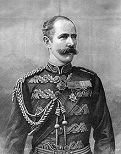










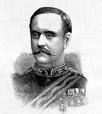





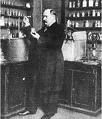
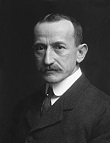







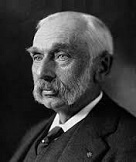






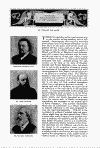

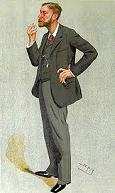
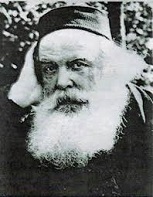
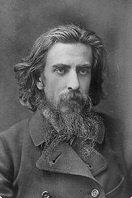
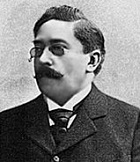
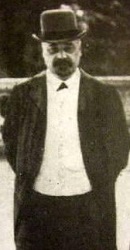

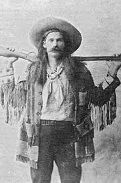



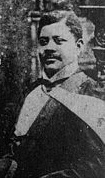










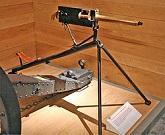



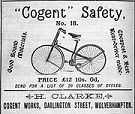


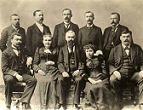


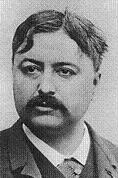



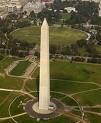


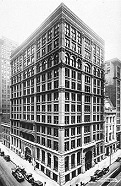



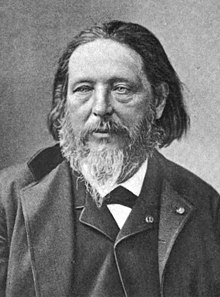
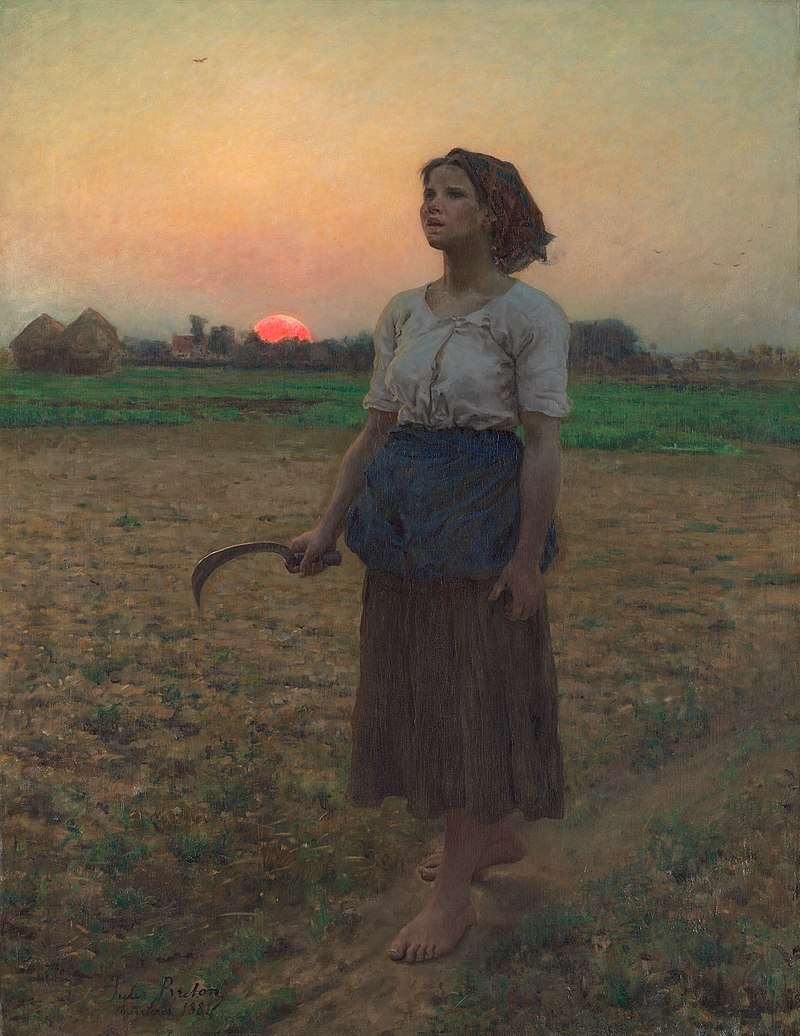
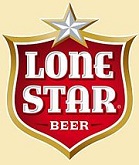
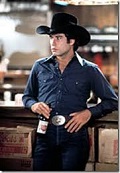
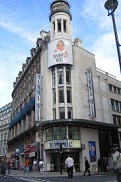
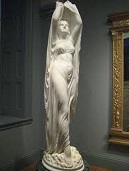
1884 And lead us not into temptation, but deliver us from evil? Although European penetration of Africa has been limited until 1880, the Belgians and the British start a race for colonialization, resulting in the 14-nation Berlin (Congo) (West African) Conference this year and next, marking the climax of white European land-grabbing in Africa, and resulting in the Treaty of Berlin next year; no single European power is permitted to claim the whole continent, and all claims have to be based on military occupation; Germany and France compete against Britain, with Kaiser Wilhelm I uttering the soundbyte that Germany is being "squeezed in the heart of Europe by colonizing neighbors", wanting to get some in Africa to compensate; by 1900 European states claim 90% of Africa - they can claim, but can they tame? On Jan. 4 the Ferrocarrilles del Estado state railway in Chile begins operation between Santiago and Valparaiso on broad gauge (1.676m) tracks; too bad, the tracks in N Chile are narrow gauge (1m). On Jan. 4 the British Socialist Fabian Society is founded in London by a group of middle-class intellectuals incl. Havelock Ellis (1859-1939) and Edith Nesbit (1858-1924) to promote democratic Socialism via gradualist-reformist efforts rather than rev. ovethrow; Irish playwright George Bernard Shaw (1856-1950) joins in 1884 - is that the dog that saved the day? On Jan. 18 U.S. steamship City of Columbus sinks off Gay Head Light, Mass., killing 99. On Feb. 8 Zulu king (1872-9) Cetshwayo (b. 1826) dies, and on May 20 his son Dinuzulu kaCetshwayo (1868-1913) becomes king of Zululand (until Oct. 18, 1913) while in the midst of the Zulu Civil War (begun July 22, 1883); on June 5 the Zulu Civil War (begun July 22, 1883) ends with the bloody Battle of Ghost Mountain (Tshaneni); the numerous skulls from the battle are later used as road markers; too bad, he had to use 800 Boer mercenaries, who turn around and demand the N half of his kingdom as payment, and after the British govt. intervenes and denies, er, reduces their claims, on Aug. 5 they declare Natal Colony, with capital at Vryheid, which is absorbed into Transvaal in 1889 - thanks, black suckahs? On Feb. 14 the mother of Theodore Roosevelt dies, then on the same day his wife Alice Hathaway Lee (b. 1861) dies in his arms two days after childbirth; "The light has gone out of my life" he writes in his tear-soaked diary. On Feb. 18 British Gen. Charles "Chinese" Gordon (later known as the Khartoum Pasha) arrives in Khartoum via Cairo, where is appointed gov.-gen. of Sudan again (1st time 1873), and pardons Sudanese slave trader ("Slaver King") Al-Zubayr (Sebehr) (Zobeir) Rahma (Rahma) Mansur AKA "the Black Pasha" in exchange for joining his forces, then astonishes Europe by offering him his job as gov.-gen. of Sudan, which is approved by Queen Victoria and William Gladstone but nixed by the British govt.; after 2.5K Egyptians are evacuated, the Madhi's army sieges Khartoum beginning Mar. 18; meanwhile another revolt against the Anglo-Egyptians begins in E Sudan, capturing the Red Sea port of Suakin after a British force under Gen. Sir Gerald Graham (1831-99) is ordered to evacuate, followed in May by Berber at the confluence of the Nile and Atbara Rivers; too bad, Gordon decides to ignore the order to evacuate Khartoum, and the British govt. doesn't back him up till Aug., sending the Nile Expedition (ends 1885) under Irish-born British gen. Garnet Joseph Wolseley, 1st Viscount Wolseley (1833-1913) to relieve him in Nov., and after his troops poke along too slowly, they send a flying column of 1.5K camel and horse troops under British gen. Sir Herbert Stewart (Stuart) (1843-85) from Wadi Halfa in N Sudan on Lake Nubia (Nasser) over the Bayyudah Desert, who reach Korti in late Dec., then use their nifty Gardner machine gun to defeat an army of 12K Mahdist Dervish Fuzzy-Wuzzies (Hadendoa Bejoa) at Abu Klema next Jan. 17, and Metemma on Jan. 19 (killing 1.1K while losing only 74 of their own), after which they are greeted by four steamer gunboats sent 4 mo. earlier by frantic Gordon, and embark on Jan. 24, a day late and a dollar, er, pound short?; on Feb. 16, 1885 Stewart dies en route back to Khartoum of a mo.-old wound, becoming a symbol of British devotion to loyalty. On Feb. 19-20 the U.S. South is rocked by the 15-hour Enigma Tornado Outbreak of 50-60 tornadoes in Ala., Ga., Ill., Ind., Ky., Miss., N.C., and S.C., Tenn. and Va., killing 178-1.2K and causing destroying 10K bldgs., causing $3M-$4M damage; on Aug. 28 the first photograph of a tornado is taken near Howard, S.D. - is this like when Jesus died and the sky darkened? (see Feb. 14 above) On Mar. 3 in Ex Parte Yarbrough, the U.S. Supreme (Waite) Court unanimously (9-0) upholds federal power to protect an individual's right to vote and punish private obstruction by Yarborough, a white man who is convicted of beating a black man to prevent his voting in a federal election. On Mar. 13 the U.S. Congress adopts Eastern Standard Time (EST) for the District of Columbia. On Apr. 4 the War of the Pacific (begun 1879) between Chile and Bolivia ends with the Truce of Valparaiso, and Bolivia loses several thousand sq. mi. incl. its outlet to the Pacific. On Apr. 19 steamship State of Florida collides with bark Ponema and sinks in the mid-Atlantic, killing 145. On May 11 after Empress Cixi gets pissed-off at their failure to keep the French from taking over Vietnam and dismisses Prince Gong and the grand council, minister Li Hongzhang signs a preliminary convention with French Capt. Francois Ernest Fournier (1842-1934), but that falls through and on June 23 the Chinese defeat the French at the Battle of Bacle (Baclé), leading to an undeclared war; on Aug. 23 the French navy destroys the new Fuzhou arsenal and begins attacking Taiwan. On May 30 "Magnificent Yankee" Oliver Wendell Holmes Jr. (1841-1953) gives a memorable feel-good Memorial Day Speech. On June 3 the Hewett Treaty (Treaty of Adwa) between Britain, Egypt, and Ethiopia ends the conflict between Egypt and Ethiopia; Ethiopia is given free transit for all goods incl. arms through the port of Massawa, with Britain guaranteeing protection; Egypt returns Bogos to Ethiopia; Ethiopia agrees to assist Egyptian troops in evacuating from Kassala, Amadid, and Senheit; Egypt agrees to allow passage of the new Abuna (spiritual) head of Ethiopia; Egypt and Ethiopia agree to extradition of criminals; Ethiopis agrees to British arbitration of disagreements; too bad, soon after Egypt evacuates Massawa, Italy invades, starting a new conflict between Ethiopia and Italy. On June 3-6 the 1884 Repub. Nat. Convention in Chicago, Ill. nominates former U.S. secy. of state (1881, 1889-92) James G. Blaine (1830-93) of Maine for pres., and Ill. Sen. (Civil War Union Gen.) John Alexander Logan (1826-86) for vice-pres.; Cleveland's rep. for honesty causes Tammany Hall, the Dem. machine in New York City to oppose him, while liberal Repubs. (Mugwumps, described as "a bird usually to be seen sitting on a fence, with its mug on one side and its wump on the other") desert the corrupt Blaine; meanwhile fun-guy U.S. Civil War Gen. Benjamin Franklin Butler (Mass. gov. since 1882) becomes the candidate of the new populist Anti-Monopoly Party (founded in Chicago, Ill. on May 14), which advocates laws regulating interstate commerce, direct popular vote for U.S. senators, a graduated income tax, repeal of all tariffs, and prohibition of govt. land grants to corporations; before the election the Nat. Greenback-Labor Party unites with it; on June 5 after U.S. Gen. Philip Sheridan succeeds U.S. Civil War hero slash villain Gen. William Tecumseh Sherman as CIC of the U.S. Army, Sherman refuses the Repub. pres. nomination, saying "I will not accept if nominated and will not serve if elected" - I'm too used to having somebody tell me what to do? On June 22 (9:00 p.m.) the Navy relief expedition led by Capt. Winfield Schott Schley (1839-1911) on the converted whaler Bear reaches the survivors of the Greely expedition at Cape Sabine, and rescues six of the original 25, incl. Greely; Albert L. Operti (1852-1927) is commissioned to produce the painting The Rescue of the Greely Party, which is hung at the U.S. Capitol. On July 8-11 the 1884 Dem. Nat. Convention in Chicago, Ill. sees pres. Chester Arthur, who secretly suffers from Bright's disease (kidney disorder) choose not to run again, and obese (but good kidneys) (libertarian?) Stephen Grover Cleveland of N.Y. chosen as their pres. candidate, with Thomas Andrews Hendricks of Ind. for vice-pres.; the nomination is clinched after a speech by U.S. rep. (D-Wisc.) (former Civil War Union gen.) Edward Stuyvesant Bragg (1827-1912), that attacks Manhattan's Tammany Hall machine, with the soundbyte: "They love him, gentlemen, and they respect him, not only for himself, for his character, for his integrity and judgment and iron will, but they love him most of all for the enemies he has made", to which the Tammany boss shouts that he "welcomed the compliment". On July 23 Spanish steamship Gijon collides with British steamship Lux off Finistere, killing 150. On Aug. 1 Kien Phuc is poisoned by the regents, and his younger brother Ham Nghi (1872-1943) becomes emperor of French-controlled Vietnam (until July 4, 1885). On Aug. 5 the cornerstone of the Statue of Liberty is laid on Bedloe's Island. On Aug. 29 Joseph Carey Merrick (1862-90), who suffers from gross deformities takes a job in a sideshow in England, and later is seen by physician Sir Frederick Treves, 1st Baronet (1853-1923), who eventually gives him shelter in London Hospital, where he becomes a Victorian celeb known as the Elephant Man, eventually dying after trying to sleep horizontally and dislocating his neck. On Oct. 15 the Society for the Protection of Jewish Immigrants from the Slavonic provinces is founded in Philadelphia, Penn. On Oct. 20 there is a great fire at the Eaton Sash and Blind Factory in West Carthage, N.Y. On Oct. 29 after Grover Cleveland acknowledges his fathering of an illegitimate child (making him the Bill Clinton of the 19th cent.?), while James G. Blaine is plagued by the compromising Mulligan Letters of 1876, which are finally pub., revealing the incriminating postscript, "Burn this letter", Blaine supporter Samuel Dickinson Burchard (1836-1901) (Protestant) calls the Dems. the party of "Rum, Romanism and Rebellion" in Blaine's presence at the Fifth Avenue Hotel in New York City, which he fails to disavow (even though his sister is mother superior in a convent), turning Catholics off, and later making him believe it costs the Irish Catholic vote in New York, which he loses by only 1,149 out of 1.125M votes cast) - shut up, shut up, shut up or I'll bust you up? In Oct. after deputizing himself to arrest a drunk cowboy, 9-lived N.M. atty. Elfego Baca (1865-1945) gets into a shootout in Reserve, N.M. with 40-80 gringo cowboys from the Jon Slaughter Ranch, who shoot 4K bullets into his adobe house, none of which hit him, while he kills four of them and wounds eight; after 33 hours, Baca surrenders unharmed; next Aug. he is acquitted of murder after the door of his house with 400 bullet holes is introduced as evidence. On Oct. 13 the Internat. Meridian Conference of delegates from 25 nations in Washington, D.C. adopts the SE London suburb of Greenwich (pr. GREN-ich) as the location of the Prime Meridian, to be used in a worldwide system of time zones; San Domingo votes against, and France and Brazil abstain; the old Arago (Paris) Rose Line passing through Paris (Church of Saint-Sulpice) is abandoned by every country except France, which doesn't get with it for several decades- like living in a sexless marriage? On Nov. 6 the Kattowitz (Katowice) Conference in Katowice, Germany for lovers of Zion (Chibath Zion) (many from Russia) gains Zionism its first internat. recognition. In Nov. Dem. candidate Grover Cleveland and his running mate Thomas A. Hendricks edge Rep. candidate James G. Blaine and his running mate Sen. John A. Logan by 4.9M to 4.8M popular votes (219 to 182 electoral votes); populist Benjamin Franklin Butler receives 130K votes, and his two populist parties soon fold. On Dec. 6 U.S. Army engineers set the capstone on the Washington Monument (begun July 4, 1848) N of Independence Ave. SW in Washington, D.C., designed by Charleston, S.C.born architect Robert Mills (1781-1855), who designed another one 20 years earlier in Baltimore, Md.; it is dedicated by Pres. Arthur on Feb. 21, 1885, and officially opened on Oct. 9, 1988, becoming the world's tallest manmade structure after the Cologne Cathedral (until 1889); it contains 36,491 stone blocks and is 555 ft. 5-1/8 in. tall, and its tip is made of 100 oz. of aluminum, the largest and costliest block of the metal yet cast (it was displayed at Tiffany's in New York City before being installed so that people could jump over it and pretend they were giants?); steam-powered elevators take visitors to the top in 12 min.; Leslie's mag. calls it an "unsightly pile on the Potomac", and Harper's says, "The huge shaft is in itself a rather meaningless memorial of a great man"; in 1998 it undergoes a $1.5M renovation - a giant white shaft sticking out of the U.S. capital city is meaningless? On Dec. 4-6 the Korean Coup (Gapsin or Kapsin Jeongbyeon or Rev.) of 1884 sees the Japanese-backed Reform Party attempt to oust the Chinese from Korea by taking advantage of its war with France, killing a number of ministers and capturing the king before Chinese troops recapture him and secure the palace in Seoul, causing the Japanese to flee along with reformist leader Kim Ok-kyun (Ok-gyun) (1851-94); full war between China and Japan is narrowly averted. On Dec. 6 the 1884 U.S.-Hawaii Treaty limits the duration of the 1875 commercial reciprocity treaty. In Dec. the Warren Expedition sees 4K British and local troops led by Maj. Gen. Sir Charles Warren (1840-1927) leave Cape Town accompanied by three newfangled observation balloons (first used by the British army in the field), then suppress the Boer freebooter states of Stellaland and Goshen, which were backed by the Transvaal and were accused of stealing land and cattle from local Tswana tribes; meanwhile a group of Boers led by 22-y.-o. Louis Botha (b. 1862) found New Repub. in Zululand. In Dec. the Tampa Bay Times (originally the "West Hillsborough Times") is founded in Dunedin, Fla., moving to St. Petersburg, Fla. in 1898 and changing the name to the "St. Petersburg Times", going from weekly to bi-weekly in 1907, and daily in 1912; in 1964-2009 it wins 12 Pulitzer Prizes; on Jan. 1, 2012 it is renamed the "Tampa Bay Times", reaching a modern-day circ. of 240K daily and 403K Sun. William Gladstone's 1884 Reform Act extends the number of eligible male voters in Britain by 6M. Chile extends suffrage to all males over 25 years of age. Spain creates a protectorate in the coastal areas of Morocco. Britain declares a protectorate over British New Guinea (Papua); special commissioner-gen. Sir Peter Henry Scratchley (1835-85) (come again?), a military engineer in charge of the defenses of Australia and New Zealand arrives in Port Moresby next year; meanwhile Germany annexes the NE mainland part of New Guinea and the 200-island 20K sq. mi. New Britain Archipelago (which it renames the Bismark Archipelago next year), incl. the islands of New Britain, New Ireland, New Hanover, Duke of York Islands, Admiralty Islands, Lavongai, and Manus (minus Bougainville), along with atolls in the Solomons (NW of a line through the Bougainvaille Strait, the other half going to Britain), all under the name Protectorate of the New Guinea Co., a private firm based in Berlin; it becomes a colony in 1899. France annexes a small strip of the hinterland to Obock to found the protectorate of French Somaliland (later Djibouti) in E Africa on the Gulf of Aden at the entrance to the Red Sea, and in 1888 founds the town of Djibouti on the Gulf of Tadjoura opposite Obock on the trade route to Ethiopia, but keeps the admin. in Obock (until 1892). Germany occupies SW Africa. Gen. Porfirio Diaz returns to power in Mexico, establishing a dictatorship ("the Porfiriato") (until 1910), appropriating Indian communal lands to give to the big landowners, exterminating Yaqui Indians in the north, impoverishing the peasantry, sexually exploiting women, crushing the middle class, and backing the Roman Cathlic Church as the opiate of the people - God bless you my son says the pope? Afghanistan conquers the khanate of Maymana. A French law excludes members of former dynasties from the presidency. The British South African Co. of Cecil Rhodes receives a charter to develop the country of Malawi (Nyasaland) in SE Africa, and end up in a war with Arab slavers in 1887-9; Bechuanaland NW of Johannesburg is occupied by the British at Rhodes' instigation. The U.S. Navy continues its modernization program, ordering five more small cruisers and two large cruisers, plus two 2nd-class battleships at 6.6K tons, the "Remember the" Maine, and the Texas; the Naval War College in Newport, R.I. opens. The U.S. Congress authorizes Enrolled Agents to prepare claims against the govt. for citizens whose property was confiscated during the U.S. Civil War; the EAs go on to become taxpayer reps. against the IRS in modern times. Divorce is relegalized in France. Cholera-plagued Naples gets a new pure water supply and sewage system, and begins eradicating its slums - but I like slumming in Naples? Facing competition from Liverpool, Bristol buys the docks at the mouth of the Avon River. After major floods in the Mississippi and Ohio river basins, the Am. Red Cross is helped for the 1st time by children, "The Little 6", who put on a play in Penn., raising $50. Bananas begin to be regularly imported to Britain by Elder Dempster & Co. from the Canary Islands - gotta hand it to 'em? Black-beautiful Miss.-born Ida B. Wells-Barnett (1862-1931) is thrown off a train in Memphis for refusing to sit in the coloreds-only section, and takes the Chesapeake & Ohio Railroad Co. to court, winning in the lower courts but losing in the Tenn. Supreme Court, then turning into a journalist and crusading for black equality - with flowers in her hair? English #1 journalist William Thomas Stead (1849-1912) pub. an article in the Pall Mall Gazette on Sept. 15 titled What is the Truth About the Navy?, warning of the growing German naval threat, causing Parliament to appropriate funds to modernize their navy; Stead gives the first known journalistic interview to British Gen. Chinese Gordon; next year he begins a crusade against child prostitution with a series of articles titled "The Maiden Tribute of Modern Babylon", arranging to have 13-y.-o. Eliza Armstrong "purchased" in order to create a news event; even though his sensational story causes passage of the U.S. Criminal Law Amendment (Stead) Act of 1885, raising the age of consent from 13 to 16, he ends up getting 3 mo. in priz since he didn't get permission from the girl's daddy; meanwhile he envisages an Anglo-Saxon reunification in the form of an imperial federation between the U.S. and U.K. After attending Ohio Central College, Warren G. Harding becomes interested in journalism and buys The Marion Star. The Capital daily newspaper is founded in Annapolis, Md.; in 2014 it is acquired by the Baltimore Sun Media Group. Sidney Colvin (1845-1927), friend (since 1873) of Robert Louis Stevenson becomes keeper of prints and drawings at the British Museum (until 1912); he is knighted in 1911. Eccentric Welshman Dr. William Price (1800-93) (who believes he is an arch-Druid and likes to dress up in the hooded robes) is acquitted in Cardiff for cremating his son, paving the way for, er, modern cremation. The London Convention on the Transvaal convenes - need to rethink that independence thingie? The first deep tube (underground railroad) begins operation in London. Groton School in Mass. is founded by Episcopalian Rev. The Am. Historical Assoc. (AHA) is founded in Washington, D.C., with Andrew Dickson White of Cornell U. as pres. #1 (until 1886), receiving a Congressional charter in 1889 "for the promotion of historical studies, the collection and preservation of historical manuscripts, and for kindred purposes in the interest of American history, and of history in America", going on to become the oldest and largest historian society in the U.S., pub. The Am. Historical Review and Perspectives on History; the first paper delivered at the first meeting in 1884 is by Dorchester, Mass.-born Harvard U. history prof. (1883-1929) Edward Perkins Channing (1856-1931), son of poet William Ellery Channing, who got turned on by a lecture by Henry Adams, wins the 1884 Tappan Prize for Town and County Government in the English Colonies (1983), and goes on to pub. A History of the United States (6 vols.) (1905-25), which becomes a std. work., stressing the endless progress and ultimate victory of the forces of union over particularism Social Darwinist style, covering the unique contributions of each section to the whole, and breaking with Frederick Jackson Turner and his Frontier Thesis to emphasize the role of urbanization and improvements in transportation. The Am. Society for Psychical Research is founded in Boston, Mass., with New York City-born psychologist William James (1842-1910) (brother of novelist Henry James) as pres. #1. The 15-member Wolf's Head Society (originally the Third Society) is founded at Yale U. to compete with Skull & Bones (1832)and Scroll & Key (1841). Endicott Peabody (1857-1944), practicing cold-shower "muscular Christianity", with the motto "To serve God means to rule", later becoming a factory for CIA and State Dept. bigwigs incl. FDR and the Harriman brothers; Peabody later officiates at the marriage of Franklin and Eleanor Roosevelt; Peabody's grandson Endicott "Chub" Peabody (1920-97) becomes Dem. Mass. gov. #62 in 1963-5. Miss. U. for Women (originally Industrial Inst. and College, later Miss. State College for Women) is founded in Columbus, Miss., becoming the first state-supported women's college in the U.S.; on July 1, 1982 the U.S. Supreme (Burger) Court rules 7-2 in Miss. U. for Women v. Hogan that a single-sex admissions policy for a state-support univ. violates the Equal Protection Clause of the 14th Amendment. Temple U. is founded in Philadelphia, Penn. by Baptist minister Dr. Russell Herman Conwell (1843-1925) of Conwell's Baptist Temple, becoming one of the top U.S. prof. schools incl. law, medicine, podiatry, pharmacy, dentistry, and architecture. The Nat. Confectioners Assoc. is founded in Chicago, Ill. by 69 candy firms, growing to 700 members by modern times, sponsoring the annual All Candy Expo at the McCormick Place Convention Center (Sweets & Snacks Expo in 2010); in 2008 it merges with the Chocolate Manufacturers Assoc. of the USA (Chocolate Council). Broadway theaters begin the tradition of handing out playbills. Czech composer Antonin Dvorak (1841-1904) makes the first of nine trips to England (until 1895), conducting and composing, and developing a love for Am. Negro spirituals and Am. Indian music. English poet-writer and top amateur fencer Walter Herries Pollock (1850-1926) succeeds Philip Harwood as ed. of Saturday Review (until 1894), collaborating with Andrew Lang and becoming friends with Rudyard Kipling, Robert Louis Stevenson, Oscar Wilde et al. The Ringling Brothers Circus is founded in Baraboo, Wisc. by five brothers (sons of German-born harness maker August Rungeling, all Freemasons) Albert C. Ringling (1852-1916), Alfred T. Ringling (1861-1919), Charles Edward Ringling (1863-1926), John Nicholas Ringling (1866-1936), and Otto Ringling (1858-1911); brothers August (Otto) Ringling (1854-1907) and Henry William George Ringling (1868-1918) join later; in 1954 their HA at 550 Water St. is turned into the Circus World Museum. Charles Taze Russell (1852-1916) et al. form the Bible-thumping Zion's Watch Tower Tract Society, and the Internat. Bible Students, later known as the Jehovah's Witnesses in Pittsburgh, Penn.; Russell, who believes that the Bible and its conflicting, er, moral code are absolute truth, marries beautiful virgin Bible-thumping babe Maria Frances Ackley (1850-1938) in 1879 after er, knowing her a few mo., and they live together in a chaste marriage, with zero sex, leaving them both all the time they want to read their you know whats and plan for eternal life together after Armageddon, when there is plenty of time to, ahem, you know what, and raise children; too bad, she gets ideas that he considers extra-Biblical about women having a role in running the org., and they separate in 1897, after which it gets dirty and she sues for divorce in 1906, using the trial to expose his dirty laundry. English artist-poet William Morris (1834-96) et al. found the Socialist League, which pub. The Commonweal. The Tembu Nat. Church is founded in Transkei, Africa by Nehemiah Xoxo Tile. Charles Francis Adams Jr. (1835-1915), grandson of John Quincy Adams becomes pres. of the Union Pacific Railroad (until 1890). Robert Hoe et al. found the Grolier Club, devoted to the art of book making (not bookmaking) for bibliophiles, named after French treasurer-gen. and bibliophile Jean Grolier de Servieres (Servičres), Viscount d'Aguisy (1479-1565), whose motto is "Of or belonging to Jean Grolier and his friends". Wilhelm Gericke (1845-1925) becomes conductor of the Boston Symphony Orchestra (until 1889). Payson, Ariz. hosts the first continuous Am. rodeo, organized by Abraham (Charles) Henson "Arizona Charlie" Meadows (1860-1932). The Memorial Sloan-Kettering Cancer Center (originally New York Cancer Hospital) in New York City is founded; in 1945 Alfred P. Sloan Jr. and Charles F. Kettering found the Sloan Kettering Inst. with a $4M gift from Sloan to apply industrial research techniques to cancer research. James Gordon Bennett Jr. of the New York Herald teams with Am. financier John W. Mackay to found the Commercial Cable Co. to combat the cable monopoly of Jay Gould and lower prices to help Bennett's newspaper empire. Bunge y Born in Buenos Aires, Argentina is founded by German-born Ernesto Bunge, becoming the #1 food processing co. in Argentina, branching into chemicals and fertilizer by the 1930s. Ringling Brothers Circus establishes its HQ and wintering grounds in Baraboo, Wisc. (until 1917), causing it to become known as "Circus City". Marks and Spencer luxury food products co. is founded in Leeds, London, England by Polish Jewish immigrant Michael Marks (1859-1907) and Thomas Spencer (182-1905); the store brand is called St. Michael's; by 1998 it has 1K stores in the U.K., Russia, Greece, Turkey, and Europe, becoming the first British retailed with a pre-tax profit of Ł1B before slumping because of the Internet. The word "tabloid" is trademarked for a new type of medicine pill, and is later used for a half-sized picture-filled sensational newspaper. The newspaper Le Matin (The Morning) begins pub. in Paris. (until 1944), founded by New York Evening Telegram ed. (since 1881) Samuel Selwyn Chamberlain (1851-1916) on the model of The Morning News of Britain; the first issue is pub. on Feb. 26; in 1889 he becomes ed. of William Randolph Hearst's San Francisco Examiner, followed by the New York Morning Journal (1895), Philadelphia North American (1900), New York American (1905), Cosmopolitan (1907), and back to the San Francisco Examiner (1909-15). Imo Zabi Ntgundo, the first Xhosa newspaper begins pub. in Africa. Franklin H. Sargent (1851-1923) and Steele MacKaye (1842-94) found the Am. Academy of Dramatic Arts (original name the Lyceum Theatre School) in Plattsburg, N.Y., which is chartered by the state of N.Y. in 1899, giving instruction in all aspects of the theater; Sargent commits suicide with a revolver in 1923. Playbill begins pub. in New York City, starting with a single theater on 21st St., and expanding to cover nearly all Broadway and off-Broadway shows. Georges Seurat forms the Societe des Artistes Independants with Maximilien Luce (1858-1941), Paul Signac (1863-1935) et al., then in the summer begins working on his masterpiece "Sunday Afternoon on the Island of La Grande Jatte" (finished 1886). After seducing his wife's 13-y.o. sister Yuliana Dmitrievna "Justine" Glinka (1844-1918) in 1857, and getting her pregnant, Russian historical novelist Vsevolod Sergeyevich Solovyov (1849-1903) son of historian Sergei Solovyov and brother of philosopher Vladimir Solovyov flees to Paris and hooks up with Theosophy founder Madame Blavatsky, but breaks with her in 1886, denouncing her as a failed spy for the Okhrana; meanwhile Glinka moves to Paris and also hooks up with Blavatsky, becoming a secret agent of Okhrana chief in Paris (1885-1902) Pyotr Ivanovich Rachkovsky (1853-1910), allegedly delivering the infamous "Protocols of the Elders of Zion" to him. Rubery Owen engineering co. is founded in Darlaston, West Midlands, England by the Rubery Brothers John Tunner Rubery (1849-29), Samuel Rubery (1844-1910), and Thomas William Rubery (1856-1925) to manufacture iron gates and fences; in 1903 engineer Sir Alfred George Beech-Owen (1900-75) replaces two brothers; after expanding in the 1920s-30s to manufacture metal airframes et al., they manufacture the first British forklift truck in 1946. The Simmons & Wright Co. gen. store in Kewanee (near Meridian), Miss. is founded, becoming famous for its hoop cheese and for allowing farmers to pay them with cotton during the Great Depression. The Lone Star Brewing Co. is founded in San Antonio, Tex. by Adolphus Busch of St. Louis, Mo. and Otto Koehler, becoming the first large mechanized brewery in Tex., producing "the National Beer of Texas"; it is prominently featured in the 1980 film "Urban Cowboy"; in 1976 it is acquired by Olympia Brewing Co., which in 1983 is acquired by G. Heileman, which in 1996 is acquired by Stroh Brewery. Sports: The All Blacks nat. rugby football team of New Zealand first competes internationally against Cumberland County, N.S.W., Australia, going on to compile a winning record against every internat. rugby team. English cricketer George Lohmann (1865-1901) plays first-class cricket for Surrey in 10 matches, going on next year to becoming one of the top bowlers of all time. Women are allowed to play in the All-England Lawn Tennis Championships in Wimbledon; Maud Watson (1864-1946) becomes the first women's singles champion, winning the Venus Rosewater plate - to serve men with? The Gaelic Athletic Assoc. of Ireland establishes official rules for Gaelic Football, popular since the 16th cent., where whole towns attempt to drive a ball across a line in the opponent's town. The Hong Kong Jockey Club is founded to promote amateur horseracing, going prof. in 1971, and getting a royal charter from Elizabeth II in 1959, receiving a govt. monopoly. Architecture: In Jan. the Prince of Wales Theatre on Coventry St. between Piccadilly Circus and Leicester Square in West End, London (cap. 800) opens as the Prince's Theatre (until 1886); the first production is W.S. Gilbert's "The Palace of Truth", starring Herbert Beerbohm Tree; in 1885 the theater helps launch the career of Lillie Langty; in 1892 the first English musical comedy "In Town" debuts there; rebuilt in 1937, with cap. 1,160. The first steel-framed office bldg. (skyscraper), the 10-story 180-ft. Home Insurance Bldg. in Chicago (1884-5) is designed by Fairhaven, Mass.-born architect William Le Baron Jenney (1832-1907), becoming the tallest bldg. on Earth (until 1889); demolished in 1931. Italian architect Giuseppe Sacconi (1854-1905) begins building a Monument to King Victor Emmanuel II in Rome (finished 1911). Inventions: On Aug. 9 Arthur Constantin Krebs (1850-1935) and Charles Renard (1847-1905) pilot the electric-powered French army airship La France in Chalais Meudon near Paris, covering 8 km (5 mi.) in 23 min., becoming the first round-trip fully controlled takeoff and landing free-flight. Edward Goodrich Acheson (1856-1931), an asst. of Thomas Edison since 1880 invents Carborundum (crystalline silicon carbide) (#2 hardest surface next to diamond) (named after corundum or aluminum oxide) during experiments for producing artificial diamonds by heating a mixture of clay and coke with a carbon arc, and receives a patent in 1893, although his electric batch furnace patent goes to Electric Smelting and Aluminum Co. - of Topeka? Canadian chemist Marcellus Gilmore Edson (1849-1940) of Montreal patents Peanut Butter (#306,727), selling it to people with poor teeth for 6 cents/lb. Norwegian inventor Jens William Aegidius Elling (1861-1949) patents the first Gas Turbine, which produces 11 net hp; it takes until 1903 to build one that produces excess power. Am. inventor Stephen Dudley Field invents a speed stock ticker. Am. inventor Herman Hollerith (1860-1929) submits a patent for the punched card reader, called the Electric Tabulating Machine, initially used by the U.S. Census and later used on computers, going on to found Internat. Business Machines Co. (IBM) (originally the Computing-Tabulating-Recording Co.) on June 16, 1911. U.S.-born English engineer Sir Hiram Stevens Maxim (1840-1916), after giving up on competing with Thomas Edison takes a friend's 1883 advice "If you want to make your fortune, invent something to help these fool Europeans kill each other more quickly", and in June-July patents the portable recoil-operated automatic quick-fire Maxim (Machine) Gun (600 rounds a min.) and founds the Maxim Gun Co. in Crayford, Kent to produce it, which is bought out in 1896 by Vickers Corp., causing it to become known as the Vickers Gun, becoming the standard British machine gun, also adopted by the Russians; after it becomes responsible for killing half the Japanese in the Russo-Japanese war, he is knighted by Queen Vicky in 1901 - trench warfare when when when? Am. inventor Ottmar Mergenthaler (1854-99) invents the Linotype, which produces a solid line of type at a breathtaking 4 lines per min. (up to 15 by 1945), becoming the greatest advance in info. technology since Gutenberg?; the New York Tribune begins using it commercially on July 1; the two left-hand vertical rows of the keyboard form the sequences "etaoin shrdlu"; an English trade journal runs a cartoon of a robot setting type, expressing Luddite fears among printers. English engineer Charles Algernon Parsons (1854-1931) invents the first practical steam turbine engine, showing it off in June 1897 by powering his yacht Turbinia at an unheard of 34 knots (vs. 27 knots for the fastest Royal Navy ships of the day), getting knighted for it in 1911. John Kemp Starley (1854-1901) of Coventry, England invents the Rover Safety Bike, with diamond-shaped frame, two wheels of identical size (26 in.), and a chain-driven rear wheel, using a large front cog and small rear cog, which "sets the pattern to the world", making the penny-farthing seem like a needless risk; no seat or brakes yet. Am. insurance salesman Lewis Edson Waterman (1837-1901) invents the first practical Fountain Pen with a hair-thin channel to draw the ink by capillary attraction - just like little tiny petite me? Science: On Nov. 25 after English physician Alexander Hughes Bennett (1848-1901) diagnoses the location based on neurological findings alone, English surgeon Sir Rickman John Godlee (1849-1925) performs the first primary (exposed) brain tumor removal, founding Brain Surgery. The analgesic Aminopyrine is discovered and used a synthetic substitute for quinine. Swedish chemist Svante August Arrhenius (1859-1927) proposes the ionic theory of chemistry in his doctoral dissertation, pointing out that solutions of salt in water are better conductors than pure salts or pure water, and dissociation into ions is practically complete even when there is no passage of electric current; his teachers barely pass him, but he later wins the 1903 Nobel Chem. Prize. Sierra Leonean physician John Farrell Easmon (1856-1900) pub. the pamphlet "The Nature and Treatment of Blackwater Fever", coining the term "blackwater fever" for a malarial infection in which red blood cells bust in the bloodstream, leading to kidney failure. Emil Fischer (1852-1919) makes a breakthrough in the chemistry of sugars, discovering a reaction that crystallizes them, and the configuration of glucose. Austrian ophtalmologist Karl Koller (1857-1944) first uses cocaine as a local anesthetic for eye surgery, becoming known as Coca Koller after he emigrates to the U.S. in 1888 German physician Arthur Nicolaier (1862-1934) discovers the tetanus bacillus. Am. geologist S.E. Osborn explores Mesa Verde in Colo., and enters Balcony House. Russian physiologist Ivan Petrovich Pavlov (1849-1936) begins studying the digestive secretion of animals. Manchester-born English physicist John Henry Poynting (1852-1914) pub. Poynting's Theorem for the conservation of energy in an electric field, introducing the concept of the Poynting Vector. French neurologist Georges Albert Edouard Brutus Gilles de la Tourette (1857-1904) first medically describes g-d-d-mned-f-ck-in-g (coprolalia) (shit-speaking) (tic malady) Tourette's Syndrome; actually it is called Brissaud's Disease for French physician Edouard Brissaud (1852-1909) after he pub. a description in 1896, but later "Father of Modern Neurology" Jean Martin Charcot (1825-93) restores credit to Tourette - it would have to be Brutus? Nonfiction: Herbert Baxter Adams (1850-1901), Methods of Historical Study. Susan B. Anthony (1820-1906), Elizabeth Cady Stanton (1815-1902), Matilda Joslyn Gage (1826-98), and Ida Husted Harper (1851-1931), The History of Woman Suffrage (4 vols.) (1884-7). Eugen von Bohm-Bawerk (1851-1914), Kapital und Kapitalzins (Capital and Interest) (3 vols.) (1884-95); "History and Critique of Interest Theories" (1884), "Positive Theory of Capital" (1889), "Karl Marx (1818-83) and the Close of His System" (1895), Recent Literature on Interest (1884-9). Georg Morris Brandes (1842-1927), Danish Poets. Lewis Carroll (1832-98), The Principles of Parliamentary Representation. Felix Dahn (1834-1912), Die Kreuzfahrer (The Crusaders). Edward Dicey (1832-1911), England and Egypt. Richard T. Ely (1854-1943), The Past and Present of Political Economy. William Clark Falkner, Rapid Ramblings in Europe. David Dudley Field (Jr.) (1805-94), Speeches, Arguments and Miscellaneous Papers (1884-90). Sigmund Freud (1856-1939), Uber Coca; the wonderful drug cocaine, useful as a mental stimulant, aphrodisiac, and treatment for morphine and alcohol addiction; too bad, after the advent of hypodermic needles, morphine addicts begin mixing cocaine in to boost the high, causing Freud to call its use "like trying to cast out the Devil with Beelzebub". James Anthony Froude (1818-94), Thomas Carlyle: A History of His Life in London, 1834-1881 (2 vols.) (1882-4); causes a war with Carlyle's niece Mrs. Alexander Carlyle, who doesn't want his dirty laundry aired. Gottlob Frege (1848-1925), The Foundations of Arithmetic (Die Grundlagen der Arithmetik); defines artithmetical concepts in logical terms; makes fans of Bertrand Russell and Ludwig Wittgenstein. Laurence Gronlund (1846-99), The Cooperative Commonwealth: an Exposition of Modern Socialism. Mark Hopkins (1802-87), Teachings and Counsels. Henry Houssaye (1848-1911), The Land Act in Sparta. Richard Jefferies (1848-87), Life of the Fields. Prince Peter Kropotkin (1842-1921), Paroles d'un Revolte (Memoirs of a Revolutionist); Eng. trans. 1899. Stanley Lane-Poole (1854-1931), Social Life in Egypt: A Description of the Country and Its People. Andrew Lang (1844-1912), Custom and Myth. Sir John Lubbock, 1st Baron Avebury (1834-1913), Ants, Bees, and Wasps: A Record of Observations on the Habits of the Social Hymenoptera; causes Punch to satirize him with the rhyme "How doth the Busy Banking Bee/ Improve his shining Hours?/ By studying on Bank Holidays/ Strange insects and Wild Flowers!" Ilya Mechnikov (1845-1916), Theory of Phagocytes. Max Mueller (1823-1900), Biographical Essays. Sir James Augustus Henry Murray (1837-1915) (ed.), The Oxford English Dictionary (OED) (A New English Dictionary on Historical Principles; founded mainly on the materials collected by the Philological Society (10 vols.) (1884-1928) (supplement pub. in 1933); compiles it by collecting huge piles of scraps of paper with notes on them in his cramped cottage?; the 2nd ed. (1989) is 21,728 pages in 20 vols. Simon Newcomb (1834-1909), Extent of the Universe. Laurence Oliphant (1829-88), Symppneumata: Evolutionary Forces Now Active in Man. Ernest Renan (1823-92), Souvenirs d'Enfance et de Jeunesse (autobio.); his magical Celtic world of Brittany. Herbert Spencer (1820-1903), The Man Versus the State; The "coming slavery" of statism; "The function of Liberalism in the past was that of putting a limit to the powers of kings. The function of true Liberalism in the future will be that of putting a limit to the power of Parliaments"; "One of the most powerful and influential arguments for limited government, laissez faire and individualism ever written" (Henry Hazlitt). John Lawson Stoddard (1850-1931), Red-Letter Days Abroad; his round-the-world trip in 1874. Henry Baker Tristram (1822-1906), The Fauna and Flora of Palestine. David Ames Wells (1828-98), The Primer of Tariff Reform. Justin Winsor (1831-97), Narrative and Critical History of America (8 vols.) (1884-9). Music: Eugen d'Albert (1864-1932), Piano Concerto No. 1 in B Minor, Op. 2. Johannes Brahms (1833-97), Symphony No. 3 in F major, Op. 90. Claude Debussy (1862-1918), L'Enfant Prodigue; wins him the Grand Priz de Rome, causing him to spend two years there. Anton Bruckner (1824-96), Symphony No. 7 (Leipzig). Antonin Dvorak (1841-1904), The Specter's Bride (oratorio). Cesar Franck (1822-90), Prelude, Chorale, and Fugue; Les Djinns (symphonic poem). Sir William Schwenck Gilbert (1836-1911) and Sir Arthur Sullivan (1842-1900), Princess Ida (comic operetta #8); satires the women's movement. Gustav Mahler (1860-1911), Lieder Eines Fahrenden Gesellen. Jules Massenet (1842-1912), Manon (opera) (Opera-Comique, Paris) (Jan. 19); based on the 1731 novel "Manon Lescaut" by Abbe Prevost; his biggest hit. Percy Montrose, Oh My Darling, Clementine. Viktor Nessler, Der Trompeter von Sackingen (opera) (Leipzig). Bedrich Smetana (1824-84), Viola (incomplete); based on Shakespeare's "Twelfth Night". C.V. Stanford, Savonarola (opera) (Hamburg). Art: Jules Breton (1827-1908), The Song of the Lark; seeting it in the Art Inst. of Chicago in 2014 make Hollywood actor Bill Murray decide to not commit suicide. Sir Edward Coley Burne-Jones (1833-98), King Cophetua and the Beggar Maid. Walter Crane (1845-1915), The Bridge of Life. Edgar Degas (1834-1917), The Ironers. Thomas Eakins (1844-1916), The Swimming Hole. Jean-Louis Forain (1852-1931), Au Buffet. William M. Harnett, After the Hunt (tromp l'oeil). Winslow Homer (1836-1910), The Life Line. Chauncey Bradley Ives (1810-94), Undine Rising from the Waters; becomes a hit with art historians, who like to grace their front covers with it. Jule Joseph Lefebvre (1836-1911), The Feathered Fan; Portrait of Edna Barger. William Quiller Orchardson (1832-1910), Manage de Covenance; his most popular. Pierre-Auguste Renoir (1841-1919), The Bathers (1884-5). John Singer Sargent (1856-1925), Madame X. Georges Seurat (1859-91), Une Baignade, Asnieres. Plays: Michael Field (Edith Emma Cooper) (1862-1913), Calirrhoe. Gunnar Heibert (1857-1929), Tante Ulrikke (debut); a hit, it gets him the job as artistic dir. of the Nat. Theater in Bergen (1884-8), but his choice of plays to produce gets him canned. Henrik Ibsen (1828-1906), The Wild Duck; Hakon Werle, his son Gregers, Old Ekdal, Hialmar Ekdal, and Hedvig, who shoots not her duck but herself. Henry Arthur Jones (1851-1929), Saints and Sinners; 200 perf.; controversial depiction of middle class village life, incl. religion. Mihaly Munkacsy (1844-1900), Golgotha. Jean Richepin (1849-1926), Nana Sahib. Marie Spartali Stillman (1844-1927), Madonna Pietra degli Scrovigni. Poetry: Teofilo Braga (1843-1924), Miragens Seculares. Robert Browning (1812-89), Ferishtah's Fancies. Louise Imogen Guiney (1861-1920), Songs at the Start. Andrew Lang (1844-1912), Ballads and Verses Vain; Rhymes a la Mode. Walter Herries Pollock (1850-1926), Verses of Two Tongues. William Sharp (1855-1905), Earth's Voices; Sophistra and Other Poems. Jean Moreas (1856-1910), Les Syrtes. Jean Richepin (1849-1926), Les Blasphemes. Algernon Charles Swinburne (1837-1909), A Midsummer Holiday. Novels: Edwin Abbott (1838-1926), Flatland: A Romance of Many Dimensions; A Square encounters a Sphere from another world; ignored until Einstein's Theory of Relativity comes out, after which it becomes a classic. Henry Brooks Adams (1838-1918), Esther; New York City society. Louisa May Alcott (1832-88), Spinning-Wheel Stories. Walter Besant (1836-1901), Dorothy Forster (3 vols.). William Black (1841-98), Judith Shakespeare; William's daughter. Paul Bourget (1852-1935), L'Irreparable (first novel). Louis Henri Boussenard (1847-1910), Aventures Périlleuses de Trois Français au Pays des Diamants; set in a mysterious cavern beneath Victoria Falls. Mary Elizabeth Braddon (1837-1915), Ishmael. Wilkie Collins (1824-89), "I Say No". Alphonse Daudet (1840-97), Sappho: A Realistic Novel. Gabriele d'Annunzio (1863-1938), Il Libro delle Vergini. Juliana Horatia Ewing (1841-85), Jackanapes. H. Rider Haggard (1856-1925), Dawn; The Witch's Head. Joel Chandler Harris (1848-1908), Mingo, and Other Sketches in Black and White (short stories). Margaret Wolfe Hungerford (1855-97), Doris; The Witching Hour and Other Stories; Fortune's Wheel and Other Stories; A Week in Killarny (Her Week's Amusement). J.K. Huysmans (1848-1907), A Rebours (Against Nature); decadent novel about about homosexual aesthete Jean des Esseintes, turning on Oscar Wilde et al. to you know what? Helen Hunt Jackson (1830-85), Ramona (Sp. "wise guardian") (Nov.); bestseller (15K copies) about an Indian man and white woman who have a halfbreed orphan girl who suffers racial discrimination after the Mexican-Am. War; the first novel about S Calif., dramatizing the plight of Am. Indians, influencing S Calif. culture; on Apr. 13, 1923 the first annual reenactment is held at the Ramona Bowl Amphitheatre in Hemet, Calif. Guy de Maupassant (1850-93), Les Soeurs Rondoli (short stories). Conrad Ferdinand Meyer (1825-98), The Wedding of the Monk (Die Hochzeit des Monchs); Dante Allighieri's Italy. Charles Reade (1814-84), The Jilt and Other Tales; Good Stories of Man and Other Animals. Jean Richepin (1849-1926), sophie Monnier. Edward Payson Roe (1838-88), Nature's Serial Story; A Young Girl's Wooing. Henryk Sienkiewicz (1846-1916), With Fire and Sword. August Strindberg (1849-1912), Sleepwalker Awakens to the Day; Married (short stories) (1884-6). Bertha von Suttner (1843-1914), High Life. Leo Tolstoy (1828-1910), The Memoirs of a Madman (autobio.). Paul Verlaine (1844-96), Jadis et Naguere. Mrs. Mary Humphry Ward (1851-1920), Miss Bretherton (first novel). Births: Am. Dem. Colo. gov. #26 (1933-37) and #34 (1955-7) Edwin Carl Johnson (d. 1970) on Jan. 1 in Scandia, Kan. Am. novelist-filmmaker (black) Oscar Micheaux (Michaux) (d. 1951) on Jan. 2 in Metropolis, Ill.; first African-Am. filmmaker. Am. "Some of These Days", "My Yiddish Momme" singer-comedian (Jewish) ("Last of the Red-Hot Mamas") Sophie Tucker (Sonia Kalish) (d. 1966) on Jan. 13 in Russia; emigrates to the U.S. as an infant; starts out singing in blackface until 1909. English "Swallows and Amazons" children's writer Arthur Michell Ransome (d. 1967) on Jan. 18 in Leeds. Soviet diplomat-historian Ivan Mikhailovich Maiski (Mayski) (Jan Lachowiecki) (d. 1975) on Jan. 19 in Kirolov; Russian Polish descent parents. Am. ACLU founder Roger Nash Baldwin (d. 1981) on Jan. 21 in Wellesley, Mass.; educated at Harvard U. German diplomat Ludwig Maximilian "Max" Erwin von Scheubner-Richter (d. 1923) on Jan. 21 in Riga, Livonia (Latvia). Australian field marshal (1st) Sir Thomas Albert Blamey (d. 1951) on Jan. 24 in Wagga Wagga, New South Wales; CIC of Allied ground forces in the SW Pacific in 1942-5. English "Rio Rita", "Funny Face" librettist-caricaturist Frederick A. "Fred" Thompson (d. 1949) on Jan. 24 in London. Am. naturalist Roy Chapman Andrews (d. 1960) on Jan. 26 in Beloit, Wisc.; educated at Beloit College, and Columbia U.; discoverer of the baluchitherium; model for Indiana Jones? Am. Sapir-Whorf Hypothesis anthropologist-linguist (Jewish) Edward Sapir (d. 1939) on Jan. 26 in Lauenburg, Prussia; educated at Columbia U. Swiss physicist-inventor-explorer Auguste Antoine Piccard (d. 1962) on Jan. 28 in Basel; twin brother of Am. chemist and aeronautical engineer Jean Felix Piccard (d. 1963); both known for balloon ascents into the stratosphere, and Auguste for ocean descents in a bathyscaphe. Azerbaijan pres. #1 (only) (1918-20) (Muslim) Mammad Amin Rasulzade (d. 1955) on Jan. 31 in Novxani (near Baku). Am. Egyptologist Herbert Eustis Winlock (d. 1950) on Feb. 1 in Washington, D.C.; educated at Harvard U. Russian "We" novelist Yevgeny Ivanovich Zamyatin (d. 1937) on Feb. 1 in Lebedyan; the letter "L" is pale, cold and light blue? German "Letters to a Woman Painter" New Objectivity expressionist painter-sculptor-writer Max Beckmann (d. 1950) on Feb. 2 in Leipzig, Saxony; known for his self-portraits; "a cultural Bolshevik" (Nazi govt.). Am. "Gus the Fireman in Leave It to Beaver" actor Burton Hill "Burt" Mustin (d. 1977) on Feb. 18 in Pittsburgh, Penn.; educated at Penn. Military College; debuts in William Wyler's "Detective Story" (1951). Am. baseball hall-of-fame umpire ("The Boy Umpire") William George "Billy" Evans (d. 1956) on Feb. 10 in Chicago, Ill.; educated at Cornell U. Am. lyricist (Jewish) Bert Kalmar (d. 1947) on Feb. 10 in New York City; collaborator of Harry Ruby (1895-1974). Estonian Gen. Johan Laidoner (d. 1953) on Feb. 12 in Viiratsi. Am. socialite"Princess" Alice Lee Roosevelt Longworth (d. 1980) on Feb. 12 in New York City; eldest child of Theodore Roosevelt (1858-1919) and 1st wife Alice Hathaway Lee (b. 1861), who dies on Feb. 14 of Bright's Disease; wife (1906-31) of Nicholas Longworth III (1869-1931); spends her life rebelling from daddy? Am. Olympic pole vaulter and Erector Set inventor Alfred Carlton Gilbert (d. 1961) on Feb. 15 in Salem, Ore.; educated at Pacific U., and Yale U. Am. "Smith and Dale" comedian (Jewish) Joe Smith (Joseph Sultzer) (d. 1981) on Feb. 16 in New York City. German July 20th plotter Ulrich Freiherr von Sell (d. 1945) on Feb. 18 in Berlin. Am. silent film actor Lew Cody (Louis Joseph Cote) (Côté) (d. 1934) on Feb. 22 in Waterville, Maine; French Canadian parents; grows up in Berlin, N.H.; educated at McGill U.; husband (1910-11, 1913-14) of Dorothy Dalton (1893-1972) and (1926-30) Mabel Normand (1892-1930). Am. "thoroughly sodden travelling author" occultist journalist-traveller William Buehler Seabrook (d. 1945) on Feb. 22 in Westminster, Md.; tries human meat in West Africa, and compares it to "good, fully developed veal". Am. biochemist (Jewish?) (coiner of the term "vitamin" in 1911) Casimir (Kazimierz) Funk (d. 1967) on Feb. 23 in Warsaw, Poland; emigrates to the U.S. in 1939. Jamaican PM (1962-7) Sir William Alexander Clarke Bustmante (d. 1977) on Feb. 24 in Hanover. Am. tennis player Anna Margaretha "Molla" Bjurstedt Mallory (d. 1959) on Mar. 6 in Mosvik, Norway; emigrates to the U.S. in 1915, working as a manly woman masseuse. Welsh poet Robert Williams Parry (d. 1956) on Mar. 6 in Talysarn, Dyffryn Nantlle; educated at Bangor U. British "The Secret City" novelist Sir Hugh Seymour Walpole (d. 1941) on Mar. 13 in Auckland, New Zealand; son of Right Rev. G.H.S. Walpole, bishop (1910-) of Edinburgh; educated at Emmanuel College, Cambridge U.; knighted in 1937. Am. stage and silent film actor Harrison Ford (d. 1957) on Mar. 16 in Kansas City, Mo.; husband (1909-) of Beatrice Prentice (1884-1977); not to be confused with actor Harrison Ford (1942-). German "Zen in the Art of Archery" philosopher Eugen Herrigel (d. 1955) on Mar. 20 in Lichtenau, Baden. Am. Ergodic Theorem mathematician George David Birkhoff (d. 1944) on Mar. 21 in Overisel, Mich; educated at Harvard U., and U. of Chicago; father of Garrett Birkhoff (1911-96). Am. physicist-chemist Peter Josephus Wilhelmus (Joseph William) Debye (d. 1966) on Mar. 24 in Maastricht, Netherlands; educated at the U. of Munich. French Roman Catholic Cardinal (1936-) Eugene-Gabriel-Gervais-Laurent Tisserant (d. 1972) on Mar. 24 in Nancy; 2nd person after Pope Paul VI to sign the acts of Vatican II. German pianist Wilhelm Backhaus (Bachaus) (d. 1969) on Mar. 26 in Leipzig, Germany; emigrates to Switzerland in 1930. Polish anthropologist (in England and the U.S.) Bronislaw Kasper Malinowski (d. 1942) on Apr. 7 in Cracow; educated at Jagiellonian U., U. of Leipzig, and London School of Economics. Am. physician-biochemist (Jewish) Otto Fritz Meyerhof (d. 1951) on Apr. 12 in Hanover, Germany; emigrates to the U.S. in 1940. English "Eton Echoes" novelist-poet (Jewish) Gilbert Frankau (d. 1952) on Apr. 21 in London; son of Julia Frankau (1864-1916); Jewish parents; father of Pamela Frankau (1908-67); brother of Ronald Frankau (1894-1951); baptized as an Anglican at age 13; educated at Eton College; writes "As a Jew I Am Not Against Hitler" in 1933 for the Daily Express, then later retracts it. Austrian psychoanalyst Otto Rank (Rosenfeld) (d. 1939) on Apr. 22 in Vienna; collaborator of Sigmund Freud. Am. auto racer-manufacturer Arthur Chevrolet (d. 1946) on Apr. 25 in La Chaux-de-Fonds, Neuchatel; brother of Louis Chevrolet (1878-1941) and Gaston Chrevolet (1892-1920). Am. silent film actor-dir. William Davis Garwood Jr. (d. 1950) on Apr. 28 in Springfield, Mo.; educated at Drury College. U.S. Dem. pres. #33 (1945-53) and vice-pres. #34 (1945) (lefty) (Freemason) Harry S. Truman (d. 1972) on May 8 near Lamar, Mo.; born on a farm; his parents can't decide whether to name him for grandfather Shippe or grandfather Solomon, so they give him the initial S but no name; he is so bookish as a child that he refuses to take part in sports for fear of breaking his glasses, and memorizes the U.S. Army eye exam chart to get accepted? Am. silent film actress-writer Olga Petrova (Muriel Harding) (d. 1977) on May 10 in England. Am. operatic soprano (Jewish) Alma Gluck (Reba Fiensohn) (d. 1938) (pr. GLOOK) on May 11 in Iasi, Romania; emigrates to the U.S. as a child; wife of Efrem Zimbalist Sr. (1889-1985); mother of Efrem Zimbalist Jr. (1918-); her 1916 Victor recording of "Carry Me Back to Old Virginia" is the first celebrity recording by a classical musician to sell 1M copies. German airplane manufacturer Claudius (Claude) Honore Desire ( Honoré Desiré) Dornier (d. 1969) on May 14 in Kempten im Allgau, Bavaria; French father, German mother; educated at Munich Technical U. Italian Gini Coefficient statistician-sociologist Corrado Gini (d. 1965) on May 23 in Motta di Livenza (near Treviso). Am. "Hypnosis and Suggestibility" psychologist Clark Leonard Hull (d. 1952) on May 24 in Akron, N.Y.; educated at the U. of Mich., and U. of Wisc. Am. "The Sin of Madelon Claudet", "Cap'n Andy Hawks in Show Boat" actor Charles Winninger (d. 1969) on May 26 in Athens, Wisc. - what a winninger? German writer (Jewish) Max Brod (d. 1968) on May 27 in Prague; friend of Franz Kafka. Czech PM #4 (1921-22) and pres. #2 (1935-48) Eduard Benes (d. 1948) on May 28 in Kozlany, Bohemia; pres. of govt. in exile 1939-45; known for Hitler-lookalike face complete with mustache. English "The Mortal Storm", "Private Worlds", "Danger Signal" novelist Phyllis Bottome (Phyllis Forbes Dennis) (d. 1963) (pr. buh-TOME) on May 31 in Rochester, Kent; Am. clergyman father. Armenian leader Drastamat "Dro" Kanayan (d. 1956) on May 31 in Surmalu (Igdir). Am. "The Tailor's Bill" actor (SAG member #1) Richard Tucker (d. 1942) on June 4 in Brooklyn, N.Y. Austrian "Casanova" opera composer Ralph Benatzky (Rudolf Frantisek Josef Benatzky) (d. 1957) on June 5 in Moravske Budejovice; of Czech descent. English "Mother and Son", "Pastors and Masters" novelist Dame Ivy Compton-Burnett (d. 1969) on June 5; likes to write about dysfunctional families, and doesn't like to use punctuation, esp. colons, semicolons, exclamation marks, and italics; one of the first in the Victorian Age to portray gay chars. German Nazi leader Anton Drexler (d. 1942) on June 13 in Munich; the genius who converted Hitler. English Wicca founder (Freemason) ("the Father of Wicca") Gerald Brosseau Gardner (d. 1964) (AKA Scire) on June 13 in Blundellsands, Lancashire. French Thomistic historian-philosopher Etienne (Étienne) Gilson (b. 1978) on June 13 in Paris. French Radical-Socialist PM #105 (1933), #108 (1934), #117 (1938-40) Edouard (Édouard) Daladier (d. 1970) on June 18 in Carpentras, Vaucluse. Am. baseball pitcher Edward Victor "Eddie" Cicotte (d. 1969) (pr. like Sea Cot) on June 19. German "Dr. Caligari" actor Werner Johannes Krauss (d. 1959) on June 23 in Gestungshausen. German art collector-historian Daniel-Henry Kahnweiler (d. 1979) on June 25 in Mannheim. French philosopher (of Science) Gaston Bachelard (d. 1962) on June 27 in Bar-sur-Aube. French "Confession de Minuit" physician-poet-novelist-dramatist Georges Duhamel (d. 1966) (AKA Denis Thevenin) on June 30 in Paris. German diary-writing Gen. Franz Halder (d. 1972) on June 20 in Wurzburg. Canadian 5'8" hall-of-fame ice hockey player Frederick Wellington "Fred" "Cyclone" Taylor (d. 1979) on June 23 in Tara, Ont. Am. "The Cocktail Party" theatrical producer Gilbert Heron Miller (d. 1969) on July 3 in New York City; son of Henry Miller (1859-1926) and Bijou Heron (1863-1937). Am. yachtsman-financier (inventor of contract bridge) Harold Stirling Vanderbilt (d. 1970) on July 6 in Oaksdale, N.Y.; great-grandson of Cornelius Vanderbilt (1794-1877). German "Jud Suss" novelist-dramatist (Jewish) Lion Feuchtwanger (d. 1958) (AKA J.L. Wetcheek) on July 7 in Munich; emigrates to the U.S. in 1941. Russian Comintern agent (Jewish) Mikhail Markovich Borodin (d. 1951) (AKA Mikhail Gruzenberg) on July 9 in Yanovich, Vitebsk, Belarus; educated at Valparaiso U. Finnish Lapua Movement leader Iisakki Vihtori "Kosolini" Kosola (d. 1936) on July 10 in Yliharma, Southern Ostrobothnia. Am. "Final M in MGM" Hollywood movie producer (Jewish) Louis (Eliezer) (Lazar) Bert (Burt) Mayer (Meir) (d. 1957) on July 12 in Dymer, Ukraine; creator of the star system, "more stars than there are in the heavens"; claims his birthdate as July 4. Italian painter-sculptor (Jewish) (alcoholic) Amedeo Clemente Modigliani (d. 1920) on July 12 in Livorno, Tuscany; student of Constantin Brancusi; moves to Paris in 1906. Am. "Pedlar's Proress" poet-politician Odell Shepard (d. 1967) on July 22 in Sterling, Ill.; educated at Harvard U. Am. Davis-Bacon Act politician Robert Low Bacon (d. 1938) on July 23 in Boston, Mass.; educated at Harvard U. Swiss "The Way of All Flesh", "The Last Command" actor (first Best Actor Oscar winner) Emil Jannings (Theodor Friedrich Emil Janenz) (d. 1950) on July 23 in Rorschach. Am. Warners Bros. Studios co-founder (Jewish) Albert "Abe" Warner (Wonsal) (d. 1967) on July 23 in Krasnosielc, Poland; brother of Harry Warner (1881-1958), Sam Warner (1887-1927), and Jack Warner (1892-1978); emigrates to the U.S. in 1889. U.S. asst. Navy secy. (1941-5) and Navy undersecy. (1944-5) Ralph Austin Bard (d. 1975) on July 29 in Cleveland, Ohio; educated at Princeton U. Am. poet-novelist-writer Eunice Tietjens (Eunice Strong Hammond) (d. 1944) on July 29 in Chicago, Ill. German July 20th Plot politician (Lutheran) Carl Friedrich Goerdeler (d. 1945) on July 31 in Schneidemuhl, Posen (Pila, Poland). Venezuelan "Dona Barbara" novelist and pres. (1948) Romulo Gallegos Freire (d. 1969) on Aug. 2 in Caracas. French bicyclist Henri Cornet (Jardry) (d. 1941) on Aug. 4 in Desvres. Am. "Glinda the Good Witch of the North in the Wizard of Oz" actress Mary William Ethelbert Appleton "Billie" Burke (d. 1970) on Aug. 7 in Washington, D.C.; circus clown father; makes stage debut in 1902 in London in "The School Girl"; wife (1914-32) of Florenz Ziegfeld Jr. (1867-1932); mother of Patricia Ziegfeld Stephenson (1916-2008). Am. "I Shall Not Care" poet Sara Trevor Teasdale (Mrs. Ernst B. Filsinger) (d. 1933) on Aug. 8 in St. Louis, Mo.; graduates from Hosmer Hall for girls in 1903; marries Ernest Filsinger in 1914 despite being in love with Vachel Lindsay (1879-1931), divorces in 1929, then commits suicide in 1933. Romanian "The Perlmutter Family", "Nerantula" novelist (in French) ("the Maxim Gorky of the Balkans") Panait Istrati (d. 1935) on Aug. 10 in Braila, Istrati; Greek smuggler father; friend of Nikos Kazantzakis. English "Nocturne" novelist-writer-critic Frank Arthur Swinnerton (d. 1982) on Aug. 12 in Wood Green, London. English "Ebony and Ivory" writer Llewelyn Powys (d. 1939) on Aug. 13 in Dorcester; Welsh clergyman father; brother of John Cowper Powys (1871-1963) and T.F. Powys (1875-1953); educated at Corpus Christi College, Cambridge U. Am. "Amazing Stories" sci-fi mag. publisher ("Father of Magazine Science Fiction") Hugo Gernsback (Gernsbacher) (d. 1967) on Aug. 16 in Luxembourg City, Luxembourg; emigrates to the U.S. in 1905. German Lutheran theologian Rudolf Karl Bultmann (d. 1976) on Aug. 20 in Wiefelstede, Oldenburg. Am. "Charlie Chan" novelist-playwright Earl Derr Biggers (d. 1933) on Aug. 24 in Warren, Ohio; educated at Harvard U. U.S. Repub. Wyo. gov. #18 (1939-43) Nels Hansen Smith (d. 1976) on Aug. 27 in Gayville, Dakota Territory; Danish immigrant parents. French Fourth Repub. pres. #1 (1947-54) Jules-Vincent Auriol (d. 1966) on Aug. 27 in Revel, Haute-Garonne. Swedish ultracentrifuge chemist Theodor H.E. "The" Svedberg (d. 1971) on Aug. 30 in Flerang, Valbo, Gavleborg. Am. stage actress Beatrice Prentice (d. 1977) on Sept. 1 in Sac County, Iowa; wife (1909-) of Harrison Ford (1884-1957). Am. physicist ("Father of Stereophonic Sound") Harvey Fletcher (d. 1986) on Sept. 11 in Provo, Utah; educated at Brigham Young U. Am. "White Peacock", "Pleasure Dome of Kubla Khan" Impressionist composer (gay) Charles Tomlinson Griffes (d. 1920) (pr. GRIFF-iss) on Sept. 17 in New York City; pupil of Englebert Humperdinck. Am. AARP founder Ethel Percy Andrus (d. 1967) on Sept. 21 in San Francisco, Calif.; educated at the U. of Chicago, and USC. Canadian ice hockey player Owen "Bud" McCourt (d. 1907) on Sept. 21 in Cornwall, Ont. Turkish PM (1923-4, 1925-37, 1961-5) and pres. #2 (1938-50) gen. Mustafa Ismet Inonu (Inönü) (Pasa) (d. 1973) on Sept. 24 in Smyrna (Izmir); of Turkish-Kurdish-Armenian descent. German weapons designer Hugo Schmeisser (d. 1953) on Sept. 24 in Jena, Saxe-Weimar; son of Louis Schmeisser (1848-1917). Am. vacuum cleaner inventor James B. "Jim" Kirby (d. 1971) in Scotland; grows up in Cleveland, Ohio. Am. silent film actress Elizabeth Barry "Bessie" Barriscale (d. 1965) on Sept. 30 in Hoboken, N.J.; Irish immigrant parents; cousin of Mabel Taliaferro (1887-1979) and Edith Taliaferro (1894-1958). Am. "The Old Road to Paradise" poet-novelist Margaret Widdemer (d. 1978) on Sept. 30 in Doylestown, Penn. Belgian Gen. Albert de Selliers de Moranville (d. 1990) on Oct. 7 in Saint-Gilles. German Gen. Walther Karl Ernst August Reichenau (b. 1942) on Oct. 8 in Karlsruhe, Baden. German Bergius Process chemist-industrialist Friedrich Karl Rudolf Bergius (d. 1949) on Oct. 11 in Breslau (Wroclaw), Silesia; educated at the U. of Breslau, and U. of Leipzig; student of Fritz Haber and Carl Bosch. U.S. 5'11" First Lady (1933-45), writer and U.N. delegate Anna Eleanor Roosevelt (d. 1962) on Oct. 11 in New York City; wife (1905-45) of Pres. Franklin D. Roosevelt (1883-1945); (her father's 5th cousin); loses her mother at age 8 and her dad at age 10, and grows up with her grandmother. German "Sgt. Schulz in Stalag 17" actor Sig Ruman (Sigfried Albon Rumann) (d. 1967) on Oct. 11 in Hamburg. Am. "Smilin' Through", "What Price Hollywood?" playwright-screenwriter Jane Murfin (d. 1955) on Oct. 27 in Quincy, Mich.; wife (1907-12) of James Murfin, and (1932-44) Donald Crisp (1882-1974); owner of Strongheart, the first major canine film star. Italian Lt. Gen. Annibale "Electric Whiskers" Bergonzoli (d. 1973) on Nov. 1 in Cannobio. Am. Repub. House Speaker #49 (1947-9) and #51 (1953-5) Joseph William Martin Jr. (d. 1968) on Nov. 3 in North Attleboro, Mass. Canadian actor Forbes Murray (Murray Forbes Barnard) (d. 1982) on Nov. 4 in Hamilton, Ont. English "To a Poet a Thousand Years Hence" poet-dramatist James Elroy Flecker (d. 1915) on Nov. 5 in London; educated at Trinity College, Oxford U., and Caius College, Cambridge U. Canadian Lt. Harcus Strachan (d. 1982) on Nov. 7 in Bo'ness, Scotland; educated at the U. of Edinburgh. Swiss "Rorschach inkblot test" psychologist Hermann Rorschach (d. 1922) on Nov. 8 in Zurich; nicknamed "Kleck" (inkblot) for his interest in art. British physician Capt. Noel Godfrey Chavasse (d. 1917) on Nov. 9 in Oxford. Am. Socialist pacifist leader (co-founder of the ACLU) Norman Mattoon Thomas (d. 1968) on Nov. 20 in Marion, Ohio; educated at Union Theological Seminary. British-Am. "Anything Goes", "The Rule of Three", "Anastasia" playwright Guy Reginald Bolton (d. 1979) on Nov. 23 in Broxbourne, Hertfordshire. Am. "Fatty on the Job" silent film actor Hughie Mack (d. 1927) on Nov. 26 in Brooklyn, N.Y. German Prussian finance minister (1933-45) Johannes Popitz (d. 1945) on Dec. 2 in Leipzig. Am. librarian Lee Pierce Butler (d. 1953) on Dec. 19 in Clarendon Hills, Ill.; educated at Dickinson College; coiner of the term "library science" with S.R. Ranganathan (1892-1971). Czech PM #16 (1948-53) and pres. #6 (1953-7) Antonin Zapotocky (d. 1957) on Dec. 19 in Zakolany (near Kladno), Bohemia. Am. "Girl on the Swing" entertainer Florence Evelyn Nesbit (d. 1967) on Dec. 25 in Tarentum (near Pittsburgh), Penn.; of Scots-Irish ancestry. Am. auto racer Ralph Kirkman Mulford (d. 1973) on Dec. 28 in Brooklyn, N.Y.; real winner of the 1911 Indianapolis 500? Japanese PM #40 (1941-4) Gen. Hideki Tojo (d. 1948) on Dec. 30 in Tokyo. U.S. Supreme Court justice (1938-57) Stanley Forman Reed (d. 1980) on Dec. 31 in Minerva, Ky.; educated at Kentucky Wesleyan College, Yale U., U. of Va., and Columbia U. Am. auto racer Arthur Greiner (d. 1916) in Chicago, Ill. Canadian Peking Man anthropologist Davidson Black (d. 1934) in Toronto, Ont.; educated at the U. of Toronto. Am. explorer and film producer Martin Elmer Johnson (d. 1937) in Rockford, Ill.; husband of Osa Johnson (1894-1953). Austrian novelist (Jewish) Ernst Weiss (d. 1940); pupil of Sigmund Freud; friend of Franz Kafka. Am. auto racer George H. Robertson (d. 1955) in New York City. English journalist (gay) Walter Duranty (d. 1957) in Liverpool; lover of Aleister Crowley. Am. painter-critic Guy Pene du Bois (d. 1958). Am. explorer Joseph Francis Charles Rock (d. 1962) in Vienna, Austria; emigrates to the U.S. in 1907; inspiration for James Hilton's "Paradise Lost". Israeli pres. #2 (1952-63) (Jewish) Yitzhak Ben-Zvi (d. 1963). Am. Federated Dept. Stores magnate (Jewish) Fred R. Lazarus Jr. (d. 1973) in Columbus, Ohio. Soviet historian-diplomat-politician (ambassador to England from 1932-43) Ivan Mikhailovich Maisky (Maysky) (Jan Lachowiecki) (d. 1975); educated at Moscow U. Deaths: Am. Texian Army hero Frank W. Johnson (b. 1799) on Apr. 8 in Aguascalientes, Mexico (cancer); leaves A History of Texas and Texans (pub. in 1914). French chemist Jean Baptiste Andre Dumas (b. 1800) on Apr. 10 in Cannes. Am. surgeon Dr. Willard Parker (b. 1800). Am. Procter & Gamble co-founder William Procter (b. 1801). English poet-critic Richard Henry Horne (b. 1802) on Mar. 13. Finnish philologist-botanist Elias Lonnrot (b. 1802) on Mar. 19 in Sammatti. French chef Adolphe Duglere (b. 1805) on Apr. 4 in Paris. Am. surgeon Samuel D. Gross (b. 1805) on May 6 in Philadelphia, Penn. English-born Am. aviation pioneer Frederick Marriott (b. 1805) on Dec. 16 in San Francisco, Calif. Am. writer-ed. Charles Fenno Hoffman (b. 1806) on June 7 in Harrisburg, Penn.; dies in Harrisburg State Hospital, insane since 1849. German dramatist Heinrich Laube (b. 1806) on Aug. 1 in Vienna. German historian Johann Gustav Droysen (b. 1808). German archeologist Karl Richard Lepsius (b. 1810) on July 10 in Berlin. Am. Confederate statesman Judah P. Benjamin (b. 1811) on May 6 in Paris, France. Am. abolitionist Wendell Phillips (b. 1811) on Feb. 2. Korean p'ansori opera composer Sin Chae-hyo (b. 1812). English Rinso soap inventor Robert Spear Hudson (b. 1812) on Aug. 6 in Scarborough (heart failure); leaves an estate worth Ł300K, most of which is donated to charities. Am. black writer William Wells Brown (b. 1814). English novelist-playwright Charles Reade (b. 1814) on Apr. 11. German poet Emanuel Geibel (b. 1815). Austrian ballerina Fanny Elssler (b. 1818) on Nov. 27 in Vienna. German chemist Adolf Wilhelm Hermann Kolbe (b. 1818) on Nov. 25 in Leipzig. Scottish-born Am. detective agency founder Allan Pinkerton (b. 1819) on July 1 in Chicago, Ill. (heart attack). Am. oilman George Henry Bissell (b. 1821) on Nov. 19 in New York City. Am. painter George Fuller (b. 1822). Austrian genetics pioneer Gregor Mendel (b. 1822) on Jan. 6 in Brno - pea on them all? Am. writer Augustine Joseph Hickey Duganne (b. 1823): "Pleasure which must be enjoyed at the expense of another's pain, can never be enjoyed by a worthy mind. Pleasure's couch is virtue's grave." Am. cattle baron John Chisum (b. 1824) on Dec. 23 in Eureka Springs, Ark. Czech deaf composer Bedrich Smetana (b. 1824) on May 12 in Prague (dies in Prague Lunatic Aslum). Zulu king (1872-9) Cetshway (b. 1826) on Feb. 8 in Eshowe (heart attack) (poisoned?). Austrian geologist Ferdinand Ritter von Hochstetter (b. 1829) on July 19 (suicide). English poet Charles Stuart Calverley (b. 1831) on Feb. 17 in Martley (Bright's Disease). Am. "My Grandfather's Clock" songwriter Henry Clay Work (b. 1832) on June 8 in Hartford, Conn. English statesman-economist Henry Fawcett (b. 1833) on Nov. 6 (pleurisy). Am. chess superstar Paul Morphy (b. 1837) on July 10 in New Orleans, La. (stroke while taking a cold bath). Austrian painter Hans Makart (b. 1840). English "The Daring Young Man on the Flying Trapeze" lyricist George Leybourne (b. 1842) on Sept. 15 in Islington. British prince Leopold, duke of Albany (b. 1853) on Mar. 28 in Cannes, France (where he had gone for his health). Am. celeb Alice Hathaway Lee Roosevelt (b. 1861) on Feb. 14 in Manhattan, N.Y. (Bright's Disease).

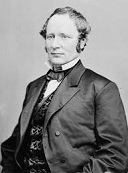











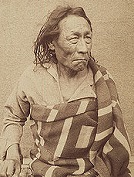
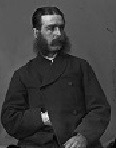












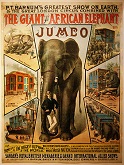












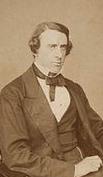

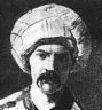





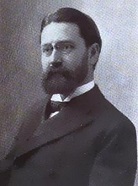



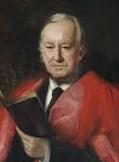
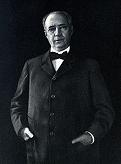



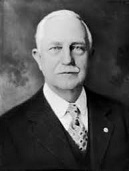
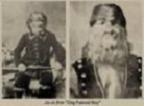
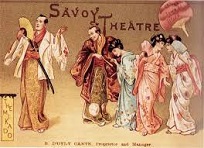





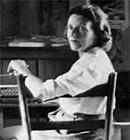


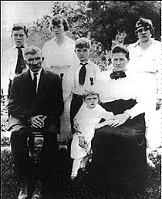
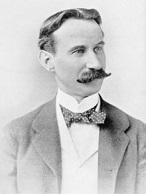
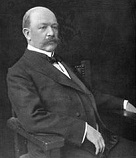


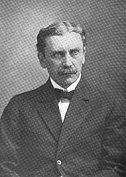
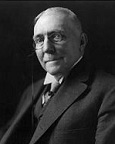


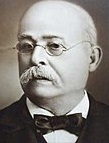

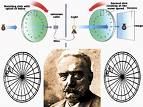

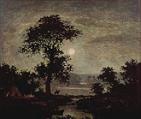





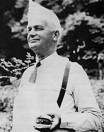
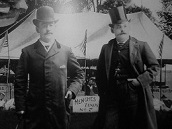
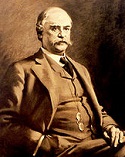
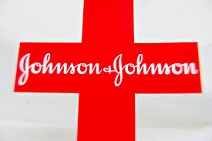
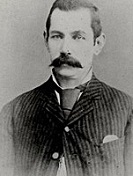
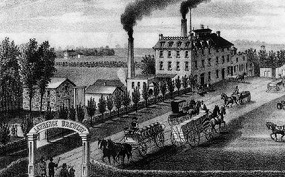
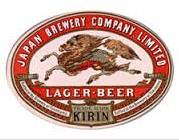
1885 In 1885-1917 almost 18M immigrants from C and SE Europe move to the U.S., settling in the larger cities and working for low wages in factories and joining labor unions, creating a big market for beer breweries; beginning this year large numbers of Japanese begin migrating to the U.S. Am. bison, once numbering 60M, have now been hunted to the point of extinction, and only 500 remain; by 1900 there are fewer than 30 left. I Have a Dream in reverse, or, Fill 'er up? The Treaty of Berlin is signed, becoming the first to use the term "spheres of influence", meaning white Euro powers claiming to own black African areas (and their people?); Germany annexes Tanganyika and lets Britain have Zanzibar in exchange for Heligoland in the North Sea, and asserts rights to German East Africa, German Southwest Africa, Cameroon, and Togoland, sending explorer Gustav Nachtigal (b. 1834) as special commissioner to annex them (he dies on the return voyage on Apr. 20); Germany relinquishes its claims to Madagascar in favor of France, and Britain pledges not to interfere, dooming its independence, freaking Queen Ranavalona III out, and causing her to send trinket-style gifts (silk clothes, ivory pin, woven basket) to U.S. Pres. Grover Cleveland next year in vain hopes of help (send the Marines for more?); Britain claims a protectorate in Nigeria and Bechuanaland S of the Molopo River, also Zanzibar and British East Africa; after they draw their lines in the sand and start playing step over the line, the West African Wars begin (end 1903); Belgium declares the Congo Free State (Belgian Congo), inhabited by Negrito peoples (Pygmies) open to trade and settlement, but personally owned by Belgian king (since 1865) Leopold II (1835-1909), who benefits from treaties made with native chiefs by U.S. correspondent Henry Morton Stanley when he navigated the Congo River in 1877, and now begins to rule it with an iron hand, murdering and multilating 10M?; borders of the Portuguese colony of Angola are fixed, permitting development of the interior; Spain receives Rio Muni on the W coast of Africa, creating Spanish Guinea (modern Equatorial Guinea); the peace terms of England with the Boers are modified to delete all references to British suzerainty. On Jan. 7 after receiving a dispensation from the Roman Catholic Church, widowed up-from-poverty govt. bureaucrat Alois Hitler (Schicklgruber) (1837-1903) marries his brown-haired blue-eyed 5'7" pregnant mistress, maid and half-niece Klara Polzl (Pölzl) (1860-1907) (3rd wife) at Braunau am Inn in Austria's Waldvertiel; four years later cute little "Adi" (Adolf) is born to them. On Feb. 21 (guess whose birthday?) the 555.5-ft. (6,666-in.) Washington Monument in Washington, D.C. (tallest structure in the city) is dedicated. Too much MSG in the Chinese food? On Jan. 26 after the Nile level falls, allowing the Mahdi's forces to bridge the moat they built by linking the Blue and White Nile, Khartoum in the Sudan, commanded by cut-off popular idol Gen. Charles George "Chinese" Gordon (b. 1833) falls, and Gordon is killed two days before his 52nd birthday, his head displayed on a pike; on Jan. 28 the flying column British relief force arrives, the news causing the Liberal Gladstone govt. in Britain to fall on June 9 after Queen Victoria says I told you so and again blames the nincompoop Gladstone for it, and the House of Commons comes within 14 votes of censuring the cabinet; in Mar. Sebehr Rahma, whose Arab skin is still intact is arrested and imprisoned in Gibraltar for side-switching, and returns to Sudan in 1899, where he settles down and writes the cool memoir Black Ivory; Or, The Story of El Zubeir Pasha, Slaver and Sultan, as Told by Himself; on June 22 El Mahdi (b. 1844) dies of typhus; on June 23 Conservative Party leader (former foreign secy.) Robert Arthur Talbot Gascoyne-Cecil, 3rd Marquess of Salisbury (1830-1903) becomes British PM (until Jan. 28, 1886), with a minority cabinet, going back to the Disraeli track of protecting British interests abroad, which wins the queen's support; the British leave Sudan to go its own way, and the Mahdi Dervishes rule for the next 13 years (until 1888); "I am a poor man of the desert, but I am the Mahdi, the expected one. On my cheek, the mole; between my teeth, the space... All Islam must know who I am and believe... The Nile will taste of blood for a hundred miles") (Laurence Olivier as the Mahdi in the 1966 film Khartoum, starring Charleton Heston as Gordon) - I guess Allah didn't pick him after all, he just had an Ahnuld complex because of his gap-toothed smile? On Feb. 3-13 the Lang Son Campaign sees the Tonkin Expeditionary Corps under Gen. Louis Briere de l'Isle brave logistical difficulties to defeat the Chinese Guangxi Army and capture the strategically-important town of Lang Son, Vietnam. On Feb. 28 the U.S. Alien Contract Labor (Foran) Law is passed, prohibiting the importation of foreigners and aliens under a contract or agreement to perform labor in the U.S. or its territories. On Feb. 28 Am. Telephone and Telegraph Co. (AT&T) is founded as a subsidiary of Am. Bell Telephone Co., with a capitalization of $100K and a charter to build and operate a long-distance network; by the end of the year it completes its first line between New York City and Philly, with a capacity of one call at a time. A Dem. wins the White House during a Repub. era? On Mar. 4 (Wed.) Caldwell, N.J.-born former asst. district atty., Buffalo mayor, sheriff (who personally hanged two men when the executioner was not available, causing him to be called "Hangman of Buffalo" ), and N.Y. gov. #18 (since Jan. 1, 1883) (who paid a substitute to fight for him during the Civil War, proving that he knows how to hire and fire employees?) Stephen Grover Cleveland (1837-1908), AKA "Uncle Jumbo", "Grover the Good", "the Beast of Buffalo" (false rumors that he's a wife-beater), "His Obstinacy", "the Veto President" (vetoes more bills than any other), "the Pretender", "the Stuffed Prophet", "the Elephantine Economist" (250 lbs. in 1892), "the Perpetual Candidate" (three successive pres. campaigns) becomes the 22nd U.S. pres. (until Mar. 4, 1889) in the 29th U.S. Pres. Inauguration in the East Portico of the U.S. Capitol in Washington, D.C., becoming the first Dem. elected since the U.S. Civil War (24 years), and the only pres. born in N.J.; he also closes the alphabet gap at the beginning after Adams and Buchanan (next available letter: D); Cleveland pulls a Pierce and gives his inaugural speech without notes, using a Bible given to him by his mother at age 15; he goes on to set a record for pres. vetoes (214?); Ohio-born Ind. U.S. Sen. (1863-9) and gov. (1873-7) Thomas Andrews Hendricks (1819-85), former leader of the Senate opposition to Lincoln's admin. becomes the 21st U.S. vice-pres., and dies on Nov. 25 ater 266 days; rich Bourbon Dem. William Collins Whitney (1841-1904) becomes U.S. Navy secy. #31 (until Mar. 4, 1889). On Mar. 9 sharpshooter Captain Bogardus quits, and in Apr. Ohio farm girl sharpshooter "Little Missie" Annie Oakley (Phoebe Ann Moses) (1860-1926) (who asked him for a job last Dec. in New Orleans, and was turned down) joins Buffalo Bill's Wild West Show, becoming America's first superstar, with a whopping $50 a week salary, appearing before 150K people this year in 40 cities; on June 6 Sitting Bull also joins, and calls the 5-ft. girl "Watanya Cicilla" ("Little Sure Shot" in Sioux), and they both stay with the show for the next 17 years; on Sept. 15 10-ft.-7-in. (3.23m) (at the shoulders) Jumbo the (Circus) Elephant (b. 1860), the largest elephant ever in captivity (purchased from the London Zoo in 1882 despite protests from Queen Victoria et al.) is killed by an express train in Canada near St. Thomas, Ont., and for the next two seasons carts bearing his skeleton and hide lead the circus parade followed by elephants holding black mourning cloths in their trunks and wiping their eyes; his name goes into the English language. Dudley Do-Right of the Mounties stinks himself up in White-Is-Right Saskatchewan? On Mar. 19 Louis David Riel (b. 1844) et al. form the French-speaking Provisional Govt. of Saskatchewan, with capital at Batoche; on Mar. 26 after the Canadian govt. rejects their French-style Seigneurial System that gives them strips bordering a river or lake in favor of 1 sq. mi. lots under the Dominion Land Survey, and sends 500 Mounties (North-West Mounted Police) to force them off their lands in favor of the Prince Albert Colonization Co., the North-West (Saskatechewan) Rebellion (Resistance) begins when military leader Gabriel Dumont (1837-1906) lead a few hundred mixed-race Metis, winning a V at the Battle of Duck Lake near Saint Laurent on Mar. 26; in Mar. Cree chief Poundmaker (Opeteca-hanawaywin) (Pitikwahanapiwiyin) (Pihotakahanapiwiyin) (1842-86) joins the rebels, looting Battleford, Sask. on Mar. 30, then defeating the Canadians in the Battle of Cut Knife (Hill) on May 2; meanwhile on Apr. 2 the Battle of Frog Lake (Frog Lake Massacre) sees Cree chief Big Bear (Mistahi-Maskwa) (1825-88) try in vain to stop his son Little Bear and Chief Wandering Spirit (Kapapamahchakwew, Papamahchakwayo, Esprit Errant) (b. 1845) from killing nine white men, then capture Fort Pitt on Apr. 15, after which the Mounties pursue Wandering Spirit for months before capturing him after a botched suicide attempt, and he is hanged in Batleford after a trial presided over by judge Charles Borromee (Borromée) Rouleau (1840-1901), who calls him "the greatest killer ever to walk on two legs in America"; on May 9-12 the Battle (Siege) of Batoche is a crushing D for the Metis, causing Riel to surrender on May 15 and Poundmaker to surrender on May 26; the Cree under Big Bear hold out until Nov. by staying on the move, after which Big Bear is put through a railroad trial and sentenced to three years at Stony Mountain Penitentiary in Manitoba, serving two years before being released due to failing health, then dying on the Poundmaker Reserve in Jan. 1888; Poundmaker serves 6 mo. of a 3-year sentence, dying shortly after release; on July 16 Rieal is arrested for treason then hung on Nov. 16 in Regina despite nationwide pleas for amnesty, making him a martyr to French Canada, hardening divisions with English Canada; on Nov. 27 the 1885 Hangings at Battleford sees eight indigenous men hanged for their role in the North-West Resistance, becoming the largest mass execution in Canadian history (until ?); the Prairie Provinces come under English-speaking control; Dumont escapes to the U.S., and is granted amnesty next July and returns to Batoche; after transporting Canadian troops to quell the rebellion, the Canadian Pacific Railroad gets more political support and completion funding. On Mar. 28 after two French brigades capture Lang Son on the Tonkin border (Upper Tonkin), then send one brigade away to relieve Tuyen-Quang, the Sun Tzu-thumping Chinese kick French butt at the Battle of Lang Son, but too late to keep the French from solidifying control of Vietnam - we're Chinese, we can wait 70 years to get even, right? In Mar. the Noble and Holy Order of the Knights of Labor strikes against the railroads owned by financier Jason "Jay" Gould (1836-92) ("I can hire one half of the worker class to kill the other half") to protest a 10% pay cut, and his financial problems actually cause him to relent and restore their pay, causing a stampede to join the Knights of Labor; by 1886 their membership shoots from 100K to over 700K. On Apr. 18 the Li-Ito Convention between Li Hongzhang of China and Prince Ito Hirobumi (1841-1909) of Japan (who started out a xenophobe then studied at Univ. College London, becoming convinced that Japan needs to adopt Western ways) eases the Sino-Japanese confrontation over Korea with an agreement to withdraw troops and notify each other before intervening again; on Apr. 26 the British occupy Port Hamilton (Komun Island) after fearing that Russia might beat them to it, and the Chinese protest, but the British take their sweet time and stay until Feb. 27, 1887; on June 9 the Treaty of Tianjin, facilitated by British customs service (in China) man Sir Robert Hart recognizes the French protectorate of Tonkin in return for a promise to respect China's S border; on Dec. 22 Prince Ito forms Japan's first Euro-style cabinet, with himself as PM #1 (until Apr. 30, 1888). On Apr. 6 Gen. Justino Rufino Barrios is KIA in a war to recreate the Central Am. Confederation, and conservative civilian Manuel Lisandro Barillas Bercian (Bercián) (1845-1907) becomes dictator-pres. of Guatemala (until Mar. 15, 1892). In May-June the Boston Symphony Orchestra presents its first annual Boston Pops Concerts, followed in July by a series of free open-air concerts on the Charles River embankment. In June the steamship Isere brings the Statue of Liberty in 214 crates (300 copper pieces) from Rouen, France to New York City, arriving on June 17; it is dedicated next year; donations from French citizens pay for it, and donations from U.S. citizens pay only for the concrete pedestal. Starting this summer Georges Seurat begins visiting the beaches of Normandy to do his pointillist thing (until 1889). On July 1 the U.S. Post Office sets the price of a first class postage stamp (1 oz.) at 2 cents. On July 4 the Mandarin (Scholar's) Revolt breaks out in Vietnam, and Emperor Ham Nghi and three empresses are kidnapped from the Purple Forbidden City by regent Ton That Thuyet (1839-1913) and taken to the jungle hills around Laos to wage guerrilla war against the French, who install his older brother Dong Khanh (1864-89) as emperor #9 (until Jan. 28, 1889), becoming widely despised; French PM Jules Ferry organizes an expedition to conquer Indochina. On July 6 Benjamin Franklin Keith (1846-1914) and Edward Franklin Albee II (1857-1930) open their first vaudeville theater, the Bijou Theatre in Boston, Mass., which shows a continuous variety show from 10:00 a.m. until 11:00 p.m., becoming a success and growing ito the Keith-Albee vaudeville theater circuit. On July 23 Prince Henry of Battenberg (1858-96) marries Queen Victoria's youngest child Princess Beatrice (1857-1944) on the Isle of Wight, and the queen promotes them both to royal highnesses, with Battenberg given British citizenship and all the cookies. In July French chemist Louis Pasteur gives 13 daily injections of his new vaccine for hydrophobia to 9-y.-o. German boy Joseph Meister (1876-1940) who was bitten 14x by a rabid dog, and recovers, making Pasteur into an even greater hero; in Nov. six children in Newark, N.J. are bitten by a rabid dog, and the physician follows Pasteur's method and cures them, adding to his fame; when cabled by the N.J. physician, Pasteur replies, "If you think there is danger, send children immediately". In July British Liberal Party leader Sir Charles Wentworth Dilke, 2nd Baronet (1843-1911), being groomed as Gladstone's replacement is ruined by a sexual scandal when Virginia Crawford (nee Smith) (1862-1948), wife of Liberal MP Donald Crawford (1837-1919), and daughter of Dilke's mistress Ellen Smith, accuses him of teaching her "French vices" and engaging in a 3-way with her and her maid way back when, all without any evidence other than her word; after a jury believes her, Donald's divorce is granted, and ruined Dilke accuses Lady Hannah Rosebery, scheming super-rich Jewish wife of up-and-coming Anglo-Saxon Lord Rosebery of paying Virginia off to get him out of his way, also without evidence. In Aug. a revolt begins in Eastern Rumelia (capital Plovdiv) against Turkish rule, causing it to be incorporated into Bulgaria in Sept., pissing Greece off and causing it to demand that Turkey give up all of the agreed-on turf in Thessaly and Epirus, but again the great Euro powers intervene, forcing Greece to disarm by blockading Greek ports; the Greeks then turn their ambitions to Macedonia and Crete in order to break out of their corner. On Sept. 12 Singh (b. 1830) dies, and Sir Partab (Pertab) Singh (1845-1922) becomes prince (maharaja) of Jammu and Kashmir (until Sept. 4, 1922). On Oct. 1 special delivery mail service begins in the U.S. On Oct. 1 Manchester, England-born George Bannerman Dealey (1859-1946) begins pub. The Dallas Morning News in Dallas, Tex., which reaches a modern-day circ. of 271K daily and 354K Sun.- the countdown to Nov. 22, 1963 begins? On Oct. 10 Hell Gate (Dutch "Helle Gate" = beautiful pass) on the East River between Long Island and Manhattan Island in New York is freed of obstructions by blasting, ending its notorious dangers to navigation. On Oct. 13 Georgia Inst. of Technology (Georgia Tech) (originally the Georgia School of Technology) in Atlanta, Ga. is founded, offering a degree in mechanical engineering, going on to expand to other disciplines and host the athletes' village in the 1996 Summer Olympics. In Oct. Yuan Shikai (1859-1916) becomes resident Chinese dir.-gen. in Korea for diplomatic and commercial relations, working to strengthen China's grip and weaken Japan's for the next decade; meanwhile it's not working out the way he wants as Queen Min grows stronger, corrupting the Korean state, taxing the peasants, and increasing Japanese economic control. In Oct. De Nieuwe Gids (The New Guide) begins pub. in Holland, marking the birth of the Eightiers lit. movement, with a Dutch nat. art-for-art's-sake goal, led by poets Karel Joan Lodewijk van Deyssel (1864-1952), Frederik Willem van Eeden (1860-1932), Willem Kloos (1859-1938), and Albert Verwey (1865-1937); Kloos' poems revolutionize Dutch lit. diction; Socialist writers, incl. Carel Steven Adama Scheltema (1877-1924) and Henriette Roland Holst Van der Schalk (1869-1952) become their opponents, writing art for the many rather than the few. On Nov. 7 the Canadian Pacific Railway (CPR) (begun 1881) is finished after 4.5 years, linking the E and W seaboards of Canada; the first Pacific Express ends its run at Port Moody in the W terminus on July 4, 1886. On Nov. 25 Spanish king (since Dec. 29, 1874) Alfonso XII (b. 1857) dies, and his wife Queen Maria Christina Henriette Desideria Felicitas Raineria of Austria (1858-1929) becomes regent (until 1902) for his posth. son (born next May 17) Alfonso XIII (the African) (1886-1941), not taking an active part; before he dies the Catalan Memorial (Memorial de Greuges) is sent to Alfonso XII by the Catalan Center, begging for a separate you know what; too bad he doesn't last the year? On Nov. 25 2,564 sq. mi. Banff Nat. Park (originally Banff Hot Springs Reserve, then Rocky Mountains Park) is founded in Alberta, Canada in the Rocky Mts. approx. 100 mi. W of Calgary, becoming Canada's first nat. park, featuring Icefields Parkway, Lake Louise, Moraine Lake, and Valley of the Ten Peaks; in 1890-1920 the Stoney (Assiniboine) tribe is removed to make way for wealthy white sportsmen and tourists. In Nov. the Third Anglo-Burmese War begins after the British declare Burmese king (since 1878) Thibaw Min a tyrant, and send 11K men in a fleet of flat-bottomed boats under British Lt. Gen. Sir Harry North Dalrymple Prendergast (1834-1913) to invade Upper Burma, occupying Mandaly on Nov. 29 Mandalay, and exiling the royal family, ending the Konbaung Dynasty; next Jan. 1 Burma is annexed as a province of British India, with Mandalay as capital of Upper Burma; the British go on to pump up the Burmese infrastructure, increasing Burmese rice output 10x by 1930. On Dec. 1 23-ingredient Dr. Pepper brand soft drink, invented by Brooklyn, N.Y.-born pharmacist Charles Courtice Alderton (1857-1941) is first served at Morrison's Old Corner Drug Store in Waco, Tex., named after his friend Dr. Charles Pepper; customers ask the soda jerk to "shoot a Waco"; in 1891 he and Robert S. Lazenby of the Circle A Ginger Ale Co. in Waco form the Artesian Mfg. and Bottling Co. to mass-produce it, becoming a hit at the 1904 St. Louis World's Fair - which makes the drink wacky or way cool? On Dec. 8 Pres. Cleveland delivers his long-winded 1885 (First) Annual Message to Congress, slamming the Mormon practice of polygamy, with the soundbyte: "The strength, the perpetuity, and the destiny of the nation rest upon our homes, established by the law of God, guarded by parental care, regulated by parental authority, and sanctified by parental love. These are not the homes of polygamy... There is no feature of this practice or the system which sanctions it which is not opposed to all that is of value in our institutions. There should be no relaxation in the firm but just execution of the law now in operation, and I should be glad to approve such further discreet legislation as will rid the country of this blot upon its fair fame. Since the people upholding polygamy in our Territories are reenforced by immigration from other lands, I recommend that a law be passed to prevent the importation of Mormons into the country." On Dec. 11 Britain signs a treaty with Johore in Malaysia. On Dec. 28-31 the First Indian Nat. Congress in Bombay is attended by 72 delegates representing each province of India, incl. 54 Hindus, 2 Muslims, Jains, and Parsis, going on to go from moderate to radical by 1905, backing independence. The First Ethiopian War with Italy and Britain begins (ends 1896) when the Italians, helped by the British establish a base on Ethiopia's Red Sea coastline at Massawa (Mitsiwa) - what do you think we are, Indians? The Redistribution Act triples the electorate in Britain, granting the vote to agricultural laborers. After anti-gay hysteria in London, the Labouchere Amendment (Section 11 of the Criminal Law Amendment Act of 1885) is passed, sponsored by Liberal MP Henry Du Pre Labouchere (Du Pré Labouchčre) (1831-1912) outlawing all sexual activity between men under the euphemism "gross indecency", ending draconian punishments to make successful prosecutions more likely; it is later used to prosecute Oscar Wilde (2 years hard labor) and Alan Turing (chemical castration); lesbianism is not addressed. Bismarck brutally expels Poles and Jews from Prussia. Aga Khan III (1875-1957) succeeds his father as imam #48 of the Indian Shiite Ismaili sect of Islam (until 1957), becoming the first to receive a Euro education at Eton and Cambridge U., growing up to become a thoroughbred horse owner. Russian troops, taking advantage of the vacuum of British power there, occupy Penideh in Afghanistan, opening the road to Herat; the British, fearing Russian occupation of Afghanistan almost go to war, but end the crisis by arbitration, although they discover that almost all of the powers of Europe would have opposed their passage through the Dardanelles in the event of war. A cabinet modeled after Germany's is organized in Japan. Abdul Rahman Khan of Afghanistan orders court official Mawlawi Ahmadjan Khan to compile two handbooks for judges and provincial governors, and makes the chief judge a state employee under close supervision. The Orthodox Church of Romania is established. French Capt. ? Brouet discovers the source of the 2.6K-mi. Niger River of W Africa as the Tembi River, which is joined by the Mayel-Balevel River about 300 mi. above Timbuktu. After changing back and forth with Wheeling several times, Charleston becomes the permanent capital of W. Va. Mt. Rushmore is named after New York City atty. Charles E. Rushmore when he travels to the Black Hills of S.D. to check titles for a mining co., and local prospector William W. Challis decides to name it after him because he asked? Germany annexes the Marshall Islands and attempts to gain an empire in Micronesia. Barbados becomes a British crown colony. Irish immigrant Marcus Daly (1841-1900) (who arrived in Butte, Mont. in 1876) purchases the Anaconda Silver Mine for $30K, striking out laterally from its central core to discover the world's richest deposit of copper. The Cape Railroad reaches Kimberley. The first English electrical tram begins operation in Blackpool. Textile mill town Pawtucket, R.I. is incorporated as a city. The Mormons split into officially legit. monogamous and renegade polygamous sections in reaction to the congressional ban on doing what they do in order to found a heavenly dynasty of angels like their wick-dipping prophet told them, and the polygamous ones head for Mexico, where they settle near the Sierra Madre Mts. in N Mexico near the U.S. border, after which most evacuate back to the U.S. during the summer of 1912 during the 1910 Mexican Rev. Bavarian-born Temple Sinai of Chicago rabbi Kaufmann Kohler (1843-1926), rabbi Isaac Mayer Wise (1819-1900) et al. hold a rabbinical conference in Pittsburgh, Penn., and formulate the "Pittsburgh Platform" for Reformed Judaism, growing to 900+ congregations and 1.5M members by the 21st cent.; Kohler emigrated to the U.S. after his Ph.D. thesis on higher Biblical criticism caused him to be closed out of a German Jewish pulpit - hi Adam I'm Eve? Railroad builder Leland Stanford Jr. founds Stanford U. in Calif. with an endowment of over $20M plus land for a campus. Plant wizard Luther Burbank moves to a farm in Sebastopol, Calif. After becoming skeptical of reports of oil in Okla., John D. Rockefeller's partner John Dustin Archbold (1848-1916) sells out at a loss, with the immortal soundbyte"I'll drink every gallon produced west of the Mississippi"; next year he becomes a trustee of Syracuse U., later donating funds for Archbold Stadium, Carrier Dome, Sims Hall, Archbold Gymnasium, and their oval athletic field. The Pasteur Inst. (Institut Pasteur) to treat rabies (hydrophobia) is founded in Paris. The Am. Economic Assoc. (AEA) is founded in Nashville, Tenn. by Progressive movement leader Richard Theodore Ely (1854-1943), Edwin Robert Anderson Seligman (1861-1939) (proponent of the progressive income tax) et al., going on to found the Am. Economic Review in 1911. The Gridiron Club is founded in Washington, D.C., holding annual spring dinners where the U.S. pres. is a guest of honor along with other powerful figures, and the U.S. Marine Band plays while frank off-the-record remarks are made, becoming Washington D.C.'s oldest and most prestigious journalist org. by modern times. Bryn Mawr (Gael. "high hill") College for women is founded in Bryn Mawr (4 mi. W of Philly), Penn. by the Quakers, with Martha Carey Thomas (1857-1935) as dean, becoming pres. in 1894-1922, becoming part of the Tri-College Consortium with Swarthmore College and Haverford College; in 1912 it becomes the first U.S. college to grant doctorates in social work; in 1931 the graduate school goes coed; alumni incl. Katharine Hepburn and Edith Hamilton. Sir Ernest Alfred Thomas Wallis Budge (1857-1934) becomes asst. keeper of Egyptian and Assyrian antiquities at the British Museum, working his way up to keeper in 1894, and never budging (until 1924) - tired of paying too much for eyeglasses? Johns Hopkins U. grad. student Woodrow Wilson (b. 1856) marries Savannah, Ga.-born first wife Ellen Louise Axson (1860-1914); they have no sons and 3 daughters. The Tennessee Walking Horse (Walker) breed is created in the U.S., becoming the only breed naturally capable of overstriding. Tin Pan Alley is created when a bunch of music publishers move to the same district of Manhattan in New York City on West 28th St. between Broadway (5th Ave.) and 6th Ave. and set up shop, churning out sheet music, their cheap player pianos allegedly sounding like you know whats; after the rise of the phonograph and radio it begins a steep decline by the 1930s. The Cook Family Singers of Fort Lauderdale, Fla. incl. David J. Cook, his wife Martha, and three of their six children begin singing old time and gospel music, pioneering the sound later adopted by the Carter Family after Maybelle Carter hears them at the 1933 Chicago World's Fair and asks them to go on the road with them, after which Roy Acuff hears them and asks them to appear on the Grand Ole Opry; the 2nd generation incl. the children led by Lamaar Cook and two of his children; the final generation incl. June "Mama" Cook (-1997) and David L. "Little David" Cook; too bad, June's drunken hubby Donnell Cook (-2001) beats them, causing lifelong mental problems. TB-suffering Am. physician Edward Livingston Trudeau (1848-1915) founds the Trudeau Sanatorium (Andirondack Cottage Sanitarium until 1915) in Saranac Lake, N.Y., becoming a model for promoting the value of fresh air, exercise, and healthy diet; in 1904 he becomes pres. #1 of the Nat. Assoc. for the Study and Prevention of Tuberculosis - make yourself comfortable, cough? Russian-born hypertrichosis sufferer Jo-Jo the Dog-Faced Boy (real name Fyodor Yevtishchev) (Fedor Jeftichew) (1868-1904) is exhibited in the U.S. by guess who P.T. Barnum, who portrays him as a wild man and makes him bark and growl for the audience, even though he could actually speak three languages. About this time the Pictorialism Movement in photography begins to become popular, manipulating photos to make them seem like paintings or engravings with an emotional component; after beginning to decline in popularity about 1920, it holds on until the end of WWII, giving way to Modernism. English actor Johnston Forbes-Robertson (1853-1937) makes his New York City debut as Orlando in Shakespeare's "As You Like It", going on to become one of the greatest Hamlets of all time. Daniel Frohman (1851-1940), brother of Charles Frohman (1856-1915) becomes mgr. of the Lyceum Theater in New York City, organizing a stock co. which incl. stage mgr. David Belasco (1853-1931), and actors Henrietta Crosman, William Faversham, James K. Hackett, and Henry Miller; the brothers then form the Theatrical Trust, later drawing criticism of Jewish control of the U.S. theater biz. Claude Debussy (1862-1918) succeeds Victor Marie Hugo as grandmaster of the Priory of Sion (until 1918) :). The Detroit Inst. of Arts in Mich. is founded. Oxford Dramatic Society in England is founded by the archbishop of Canterbury et al. After being inspired by Joseph Lister, Johnson & Johnson Co. is founded in New Brunswick, N.J. by brothers Robert Wood Johnson Sr. (1845-1910), James Wood Johnson (1856-1932), and Edward Mead Johnson (1852-1934) to manufacture ready-to-use surgical dressings, going on to grow to $65B yearly sales by 2011, with products incl. Band-Aids bandages, Tylenol painkiller, Johnson's Baby Oil, Neutragena skin conditioner, Clean & Clear facial wash, and Acuvue contact lenses. After selling his Spring Valley Brewery (founded in 1869 in Yamate, Yokohama, Japan), Kirin Brewey (originally Japan Brewery Co.), Japan's first brewery is founded in Yokohama, Japan by Norwegian-Am. brewer William Copeland (Johan Martinius Thoresen) (1834-1902) backed by an English stock co., introducing Kirin Lager Beer in 1888, using malted grains and hops imported from Germany along with German brewers; in Feb. 1907 the Kirin Brewery Co. is founded; in 2010 23.4% of its sales are made overseas; in 2011 it acquires Schincariol of Brazil, changing its name to Brasil Kirin; in 2014 it revives the Spring Valley brand. After it tries to get around the laws by changing his co. name to Lawrence Chemical Works, and selling his beer in pharmacies under the name "Walruff's Stomach Invigorator", the John Walruff Brewing Co. in Lawrence, Kan. (cap. 2K barrels/year), owned by Cologne, Germany immigrant John Walruff is shut down by the Kan. state govt. for violating its 1881 prohibition law; in 1886 he wins an appeal in the lower courts, and Kan. appeals to the U.S. Supreme Court, which in 1887 rules that Kan. was not depriving Walruff of his property without due process, but merely abating a nuisance and preventing injurious use of that property; prohibition is listed in Kan. in 1948, it takes until 1987 to legalize sale by the drink, and in 2010 25% of Kan. counties are dry, with most towns prohibiting liquor sales on Sun. William J. Uihlein of Schlitz Brewing Co. brings back the first pure yeast culture apparatus from Denmark, allowing one yeast cell to be multiplied under sterile conditions. Ybor City NE of Tampa, Fla. is founded by Spanish-born cigar manufacturer Vicente Martinez Ybor (1818-96), who moves his cigar factory from Key West, Fla. and attracts workers from Cuba and SW Sicily, becoming known as "Cigar City" (cigar capital of the U.S.), peaking by 1900 (pop. 16K), becoming known as "Florida's Latin Quarter", then starting a downhill slide in the 1930s when the Great Depression and mechanization begins cutting employment, reducing the pop. to nil by the late 1970s; in the late 1990s part of it is revived as a night club and entertainment district; in 2018 mysterious tunnels are discovered, and speculated to be part of a network that transported Chinese hos from Cuba in the early 1900s. Architecture: The 3-story 22-room Victorian-style Sagamore Hill House is built for Theodore Roosevelt in Oyster Bay, N.Y., becoming his summer White House in 1901-9. Inventions: On July 4 former slave Sarah E. Goode (1850-) patents the hideaway bed, which doubles as a desk or shelf, becoming the first African-Am. woman to receive a U.S. patent - is she related to Johnny B. Goode? The first electric street railway in the U.S. opens in Baltimore, Md. Frank Ball begins manufacturing Mason jars after the patent expires. Alexander Graham Bell experiments with his phonographic equipment, leaving the oldest known recording of his voice. The all-American Hamburger is invented by 15-y.-o. Charles "Hamburger Charlie" Nagreen (1870-1951), who sells them from a food stand at the county fair in Seymour, Wisc. after seeing his meatballs sell slow then flattening them and serving them on sliced bread, naming them after Hamburg, Germany; either that, or it is invented by brothers Frank and Charles Menches of Akron, Ohio, who run out of pork sausage for their sandwich concession at the Buffalo Fair in Hamburg, N.Y. and substitute ground beef; either that, or on July 4, 1891 Oscar Weber Bilby of Tulsa, Okla. becomes the first to serve a hamburger on a bun; either that, or in this decade Fletcher Davis (1864-1941) of Athens, Tex. invents the hamburger, setting up Uncle Dave's Hamburger Stand at the 1904 St. Louis World's Fair; either that, or in 1895 Danish immigrant Louis Lassen sells the first hamburger and steak sandwich from his small Louis' Lunch lunch wagon in New Haven, Conn.; it is never served with ketchup - just what 75M Americans with full dinner pails need to clog their veins? German engineer Karl Friedrich Benz (1844-1929) invents the modern automobile (a 3-wheeled carriage with an internal-combustion engine), which he patents on Jan. 29, 1886, and drives through the streets of Munich; meanwhile fellow German Gottlieb Wilhelm Daimler (1834-1900) patents an internal-combustion engine, which is initially used to power a motorcycle, causing the two Master Race Volk to share the credit for the first working automobile; the Benz has electric ignition, a water-cooled engine, and a carburetor, and despite a top speed of 8 mph he runs the vehicle into a brick wall, becoming the world's first automobile accident. George Eastman (1854-1932) manufactures coated photographic paper. Galileo Ferraris (1847-97) of Turin, Italy invents the Polyphase Electric Motor. Paul Julius Gottlieb Nipkow (1860-1940) of Germany patents the rotating Nipkow Disk, a system for a crude television (transmitting pictures by wire), later (1925) adapted by John Logie Baird for TV. Francois Eugene Turpin (1848-1927) of Colombes, France patents Melinite, pressed-cast picric acid (a derivative of phenol) with gun cotton, which is used extensively in WWI; in 1887 Britain steals it and calls it Lyddite, and Japan follows suit with Schimose. Karl (Carl) Auer von Welsbach (1858-1929) of Germany invents the Auerlicht incandescent gas mantle, consisting of guncotton impregnated with Actinophor (60% magnesium oxide, 20% lanthanum oxide, and 20% yttrium oxide), which gives off a bright green light when heated; in 1890 he tries 99% thorium dioxide and 1% cerium IV oxide, which gives off whiter light, and becomes a pre-Edison hit. A process of using natural gas and hot air becomes the most popular method of roasting coffee. Science: The first noctilucent clouds, caused by ice in the upper atmosphere that catch sunlight after the Sun goes down are observed by an amateur astronomer. German organic chemist Adolf von Baeyer (1835-1917) of the U. of Munich pub. the notion of Steric Strain, which destablizes small-ring organic compounds, and has more pronounced effects the larger the rings become. Swiss girls' h.s. teacher Johann Jakob Balmer (1825-98) pub. a mathematical relation between the spectral frequencies of atomic hydrogen lines in the visible spectrum, showing them converging to a limit which is later called the Balmer Series. Self-educated Vt. farmer Wilson Bentley (1865-1931), "the Snowflake Man" becomes the first to take a closeup photo of an individual snowflake crystal, proving that each one is different; he sells some of his photos to a jeweler to use for design patterns; he also measures raindrops and proves that different kinds of storms produce different sizes. German chemist Julius Wilhelm Theodor Curtius (1857-1928) discovers the Curtius Rearrangement, the thermal decomposition of an acyl azide to an isocyanate with the loss of nitrogen, going on to produce azoimide from organic sources. German bacteriologist Theodor Escherich (1857-1911) discovers the Escherichia coli (E. coli) bacterium - if his name were easier to pronounce, they wouldn't have to abbreviate it? Sir Francis Galton proves the uniqueness of fingerprints. Supernova 1885 (S Andromedae) is discovered on Aug. 20 by German astronomer Carl Ernst Albrecht Hartwig (1851-1923) in the Andromeda Galaxy (M31) (in the N Hemisphere S of Cassiopeia and W of Perseus), going magnitude 9 to 6 in less than 1 mo., then fading to magnitude 16 in Feb. 1890, becoming the first known supernova beyond the Milky Way Galaxy. The rare earth metal element Neodymium (#60) (Nd) (which gives off pink light) is discovered by Karl Auer von Welsbach (1858-1929) of Germany. Nonfiction: Elizabeth Carey Agassiz (1822-1907), Life of Louis Agassiz (2 vols.); her late hubby (1807-73). Pierre Berthelot (1827-1907), Les Origines de l'Alchimie. Augustine Birrell (1850-1933), Obiter Dicta; 2nd series pub. in 1887; lit. criticism of Browning, Carlyle et al.; makes him a celeb for his witty style; "An obiter dictum, in the language of the law, is a gratuitous opinion, an individual impertinence, which, whether it be wise or foolish, right or wrong, bindeth none - not even the lips that utter it"; "Little men sometimes, though not perhaps so often as is taken for granted, complain of their destiny, and think they have been hardly treated, in that they have been allowed to remain so undeniably small; but great men, with hardly an exception, nauseate their greatness, for not being of the particular sort they most fancy. The poet Gray was passionately fond... of military history; but he took no Quebec. General Wolfe took Quebec, and whilst he was taking it, recorded the fact that he would sooner have written Gray's 'Elegy'." Louis Auguste Blanqui (1805-81), Critique Sociale (posth.). Wilfrid Scawen Blunt (1840-1922), Ideas about India. Franz Boas (1858-1942), Baffin's Land; his scientific exploration of 1883-4. Paul Bourget (1852-1935), Nouveaux Essais. Daniel Garrison Brinton (1837-99), The Lenape and Their Legends: With the Complete Text and Symbols of the Walam Olum. Oscar Browning (1837-1923), Modern France, 1814-1879. Edward Caird (1835-1908), Evolution of Religion, Social Philosophy and Religion of Comte. Charles Chiniquy (1809-99), Fifty Years in the Church of Rome; an anti-Catholic (anti-clerical) bestseller by an ex-priest who tells all; "The marvelous power of the Gospel to raise a man above himself and give him a supernatural strength and wisdom in the presence of the most formidable difficulties has seldom been more gloriously manifested than on the 3rd of August, 1858, on the hill of St. Anne, Illinois... By the strength of their faith they had pulverized the gigantic power of Rome, put to flight the haughty representative of the Pope, and had raised the banners of Christian liberty on the very spot marked by the bishop as the future citadel of the empire of Popery in the United States." Antonio Garcia Cubas, Atlas Pintoresco e Historico de los Estados Unidos Mexicanos (Picturesque Historical Atlas of the United States of Mexico) (Mexico City). Elizabeth Bacon Custer (1842-1933), Boots and Saddles; glorifies her late hubby Gen. George Armstrong Custer (1840-76). Albert Venn Dicey (1835-1922), An Introduction to the Study of the Law of the Constitution; British freedom equals impartial courts enforcing the laws of sovereign Parliament and the common law; becomes part of the uncodified British constitution. Hermann Ebbinghaus (1850-1909), Uber das Gedachtnis (Über das Gedächtnis) (On Memory), based on self-experimentation, first describing the Learning Curve, Forgetting Curve, and Spacing Effect. Richard T. Ely (1854-1943), Recent American Socialism. Warren Felt Evans (1817-89), The Primitive Mind Cure. Ulysses S. Grant (1822-85), Personal Memoirs (2 vols.); completed shortly before his death, and pub. by Mark Twain (1835-1910), they bring the about-to-be-widows Grant family $450K in royalties. Oliver Wendell Holmes Sr. (1809-94), Ralph Waldo Emerson. Arsene Houssaye (1815-96), Confessions (1885-91) (autobio.). Thomas Patrick Hughes, A Dictionary of Islam: Being a Cyclopaedia of the Doctrines, Rites, Ceremonies, and Customs, Together with the Technical and Theological Terms, of the Muhammadan Religion. James Prescott Joule (1818-89), Scientific Papers (2 vols.) (1885, 1887). James Laurence Laughlin (1850-1933), Study of Political Economy. Emily Lawless (1845-1913), Ireland: A Study. Henry Maine, Popular Government. James Martineau (1805-1900), Types of Ethical Theory. Karl Marx (1818-83) and Friedrich Engels (1820-95), Das Kapital, Vol. 2: The Process of Circulation of Capital (posth.). James Mooney (1861-1921), Linguistic Families of Indian Tribes North of Mexico, with Provisional List of Principal Tribal Names and Synonyms; founds the study of Native Am. ethnography. Francis Parkman (1823-93), Historic Handbook of the Northern Tour. David Dixon Porter (1813-91), Incidents and Anecdotes of the Civil War. Ernest Renan (1823-92), Lectures on the Influence of the Institutions, Thought and Culture of Rome on Christianity and the Development of the Catholic Church. Edgard Saltus (1855-1921), The Philosophy of Disenchantment. Henry Sidgwick (1838-1900), The Scope and Method of Economic Science. Albert Sorel (1842-1906), Europe and the French Revolution (? vols.) (1885-1904). Sir Leslie Stephen (1832-1904) (ed.), The Dictionary of National Biography (Jan. 1) (63 vols.) (1885-1900). William Graham Sumner (1840-1910), Protectionism: The Ism Which Teaches That Waste Makes Wealth; Collected Essays in Political and Social Science. Joseph Thomson (1858-95), Through Masai Land (Jan.) (bestseller); describes snow-capped mountains on the equator and how he had terrified hostile Maasai warriors by removing his false teeth, making a fan of H. Rider Haggard, who uses it to write his bestselling novel "King Solomon's Mines" (1885). Leo Tolstoy (1828-1910), My Religion (What I Believe); launches the Tolstoyan Movement. which renounces material wealth; his asst. Vladimir Chertkhov helps him fight his wife, who freaks at Tolstoy's plan to leave all his wealth to charity. Mark Twain (1835-1910), The Private History of a Campaign That Failed; the futility of war. David Ames Wells (1828-98), Practical Economics. Woodrow Wilson (1856-1924), Congressional Government: A Study in American Politics (first book); his Ph.D. dissertation at Johns Hopkins U.; advocates a parliamentary system to get around the pesky Congress and the cumbersome system of checks and balances, with the soundbyte: "How is the schoolmaster, the nation, to know which boy needs the whipping?" Music: Emmanuel Chabrier (1841-94), Gwendoline (opera). Cesar Franck (1822-90), Symphonic Variations. Sir William Schwenck Gilbert (1836-1911) and Sir Arthur Sullivan (1842-1900), The Mikado; or, The Town of Titipu (comic operetta #9) (Savoy Theatre, West End, London) (Mar. 14) (672 perf.); the Mikado ("honorable gate"), his son Nanki-Poo, who is loved by elderly Katisha, Ko-Ko the Lord High Executioner, with a jackhammer smile on his face and his fiance Yum-Yum and wards Peep-Bo and Pitti-King, Poo-Bah, Lord High Everything Else, Lord Pish-Tush; incl. the phrase "short, sharp shock" to mean a quick severe punishment, and "Let the punishment fit the crime"; features three Geishas singing Three Little Maids From School Are We, later becoming a gay favorite; "I doubt if there is a single joke in the whole play that fits the Japanese. But all the jokes in the play fit the English." (G.K. Chesterton) Charles Gounod (1818-93), Mors et Vita (oratorio). F.W. Meacham, American Patrol. Andre Messager (1853-1929), La Fauvette du Temple (operetta); Le Beamaise (operetta). Horatio William Parker (1863-1919), King Trojan. Johann Strauss II (1825-99), The Gypsy Baron (Die Ziegeunerbaron) (operetta) (Oct. 24) (Vienna); libretto by Ignaz Schnitzer, based on Mor Jokai's "Saffi"; his 2nd most popular operetta after "Die Fledermaus"; incl. Treasure Waltz. Art: Ralph Albert Blakelock (1847-1919), Moonlight; sets a record for highest price paid for the work of a living U.S. artist. Paul Cezanne (1839-1906), Mont Sainte-Victoire (1885-7). Aime-Jules Dalou (1838-1902), Le Triomphe de Silene (sculpture) (Luxembourg Gardens). Jean-Louis Forain (1852-1931), Le Veuf. Jean-Leon Gerome (1824-1904), Great Bath at Brusa; black woman bathes white woman, oh la la? Vincent Van Gogh (1853-90), The Potato Eaters. Winslow Homer (1836-1910), Halibut Fishing (Fog Warning); A Garden in Nassau. George William Joy (1844-1925), General Chinese Gordon's Last Stand. William Quiller Orchardson (1832-1910), The Salon of Madame Recamier. Pierre-Auguste Renoir (1841-1919), Girl Braiding Her Hair; guess who?; Suzanne Valadon; finally names her? Marie Spartali Stillman (1844-1927), Love's Messenger; A Florentine Lily (1885-90). Frits Thaulow, Venezia. George Frederic Watts (1817-1904), Hope; given to the British govt. in 1897. Plays: Henry Becque (1837-99), La Parisienne. Bronson Crocker Howard (1842-1908), One of Our Girls. Arthur Wing Pinero (1855-1934), The Magistrate (farce). Poetry: Sir Edwin Arnold (1832-1904), The Song Celestial. Robert Seymour Bridges (1844-1930), Eros and Psyche. Henry Austin Dobson (1840-1921), At the Sign of the Lyre. Catulle Mendes (1841-1909), Poesies (7 vols.). James Whitcomb Riley (1849-1916), Little Orphant Annie (Nov. 15) (original title "The Elf Child") (originally "Little Orphant Allie"); based on real-life orphan Mary Alice "Allie Smith, which inspires the comic strip char. Little Orphan Annie. Robert Louis Stevenson (1850-94), A Child's Garden of Verses; uses simple words and talks about everyday happenings in a kid's life, breaking with the teaching of serious lessons; "I have a little shadow that goes in and out with me,/ And what can be the use of him is more than I can see"; "The friendly cow all red and white,/ I love with all my heart;/ She give me cream with all her might,/ To eat with apple-tart"; "The rain is falling all around,/ It falls on field and tree,/ It rains on the umbrellas here,/ And on the ships at sea." Algernon Charles Swinburne (1837-1909), Marino Faliero. Katharine Tynan (1861-1931), Louise de la Valliere. Novels: Emilia Pardo Bazan (1851-1921), La Tribuna; El Cisne de Vilamorta. Walter Besant (1836-1901), Uncle Jack. Paul Bourget (1852-1935), Cruelle Enigme. Louis Henri Boussenard (1847-1910), The Crusoes of Guyana; or, The White Tiger. Robert Williams Buchanan (1841-1901), Foxglove Manor. Sir Richard Francis Burton (1821-90) (tr.), The Arabian Nights (1885-8); incl. Ali Baba and the Forty Thieves, in which a poor forester uses the phrase "Open Sesame" to open a robber's cave and rob it, but his dumb brother Kasim later gets stuck inside when he forgets the sesame part and is killed, and the robbers sneak into Ali Baba's house in oil jars, but his slave girl Morgiana kills them with boiling oil; Leslie's declares it "unfit for publication" because of its bawdy stories; a century later (May 1985) a judge rules it obscene and orders 3K copies destroyed. Hall Caine (1853-1931), The Shadow of a Crime (first novel). Alphonse Daudet (1840-97), Tartarin sur les Alpes. Frederik Willem van Eeden (1860-1912), The Quest (1885-1906). Juliana Horatia Ewing (1841-85), The Story of a Short Life. H. Rider Haggard (1856-1925), King Solomon's Mines; first story about glamorous adventurer Allan Quatermain; Hunter Quatermain's Story. Oliver Wendell Holmes Sr. (1809-94), The Moral Antipathy. Edgar Watson Howe (1853-1937), The Mystery of the Locks. William Dean Howells (1837-1920), The Rise of Silas Lapham; Am. paint entrepreneur. W.H. Hudson (1841-1922), The Purple Land (first novel); set in Uruguay. Margaret Wolfe Hungerford (1855-97), O Tender Dolores; Mildred Trevanion; A Maiden All Forlorn and Other Stories; In Durance Vile and Other Stories; Dick's Sweetheart; Green Pastures and Grey Grief. Richard Jefferies (1848-87), After London; England goes through an apocalypse and reverts to Nature. Emily Lawless (1845-1913), A Millionaire's Cousin. Guy de Maupassant (1850-93), Monsieur Parent (short stories); Contes du Jour et de la Nuit (short stories); Bel Ami, or The History of a Scoundrel, about corrupt journalist Georges Duroy's rise to power in Paris, which goes through 37 printings in 4 mo.; English trans. pub. in 1903. George Meredith (1828-1909), Diana of the Crossways. Conrad Ferdinand Meyer (1825-98), The Judge (Die Richtenn). Kalman Mikszath (1847-1910), The Grass of Lohina. George Moore (1852-1933), A Mummer's Wife; another French naturalistic novel. Laurence Oliphant (1829-88), Masollam. Daniel Owen (1836-95), Rhys Lewis. Walter Pater (1839-94), Marius the Epicurean. Walter Herries Pollock (1850-1926) and Sir Walter Besant (1836-1901), Uncle Jack. David Dixon Porter (1813-91), The Adventures of Harry Marline; Allan Dare and Robert le Diable; Arthur Merton, a Romance. Edward Payson Roe (1838-88), An Original Belle. Matilde Serao (1856-1927), La Conquista di Roma; La Virtu di Checchina; Piccole Anime. Alfred Percy Sinnett (1840-1921), Karma: A Novel. Robert Louis Stevenson (1850-94), Prince Otto. Frank Richard Stockton (1834-1902), The Griffin and the Minor Canon. August Strindberg (1849-1912), Utopian on Reality (short stories). Mark Twain (1835-1910), Adventures of Huckleberry Finn (Feb. 18); sequel to "The Adventures of Tom Sawyer" (1876); first pub. in Britain in 1884, then banned from the public library in puritanical Concord, Mass., making it more popular; "Something that everybody wants to have read and nobody wants to read" (Twain); escaped slave "Miss Watson's Jim", Huck's father Pap, Judge Thatcher, and Widow Douglas, who adopts him; at the end Tom's okay and Huck doesn't want to be adopted; Jim is partly inspired by Twain's black friend John Lewis? Julius Zeyer (1841-1901), Ossian's Return; Czech guy likes to write about ancient Celts? Emile Zola (1840-1902), Germinal; Les Rougon-Macquart series (#13 of 20); his masterpiece?; about a coalminers' strike in N France in the 1860s, featuring miner Etienne Lantier. Births: Am. "Jonathan Edwards" historian (of New England) Ola Elizabeth Winslow (d. 1977) on Jan. 5 in Grant City, Mo.; educated at Stanford U., and U. of Chicago. Am. silent film actress ("the Vitagraph Girl") Florence Turner (d. 1946) on Jan. 6 in New York City. Australian Labor PM #14 (1941-5) John Joseph (Ambrose) Curtin (d. 1945) on Jan. 8 in Creswick, Victoria. Am. leftist activist Rev. Abraham Johannes "A.J." Muste (d. 1967) on Jan. 8 in Zierikzee, Netherlands; emigrates to the U.S. in 1891; educated at Hope College, New Brunswick Theological Seminary, NYU, and Columbia U. White Russian PM Viktor Nikolayevich Pepelyayev (d. 1920) on Jan. 8 in Tomsk, Siberia; brother of Anatoly Pepelyayev (1891-1938). Am. "Sky Bryce", "Buffalo Bill Cody" silent film actor John Hartford "Jack" Hoxie (d. 1965) (AKA Hart Hoxie) on Jan. 11 in Kingfisher Creek, Okla.; half-Indian mother; half-brother of Al Hoxie (1901-82); husband (1920-7) of Marin Sais (1890-1971); grows up in Idaho. Am. women's movement leader Alice Stokes Paul (d. 1977) on Jan. 11 in Mount Laurel, N.J; daughter of Quaker parents; educated at Swarthmore College; founder of the Nat. Woman's Party (1916). Am. Fuller Brush Co. founder Alfred Carl Fuller (d. 1973) on Jan. 13 in Welsford, Nova Scotia, Canada; emigrates to the U.S. in 1903. German Nazi col.-gen. Nikolaus von Falkenhorst (Ger. "falcon's eyrie") (d. 1968) on Jan. 17 in Breslau; real name Jastrzembski (old Silesian military family). Scottish Bloomsbury Group painter Duncan James Corrowr Grant (d. 1978) on Jan. 21 in Rothiemurchus, Aviemore; cousin-lover of Lytton Strachey (1880-1932). Japanese Gen. Seishiro Itagaki (d. 1948) on Jan. 21 in Morioka, Iwate. Italian Arctic explorer-engineer Umberto Nobile (d. 1978) on Jan. 21 in Lauro, Avellino; educated at the U. of Naples. English engine designer Sir Harry Ralph Ricardo (d. 1974) on Jan. 26 in London; only son of Halsey Ricardo (1854-1928); descendant of David Ricardo (1772-1823); educated at Rugby School, and Trinity College, Cambridge U. Am. "Ol' Man River", "Smoke Gets in Your Eyes", "The Way You Look Tonight" composer-songwriter (Jewish) Jerome David Kern (d. 1945) on Jan. 27 in New York City; German Jewish immigrant parents. Am. jazz clarinetist (black) Louis Nelson "Big Eye" Delisle (d. 1949) on Jan. 28 in New Orleans, La. Polish pres. in exile (1939-47) Wladyslaw Raczkiewicz (d. 1947) on Jan. 28 in Kutaisi, Georgia. French Radical PM (1930, 1933-4, 1937-8) Camille Chautemps (d. 1963) on Feb. 1 in Paris. Russian Bolshevik army cmdr. Mikhail Vasilyevich Frunze (d. 1925) on Feb. 2 (Jan. 21 Old Style) in Bishkek, Turkestan; Moldavian father, Russian mother. Italian "Man of Smoke" Futurist novelist-poet-journalist Aldo Palazzeschi (Giurlani) (d. 1974) on Feb. 2 in Florence. Am. "Arrowsmith", "Elmer Gantry" novelist-playwright (1st U.S. writer to win the Nobel Lit. Prize) (redhead) Harry Sinclair "Red" Lewis (d. 1951) on Feb. 7 in Sauke Centre, Minn.; educated at Oberlin College, and Yale U. German Luftwaffe Field Marshal Hugo Sperrle (d. 1953) on Feb. 7 in Ludwigsburg, Baden-Wurttemberg. Austrian "Wozzeck", "Lulu" Romantic 12-tone composer (Roman Catholic) Alban Maria Johannes Berg (d. 1935) on Feb. 9 in Vienna; student of Arnold Schoenberg. German Nazi "Der Sturmer" newpaper publisher ("Jew-Baiter Number One") Julius Streicher (d. 1946) on Feb. 12 in Fleinhausen, Bavaria; ed. of "Der Sturmer" (1923-45). U.S. Dem. First Lady (1945-53) Elizabeth Virginia "Bess" Wallace Truman (d. 1982) on Feb. 13 in Mo.; wife of Pres. Harry Truman. French "The Virtuous Scoundrel" actor-dir.-writer Alexandre Pierre Georges "Sacha" Guitry (d. 1957) on Feb. 21 in St. Petersburg, Russia. Canadian Sgt.-Maj. Frederick William Hall (d. 1915) on Feb. 21 in Kilkenny, Ireland; emigrates to Canada in 1910. Am. Adm. Chester William Nimitz (d. 1966) on Feb. 24 in Fredericksburg, Tex.; WWII cmdr. of U.S. Navy of the Pacific. Greek-Danish princess Alice of Battenberg (d. 1969) on Feb. 25 in Windsor Castle, Berkshire, England; eldest child of Prince Louis of Battenberg (1854-19211) and Princess Victoria of Hesse and by Rhine (1863-1950); great-granddaughter of Queen Victoria; wife (1903-) of Prince Andrew of Greece and Denmark (1882-1944); mother of Prince Philip, duke of Edinburgh (1921-). British "Ghost of Frankenstein" actor Lionel Atwill (d. 1946) on Mar. 1. Am. Davidians cult founder Victor Tasho Houteff (d. 1955) on Mar. 2 in Raicovo. Am. "Gullible's Travels" writer Ringgold Wilmer "Ring" Lardner (d. 1933) on Mar. 6 in Niles, Mich. Am. modern painter Milton Avery (d. 1965) on Mar. 7 in Altmar, N.Y. Russian "The Firebird" ballerina (in Britain) Tamara Platonovna Karsavina (d. 1978) on Mar. 10 in St. Petersburg; daughter of Platon Karsavin; moves to London in 1917; teacher of Alicia Markova and Margot Fonteyn. English auto racer Sir Malcolm Campbell (d. 1948) on Mar. 11 in Chislehurst, Kent; knighted in 1931. Am. "The Cowboy Millionaire" silent film actor William Stowell (d. 1919) on Mar. 13 in Boston, Mass. English actor Sydney John Chaplin (Hill) (d. 1965) on Mar. 16 in London; elder half-brother of Charlie Chaplin (1889-1977) and Wheeler Dryden (1892-1957); half-uncle of namesake Sydney Chaplain (1926-2009). Am. "Whitman: An Interpretation in Narrative" historian Rufus Emory Holloway (d. 1977) on Mar. 16 in Marshall, Mo. French actor-dir. Pierre Renoir Jr. (d. 1952) on Mar. 21 in Paris; son of Pierre-Auguste Renoir (1841-1919); brother of Jean Renoir (1894-1979). Am. "Grand Hotel" actor Wallace Beery (d. 1949) on Apr. 1 in Kansas City, Mo.; brother of actor Noah Beery (1882-1949). English celeb Clementine Ogilvy Spencer-Churchill, Baroness Spencer-Churchill (nee Hozier) (d. 1977) on Apr. 1 in Mayfair, London; daughter of Sir Henry Montague Hozier (1838-1907) and Lady Henrietta Blanche Hozier (1852-1925); wife (1908-) of Sir Winston Churchill (1874-1965). German Atlantropa architect Herman Soergel (Sörgel) (d. 1952) on Apr. 2 in Regensburg, Bavaria; educated at the Tech. U. of Munich. Am. "House on Haunted Hill" actress Leona Anderson (d. 1973) on Apr. 3. Am. "Sands of Iwo Jima" film dir.-producer-writer Joseph Aloysius "Allan" Dwan (d. 1981) on Apr. 3 in Toronto, Ont., Canada; emigrates to the U.S. at age 11. Am. "Mutt and Jeff" cartoonist Harry Conway "Bud" Fisher (d. 1954) on Apr. 3 in Chicago, Ill.; educated at the U. of Chicago. British Arabophile Harry St. John Bridger "Jack" Philby (d. 1960) (AKA Sheikh Abdullah) on Apr. 3 in St. John's, Badulla, Ceylon (Sri Lanka); educated at Trinity College, Cambridge U.; father of Kim Philby (1912-88); distant cousin of Bernard Law Montgomery. French auto racer Jules Boux (d. 1965) on Apr. 6 in Valentigney. German Capt. Walther Schwieger (d. 1917) on Apr. 7 in Berlin. German sociologist-economist Alexander Rustow (Rüstow) (d. 1963) on Apr. 8 in wiesbaden, Hesse-Nassau; educated at the U. of Erlangen; grandnephew of Wilhelm Rustow (1821-87); grandson of Casar Rustow (1826-66); father of Dankwart Rustow (1924-96). Japanese "Yomiuri Shinbun" pub. Matsutaro Shoriki (d. 1969) on Apr. 11 in Daimon, Toyama; introduces baseball to Japan in the 1930s, and heads the Japanese Atomic Energy Commission in 1956. French Orphic artist Robert Delaunay (d. 1941) on Apr. 12 in La Ronchere (near Bourges); husband (1910-) of Sonia Delaunay (1885-1979); father of Charles Delaunay (1911-88). Hungarian Marxist philosopher (Jewish) (Co-founder of Western Marxism) Baron Gyorgy (Georg) Szegedy Lukacs (Lowinger Gyorgy Bernat) (d. 1971) on Apr. 13 in Budapest; educated at the U. of Budapest, U. of Berlin, and U. of Kolozsvar. Am. "Bumblebees and Their Ways" entomologist Otto Emil Plath (d. 1940) on APr. 13 in Grabow, Germany; emigrates to the U.S. in 1900; educated at Northwestern U, U. of Wash., and Harvard U; husband of Aurelia Schober Plath (1906-94); father of Sylvia Plath (1932-63). Danish "Out of Africa" writer Baroness Isak Dinesen (Karen von Blixen-Finecke) (d. 1962) on Apr. 17 in Ringsted, Zealand. Am. "The Secret of the Ages" New Thought writer Robert Collier (d. 1950) on Apr. 19 in St. Louis, Mo.; nephew of Peter Fenelon Collier (1849-1909). German-Czech author-journalist (Jewish) Egon Erwin Kisch (d. 1948) on Apr. 29 in Prague. Soviet Bolshevik rev. leader Nikolai Vasilyevich Krylenko (d. 1938) on May 2 in Bekhteevo, Smolensk. Am. auto racer Johnny Aitken (d. 1918) on May 3 in Indianapolis, Ind. Am. "Hopalong Cassidy's sidekick Windy Halliday" actor George Francis "Gabby" Hayes (d. 1969) on May 7 in Stannards (near Wellsville), N.Y.; learns to ride a horse in his forties for his movie roles. Canadian "The Silver Chalice" novelist-journalist Thomas Bertram Costain (d. 1965) on May 8 in Brantford, Ont. English "The Lambeth Walk", "The Bells of St. Marys" lyricist-playwright Douglas Furber (d. 1961) on May 13. German composer-conductor (Jewish) Otto Klemperer (d. 1973) on May 14 in Breslau (Wroclaw); becomes U.S. citizen in 1937 and Israeli citizen in 1970; father of Werner Klemperer (1920-2000); cousin of Victor Klemperer (1881-1960). Am. plant pathologist Elvin Charles Stakman (d. 1979) on May 17; teacher of Norman Borlaug. Brazilian pres. (1945-50) marshal Enrico Gaspar Dutra (d. 1974) on May 18 in Cuiaba, Mato Grosso. Am. Merrill Lynch co-founder (1914) Edmund Calvert Lynch (d. 1938) on May 19 in Baltimore, Md.; partner of Charles Edward Merrill (1885-1956). Iraqi Hashemite king (1921-33) Faisal (Arab. "resolute") I (d. 1933) on May 20 in Mecca; not to be confused with Faisal of Saudi Arabia (1905-75). German Luftwaffe Gen. Alexander Lohr (d. 1947) on May 20 in Turnu-Severin, Romania; German father, Russian descent mother. Canadian hockey team owner John Ambrose O'Brien (d. 1968) on May 27 in Renfrew, Ont. English playwright-mgr. Ashley Dukes (d. 1959) on May 29; husband (1918-59) of Marie Rambert (1888-1982). Russian Communist Party leader (Jewish) Yakov Mikhailovich Sverdlov (d. 1919) on June 3 in Nizhny Novgorod. French Resistance leader (Jewish) Georges Mandel (Louis George Rothschild) (d. 1944) on June 5 in Chatou, Yvelines. Am. old-time country fiddler James Gideon "Gid" Tanner (d. 1960) (Skillet Lickers) on June 6 in Thomas Bridge (near Monroe), Ga. Am. cosmetics queen (black) A'Lelia Walker (Lelia McWilliams) (d. 1931) on June 6 in Vicksburg, Miss.; daughter of Madam C.J. Walker (1867-1919) and Moses McWilliams (-1887). English mathematician John Edensor Littlewood (d. 1977) on June 9 in Rochester, Kent; collaborator of Godfrey Harold Hardy (1877-1947). German modernist designer Lilly Reich (d. 1947) on June 16 in Berlin; collaborator of Ludwig Mies Van der Rohe (1886-1969). Australian Communist suffragette Adela Constantia Mary Pankhurst Walsh (d. 1961) on June 19 in Manchester, England; daughter of Emmeline Pankhurst (1858-1928); sister of Christabel Pankhurst (1880-1958) and Sylvia Pankhurst (1882-1960); emigrates to Australia in 1914. English feminist eugenicist Sybil Neville-Rolfe (nee Sybil Katherine Burney) (d. 1955) on June 22 in Greenwich, London; collaborator of Sir Francis Galton (1822-1911). German soprano Frieda Hempel (d. 1955) on June 26 in Leipzig. French Egyptologist-archeologist Jean Pierre Marie Montet (d. 1966) on June 27 in Villefranche-sur-Saone, Rhone; educated at the U. of Lyon. German naturalist-inventor Viktor Schauberger (d. 1958) on June 30 in Holzschlag, Upper Austria. Spanish Andalusian socialist nat. leader ("Father of Andalusia") Blas Infante Pérez de Vargas (d. 1936) on July 5 in Casares, Malaga; educated at the U. of Granada. German field marshal Ernst Bernhard Wilhelm Busch (d. 1945) on July 6 in Essen-Steele. German "The Principle of Hope" Marxist philosopher (Jewish) Ernst Simon Bloch (d. 1977) on July 8 in Ludwigshafen. Am. "My Friend Flicka", "The Prisoner of Zenda" novelist-screenwriter Mary O'Hara (Alsop) (d. 1980) on July 10 in Cape May Point, N.J. Bangladeshi scholar (Sunni Muslim) Muhammad Shahidullah (d. 1969) on July 10 in Peyara, WEst Bengal. Norwegian poet Herman Wildenvey (Hermann Theodor Portaas) (d. 1959) on July 20 in Mjondalen (near Drammen). Am. "The River Road" novelist Frances Parkinson Keyes (d. 1970) (rhymes with skies) on July 21 in Charlottesville, Va.; educated at Bates College; converts to Roman Catholicism. German July 20 Plot Gen. Karl Paul Immanuel von Hase (d. 1944) on July 24 in Hanover; uncle of Dietrich Bonhoeffer. Laotian king (1905-59) Sisavang Vong (d. 1959) on July 24 in Luang Prabang. French biographical novelist (Jewish) Andre Maurois (Emile Salomon Wilhelm Herzog) (d. 1967) on July 26 in Elbeuf. Am. silent film actress ("The Vamp") Theda Bara (anagram for Death Arab?) (Theodosia Burr Goodman) (d. 1955) on July 29 in Cincinnati, Ohio; maternal grandfather's last name is Baranger; wife (1921-55) of Charles Brabin (1882-1957). Austrian-Hungarian chemist (Jewish) (inventor of radioactive tracers) George Charles (Georg Karl) von Hevesy (d. 1966) on Aug. 1 in Budapest; educated at the U. of Freiberg. Am. "Show Boat", "Giant" novelist-playwright (Jewish) Edna Ferber (d. 1968) on Aug. 15 in Kalamazoo, Mich.; Hungarian-born Jewish father, Am. mother. English chemist (inventor of the octane rating for gasoline) Sir Henry Thomas Tizard (d. 1959) on Aug. 23 in Gillingham, Kent; educated at Westminster School, and Magdalen College, Oxford U. Am. Nystatin microbiologist Elizabeth Lee Hazen (d. 1975) on Aug. 24 in Rich, Miss.; educated at Columbia U. Austrian "Threepenny Opera" film dir. Georg Wilhelm Pabst (d. 1967) on Aug. 25 in Raudnitz, Bohemia. Am. vaudeville actor Charles "Chick" Sale (d. 1936) on Aug. 25 in Huron, S.D.; namesake of Soupy Sales (1926-). French "Men of Good Will" novelist-poet-playwright (founder of Unanimism) Jules Romains (Louis Henri Jean Farigoule) (d. 1972) on Aug. 26 in Saint-Julien-Chapteuil, Haute-Loire. Am. "Smith and Dale" comedian (Jewish) Charlie Dale (Charles Marks) (d. 1971) on Sept. 6 in New York City. Am. actor Otto Kruger (d. 1974) on Sept. 6 in Toledo, Ohio; grandnewphew of Paul Kruger (1825-1904). German Nazi bigwig Eleonore Baur (Sister Pia) (d. 1981) on Sept. 7 in Bad Aibling, Bavria. Am. "Nets to Catch the Wind", "Jennifer Lorn" poet-novelist Elinor Morton Wylie (nee Hoyt) (d. 1928) on Sept. 7 in Somerville, N.J.; granddaughter of Penn. gov. Henry Martyn Hoyt (1830-92); wife of Horace Wylie and William Rose Benet (1886-1950). Am. editor-writer Carl Clinton Van Doren (d. 1950) on Sept. 10 in Hope, Ill.; brother of poet Mark Van Doren (1894-1972). French diplomat Robert Coulondre (d. 1959) on Sept. 11 in Nimes. English "Lady Chatterly's Lover" novelist-poet David Herbert "D.H." Lawrence (d. 1930) on Sept. 11 [Virgo] in Eastwood, Nottinghamshire; born in a coal miner's family - was his daddy's name Clint? Am. "The Wizard of Oz" composer-conductor Herbert Stothart (d. 1949) on Sept. 11 in Milaukee, Wisc. U.S. Marine Corps. gen. Julian Constable Smith (d. 1975) on Sept. 11 in Elkton, Md. Italian conductor-composer Vittorio Gui (d. 1975) on Sept. 14 in Rome. Am. Neo-Freudian psychoanalyst Karen Horney (nee Danielsen) (d. 1952) (pr. like horn eye) on Sept. 16 in Hamburg, Germany; of Norwegian and Dutch descent. Am. architect Edward Buehler Delk (d. 1956) on Sept. 22 in Schoharie, N.Y.; educated at the U. of Penn., and U. of London. Austrian "Gloria Swanson's servant in Sunset Blvd" actor-dir. (Jewish) ("the Man You Love to Hate") Erich von Stroheim (Erich Oswald Stroheim) (d. 1957) on Sept. 22 in Vienna; emigrates to the U.S. in 1909. Am. "You Made Me Love You", "I'm Always Chasing Rainbows", "Irene" lyricist (dir. of ASCAP in 1921-9) Joseph McCarthy (d. 1943) on Sept. 27 in Somerville, Mass.; collaborator of Harry Tierney (1890-1965) and Fred Fisher (1875-1942); not to be confused with U.S. Sen. Joseph McCarthy (1908-57). Am. poet-critic-journalist (Jewish) (Socialist) and U.S. poet laureate #14 (1961-3) Louis Untermeyer (d. 1977) on Oct. 1 in New York City; German Jewish immigrant father; husband of (1907-26) Jean Starr, (1927-9) Virginia Moore (1903-93), (193?-45) Esther Antin (1894-1983), and (1948-) Bryna Ivens. Russian ballerina (Jewish) Ida Lvovna Rubinstein (d. 1960) on Oct. 5 in St. Petersburg. French Croix de Feu founder Francois de La Rocque (d. 1946) on Oct. 6 in Lorient, Brittany. Danish #1 physicist (Jewish) Niels Henrik David Bohr (d. 1962) on Oct. 7 in Copenhagen; Lutheran father Christian Bohr is prof. of physiology at the U. of Copenhagen; mother Ellen Adler Bohr is a rich Jew; brother Harald Bohr (1887-1951) is a mathematician; he and his brother become famous soccer players in Scandinavia; educated at Copenhagen U., and Trinity College, Cambridge U.; unites the German theoretical and English experimental schools of physics to create the quantum theory, founding a new philosophical school of importance compared to Plato - I would rather live jobless off a beach somewhere? Vietnamese emperor (1916-25) Khai Dinh (d. 1925) on Oct. 8; son of Dong Khanh (1864-89); father of Bao Dai (1913-97). Am. Jesuit priest Edmund Aloysius Walsh (d. 1956) on Oct. 10. French "The Frontenac Mystery" poet-novelist-essayist (Roman Catholic) Francois Charles Mauriac (d. 1970) on Oct. 11 in Bordeaux; educated at the U. of Bordeaux - looks like a skinny French Hitler? Am. "Dauntless Durham", "Abie the Agent" comic artist-writer (Jewish) Harry Hershfield (d. 1974) on Oct. 13 in Cedar Rapids, Iowa; European immigrant parents. Italian Olympic runner Dorando Pietri (d. 1942) on Oct. 16 in Mandrio, Correggio, Reggio Emilia; starts out by beating Italian champ Pericle Pagliani in his work clothes in 1904, then goes on to an almost undefeated career, becoming an internat. celeb at the 1908 Olympics. Austrian composer Egon Joseph Wellesz (d. 1974) on Oct. 21; student of Arnold Schoenberg. Am. tenor Giovanni Martinelli (d. 1969) on Oct. 22 in Montagnana, Italy. Am. "I'm Sitting On Top of the World", "Has Anybody Seen My Gal?" lyricist-singer (Jewish) Sam M. Lewis (d. 1959) on Oct. 25 in New York City. Am. Unitarian minister (Humanist) Charles Francis Potter (d. 1962) on Oct. 28 in Marlboro, Mass.; educated at Bucknell U., and Brown U. Am. Italophile anti-Semitic #1 modernist "The Cantos" poet ("Old Granddad") Ezra Westin Loomis Pound (d. 1972) on Oct. 30 in Hailey, Idaho; of English descent; motto: "Make it new"; husband (1914-) of Dorothy Shakespear (1886-1973); moves to Venice in Apr. 1908, then London in Aug. 1908, then to Italy in 1924, openly supporting the Fascists until they lose the war and he is arrested for treason and sent back to the U.S. in Nov. 1945, where he has a breakdown and is committed to a mental hospital before being released in Apr. 1958, returning to Italy for life - whadya think I am, a cartoon dog? Russian Bolshevik leader (Jewish) Karl Berngardovich Radek (Karol Sobelsohn) (d. 1939) on Oct. 31 in Lemberg (Lwow) (Lviv) (Austria). Am. "The Story of Civilization" historian-philosopher William James "Will" Durant (d. 1981) on Nov. 5 in North Adams, Mass.; French-Canadian Roman Catholic immigrant parents; educated at Columbia U.; husband of Ariel Durant (1898-1981). Am. economist (founder of the Chicago School of Economics) Frank Hyneman Knight (d. 1972) on Nov. 7 in McLean County, Va.; educated at Cornell U. Japanese gen. ("the Tiger of Malaya") Tomoyuki Yamashita (d. 1946) on Nov. 8 in Otoyo, Kochi; son of Dr. Osugi Mura. German mathematical physicist Theodor Franz Eduard Kaluza (d. 1954) on Nov. 9 in Oppeln (Opole), Silesia; educated at the U. of Konigsberg. U.S. White House press secy. #5 (1945-50) Charles Griffith Ross (d. 1950) on Nov. 9 in Independence, Mo.; educated at the U. of Mo. German mathematician Hermann Klaus Hugo Weyl (d. 1955) on Nov. 9. Am. slap-happy "Old Blood and Guts" Army Gen. George Smith Patton Jr. (III) (d. 1945) on Nov. 11 in San Gabriel (San Marino), Calif.; of Scottish descent; grows up hearing stories from his daddy about U.S. Confed. Gen. John Singleton Mosby (1833-1916). Am. Dem. Party boss Daniel Patrick "Dan" O'Connell (d. 1977) on Nov. 13 in Albany, N.Y. French Orphic artist (Jewish) Sonia Delaunay (nee Terk) (d. 1979) on Nov. 14 in Gradizhske, Ukraine; emigrates to France in 1905; wife (1910-) of Robert Delaunay (1885-1941); mother of Charles Delaunay (1911-88). Belgian Socialist philosopher (Nazi collaborator) Hendrik (Henri) de Man (d. 1953) on Nov. 17 in Antwerp; uncle of Paul de Man (1919-83). Am. basketball coach (U. of Kan., 1907-9, 1919-56) ("Father of Basketball Coaching") Forrest Clare "Phog" Allen (d. 1974) on Nov. 18 in Jamesport, Mo. Am. artist Chiura Obata (d. 1975) on Nov. 18 in Sendai, Okayama Prefecture; emigrates to the U.S. in 1903; father of Gyo Obata (1923-). Am. Nuremberg Trials judge John Johnston Parker (d. 1958) on Nov. 20 in Monroe, N.C.; educated at the U. of N.C. Am. Communist journalist-activist Anna Louise Strong (d. 1970) on Nov. 24 in Friend, Neb.; educated at Bryn Mawr College, Oberlin College, and the U. of Chicago. German Weimar Repub. chancellor (1930-2) (longest continually-serving) Heinrich Bruning (Bruening) (Brüning) (d. 1970) on Nov. 26 in Munster, Westphalia; educated at the U. of Strasbourg, London School of Economics, and U. of Bonn; student of Friedrich Meinecke (1862-1954). Am. "The Cat and the Canary" playwright John Willard (d. 1942) on Nov. 28 in San Francisco, Calif. English "Astral Projection" occultist writer Oliver Fox (Hugh George Callaway) (d. 1949) on Nov. 30. German field marshal "Smiling Albert" (Albrecht von) Kesselring (d. 1960) on Nov. 30 in Marksteft, Bavaria; CIC of the Mediterranean Theater and the Western Front in WWII; not to be confused with Am. playwright Joseph Kesselring (1902-67). Am. physician George Richards Minot (d. 1950) on Dec. 2 in Boston, Mass.; educated at Harvard U.; co-discoverer (1926) of the liver treatment for pernicious anemia. Am. chess player-engineer Edward Lasker (d. 1981) on Dec. 3 in Kempen, Posen, Prussia (Poland); emigrates to the U.S. in 1914; inventor of the chest pump, causing him to be known as the chest player; not to be confused with chess champ Emanuel Lasker (1868-1941). Am. Communist journalist Louise Bryant (Anna Louisa Mohan) (d. 1936) on Dec. 5 in San Francisco, Calif.; Penn. coal miner father; educated at the U. of Nev., and U. of Ore.; wife (1917-20) of John Reed (1887-1920). Am. "Chronicles of Arundel", "Rabble in Arms", "Northwest Passage" historical novelist Kenneth Lewis Roberts (d. 1957) on Dec. 8 in Kennebunk, Maine; educated at Cornell U. Am. "West End Blues", "Weather Bird" jazz cornetist-bandleader (black) Joseph Nathan "King" Oliver (d. 1938) on Dec. 19 in Aben, La.; teacher of Louis Armstrong. Canadian 5'11" ice hockey player-coach-mgr. Francis Alexis "Frank" Patrick (d. 1960) on Dec. 21 in Ottawa, Ont.; brother of Lester Patrick (1883-1960); educated at McGill U. Am. composer-critic Joseph Deems Taylor (d. 1966) on Dec. 22 in New York City; educated at NYU. Am. "Centaur and Dryad" sculptor Paul Howard Manship (d. 1966) on Dec. 24 in St. Paul, Minn.; pupil of Solon Hannibal Borglum. Am. silent film actor John Bowers (John E. Bowersox) (d. 1936) on Dec. 25 in Garrett, Ind. Russian "Tatlin's Tower" artist ("Father of Constructivism") Vladimir Yevgrafovich Tatlin (d. 1953) on Dec. 28 (Dec. 16 Old Style) in Kharkiv, Ukraine. Russian "The Brothers Karamazov" film dir.-writer-actor Dimitri Buchowetzki (Dmitry Savelyevych Bukhovecky) (d. 1932). Greek PM #131 (1941) Alexandros Koryzis (d. 1941) in Poros. Chinese collaborationist official Yin Ju-keng (d. 1947) in Pingyang County, Zhejiang Province; born to a wealthy family, who sends him to Japan to study Japanese. Am. Johnson Smith Co. founder Alfred Johnson Smith (d. 1948) in Halifax, Yorkshire, England; emigrates to Australia in 1887, and the U.S. in 1914. Am. bowling champ (1906-21) Jimmy Smith (Mellilo) (d. 1948) in Brooklyn, N.Y. Am. cartoonist H.T. Webster (d. 1952) in Parkersburg, W. Va.; creator of the character Caspar Milquetoast, namesake of the term "milquetoast". Am. photographer Morris Rosenfeld (d. 1968) in Austria; not to be confused with poet Morris Rosenfeld (1862-1923). Israeli "Bread Givers" novelist Anzia Yezierska (d. 1970). Am. astronomer Harlow Shapley (d. 1972) in Nashville, Mo.; educated at Princeton U. Am. Chase Manhattan Bank pres. (1934-53) Winthrop Williams Aldrich (d. 1974) in R.I.; son of Nelson Aldrich (1841-1915); educated at Harvard U. Am. "The Power of Non-Violence" social philosopher Richard Bartlett Gregg (d. 1974); educated at Harvard U. Am. "BusinessWeek" founder (1929-) and "Newsweek" ed. (1937-59) Malcolm Muir (d. 1979). Deaths: Italian-born British Jewish financier-philanthropist Sir Moses Montefiore (b. 1784) on July 28. Am. politician-journalist William Edward Woodruff (b. 1795) on June 19 in Little Rock, Ark.; namesake of Woodruff County, Ark. Am. writer Eber Dudley Howe (b. 1798) on Nov. 10 in Painesville, Ohio. English store owner Charles Henry Harrod (b. 1799) on Mar. 31 in Chiswick - his store is in good hands? Welsh writer Samuel Roberts (b. 1800). Belgian statesman Charles Rogier (b. 1800) on May 27. British Zionist social reformer Anthony Ashley Cooper, 7th earl of Shaftesbury (b. 1801) on Oct. 1. French Romantic "Les Miserables" poet-playwright-novelist Victor Marie Hugo on May 23 at Hauteville House in Guernsey Island; his body lies in state beneath the Arc de Triomphe, and he is buried in the Pantheon. Am. writer James Rees (b. 1802). English-born Canadian author Susanna Moodie (b. 1803). Am. mathematician Elizur Wright (b. 1804) on Nov. 22. Serbian prince (1842-58) Aleksandar Karadordevic (b. 1806) on May 3 in Timisoara. French painter Eugene-Emmanuel Amaury-Duval (b. 1808). German painter-poet Karl Spitzweg (b. 1808) on Sept. 23. German pathologist Jakob Henle (b. 1809) on May 13 in Gottingen. Am. businessman William Huntington Russell (b. 1809) on May 19 in New Haven, Conn. (ruptured blood vessel after shooing boys throwing stones in a park). Am. cardinal John McCloskey (b. 1810); archbishop of New York City; responsible for building St. Patrick's Cathedral. Spanish PM (1868-70) marshal Francisco Serrano (b. 1810) on Nov. 25 in Madrid. Am. painter William Page (b. 1811) on Oct. 1 in Tottenville, Staten Island, N.Y. English historian Sir Henry Halford Vaughan (b. 1811) on Apr. 19 in Pembrokshire, Wales. Norwegian poet-folklorist Peter Asbjornsen (b. 1812). Am. black physician Martin Robinson Delany (b. 1812) on Jan. 24 in Xenia, Ohio (TB). Chinese minister Gen. Zuo Zongtang (Tso Tsung-t'ang) (b. 1812) on Sept. 5 in Foochow (Fuzhou); namesake of General Tso's chicken; pens a memorial on his deathbed urging Chinese modernization and study of foreign devils. German architect Eduard Riedel (b. 1813) on Aug. 24 in Stanberg. Dutch novelist Johannes Kneppelhout (b. 1814) on Nov. 8 in Oosterbeek. Italian nat. anthem songwriter Michele Novaro (b. 1818) on Oct. 21. Am. "Josh Billings" humorist Henry Wheeler Shaw (b. 1818) on Oct. 14 in Monterey, Calif.: "In the whole history of the world there is but one thing that money can not buy... to wit the wag of a dog's tail"; "Love is like measles... the later in life it occurs, the tougher it gets"; "Life consists not in holding good cards but in playing those you hold well"; "There is no revenge so complete as forgiveness"; "The old miser who has accumulated his millions, and sits down on them afterwards, reminds me of a fly that has fallen into a barrel of molasses"; "The soul has more diseases than the body"; "Consider the postage stamp, son. It secures success through its ability to stick to one thing till it gets there." U.S. Dem. vice-pres. #21 (1877) Thomas Andrews Hendricks (b. 1819) on Nov. 25 in Indianapolis, Ind.; his term isn't due to expire until Mar. 3, 1889. Am. "The Wide, Wide World" novelist Susan Bogert Warner (b. 1819) on Mar. 17 in Highland Falls, N.Y. Am. railroad tycoon Thomas Clark Durant (b. 1820) on Oct. 5 in Warren County, N.Y. Spanish adm. Juan Bautista Topete (b. 1821) on Oct. 29 in Madrid. Am. railroad exec William Henry Vanderbilt (b. 1821) on Dec. 8 in New York City; dies worth $194M (richest man on Earth). U.S. pres. #18 Ulysses S. Grant (b. 1822) on July 23 in Saratoga, N.Y (throat cancer); dies in his large cottage; last word: "Water!"; his self-composed epitaph: "Let us have peace": "If I thought this war was over slavery, I would turn in my sword and go over to the other side." Am. Shakespearean scholar Richard Grant White (b. 1822) on Apr. 8 in New York City. U.S. vice-pres. #17 (1869-73) Schuyler Colfax Jr. (b. 1823) on Jan. 13 in Mankato, Minn. Am. King Ranch founder Richard King (b. 1825) on Apr. 14 in San Antonio, Tex. (stomach cancer). U.S. Repub. politician Benjamin Gratz Brown (b. 1826). Am. armaments maker Benjamin Berkeley Hotchkiss (b. 1826) on Feb. 14. Union Civil War Union gen. George B. McClellan (b. 1826). Union Civil War Union gen. Charles Robert Woods (b. 1827) on Feb. 26 in Newark, Ohio. French novelist Edmond About (b. 1828). Am. bartender Jerry Thomas (b. 1830) on Dec. 15 in New York City (apoplexy). Am. novelist-poet Helen Hunt Jackson (b. 1831) on Aug. 12. Prussian-born Am. orchestra conductor (founder of the New York Symphony Society) Leopold Damrosch (b. 1832) on Feb. 15 in New York City. British Maj. Gen. Charles "Chinese" George Gordon (b. 1833) on Jan. 26 in Khartoum (KIA). German explorer Gustav Nachtigal (b. 1834) on Apr. 20 off Cape Palmas. Japanese Mitsubishi founder Iwasaki Yataro (b. 1835) on Feb. 7 (stomach cancer). English children's writer Juliana Horatia Ewing (b. 1841) on May 13 in Bath. British Gen. Sir Herbert Stewart (b. 1843) on Feb. 16 near Jakdul, Sudan; dies en route back from Khartoum to Korti after leading Lord Wolseley's column across the Metemma Desert, becoming a symbol of British devotion to loyalty. Sudanese Mahdi Muhammad Ahmad (b. 1844) on June 22 in Khartoum (typhus). Canadian Metis leader Louis Riel (b. 1844) on Nov. 16 in Regina (hung for treason). Canadian Cree war chief Wandering Spirit (b. 1845) on Nov. 27 in Battleford (hanged). Danish writer Jens Peter Jacobsen (b. 1847) on Apr. 30. Am. "Deadwood Dick" dime novelist Edward Lytton Wheeler (b. 1854). Spanish king (1868-85) Alfonso XII (b. 1857) on Nov. 25.













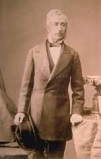

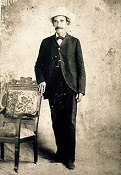







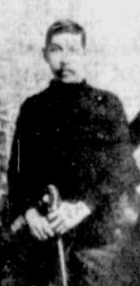
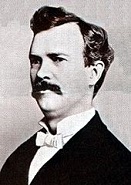

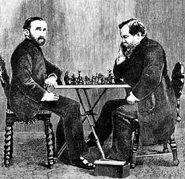






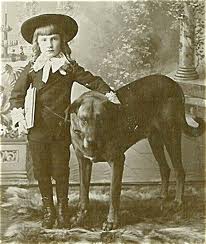




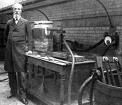





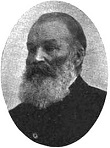
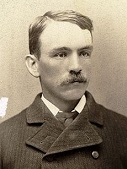
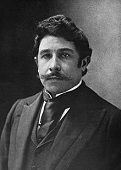

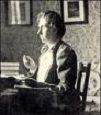


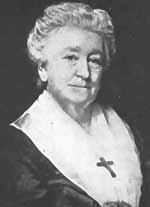



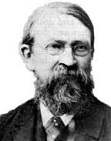



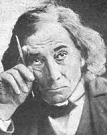


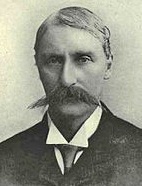
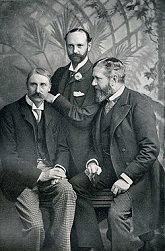


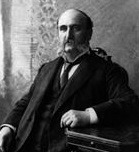

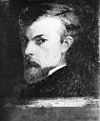
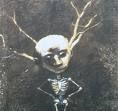
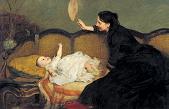
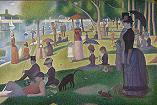
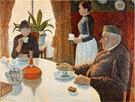

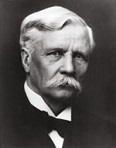



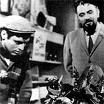


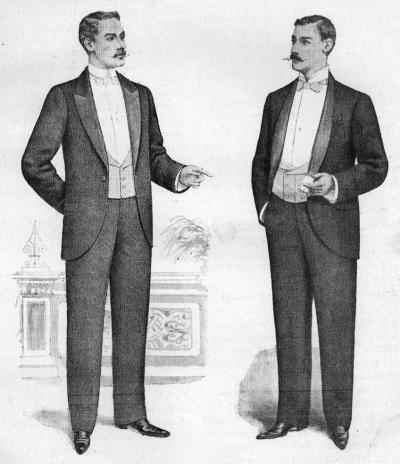
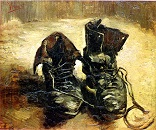
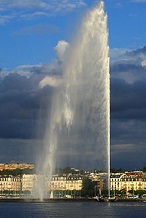
1886 Early in the year the harsh winter in Montana helps bring an end to the open range cattle era. On Jan. 4 the U.S. Supreme (Waite) Court rules in Presser v. Ill. that states may prohibit private armies, with the soundbyte: "Unless restrained by their own constitutions, state legislatures may enact statutes to control and regulate all organizations, drilling, and parading of military bodies and associations except those which are authorized by the militia laws of the United States"; it also rules that the Second Amendment limits only the power of Congress and the federal govt. to control firearms, not that of the states, and that the right peaceably to assemble applies only to the right to petition the govt. for redress of grievances. On Jan. 13 the Internat. Order of the King's Daughters and Sons is founded in New York City by Methodist minister's wife Margaret McDonald Bottome (1827-1906) for the "development of spiritual life and the stimulation of Christian activities", signing up 50K members worldwide within a year. On Jan. 28 British PM (since June 23, 1885) Lord Salisbury resigns, and on Feb. 1 Liberal "Grand Old Man" William Gladstone becomes PM of Britain for the 3rd time (until July 20). On Jan. 30 the first Texas State Fair is held in Dallas, switching to the last Fri. in Sept. until the 3rd Mon. in Oct. - only 77 years till they murder their first president? Not woodchuck, not whistle pig, but? On Feb. 2 the first official annual celebration of Groundhog Day begins in Punxsuwtawney, Penn., announced in the Punxsuwtawney Spirit. On Feb. 21 the city of Fort Myers, Fla. (modern-day pop. 75K), named after Confed. quartermaster gen. Abraham Charles Myers (1811-89) is founded on an abandoned U.S. Army fort by U.S. Civil War Union vet Manuel A. Gonzalez (1832-1902) and his 5-y.-o. son Manuel S. Gonzales from Key West; it goes on to become a major winter resort after the building of the Royal Palm Hotel in 1898, attracting Thomas Edison, Henry Ford et al. On Feb. 22 Pres. George Washington's Birthday becomes a U.S. holiday. On Mar. 27 U.S. Army Gen. George Crook and Chiricahua Apache leader (medicine man not chief) Geronimo ("he who yawns") (1829-1909) negotiate a peace treaty in the Canyon de los Embudos (Funnels) in the Sierre Madre Mts. near Sonoro, Mexico, whereby the Apaches agree to surrender and be returned to the San Carlos Rez in Ariz.; that night a Swiss-Am. bootlegger sells them a large quantity of booze, causing Geronimo and 20 drunk warriors to repudiate the treaty and steal away during the night; Geronimo is tracked down, and surrenders on Sept. 4 to U.S. Gen. Nelson A. Miles in Skeleton Canyon, Ariz., and is then sent with other warriors to Ft. Pickens, Fla., where he becomes America's first tourist attraction; meanwhile his family is sent to Ft. Marion (until 1887). On Apr. 8 British Liberal PM (since Feb. 1) William Ewart Gladstone (1809-98) formally introduces the First Home Rule (Irish Govt.) Bill (first attempt to give Irish affairs over to the Irish people), giving the Irish Parliament the right to appoint the executive of Ireland, but reserving taxing power to the British Parliament; Charles Stuart Parnell supports the bill, but there is great opposition in both Ulster (N Ireland) and England, and on June 8 it is defeated in the House of Commons by 341-311, although Parnell's party stays optimistic; the Liberal Party is split asunder, and PM William Gladstone resigns on July 20; the predominantly Conservative Tory coalition Unionist govt. takes over, with the Marquess of Salisbury returning as PM on July 25 (until Aug. 11, 1892), pumping up their policy of gung-ho pip-pip bloody-bloody Empire On Which the Sun Never Sets imperialism, with the mottoes "Splendid Isolation" and "Fight Home Rule With Kindness"; in the face of this bastion of aristocratic conservatism Gladstone remains foreign secy. instead of becoming first lord of the treasury like most PMs do, and doesn't struggle back to power for six years (Aug. 15, 1892). On May 1 U.S. workers organize the first May Day strike; on May 4 the Haymarket Square Riot (Massacre) (Affair) sees a peaceful labor strike for an 8-hour workday by 1.4K ruined by a few anti-reaper radicals who explode a bomb in Haymarket Square in Chicago, Ill, killing seven of 200 policemen, causing a riot and discrediting the labor movement as hysteria sweeps the U.S., causing Pres. Cleveland to become less tolerant of labor strikes; anarchists Samuel Fielden (1847-1922), Michael Schwab (1853-98), and Oscar William Neebe (1850-1916) are convicted, but later Ill. Dem. gov. (1893-7) John Peter Altgeld (1847-1902) pardons them, causing er, a firestorm of controversy. On May 8 after Ga. enacts temperance legislation, Atlanta, Ga. druggist John Stith (Styth) Pemberton (1831-88) reformulates his 1863 French Wine Coca to eliminate the alcohol, and creates Coca-Cola from the kola nut, syrup, damiana, and cocaine, marketing it down the street at Jacobs' Pharmacy as a "brain and nerve tonic" for 5 cents a glass (cocaine is not removed until 1903?); bookkeeper-marketer Frank Mason Robinson (1845-1923) names it and creates the Spencerian script for the bottles and ads; it only sells 25 bottles its first year; it is trademarked in 1893 by Asa Griggs Candler (1851-1929) after he buys the rights for $2.3K in 1891, and goes on to make it big while successfully fighting allegations of cocaine or dope in its "secret ingredient" (until 1916); Robinson also puts Pemberton up to giving away free coupons and plastering Atlanta with banners and signs to promote the stuff, starting a trend which the Internet generation knows as Spam? On May 10 the U.S. Supreme (Waite) Court rules in Santa Clara County v. Southern Pacific Railroad Co., to definitively accept the doctrine that the word "person" in the 14th Amendment applies to corporations as well as individuals. On May 31 the Great Gauge Change sees the Southern U.S. convert from their 5 ft. gauge to one 3 in. narrower to be compatible with the Northern U.S. The Victorian Jackie? On June 2 48-y.-o. U.S. pres. Groper Cradlerobbber, er, Grover Cleveland (b. 1837) marries 21-y.-o. Buffalo, N.Y.-born Frances Clara Folsom (1864-1947), daughter of his law partner Oscar Folsom (bringing her first baby carriage, becoming her legal guardian "Uncle Cleve", sending flowers to her room in Wells College, then wooing her in the White House in 1885) in a White House ceremony in the Blue Room (the first U.S. pres. to get married in office until ?); she becomes the youngest First Lady, taking over hostess duties from Cleveland's sister Rose Cleveland; initial unfavorable public reaction is reversed when photos of her lovely face and statuesque figure circulate; they have 2 sons, Marion (1895-1977) and Richard (1897-1974), and 3 daughters, "Baby" Ruth (1891-1904), Esther (1893-1980), and Francis (1903-95). On June 11 after attempting to dip into state funds to build more fairy tale castles, 41-y.-o. "Mad" Ludwig II (b. 1845) is declared insane, then drowns on June 13 along with his physician in Lake Starnberg outside Munich (suicide?); he is succeeded as king of Bavaria by his insane son Otto I (1848-1916), with his uncle Prince Luitpold (1821-1912) as regent (until 1912). On June 19 Cincinnati-born Yale grad. William Howard Taft (b. 1857) marries Helen Herron (1861-1943); they have 2 sons and 1 daughter. On June 19 the city of Pasadena, Calif. 10 mi. NE of downtown Los Angeles is incorporated (modern-day pop. 137K), becoming the home of the annual Tournament of Roses Parade and Rose Bowl football game, along with Caltech and the Jet Propulsion Laboratory (JPL). On June 25 Britain passes the British North America (Constitution) Act, providing for representation in the Canadian Parliament of territories not incl. in any province. On July 20 British PM (since Feb. 1) William E. Gladstone resigns, and on July 25 former PM (June 23, 1885-Jan. 28) Robert Gascoyne-Cecil, 3rd Marquess of Salsbury becomes British PM (until Aug. 11, 1892) (2nd time). On July 23 unemployed New York gambler (newsboy?) Steven Brodie (1861-1901) claims to have made a daredevil plunge from the new East River (Brooklyn Bridge) into the East River, causing the phrase "do a Brodie" to be coined; he really had a dummy dropped while he swims out from shore and greets a passing barge? Franz Liszt (1811-86) goes on a final tour of Antwerp, Brussels, Paris, Weimar, Bayreuth, Luxembourg and Windsor Castle, then dies on July 31. On Aug. 19 a 150 mph hurricane wipes out the town of Indianola, Tex., killing 74 and causing $200K damage, preceded by four and followed by three more this year; on Aug. 31 a 7.3 North Am. Plate earthquake rocks "the most polite city in America" Charleston, S.C., killing 110 and causing $5M in damage in a 200-mi. radius of the town, which is built on an unstable sandy coastal plain; Am. geologist Clarence Edward Dutton (1841-1912) studies the earthquake, discovering a method for determining its depth of focus; in 1889 he coins the term "isostasy". On Sept. 18 Jose Manuel Emiliano Balmaceda Fernandez (1840-91) is elected pres. of Chile (until Aug. 29, 1891), seeking to strengthen presidential powers while funding public works and education. On Sept. 26 (night) after acting as a courier-bodyguard for on-the-lam LDS Church pres. #3 (1880-7) John Taylor, Newlin, Penn.-born John Wickersham Woolley (1831-1928) allegedly sees the spirits of Jesus Christ and Joseph Smith Jr. visit Taylor in his home, and on Sept. 27 Taylor receives the 1886 Revelation, reaffirming the New and Everlasting Covenant (plural marriage) (which is covered-up until 1911 when his son John W. Taylor produces it from his papers), and sets apart five men incl. John and his son Lorin Calvin Woolley (1856-1934) as apostles with a special commission to keep celestial plural marriage alive, with authority to set others apart in perpetuity; Lorin goes on to become the founder of the modern Mormon fundamentalist movement. In Sept. after gold is discovered in June 1884 in sedimentary rocks on Witwatersrand (Dutch "white waters range") on the Rand Ridge in the Transvaal between the Vaal and Limpopo Rivers, causing the Witwatersrand Gold Rush, the boom town of Johannesburg (elev. 5740 ft.) (modern-day pop. 957K/9.6M), named after deputy surveyor-gen. Johannes Rissik and mining commissioner Christiaan Johannes Joubert is founded 957 mi. NNE of Cape Town as a gold-mining camp, and zooms to a pop. of over 100K, with Cecil Rhodes' Consolidated Gold Fields setting up a microsoft, er, monopoly. On Oct. 25 the U.S. Supreme (Waite) Court rules 6-3 in Wabash, St. Louis & Pacific Railway Co. v. Ill. to lessen the force of its 1877 Granger ruling regarding state regulatory power, severely limiting the rights of states to control interstate commerce. On Oct. 28 (Thur.) the 305' 1" 225-ton (heaviest in the world) "harbor chick" Statue of Liberty (AKA Liberty Enlightening the World), built by Dijon-born Alexandre Gustave Eiffel (Bonickhausen) (1832-1923) and designed by Frederic Auguste Bartholdi (1834-1904) of Alsace (a recycled version of "Egypt Bringing Light to Asia", once planned for the entrance to the Suez Canal, with the Roman goddess Libertas robed as an Egyptian fallaha peasant) is dedicated at Liberty (formerly Bedloe's) Island in New York Harbor "beside the golden door"; the base is an 11-pointed star constructed from the remains of Ft. Wood; the seven spikes in the crown signify the seven seas and continents; the right hand of the 152-ft. steel-reinforced copper-clad Lady Liberty on a 150-ft. pedestal holds a torch aloft, while her left hand carries a book inscribed "July IV MDCCLXXVI"; the sonnet The New Colossus, by Jewish-Am. poet Emma Lazarus (1849-87) is engraved on a tablet inside the pedestal, cementing the purpose as the welcoming of er, white immigrants; "Give me your tired, your poor/ Your huddled masses yearning to breathe free,/ The wretched refuse of your teeming shore,/ Send these, the homeless, tempest-tost to me,/ I lift my lamp beside the golden door!"; on Oct. 29 the first-ever ticker tape parade is held for Lady Liberty in New York City, with workers spontaneously throwing ticker tape out of brokers' windows, while Pres. Grover Cleveland accepts the statue for the U.S. On Nov. 23 handsome English-born stage actor Frederick Tyrone Edmond Power Sr. (1869-1931) debuts in "The Private Secretary" by Charles Hawtrey in St. Augustine, Fla., graduating to films in 1914, the same year his even handsomer son Tyrone Edmond Power Jr. (1914-58) is born; they both end up dying prematurely of heart attacks. On Dec. 2 Theodore Roosevelt marries his 2nd wife Edith Kermit Carow (1861-1948); they have 4 sons and 1 daughter. On Dec. 8 the Am. Federation of Labor (AFL) is founded in Columbus, Ohio, with Samuel Gompers (1850-1924) as pres. until death (except for 1895), working to keep it a conservative federation of autonomous craft unions, fighting to keep Socialists from infiltrating it, and instituting the policy of "rewarding our friends and punishing our enemies", i.e., voting for pro-labor candidates regardless of party. On Dec. 22 Henry W. Grady delivers a speech titled The New South in New York City. Prince Alexander of Bulgaria abdicates after a coup, and Stefan Nikolov Stambulov (1854-95) becomes regent, working to overthrow the military officers of the coup and place his man Ferdinand of Saxe-Coburg-Gotha on the throne. The British and the Germans enter into an agreement with the Egyptians, recognizing Sayid (Seyyid) Barghash Bin Said (d. 1888) as sultan of Zanzibar. Brig. Gen. Georges Boulanger (1837-91) becomes French war minister, and begins plotting with anti-govt. forces (working class malcontents and German revenge-mongers) to seize power, testing the new Third French Repub.; his followers are called Boulangists. Britain begins making Kenya a British colony, with Scottish-born British India Steam Navigation Co. owner Sir William Mackinnon, 1st Baronet (1823-93) using his agreement with the sultan of Zanzibar to expand British influence, chatering the Imperial British East Africa Co., with the administration of 150 mi. (240km) of coastline from the Jubba River in Mombasa to German East Africa, adding Uganda in 1890; on July 1, 1895 as the co. fails, the British govt. declares the East Africa Protectorate, with capital at Mombasa until 1920, followed by Nairobi; it is disestablished on July 23, 1920. The Royal Niger Co. of Manx-born George Dashwood Taubman Goldie (1846-1925) (founded 1879 as the United African Co., then renamed to Nat. African Co. in 1881) finally receives its royal charter to govern the British Oil Rivers Protectorate on the Niger River in N Nigeria, and he is knighted for it in 1887, working to consolidate the region with 250 ethnic and linguistic groups as a British dependency while keeping the pesky French and Germans out. After public pressure breaks the power of the landlords, the Scottish Crofters Land Act gives the Scottish Highland crofters fair rents and tenancy rights. The govt. of British Columbia gives the Canadian Pacific Railway 6K acres of land at Granville to move the W terminus of the CPR 12 mi. farther west, and the town of Granville is renamed Vancouver after 18th cent. explorer Capt. George Vancouver. The Spanish start a push to conquer Muslim-run Mindanao Island this year and next, but never succeeds in conquering it all. The Bonaparte and Orleans families are banished from France - talk about ungrateful? The Watts section of Los Angeles, Calif. (modern-day pop. 34K) starts out as 220 acres of farmland purchased from the 1843 Rancho La Tajauta Mexican land grant; in 1904 Watts Station is built, becoming its first railroad station; in 1926 it is annexed to Los Angeles, going predominantly black in the 1940s from the Second Great Migration. Flogging of soldiers is abolished in the British Army after a man is flogged to death and the physicians try to cover it up by claiming he died of pneumonia. General Electric Co. locates in Schenectady, N.Y., and eventually builds the largest electric manufacturing plant in the world, consisting of 365 bldgs. on 645 acres. Gold is discovered at Fortymile River (40 mi. from Ft. Reliance) in the Yukon, with prospectors going on to take 500K oz. of gold from its watershed, causing Jack McQuesten, Alfred Mayo, and Arthur Harper to found Forty Mile, becoming the oldest town in the Yukon. The Assoc. of Am. Physicians is founded by Sir William Osler et al. John Dewey (1859-1952) founds his Laboratory (Dewey) School. The unsuccessful Eighth (Last) Impressionist Exhibition is held in Paris. The Cincinnati Art Museum in Cincinnati, Ohio is founded. Ne'er-do-well Vincent Willem van Gogh (1853-90), after failing as an art salesman, French tutor, theological student, and miner evangelist at Wasmes, Belgium moves in with his art dealer younger brother Theo van Gogh (1857-91) in Paris, and picks up Impressionism and the brilliant hues used by Camille Pissaro, Georges Seurat (1859-91) et al. (until 1888). French artist Odilon Redon (1840-1916) becomes an instant celeb when symbolist poets Stephane Mallarme et al. draw attention to the affinities between their writings and his weird charcoal drawings dating back to the 1860s; in the 20th cent. after quantum physics triumphs, he becomes their artistic guru? - it works on women all the time? French anarchist art critic Felix Feneon (Félix Fénéon) (1861-1944) coins the term "Neo-Impressionism" to identify the group of artists headed by pointillist Georges Seurat (1859-91), whom he tries pointlessly, er, in vain to promote. The British School of Archaeology in Athens, Greece opens. Oxford U. Press begins pub. the bimonthly The English Historical Review, founded by John Dalberg-Acton, 1st Baron Acton of Cambridge U., becoming the oldest English language academic journal in the field of history; the first ed. is Mandell Creighton of Cambridge U. John Carroll U. (originally St. Ignatius College) is founded in University Heights, Ohio by the German Jesuits forced out of Germany by Bismarck's Kulturkampf; in Sept. 1968 it admits women. The Jesuit U. of Deusto in Bilbao, Spain opens; in 1916 it founds the first business college in Spain. Yeshiva U. in New York City opens, becoming the largest Jewish univ. in the U.S. Princeton law grad. Thomas Woodrow Wilson (1856-1924) receives his Ph.D. in political science from Johns Hopkins U. Chicago Avenue Church pastor Dwight Lyman Moody (1837-99), who began revival meetings in the U.S. and Britain in 1870 with hymnodist ("the Sweet Singer of Methodism") Ira David Sankey (1840-1908) founds the Chicago (Moody) Bible Inst. in Chicago, Ill. for training missionaries for foreign lands, funded by John Wanamaker et al.; it goes on to offer a Bachelor of er, Science degree in Biblical Studies. The New English Art Club is founded by British artists dissatisfied with the Royal Academy, who go for French influence, incl. Sickert and Steer. On a Sun. afternoon in Chicago, Ill., Story Count, Iowa-born beer-swigging prof. baseball player (1883-90) William Ashley "Billy" Sunday (1862-1935) is "saved" by the Pacific Garden Mission, giving up liquor, and in 1891 he gives up his $400/mo. baseball contract to work with the Chicago YMCA for $83 a mo., becoming an evangelist in 1896, followed by ordination as a Presbyterian minister in 1903. The Orpheum Circuit is founded by vaudeville impresario Gustav Walter, owner of the Orpheum Opera House in San Francisco, Calif.; in 1927 it merges with the Keith-Albee vaudeville circuit, becoming RKO Pictures in 1928. Francis Turner Palgrave (1824-97) becomes prof. of poetry at Oxford U. (until 1895), going on to churn out anthologies. The $1.75 3.6K-name New York Social Register is created in New York City by German-Am. gossip sheet publisher Louis Keller from the registry for the Metropolitan Nat. Horse Show at Madison Square Garden so that birds of a fine enough feather can flock together; the first ed. is mainly descendants of English and Dutch settlers, AKA the Knickerbocker merchant class, but by 1918 it is pumped up to 26 cities, incl. Boston, Buffalo, Charleston, Cleveland, Kansas City, Philly, San Francisco, St. Louis, and some Canadians. Smith Corona (originally Smith Premier Typewriter Co.) is founded in Syracuse, N.Y., producing the first typewriter with uppercase and lowercase letters. Milton Snavely Hershey (1857-1945) founds Lancaster Caramel Co. in Lancaster, Penn., becoming a success, and just waiting for a new idea to expand - duh? The card game of Biritch (Russian Whist) is devised in Russia, from which the name Bridge is later derived. Sultan Sayid Barghash introduces Tabaru (African-Islamic music) to Zanzibar. After working as a salesman then purchasing the parquet flooring business of Racine Hardware Co. of Racine, Wisc., Samuel Curtis Johnson Sr. (1833-1919) founds Johnson's Prepared Paste Wax Co.; in 1906 Herbert Fisk Johnson Sr. (1868-1928) becomes a partner, causing the co. to be renamed to S.C. Johnson and Son (S.C. Johnson Wax), going on to grow to $7.5B sales by 2006, with products incl. Glo-Coat, Johnsons Brite, and Mr. Muscle floor polish, Pride furniture polish, Drano drain cleaner, Glade air freshener, Pledge cleaner, Windex window cleaner, Mr Muscle oven cleaner, Saran Wrap and Ziploc food storage products, Kiwi shoe polish, and Raid roach killer - my pride and joy? Boston, Mass.-born William Crapo "Billy" Durant (1861-1947) founds the Flint Road Cart Co., becoming the world's leading manufacturer of horse-drawn vehicles, inventing dealer franchises; in 1904 he becomes gen. mgr. of Buick Motor Co. Appleton's Cyclopedia of Am. Biography accepts mail contributions for articles for the 1886 and 1888 eds., causing a practical joker to send them 84 bios of fictitious persons, which they pub.; in 1919 a librarian discovers 14 of the frauds, leading to 70 more being discovered by 1936 - the first Wikipedia? Burroughs Corp. (originally Am. Arithmometer Co.) is founded in St. Louis, Mo. by Rochester, N.Y.-born inventor William Seward Burroughs Sr. (1855-98) (grandfather of Beat Gen. writer William S. Burroughs) to manufacture mechanical adding machines, becoming the Burroughs Adding Machine Co. in 1904, and the Burroughs Corp. in 1953, going on to grow up with the computer industry until merging in 1986 with Sperry Univac to become Unisys. Abraham Cohen (1827-92) founds the first brewery in Alaska in Juneau. Glenfiddich (Gael. "valley of the deer") Speyside single malt Scotch whisky is founded in Dufftown, Scotland by William Grant & Sons, becoming the world's best-selling single malt whiseky; the logo is a stag. The Erdinger Weissbrau Brewery is founded in Erding, Bavaria, Germany (27 mi. NE of Munich) by Johann Kienle, becoming known for its Weissbier; in 1935 it is acquired by Franz Brombach, who passes it to his son Werner Brombach. The Inst. of Brewing (originally the Laboratory Club) is founded in England by 10 malting and brewing scientists; in 2001 it merges with the Operative Brewers' Guild of Yorkshire (founded Oct. 1906) to form the Inst. and Guild of Brewing, which in 2005 is renamed the Inst. of Brewing and Distilling, which pub. Brewer and Distiller Internat. and Journal of the Inst. of Brewing. Architecture: The Jet d'Eau fountain in Lake Geneva, Switzerland begins as a relief valve in the Rhone River for a hydraulic power network, shooting water 98 ft. high and becoming a tourist attraction, causing it to be moved to the lake and opened on Aug. 25, 1891 on the 600th anniv. of the Swiss Confederation, shooting water 295 ft. high; in 1951 it swtiches from city water to lake water. Hydroelectric installations at Niagara Falls are begun. The Severn Tunnel in England (begun 1873) is finished. The Sagamore (Algonquin "Chieftain") Hill mansion (begun 1884) in Cove Neck, N.Y. near Oyster Bay on the N shore of Long Island is completed by Theodore Roosevelt, originally named Leeholm until wife Alice Hathaway Lee dies in 1884 and he marries Edith in 1886, becoming their home for life, and the Summer White House in 1902-8; he dies there in Jan. 1919, and she on Sept. 30, 1948. Tower Bridge bascule-suspension bridge over the Thames River in London 0.5 mi. from the Tower of London is begun (finished 1894). Sports: On Dec. 8 the Amateur Hockey Assoc. of Canada (AHAC) is founded in Montreal, Quebec, becoming the 2nd Canadian hockey league after one founded in 1883 in Kingston, Ont.; teams incl. the Montreal Victorias, Montreal Crystals, Montreal Hockey Club, Ottawa Hockey Club, and McGill U. Club; pres. #1 is Canadian Mohawk Ottawa Senators captain (1886-7) Thomas Daniel Green (1848-1935); it disbands in 1898; each team has six players, incl. left wing, right wing, centre, rover, point, and coverpoint; first team to score a goal wins the game. The first British Amateur Golf Championship is played, won by Horace Hutchinson (1859-1932), although last year's Royal Liverpool Club winner Allan MacFie is grandfathered in. Bohemian-born Jewish-Am. chess whiz Wilhelm Steinitz (1836-1900) defeats Johannes Hermann Zukertort (1842-88) of Germany 10-5 in 20 games in the First World Chess Championship, held in New York City, St. Louis, Mo., and New Orleans, La., becoming world chess champ #1 (until 1894). The chant "Rock Chalk, Jayhawk, KU" is adopted by the science club of the U. of Kan., the state being known for chalk rock limestone; Pres. Teddy Roosevelt calls it the greatest college chant he ever heard; Kan. soldiers go on to use it in the 1889 Philippine-Am. War, the Boxer Rebellion, and WWII, and it becomes the KU Crimson and Blue sports chant. Inventions: The Applegarth Tractor is invented, with an inclined track, anticipating the tank. On Dec. 28 wealthy Josephine Garis Cochran (Cochrane) (1839-1913) of Shelbyville, Ill. (whose mother Irene is the daughter of steamboat inventor John Fitch) patents an automatic dishwasher that wins first prize at the 1893 Chicago World's Fair, and is later marketed by KitchenAid to restaurants and hotels when it proves too expensive for home use; in the 1950s new Am. suburban homes come equipped with extra plumbing to handle the hot water, making them a common household device. Am. self-taught chemist Charles Martin Hall (1861-1914) of Thompson, Ohio and French chemist Paul Louis Toussaint Heroult (Héroult) (1863-1914) independently invent processes for producing aluminum by electrolysis. Clarence Hamilton of the Plymouth Iron Windmill Co. in Plymouth, Mich. (founded 1880) invents the compressed air BB gun, and the co. begins handing them out as a promotional items with its windmills, changing its name to Daisy Manufacturing Co. on Jan. 26, 1895 after pres. Lewis Cass Hough utters the soundbyte "Boy, that's a daisy"; in spring 1940 they introduce the Red Ryder BB Gun, which resembles the Winchester rifle, named for the comic strip "Red Ryder" (1938-63) - you'll shoot your eye out? M. Auguste Mustel of Paris, son of dulciphone inventor (1860) Victor Mustel invents the Celesta (pr. chel-ES-ta) (small metal bars struck by felt hammers with piano-like keyboard), which is used by Peter Tchaikovsky in "The Dance of the Sugar Plum Fairy" (1892), and is often used to substitute for the glockenspiel. Belgian industrialist Edouard Sarazin (-1887) licenses Gottlieb Daimler's 1887 internal combustion engine patents, and hires French engineer Emile Levassor (1843-97) to build them in France; after Sarazin dies, cagey Levassor marries his widow Louise, and they go into business with Louis Francois Rene Panhard (1841-1908), producing their first model in 1890; too bad, in 1896 Levassor crashes while trying to avoid a dog in the road, and dies in 1897; not that they have as vast a consumer market waiting them as do the Yanks. German chemist Friedrich Otto Schott (1851-1935) and German microscope maker Carl Zeiss (1816-88) invent a new type of optical glass that can utilize the Abbe sine condition, making possible apochromatic (apo) microscope objectives, which bring three wavelengths into focus in the same plane rather than two like achromatic lenses. French engineer Paul Vieille (1854-1934) invents smokeless gunpowder, which he calls Poudre B, which is 3x more powerful than black gunpowder (Poudre Noire); it is adopted by the French army for the Lemel Rifle. David H. Wilson of Tex. obtains U.S. patent #343,939 for the Electric Fence, constructing a 30-mi. one energized by a water wheel, which is not successful; they are not improved until the 1906 Russo-Japanese War and WWI. The tailless Tuxedo dress coat, first worn by British Prince of Wales Edward VII is introduced by Griswold Lorillard at Tuxedo Park Country Club in N.Y., starting a fashion; it is later known as the dinner suit/jacket or black tie dress code. Science: On Feb. 6 the hard, brittle, reflective grey chemical element Germanium (#32) (Ge) is discovered by German chemist Clemens Alexander Winkler (1838-1904) in argyrodite after he figures out that the main components silver and sulfur only take up 93% of the mass, and initially calls it ekasilicon because it is chemically related to silicon; it ends up being named after Germany. On June 20 after obtaining it from his brother in Mexico, physician John Raleigh Briggs (1851-1907) of Dallas, Tex. eats one-third of a peyote button, and next year describes it for the first time in the medical lit., with the soundbyte "I know of nothing like it except opium and cocaine"; next year he sends a sample to German pharmacologist Dr. Louis Lewin (1850-1929), who distributes it around Germany for analysis and pub. the first scientific analaysis, causing it to be named Anhalonium lewinii. On June 26 French chemist Henri Moissan (1852-1907) isolates pure pale yellow Fluorine (F) (#9) (Lat. "fluo" = to flow) gas, earning him a prize of 10K francs from the French Academy of Science. The analgesic-antipyretic chemical Acetanilide (AKA Antifebrin) is discovered; too bad, it can damage the liver and kidneys, and ends up being replaced by its metabolite acetaminophen. Latvian-born German surgeon Ernst von Bergmann (1836-1907) uses steam to sterilize surgical instruments, starting the practice of aseptic surgery. French scientist French chemist Paul-Emile (Francois) Lecoq de Boisbaudran (1838-1912) discovers the metallic rare earth element Dysprosium (Dy) (#66), known for the highest magnetic susceptibility of the rare earths. Swiss chemist Jean Charles Galissard de Marignac (1817-94) discovers rare-earth (#40) chemical element Gadolinium (#64) (Gd), and names it after Finnish chemist Johan (John) Gadolin (1760-1852), who isolated gadolinite, the ore in which it is found near Falun, Sweden, Hitra Island, Norway, et al. Charcot-Marie-Tooth Disease is discovered, the most common neurological disorder, affecting 1 in 2.5K. Nonfiction: William Archer (1856-1924), About the Theatre; Study in the Psychology of Acting. Matthew Arnold (1822-88), Civilization in the United States; "If there be a discipline in which the Americans are wanting, it is the discipline of awe and respect"; disses the American "addiction to 'the funny man', who is a national misfortune here", meaning Mark Twain (1835-1910), causing Twain to prepare a reply (never pub.), in which he says "A discriminating irreverence is the creator and protector of human liberty." Karl Brugmann, Foundations of the Comparative Grammar of the Indo-Germanic Languages (1886-93). John Burroughs (1837-1921), Signs and Seasons. Samuel Butler (1835-1902), Luck or Cunning?; study in Darwinism. Andrew Carnegie (1835-1919), Triumphant Democracy: Sixty Years' March of the Republic. John Dewey (1859-1952), Psychology; first Am. textbook on the subject, founding Functional Psychology (Functionalism), rival to Structuralism. John Hay (1838-1905), Abraham Lincoln: A History (10 vols.) (1886-90); by his private secy.; creates the modern view of Lincoln as a great war leader rather than giving more credit to his subordinates incl. secy. of state (1861-9) William H. Seward. Sir Edward Durning-Lawrence (1837-1914), The Progress of a Century; or, The Age of Iron and Steam. Warren Felt Evans (1817-89), Esoteric Christianity and Mental Therapeutics. Richard T. Ely (1854-1943), The Labor Movement in America. Auguste Fournier, Napoleon I (3 vols.). James Geikie (1839-1915), Outlines of Geology; becomes std. textbook. Adolf von Harnack (1851-1930), History of Dogma (Lehrbuch der Dogmengeschichte) (7 vols.) (1886-98); liberal German view of the Gospels, claiming that from the start Christian faith was intermingled with Greek philosophy, thus Protestants are bound to criticize it. Baron Richard von Krafft-Ebing (1840-1902), Psychopathia Sexualis: Eine Klinisch-Forensische Studie (Sexual Psychopathy: A Clinical-Forensic Study); the largest-yet collection of case histories of sexual abnormalities and perversions, becoming a besteller going into several eds., despite his attempt to use big words to make it readable only by doctors; coins the term "masochism" for Austrian novelist Leopold von Sacher-Masoch (1836-95). Stanley Lane-Poole (1854-1931), The Story of the Moors in Spain. Andrew Lang (1844-1912), Books and Bookmen; Letters to Dead Authors. James Laurence Laughlin (1850-1933), The History of Bimetallism in the United States. Ernst Mach (1838-1916), Contributions to the Analysis of Sensations (Beiträge zur Analyse der Empfindungen); formulates the concepts of Gestalt and Figural Moment. Friedrich Nietzsche (1844-1900), Beyond Good and Evil: Prelude to a Philosophy of the Future (Jenseits von Gut and Bose: Vorspiel einer Philosophie der Zukunft); argues that the evil man isn't the opposite of the good man, but a different expression of the same basic impulses. T.P. O'Connor, The Parnell Movement. Louis Pasteur (1822-95), Le Traitement de la Rage (The Treatment of Rabies). David Dixon Porter (1813-91), The Naval History of the Civil War. George John Romanes (1848-94), Physiological Selection: An Additional Suggestion on the Origin of Species; points out that Darwin never actually mentioned how new species arise. Big date for Millennium Feverists? Charles Taze Russell (1852-1916), Studies in the Scriptures (7 vols.) (1886-1916); vol. 1 is The Divine Plan of the Ages; the series contains the original ground doctrine of the Jehovah's Witnesses to the effect that the year 1914 is when Christ will return to Earth to greet an elect class from among the Gentiles, with Zionism as proof that the End is near, and the Great Pyramid more proof of the divine inspiration of the Bible; vol. 7 is released after his death, but is really ghost-written by his successors, and in 1927 the JWs officially discard Russell's writings, although they continue to try to sell-out their stocks - ask them next time they come knocking, not? Leopold von Sacher-Masoch (1836-95), Little Mysteries of World History. Edgar Saltus (1855-1921), The Anatomy of Negation; about skepticism and atheism. John Gilmary Shea (1824-92), The Catholic Church in Colonial Days, 1521-1763; The Hierarchy of the Catholic Church in the United States: Embracing Sketches of All the Archbishops and Bishops from the Establishment of the See of Baltimore to the Present Time: also, An Account of the Plenary Councils of Baltimore, and brief History of the Church in the United States; History of the Catholic Church in the United States (4 vols.) (1886-92). Henry Sidgwick (1838-1900), Outlines of the History of Ethics. Philip Stanhope, 5th earl Stanhope (1805-75), Notes of Conversation with the Duke of Wellington, 1831-1851; based on secret transcriptions made during his frequent visits, which take the place of Wellington's memoirs that he never writes. August Strindberg (1849-1912), Son of a Servant (5 vols.) (1886-1909). Algernon Charles Swinburne (1837-1909), Miscellanies. Music: Isaac Albeniz (1860-1909), Suite Espanola, Op. 47; incl. Granada. Eugen d'Albert (1864-1932), Symphony in F major, Op. 4. Edmond Audran (1842-1901), La Cigale et la Fourmi (The Grasshopper and the Ant) (operetta) (Paris). Johannes Brahms (1833-97), Symphony No. 4 in E minor, Op. 98. Emmanuel Chabrier (1841-94), Le Roi Malgre Lui (opera). Max Fielder (1859-1939), Symphony in D Minor. Vincent d'Indy (1851-1931), Symphony on a French Mountain Air. Andre Messager (1853-1929), Les Deux Pigeons (ballet) (Paris Opera). Modest Mussorgsky (1839-81), A Night on Bald Mountain (posth.); arranged by Nikolai Rimsky-Korsakov based on Mussorgsky's 1867 tone poem "St. John's Night on the Bare Mountain". Arthur Sullivan (1842-1900), The Golden Legend; based on the 1851 Longfellow poem. Arthur Edward Waite (1857-1942), Israfel: Letters, Visions and Poems (London). Art: Gustav Bauernfeind, Cotton Merchant's Gate, Temple Mount, Jerusalem. Vincent van Gogh (1853-90), Shoes; an old pair he bought at a flea market that didn't fit; makes a fan of Martin Heidegger, who waxes lyrical in "The Origin of the Work of Art" (1935): "In the shoes vibrates the silent call of the earth, its quiet gift of the ripening frain and its unexplained self-refusal in the fallow desolation of the wintry field. This equipment belongs to the earth, and it is protected in the world of the peasant woman. From out of this protected belonging the equipment itself rises to its resting-within-itself." Ferdinand Hodler (1853-1918), Meditation. Winslow Homer (1836-1910), Undertow; two male lifeguards rescue two female bathers; Eight Bells; two sailors on deck. William Henry Huddle (1847-92), Surrender of Santa Anna; the 1836 Battle of San Jacinto. George Inness (1825-94), October. Max Klinger (1857-1920), Beethoven (sculpture). John Everett Millais (1829-96), Bubbles (A Child's World); a child blowing bubbles, used in Pears Soap ads starting in 1890; the model goes on to become British Adm. Sir William James. Edvard Munch (1863-1944), The Sick Child; based on his sister Sophie. William Quiller Orchardson (1832-1910), A Tender Chord; Master Baby. Bernhard Plockhorst (1825-1907), The Guardian Angel; becomes a giant hit with Christians. Odilon Redon (1840-1916), Skeleton Man. John Singer Sargent (1856-1925), Carnation, Lily, Lily, Rose. Georges Seurat (1859-91), Sunday Afternoon on the Island of La Grande Jatte (1884-6); the pointillist classic, with 3,456,000 dots of paint on a 6'9" x 10' canvas; after everbody figures out that overwork kills, pointillism dies out by the year 1900? Paul Signac (1863-1935), Breakfast (1886-7). Plays: Robert Williams Buchanan (1841-1901), Sophia; adaptation of Henry Fielding's "Tom Jones". Alfred Cellier (1844-91) and Benjamin Charles "B.C." Stephenson (1839-1906), Dorothy (comic opera) (Gaiety Theatre, West End, London) (Sept. 25); the first production under new dir. George Edwardes, getting off to a rocky start before Edwardes sells it to his accountant Henry J. Leslie, who moves it to the Prince of Wales Theatre, becoming a big hit, with the profits used to build the Lyric Theatre, where it moves in 1888, reaching 931 perf., becoming a record until the musical comedy "A Chinese Honeymoon" (1899); stars Furneaux Cook as Sir John Bantam, Squire of Chanticleer Hall, Redfern Hollins/Ben Davies as his nephew-heir Geoffrey Wilder, Marion Hood/Marie Tempest as his daughter Dorothy Bantam, and C. Hayden Coffin as Geoffrey's friend Harry Sherwood; makes a star of Marie Tempest (1864-1942) after Marion Hood gets sick; features the songs Queen of My Heart, Be Wise in Time, Hark For'ard!, With a Welcome to All, and The Time Has Come. Octave Feuillet (1821-90), Chamillac. Catulle Mendes (1841-1909), Gwendoline; music by Chabrier. Henrik Ibsen (1828-1906), Rosmersholm; John Rosmer and Rebecca West. Sir Lewis Morris (1833-1907), Gycia (tragedy). Jean Richepin (1849-1926), Monsieur Scapin. Poetry: Naftali Herz Imber (1856-1909), Morning Star; incl. the poem "Tikvateinu" (Our Hope), which becomes the lyrics for the Israeli nat. anthem "Hatikvah". Helen Hunt Jackson (1830-85), Sonnets and Lyrics (posth.). Rudyard Kipling (1865-1936), Departmental Ditties; incl. The Bethrothed; "And a woman is only a woman, but a good cigar is a Smoke." Jean Moreas (1856-1910), Les Cantilenes (Cantilčnes). Kostes Palamas (1859-1943), Songs of My Fatherland (Tragoudia tes Patridos Mou); starts a movement to revive Greek lit. with demotic as opposed to vernacular verse and a return to Hellenistic philosophy and reason. Coventry Patmore (1823-96), Collected Poems. Margaret Junkin Preston (1820-97), For Love's Sake. Jean Richepin (1849-1926), La Mer. Athur Rimbaud (1854-91), Illuminations. Emile Verhaeren (1855-1916), Les Moines. Comte Auguste Villiers de l'Isle-Adam (1838-89), L'Amour Supreme. William Butler Yeats (1865-1939), Mosada: A Dramatic Poem (debut). Novels: Paul Adam (1862-1920) and Jean Moreas (1856-1910), Les Demoiselles Goubert; marks the transition between Naturalism and Symbolism in French lit. Louisa May Alcott (1832-88), Jo's Boys; #3 in the March Family Trilogy (1868, 1871). Emilia Pardo Bazan (1851-1921), El Cisne de Villamorta (The Swan of Villamorta); Los Pazos de Ulloa (The House of Ulloa); a decadent aristocratic family. Paul Bourget (1852-1935), (Andre Cornelis) André Cornélis; a man devotes his life to avenging his father's death; filmed in 1918 and 1927. Frances Hodgson Burnett (1849-1924), Little Lord Fauntleroy; a big hit, becoming the Harry Potter of the 19th cent.; 7-y.-o. New Yorker Cedric Errol lives in genteel poverty with Mrs. Errol (Dearest) after the death of English father Capt. Cedric Errol, dressing in black velvet and lace collar with curls until he is given the news by lawyer Haversham that he has inherited the English title of Lord Fauntleroy, but must live with his sour-puss grandfather the Earl of Dorincourt and be brought up as an Englishman, only he hates the mother and snubs her; too bad, a pretender arrives, along with his evil mother, causing Dick Tipton the Bootblack and Mr. Hobbs the Grocer to play detective and expose her, after which he accepts Cedric and Dearest and they live happily together; the illustrations by Reginald Birch cause mothers to begin dressing their unhappy tykes in velvet Little Lord Fauntleroy suits.; filmed in 1914, in 1921 starring Mary Pickford, and in 1980 starring Rick Schroder. Walter Besant (1836-1901), Children of Gibeon (3 vols.). Hall Caine (1853-1931), A Son of Hagar. Anton Chekhov (1860-1904), Particoloured Stories (short stories); written in college and used to pay for his education; writes over 1K short stories in the next 18 years. Mary Cholmondeley (1859-1925), The Danvers Jewels. Wilkie Collins (1824-89), The Evil Genius; The Guilty River. Julian Corbett (1854-1922), The Fall of Asgard: A Tale of St. Olaf's Days (first novel). Marie Corelli (1855-1924), A Romance of Two Worlds (first novel); attempts to introduce New Age concepts (reincarnation etc.) into Christianity, and hits paydirt, becoming the best-selling Jacqueline Susann type novelist of Victorian England, and Queen Victoria's favorite; other fans incl. Winston Churchill and Randolph Churchill. Alphonse Daudet (1840-97), Lettres de Mon Moulin (short stories). Lodewijk van Deyssel (1864-), De Kleine Republiek. George Eliot (1819-80), Felix Holt, the Radical. Benito Perez Galdos (1843-1920), Fortunata y Jacinta (1886-7); rival in length to Tolstoy's "War and Peace", with only four main chars; his masterpiece? Ludwig Ganghofer (1855-1920), Die Sunden der Vater; Edelweisskonig. H. Rider Haggard (1856-1925), Long Odds. Thomas Hardy (1840-1928), The Mayor of Casterbridge; Mayor Michael Henchard; set in Dorchestershire on the Frome River in Wessex, S England. Edgar Watson Howe (1853-1937), The Moonlight Boy. Margaret Wolfe Hungerford (1855-97), Lady Branksmere; A Mental Struggle; The Haunted Chamber; Lady Valworth's Diamonds. Henry James (1843-1916), The Bostonians. Gottfried Keller (1819-90), Martin Salander. Charles Joseph Kickham (1828-82), For the Old Land, a Tale of Twenty Years Ago (posth.). Andrew Lang (1844-1912), The Mark of Cain; In the Wrong Paradise (short stories). Emily Lawless (1845-1913), Hurrish. Pierre Loti (1850-1923), An Iceland Fisherman (Pecheur d'Islande); his biggest hit? about the sad life of Breton fishermen who fish in Iceland each summer. Kalman Mikszath (1847-1910), Two Beggar Students. George Moore (1852-1933), A Drama in Muslin. Henrik Pontoppidan (1857-1943), The Apothecary's Daughters (Mimoser). Raffi (1835-88), Samuel. Arthur Rimbaud (1854-91), Les Illuminations. Edward Payson Roe (1838-88), He Fell in Love with His Wife. Leopold von Sacher-Masoch (1836-95), Eternal Youth; Stories from the Polish Ghetto. Robert Louis Stevenson (1850-94), Strange Case of Dr. Jekyll and Mr. Hyde; about mad scientist Dr. Henry Jekyll, who drinks a strange elixir to turn into psychokiller Edward Hyde, and is investigated by London lawyer Gabriel John Utterson; "Man is not truly one, but truly two... recognize the primitive duality of man"; the novel is immediately turned into a hugely successful stage play, but after the Whitechapel "Jack the Ripper" murders begin in 1888 the producers shut it down, believing it to be in poor taste. August Strindberg (1849-1912), The Son of a Servant. Carmen Sylva (1843-1916), Astra. Leo Tolstoy (1828-1910), The Death of Ivan Ilyich; an official of the court of justice falls and hurts his side, becoming a terminal invalid comforted only by his peasant boy servant Gerasim, reflecting on his worthless social-climbing life. Jules Verne (1828-1905), Robur the Conqueror; based on "the striking experiments of Capt. [Arthur Constantin] Krebs and Capt. Renard"; followed by "Master of the World" (1904). Auguste Villiers de l'Isle-Adam (1838-89), L'Eve Future (Tomorrow's Eve); the char. Andreide popularizes the word "android". Constance Fenimore Woolson (1840-94), East Angels. Julius Zeyer (1841-1901), The Chronicle of St. Brendan. Births: Canadian silent film actress ("the First Movie Star") ("the Girl of a Thousand Faces") ("The Biograph Girl") ("the Imp Girl") Florence Lawrence (Florence Annie Bridgwood) (d. 1938) on Jan. 2 in Hamilton, Ont. German July 20 Plot Nazi gen. Karl Heinrich von Stuelpnagel (d. 1944) on Jan. 2 in Berlin. Am. Imagist poet-writer John Gould Fletcher (d. 1950) on Jan. 3 in Little Rock, Ark.; educated at Phillips Academy, and Harvard U.; husband (1936-) of Charlie May Simon (1897-1977). Am. "Jimmy Stewart's sister in Harvey", "Brewster sister in Arsenic and Old Lace" actress Josephine Hull (nee Sherwood) (d. 1957) on Jan. 3 in Newtonville, Mass. British Vice-Adm. Gordon Campbell (d. 1953) on Jan. 6 in Croydon, Surrey; educated at Dulwich College. Am. abstract expressionist artist (Jewish) John D. Graham (Ivan Gratianovitch Dombrowsky) (d. 1961) on Jan. 8 (Dec. 27 Old Style) in Warsaw, Poland; emigrates to the U.S. in 1920; husband (1924-) of Elinor Gibson. Am. fashion designer (inventor of the brassiere) (Maidenform co-founder) (Jewish) Ida Rosenthal (Kaganovich) (d. 1973) on Jan. 9 in Russia; emigrates to the U.S. in 1904. Am. AT&T pres. (1925-48) (Unitarian) Walter Sherman Gifford (d. 1966) on Jan. 10 in Salem, Mass. English "Prof. Moriarty in The Adventures of Sherlock Holmes" actor George Desylla Zucco (d. 1960) on Jan. 11 in Manchester; Greek father, English mother. Canadian 5'11" hockey hall-of-fame player-coach Arthur Howey "Art" Ross (d. 1964) on Jan. 13 in Naughton, Ont. German BMW dir. (1922-42) Franz Josef Popp (d. 1954) on Jan. 14 in Vienna, Austria. German aircraft designer Reinhold Platz (d. 1966) on Jan. 16 in Cottbus. English "The Mauve Tower" novelist Arthur Annesley Ronald Firbank (d. 1926) on Jan. 17; educated at Trinity Hall, Cambridge U. Am. aircraft manufacturer-pilot Glenn Luther Martin (d. 1955) on Jan. 17 in Macksburg, Iowa. Am. Mafia boss ("the man who can dodge bullet") Giuseppe "Joe the Boss" Masseria (d. 1931) on Jan. 17 in Menfi, Sicily; grows up in Marsals; emigrates to the U.S. in 1902. French Constructivist sculptor-painter (Jewish) Antoine Pevsner (d. 1962) on Jan. 18 in Orel, Russia; brother of Naum Gabo (1890-1977). Am. "Imitation of Life", "Magnificent Obsession", "The Keys of the Kingdom" film dir. (Jewish) John Malcolm Stahl (Jacob Morris Strelitsky) (d. 1950) on Jan. 21 in Baku, Azerbaijan; emigrates to the U.S. in ?. German "Bloody White Baron" baron (last khan of Mongolia) Roman (Robert) Nikolai Maximilian von Ungern-Sternberg (Ungern von Sternberg) (d. 1921) on Jan. 22 in Graz, Austria. Am. "Twelve O'Clock High", "The Song of Bernadette" film dir. Henry King (d. 1982) on Jan. 24 in Christiansburg, Va. German conductor-composer Wilhelm Furtwangler (Furtwängler) (d. 1954) on Jan. 25 in Berlin. Am. abstract painter (co-founder of Synchromism) Morgan Russell (d. 1953) on Jan. 25 in New York City. Am. "The Dust Which is God" poet William Rose Benet (Benét) (d. 1950) on Feb. 2 in Ft. Hamilton, N.Y.; elder brother of Stephen Vincent Benet (1898-1943); brother of poet Laura Benet. Am. "Mutiny on the Bounty" film dir. Frank Lloyd (b. 1960) on Feb. 2 in Glasgow, Scotland. Am. "Bringing Up Baby", "Egbert Floud in Ruggles of Red Gap", "Milburn Drysdale's father-in-law in The Beverly Hillbillies", "Aesop in Aesop and Son" comic actor Charles Sherman "Charlie" Ruggles (d. 1970) on Feb. 8 in Los Angeles, Calif.; brother of Wesley Ruggles (1889-1971). Am. "Finders and Makers", "The Flowering of New England" historian-critic Van Wyck Brooks (d. 1963) on Feb. 16 in Plainfield, N.J.; educated at Harvard U. Am. banker (Jewish) Maurice Wertheim (d. 1950) on Feb. 16 in New York City; son of Jacob Wertheim and Hanna Frank; educated at Harvard U.; husband (1909-29) of Alma Morgenthau, (1930-5) Ruth White, and (1944-) Cecile Berlage; father of Barbara W. Tuchman (1912-89). Philippine chief justice #5 (1941-2) Jose Abad Santos y Basco (d. 1942) on Feb. 19 in San Fernando, Pampanga; educated at Santa Clara College, Northwestern U., and George Washington U. Hungarian Communist leader (atheist) Bela Kun (Béla Kohn) (d. 1936) on Feb. 20 in Lele, Austria-Hungary (modern-day Hodod, Romania) (near Szilagycseh, Transylvania); Jewish father, Protestant mother. German writer-poet-artist (co-founder of the Dada movement and coiner of the word "Dada") Hugo Ball (d. 1927) on Feb. 22 in Pirmasens; educated at the U. of Munich, and U. of Heidelberg. U.S. Supreme Court justice #76 (1937-71) and U.S. Sen. (D-Ala.) (1927-37) Hugo LaFayette Black (d. 1971) on Feb. 27 in Harlan, Clay County, Ala.; educated at the U. of Ala.; calls himself a "Clay County hillbilly". Austrian "Bride of the Wind" expressionist painter-poet-playwright Oskar Kokoschka (d. 1980) on Mar. 1 in Pochlarn. French auto racer-aviator Rene (René) Thomas (d. 1975) on Mar. 7 in Perigeaux. Am. chemist (discoverer of cortisone) Edward Calvin Kendall (d. 1972) on Mar. 8 in South Norwalk, Conn.; educated at Columbia U. U.S. Gen. Robert Lawrence Eichelberger (d. 1961) on Mar. 9 in Urbana, Ohio. German chancellor #18 (1925-6) Hans Luther (d. 1962) on Mar. 10 in Berlin. Polish marshal Edward Rydz-Smigly (d. 1941) on Mar. 11 in Lapszyn, Galicia. Danish Golden Age illustrator Kay Nielsen (d. 1957) (pr. KIGH) on Mar. 12 in Copenhagen. British princess Patricia "Patsy" of Connaught (d. 1974) on Mar. 17 in Buckingham Palace, London; daughter of Prince Arthur, duke of Connaught and Strathearn (1850-1942) (3rd son of Queen Victoria) and Princess Luise Margarete of Prussia (1860-1917); sister of Prince Arthur of Connaught (1883-1938) and Princess Margaret of Connaught (1882-1920); wife (1919-) of Alexander Ramsay (1881-1972). Am. "The Front Page", "Trouble in Paradise", "Holiday" comedic actor (master of the double-take) Edward Everett Horton (d. 1970) on Mar. 18 in Brooklyn, N.Y. German psychologist Kurt Koffka (d. 1941) on Mar. 18 in Berlin; educated at the U. of Berlin. German Vice Adm. Lothar von Arnauld de la Periere (Peričre) (d. 1941) on Mar. 18 in Posen (Poznan, Poland). Am. baseball pitcher-mgr. (Cleveland Indians) Cyril Charles "Cy" Slapnicka (d. 1979) on Mar. 23 in Cedar Rapids, Iowa. Am. photographer Edward Henry Weston (d. 1958) on Mar. 24 in Highland Park, Ill.; first photographer to win a Guggenheim Fellowship (1937); not to be confused with inventor Edward Weston (1850-1936). Greek ecumenical patriarch #268 of Constantinople (1948-72) Athenagoras I (Aristocles Spyrou) (d. 1972) on Mar. 26 in Vasilikon (near Ioannina), Epirus. Am. "less is more", "God is in the details" glass skyscraper modernist architect Ludwig Mies van der Rohe (Maria Ludwig Michael Mies) (d. 1969) on Mar. 27 in Aachen, Prussia, Germany; emigrates to the U.S. in 1937. German munitions heiress Bertha Krupp von Bohlen und Halbach (d. ?) on Mar. 26 in Essen; daughter of Friedrich Albert Krupp (1854-1902); wife (1906-) of Gustav von Bohlen und Halbach (1870-1950). Am. "The Moonstone" pioneer film dir. Reginald C. Barker (d. 1945) on Apr. 2 in Winnipeg, Man., Canada. Am. "As Time Goes By", "Casablanca" actor-singer (black) Arthur "Dooley" Wilson (d. 1953) on Apr. 3 in Tyler, Tex. Am. "A History of American Magazines" historian-journalist (Quaker) Frank Luther Mott (d. 1964) on Apr. 4 in Rose Hill, Iowa; coiner of the term "photojournalism" English physicist (vegetarian) (teetotaler) ("Baron Berlin") Frederick Alexander Lindemann, 1st Viscount Cherwell (d. 1957) on Apr. 5 in Baden-Baden, Germany; German-born British father, Am. mother; educated at the U. of Berlin. Am. 5'4" Olympic runner John Joseph "Johnny" Hayes (d. 1965) on Apr. 10 in New York City; Irish immigrant parents. Am. psychologist (founder of Purposive Behaviorism) Edward Chace Tolman (d. 1959) on Apr. 14 in West Newton, Mass.; educated at MIT, and Harvard U. French Purist cubist painter Amedee (Amédée) Ozenfant (d. 1966) on Apr. 15 in Saint-Quentin; educated at the U. of Paris; becomes U.S. citizen in 1944, then returns to France in 1955. German Communist leader (founder of Antifa) Ernst Johannes Fritz Thalmann (Thälmann) (d. 1944) on Apr. 16 in Hamburg. Japanese Gen. Baron Hiroshi Oshima (d. 1975) on Apr. 19 in Gifu Prefecture. Am. "Black Bottom" blues singer ("Mother of the Blues") (bi) Gertrude Malissa Nix Pridgett "Ma" Rainey (d. 1939) on Apr. 26 in Columbus, Ga. Italian "The Art of Noises" Futurist painter-composer-writer Luigi Russolo (d. 1947) on Apr. 30 in Portogruaro. German poet Gottfried Benn (d. 1956) on May 2; postwar Germany's T.S. Eliot? Am. actress and gossip columnist ("Queen of the Quickies") Hedda Hopper (Elda Furry) (d. 1966) on May 2 in Hollidaysburg, Penn.; Quaker parents; pays a numerologist $10 to pick her name Hedda. French organist-pianist-composer Marcel Dupre (Dupré) (d. 1971) on May 3 in Rouen, Normandy; begins performing at age 10, and in 1920 plays all 200+ organ compositions of J.S. Bach from memory - what's he got in his wallet? U.S. atty.-gen. #58 (1941-5) Francis Beverley Biddle (d. 1968) on May 9 in Paris, France; great-great-grandson of Edmund Randolph; half 2nd cousin 4xs removed of James Madison; educated at Groton School, and Harvard U. Swiss Reformed Protestant theologian (the Red Pastor from Safenwil") Karl Barth (d. 1968) (pr. like Bart) on May 10 in Basel; grows up in Bern; educated at the U. of Bern, U. of Berlin, and U. of Tubingen. English "Last and First Men" sci-fi writer (agnostic) William Olaf Stapledon (d. 1950) on May 10 in Seacombe (near Liverpool), Wallasey; educated at Balliol College, Oxford U., and U. of Liverpool. German Zeppelin capt. Ernst August Lehmann (d. 1937) on May 12 in Ludwigshafen am Rhein. Canadian sociologist Ernest Watson Burgess (d. 1966) on May 16 in Tilbury, Ont.; educated at the U. of Chicago. Am. "Lee's Lieutenants", "George Washington" historian (Baptist) Douglas Southall Freeman (d. 1953) on May 16 in Lynchburg, Va; son of Walker Burford Freeman, a member of Robert E. Lee's Army of Northern Virginia; educated at Richmond College, and Johns Hopkins U. Spanish king (1886-1931) Alfonso XIII (d. 1941) on May 17 in Madrid; posth. son of Alfonso XII (1857-85). Swedish politician Ture Nerman (d. 1969) on May 18 in Norrkoping. British vice adm. Richard Bell Davies (Bell-Davies) (d. 1966) on May 19 on Kensington, London. Am. "The Coming of the War, 1914" historian Bernadotte Everly Schmitt (d. 1969) on May 19 in Strasburg, Va.; educated at Oxford U., and U. of Wisc. English "London Times" owner (1922-66) Lt. Col. John Jacob Astor, 1st Baron Astor of Hever (d. 1971) on May 20 in New York City; 4th child of William Waldorf Astor, 1st viscount Astor (1848-1919) and Mary Dahlgren Paul (1858-94); educated at Eton College, and New College, Oxford U.; created baron in 1956. Am. "The Jazz Singer" singer-actor (Jewish) ("World's Greatest Entertainer") Al Jolson (Asa Yoelson) (d. 1950) on May 26 in Sredniki, Kovno, Russia (Seredzius, Lithuania); emigrates to the U.S. in 1891; husband of (1928-40) Ruby Keeler; starts out as a rabbi-cantor in Washington, D.C.; first openly Jewish U.S. entertainment star. Am. "War Is the Health of the State" radical leftist writer-philosopher Randolph Silliman Bourne (d. 1918) on May 30 in Bloomfield, N.J.; educated at Columbia U. German educator (founder of United World Colleges) (Jewish) Kurt Matthias Robert Martin Hahn (d. 1974) on June 5 in Berlin; educated at Oxford U., Heidelberg U., Freiburg U., and Gottingen U. Am. cardiologist (Pres. Eisenhower's personal physician) Paul Dudley White (d. 1973) on June 6 in Roxbury, Mass.; educated at Roxbury Latin School, and Harvard U. Roman aerodynamics pioneer Henri Marie Coanda (d. 1972) on June 7 in Bucharest. Am. "Doctor Doolittle" children's writer Hugh John Lofting (d. 1947) on June 14 in Maidenhead, Berkshire, England; emigrates to the U.S. in 1919; educated at Mount St. Mary's college, and MIT. Am. industrialist-philanthropist Kay Kimbell (d. 1954) on June 15 in Leon County, Tex. English Mt. Everest explorer George Herbert Leigh Mallory (d. 1924) on June 18 in Mobberley, Cheshire; educated at Winchester College, and Magdalene College, Cambridge U. U.S. Air Force 5-star gen. Henry Harley "Hap" "Pewt" "Benny" "The Chief" Arnold (d. 1950) on June 25 in Gladwyne, Penn.; first/only gen. of the U.S. Air Force (1949), and first/only American to achieve 5-star rank in two different armed services. Am. "I AM" religious movement co-founder Edna Ann(e) Wheeler Ballard (d. 1971) on June 25 [Cancer] in Burlington, Iowa; wife (1916-) of Guy Ballard (1878-1939). Chinese world's oldest person Alimihan Seyiti (d. 2021) on June 25. Am. Young & Rubicam ad agency co-founder John Orr Young (d. 1976) on June 25 in Leon, Iowa; partner of Raymond Rubicam (1892-1978). French Christian Dem. PM #130 (1947-8) and #132 (1948) Robert Schuman (d. 1963) on June 29 in Clausen, Luxembourg City, Luxembourg; co-founder of the EU, Council of Europe, and NATO. British gov. #21 of Hong Kong (1941) Sir Mark Aitchison Young (d. 1974) on June 30; educated at Eton College, and King's College, Cambridge U. Polish "Song of the Murdered Jewish People" poet-dramatist (Jewish) Itzhak Katzenelson (d. 1944) on July 1 in in Karelichy (near Minsk); grows up in Lodz. Italian aviation pioneer Giovanni Battista "Gianni" Caproni, 1st Count of Taliedo (d. 1957) on July 3 in Massone d'Arco, Austria-Hungary; educated at the Tech. U. Munich, and U. of Liege. U.S. ambassador to the Philippines (1952-5) Adm. Raymond Ames Spruance (d. 1969) on July 3 in Baltimore, Md. German composer Heinrich Kaminsky (Kaminski) (d. 1946) on July 4 in Tiengen. Danish "Dr. Christian", "Shirley Temple's grandfather in Heidi" actor Jean Pierre Hersholt (d. 1956) (pr. "hair-shult") on July 12 in Copenhagen; emigrates to the U.S. in 1913; founder of the Motion Picture Relief Fund; uncle of Erik Hersholt Nielsen (1924-2008) and Leslie Nielsen (1926-2010). Am. Roman Catholic clergman Father Edward Joseph Flanagan (d. 1948) on July 13 in Roscommon, Ireland; emigrates to the U.S. in 1904; founder of Boys Town (1917). Am. "Battling Grogan in Afraid to Fight" actor Tom Kennedy (d. 1965) on July 15 in New York City; starts out as a boxer. French "L'Atlantide" novelist Pierre Benoit (d. 1962) on July 16 in Albi. French historian (assimilated Alsatian Jew) (co-founder of the Annales School of History) Marc Leopold Benjamin Bloch (d. 1944) on July 16 in Lyons. Am. Gen. Simon Bolivar Buckner Jr. (d. 1945) on July 18 in Munfodville, Hart County, Ky.; son of Confed. gen. Simon Bolivar Buckner Sr. (1823-1914). Am. "Puttin' on the Ritz", "Surrender" dir. Edward H. Sloman (d. 1972) on July 19 in London; emigrates to the U.S. in 1915. Scottish aviation pioneer Lt.-Col. Sir Arthur Whitten Brown (d. 1948) on July 23 in Glasgow; Am. parents; grows up in Stretford, Lancashire. Spanish "Englishmen, Frenchmen, Spaniards" pacifist diplomat-historian Salvador de Madariaga (d. 1978) on July 23 in La Coruna. German physicist (inventor of the screen-grin vacuum tube and the pentode) Walter Hans Schottky (d. 1976) on July 23 in Zurich, Switzerland. Japanese "Diary of a Mad Old Man" novelist Junichiro (Jun'ichiro) Tanizaki (d. 1965) on July 24 in Tokyo. German Gen. Georg Stumme (d. 1942) on July 29 in Halberstadt. Am. New Thought leader Emmet Fox (d. 1951) on July 30 in Ireland; emigrates to the U.S. in 1928. Italian Costra Nostra boss Salvatore "Sal" "Mustache Pete" "Little Caesar" Maranzano (d. 1931) on July 31 in Castellammare del Golfo, Sicily; emigrates to the U.S. in 1919. Am. "The Man Nobody Knows" writer and ad exec Bruce Fairchild Barton (d. 1967) on Aug. 5 in Tenn.; educated at Amherst College. Canadian-Am. physicist (inventor of the mass spectrometer and discoverer of U-235) Arthur Jeffrey Dempster (d. 1950) on Aug. 14 in Toronto, Ont., Canada; educated at the U. of Chicago. English "The Lives of a Bengal Lancer" writer Maj. Francis Charles Claypon Yeats-Brown (d. 1944) on Aug. 15 in Genoa, Italy; diplomat father. German Marxist philosopher Karl Kosch (d. 1961) on Aug. 15 in Tostedt; educated at the U. of Jena. Am. biochemist Harry Steenbock (d. 1967) on Aug. 16 in Charlestown, Wisc. Am. "The Courage to Be" Lutheran existentialist philosopher (atheist?) (agnostic?) Paul Johannes Tillich (d. 1965) on Aug. 20 in Starzeddel, Brandenburg, East Germany; emigrates to the U.S. in 1947. English light music composer Eric Coates (d. 1957) on Aug. 27 in Hucknall, Nottinghamshire; father of Austin Coates (1922-97); no relation to Albert Coates (1882-1953). Am. Higgins Boat manufacturer Andrew Jackson Higgins (d. 1952) on Aug. 28 in Columbus, Neb. Am. "Porgy and Bess" novelist DuBose Heyward (d. 1940) on Aug. 31 in Charleston, S.C.; descendant of DOI signer Thomas Heyward Jr. (1746-1809); husband of Dorothy Heyward (1890-1961). Swiss composer Othmar Schoeck (d. 1957) on Sept. 1 in Brunnen. German "Saboteur", "Magnificent Obsession" wavy-hair actor Otto Kruger (d. 1974) on Sept. 6 in Toledo, Ohio; grand-nephew of Paul Kruger (1825-1904). Danish "Figure and Ground" psychologist Edgar John Rubin (d. 1951) on Sept. 6 in Copenhagen. British war poet Siegfried (Lorraine) Sassoon (d. 1967) on Sept. 8. Am. poet John Hall Wheelock (d. 1978) on Sept. 9; descendant of Dartmouth College founder Eleazar Wheelock (1711-79). Am. "Sea Garden", "Heliodora", "Palimpsest" Imagist poet-novelist (bi) Hilda Doolittle ("H.D.") (d. 1961) on Sept. 10 in Bethlehem, Penn.; uses the initials "H.D." as an alias; wife of Richard Aldington (1892-1962); lover of Ezra Pound and Bryher. Am. Harlem Renaissance writer (black) ("the Father/Dean of the Harlem Renaissance") Alain LeRoy Locke (d. 1954) on Sept. 13 in Philadelphia, Penn.; educated at Harvard U.; Hertford College, Oxford U., and U. of Berlin; first African-Am. Rhodes scholar (1907). English organic (alkaloid) chemist Sir Robert Robinson (d. 1975) on Sept. 13 in Chesterfield; educated at Magdalene College, Oxford U. German July 20 Plot Gen. ("the Old Cavalryman") Erich Hoepner (d. 1944) on Sept. 14 Frankfurt an der Oder, Brandenburg. Czech foreign minister (1940-8) Jan Garrigue Masaryk (d. 1948) on Sept. 14 in Prague; son of Tomas Masaryk (1850-1937) and U.S.-born Charlotte Garrigue (1850-1923). Icelandic scholar Sigurour Nordal (d. 1974) on Sept. 14. Am. celeb Dorothy Shakespear (d. 1973) oN Sept. 14; daughter of Olivia Shakespear (1863-1938); wife (1914-72) of Ezra Pound (1885-1972); mother of Omar Shakespear Pound (1926-2010). French mathematician Paul Pierre Levy (Lévy) (d. 1971) on Sept. 15 in Paris. French "Cloud Shepherd" avant-garde Dadaist sculptor-painter-poet Hans (Jean) Arp (d. 1966) on Sept. 16 in Strasbourg; German father, French mother; calls himself Hans when speaking German and Jean when speaking French. Italian "La Donna Nuda" film dir. Carmine Gallone (d. 1973) on Sept. 18 in Taggia, Liguria. Canadian theater dir.-producer-writer-actor John Murray Anderson (d. 1954) on Sept. 20 in St. John's, Newfoundland; educated at the U. of Lausanne Am. Iron Lung co-inventor Louis Agassiz Shaw Jr. (d. 1940) on Sept. 25 in Chestnut Hill, Mass. English physiologist Archibald Vivian Hill (d. 1977) on Sept. 26 in Bristol; educated at Trinity College, Cambridge U. Am. "After Seven Years" conservative Repub. writer Raymond Charles Moley (d. 1975) on Sept. 27 in Berea, Ohio; educated at Oberlin College, and Columbia U.; starts out as a member of FDR's Brain Trust, invents the term "New Deal", then turns on him and goes conservative. Am. isolationist Repub. politician William "Wild Bill" Langer (d. 1959) on Sept. 30 near Casselton, N.D. Am. ambassador and U.S. rep. Ruth Bryan Owen (d. 1954) on Oct. 2; wife of William Jennings Bryan (1860-1925); first female Southern congressperson (1929) and first female U.S. ambassador (Denmark) (1933-6). Irish Literary Revival dramatist-novelist (Protestant) Esme (Esmé) Stuart Lennox Robinson (d. 1958) on Oct. 4 in Douglas, County Cork. Am. 6'3-1/2" silent film actor-comedian Karl Dane (Rasmus Karl Therkelsen Gottlieb) (d. 1934) on Oct. 12 in Copenhagen, Denmark; emigrates to the U.S. in 1916; husband (1921-3) of Helen Benson (-1923). German July 20th Plotter Gen. Fritz Erich Fellgiebel (d. 1944) on Oct. 14 in Popelwitz (Popowice), Silesia. Israeli PM #1 (1948-53, 1955-63) (Jewish) David Ben-Gurion (David Grün) (David Green) (d. 1973) on Oct. 16 in Plonsk, Poland; educated at the U. of Warsaw; immigrates to Palestine in 1906. Am. "You Can't Take It With You", "mother Marmee in Little Women" actress Spring Dell Byington (d. 1971) on Oct. 17 in Denver, Colo. (32nd Ave. and Osceola St.); daughter of school supt. Edwin Lee Byington (1852-91). Am. Merrill Lynch founder (1914) Charles Edward Merrill (d. 1956) on Oct. 19 in Green Cove Springs, Fla; educated at Amherst College; partner of Edmund C. Lynch (1885-1938). Russian choreographer and ballet dir. Fyodor V. Lopukhov (d. 1973) on Oct. 20 in St. Petersburg. U.S. Gen. Oscar Woolverton Griswold (d. 1959) on Oct. 22 in Ruby Valley, Nevada. Am. Boring Figure experimental psychologist and historian of psychology (perfect name?) (Quaker) Edwin Garrigues "Gary" Boring (d. 1968) on Oct. 23 in Philadelphia, Penn.; educated at Cornell U.; student of Edward B. Titchener; teacher of Stanley Smith Stevens. Hungarian "The Great Transformation" economist (Jewish) Karl Paul Polyani (d. 1964) on Oct. 25 in Vienna, Austria; brother of Michael Polyani (1896-1976); educated at the U. of Budapest. Am. "The Private Life of Sherlock Holmes" journalist-poet-novelist-critic Charles Vincent Emerson Starrett (d. 1974) on Oct. 26 in Toronto, Ont., Canada; grows up in Chicago, Ill.; co-founder of the Baker Street Irregulars. Am. criminal defense atty. Harold Lee "Jerry" Giesler (d. 1962) on Nov. 2 in Iowa. English writer Vyvyan Holland (Vyvyan Oscar Beresford Wilde) (d. 1967) on Nov. 3 in London; son of Oscar Wilde (1854-1900) and Constance Lloyd (1858-98); educated at Trinity Hall, Cambridge U. Danish "My System" chess champ (Jewish) Aaron Nimzovich (Aron Isaevich Nimzovwitsch) (d. 1935) on ? in Riga, Latvia; emigrates to Denmark in 1922. Am. "I'll See You in My Dreams", "Makin' Whoopee" Tin Pan Alley hall-of-fame lyricist (Jewish) Gustav Gerson "Gus" Kahn (d. 1941) on Nov. 6 in Koblenz, Germany; emigrates to the U.S. in 1890; collaborator of Harry M. Woods (1896-1970). German "Gen. Ludendorff in The Hitler Gang", "Victor Victoria" actor-dir.-writer Reinhold Schunzel (Schünzel) (d. 1954) on Nov. 7 in Hamburg. Am. psychologist David Pablo Boder (d. 1961) on Nov. 9 in Liepaja, Latvia; coiner of the term "Holocaust" in 1946. Am. "Requiem for a Heavyweight", "The Perfect Fool" actor-comedian-dir. (Jewish) Ed Wynn (Isaiah Edwin Leopold) (d. 1966) on Nov. 9 in Philadelphia, Penn.; father of Keenan Wynn (1916-86). English "The Dippers" playwright-novelist Ben Travers (d. 1980) on Nov. 12 in Hendon, London. German expressionist dancer-choreographer Mary Wigman (Karoline Sophie Marie Wiegmann) (d. 1973) on Nov. 13 in Berlin; collaborator of Hanya Holm (1893-1992); known for the Witch Dance. French Muslim Sufi writer (convert from Roman Catholicism) Rene Jean Marie Joseph Guenon (René Guénon) (d. 1951) (AKA Shaykh 'Abd al-Wahid Yahya) on Nov. 15 in Blois, Loir-et-Cher. Am. journalist (Jewish) ("Dean of Washington Newsmen") Arthur Bernard Krock (d. 1974) on Nov. 16 in Glasgow, Ky.; educated at the Lewish Inst. English philosopher Walter Terence Stace (d. 1967) on Nov. 17 in London; educated at Trinity College, Dublin. Am. Sperry-Rand founder James Henry Rand Jr. (d. 1968) on Nov. 18 in North Tonawanda, N.Y.; educated at Harvard U. Belgian "Le Cocu Magnifique" dramatist Fernand Crommelynck (d. 1970) on Nov. 19 in Paris; Belgian father, French mother. Austrian "Dance of the Bees" ethologist Karl Ritter von Frisch (d. 1982) on Nov. 20 in Vienna. Am. "Banks and Politics in America" financial historian and Federal Reserve Board member (1930-50) Bray Hammond (d. 1968) on Nov. 20 in Springfield, Mo.; educated at Stanford U. English diplomat-writer (bi) Sir Harold George Nicolson (d. 1968) on Nov. 21 in Tehran, Persia; husband (1913-) of Vita Sackville-West (1892-1962); educated at Balliol College, Oxford U.; father of Nigel Nicolson (1917-2004). Am. "The Little Review" writer-ed. (lesbian) (follower of George Gurdjieff) Margaret Caroline Anderson (d. 1973) on Nov. 24 in Indianapolis, Ind.; lover of Jane Heap (1883-1964) and Dorothy Caruso (widow of Enrico Caruso). French painter Leonard Tsuguharu Foujita (d. 1968) on Nov. 27 in Tokyo, Japan; emigrates to France in 1913. Am. diplomat (bi?) Jefferson Caffery (d. 1974) on Dec. 1 in Lafayette, La.; educated at Tulane U. Indian Socialist Muslim indendence leader Raja Mahendra Pratap Singh (d. 1979) (AKA Aryan Peshwa) on Dec. 1 in Mursan, Uttar Pradesh. Am. "Nero Wolfe" mystery novelist (Quaker) Rex Todhunter Stout (d. 1975) on Dec. 1 in Noblesville, Ind.; creator of fat orchid-growing art connoisseur Nero Wolfe ("the Falstaff of Detectives"), who solves murder mysteries without leaving his Manhattan brownstone home; known as an anti-Communist leftist activist a la George Orwell (1903-50), but watched by the FBI as an "alleged radical". Czech "Bloudeni" novelist-poet-playwright Jaroslav Durych (d. 1962) on Dec. 2 in Hradec Kralove. Swedish X-ray spectroscopy physicist Karl Manne Georg Siegbahn (d. 1978) on Dec. 3 in Orebro (Örebro). Am. "poem lovely as a tree" poet Alfred Joyce Kilmer (d. 1918) on Dec. 6 in New Brunswick, N.J.; husband of Aline Murray Kilmer (1888-1941). Mexican #1 artist Diego Rivera (d. 1957) on Dec. 8 in Guanajuato; twin brother Carlos Maria dies at 14 mo.; his mother is pronounced dead after giving birth but the maid later notices her breathing; the father is ed. of a liberal Mexican newspaper; his mother calls him a monster for cutting open a pregnant mouse to prove where babies come from. Am. frozen food king Clarence Birdseye II (d. 1956) on Dec. 9 in Brooklyn, N.Y.; educated at Amherst College; starts out as a taxidermist and coyote killer. Am. "Gypo Nolan in The Informer", "Top Sgt. Quincannon in She Wore a Yellow Ribbon", "Sgt. Festus Mulcahy in Fort Apache", "Squire Red Will Danaher in The Quiet Man" actor-boxer Victor Andrew de Bier Everleigh McLaglen (d. 1959) (pr. muh-CLOG-len) on Dec. 10 in Tunbridge Wells, Kent, England; son of Protestant Rev. Andrew McLaglen; youngest of 8 brothers; grows up in South Africa; at age 14 claims his birth year as 1882 to enlist in the London Life Guards during the Boer War; father of Andrew Victor McLaglen (1920-); f ights (defeats?) Jack Johnson in an exhibition match in 1909; emigrates to the U.S. in 1924. Am. Detroit Tigers baseball hall-of-fame player ("the Georgia Peach") Tyrus Raymond "Ty" Cobb (d. 1961) on Dec. 18 in Narrows, Ga.; hated for his meanness incl. sliding into bases feet-first with spikes bared; starts out a white supremacists then later mellows and supports integrated baseball. Am. "Northwest Passage" novelist Kenneth Roberts (d. 1957) on Dec. 8 in Kennebunkport, Maine; educated at Cornell U. Hungarian-Am. "Casablanca", "The Adventures of Robin Hood", "Captain Blood" film dir. (Jewish) Michael Curtiz (Kertesz Kaminer Mano) (d. 1962) on Dec. 24 in Budapest. Am. "Muskrat Ramble" Dixieland jazz trombonist and bandleader (black) Edward "Kid" Ory (d. 1973) on Dec. 25 in La Place, La.; father of Babette Ory. Hungarian PM (1932-6) Gyula (Julius) Gombos (Gömbös) de Jakfa (d. 1936) on Dec. 26 in Murga. West Indian Pan-African nationalist journalist (white) Amy Euphemia Jacques Garvey (d. 1973) on Dec. 31 in Kingston, Jamaica; wife (1922-) of Marcus Garvey (1887-40). Egyptian women's reform writer Malak Hifni Nasif (d. 1918); first outspoken Egyptian female writer on women's issues, advocating education for women and a ban on arranged marriages, but not opposing the veil. Zionist pioneer Alexander Zaid (d. 1938). Australian nurse Elizabeth Kenny (d. 1952) on Warialda, N.S.W.; inventor of the Kenny Method of treating poliomyelitis with hot packs and exercises. Lebanese writer May Ziadeh (d. 1941); friend of Kahlil Gibran. Am. labor leader Philip Murray (d. 1952) in Blantyre, Scotland; emigrates to the U.S. in 1902; starts in the UMW, then founds the United Steel Workers of Am. in 1940; first pres. of the CIO (1940); splits with John L. Lewis in 1942. Am. Yiddish "Romance of a Horse Thief" novelist (Jewish) Joseph Opatoshu (Opatovsky) (Yosef Meir Opatowski) (d. 1954) in Mlawa, Poland; emigrates to the U.S. in 1907. Am. bowling champ (1921-6) Jimmy Blouin (d. 1947). Am. New Thought leader (Psychiana founder) Frank Bruce Robinson (d. 1948). English leftist rationalist writer (atheist) Archibald Horace Mann Robertson (d. 1961) in Durham; educated at Winchester College, and Trinity College, Oxford U. Am. bowler Emma Jaeger (d. 1964) in Addison, Mich.; grows up in Toledo, Ohio. Am. "Tillie the Toiler" cartoonist Russell Channing "Russ" Westover (d. 1966) in Los Angeles, Calif. Am. writer-journalist Rose Wilder Lane (d. 1968) in Dakota Territory; daughter of Laura Ingalls Wilder (1867-1957) and Almanzo James Wilder (1857-1949); grows up in Mansfield, Mo. Am. guitar maker Adolph Rickenbacker (Adolf Rickenbacher) (d. 1976) in Switzerland; emigrates to the U.S. in 1918; cousin of WWI flying ace Eddie Rickenbacker (1890-1973). Israeli Dead Sea Scrolls historian (Jewish) Solomon Zeitlin (d. 1976) in Chashniki, Vitebsk, Russia. Lebanese-Am. Marionite Christian scholar of Islam Philip Khuri Hitti (d. 1978) in Shimlan, Lebanon; educated at Am. U. of Beirut, and Columbia U.; introduces Arab studies to the U.S.; his niece is the mother of Christa McAuliffe (1848-86). French cryptanalyst Georges Jean Painvin (d. 1980) in Nantes. English fundamentalist Higher LIfe Christian minister Herbert Lockyer (d. 1984) near London; educated at Glasgow Bible Inst.; father of Herbert Lockyer Jr. Deaths: German #1 historian Leopold von Ranke (b. 1795) on May 23 in Berlin: "But it is not for the past as a part of the present, but for the past as the past, that man is properly concerned"; "To history has been assigned the office of judging the past, of instructing the present for the benefit of future ages. To such high offices this work does not aspire. It wants only to show what actually [essentially?] happened (wie es eigentlich gewesen)"; "I see the time coming when we will base modern history no longer on secondhand reports, or even on contemporary historians, save where they had direct knowledge, and still less on works yet more distant from the period; but rather on eyewitness accounts and on the most genuine, the most immediate, sources": "To accomplish anything in history there are three requirements: a sound understanding of people, courage, and honesty. The first, simply for insight into things; the second, not to be shocked at what one finds there; and the third, not to dissemble in any particular, even to oneself. So do the simplest moral qualities govern, even in science"; "In schoolbooks and in literature we can separate ecclesiastical and political history; in the life of mankind they are intertwined"; "My understanding of 'leading ideas' is simply that they are the dominant tendencies in each century. These tendencies, however, can only be described; they can not, in the last resort, be summed up in a concept"; "I would maintain, on the contrary, that every epoch is immediate to God, and that its value in no way depends on what may have eventuated from it, but rather in its existence alone, its own unique particularity"; "Every age is next to God"; "Afer Plato there can be no Plato"; "History is no criminal court." Am. painter-engraver Asher Brown Durand (b. 1796) on Sept. 17. French mathematician Adhemar de Saint-Venant (b. 1797) on Jan. 6 (Jan. 22?) in Saint-Ouen, Lor-et-Cher Am. Civil War Union gen. David Hunter (b. 1802) on Feb. 2 in Washington, D.C. Am. diplomat Charles Francis Adams (b. 1807) on Nov. 21. U.S. Sen. (D-Mo.) (1843-55) David Rice Atchison (b. 1807) on Jan. 26 in Grover, Mo. British civil servant Sir Charles Trevelyan, 1st Baronet (b. 1807) on June 19 in London. Austrian-German statesman Friedrich Ferdinand Graf Beust (b. 1809) on Oct. 24 in Altenberg (near Vienna). Irish poet Sir Samuel Ferguson (b. 1810) on Aug. 9 in Howth. U.S. Supreme Court justice #42 (1872-82) Ward Hunt (b. 1810) on Mar. 24 in Washington, D.C. U.S. Dem. Sen. David Levy Yulee (b. 1810) on Oct. 10 in New York City. Hungarian rhapsody composer-pianist Franz Liszt (b. 1811) on July 31 in Bayreuth, Germany (pneumonia). Dutch novelist Anna Louise Geertruida Bosboom-Toussaint (b. 1812). Am. rotary press inventor Richard March Hoe (d. 1812) on June 7 in Florence, Italy. Am. sanitation engineer Ellis Sylvester Chesbrough (b. 1813) on Aug. 18 in Chicago, Ill. U.S. Dem. politician Samuel J. Tilden (b. 1814) on Aug. 4 in Yonkers, N.Y.; leaves a $4M bequest to found the New York Public Library; gravestone reads: "I Still Trust in The People" (referring to the 1876 election). U.S. Supreme Court justice #36 (1862-7) David Davis (b. 1815) on June 26 in Bloomington, Ill. Swiss-born Brunswick Co. founder John Moses Brunswick (b. 1819) on July 25. Am. Mormon leader Jacob Hamlin (b. 1819) on Aug. 31 in Pleasanton, N.M. Irish-born Canadian poet Joseph Medlicott Scriven (b. 1819) on Aug. 10 near Port Hope, Ont. (drowns in a river). French geologist Alexandre-Emile Beguyer de Chancourtois (b. 1820) on Nov. 14. Am. dime novel writer Ned Buntline (b. 1823) on July 16 in Stamford, N.Y. (heart failure); drinks his way from wealthiest author in the U.S. to broke, forcing his wife to sell his Eagle's Nest home to pay the bills. Russian dramatist Alexander Ostrovsky (b. 1823) on June 14 in Slykova. Am. Dem. politician-gen. Winfield Scott Hancock (b. 1824) on Feb. 9 in Governors Island, N.Y. Belgian horticulturist Ambroise Verschaffelt (b. 1825). Dutch lit. critic Conrad Busken Huet (b. 1826) on May 1 in Paris. Am. politician-gen. John Alexander Logan (b. 1826) on Dec. 26 in Washington, D.C. German poet-novelist Josef Victor von Scheffel (b. 1826) on Apr. 9 in Karlsruhe. U.S. pres. #21 Chester A. Arthur (b. 1829) on Nov. 18 in New York City; dies after spending the last years of his life trying to burn his public and private papers to cover up his many unethical acts? French poet Theodore Aubanel (b. 1829) (apoplexy). Am. historian Ephraim Whitman Gurney (b. 1829) on Sept. 12 in Beverly, Mass. Am. poet Emily Dickinson (b. 1830) on May 15 in Amherst, Mass. (Bright's Disease); last words: "Let us go in, the fog is rising"; dies (a virgin?) in the same house she lived in all her life, having become a recluse after being jilted by a married minister (I miss my what in me, and my son?); leaves 1,775 poems, of which only seven are pub. during her lifetime, incl. five in the Springfield Republican; she never read Walt Whitman (1819-92), saying that she heard he was "disgusting"?; "Success is counted sweetest by those who ne'er succeed"; "The brain is wider than the sea"; "Faith is a fine invention for gentlemen who see; but microscopes are prudent in an emergency"; "a patron saint" and "a real good guy" (William Carlos Williams) - America's two greatest 19th cent. poets, and one has to be a frustrated prude spinster and the other a free lover? Am. poet Paul Hamilton Hayne (b. 1830) on July 6 in Grovetown, Ga. English painter Rebecca Solomon (b. 1832). Scottish medium Daniel Douglas-Home (b. 1833) on June 21 in Auteuil, France; subject of Robert Browning's poem Mr. Sludge, the Medium. Argentine poet Jose Hernandez (b. 1834) on Oct. 21 in Belgrano (heart disease). French mathematician Edmond Laguerre (b. 1834) on Aug. 14. Italian composer Amilcare Ponchielli (b. 1834) on Jan. 17. Indian Hindu guru Ramakrishna Paramhamsa (b. 1836) on Aug. 16 in Calcutta (throat cancer) - all those Oms? Am. architect Henry Hobson Richardson (b. 1838) on Apr. 27; designed Trinity Church in Boston. English sculptor John Warrington Wood (b. 1839). Estonian poet Lydia Koidula (b. 1843) on Aug. 11 (July 30 Old Style). Victorian illustrator Randolph Caldecott (b. 1846). French painter Karl Pierre Daubigny (b. 1846). Bavarian "mad" king (1864-86) Ludwig II (b. 1845) on June 13 in Lake Starnberg (near Munich) (drowned).
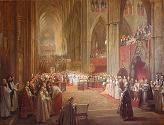










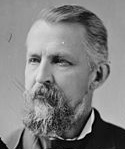



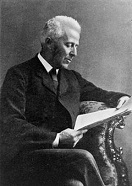


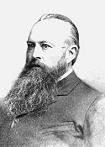





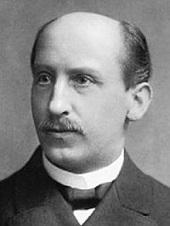


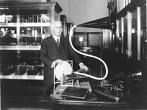


















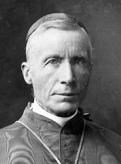





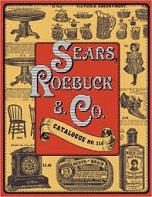

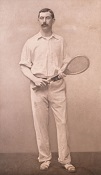

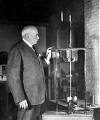









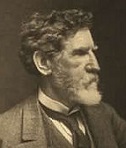
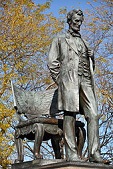

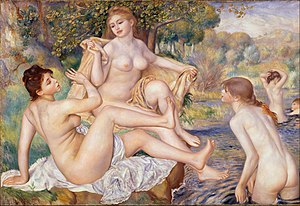
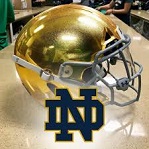
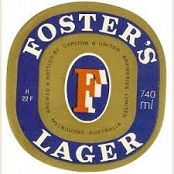
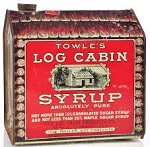
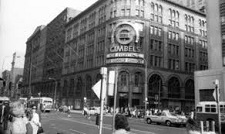
1887
On Jan. 20 the U.S. Senate approves an agreement to lease Pearl Harbor in Oahu, Hawaii as a naval base; on June 30 the
Hawaiian Rebellion of 1887
sees the white Honolulu Rifles along with the Reform Party of the Hawaiian Kingdom hold a meeting chaired by Sanford B. Dole to demand that King Kalakaua
dismiss his cabinet, and in early July they draft the Hawaiian Bayonet Constitution,
which is signed at gunpoint by the king on July 6, stripping him of most of his authority in favor of a new cabinet and a legislature, which never ratifies it; on Nov. 29
the U.S. receives rights to Pearl Harbor.
On Jan. 29 steamship Kapunda collides with bark Ada Melore off the coast of Brazil, killing 300.
In Jan. the Battle of Bulli in New South Wales, Australia sees mistreated coal miners battle blacklegs.
On Jan. 26 Ethiopian forces under Emperor Yohannes (John) IV (1831-89)
defeat the Italians at the Battle of Dogali near Massawa in modern-day Eritrea.
On Feb. 3 after leaving London last Jan. 21, the Emin Pasha Relief Expedition, led by Sir Henry Morton Stanley leaves Cairo to
rescue Gen. Charles "Chinese" Gordon's besieged gov. of Equatoria (S Sudan)
Mehmed Emin Pasha (Isaak Eduward Schnitzer) (nee Eduard Carl Oscar Theodor Schnitzer) (1840-92) begin,
traveling 100 mi. up the Aruwimi River in N Belgian Congo, rescuing Emin Pasha and returning via Lake Victoria on Aug. 15, 1889 after
Emin Pasha drunkenly falls out of a 2nd story window he thought was a balcony; in May 1890 Stanley returns to Europe a big hero, with his 900-page book "Darkest Africa" selling 150K copies; too bad,
by fall accusations of incompetence in the Rear Column end the praise, after which there are no more African expeditions not run by govts. in pursuit of military or political goals, or for purely
scientific purposes; in 1898-1900 a sleeping sickness epidemic in Congo, W Uganda, and S Sudan is blamed on native cattle traveling with the expedition.
On Feb. 4 after the 1886 U.S. Supreme Court Wabash case declares state Granger laws an unconstitutional attempt to control interstate commerce,
Pres. Cleveland signs the U.S. Interstate Commerce Act of 1887,
regulating the railroads via the Interstate Commerce Commission (ICC),
the first regulatory agency in the U.S. (abolished Jan. 1, 1996); chmn. #1 is former Mich. chief justice (1864-85)
Thomas McIntyre Cooley (1824-98).
On Feb. 8 the notorious U.S. Dawes General Allottment Act
is signed by Pres. Cleveland, attempting to Europeanize the Indians via private property ownership by breaking up reservations into private holdings,
opening surplus land to white settlement, ending up
as a way for whites to steal Indian land by swindling them one at a time instead of having to deal with a tribal leadership; by 1934 two-thirds
of all Indian lands are lost, and the number of landless Indians rises from 5K to 100K.
On Feb. 12 after encouragement by Bismarck, the First Mediterranean Agreement
between Britain and Italy, joined by Austria on Mar. 24 and Spain on May 4 is an interlocking set of notes providing for the maintenance of
the status quo in the Mediterranean, Adriatic, Aegean, and Black Seas;
Italy agrees to support British policy in Egypt, while Britain agrees to support Italian policy in N Africa; Britain and Austria agree to
community of interest in the Balkans; Spain agrees not to make an agreement with France over N Africa aimed at the others; the net result
is an agreement to common action in case France or Russia makes trouble in the Mediterranean - God only knows what I'd be without you?
On Feb. 21 a law establishing Labor Day
is passed in Ore., followed by Colo., Mass., N.J., and N.Y. this year, and 23 other states by 1894.
On Feb. 23 (6 a.m.) a 6.0 earthquake off the Mediterranean coast
of S France (French Riviera) and N Italy (Ligurian Coast) destroys villages and kills 2K - and that's God's answer?
On Mar. 1 Conservative Evaristo Carazo Aranda (1821-89)
becomes pres. of Nicaragua (until Aug. 1, 1889).
On Mar. 2 Pres. Cleveland signs the The U.S. Hatch Agricultural Experiment Station Act,
proving U.S. federal grants of $15K to state land-grant colleges to create agricultural experimentat stations.
On Mar. 3 after Pres. Cleveland refuses to sign it, the U.S. Edmunds-Tucker Act,
sponsored by U.S. Sen. (R-Vt.) (1866-91) George Franklin Edmunds (1828-1919)
(who introduced it on Dec. 8, 1885 on the same day as Pres. Cleveland's big anti-polygamy speech)
and U.S. Rep. (D-Va.) (1875-87) John Randolph Tucker (1823-97) comes into effect,
disincorporating the Church of Jesus Christ of Latter-day Saints and their Perpetual Emigration Fund, criminalizes the practice of polygamy, with
a fine of $500-$800 and up to five years in prison, and directs the confiscation of all church properties valued over $50K; in 1890 it is upheld by
the U.S. Supreme Court, and unless they ditch polygamy they're kaput?; repealed in 1978.
On Mar. 21 the U.S. Brewmasters Assoc. (USBA)
is founded in Chicago, Ill, "to make the interests of the brewing industry its own"; the business language is German; in 1888
it has 229 members, and in 1898 352 members; in 1912 it becomes the Master Brewers' Assoc. of the United States, and in 1933 the
Master Brewers Assoc. of Am. (MBAA); in 1948 it creates the MBAA Research Foundation, and after a meeting on Jan. 13, 1950 with
the Small Brewers Assoc., it is scrapped, and on Jan. 9, 1952 the Brewing Industries Research Inst. is founded, with charter
members incl. the Am. Society of Brewing Chemists (founded Oct. 12, 1934) and the Barley and Malt Inst., later the
Dominion Brewers Assoc. of Canada; it is dissolved on Jan. 31, 1969.
On Apr. 3 Stewartville, Minn.-born railroad station agent
Richard Warren Sears (1863-1914)
of North Redwood, Minn., who began buying pocket watches from a Chicago, Ill. jeweler to resell by
mail last year before moving to Chicago, Ill. and placing an ad hires Lafayette, Ind.-born watchmaker
Alvah Curtis Roebuck (1864-1948),
and pub. his first mail-order catalog in 1888; in 1893 they incorporate
Sears, Roebuck and Co.,
becoming one of the top U.S. retailers, opening its first retail store in Chicago in 1925
after Roebuck gets Sears to buy him out in 1895 for $20K, and goes on to become pres. of
Emerson Typewriter Co. in 1909-24; in fall 1913 the
Kenmore
brand name is first used on sewing machines, expanding to washing machines in 1927,
vacuum cleaners in 1932, ranges in 1946, dishwashers in 1951, washer-dryer combos in 1957,
microwave ovens in 1971, and continuous-cleaning ceramic cooktop ranges in 1973; Sears
eliminates its mail-order catalog in 1993; after Sears becomes enormously wealthy, leaving a
$25M fortune in 1914, Roebuck answers queries with "He's dead. Me, I never felt better."
On Apr. 5 after attempting in vain to stop the First Vatican Council from promulgating the
doctrine of papal infallibility by travelling to Rome, British Roman Catholic historian-politician
John Emerich Edward Dalberg-Acton, 1st Baron Acton (1834-1902)
AKA Lord Acton writes a letter to Anglican Cambridge U. historian
Mandell Creighton (1843-1901)
containing the immortal soundbyte: "Power tends to corrupt, and absolute power corrupts absolutely";
"But if we might discuss this point until we found that we nearly agreed, and if we do
agree thoroughly about the impropriety of Carlylese denunciations and Pharisaism in history,
I cannot accept your canon that we are to judge Pope and King unlike other men, with a
favourable presumption that they did no wrong. If there is any presumption it is the other
way, against the holders of power, increasing as the power increases. Historic responsibility
has to make up for the want of legal responsibility. Power tends to corrupt, and absolute
power corrupts absolutely. Great men are almost always bad men, even when they exercise
influence and not authority, still more when you superadd the tendency or the certainty
of corruption by authority. There is no worse heresy than that the office sanctifies the
holder of it. That is the point at which the negation of Catholicism and the negation of
Liberalism meet and keep high festival, and the end learns to justify the means. You would
hang a man of no position like Ravaillac; but if what one hears is true, then Elizabeth
asked the gaoler to murder Mary, and William III ordered his Scots minister to extirpate
a clan. Here are the greatest names coupled with the greatest crimes; you would spare those
criminals, for some mysterious reason. I would hang them higher than Haman, for reasons
of quite obvious justice, still more, still higher for the sake of historical science."
On Apr. 10 the Catholic U. of Am. (CUA)
in Washington, D.C. is established on 66 acres of land next to the Old Soldiers Home; on Mar. 7, 1889 Pope Leo issues the encyclical Magni Nobis, granting it a charter,
with the mission of the instruction of Roman Catholicism and human nature together at the graduate level; on May 24, 1888 Pres. Cleveland attends the laying of the cornerstone
of Divinity (Caldwell) Hall; Bishop John Joseph Keane (1839-1918)
is appointed as the first rector (until 1897), after which he goes to the Vatican until 1900,
then becomes archbishop of Dubuque, Iowa; Cardinal (1888-) James Gibbons (1834-1921)
becomes the first chancellor.
On Apr. 25 after he believes claims that the Turkish govt. had located it in 1883, Persian Nestorian archdeacon of Babylon
Prince Nouri (-1894)
claims to see Noah's Ark on 17K-ft. Mt. Ararat in extreme E Turkey; too bad, he dies while trying to organize financial support at the 1893 Chicago World's Fair, taking the secret route to the grave.
In Apr. the First Colonial Conference
opens in London, and on June 21 Zululand
is annexed by Britain, and King Dinizulu is banished to St. Helena - chained to that rock?
In Apr. Amarillo, Tex. (Sp. "Yellow") (200K/276K) (originally Oneida) ("the Yellow Rose of Tex.")
in the Tex. Panhandle is founded by J.I. Berry along the Fort Worth and Denver City Railroad; on Aug. 30 it becomes the seat of Potter County; by the late 1890s the
town becomes one of the busiest cattle-shipping points on Earth; in 1918 natural gas is discovered, followed by oil in 1921; in 1927 the U.S. govt. acquires the
Cliffside Gas Field, and in 1929 the Federal Bureau of Mines begins operating the Amarillo Helum Plant, becoming the sole producer of helium on Earth, earning it
the nickname "Helium Capital of the World"; it goes on to become a major meat-packing site, and the home of Pantex nuclear weapons assembly facility, giving it the nickname "Bomb City".
On May 23 Vancouver becomes the W terminus of the 2,880-mi. Canadian Pacific Railway, beginning in Montreal.
In May Geronimo is reunited with his family and transferred to Mt. Vernon Barracks in Ala. (until 1892).
On June 20 her popularity ascendant for the rest of her reign, Queen Victoria celebrates her
Golden Jubilee
(50th anniv. as queen) at a "family dinner" at Buckingham Palace attended by 50 Euro kings and princes
after a breakfast under the trees at Frogmore where her dear Prince Albert was canned;
Prince Wilhelm (II) attends the Golden Jubilee celebration of his grandmother Queen Victoria,
escorted by the new torpedo boats developed by up-and-coming naval Lt. Cmdr.
Alfred Peter Friedrich von Tirpitz (1849-1930),
later calling his time with torpedo boats (1876-88) as "the eleven best years of my life";
Abdul Karim (1863-1909),
an Indian Muslim servant brought over to mark the jubilee becomes her close friend
and is promoted to the unique title of "Queen's Munshi", and later her Indian secy., teaching her the Kama Sutra, er, Urdu; their
relationship might have been sexual like with John Brown?;
Francis Millen
of the U.S.-based Clan na Gael movement (founded 1867) plots to assassinate Queen Victoria at her Golden Jubilee ceremony at Westminster Abbey,
but the police uncover the plot and he flees to the U.S., where he dies.
On June 23 the Rocky Mountains Park Act, modeled on the U.S. Yellowstone Park Act is enacted by the
Canadian parliament, establishing Rocky Mountains Park (later Banff Nat. Park).
On July 7 Prince Ferdinand of Saxe-Coburg-Gotha is elected king Ferdinand I (1861-1948)
of Bulgaria (until Oct. 31 1918), making his main man Stefan Stambulov his PM (until 1894), who wields all the power and
becomes a dictator, working unsuccessfully to get Ferdy recognized by the Euro powers.
In Aug. the Ute War,
the last major Indian uprising in the U.S. sees white settlers start it by attacking the Utes in their camp on the White River in Colo.,
after which Colo. gov. Adams sends the militia, and after the Indians hold a war powwow then back down and decide to retreat back to their
Utah rez, the Colo. boys decide it's time to feel free, and ambush them on Aug. 25 in their camp across the Colo.-Utah line, after which the
survivors straggle back to their Utah rez like mangy dogs - and now the White is Right U.S. is all set for the Gay Nineties?
On Oct. 14 Pomona College
is founded in Claremont, Calif. 35 mi. E of Los Angeles and 25 mi. W of San Bernardino as a clone of small New England colleges, with
a board of trustees from Williams, Dartmouth, Bates, and Yale Colleges, later joining
graduate-level Claremont College (founded 1925)
and becoming part of the Claremont Colleges, all located within a 1 sq. mi. area, incl. the 5Cs (undergrad colleges) Pomona College,
Scripps College (1926) (women only),
Claremont McKenna College (1946) (economics, govt., public affairs),
Harvey Mudd College (1955) (STEM), and
Pitzer College (1963) (alternative interdisciplinary social sciences).
On Oct. 31 after prominent Denver citizens raise money and donate land to attract interest,
Fort Logan (originally Fort Sheridan until Apr. 5, 1889) U.S. Army base is established 8 mi. SW of Denver, Colo.,
with the first soldiers from Kansas Territory camping in 26 tents; it closes in 1946 and becomes a mental health center and
Fort Logan Nat. Cemetery.
On Nov. 13 (Sun.) Bloody Sunday
in Trafalgar Square, London starts as a demonstration by 10K organized by the Irish Nat. League and Social Dem. Federation against coercion
in Ireland and a demand for the release of MP William O'Brien, until 2K police and 400 troops arrive and kick their butts, killing three and
injuring hundreds; future Labor PM Ramsay MacDonald (b. 1866) witnesses it, and pub. the pamphlet
Remember Trafalgar Square: Tory Terrorism in 1887.
On Nov. 15 British steamship Wah Young
catches fire and sinks between Canton and Hong Kong, killing 400.
On Nov. 16 Vanuatu
(New Hebrides) is put under joint English-French rule (until July 30, 1980).
On Dec. 3 Marie Francois Sadi Carnot (1837-94)
becomes pres. #4 of the Third French Repub. (until June 25, 1894).
On Dec. 25 after converting from Christianity to Islam, English solicitor
Abdullah (William Henry) Quilliam (1856-1932),
son of a Methodist preacher founds the Liverpool Muslim Inst.,
going on to convert 150+ English people to Islam and build Britain's first mosque
at 8 Brougham Terrace in 1889.
In Dec. Pres. Cleveland devotes his entire
3rd Annual Message to Congress
to arguments for tariff reform and freer trade, launching the
Great Debate of 1888,
with Repubs. siding with protectionism.
In Dec. after Alexander Ulyanov (b. 1866),
elder brother of Vladimir Lenin is executed for a plot to assassinate Tsar Alexander III, he is expelled from Kazan U. for
taking part in a student political meeting, and by next year is a hardened survivor Marxist.
Russia and Germany sign the Reinsurance Treaty,
promising neutrality by each state if the other is attacked (ends 1890).
Britain passes the Merchandise Marks Act,
requiring "Made in Germany" marks in an attempt to create a stigma.
Pres. Cleveland, having resisted congressional demands to produce all
documents pertaining to pres. dismissals and appointments obtains repeal
of the 1867 Tenure of Office Act which they stretched to make their demands.
Gen. Georges Boulanger stages an unsuccessful coup in Paris.
Francesco Crispi (1819-1901),
former pres. of the chamber of deputies (1876) and interior minister (since 1877), who worked with Giuseppe Mazzini in
1848 and Giuseppe Garibaldi in 1860, and entered the Italian legislature as an extreme radical, only to turn reactionary
and monarchist, tops off his career by becoming PM of Italy (until 1891), going on to suppress rev. groups, court Germany
and Austria against France, and support Italian imperialism in Ethiopia - his brain became extra crispi?
Britain and France agree to cooperate in maintaining order in the New Hebrides (formalized in 1906).
Wilfrid Laurier (b. 1841) becomes leader of the Canadian Liberal Party (until 1919).
Luis Bogran of the Progressive Party is reelected as pres. of Honduras (until 1891), causing a division among liberal caudillos.
The Union Indochinoise
is organized by France out of the protectorates of Annam and Tongking in Vietnam.
A German-backed coup on Samoa
led by chief Malietoa (one of the four paramount chiefs) is a success; next year chief Mataafa revolts and is exiled to the Marshall Islands; meanwhile the U.S. and Britain get pissed-off.
Switzerland passes a factory law that enforces an 11-hour day with Sundays off, prohibits child labor under age 14, and regulates work by women.
Susanne Madora Salter (1860-1961)
is elected mayor of Argonia, Kan., becoming the first female mayor in the U.S.
The wannabe U.S. state of Cimarron,
consisting of the panhandle of Okla. is organized as Gray County (until 1890).
Eatonville, Fla.
is incorporated on Aug. 15, becoming one of the first incorporated towns in the U.S. populated and governed by African-Ams.;
the setting for native Zora Neale Hurston's novel "Their Eyes Were Watching God".
The St. Paul and Pacific Railroad reaches Great Falls, Mont.
Amory, Miss.
is founded by the Kansas City, Memphis & Birmingham Railroad, becoming the first planned city in Miss.
The 1-room Hygienic Lab.
at the U.S. Marine Hospital on Staten Island, N.Y. is founded under East Bend, N.C.-born asst. surgeon
Joseph James Kinyoun (1860-1919)
to apply the new science of bacteriology to federal quarantine work, with Kinyoun as dir. #1 (until 1899);
in 1891 it moves to Washington, D.C., and in 1902 assumes regulatory responsibility for licensing vaccines
and antitoxins, adding noninfectious diseases in 1912, and in 1930 becomes the
Nat. Institutes of Health.
Tsar Alexander III decrees universal conscription in the Caucasus, causing the Dukhobors conscientious objector sect to be violently persecuted.
Baron Hirsch of England donates $10M for Jewish schools in Russia.
The city of Whittier, Calif. near Los Angeles, named after Am. Quaker poet John Greenleaf Whittier (modern-day pop. 86K)
is founded by Jonathan Bailey, whose Quaker meetings on his front porch attract Quaker settler, who build a meeting house along with
Whittier College (originally Whittier Academy); it is incorporated at Feb. 25, 1898;
the college is chartered by Calif. in 1901; sports teams are known as the Poets; alumni incl. U.S. pres. Richard M. Nixon.
The Bodley Head
pub. co. (named after a bust of Sir Thomas Bodley of Bodleian Library, of Oxford fame) is founded in England by
John Lane (1854-1925) and
Charles Elkin Mathews (1851-1921),
going on to pub. works of "stylish decadence", incl. "The Yellow Book".
Pope Leo XIII beatifies martyred English politician
Sir Thomas More (1478-1535) (canonized 1935).
English poet Wilfrid Scawen Blunt (1840-1922)
is imprisoned for activities in support of home rule for Ireland; he also supports the cause of nationalism in Egypt and India.
Irish poet William Butler Yeats settles in London, becoming friends with British poets
William Ernest Henley (1849-1903), William Morris (1834-96), and Arthur Symons (Welsh).
The Hermetic Order of the Golden Dawn
is founded in England by three former Rosicrucians and Freemasons, attracting many scholarly eccentric celebs to its ranks incl.
poets W.B. Yeats and Dion Fortune, writers Arthur Machen and Algernon Blackwood, and actress Florence Farr; black magic adept Aleister Crowley
also joins, until he is expelled for being too serious, the rest preferring their magic white (if not their meat?); in 1900 there is a scandal,
causing the order to split into the
Rosicrucian Order of Alpha et Omega (A.O.)
and the Hermetic Society of the Morgenrothe, which schisms into the
Stella Matutina (Morning Star),
the Fellowship of the Rosy Cross,
and the Society (Fraternity) of the Inner Light,
which in 1965 spawns the Servants of the Light.
Pres. Cleveland meets 5-y.-o. Franklin Delano Roosevelt at the White House with his parents; says Cleveland to FDR, "I am making a strange wish
for you. It is that you may never be president of the United States."
Record 15-in.-diam. 8-in.-thick snowflakes fall in
Montana.
Melvil Dewey founds the first library school at Columbia U. in New York City.
Clark U.
in Worcester, Mass. is founded, becoming the first all-graduate univ. in the U.S.
Imperial Inst.
is opened by Queen Victoria to promote scientific research benefiting Britain's colonies and dominions; on July 8, 1907
Imperial College London
in the Royal Borough of Kensington and Chelsea, London, England is formed from the merger of the
Royal School of Mines (founded 1851),
Royal College of Science (founded 1881), and
City and Guilds College (founed 1878),
joining the U. of London; in 2007 it leaves the U.. of London.
The Am. Assoc. of Public Accountants
is founded; renamed to Am. Inst. of Accountants in 1916 and Am. Inst. of Certified Public Accountants in 1957.
The U. of Penn. Museum of Archaeology and Anthropology
is founded in Philly.
Polish pianist
Ignace Jan Paderewski (1860-1941)
makes his debut in Vienna, followed by Paris in 1889, and a U.S. tour in 1891 - and the people love him?
The Charity Society
(later United Way) is formed in Denver, Colo. out of 22 charities.
Andre Antoine (1858-1943)
founds
Theatre Libre
in Paris (until 1896).
John Wesley Edward Bowen (1855-1933)
becomes the first African-Am. to earn a Ph.D. from a U.S. univ., Boston U.; his advisor is philosopher
Borden Barker Bowne.
French astronomer
Camille Flammarion (1842-1925)
founds the French Astronomical Society.
The term "New Journalism" is coined by English critic
Matthew Arnold (1822-88)
to describe muckraking Pall Mall Gazette ed.
William Thomas Stead (1849-1912),
paving the way for the modern tabloid.
The word "sneaker"
is first used in the Boston Journal of Education, which says it's "the name boys give to tennis shoes";
in 1917 Henry Nelson McKinney of N.W. Ayer & Son advertising agency claims to coin it.
The synthetic universal 2nd language Esperanto ("Hopeful")
is pub. Russian-Polish Jewish physician
Ludwig Lazarus Zamenhof (1859-1917);
nouns have no gender and end with "o".
U.S. medical authorities diagnose childhood lead poisoning.
Florida Agricultural and Mechanical (A&M) U. (FAMU)
(originally State Normal College for Colored Students, Florida Agricultural and Mechanical College for Negroes)
in Tallahassee, Fla. is founded, becoming the 3rd largest black univ. in the U.S.
Nicholas Murray Butler et al. found the New York School for the Training of Teachers,
which later becomes Teachers College at Columbia U.
Roman Catholic Jesuit Gonzaga U.
in Spokane, Wash. is founded on Sept. 17 by Sicilian-born Father
Joseph Cataldo (1837-1928),
and named after St. Aloysius Gonzaga.
William Randolph Hearst (1863-1951)
takes over his father's newspaper the San Francisco Examiner,
giving it the motto "Monarch of the Dailies", and hiring top writers incl. Mark Twain and John London.
French historical school economist Charles Gide (1847-1932)
(Leon Walras follower) et al. found Revue d'Economie Politique.
Thomas Edison and Joseph Wilson Swan collaborate to produce
Ediswan electrical lamps.
The Austrian Brewers' Union
is founded in Vienna, Austria.
Irish-Am. brothers William M. Foster and Ralph R. Foster found Foster's Brewery
in Melbourne, Australia to produce Foster's Lager,
using water from the Yarra River, launching brewing operations next Nov. and offering it to the public in Feb. 1889; in 1901
it is first exported for use by Australian troops in the Boer War; in 1907 it merges with Carlton Brewery; in 1958 steel cans
are introduced; in 1971 it is exported to the U.K., followed by the U.S. in 1972 - the taste really comes from a dash of alligator piss?
In 1887 Bavarian Jewish immigrant Adam L. Gimbel
(having seven sons to support) founds Gimbels (Gimbel Brothers)
department store in Vincennes, Ind., which moves to Milwaukee, Wisc. and becomes #1,
expanding to Philly in 1894, and New York City in 1910, becoming the rival of Macy's, whose
store is across the street in Herald Square, Manhattan, with the motto: "Select, don't settle", causing
the saying "Would Macy's tell Gimbels?"; in 1920 it founds the Gimbels Thanksgiving Day Parade
in Philly, beating Macy's by four years; in 1922 it goes public, acquiring Saks 34th St. in 1923,
which launches Saks Fifth Avenue
(founded 1898); in 1925 it expands to Pittsburgh, Penn.
Forest Lake, Minn. grocer
Patrick James Towle (1835-1912)
begins marketing Log Cabin Syrup,
named after his childhood hero Abe Lincoln; in 1927 it is acquired by Gen. Foods,
which in 1990 merges with Kraft, who sells it in 1997 to Aurora Foods.
Paul Gaugin works on the French-run Panama Canal project.
Lick Observatory
on Mount Hamilton E of San Jose, Calif. is founded from a bequest left by
James Lick (1796-1876) (wealthiest man in Calif.),
whose body is buried under the site; the 36-in. lens is ground by Am. astronomer
Alvan Clark (1804-87),
who goes on to grind the 40-in. lens for Yerkes Observatory.
Jenolan Caves,
in N.S.W., Australia, originally known as Binoomea ("dark places") gets electric lighting.
Sports:
On Jan. 6-Mar. 11 the first 1887 Amateur Hockey Assoc. of Canada (AHAC) Season
sees the Montreal Crystals win with a 6-1 record.
On June 9 the Belmont Stakes features only two horses for the first of 5x (1888, 1892, 1910, 1920).
After a trip to Scotland, John Mickel Fox
of Philadelphia, Penn. introduces golf to the U.S. with the Foxburg Country Club; it was really J. Hamilton Gillespi in 1886 with the Sarasota Golf Club in Fla.?
Ellen Forde Hansell (Hansel) (1869-1937)
wins the first U.S. Open women's singles title; next year she loses to
Bertha Louise Townsend Toulmin (1869-1909),
who discovers the underhand technique and wins again in 1889.
Peter Walker Latham (1865-1953)
of England wins the world racquets title (until 1902), going on to win the world tennis title in 1895-1905 and 1907-8.
Canadian left fielder Edward James "Tip" O'Neill (1858-1915)
becomes the first player in AL history to win baseball's triple crown, with a .435 batting avg., 14 homers, and 123 RBI.
Baseball player Mike "King" Kelly
signs with the Boston Beaneaters, stunning the world with his huge $10K a year salary.
The Notre Dame Fighting Irish football team has its first season, going on to win 11/13/21
nat. championships, seven Heisman Trophy winners, 101 consensus All-Americans, 52 College Football Hall of Fame members, 13 NFL Hall of Fame members, 495 players selected
by the NFL Draft (#2 after USC), and hold the highest all-time win percentage in college football (0.729) and 2nd most wins (908); starting in 1991 all its home games are
televised by NBC-TV, becoming the only school; players wear navy jerseys and cool golden helmets.
The Am. Horse of the Year Award
is founded for the most outstanding racehorse regardless of age.
Inventions:
On Nov. 8 German immigrant Emile Berliner (1851-1929)
patents the Gramophone
in Washington, D.C., which uses cylinders, which he upgrades to discs in 1888, and begins marketing in Europe
in 1889 to toy companies while he works to improve audio quality; musicians now have to struggle with copyright
pirates like authors do?
Charles Francis Brush (1849-1929) d
esigns the first windmill to power electric lights for his mansion in Cleveland, Ohio, complete with
144 blades, which operates for 12 years.
Stephen Dudley Field and Rudolf Eickemeyer invent an electric locomotive.
William Horlock
of Racine, Wisc. invents malted milk.
Science:
German chemists first synthesize Amphetamines;
the analgesic drug Phenacetin is discovered.
German chemist Rainer Ludwig Claisen (1851-1930)
pub. the Claisen Condensation,
a reaction between two esters or one ester and a carbonyl compound (activated methylene group) in the presence of a strong base, yielding
a beta-keto ester or a beta-diketone after forming a carbon-carbon bond.
In 1890 he pub. the Claisen Reaction,
the synthesis of cinnamates by reacting aromatic aldehydes with esters; in 1912 he discovers the
Claisen Rearrangement
of allyl phenyl ether by heat, becoming the first known [3,3]-sigmatropic rearrangement.
German physicist Heinrich Rudolf Hertz (1857-94)
observes that a spark jumps a gap more easily when the electrodes are illuminated by light from another spark gap, becoming
the first observation of the photoelectric effect, which Einstein finally explains in 1905 by proposing that radiation is quantized,
and when light quanta hit metal they overcome the attractive potential holding electrons in, and convert their remaining energy into kinetic energy
of the ejected electrons.
After Polish-Am. physicist Albert Abraham Michelson (1852-1931)
makes an experimental determination of the Earth's speed through the ether in Potsdam in 1881, and the results (zero) are so unexpected that
he repeats the experiments in Cleveland, Ohio in partnership with
Edward Williams Morley (1838-1923),
the results of the Michelson-Morley Experiment
throw the physics world on its head with its apparent proof of the non-existence of Leibniz's stationary
ether (aether)
(or the disturbing conclusion that the Earth carries the ether along with it); the world must wait for Einstein to figure out that instead of
time and space being invariant and the speed of light variable, it's the other way around, and both
space
and time are variable (relative to inertial speed).
German chemist Friedrich August "Fritz" Raschig (1863-1928)
develops the Raschig Process
for production of hydrazine from organic compounds via oxidation of ammonia with sodium hypochlorite.
German chemist Friedrich Otto Schott (1851-1935)
begins the development of borosilicate glass (ends 1893),
which can take heat and thermal shock and resist chemicals.
English paleontologist Harry Govier Seeley (1839-1909)
discovers a dichotomy in the classification of dinosaurs because of different pubic bones, causing him to divide them into the bird-hipped Ornithischia
and the lizard-hipped Saurischia.
Nonfiction:
Oscar Browning (1837-1923), England and Napoleon in 1803, Being the Despatches of Lord Whitworth and Others;
The Teaching of History in Schools;
an address delivered to the Royal Historical Society on Oct. 22, 1877.
George Sewall Boutwell (1818-1905) (ed.),
United States Revised Statutes, 2nd Ed..
Sir Sidney Colvin (1845-1927) (ed.), Letters of Keats to His Family and Friends;
a lit. feast; a more complete ed. is pub. in 1931.
Anthony Comstock (1844-1915), Gambling Outrages;
Morals Versus Art - you tell 'em, Tony?
Francis Darwin (1848-1925) (ed.),
The Life and Letters of Charles Darwin [1809-82], Including an Autobiographical Chapter (3 vols.);
More Letters of Charles Darwin is pub. in 1905.
Alphonse Daudet (1840-97), Trent Ans de Paris (Thirty Years in Paris).
Hans Delbruck (1848-1929), The Persian and Burgundian Wars.
Albert Venn Dicey (1835-1922), The Privy Council - takes it out of the water closet?
Ignatius Loyola Donnelly (1831-1901), The Shakespeare Myth;
claims that Sir Francis Bacon is the real Shakespeare.
Julius A. Dresser (1838-93), The True History of Mental Science;
accuses Mary Baker Eddy of stealing Phineas Quimby's ideas, and claims that he formalized the
New Thought
movement and promoted it nationally; after suing Eddy in the 1890s and losing, his wife Annetta Seabury and son Horatio continue with the crusade.
William C. Endicott, Immigration Laws of the United States, State and National.
Arne Garborg (1851-1924), The New Norwegian Language and the National Movement; advocates landsmaal along with Norwegian nat. culture.
Archibald Geikie (1835-1924), The Teaching of Geography.
Asa Gray (1810-88), The Elements of Botany for Beginners and for Schools.
Oliver Wendell Holmes Sr. (1809-94), One Hundred Days in Europe.
Thomas Henry Huxley (1825-95), On the Reception of the Origin of Species; ed. by Francis Darwin.
Kaufmann Kohler (1843-1926), Ethical Basis of Judaism.
George Trumbull Ladd (1842-1921), Elements of Physiological Psychology;
first Am. textbook with substantial info. on experimental psychology.
Andrew Lang (1844-1912), Myth, Ritual and Religion; how the irrational elements of mythology are survivals of the most primitive forms.
James Laurence Laughlin (1850-1933), Gold and Prices Since 1873.
John Knox Laughton (1830-1915), Studies in Naval History: Biographies.
Arthur Lillie (1831-1911), Buddhism in Christendom, or Jesus the Essene;
"At any rate the account of the last supper in the Gospel of the Hebrews was manifestly quite different from the accounts given in our present gospels. There we see nothing about James drinking
out of Christ's cup, a fact which proves that the contents of the cup must have been water, for St. James was bound by the vow of the Nazarite to drink water for life."
Joseph Norman Lockyer (1836-1920), The Chemistry of the Sun.
Halford Mackinder (1861-1947), On the Scope and Methods of Geography;
manifesto for the New Geography, getting him appointed as the first reader in geography at Oxford U.
John Bach McMaster (1852-1932), Benjamin Franklin as a Man of Letters.
Max Mueller (1823-1900), The Science of Thought.
Eadweard Muybridge (1830-1904), Animal Locomotion (11 vols.);
contains 100K photographic plates.
Friedrich Nietzsche (1844-1900), On the Genealogy of Morality (Zur Genealogie der Moral).
K. Norgate, England under the Angevin Kings (2 vols.).
Margaret Oliphant (1828-97), The Makers of Venice.
Sir Frederick Pollock (1845-1937), The Law of Torts.
Ernest Renan (1823-92), History of the People of Israel Till the Time of King David (5 vols.) (1887-93).
William Sharp (1855-1905), Life of Percy Bysshe Shelley.
Ferdinand Tonnies (1855-1936), Gemeinschaft und Gesellschaft (Community and Society).
David Whitmer (1805-88), An Address to All Believers in Christ
blasts all other branches of the LDS movement but the Whitmerite church, which goes kaput again in the 1960s.
Levi Walter Yaggy, Geographical Study;
introduces cool maps in hopes of sparking an educational rev.
Charlotte Mary Yonge (1823-1901), The Victorian Half Century.
Ludwig Lazarus Zamenhof (1859-1917), International Language: Foreward and Complete Textbook; pub. under alias "Doktoro Esperanto" (Doctor Hopeful).
Music:
Isaac Albeniz (1860-1909), Spanish Rhapsody.
Eugen d'Albert (1864-1932), String Quartate No. 1 in A minor, Op. 7.
Alexander Borodin (1834-87), Prince Igor (opera) (1869-87) (unfinished); completed by Nikolai Rimsky-Korsakov (1844-1908)
and Alexander Glazunov in 1890.
Anton Bruckner (1824-96), Symphony No. 5 in B flat major (Vienna) (Apr. 20);
Te Deum.
Emmanuel Chabrier (1841-94), Le Roi Malgre Lui (opera) (Paris).
Frederick Delius (1862-1934), Florida Suite.
Antonin Dvorak (1841-1904), The Jacobin (1887-8) (opera).
Sir William Schwenck Gilbert (1836-1911) and Arthur Sullivan (1842-1900),
Ruddigore (London) (comic operetta #10).
Sir Hubert Parry (1848-1918), Blest Pair of Sirens; makes him the #1 English choral composer.
Nikolai Rimsky-Korsakov (1844-1908), Capriccio Espagnol, Op. 34.
Anthony Johnson Showalter (1858-1924), Leaning on the Everlasting Arms; inspired by Deut. 33:27:
"The eternal God is thy refuge, and underneath are the everlasting arms."
Sir John Stainer, The Crucifixion (oratorio).
Richard Strauss (1864-1949), Aus Italien (Munich).
Franz von Suppe (1819-95), Bellman (operetta) (Theater an der Wien, Vienna) (Feb. 26).
Giuseppe Verdi (1813-1901), Otello (opera)
(Feb. 5) (Teatro alla Scala, Milan); libretto by Arrigo Boito; based on Shakespeare's "Othello", with Desdemona's father Brabantio omitted; his #1 masterpiece?
Charles-Marie Widor (1844-1937), Symphony No. 5 for Organ;
Symphonies No. 6-8 for Organ.
Art:
Marie Bracquemond (1840-1916), Under the Lamp.
Julius Clover (1850-1924), Winter Landscape.
John Collier (1850-1934), Lilith.
James Ensor (1860-1949), The Temptation of St. Anthony.
Vincent van Gogh (1853-90), Moulin de la Galette.
Charles Edward Halle (1846-1914), Francesca and Her Lute.
 Pierre-Auguste Renoir (1841-1919), Les Grandes Baigneuses (The Large Bathers) (1884-7);
models incl. blonde Aline Charigot (whom he marries in 1890) and Suzanne Valadon; despite working for three years to perfect it, the critics pan it, causing him to give it up.
Marie Spartali Stillman (1844-1927), The May Fest at the House of Folco Portinari.
Plays:
Hermann Bahr (1863-1934), The New People (Die Neuen Menschen).
David Belasco (1853-1931) and Henry Churchill de Mille (1855-93),
The Wife.
Anton Chekhov (1860-1904), Ivanov (first play).
Alexandre Dumas fils (1824-95), Francillon.
Bronson Crocker Howard (1842-1908), The Henrietta;
satire on the U.S. business world; rev. in 1913 as "The New Henrietta".
Steele MacKaye (1842-94), Paul Kauvar; or, Anarchy.
Catulle Mendes (1841-1909), La Femme de Tabarin.
William Quiller Orchardson (1832-1910), The First Cloud.
Arthur Wing Pinero (1855-1934), Dandy Dick.
Victorien Sardou, La Tosca.
Giovanni Segantini (1858-99), Baba Uffer in Grison Costume.
August Strindberg (1849-1912), The Father (drama).
Poetry:
William Allingham, Irish Songs and Poems.
Robert Browning (1812-89), Parleyings with Certain People of Importance in Their Day.
Svatopluk Cech (1846-1908), Morning Songs.
Louise Imogen Guiney, The White Sail and Other Poems.
Robert Hamerling (1830-89), Blatter im Winde.
Oliver Wendell Holmes Sr. (1809-94), Before the Curfew and Other Poems.
Stephane Mallarme (1842-98), Poesies (Poésies).
Joaquin Miller (1837-1913), Songs of the Mexican Seas.
Sir Lewis Morris (1833-1907), Songs of Britain.
Charles G.D. Roberts (1860-1943), In Divers Tones.
Edward Rowland Sill (1841-87), Poems.
Algernon Charles Swinburne (1837-1909), Locrine.
Katharine Tynan (1861-1931), Shamrocks.
Viktor Vasnetsov (1848-1926), Virgin and Child.
Comte Auguste Villiers de l'Isle-Adam (1838-89), Tribulat Bonhomet.
Novels:
Emilia Pardo Bazan (1851-1921), La Madre Naturaleza (Mother Nature);
sequel to "Los Pazos de Ulloa".
Walter Besant (1836-1901), The World Went Very Well Then
(3 vols.).
Richard Doddridge Blackmore (1825-1900), Springhaven.
Leon Bloy (1846-1917), Le Desespere (The Despairing);
fierce Roman Catholic attack on Rationalism, turning the French intelligentsia against him.
Mary Elizabeth Braddon (1837-1915), Cut by the County.
Fernan Caballero (1797-1877), Clemencia.
Hall Caine (1853-1931), The Deemster.
Carlo Collodi (1826-90), Storie Allegre.
Julian Corbett (1854-1922),
For God and Gold;
"Calling on the ailing age to eschew the sins and imitate the virtues of Mr. Jasper Festing.... especially
his connection with the beginning of the Puritan Party, together with a relation of his voyage to Nombre de Dios
under that renowned navigator, the late Sir Francis Drake, Knight, written by himself, and first set forth".
Marie Corelli (1855-1924), Thelma.
Moncure D. Conway (1832-1907),
Pine and Palm: A Novel (2 vols.).
Lodewijk van Deyssel (1864-1952), Een Liefde.
Arthur Conan Doyle (1859-1930),
A Study in Scarlet;
introduces Sherlock Holmes (based on Edinburgh surgeon Dr. Joseph Bell, and named for U.S. Supreme Court
justice Oliver Wendell Holmes Jr. and cricket player Sherlock), who wears a deerstalker hat and an
Inverness cape, lives at 221B Baker St. in London, has a trusty sidekick named Dr. John H. Watson
(who marries his 2nd wife Mary Morstan on May 1, 1889 in Camberwell), plays a 500-guinea Stradivarius violin,
likes 7% solution cocaine and morphine, uses the alias Stanley Sigurdson, and applies techniques from the
emerging science of forensics to solve the most intractable crimes; Doyle receives Ł25 for it; Holmes is modeled
on Scottish forensic surgeon Joseph Bell (1837-1911);
the first person to play Holmes on stage is
Charles Hallam Elton Brookfield (1857-1913).
Frederik Willem van Eeden (1860-1932), De Kleine Johannes.
Mary Eleanor Wilkins Freeman (1852-1930), A Humble Romance and Other Stories;
New England life.
H. Rider Haggard (1856-1925),
She;
no substitute for ma and order?;
Jess;
Allan Quatermain;
A Tale of Three Lions.
Thomas Hardy (1840-1928), The Woodlanders.
Margaret Wolfe Hungerford (1855-97), A Modern Circe;
The Duchess.
J.K. Huysmans (1848-1907),
Un Dilemme;
En Rade;
a summer in the country; a flop.
Richard Jefferies (1848-87), Amaryllis at the Fair.
Andrew Lang (1844-1912) and Walter Herries Pollock, He.
Emily Lawless (1845-1913),
Major Lawrence FLS.
Nikolai Leskov (1831-95), Pamphalon the Mountebank.
Pierre Loti (1850-1923),
Madame Chrysantheme;
big hit (25 eds. in first five years); short-term marriages of Frenchmen with Japanese rashamen (concubines);
basis of Andre Messager's 1893 opera "Madame Chrystantheme", and Giacomo Puccini's 1904 opera
"Madama Butterfly"; "I shall choose a little yellow-skinned woman with black hair and cat's eyes. She must be pretty.
Not much bigger than a doll."
Propos d'Exil.
Guy de Maupassant (1850-93), Mont-Oriol;
Le Horla.
Conrad Ferdinand Meyer (1825-98),
The Temptation of Pescara.
Thomas Nelson Page (1853-1922),
In Ole Virginia;
incl. Marse Chan,
Meh Lady.
Walter Herries Pollock (1850-1926) and Andrew Lang (1844-1912),
He.
Henrik Pontoppidan (1857-1943),
The Polar Bear
(Isbjornen); a liberal vicar in Greeland takes on the provincial clergy.
Arthur Quiller-Couch (1863-1944),
Dead Man's Rock.
Futabatei Shimei (1864-1909),
The Drifting Cloud
(Ukigumo); Japan's first modern Japanese novel written in colloquial language.
Enrique Gaspar y Rimbau (1842-1902),
Le Anacronism;
about the cast iron Anacronopete; first time travel machine story?
Jose Rizal (1861-96),
Noli Me Tangere;
written in exile in Spain; satirizes corruption and injustice in the Philippines.
Edward Payson Roe (1838-88),
The Earth Trembled;
The Home Acre.
Edgar Saltus (1855-1921),
Mr. Incoul's Misadventure.
Robert Louis Stevenson (1850-94), Kidnapped;
young Davie Balfour (his wife's maiden name) is kidnapped from his eccentric Uncle Ebenezer while attempting to claim his rightful
inheritance, and stuck in the hold of a slave ship headed for the New World, where he meets exiled Highland hero Alan Breck, and they escape together to fight their way through Scotland.
Frank Richard Stockton (1834-1902), The Bee-Man of Orn.
August Strindberg (1849-1912), Navites of Hemso;
The Defense's Speech of a Fool (1887-95).
Hermann Sudermann (1857-1928), Frau Sorge (Dame Care) (first novel);
a mother is so poor that she sells his soul to Dame Care; gives him instant fame.
Kate Douglas Wiggin (1856-1923), The Birds' Christmas Carol;
about 10-y.-o. Carol Bird, who is about to die of TB and plans a Christmas celebration for their poor neighbors the Birds, with nine children.
Births:
German spymaster Adm. Wilhelm Franz Canaris
(d. 1945) on Jan. 1 in Aplerbeck (near Dortmund), Westphalia; related to Greek freedom fighter Constantine Kanaris (1793-1877)?
German Expressionist Der Blaue Reiter painter August Macke
(d. 1914) on Jan. 3 in Meschede.
Am. educator (founder of the Dalton School) Helen Parkhurst
(d. 1973) on Jan. 3 in Durand, Wisc.; educated at Yale U.
Am. "Got a Date with an Angel" songwriter-librettist-actor Clifford Grey (Gray) (Percival Davis)
(d. 1941) on Jan. 25 in Birmingham, Warwickshire.
German psychiatrist Kurt Schneider
(d. 1967) on Jan. 7 in Crailsheim, Wurttemberg.
Am. "Tamar" inhumanist poet Robinson Jeffers
(d. 1962) on Jan. 10 in Allegheny, Penn.
Am. "Orphans of the Storm", "sheriff in Key Largo" 6'3" actor (Freemason)
Gerard Montgomery "Monte" Blue
(d. 1963) on Jan. 11 in Indianapolis, Ind.; half-French half-Cherokee/Osage father; educated at Purdue U.; debuts as an extra in "The Birth of a Nation" (1915).
Am. "Sand County Almanac" environmentalist ("Father of U.S. Wildlife Management")
Aldo Leopold
(d. 1948) on Jan. 11 in Burlington, Iowa; educated at Yale U.
Italian Vatican diplomat Francesco Giuseppe Lardone
(d. 1980) on Jan. 12 in Moretta.
Am. "Our Plundered Planet" conservationist Henry Fairfield Osborn Jr.
(d. 1969) on Jan. 15 in Princeton, N.J.; son of Henry Fairfield Osborn Sr. (1857-1935); educated at Princeton U., and Cambridge U.
Am. "Perry White in Superman" actor John Rummel Hamilton
(d. 1958) on Jan. 16 in Shippensburg, Penn.
Am. "The Torch-Bearers", "The Show-Off" playwright George Edward Kelly
(d. 1974) on Jan. 16 in Philadelphia, Penn.; not to be confused with psychologist George Alexander Kelly (1905-67).
Am. "Sheridan Whiteside in The Man Who Came to Dinner" writer-critic
Alexander Humphreys Woollcott
(d. 1943) on Jan. 19 in Phalanx (near Red Bank), N.J.; contracts mumps in his 20s, leaving him impotent.
Am. world's oldest person (June, 2001-Mar. 18, 2002) Maud(e) Davis Farris-Luse
(d. 2002) on Jan. 21 in Morley, Mich.
Am. "The Science of Mind" Religious Science founder Ernest Shurtleff Holmes
(d. 1960) on Jan. 21 in Lincoln, Maine; brother of Fenwick Holmes (1883-1973).
Am. "The Mentality of Apes" Gestalt psychologist (in the U.S.) Wolfgang Kohler (Köhler)
(d. 1967) on Jan. 21 in Reval (Tallinn), Estonia; emigrates to the U.S. in 1935.
Canadian 5'6" hockey hall-of-fame goalie (Montreal Canadiens, 1910-25) ("the Chicoutimi Cucumber")
Joseph Georges Gonzague Vezina (Vézina)
(d. 1926) on Jan. 21 in Chicoutimi, Quebec.
Hungarian PM (1942-4) Miklos Kallay de Nagy-Kallo (Miklós Kállay de Nagy-Kálló)
(d. 1967) on Jan. 23 in Nyiregyhaza.
U.S. Adm. Marc Andrew "Pete" Mitscher
(d. 1947) on Jan. 26 in Hillsboro, Wisc.
Am. Pylog-Troy archeologist
Carl William Blegen
(d. 1971) (rhymes with pagan) on Jan. 27 in Minneapolis, Minn.; Norwegian immigrant parents; brother of Theodore Christian Blegen (1891-1969);
educated at the U. of Minn., and Yale U.
Am. pianist (Jewish)
Arthur (Artur) Rubinstein
(d. 1982) on Jan. 28 in Lodz, Poland; no relation to Anton Rubinstein or Helena Rubenstein.
Chinese diplomat statesman
Vi Kyuin Wellington Koo (Ku Wei-Chun)
(d. 1985) on Jan. 29 in Shanghai; educated at Columbia U.; Chinese delegate to the League of Nations (1932-4), and head of the Chinese
delegation to the U.N. (1946-).
Am. "The Mutiny on the Bounty" novelist
Charles Bernard Nordhoff
(d. 1947) on Feb. 1 in London, England; Am. parents; grows up in Calif.; educated at Stanford U., and Harvard U.; collaborator of James Norman Hall (1887-1951).
Australian "Felix the Cat" producer (in the U.S.)
Patrick Sullivan
(d. 1933) on Feb. 2 in Sydney.
Am. architect Burnham Hoyt
(d. 1960) on Feb. 3 in Denver, Colo.; grows up at 2849 W. 23rd Ave.; educated at the Beaux Arts Inst.
German pacifist Roman Catholic priest
Max Josef Metzger
(d. 1944) on Feb. 3 in Schopfheim, Baden.
English "Mrs. Higgins in My Fair Lady" stage singer-actress
Zena Dare (Florence Hariette Zena Dones)
(d. 1975) on Feb. 4 in Chelsea, London; sister of Phyllis Dare (1890-1975).
English "The End of the House of Alard" novelist
Sheila Kaye-Smith
(d. 1956) on Feb. 4 in St. Leonards-on-Sea (near Hastings), Sussex;
distant relative of writer M.M. Kaye; converts from Anglican to Roman Catholic in 1929.
U.S. Sen. (D-Alaska) (1959-69)
Ernest Henry Gruening
(d. 1974) on Feb. 6 in New York City; educated at Harvard U.
Am. "Shuffle Along", "I'm Just Wild About Harry", "Memories of You" ragtime-jazz pianist-composer (black)
James Hubert "Eubie" Blake
(d. 1983) on Feb. 7 in Baltimore, Md.; collaborator of Noble Sissle (1889-1975).
Am. "Mighty Mouse", "Terrytoons" cartoonist-dir.-producer
Paul Houlton Terry
(d. 1971) on Feb. 9 in San Mateo, Calif.
Am. baseball 2B/3B player
Henry "Heinie" "the Great Zim" Zimmerman
(d. 1969) on Feb. 9 in New York City.
South African "Bart Nel" writer John (Johannes) van Melle
(d. 1953) on Feb. 11 in the Netherlands; emigrates to South Africa in 1906.
Canadian gov.-gen. #18 (1952-9) (first native-born) Charles Vincent Massey
(d. 1967) on Feb. 20 in Toronto, Ont.
Am. "Silas Crockett" writer Mary Ellen Chase
(d. 1973) on Feb. 24 in Blue Hill, Maine.
Am. baseball hall-of-fame pitcher (alcoholic) (epileptic)
Grover Cleveland "Old Pete" Alexander
(d. 1950) on Feb. 26 in Elba, Neb.
Am. "Fred Mertz in I Love Lucy", "Bub O'Casey in My Three Sons" actor
William Clement Frawley
(d. 1966) on Feb. 26 in Burlington, Iowa.
Russian aviator Pyotr Nikolayevich Nesterov
(d. 1914) on Feb. 27 (Feb. 15 Old Style) in Nizhny Novgorod.
Am. "Monument to a Pioneer Family" sculptor-painter-writer
William Zorach (Zorach Samovich)
(d. 1966) on Feb. 28 in Eurburg (Jurbarkas), Lithuania; emigrates to the U.S. in 1893; educated at Bates College.
German Col. Gen.
Georg-Hans Reinhardt
(d. 1963) on Mar. 1 in Bautzen, Saxony.
Am. 1-act playwright
Percival Wilde
(d. 1953) on Mar. 1 in New York City; educated at Columbia U.
Brazilian "Bachianas Brasileiras" composer-educator
Heitor Villa-Lobos
(d. 1959) on Mar. 5 in Rio de Janeiro.
Am. aviation pioneer (founder of Consolidated Aircraft)
Reuben Hollis Fleet
(d. 1975) on Mar. 6 in Montesanto, Wash.; educated at Culver Military Academy.
English "Simon Called Peter" novelist
Robert Keable
(d. 1927) on Mar. 6 in Bedfordshire; educated at Cambridge U.; becomes a missionary
in Zanzibar and Botswana.
Am. "High Sierra", "Distant Drums", "Captain Horatio Hornblower", "John Wilkes Booth in Birth of a Nation" dir.-actor
Raoul (Albert Edward) Walsh (d. 1980)
on Mar. 11 in New York City; friend of "Yes, Virginia, there is a Santa Claus"
celeb Virginia O'Hanlon; wears eyepatch.
U.S. Marine Corps commandant #18 (1944-8)
Alexander Archer Vandegrift
(d. 1973) on Mar. 13 in Charlottesville, Va.
Am. philanthropist (founder of General Foods Inc.)
Marjorie Merriwether Post
(d. 1973) on Mar. 15 in Springfield, Ill.; daughter of
Charles William Post (1854-1914); wife (1920-35) of Edward Francis Hutton (1875-1962)
and (1935-55) Joseph E. Davies (1876-1958); mother of Dina Merrill (1925-).
British Einstein Tower architect (Jewish)
Erich (Eric) Mendelsohn
(d. 1953) on Mar. 21 in Allenstein, East Prussia; becomes
British subject in 1938.
Out with Karl Marx (1818-83), in with the Marx Brothers?
Am. comedian (Jewish)
Chico (Leonard) Marx
(d. 1961) on Mar. 22 in New York City; eldest of the Marx Brothers; son of Sam Marx and Minnie Schoenberg Marx, sister of Al Shean of vaudeville team
Gallegher and Shean; Hollywood's only Jewish Italian; originally Chicko for chick chaser; all of the brothers' names come from the comic strip
Mager's Monks by Gus Mager.
Czech novelist-critic-painter (Jewish)
Josef Capek
(d. 1945) on Mar. 23 in Hronov, Bohemia; brother of Karel Capek (1890-1938); inventor of the word robot.
Am. radio commentator
Raymond Gram Swing
(d. 1968) on Mar. 25 in Cortland, N.Y.; educated at Oberling college.
Spanish Cubist painter-sculptor (in France)
Juan Gris (Jose Victoriano Gonzalez-Perez)
(d. 1927) on Mar. 23 in Madrid.
Am. labor leader (Amalgamated Clothing Workers of Am.) (Jewish)
Sidney Hillman
(d. 1946) on Mar. 23 in Zagare, Lithuania; emigrates to the U.S. in 1907;
husband (1916-) of Bessie Abramowitz Hillman (1889-1970).
Am. Coke bottle-framed actor-dir.
Roscoe "Fatty" Arbuckle
(d. 1933) on Mar. 24 in Smith Center, Kan.; weighs 16 lbs. at birth.
English "The Constant Nymph" actor-writer-producer-dir.
Basil Dean
(d. 1978) on Mar. 26 in Croydon, Surrey;
Japanese Adm. Chuichi Nagumo
(d. 1944) on Mar. 25 in Yonezawa, Yamagata.
German politician (founder of the Bayernbund)
Otto Ballerstedt
(d. 1934) on July 1 in Munich.
Argentine pituitary hormone physiologist
Bernardo Alberto Houssay
(d. 1971) on Apr. 10 in Buenos Aires.
Am. silent film actor Harold A. Lockwood
(d. 1918) on Apr. 12 in Newark, N.J.
Am. New Humanist critic
Norman Foerster
(d. 1972) on Apr. 14.
English Liberal politician Helen Violet Bonham Carter, Baroness Asquith of Yarnbury
(d. 1969) on Apr. 15 in Hampstead, London; daughter of Herbert Henry Asquith (1852-1928) and Helen Melland; wife (1915-) of
Maurice Bonham-Carter; grandmother of Helena Bonham Carter (1966-); created baroness in 1964.
Am. "Bronx Bomber" Yankees baseball hall-of-fame mgr. (1931-46) Joseph Vincent "Marse Joe" McCarthy
(d. 1978) on Apr. 21 in Philadelphia, Penn.
Am. "The Mutiny on the Bounty" novelist James Norman Hall
(d. 1951) on Apr. 22 in Colfax, Iowa; educated at Grinnell College, and Harvard U.;
collaborator of Charles Bernard Nordhoff (1887-1947); father of Conrad Hall (1926-2003).
English WWI hero Lt. (Jewish) Frank Alexander de Pass
(d. 1914) on Apr. 26 in Kensington, London; educated at Rugby School.
English "Louise Holliday in The Amazing Mrs. Holliday" actress Elisabeth (Daisy Cartwright) Risdon (nee Evans)
(d. 1958) on Apr. 26 in London; wife of (1916-21) aGeorge Loane Tucker (1880-1921).
British WWII (East Africa Campaign) gen. Sir Alan Gordon Cunningham
(d. 1983) on May 1 in Dublin, Ireland; brother of Adm. Andrew Browne Cunningham (1883-1963); knighted in 1941.
Am. dancer Vernon Castle (William Vernon Blyth)
(d. 1918) on May 2 in Norwich, Norfolk, England; emigrates to the U.S. in 1906; husband of Irene Castle (1893-1969).
Am. baseball hall-of-fame 2B player Edward Towbridge "Cocky Eddie" Collins
Sr. (d. 1951) on May 2 in Millerton, N.Y.; educated at Columbia U.
Am. stage and silent film actress ("Sweetheart of American Movies") Mabel (Maybelle Evelyn) "Nell" Taliaferro
(d. 1979) on May 21 in New York City; grows up in Richmond, Va.; sister of Edith Taliaferro (1894-1958); cousin of Bessie Barriscale (1884-1965); wife of Howard C. Hickman (1880-1949).
British flying ace Maj. Edward Corringham "Mick" Mannock
(d. 1918) on May 24 in Ballingcollig, Ireland; English-Scottish parents.
Hungarian "Watch on the Rhine" actor Paul Lukas (Pal Lukacs)
(d. 1971) on May 26 in Budapest.
Polish-Am. physical chemist (Jewish) Kasimir (Kazimierz) Fajans
(d. 1975) on May 27 in Warsaw; educated at the U. of Leipzig, U. of Heidelberg, and U. of Zurich; emigrates to the U.S. in 1935.
Am. Christ of the Ozarks sculptor Emmet Sullivan
(d. 1970) on May 27 in Powder River, Mont.
Am. Law of Comparative Judgment psychologist Louis Leon Thurstone
(d. 1955) on May 29 in Chicago, Ill.; Swedish immigrant parents; educated at Cornell U., and the U. of Chicago.
Am. "sculpto-painting" Cubist/Constructivist painter-sculptor Alexander Porfyrovych Archipenko
(d. 1964) on May 30 in Kiev, Ukraine; lives in Paris in 1908-14, Berlin in 1921-23, then moves to the U.S. in 1923 and becomes a U.S. citizen in 1929.
French poet-diplomat Saint-John Perse (Alexis Saint-Leger Leger) (Alexis Saint-Léger Léger)
(d. 1975) on May 31 in Point-a-Pitre, Guadeloupe; educated at the U. of Bordeaux.
Am. tenor (black) Roland Hayes
(d. 1977) on June 3 in Curryville (near Calhoun), Ga.; educated at Fisk U.
Am. "Patterns of Culture" anthropologist (bi?) Ruth Fulton Benedict
(d. 1948) on June 5 in New York City; educated at Vassar College, and Columbia U.; student of Franz Boas; lover of Margaret Mead?
Am. Thom McAn shoe magnate-philanthropist John Ward Melville
(d. 1977) on June 5 in New York City; educated at Columbia U.
Ukrainian partisan leader Maj. Gen. Sydir Artemovych Kovpak
(d. 1967) on June 7 in Kharkov.
Spanish Gen. Emilio Mola y Vidal, 1st Duke of Mola
(d. 1937) on June 9 in Placetas, Cuba; created duke of Mola and grandee of Spain in 1948.
U.S. Sen. (D-Va.) (1933-65) Harry Flood Byrd Sr.
(d. 1966) on June 10 in Martinsburg, W. Va.; brother of Adm. Richard Evelyn Byrd (1888-1957); descendant of Pocahontas; father of Harry F. Byrd Jr. (1914-).
Am. sculptor ("the American Rodin") Malvina Hoffman
(d. 1966) on June 15 in New York City; daughter of Richard Hoffman; student of Auguste Rodin; known for life-size bronze sculptures of world cultural groups for the Field Museum of Natural History.
Am. "Madame Defarge in A Tale of Two Cities" actress Blanche Yurka
(d. 1974) on June 18 in St. Paul, Minn.
German Merz Pictures painter and collage artist Kurt Herman Edward Karl Julius Schwitters
(d. 1948) on June 20 in Hanover.
English evolutionary biologist and humanist Sir Julian Sorell Huxley
(d. 1975) on June 22 in London; brother of Aldous Huxley (1894-1963); grandson of Thomas Henry Huxley (1825-95); founder of UNESCO (1947); educated at Balliol College, Oxford U.
Am. "Damn Yankees", "The Pajama Game", "Fiorello!" playwright-actor-dir.-producer (Jewish) George Francis Abbott
(d. 1995) on June 25 in Forestville, N.Y.; Romanian Jewish immigrant parents; educated at Harvard U.
Am. "Moon-Calif" writer-critic Floyd Dell
(d. 1969) on June 28 in Pike County, Mo.
French "I and the Village" painter Marc Chagall
(d. 1985) on July 7 in Vitebsk, Russia.
Am. naval historian and rear adm. Samuel Eliot Morison
(d. 1976) on July 9 in Boston, Mass.; educated at Harvard U.; relative of T.S. Eliot (1888-1965).
Am. sculptor Anthony (Antonio) de Francisci
(d. 1964) on July 13 in Palermo, Sicily; emigrates to the U.S. in 1905.
Am. "Say it ain't so, Joe" baseball player Joseph Jefferson "Shoeless Joe" Jackson
(d. 1951) on July 16 in Pickens County, S.C.
Am. "Too Hot to Handle", "Boom Town", "The Gay Bride" film dir.-producer
Hugh Ryan "Jack" "John" Conway
(d. 1952) on July 17 in Graceville, Minn.; father of Pat Conway (1931-81).
Norwegian Nazi traitor pres. (1942-5)
Vidkun Abraham Lauritz Jonsson Quisling
(d. 1945) on July 18 in Telemark.
German physicist (Jewish)
Gustav Ludwig Hertz
(d. 1975) on July 22 in Hamburg; nephew of Heinrich Hertz (1857-94); emigrates to the Soviet Union in 1934.
French "Nude Descending a Staircase, No. 2" Dadaist conceptual artist (atheist)
Henri Robert Marcel Marcel Duchamp
(d. 1968) on July 28 in Blainville-Crevon; brother fof Jacques Villon (1875-1963), Raymond Duchamp-Villon (1876-1918), and
Suzanne Duchamp-Crotti (1889-1963) - he got tired of Plainville?
Am. "Rosalie", "The New Moon" composer (Jewish)
Sigmund (Zsigmond) Romberg
(d. 1951) on July 29 in Nagykanizsa, Hungary; educated at the U. of Vienna; emigrates to the U.S. in 1909.
Japanese diplomat Mamoru "Shiggy" Shigemitsu
(d. 1957) on July 29 in Bungo-ono, Oita.
Japanese Gen. Mitsuru Ushijima
(d. 1945) on July 31 in Kagoshima.
English "1914" poet and jolly good amateur athlete
Rupert Chawner (Chaucer) Brooke
(d. 1915) on Aug. 3 in Rugby, Warwickshire; "the handsomest young man in England"
(William Butler Yeats); educated at King's College, Cambridge U.
Am.-English "Oh, You Beautiful Doll", "The Bing Boys Are Here", "If You Were the Only Girl (in the World") composer-singer-actor (Jewish)
Nathaniel Davis "Nat D." Ayer
(d. 1952) on Aug. 5 in Boston, Mass.; father of Harold Ayer (1916-2003);
grandfather of Simon Ayer.
Am. "Ebenezer Scrooge" actor
Reginald Owen
(d. 1972) on Aug. 5 in Wheathampstead, Hertfordshire.
Am. Greyhound Lines founder
Carl Eric Wickman (Martis Jerk)
(d. 1954) on Aug. 7 in Vamhus, Sweden; emigrates to the U.S. in 1915.
German anti-Hitler Gen.
Hans Oster
(d. 1945) on Aug. 9 in Dresden.
Am. Warner Bros. Studios co-founder (Jewish)
Samuel Louis "Sam" Warner (Wonsal)
(d. 1927) on Aug. 10 in Krasnosielc, Poland; brother of Harry Warner (1881-1958),
Abe Warner (1884-1967), and Jack Warner (1892-1978); emigrates the U.S. in 1889.
Austrian-Irish physicist
Erwin Rudolf Josef Alexander (Schroedinger) (Schrödinger)
(d. 1961) on Aug. 12 in Erdberg, Vienna; Roman Catholic father, Lutheran mother;
famous cat fancier.
Am. auto racer David Loney Bruce-Brown
(d. 1912) on Aug. 13 in New York City.
Irish auto racer Kenelm Edward Lee Guinness
(d. 1937) on Aug. 14 in Dublin; member of the Guinness brewing family.
British Labour politician-economist
Edward Hugh John Neale Dalton, Baron Dalton
(d. 1962) on Aug. 16 in Neath, Wales; educated at King's College, Cambridge U.; created baron in 1960.
Austrian Hapsburg emperor (last) (1916-18) (Blessed") Charles (Karoly) I
(d. 1922) on Aug. 17 in Persenbeug-Gottsdorf; son of archduke Otto Franz (1865-1906) and Princess Maria-Josepha of Saxony (1867-1944); nephew of archduke Francis Ferdinand;
husband of Princess Zita of Parma.
West Indian Pan-African leader (in the U.S.) (black) Marcus Garvey
(d. 1940) on Aug. 17 in St. Ann, Jamaica; husband of Amy Jacques Garvey (1885-1973).
Irish "Songs of the Fields" poet ("Poet of the Blackbirds") Francis Ledwidge
(d. 1917) on Aug. 19 in Janeville, Slane.
German chancellor (1945) Johann Ludwig Lutz Graf Schwerin von Krosigk
(d. 1977) on Aug. 22 in Rathmannsdorf, Saxony, Anhalt; educated at Oxford U.
Am. economist ("the American Keynes") Alvin Harvey Hansen
(d. 1975) on Aug. 23 in Viborg, S.D.; educated at the U. of Wisc.; teacher of Paul A. Samuelson (1915-).
Am. "D'oh!", "Big Business", "Way Out West" actor James Henderson "Jimmy" "Fin" Finlayson
(d. 1953) on Aug. 27 in Larbert, Stirlingshire, Scotland; emigrates to the U.S. in 1912; known for being bald with a fake moustache and a "double take and fade away" head reaction, plus
the saying "d'ooooh"; comic foil of Laurel and Hardy.
British stratosphere chemist (Jewish) Friedrich Adolf "Fritz" Paneth
(d. 1958) on Aug. 31 in Vienna; becomes British citizen in 1939; educated at the U. of Vienna.
Swiss-French modernist novelist-poet (Jewish)
Blaise Cendrars (Frederic-Louis Sauser)
(d. 1961) on Sept. 1 in La Chaux-de-Fonds, Neuchatel, Switzerland; Swiss father, Scottish mother; educated at the U. of Berne; becomes French citizen in 1916; friend of August Suter.
Scottish "Memoirs of a British Agent" writer-journalist-athlete Sir
Robert Hamilton Bruce Lockhart
(d. 1970) on Sept. 2 in Anstruther, Fife; educated at Fettes College; father of Robin Bruce Lockhart (1920-2008); friend of Sidney Reilly.
Croatian terpene chemist
Leopold (Lavoslav) Stjepan Ruzicka
(d. 1976) on Sept. 3 in Vukovar, Croatia.
British "Sherlock Holmes in Washington", "Frankenstein Meets the Wolf Man",
"The Spider Woman", "The Woman in Green" film dir. Roy William Neill
(d. 1946) on Sept. 4 off the coast of Ireland aboard the ship Roland de Gostrie.
Am. "We" publisher George Palmer Putnam
(d. 1950) on Sept. 7 in Rye, N.Y.; grandson of George Palmer Putnam (1814-72); husband of (1911-29) Dorothy Binney, (1931-7) Amelia Earhart (1897-1937), (1939-45) Jean-Marie Cosigny James,
and (1945-50) Margaret Havilland; educated at Harvard U., and UCB.
English "Facade" poet Dame Edith Louisa Sitwell
(d. 1964) on Sept. 7 in Scarborough, Yorkshire; sister of Sir Francis Sitwell (1892-1969) and Sir Sacheverell Sitwell (1897-1988).
U.S. Gen. Jacob "Jake" Loucks Devers
(d. 1979) on Sept. 8 in York, Penn.
Am. Repub. politician Alfred Mossman "Alf" Landon
(d. 1987) on Sept. 9 in West Middlesex, Penn.; educated at the U. of Kan.
Austrian-Am. Modernist architect (Jewish) Rudolph Michael Schindler (Schlesinger)
(d. 1953) on Sept. 10 in Vienna; educated at the Vienna U. of Tech., and Vienna Academy of Fine Arts: collaborator of Richard J. Neutra (1892-1970).
Am. brig. gen. Theodore "Ted" Roosevelt Jr. (III)
(d. 1944) on Sept. 13 in Cove Neck, N.Y.; eldest son of Theodore Roosevelt (1858-1919) and Edith Roosevelt (1861-1948); brother of Quentin Roosevelt (1897-1918);
educated at Groton School, and Harvard U.; first Allied gen. to wade ashore on D-Day.
Am. physicist and MIT pres. (1930-48) Karl Taylor Compton
(d. 1954) on Sept. 14 in Wooster, Ohio; brother of Arthur H. Compton (1892-1962).
French composer-conductor-teacher Juliette Nadia Boulanger
(d. 1979) on Sept. 16 in Paris; sister of Lili Boulanger (1893-1918); teacher of Aaron Copland, Walter Piston, Roy Harris, and Jean Francaix.
Am. biochemist (co-discoverer of Vitamins A&B)
Marguerite Davis
(d. 1967) on Sept. 16 in Racine, Wisc.; educated at UCB; colleague of Elmer Verner McCollum (1879-1967).
Am. "Down Hearted Blues" jazz blues musician (black)
Lovie Austin (Cora Calhoun)
(d. 1972) on Sept. 19 in Chattanooga, Tenn.; educated at Roger Williams U., and Knoxville College.
French aviator Lucien Maurice Prevost (Prévost)
(d. 1952) on Sept. 22 in Reims.
Am. "It", "The Temptress" actor-dir. ("the Latin Lover") (rival of Rudolph Valentino)
Antonio "Tony" Moreno (Antonio Garrido Monteagudo)
(d. 1967) on Sept. 26 in Madrid. Spain; emigrates to the U.S. in 1902; husband (1923-33) of Daisy Canfield Danziger (-1933).
English "The Dam Busters" scientist-engineer Sir
Barnes Neville Wallis
(d. 1979) on Sept. 26 in Ripley, Derbyshire.
Am. Internat. Olympic Committee (IOC) chmn. (1952-7)
Avery Brundage
(d. 1975) on Sept. 28 in Detroit, Mich.; educated at the U. of Ill.
Australian comic actor (known for derby hat and drooping mustache)
Billy Bevan (William Bevan Harris)
(d. 1957) on Sept. 29 in Orange, N.S.W.
Am. billiards world champ
William Frederick "Willie" Hoppe
(d. 1959) (rhymes with poppy) on Oct. 1 in Cornwall-on-the-Hudson, N.Y.
French jurist (Jewish)
Rene (René) Samuel Cassin
(d. 1976) on Oct. 5; son of a Jewish merchant; U.N. delegate in 1946-58.
U.S. Hobbs Act Rep. (D-Ala.) (1935-51)
Samuel Francis "Sam" Hobbs
(d. 1952) on Oct. 5 in Selma, Ala.; educated at Vanderbilt U., and U. of Ala.
Swiss-French #1 architect-writer-painter
Le Corbusier ("Corb") ("Corbu") (Charles Edouard Jeanneret) (Charles-Édouard Jeanneret)
(d. 1965) on Oct. 6 in La Chaux-de-Fonds; adopts his mother's maiden name Lecorbesier in 1922; becomes a French citizen in 1930.
Mexican "La Sombra del Caudillo" novelist
Martin Luis Guzman (Guzmán) Franco
(d. 1976) on Oct. 6 in Chihuahua.
Czech (Moravian) soprano ("The Moravian Thunderbolt")
Maria Jeritza (Marie Jedlickova)
(d. 1982) on Oct. 6 in Brno.
Slovakian pres. #1 (1939-45) (Roman Catholic priest)
Josef (Joseph) Tiso
(d. 1947) on Oct. 13 in Velka Bytca.
Am. aviator John Arthur Macready
(d. 1979) on Oct. 14 in San Diego, Calif.; educated at Stanford U.
Japanese Lt. Gen. Takashi Sakai
(d. 1946) on Oct. 18 in Hiroshima.
Am. Socialist-Communist "Ten Days that Shook the World" activist journalist
John Silas "Jack" Reed
(d. 1920) on Oct. 22 in Portland, Ore.; educated at Harvard U.; husband (1917-20) of
Louise Bryant (1885-1936).
German "Der Ewige Tag" poet-novelist Georg Theodor Franz Artur Heym
(d. 1912) on Oct. 30 in Hirschberg, Schlesien.
Am. "Red Rainbow", "Thieves Paradise" anti-communist conspiracy theorist writer-dir.-producer Myron Coureval Fagan
(d. 1972) on Oct. 31 in ?.
Chinese Nationalist leader (1928-75) Generalissimo Chiang Kai-shek
(d. 1975) on Oct. 31 in Feng-hwa; husband (1927-) of Madame Chiang Kai-shek (1898-2003).
Canadian ice hockey-lacrosse player
Edouard Cyrille "Newsy" Lalonde
(d. 1970) on Oct. 31 in Cornwall, Ont.; gets his nickname from working in a newspaper plant.
Am. baseball hall-of-fame pitcher (Washington Senators, 1907-27)
Walter Perry "Big Train" "Barney" Johnson
(d. 1946) on Nov. 6 in Humboldt, Kan.
German "The Case of Sgt. Grischa" novelist-playwright-essayist (Jewish)
Arnold Zweig
(d. 1968) on Nov. 10 in Glogau, Silesia.
Am. old-time country musician (blind)
Gilliam Banmon Grayson
(d. 1930) on Nov. 11 in Ashe County, N.C.; grows up in Johnson County, Tenn.
English "Cosmo Topper", "Earl of Burnstead in Ruggles of Red Gap" actor
Roland Young
(d. 1953) on Nov. 11 in London; educated at the U. of London.
Am. "To a Snail", "O To Be a Dragon" Modernist poet-writer
Marianne Craig Moore
(d. 1972) on Nov. 15 in Kirkwood, Mo.; educated at Bryn Mawr College; "a hysterical virgin" (Hart Crane).
Am. (New Mexico) painter Georgia Totto O'Keeffe
(d. 1986) on Nov. 15 in Sun Prairie, Wisc.; wife (1924-) of Alfred Stieglitz (1864-1946); likes to paint flowers to look like vaginas.
Am. hall-of-fame pitcher (Washington Senators, 1907-27) Walter Perry "The Big Train" "Barney" "The Big Swede" Johnson
(d. 1946) on Nov. 6 in Humboldt, Kan.; of English descent.
British field marshal ("Hero of El Alamein")
Bernard Law "Monty" Montgomery, 1st Viscount Montgomery of Alamein
(d. 1976) on Nov. 17 in Kennington, London.
Canadian 5'10" Cree hall-of-fame athlete-soldier-police officer
Alexander Wuttunee "Alex" Decoteau
(d. 1917) on Nov. 19 in Red Phasant Indian Rez, Sask.; first indigenous police officer in Canada (Edmonton, 1911).
Am. biochemist James Batcheller Sumner
(d. 1955) on Nov. 19 in Canton, Mass.; educated at Harvard U.; a hunting accident as a teenager causes his left arm to be amputated.
Am. "Up From the Ape", "Apes, Men and Morons" physical anthropologist
Earnest Albert Hooton
U.S. Army Maj. Gen. (Osage) (first Native Am.)
Clarence Leonard Tinker
(d. 1942) on Nov. 21 near Pawhuska, Okla.
(d. 1954) on Nov. 20 in Clemansville, Wisc.; educated at Lawrence College, Oxford U., and U. of Wisc.
British "Frankenstein" actor Boris Karloff (William Henry Pratt)
(d. 1969) on Nov. 23 in London.
English physicist Henry Gwyn Jeffreys Moseley
(d. 1915) on Nov. 23 in Weymouth; educated at Eton College, and Trinity College, Oxford U.
German Nazi Blitzkrieg field marshal Erich von Manstein (Fritz-Erich von Lewinski)
(d. 1973) on Nov. 24 in Berlin.
Soviet botanist Nikolai Ivanovich Vavilov
(d. 1943) on Nov. 25 (Nov. 13 Old Style) in Moscow.
German Nazi Brownshirts (SA) leader (gay)
Ernst Julius Gunther Roehm (Röhm)
(d. 1934) on Nov. 28 in Munich.
Am. 5'3" heavyweight boxer (Jewish) Abraham "Abe the Newsboy" Hollandersky
(d. 1966) on Dec. 3 in Berznick, Suwalk, Russia; emigrates to the U.S. in 1899.
Anglo-Am. "Dulcy", "Strange Interlude" stage actress Lynn (Lillie Louise) Fontanne
(d. 1983) on Dec. 6 in Woodford, London, England; of French-Irish descent; wife (1922-77) of Alfred Lunt (1892-1977).
German Gen. Heinrich Gottfried Otto Richard von Vietinghoff
(d. 1952) (AKA Scheel) on Dec. 6 in Mainz.
French "The Temple of Man" Theosophist writer
Rene Adolphe Schwallger de Lubicz
(d. 1961) (AKA Aor - "Light of the Higher Mind") on Dec. 7.
Austrian "The Private Life of Don Juan" film composer (Jewish)
Ernst Toch
(d. 1964) on Dec. 7 in Vienna.
Am. Repub. Colo. gov. #29 (1939-43)
Ralph Lawrence Carr
(d. 1950) on Dec. 11 in Rosita, Calif.
Argentine tango star ("The King of Tango") ("The Mute")
Carlos Gardel
(d. 1935) on Dec. 11 in Tacuarembo, Uruguay (Toulouse, France?);
emigrates to Argentina at age 2.
German Nazi church affairs minister (1935-) (Protestant)
Hans Kerrl
(d. 1941) on Dec. 11 in Fallersleben.
Swedish composer Kurt Magnus Atterberg
(d. 1974) on Dec. 12 in Gothenburg.
Am. theater set designer Robert Edmond Jones
(d. 1954) on Dec. 12 in Milton, N.H.; educated at Harvard U.
Am. WWI war hero Alvin C. York
(d. 1964) on Dec. 13 in Pall Mall, Tenn.
Dutch "Napoleon For and Against" historian Pieter Catharinus Arie Geyl
(d. 1966) on Dec. 15 in Dordrecht; educated at the U. of Leiden.
Indian #1 mathematician Srinivasa Aiyangar Ramanujan
(d. 1920) on Dec. 22 in Erode; devoted to family goddess Namagiri Thayar (version f Laxmi).
English "Sullivan's Travels" actor Eric Blore
(d. 1959) on Dec. 23 in Finchley, London; known for playing an English butler in Fred Astaire-Ginger RKO musicals.
French theatrical actor-mgr. Louis Jouvet
(d. 1951) on Dec. 24; uncle of Peter Wyngarde (1933-).
Am. "Tom Sawyer", "Prisoner of Zenda", "Of Human Bondage" dir.-producer-actor John Cromwell
(d. 1979) on Dec. 23 in Toledo, Ohio.
Spanish operatic soprano Lucrezia Bori (Lucrecia Borja Gonzales de Riabeno)
(d. 1960) on Dec. 24 in Valencia; descended from the infamous Borgias.
Am. hotel king Conrad Nicholson Hilton Sr.
(d. 1979) on Dec. 25 in San Antonio, N.M.; grandfather of Paris Hilton (1981-).
British WWII Battle of Singapore Lt. Gen. Arthur Ernest Percival
(d. 1966) on Dec. 26 in Aspenden, Hertfordshire.
Czech PM (1938-9) (during Nazi takeover) Rudolf Beran
(d. 1954) on Dec. 28 in Pracejovice.
English philosopher of science (gay) Charles Dunbar Broad
(d. 1971) on Dec. 30 in Middlesex; educated at Trinity College, Cambridge U.
Am. journalist Floyd Phillips Gibbons
(d. 1939).
French Obelisk Press publisher (Jewish) Jack Kahane
(d. 1939) in Manchester, England; father of Maurice Girodias (1919-90).
English F. Hinds jewelry store chain founder and Hammer Film Productions founder William "Will" Hinds
(d. 1957) AKA Will Hammer in Hammersmith, London; father of Anthony Hinds (1922-2013).
Egyptian writer Salama Musa
(d. 1958).
French Egyptologist Rene Adolphe Schwaller de Lubicz
(d. 1961).
Am. architect John Wellborn Root Jr.
(d. 1963); son of John Wellborn Root Sr. (1850-91).
Am. "Sensism: The Philosophy of the West" Atheist-Freethinker writer (ed. of "The Truth Seeker")
Charles Lee Smith
(d. 1964) on ? in Little Rock, Ark.
Am. "The Income Tax: Root of All Evil" libertarian writer (Jewish)
Frank Chodorov
(d. 1966) in New York City.
English psychologist Sir
Frederick D. Bartlett
(d. 1969).
Am. Stillman's Gym (New York City) founder
Lou Stillman (Ingber)
(d. 1969).
Am. historian
Frederick Merk
(d. 1977) in Milwaukee, Wisc.; educated at the U. of Wisc.
Deaths:
Japanese Tenri sect founder Nakayama Miki (b. 1798).
German psychologist Gustav Theodor Fechner (b. 1801) on Nov. 28.
Am. philanthropist-reformer Dorothea Dix (b. 1802).
Am. educator Mark Hopkins (b. 1802) on June 17 in Williamstown, Mass.
German philologist August Friedrich Pott (b. 1802) on July 5 in Halle.
English mechanical engineer Sir Joseph Whitworth (b. 1803) on Jan. 22 in Monte Carlo, Monaco.
Am. telescope maker Alvan Clark (b. 1804) on Aug. 19.
Lebanese Arab scholar Ahmad Faris Shidyaq (b. 1804) on Sept. 20 in Kadikoy, Turkey.
German poet-philosopher Friedrich Theodor Vischer (b. 1807) on Sept. 14.
Am. anarchist Lysander Spooner (b. 1808) on Mary 14 in Boston, Mass.:
"To ban guns because the criminals use them is to tell the law-abiding that their rights and liberties depend not on their own conduct, but on the conduct of the guilty and lawless."
Am. Mormon pres. #3 (1880-7) John Taylor (b. 1808) on July 25 in Kaysville, Utah.
German-born Am. monk Boniface Wimmer (b. 1809) on Dec. 8 in Latrobe, Penn.
Am. Mormon architect Truman Osborn Angell (b. 1810) on Oct. 16 in Salt Lake City, Utah.
Am. educator William Greenleaf Eliot (b. 1811).
Danish Carlsberg Brewery founder Jacob Christian Jacobsen (b. 1811) on Apr. 30 in Copenhagen.
U.S. Gen. Randolph Barnes Marcy (b. 1812) on Nov. 22 in West Orange, N.J.
Polish novelist Joseph Ignatius Kraszewski (b. 1812).
German arms manufacturer Alfred Krupp (b. 1812) on Nov. 22.
English journalist Henry Mayhew (b. 1812) on July 25.
Am. liberal clergyman Henry Ward Beecher (b. 1813) on Mar. 8 in Brooklyn, N.Y. (cerebral hemorrhage);
last words: "Well, high enough to hit you, doctor" (when asked if he could raise his arm):
"Next to ingratitude, the most painful thing to bear is gratitude."
Bavarian brewer Josef Groll (b. 1813) on Nov. 22 in Vishofen.
English novelist Ellen Price Wood (b. 1814) on Feb. 10.
Am. "The Blind Man and the Elephant" poet John Godfrey Saxe (b. 1816) on Mar. 31 in Albany, N.Y.:
"Laws, like sausages, cease to inspire respect in proportion as we know how they are made";
"So oft in theologic wars,/ The disputants, I ween,/ Rail on in utter ignorance/ Of what each other mean,/ And prate about an elephant/ Not one of them has seen!"
Am. Repub. politician Elihu Benjamin Washburn (b. 1816) on Oct. 23 in Chicago, Ill.
Japanese samurai Shimazu Hisamitsu (b. 1817) on Dec. 6 in Kagoshima Prefecture.
British Conservative politician Stafford Northcote, 1st earl of Iddesleigh (b. 1818) on Jan. 12 in Loncon.
German-born Am. architect Detlef Lienau (b. 1818) on Aug. 29 in New York City.
Am. stagecoach king Ben Holladay (b. 1819) on July 8 in Portland, Ore.
U.S. vice-pres. #19 (1877-81) William Almon Wheeler (b. 1819) on June 4 in Malone, N.Y.
Dutch novelist Eduard Douwes Dekker (Multatuli) (b. 1820) on Feb. 19 in Nieder Ingelheim, Germany.
Am. diving bell inventor James Buchanan Eads (b. 1820) on Mar. 23 in Nassau, Bahamas.
Swedish soprano Jenny Lind (b. 1820) on Nov. 2 in Malvern, Worcestershire, England (cancer).
Am. Civil War Confed. gen. Roswell Sabine Ripley (b. 1823) on Mar. 29 in New York City.
German physicist Gustav Kirchhoff (b. 1824) on Oct. 17 in Berlin.
U.S. Supreme Court justice #44 (1881-7) William Burnham Woods (b. 1824) on May 14 in Washington, D.C.
English novelist-poet Dinah Maria Mulock Craik (b. 1826) on Oct. 12 in Shortlands (near Bromley), Kent (heart failure);
last words: "Oh, if I could live four weeks longer, but no matter, no matter":
"The man who does his work, any work, conscientiously, must always be in one sense a great man."
Scottish physicist Balfour Stewart (b. 1828) on Dec. 19 in Drogheda, Ireland.
Landscape painter John William Inchbold (b. 1830).
Welsh poet John Ceiriog Hughes (b. 1832) on Apr. 23.
Russian composer Alexander Borodin (b. 1834).
German painter Hans von Marees (b. 1837) on June 5 in Rome.
German botanist August Wilhelm Eichler (b. 1839) on Mar. 2 in Berlin (leukemia).
Am. poet-essayist Edward Rowland Sill (b. 1841) on Feb. 27 in Cuyahoga Falls, Ohio; not to be confused with young Eric Rowland Gill (1882-1940).
Am. outlaw Ike Clanton (b. 1847) on June 1 in Springerville, Ariz. (killed resisting arrest).
English writer Richard Jefferies (b. 1848) on Aug. 14 in Goring, Worthing:
"You do not know what you may find each day; perhaps you may only pick up a fallen feather, but it is beautiful, every filament. Always beautiful!"
Am. poet Emma Lazarus (b. 1849) on Nov. 19 in New York City (Hodgkin's lymphoma).
Am. dentist gunfighter Doc Holliday (b. 1851) on Nov. 8 in Glenwood Springs, Colo. (TB, first diagnosed in 1872, causing him to lose his patients and head to the Wild West to die with his boots on);
Last words: "This is funny" (after asking a nun for a last glass of whiskey, getting refused, then seeing his feet bare and his boots on the table).
Austrian 8'9" giant Josef Winkelmaier (b. 1865).
Pierre-Auguste Renoir (1841-1919), Les Grandes Baigneuses (The Large Bathers) (1884-7);
models incl. blonde Aline Charigot (whom he marries in 1890) and Suzanne Valadon; despite working for three years to perfect it, the critics pan it, causing him to give it up.
Marie Spartali Stillman (1844-1927), The May Fest at the House of Folco Portinari.
Plays:
Hermann Bahr (1863-1934), The New People (Die Neuen Menschen).
David Belasco (1853-1931) and Henry Churchill de Mille (1855-93),
The Wife.
Anton Chekhov (1860-1904), Ivanov (first play).
Alexandre Dumas fils (1824-95), Francillon.
Bronson Crocker Howard (1842-1908), The Henrietta;
satire on the U.S. business world; rev. in 1913 as "The New Henrietta".
Steele MacKaye (1842-94), Paul Kauvar; or, Anarchy.
Catulle Mendes (1841-1909), La Femme de Tabarin.
William Quiller Orchardson (1832-1910), The First Cloud.
Arthur Wing Pinero (1855-1934), Dandy Dick.
Victorien Sardou, La Tosca.
Giovanni Segantini (1858-99), Baba Uffer in Grison Costume.
August Strindberg (1849-1912), The Father (drama).
Poetry:
William Allingham, Irish Songs and Poems.
Robert Browning (1812-89), Parleyings with Certain People of Importance in Their Day.
Svatopluk Cech (1846-1908), Morning Songs.
Louise Imogen Guiney, The White Sail and Other Poems.
Robert Hamerling (1830-89), Blatter im Winde.
Oliver Wendell Holmes Sr. (1809-94), Before the Curfew and Other Poems.
Stephane Mallarme (1842-98), Poesies (Poésies).
Joaquin Miller (1837-1913), Songs of the Mexican Seas.
Sir Lewis Morris (1833-1907), Songs of Britain.
Charles G.D. Roberts (1860-1943), In Divers Tones.
Edward Rowland Sill (1841-87), Poems.
Algernon Charles Swinburne (1837-1909), Locrine.
Katharine Tynan (1861-1931), Shamrocks.
Viktor Vasnetsov (1848-1926), Virgin and Child.
Comte Auguste Villiers de l'Isle-Adam (1838-89), Tribulat Bonhomet.
Novels:
Emilia Pardo Bazan (1851-1921), La Madre Naturaleza (Mother Nature);
sequel to "Los Pazos de Ulloa".
Walter Besant (1836-1901), The World Went Very Well Then
(3 vols.).
Richard Doddridge Blackmore (1825-1900), Springhaven.
Leon Bloy (1846-1917), Le Desespere (The Despairing);
fierce Roman Catholic attack on Rationalism, turning the French intelligentsia against him.
Mary Elizabeth Braddon (1837-1915), Cut by the County.
Fernan Caballero (1797-1877), Clemencia.
Hall Caine (1853-1931), The Deemster.
Carlo Collodi (1826-90), Storie Allegre.
Julian Corbett (1854-1922),
For God and Gold;
"Calling on the ailing age to eschew the sins and imitate the virtues of Mr. Jasper Festing.... especially
his connection with the beginning of the Puritan Party, together with a relation of his voyage to Nombre de Dios
under that renowned navigator, the late Sir Francis Drake, Knight, written by himself, and first set forth".
Marie Corelli (1855-1924), Thelma.
Moncure D. Conway (1832-1907),
Pine and Palm: A Novel (2 vols.).
Lodewijk van Deyssel (1864-1952), Een Liefde.
Arthur Conan Doyle (1859-1930),
A Study in Scarlet;
introduces Sherlock Holmes (based on Edinburgh surgeon Dr. Joseph Bell, and named for U.S. Supreme Court
justice Oliver Wendell Holmes Jr. and cricket player Sherlock), who wears a deerstalker hat and an
Inverness cape, lives at 221B Baker St. in London, has a trusty sidekick named Dr. John H. Watson
(who marries his 2nd wife Mary Morstan on May 1, 1889 in Camberwell), plays a 500-guinea Stradivarius violin,
likes 7% solution cocaine and morphine, uses the alias Stanley Sigurdson, and applies techniques from the
emerging science of forensics to solve the most intractable crimes; Doyle receives Ł25 for it; Holmes is modeled
on Scottish forensic surgeon Joseph Bell (1837-1911);
the first person to play Holmes on stage is
Charles Hallam Elton Brookfield (1857-1913).
Frederik Willem van Eeden (1860-1932), De Kleine Johannes.
Mary Eleanor Wilkins Freeman (1852-1930), A Humble Romance and Other Stories;
New England life.
H. Rider Haggard (1856-1925),
She;
no substitute for ma and order?;
Jess;
Allan Quatermain;
A Tale of Three Lions.
Thomas Hardy (1840-1928), The Woodlanders.
Margaret Wolfe Hungerford (1855-97), A Modern Circe;
The Duchess.
J.K. Huysmans (1848-1907),
Un Dilemme;
En Rade;
a summer in the country; a flop.
Richard Jefferies (1848-87), Amaryllis at the Fair.
Andrew Lang (1844-1912) and Walter Herries Pollock, He.
Emily Lawless (1845-1913),
Major Lawrence FLS.
Nikolai Leskov (1831-95), Pamphalon the Mountebank.
Pierre Loti (1850-1923),
Madame Chrysantheme;
big hit (25 eds. in first five years); short-term marriages of Frenchmen with Japanese rashamen (concubines);
basis of Andre Messager's 1893 opera "Madame Chrystantheme", and Giacomo Puccini's 1904 opera
"Madama Butterfly"; "I shall choose a little yellow-skinned woman with black hair and cat's eyes. She must be pretty.
Not much bigger than a doll."
Propos d'Exil.
Guy de Maupassant (1850-93), Mont-Oriol;
Le Horla.
Conrad Ferdinand Meyer (1825-98),
The Temptation of Pescara.
Thomas Nelson Page (1853-1922),
In Ole Virginia;
incl. Marse Chan,
Meh Lady.
Walter Herries Pollock (1850-1926) and Andrew Lang (1844-1912),
He.
Henrik Pontoppidan (1857-1943),
The Polar Bear
(Isbjornen); a liberal vicar in Greeland takes on the provincial clergy.
Arthur Quiller-Couch (1863-1944),
Dead Man's Rock.
Futabatei Shimei (1864-1909),
The Drifting Cloud
(Ukigumo); Japan's first modern Japanese novel written in colloquial language.
Enrique Gaspar y Rimbau (1842-1902),
Le Anacronism;
about the cast iron Anacronopete; first time travel machine story?
Jose Rizal (1861-96),
Noli Me Tangere;
written in exile in Spain; satirizes corruption and injustice in the Philippines.
Edward Payson Roe (1838-88),
The Earth Trembled;
The Home Acre.
Edgar Saltus (1855-1921),
Mr. Incoul's Misadventure.
Robert Louis Stevenson (1850-94), Kidnapped;
young Davie Balfour (his wife's maiden name) is kidnapped from his eccentric Uncle Ebenezer while attempting to claim his rightful
inheritance, and stuck in the hold of a slave ship headed for the New World, where he meets exiled Highland hero Alan Breck, and they escape together to fight their way through Scotland.
Frank Richard Stockton (1834-1902), The Bee-Man of Orn.
August Strindberg (1849-1912), Navites of Hemso;
The Defense's Speech of a Fool (1887-95).
Hermann Sudermann (1857-1928), Frau Sorge (Dame Care) (first novel);
a mother is so poor that she sells his soul to Dame Care; gives him instant fame.
Kate Douglas Wiggin (1856-1923), The Birds' Christmas Carol;
about 10-y.-o. Carol Bird, who is about to die of TB and plans a Christmas celebration for their poor neighbors the Birds, with nine children.
Births:
German spymaster Adm. Wilhelm Franz Canaris
(d. 1945) on Jan. 1 in Aplerbeck (near Dortmund), Westphalia; related to Greek freedom fighter Constantine Kanaris (1793-1877)?
German Expressionist Der Blaue Reiter painter August Macke
(d. 1914) on Jan. 3 in Meschede.
Am. educator (founder of the Dalton School) Helen Parkhurst
(d. 1973) on Jan. 3 in Durand, Wisc.; educated at Yale U.
Am. "Got a Date with an Angel" songwriter-librettist-actor Clifford Grey (Gray) (Percival Davis)
(d. 1941) on Jan. 25 in Birmingham, Warwickshire.
German psychiatrist Kurt Schneider
(d. 1967) on Jan. 7 in Crailsheim, Wurttemberg.
Am. "Tamar" inhumanist poet Robinson Jeffers
(d. 1962) on Jan. 10 in Allegheny, Penn.
Am. "Orphans of the Storm", "sheriff in Key Largo" 6'3" actor (Freemason)
Gerard Montgomery "Monte" Blue
(d. 1963) on Jan. 11 in Indianapolis, Ind.; half-French half-Cherokee/Osage father; educated at Purdue U.; debuts as an extra in "The Birth of a Nation" (1915).
Am. "Sand County Almanac" environmentalist ("Father of U.S. Wildlife Management")
Aldo Leopold
(d. 1948) on Jan. 11 in Burlington, Iowa; educated at Yale U.
Italian Vatican diplomat Francesco Giuseppe Lardone
(d. 1980) on Jan. 12 in Moretta.
Am. "Our Plundered Planet" conservationist Henry Fairfield Osborn Jr.
(d. 1969) on Jan. 15 in Princeton, N.J.; son of Henry Fairfield Osborn Sr. (1857-1935); educated at Princeton U., and Cambridge U.
Am. "Perry White in Superman" actor John Rummel Hamilton
(d. 1958) on Jan. 16 in Shippensburg, Penn.
Am. "The Torch-Bearers", "The Show-Off" playwright George Edward Kelly
(d. 1974) on Jan. 16 in Philadelphia, Penn.; not to be confused with psychologist George Alexander Kelly (1905-67).
Am. "Sheridan Whiteside in The Man Who Came to Dinner" writer-critic
Alexander Humphreys Woollcott
(d. 1943) on Jan. 19 in Phalanx (near Red Bank), N.J.; contracts mumps in his 20s, leaving him impotent.
Am. world's oldest person (June, 2001-Mar. 18, 2002) Maud(e) Davis Farris-Luse
(d. 2002) on Jan. 21 in Morley, Mich.
Am. "The Science of Mind" Religious Science founder Ernest Shurtleff Holmes
(d. 1960) on Jan. 21 in Lincoln, Maine; brother of Fenwick Holmes (1883-1973).
Am. "The Mentality of Apes" Gestalt psychologist (in the U.S.) Wolfgang Kohler (Köhler)
(d. 1967) on Jan. 21 in Reval (Tallinn), Estonia; emigrates to the U.S. in 1935.
Canadian 5'6" hockey hall-of-fame goalie (Montreal Canadiens, 1910-25) ("the Chicoutimi Cucumber")
Joseph Georges Gonzague Vezina (Vézina)
(d. 1926) on Jan. 21 in Chicoutimi, Quebec.
Hungarian PM (1942-4) Miklos Kallay de Nagy-Kallo (Miklós Kállay de Nagy-Kálló)
(d. 1967) on Jan. 23 in Nyiregyhaza.
U.S. Adm. Marc Andrew "Pete" Mitscher
(d. 1947) on Jan. 26 in Hillsboro, Wisc.
Am. Pylog-Troy archeologist
Carl William Blegen
(d. 1971) (rhymes with pagan) on Jan. 27 in Minneapolis, Minn.; Norwegian immigrant parents; brother of Theodore Christian Blegen (1891-1969);
educated at the U. of Minn., and Yale U.
Am. pianist (Jewish)
Arthur (Artur) Rubinstein
(d. 1982) on Jan. 28 in Lodz, Poland; no relation to Anton Rubinstein or Helena Rubenstein.
Chinese diplomat statesman
Vi Kyuin Wellington Koo (Ku Wei-Chun)
(d. 1985) on Jan. 29 in Shanghai; educated at Columbia U.; Chinese delegate to the League of Nations (1932-4), and head of the Chinese
delegation to the U.N. (1946-).
Am. "The Mutiny on the Bounty" novelist
Charles Bernard Nordhoff
(d. 1947) on Feb. 1 in London, England; Am. parents; grows up in Calif.; educated at Stanford U., and Harvard U.; collaborator of James Norman Hall (1887-1951).
Australian "Felix the Cat" producer (in the U.S.)
Patrick Sullivan
(d. 1933) on Feb. 2 in Sydney.
Am. architect Burnham Hoyt
(d. 1960) on Feb. 3 in Denver, Colo.; grows up at 2849 W. 23rd Ave.; educated at the Beaux Arts Inst.
German pacifist Roman Catholic priest
Max Josef Metzger
(d. 1944) on Feb. 3 in Schopfheim, Baden.
English "Mrs. Higgins in My Fair Lady" stage singer-actress
Zena Dare (Florence Hariette Zena Dones)
(d. 1975) on Feb. 4 in Chelsea, London; sister of Phyllis Dare (1890-1975).
English "The End of the House of Alard" novelist
Sheila Kaye-Smith
(d. 1956) on Feb. 4 in St. Leonards-on-Sea (near Hastings), Sussex;
distant relative of writer M.M. Kaye; converts from Anglican to Roman Catholic in 1929.
U.S. Sen. (D-Alaska) (1959-69)
Ernest Henry Gruening
(d. 1974) on Feb. 6 in New York City; educated at Harvard U.
Am. "Shuffle Along", "I'm Just Wild About Harry", "Memories of You" ragtime-jazz pianist-composer (black)
James Hubert "Eubie" Blake
(d. 1983) on Feb. 7 in Baltimore, Md.; collaborator of Noble Sissle (1889-1975).
Am. "Mighty Mouse", "Terrytoons" cartoonist-dir.-producer
Paul Houlton Terry
(d. 1971) on Feb. 9 in San Mateo, Calif.
Am. baseball 2B/3B player
Henry "Heinie" "the Great Zim" Zimmerman
(d. 1969) on Feb. 9 in New York City.
South African "Bart Nel" writer John (Johannes) van Melle
(d. 1953) on Feb. 11 in the Netherlands; emigrates to South Africa in 1906.
Canadian gov.-gen. #18 (1952-9) (first native-born) Charles Vincent Massey
(d. 1967) on Feb. 20 in Toronto, Ont.
Am. "Silas Crockett" writer Mary Ellen Chase
(d. 1973) on Feb. 24 in Blue Hill, Maine.
Am. baseball hall-of-fame pitcher (alcoholic) (epileptic)
Grover Cleveland "Old Pete" Alexander
(d. 1950) on Feb. 26 in Elba, Neb.
Am. "Fred Mertz in I Love Lucy", "Bub O'Casey in My Three Sons" actor
William Clement Frawley
(d. 1966) on Feb. 26 in Burlington, Iowa.
Russian aviator Pyotr Nikolayevich Nesterov
(d. 1914) on Feb. 27 (Feb. 15 Old Style) in Nizhny Novgorod.
Am. "Monument to a Pioneer Family" sculptor-painter-writer
William Zorach (Zorach Samovich)
(d. 1966) on Feb. 28 in Eurburg (Jurbarkas), Lithuania; emigrates to the U.S. in 1893; educated at Bates College.
German Col. Gen.
Georg-Hans Reinhardt
(d. 1963) on Mar. 1 in Bautzen, Saxony.
Am. 1-act playwright
Percival Wilde
(d. 1953) on Mar. 1 in New York City; educated at Columbia U.
Brazilian "Bachianas Brasileiras" composer-educator
Heitor Villa-Lobos
(d. 1959) on Mar. 5 in Rio de Janeiro.
Am. aviation pioneer (founder of Consolidated Aircraft)
Reuben Hollis Fleet
(d. 1975) on Mar. 6 in Montesanto, Wash.; educated at Culver Military Academy.
English "Simon Called Peter" novelist
Robert Keable
(d. 1927) on Mar. 6 in Bedfordshire; educated at Cambridge U.; becomes a missionary
in Zanzibar and Botswana.
Am. "High Sierra", "Distant Drums", "Captain Horatio Hornblower", "John Wilkes Booth in Birth of a Nation" dir.-actor
Raoul (Albert Edward) Walsh (d. 1980)
on Mar. 11 in New York City; friend of "Yes, Virginia, there is a Santa Claus"
celeb Virginia O'Hanlon; wears eyepatch.
U.S. Marine Corps commandant #18 (1944-8)
Alexander Archer Vandegrift
(d. 1973) on Mar. 13 in Charlottesville, Va.
Am. philanthropist (founder of General Foods Inc.)
Marjorie Merriwether Post
(d. 1973) on Mar. 15 in Springfield, Ill.; daughter of
Charles William Post (1854-1914); wife (1920-35) of Edward Francis Hutton (1875-1962)
and (1935-55) Joseph E. Davies (1876-1958); mother of Dina Merrill (1925-).
British Einstein Tower architect (Jewish)
Erich (Eric) Mendelsohn
(d. 1953) on Mar. 21 in Allenstein, East Prussia; becomes
British subject in 1938.
Out with Karl Marx (1818-83), in with the Marx Brothers?
Am. comedian (Jewish)
Chico (Leonard) Marx
(d. 1961) on Mar. 22 in New York City; eldest of the Marx Brothers; son of Sam Marx and Minnie Schoenberg Marx, sister of Al Shean of vaudeville team
Gallegher and Shean; Hollywood's only Jewish Italian; originally Chicko for chick chaser; all of the brothers' names come from the comic strip
Mager's Monks by Gus Mager.
Czech novelist-critic-painter (Jewish)
Josef Capek
(d. 1945) on Mar. 23 in Hronov, Bohemia; brother of Karel Capek (1890-1938); inventor of the word robot.
Am. radio commentator
Raymond Gram Swing
(d. 1968) on Mar. 25 in Cortland, N.Y.; educated at Oberling college.
Spanish Cubist painter-sculptor (in France)
Juan Gris (Jose Victoriano Gonzalez-Perez)
(d. 1927) on Mar. 23 in Madrid.
Am. labor leader (Amalgamated Clothing Workers of Am.) (Jewish)
Sidney Hillman
(d. 1946) on Mar. 23 in Zagare, Lithuania; emigrates to the U.S. in 1907;
husband (1916-) of Bessie Abramowitz Hillman (1889-1970).
Am. Coke bottle-framed actor-dir.
Roscoe "Fatty" Arbuckle
(d. 1933) on Mar. 24 in Smith Center, Kan.; weighs 16 lbs. at birth.
English "The Constant Nymph" actor-writer-producer-dir.
Basil Dean
(d. 1978) on Mar. 26 in Croydon, Surrey;
Japanese Adm. Chuichi Nagumo
(d. 1944) on Mar. 25 in Yonezawa, Yamagata.
German politician (founder of the Bayernbund)
Otto Ballerstedt
(d. 1934) on July 1 in Munich.
Argentine pituitary hormone physiologist
Bernardo Alberto Houssay
(d. 1971) on Apr. 10 in Buenos Aires.
Am. silent film actor Harold A. Lockwood
(d. 1918) on Apr. 12 in Newark, N.J.
Am. New Humanist critic
Norman Foerster
(d. 1972) on Apr. 14.
English Liberal politician Helen Violet Bonham Carter, Baroness Asquith of Yarnbury
(d. 1969) on Apr. 15 in Hampstead, London; daughter of Herbert Henry Asquith (1852-1928) and Helen Melland; wife (1915-) of
Maurice Bonham-Carter; grandmother of Helena Bonham Carter (1966-); created baroness in 1964.
Am. "Bronx Bomber" Yankees baseball hall-of-fame mgr. (1931-46) Joseph Vincent "Marse Joe" McCarthy
(d. 1978) on Apr. 21 in Philadelphia, Penn.
Am. "The Mutiny on the Bounty" novelist James Norman Hall
(d. 1951) on Apr. 22 in Colfax, Iowa; educated at Grinnell College, and Harvard U.;
collaborator of Charles Bernard Nordhoff (1887-1947); father of Conrad Hall (1926-2003).
English WWI hero Lt. (Jewish) Frank Alexander de Pass
(d. 1914) on Apr. 26 in Kensington, London; educated at Rugby School.
English "Louise Holliday in The Amazing Mrs. Holliday" actress Elisabeth (Daisy Cartwright) Risdon (nee Evans)
(d. 1958) on Apr. 26 in London; wife of (1916-21) aGeorge Loane Tucker (1880-1921).
British WWII (East Africa Campaign) gen. Sir Alan Gordon Cunningham
(d. 1983) on May 1 in Dublin, Ireland; brother of Adm. Andrew Browne Cunningham (1883-1963); knighted in 1941.
Am. dancer Vernon Castle (William Vernon Blyth)
(d. 1918) on May 2 in Norwich, Norfolk, England; emigrates to the U.S. in 1906; husband of Irene Castle (1893-1969).
Am. baseball hall-of-fame 2B player Edward Towbridge "Cocky Eddie" Collins
Sr. (d. 1951) on May 2 in Millerton, N.Y.; educated at Columbia U.
Am. stage and silent film actress ("Sweetheart of American Movies") Mabel (Maybelle Evelyn) "Nell" Taliaferro
(d. 1979) on May 21 in New York City; grows up in Richmond, Va.; sister of Edith Taliaferro (1894-1958); cousin of Bessie Barriscale (1884-1965); wife of Howard C. Hickman (1880-1949).
British flying ace Maj. Edward Corringham "Mick" Mannock
(d. 1918) on May 24 in Ballingcollig, Ireland; English-Scottish parents.
Hungarian "Watch on the Rhine" actor Paul Lukas (Pal Lukacs)
(d. 1971) on May 26 in Budapest.
Polish-Am. physical chemist (Jewish) Kasimir (Kazimierz) Fajans
(d. 1975) on May 27 in Warsaw; educated at the U. of Leipzig, U. of Heidelberg, and U. of Zurich; emigrates to the U.S. in 1935.
Am. Christ of the Ozarks sculptor Emmet Sullivan
(d. 1970) on May 27 in Powder River, Mont.
Am. Law of Comparative Judgment psychologist Louis Leon Thurstone
(d. 1955) on May 29 in Chicago, Ill.; Swedish immigrant parents; educated at Cornell U., and the U. of Chicago.
Am. "sculpto-painting" Cubist/Constructivist painter-sculptor Alexander Porfyrovych Archipenko
(d. 1964) on May 30 in Kiev, Ukraine; lives in Paris in 1908-14, Berlin in 1921-23, then moves to the U.S. in 1923 and becomes a U.S. citizen in 1929.
French poet-diplomat Saint-John Perse (Alexis Saint-Leger Leger) (Alexis Saint-Léger Léger)
(d. 1975) on May 31 in Point-a-Pitre, Guadeloupe; educated at the U. of Bordeaux.
Am. tenor (black) Roland Hayes
(d. 1977) on June 3 in Curryville (near Calhoun), Ga.; educated at Fisk U.
Am. "Patterns of Culture" anthropologist (bi?) Ruth Fulton Benedict
(d. 1948) on June 5 in New York City; educated at Vassar College, and Columbia U.; student of Franz Boas; lover of Margaret Mead?
Am. Thom McAn shoe magnate-philanthropist John Ward Melville
(d. 1977) on June 5 in New York City; educated at Columbia U.
Ukrainian partisan leader Maj. Gen. Sydir Artemovych Kovpak
(d. 1967) on June 7 in Kharkov.
Spanish Gen. Emilio Mola y Vidal, 1st Duke of Mola
(d. 1937) on June 9 in Placetas, Cuba; created duke of Mola and grandee of Spain in 1948.
U.S. Sen. (D-Va.) (1933-65) Harry Flood Byrd Sr.
(d. 1966) on June 10 in Martinsburg, W. Va.; brother of Adm. Richard Evelyn Byrd (1888-1957); descendant of Pocahontas; father of Harry F. Byrd Jr. (1914-).
Am. sculptor ("the American Rodin") Malvina Hoffman
(d. 1966) on June 15 in New York City; daughter of Richard Hoffman; student of Auguste Rodin; known for life-size bronze sculptures of world cultural groups for the Field Museum of Natural History.
Am. "Madame Defarge in A Tale of Two Cities" actress Blanche Yurka
(d. 1974) on June 18 in St. Paul, Minn.
German Merz Pictures painter and collage artist Kurt Herman Edward Karl Julius Schwitters
(d. 1948) on June 20 in Hanover.
English evolutionary biologist and humanist Sir Julian Sorell Huxley
(d. 1975) on June 22 in London; brother of Aldous Huxley (1894-1963); grandson of Thomas Henry Huxley (1825-95); founder of UNESCO (1947); educated at Balliol College, Oxford U.
Am. "Damn Yankees", "The Pajama Game", "Fiorello!" playwright-actor-dir.-producer (Jewish) George Francis Abbott
(d. 1995) on June 25 in Forestville, N.Y.; Romanian Jewish immigrant parents; educated at Harvard U.
Am. "Moon-Calif" writer-critic Floyd Dell
(d. 1969) on June 28 in Pike County, Mo.
French "I and the Village" painter Marc Chagall
(d. 1985) on July 7 in Vitebsk, Russia.
Am. naval historian and rear adm. Samuel Eliot Morison
(d. 1976) on July 9 in Boston, Mass.; educated at Harvard U.; relative of T.S. Eliot (1888-1965).
Am. sculptor Anthony (Antonio) de Francisci
(d. 1964) on July 13 in Palermo, Sicily; emigrates to the U.S. in 1905.
Am. "Say it ain't so, Joe" baseball player Joseph Jefferson "Shoeless Joe" Jackson
(d. 1951) on July 16 in Pickens County, S.C.
Am. "Too Hot to Handle", "Boom Town", "The Gay Bride" film dir.-producer
Hugh Ryan "Jack" "John" Conway
(d. 1952) on July 17 in Graceville, Minn.; father of Pat Conway (1931-81).
Norwegian Nazi traitor pres. (1942-5)
Vidkun Abraham Lauritz Jonsson Quisling
(d. 1945) on July 18 in Telemark.
German physicist (Jewish)
Gustav Ludwig Hertz
(d. 1975) on July 22 in Hamburg; nephew of Heinrich Hertz (1857-94); emigrates to the Soviet Union in 1934.
French "Nude Descending a Staircase, No. 2" Dadaist conceptual artist (atheist)
Henri Robert Marcel Marcel Duchamp
(d. 1968) on July 28 in Blainville-Crevon; brother fof Jacques Villon (1875-1963), Raymond Duchamp-Villon (1876-1918), and
Suzanne Duchamp-Crotti (1889-1963) - he got tired of Plainville?
Am. "Rosalie", "The New Moon" composer (Jewish)
Sigmund (Zsigmond) Romberg
(d. 1951) on July 29 in Nagykanizsa, Hungary; educated at the U. of Vienna; emigrates to the U.S. in 1909.
Japanese diplomat Mamoru "Shiggy" Shigemitsu
(d. 1957) on July 29 in Bungo-ono, Oita.
Japanese Gen. Mitsuru Ushijima
(d. 1945) on July 31 in Kagoshima.
English "1914" poet and jolly good amateur athlete
Rupert Chawner (Chaucer) Brooke
(d. 1915) on Aug. 3 in Rugby, Warwickshire; "the handsomest young man in England"
(William Butler Yeats); educated at King's College, Cambridge U.
Am.-English "Oh, You Beautiful Doll", "The Bing Boys Are Here", "If You Were the Only Girl (in the World") composer-singer-actor (Jewish)
Nathaniel Davis "Nat D." Ayer
(d. 1952) on Aug. 5 in Boston, Mass.; father of Harold Ayer (1916-2003);
grandfather of Simon Ayer.
Am. "Ebenezer Scrooge" actor
Reginald Owen
(d. 1972) on Aug. 5 in Wheathampstead, Hertfordshire.
Am. Greyhound Lines founder
Carl Eric Wickman (Martis Jerk)
(d. 1954) on Aug. 7 in Vamhus, Sweden; emigrates to the U.S. in 1915.
German anti-Hitler Gen.
Hans Oster
(d. 1945) on Aug. 9 in Dresden.
Am. Warner Bros. Studios co-founder (Jewish)
Samuel Louis "Sam" Warner (Wonsal)
(d. 1927) on Aug. 10 in Krasnosielc, Poland; brother of Harry Warner (1881-1958),
Abe Warner (1884-1967), and Jack Warner (1892-1978); emigrates the U.S. in 1889.
Austrian-Irish physicist
Erwin Rudolf Josef Alexander (Schroedinger) (Schrödinger)
(d. 1961) on Aug. 12 in Erdberg, Vienna; Roman Catholic father, Lutheran mother;
famous cat fancier.
Am. auto racer David Loney Bruce-Brown
(d. 1912) on Aug. 13 in New York City.
Irish auto racer Kenelm Edward Lee Guinness
(d. 1937) on Aug. 14 in Dublin; member of the Guinness brewing family.
British Labour politician-economist
Edward Hugh John Neale Dalton, Baron Dalton
(d. 1962) on Aug. 16 in Neath, Wales; educated at King's College, Cambridge U.; created baron in 1960.
Austrian Hapsburg emperor (last) (1916-18) (Blessed") Charles (Karoly) I
(d. 1922) on Aug. 17 in Persenbeug-Gottsdorf; son of archduke Otto Franz (1865-1906) and Princess Maria-Josepha of Saxony (1867-1944); nephew of archduke Francis Ferdinand;
husband of Princess Zita of Parma.
West Indian Pan-African leader (in the U.S.) (black) Marcus Garvey
(d. 1940) on Aug. 17 in St. Ann, Jamaica; husband of Amy Jacques Garvey (1885-1973).
Irish "Songs of the Fields" poet ("Poet of the Blackbirds") Francis Ledwidge
(d. 1917) on Aug. 19 in Janeville, Slane.
German chancellor (1945) Johann Ludwig Lutz Graf Schwerin von Krosigk
(d. 1977) on Aug. 22 in Rathmannsdorf, Saxony, Anhalt; educated at Oxford U.
Am. economist ("the American Keynes") Alvin Harvey Hansen
(d. 1975) on Aug. 23 in Viborg, S.D.; educated at the U. of Wisc.; teacher of Paul A. Samuelson (1915-).
Am. "D'oh!", "Big Business", "Way Out West" actor James Henderson "Jimmy" "Fin" Finlayson
(d. 1953) on Aug. 27 in Larbert, Stirlingshire, Scotland; emigrates to the U.S. in 1912; known for being bald with a fake moustache and a "double take and fade away" head reaction, plus
the saying "d'ooooh"; comic foil of Laurel and Hardy.
British stratosphere chemist (Jewish) Friedrich Adolf "Fritz" Paneth
(d. 1958) on Aug. 31 in Vienna; becomes British citizen in 1939; educated at the U. of Vienna.
Swiss-French modernist novelist-poet (Jewish)
Blaise Cendrars (Frederic-Louis Sauser)
(d. 1961) on Sept. 1 in La Chaux-de-Fonds, Neuchatel, Switzerland; Swiss father, Scottish mother; educated at the U. of Berne; becomes French citizen in 1916; friend of August Suter.
Scottish "Memoirs of a British Agent" writer-journalist-athlete Sir
Robert Hamilton Bruce Lockhart
(d. 1970) on Sept. 2 in Anstruther, Fife; educated at Fettes College; father of Robin Bruce Lockhart (1920-2008); friend of Sidney Reilly.
Croatian terpene chemist
Leopold (Lavoslav) Stjepan Ruzicka
(d. 1976) on Sept. 3 in Vukovar, Croatia.
British "Sherlock Holmes in Washington", "Frankenstein Meets the Wolf Man",
"The Spider Woman", "The Woman in Green" film dir. Roy William Neill
(d. 1946) on Sept. 4 off the coast of Ireland aboard the ship Roland de Gostrie.
Am. "We" publisher George Palmer Putnam
(d. 1950) on Sept. 7 in Rye, N.Y.; grandson of George Palmer Putnam (1814-72); husband of (1911-29) Dorothy Binney, (1931-7) Amelia Earhart (1897-1937), (1939-45) Jean-Marie Cosigny James,
and (1945-50) Margaret Havilland; educated at Harvard U., and UCB.
English "Facade" poet Dame Edith Louisa Sitwell
(d. 1964) on Sept. 7 in Scarborough, Yorkshire; sister of Sir Francis Sitwell (1892-1969) and Sir Sacheverell Sitwell (1897-1988).
U.S. Gen. Jacob "Jake" Loucks Devers
(d. 1979) on Sept. 8 in York, Penn.
Am. Repub. politician Alfred Mossman "Alf" Landon
(d. 1987) on Sept. 9 in West Middlesex, Penn.; educated at the U. of Kan.
Austrian-Am. Modernist architect (Jewish) Rudolph Michael Schindler (Schlesinger)
(d. 1953) on Sept. 10 in Vienna; educated at the Vienna U. of Tech., and Vienna Academy of Fine Arts: collaborator of Richard J. Neutra (1892-1970).
Am. brig. gen. Theodore "Ted" Roosevelt Jr. (III)
(d. 1944) on Sept. 13 in Cove Neck, N.Y.; eldest son of Theodore Roosevelt (1858-1919) and Edith Roosevelt (1861-1948); brother of Quentin Roosevelt (1897-1918);
educated at Groton School, and Harvard U.; first Allied gen. to wade ashore on D-Day.
Am. physicist and MIT pres. (1930-48) Karl Taylor Compton
(d. 1954) on Sept. 14 in Wooster, Ohio; brother of Arthur H. Compton (1892-1962).
French composer-conductor-teacher Juliette Nadia Boulanger
(d. 1979) on Sept. 16 in Paris; sister of Lili Boulanger (1893-1918); teacher of Aaron Copland, Walter Piston, Roy Harris, and Jean Francaix.
Am. biochemist (co-discoverer of Vitamins A&B)
Marguerite Davis
(d. 1967) on Sept. 16 in Racine, Wisc.; educated at UCB; colleague of Elmer Verner McCollum (1879-1967).
Am. "Down Hearted Blues" jazz blues musician (black)
Lovie Austin (Cora Calhoun)
(d. 1972) on Sept. 19 in Chattanooga, Tenn.; educated at Roger Williams U., and Knoxville College.
French aviator Lucien Maurice Prevost (Prévost)
(d. 1952) on Sept. 22 in Reims.
Am. "It", "The Temptress" actor-dir. ("the Latin Lover") (rival of Rudolph Valentino)
Antonio "Tony" Moreno (Antonio Garrido Monteagudo)
(d. 1967) on Sept. 26 in Madrid. Spain; emigrates to the U.S. in 1902; husband (1923-33) of Daisy Canfield Danziger (-1933).
English "The Dam Busters" scientist-engineer Sir
Barnes Neville Wallis
(d. 1979) on Sept. 26 in Ripley, Derbyshire.
Am. Internat. Olympic Committee (IOC) chmn. (1952-7)
Avery Brundage
(d. 1975) on Sept. 28 in Detroit, Mich.; educated at the U. of Ill.
Australian comic actor (known for derby hat and drooping mustache)
Billy Bevan (William Bevan Harris)
(d. 1957) on Sept. 29 in Orange, N.S.W.
Am. billiards world champ
William Frederick "Willie" Hoppe
(d. 1959) (rhymes with poppy) on Oct. 1 in Cornwall-on-the-Hudson, N.Y.
French jurist (Jewish)
Rene (René) Samuel Cassin
(d. 1976) on Oct. 5; son of a Jewish merchant; U.N. delegate in 1946-58.
U.S. Hobbs Act Rep. (D-Ala.) (1935-51)
Samuel Francis "Sam" Hobbs
(d. 1952) on Oct. 5 in Selma, Ala.; educated at Vanderbilt U., and U. of Ala.
Swiss-French #1 architect-writer-painter
Le Corbusier ("Corb") ("Corbu") (Charles Edouard Jeanneret) (Charles-Édouard Jeanneret)
(d. 1965) on Oct. 6 in La Chaux-de-Fonds; adopts his mother's maiden name Lecorbesier in 1922; becomes a French citizen in 1930.
Mexican "La Sombra del Caudillo" novelist
Martin Luis Guzman (Guzmán) Franco
(d. 1976) on Oct. 6 in Chihuahua.
Czech (Moravian) soprano ("The Moravian Thunderbolt")
Maria Jeritza (Marie Jedlickova)
(d. 1982) on Oct. 6 in Brno.
Slovakian pres. #1 (1939-45) (Roman Catholic priest)
Josef (Joseph) Tiso
(d. 1947) on Oct. 13 in Velka Bytca.
Am. aviator John Arthur Macready
(d. 1979) on Oct. 14 in San Diego, Calif.; educated at Stanford U.
Japanese Lt. Gen. Takashi Sakai
(d. 1946) on Oct. 18 in Hiroshima.
Am. Socialist-Communist "Ten Days that Shook the World" activist journalist
John Silas "Jack" Reed
(d. 1920) on Oct. 22 in Portland, Ore.; educated at Harvard U.; husband (1917-20) of
Louise Bryant (1885-1936).
German "Der Ewige Tag" poet-novelist Georg Theodor Franz Artur Heym
(d. 1912) on Oct. 30 in Hirschberg, Schlesien.
Am. "Red Rainbow", "Thieves Paradise" anti-communist conspiracy theorist writer-dir.-producer Myron Coureval Fagan
(d. 1972) on Oct. 31 in ?.
Chinese Nationalist leader (1928-75) Generalissimo Chiang Kai-shek
(d. 1975) on Oct. 31 in Feng-hwa; husband (1927-) of Madame Chiang Kai-shek (1898-2003).
Canadian ice hockey-lacrosse player
Edouard Cyrille "Newsy" Lalonde
(d. 1970) on Oct. 31 in Cornwall, Ont.; gets his nickname from working in a newspaper plant.
Am. baseball hall-of-fame pitcher (Washington Senators, 1907-27)
Walter Perry "Big Train" "Barney" Johnson
(d. 1946) on Nov. 6 in Humboldt, Kan.
German "The Case of Sgt. Grischa" novelist-playwright-essayist (Jewish)
Arnold Zweig
(d. 1968) on Nov. 10 in Glogau, Silesia.
Am. old-time country musician (blind)
Gilliam Banmon Grayson
(d. 1930) on Nov. 11 in Ashe County, N.C.; grows up in Johnson County, Tenn.
English "Cosmo Topper", "Earl of Burnstead in Ruggles of Red Gap" actor
Roland Young
(d. 1953) on Nov. 11 in London; educated at the U. of London.
Am. "To a Snail", "O To Be a Dragon" Modernist poet-writer
Marianne Craig Moore
(d. 1972) on Nov. 15 in Kirkwood, Mo.; educated at Bryn Mawr College; "a hysterical virgin" (Hart Crane).
Am. (New Mexico) painter Georgia Totto O'Keeffe
(d. 1986) on Nov. 15 in Sun Prairie, Wisc.; wife (1924-) of Alfred Stieglitz (1864-1946); likes to paint flowers to look like vaginas.
Am. hall-of-fame pitcher (Washington Senators, 1907-27) Walter Perry "The Big Train" "Barney" "The Big Swede" Johnson
(d. 1946) on Nov. 6 in Humboldt, Kan.; of English descent.
British field marshal ("Hero of El Alamein")
Bernard Law "Monty" Montgomery, 1st Viscount Montgomery of Alamein
(d. 1976) on Nov. 17 in Kennington, London.
Canadian 5'10" Cree hall-of-fame athlete-soldier-police officer
Alexander Wuttunee "Alex" Decoteau
(d. 1917) on Nov. 19 in Red Phasant Indian Rez, Sask.; first indigenous police officer in Canada (Edmonton, 1911).
Am. biochemist James Batcheller Sumner
(d. 1955) on Nov. 19 in Canton, Mass.; educated at Harvard U.; a hunting accident as a teenager causes his left arm to be amputated.
Am. "Up From the Ape", "Apes, Men and Morons" physical anthropologist
Earnest Albert Hooton
U.S. Army Maj. Gen. (Osage) (first Native Am.)
Clarence Leonard Tinker
(d. 1942) on Nov. 21 near Pawhuska, Okla.
(d. 1954) on Nov. 20 in Clemansville, Wisc.; educated at Lawrence College, Oxford U., and U. of Wisc.
British "Frankenstein" actor Boris Karloff (William Henry Pratt)
(d. 1969) on Nov. 23 in London.
English physicist Henry Gwyn Jeffreys Moseley
(d. 1915) on Nov. 23 in Weymouth; educated at Eton College, and Trinity College, Oxford U.
German Nazi Blitzkrieg field marshal Erich von Manstein (Fritz-Erich von Lewinski)
(d. 1973) on Nov. 24 in Berlin.
Soviet botanist Nikolai Ivanovich Vavilov
(d. 1943) on Nov. 25 (Nov. 13 Old Style) in Moscow.
German Nazi Brownshirts (SA) leader (gay)
Ernst Julius Gunther Roehm (Röhm)
(d. 1934) on Nov. 28 in Munich.
Am. 5'3" heavyweight boxer (Jewish) Abraham "Abe the Newsboy" Hollandersky
(d. 1966) on Dec. 3 in Berznick, Suwalk, Russia; emigrates to the U.S. in 1899.
Anglo-Am. "Dulcy", "Strange Interlude" stage actress Lynn (Lillie Louise) Fontanne
(d. 1983) on Dec. 6 in Woodford, London, England; of French-Irish descent; wife (1922-77) of Alfred Lunt (1892-1977).
German Gen. Heinrich Gottfried Otto Richard von Vietinghoff
(d. 1952) (AKA Scheel) on Dec. 6 in Mainz.
French "The Temple of Man" Theosophist writer
Rene Adolphe Schwallger de Lubicz
(d. 1961) (AKA Aor - "Light of the Higher Mind") on Dec. 7.
Austrian "The Private Life of Don Juan" film composer (Jewish)
Ernst Toch
(d. 1964) on Dec. 7 in Vienna.
Am. Repub. Colo. gov. #29 (1939-43)
Ralph Lawrence Carr
(d. 1950) on Dec. 11 in Rosita, Calif.
Argentine tango star ("The King of Tango") ("The Mute")
Carlos Gardel
(d. 1935) on Dec. 11 in Tacuarembo, Uruguay (Toulouse, France?);
emigrates to Argentina at age 2.
German Nazi church affairs minister (1935-) (Protestant)
Hans Kerrl
(d. 1941) on Dec. 11 in Fallersleben.
Swedish composer Kurt Magnus Atterberg
(d. 1974) on Dec. 12 in Gothenburg.
Am. theater set designer Robert Edmond Jones
(d. 1954) on Dec. 12 in Milton, N.H.; educated at Harvard U.
Am. WWI war hero Alvin C. York
(d. 1964) on Dec. 13 in Pall Mall, Tenn.
Dutch "Napoleon For and Against" historian Pieter Catharinus Arie Geyl
(d. 1966) on Dec. 15 in Dordrecht; educated at the U. of Leiden.
Indian #1 mathematician Srinivasa Aiyangar Ramanujan
(d. 1920) on Dec. 22 in Erode; devoted to family goddess Namagiri Thayar (version f Laxmi).
English "Sullivan's Travels" actor Eric Blore
(d. 1959) on Dec. 23 in Finchley, London; known for playing an English butler in Fred Astaire-Ginger RKO musicals.
French theatrical actor-mgr. Louis Jouvet
(d. 1951) on Dec. 24; uncle of Peter Wyngarde (1933-).
Am. "Tom Sawyer", "Prisoner of Zenda", "Of Human Bondage" dir.-producer-actor John Cromwell
(d. 1979) on Dec. 23 in Toledo, Ohio.
Spanish operatic soprano Lucrezia Bori (Lucrecia Borja Gonzales de Riabeno)
(d. 1960) on Dec. 24 in Valencia; descended from the infamous Borgias.
Am. hotel king Conrad Nicholson Hilton Sr.
(d. 1979) on Dec. 25 in San Antonio, N.M.; grandfather of Paris Hilton (1981-).
British WWII Battle of Singapore Lt. Gen. Arthur Ernest Percival
(d. 1966) on Dec. 26 in Aspenden, Hertfordshire.
Czech PM (1938-9) (during Nazi takeover) Rudolf Beran
(d. 1954) on Dec. 28 in Pracejovice.
English philosopher of science (gay) Charles Dunbar Broad
(d. 1971) on Dec. 30 in Middlesex; educated at Trinity College, Cambridge U.
Am. journalist Floyd Phillips Gibbons
(d. 1939).
French Obelisk Press publisher (Jewish) Jack Kahane
(d. 1939) in Manchester, England; father of Maurice Girodias (1919-90).
English F. Hinds jewelry store chain founder and Hammer Film Productions founder William "Will" Hinds
(d. 1957) AKA Will Hammer in Hammersmith, London; father of Anthony Hinds (1922-2013).
Egyptian writer Salama Musa
(d. 1958).
French Egyptologist Rene Adolphe Schwaller de Lubicz
(d. 1961).
Am. architect John Wellborn Root Jr.
(d. 1963); son of John Wellborn Root Sr. (1850-91).
Am. "Sensism: The Philosophy of the West" Atheist-Freethinker writer (ed. of "The Truth Seeker")
Charles Lee Smith
(d. 1964) on ? in Little Rock, Ark.
Am. "The Income Tax: Root of All Evil" libertarian writer (Jewish)
Frank Chodorov
(d. 1966) in New York City.
English psychologist Sir
Frederick D. Bartlett
(d. 1969).
Am. Stillman's Gym (New York City) founder
Lou Stillman (Ingber)
(d. 1969).
Am. historian
Frederick Merk
(d. 1977) in Milwaukee, Wisc.; educated at the U. of Wisc.
Deaths:
Japanese Tenri sect founder Nakayama Miki (b. 1798).
German psychologist Gustav Theodor Fechner (b. 1801) on Nov. 28.
Am. philanthropist-reformer Dorothea Dix (b. 1802).
Am. educator Mark Hopkins (b. 1802) on June 17 in Williamstown, Mass.
German philologist August Friedrich Pott (b. 1802) on July 5 in Halle.
English mechanical engineer Sir Joseph Whitworth (b. 1803) on Jan. 22 in Monte Carlo, Monaco.
Am. telescope maker Alvan Clark (b. 1804) on Aug. 19.
Lebanese Arab scholar Ahmad Faris Shidyaq (b. 1804) on Sept. 20 in Kadikoy, Turkey.
German poet-philosopher Friedrich Theodor Vischer (b. 1807) on Sept. 14.
Am. anarchist Lysander Spooner (b. 1808) on Mary 14 in Boston, Mass.:
"To ban guns because the criminals use them is to tell the law-abiding that their rights and liberties depend not on their own conduct, but on the conduct of the guilty and lawless."
Am. Mormon pres. #3 (1880-7) John Taylor (b. 1808) on July 25 in Kaysville, Utah.
German-born Am. monk Boniface Wimmer (b. 1809) on Dec. 8 in Latrobe, Penn.
Am. Mormon architect Truman Osborn Angell (b. 1810) on Oct. 16 in Salt Lake City, Utah.
Am. educator William Greenleaf Eliot (b. 1811).
Danish Carlsberg Brewery founder Jacob Christian Jacobsen (b. 1811) on Apr. 30 in Copenhagen.
U.S. Gen. Randolph Barnes Marcy (b. 1812) on Nov. 22 in West Orange, N.J.
Polish novelist Joseph Ignatius Kraszewski (b. 1812).
German arms manufacturer Alfred Krupp (b. 1812) on Nov. 22.
English journalist Henry Mayhew (b. 1812) on July 25.
Am. liberal clergyman Henry Ward Beecher (b. 1813) on Mar. 8 in Brooklyn, N.Y. (cerebral hemorrhage);
last words: "Well, high enough to hit you, doctor" (when asked if he could raise his arm):
"Next to ingratitude, the most painful thing to bear is gratitude."
Bavarian brewer Josef Groll (b. 1813) on Nov. 22 in Vishofen.
English novelist Ellen Price Wood (b. 1814) on Feb. 10.
Am. "The Blind Man and the Elephant" poet John Godfrey Saxe (b. 1816) on Mar. 31 in Albany, N.Y.:
"Laws, like sausages, cease to inspire respect in proportion as we know how they are made";
"So oft in theologic wars,/ The disputants, I ween,/ Rail on in utter ignorance/ Of what each other mean,/ And prate about an elephant/ Not one of them has seen!"
Am. Repub. politician Elihu Benjamin Washburn (b. 1816) on Oct. 23 in Chicago, Ill.
Japanese samurai Shimazu Hisamitsu (b. 1817) on Dec. 6 in Kagoshima Prefecture.
British Conservative politician Stafford Northcote, 1st earl of Iddesleigh (b. 1818) on Jan. 12 in Loncon.
German-born Am. architect Detlef Lienau (b. 1818) on Aug. 29 in New York City.
Am. stagecoach king Ben Holladay (b. 1819) on July 8 in Portland, Ore.
U.S. vice-pres. #19 (1877-81) William Almon Wheeler (b. 1819) on June 4 in Malone, N.Y.
Dutch novelist Eduard Douwes Dekker (Multatuli) (b. 1820) on Feb. 19 in Nieder Ingelheim, Germany.
Am. diving bell inventor James Buchanan Eads (b. 1820) on Mar. 23 in Nassau, Bahamas.
Swedish soprano Jenny Lind (b. 1820) on Nov. 2 in Malvern, Worcestershire, England (cancer).
Am. Civil War Confed. gen. Roswell Sabine Ripley (b. 1823) on Mar. 29 in New York City.
German physicist Gustav Kirchhoff (b. 1824) on Oct. 17 in Berlin.
U.S. Supreme Court justice #44 (1881-7) William Burnham Woods (b. 1824) on May 14 in Washington, D.C.
English novelist-poet Dinah Maria Mulock Craik (b. 1826) on Oct. 12 in Shortlands (near Bromley), Kent (heart failure);
last words: "Oh, if I could live four weeks longer, but no matter, no matter":
"The man who does his work, any work, conscientiously, must always be in one sense a great man."
Scottish physicist Balfour Stewart (b. 1828) on Dec. 19 in Drogheda, Ireland.
Landscape painter John William Inchbold (b. 1830).
Welsh poet John Ceiriog Hughes (b. 1832) on Apr. 23.
Russian composer Alexander Borodin (b. 1834).
German painter Hans von Marees (b. 1837) on June 5 in Rome.
German botanist August Wilhelm Eichler (b. 1839) on Mar. 2 in Berlin (leukemia).
Am. poet-essayist Edward Rowland Sill (b. 1841) on Feb. 27 in Cuyahoga Falls, Ohio; not to be confused with young Eric Rowland Gill (1882-1940).
Am. outlaw Ike Clanton (b. 1847) on June 1 in Springerville, Ariz. (killed resisting arrest).
English writer Richard Jefferies (b. 1848) on Aug. 14 in Goring, Worthing:
"You do not know what you may find each day; perhaps you may only pick up a fallen feather, but it is beautiful, every filament. Always beautiful!"
Am. poet Emma Lazarus (b. 1849) on Nov. 19 in New York City (Hodgkin's lymphoma).
Am. dentist gunfighter Doc Holliday (b. 1851) on Nov. 8 in Glenwood Springs, Colo. (TB, first diagnosed in 1872, causing him to lose his patients and head to the Wild West to die with his boots on);
Last words: "This is funny" (after asking a nun for a last glass of whiskey, getting refused, then seeing his feet bare and his boots on the table).
Austrian 8'9" giant Josef Winkelmaier (b. 1865).



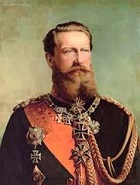












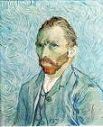
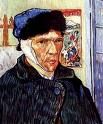
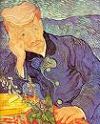
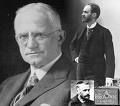










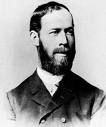


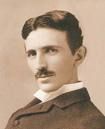



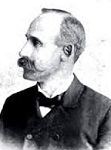
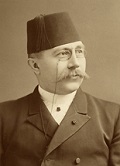


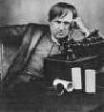






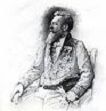



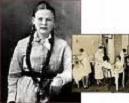

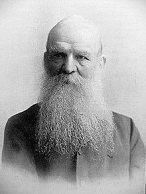

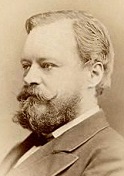




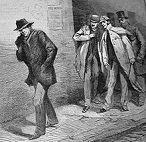


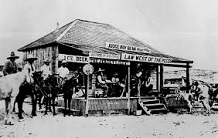
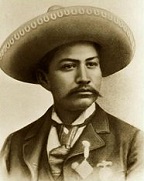



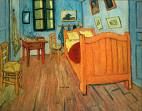

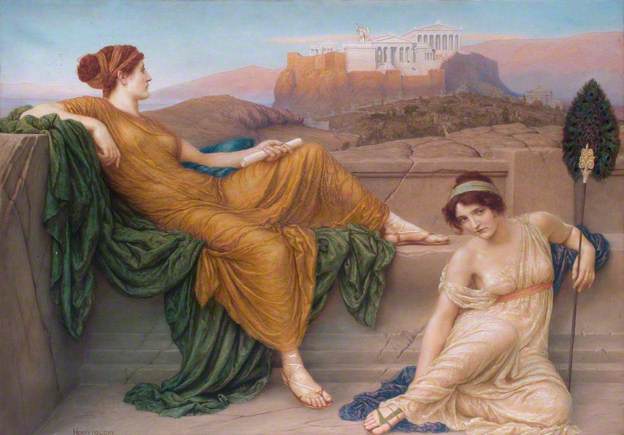
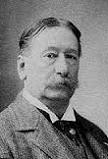
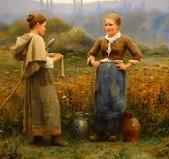

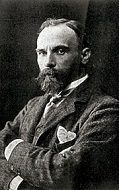
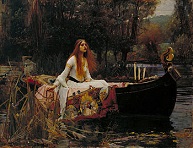





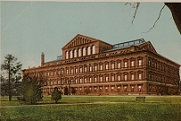

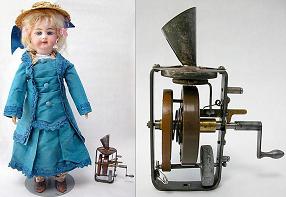
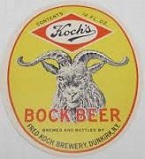
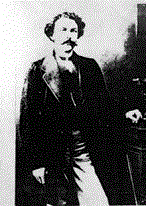
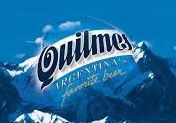
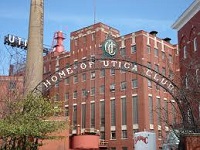
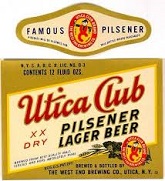
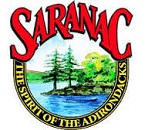
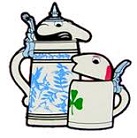
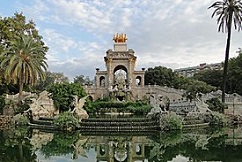
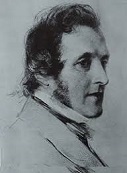
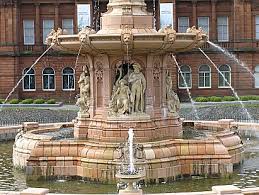
1888 On Jan. 12-13 (Thur.-Fri) a blizzard from Canada blows in suddenly, causing a trick of Nature on a beautifully warm 70 F day in the midst of miserably cold Jan. as the temp drops suddenly by 100 F and leads to the death of 500+ pioneers, incl. 100+ lightly-dressed children walking home from school in the plains of the Dakotas, Minn., and Neb. in the Big Brash (School Children's) Blizzard; as far away as Denver, Colo. the temp drops to -18 F with 60 mph winds, but little snow. On Jan. 13 the Nat. Geographic Society is founded at the Cosmos Club in Lafayette Square in Washington, D.C. by an elite group of 33 explorers and scientists who are interested in travel; they officially incorporate on Jan. 27; in Oct. the Nat. Geographic Mag. begins pub. On Jan. 16 Ga.-born former math, logic, metaphysics and law prof. Lucius Quintus Cincinnatus Lamar II (1825-93), a Civil War Confed. Lt. Col. and judge advocate, later U.S. Rep. and Sen. from Miss., followed by U.S. interior secy. (1885-7) becomes U.S. Supreme Court justice #49 (until Jan. 23, 1893) to replace William Burnham Woods (1881-7); on Oct. 8 Melville Weston Fuller (1833-1910) of Maine becomes U.S. Chief Justice #8 and 50th justice (until July 4, 1910) to replace Morrison R. Waite (1874-88). On Mar. 9 Kaiser Wilhelm I (b. 1797) dies after a 27-year reign (since 1861), and his too-long-waiting son Friedrich (Frederick) "Fritz" III (b. 1831) (husband of Queen Victoria's daughter Princess Vicky) is crowned kaiser #2, but goes into a 90-day coma due to throat cancer and croaks on June 15, unable to talk to the end of his 99-day reign, ending a great chance for a liberal democratic pro-British German Kaiser; instead, his 29-y.-o. worst nightmare son Wilhelm (William) II (1859-1941) (who has a withered right arm from a traumatic breech birth, causing him to always pose it at a dignified angle in photo opps) succeeds him as German (Prussian) Kaiser (until 1918), going on to experiment with global expansionism no matter whom it hurts? On Mar. 11-14 the Great Blizzard of 1888 (March Blizzard) (White Hurricane) in the NE U.S. from Chesapeake Bay to Maine drops 20-60 in. of snow (incl. 21 in. in New York City), with 80 mph winds causing 20-50 ft. snow drifts, killing 400+ and grounding or wrecking 200+ ships, and causing $25M in damage, trapping people in their houses for up to a week; after railway and telegraph lines are disabled, plans are made to move them undeground, resulting in the Boston, Mass. subway system in 1897; later, floods from melting snow compound the damage. On Mar. 26 18-y.-o. Prempeh I (1870-1931) becomes king of Ashanti (Asante) (Ghana) (until 1901), facing a revolt of the N vassal states, which he quells by 1891; too bad, the British and French are vying to take over W Africa, and he gets in the middle, so he's lucky to have five years left? On Apr. 3 the 11 unsolved Whitechapel Murders in East End, London begin (end Feb. 13, 1891) (five between Aug. 31 and Nov. 9), later ascribed to Jack the Ripper. On Apr. 8-Dec. 9 the 1888 Barcelona Universal Exposition in Barcelona N of Valencia, home of the Catalan dialect on land formerly occupied by the hated Fortress of Barcelona, becomes Spain's first internat. world's fair, modernizing the city complete with the 70-acre Parc de la Ciutadella (Citadel Park), which incl. a zoo and waterfall (cascada) modelled on the Trevi Fountain in Rome, featuring a statue of Venus standing on a clam - bo? In Apr. Romanian PM (since 1876) Ioan Bratianu resigns. On May 8-Nov. the 1888 Internat. Exhibition of Science, Art and Industry in Glasgow, Scotland is attended by 5,748,379, becoming the largest exhibition held outside London and largest held in Scotland in the 19th cent.; the 46-ft. Doulton Fountain, deisgned by architect Arthur E. Pearece is donated by pottery manufacturer Sir Henry Doulton (1820-97), featuring a larger-than-life statue of Queen Victoria surrounding by water-carriers representing Australia, Canada, India, and South Africa; it is moved to Glasgow Green in 1890; in 1891 lightning destroys Victoria's statue, and Doulton pays for a replacement; in 2002 after it is allowed to deteriorate, Ł2M is donated to restore it. On May 13 the Golden Law (Lei Aurea) of Brazil, pushed by lifelong abolitionist ("Eagle of the Hague") Ruy (Rui) Barbosa de Oliveira (1849-1923) and signed by regent Princess Isabel while old fart emperor (since Apr. 7, 1831) Dom Pedro II (1825-91) is away in Europe abolishes slavery in Brazil; on Dec. 14, 1890 after becoming finance minister on Nov. 15, 1889, Barbosa orders the burning of all govt. papers relating to the slave trade and slavery (conveniently preventing former slave owners from having to pay or receive indemnities?); 4M+ black slaves had been imported to Brazil over the past three cents., with 1.5M remaining. On May 15 Louisa Lawson (1848-1920) founds The Dawn under the alias Dora Falconer, becoming the first journal in Australia produced solely by women, advocating the right of women to vote and assume public office. education, etc.; it folds in 1905, and is refounded in 1918 as the official pub. of the Australian Federation of Women Voters (AFWV) (founded 1921), which sends the first woman Australian delegate to the League of Nations in 1922. In May Buffalo Bill Cody is forced to bury his horse at sea on a return voyage from Europe. On June 5-7 the 1888 Dem. Convention unanimously nominates Grover Cleveland of N.H. for pres. (1st unanimous nomination since 1840), and Allen Granberry Thurman (1813-95) of Ohio for vice-pres.; Mrs. E.A. Merriwether of St. Louis gives a speech in support of woman's suffrage. On June 13 the U.S. Bureau of Labor is created by Congress, but without cabinet rank, pissing-off organized labor; it takes until 1913 to get their way. On June 19-25 the 1888 Repub. Nat. Convention nominates Chauncy Mitchell Depew (1834-1928), atty. for the Vanderbilts and pres. (1885-98) of the New York Central and Hudson River Railroad for U.S. pres., but he withdraws in favor of Benjamin Harrison; Frederick Douglass receives one vote, becoming the first African-Am. to receive a vote for U.S. pres. by a major political party; Depew goes on to become chmn. of the board of the Vanderbilt railroads in 1898, then U.S. Sen. from N.Y. from 1899-1911, meanwhile becoming a leader of all the Repub. Nat. Conventions until 1925, giving nominating and after-dinner speeches. On Aug. 10 a burning trestle collapses while a Toledo, Peoria and Western train is crossing near Chatsworth, Ill., killing 81 and injuring 372. On Aug. 12 the Union Gen. de Trabajadores labor union is founded by the Spanish Socialist Party. On Aug. 13 after being betrayed by his bodyguard and captured by the French, Vietnamese emperor Ham Nghi is sent into exile in Algeria, and ends up marrying French Algerian woman Marcelle in 1904. On Aug. 22 a meteor explodes over a village in Turkey, killing one man and paralyzing another, becoming the earliest recorded instance of a meteorite killing a human. On Aug. 31-Nov. 9 mysterious English serial killer Jack the Ripper AKA the Whitechapel Murderer and the Leather Apron murders and dissects five hos in London's East End (Mary Anne "Polly" Nichols on Aug. 31, "Dark" Annie Chapman on Sept. 8, Elizabeth "Long Liz" Stride on Sept. 30, Catherine Eddowes on Sept. 30, "Black Mary" Jane Kelly on Nov. 9), each victim having progressively more of her organs taken; six other hos are suspected to be his victims, the first on Aug. 7, plus the Whitehall Mystery of Oct. 3, a headless torso of a woman found in the basement of the new Metropolitan Police HQ; he is never caught; Sir Charles Warren (1840-1927), head of the London Metropolitan Police (1886-8) (discoverer of Warren's Shaft in Jerusalem in 1867) is shafted for failing to catch him; in 2007 Trevor Marriott fingers German merchant sailor Carl Feigenbaum (-1894). In Aug. Rama Varma XIV (b. 1848) dies, and Kerala Varma V (1846-95) becomes king of Cochin (until Oct. 23, 1895). On Sept. 13 Italian steam ship Sud America collides with French steam ship La France near the Canary Islands, killing 89. On Sept. 19 the Concours de Beaute, the first-ever world beauty contest is held in Spa, Belgium; Bertha Soucaret, an 18-y.-o. Creole from Guadeloupe, West Indies wins the 5K franc first prize. On Oct. 1 the U.S. Scott Act bars Chinese laborers from reentering the U.S., screwing 20K-30K. On Oct. 9 the public is first admitted to the Washington Monument. On Oct. 29 the Suez Canal Convention is signed in Constantinople, declaring the canal a neutral zone under the protection of the British, whose troops had been protecting it since 1882. On Nov. 6 (Tues.) despite his stern integrity during his first term, his position favoring tariff revision causes the manufacturing interests to swing the 1888 U.S. Pres. Election away from the incumbent Dem. candidate Pres. Grover Cleveland and his running mate Allen G. Thurman of Ohio; even though they win the popular vote 48.6% to 47.8% (5.5M to 5.4M, a plurality of 100K votes), they lose the electoral vote to Repub. candidate Gov. Benjamin Harrison of Ind. and his running mate Levi Parsons Morton of N.Y. (founder of Levi P. Morton & Co., former U.S. rep., and minister to France) 233 to 168; Tammany Hall throws New York's 34 electoral votes to Harrison; Union Civil War hero, U.S. treasury secy. and Circuit Court of Appeals judge Walter Quintin Gresham (1832-95) unsuccessfully seeks the Repub. pres. nomination, then becomes a Dem. after disagreeing with Repub. tariff policies; Harrison is elected exactly 100 years after Washington, making him the Centennial Pres. On Nov. 29 (Thur.) (Thanksgivingukkah) Thanksgiving falls on the same day as Hanukkah; next in 2013. On Dec. 24 after leaving Paris for Arles in Provence in S France, and inducing his gay lover Gaugin to join him, having a ball with swirling brush strokes of intense yellows, greens and blues while going insane, prolific but starving temporal-lobe epileptic (TLE) absinthe-sipping painter Vincent van Gogh (1853-90) tries to murder his ball catcher Gaugin with a razor for threatening to leave him, then, when Gauguin reverses the suggestion, he cuts off a piece of his own left ear, wraps it in paper, and gives it to a prostitute; he then enters a super painting funk for the last 29 mo. of his life, producing his most vibrant, expressive work while spending time in a hospital in Arles, an insane asylum in St. Remy under the care of Dr. Paul Ferdinand Gachet (1828-1909) (the lucky dude getting his portrait painted), and the last 3 mo. in Auvers; his ear was really cut off by Paul Gaugin with a sword during an argument, and he made up the story to protect him? Gen. Georges Boulanger is retired from the French army and elected to the French Chamber of Deputies. Serbia under Milan I promulgates a liberal constitution. North Borneo and Sarawak become British protectorates. Beer price increases lead to a citizen revolt in Munich and the Battle of Salvator. The First Hazara Uprising (ends 1890) sees the Persian-speaking mainly Shiite Twelver Hazara people of Hazarajat, Afghanistan revolt against the Afghan rule of Abdur Rahman, and get crushed, only to be followed by a 2nd unsuccessful uprising in 1890-3, and a 3rd in 1893, ending with 60% of the Hazara pop. killed or displaced by the time that Abdur Rahman's successor Habibullah Khan grants them amnesty in 1901. The Jaybird-Woodpecker War (ends 1889) rocks Ft. Bend, County, Tex. when Dem. blacks led by Bob Chapel are taken on by white Dems. opposed to Reconstruction; Chapel likes to sing about both jaybirds and woodpeckers, but the whites pick jaybirds, while the blacks settle for woodpeckers and get backing from the Repub. Reconstruction govt., resulting next Aug. 16 in the Battle of Richmond. An Aeronautical Exhibition is held in Vienna. The town of Casper, Wyo. is founded, named after Indian fighter Lt. Caspar Collins, who was killed there fighting Red Cloud in 1865 (24 arrows in his corpse). Chicago mapmaker Andrew McNally moves to Calif. and founds La Mirada, Calif.. Jekyll Island off the coast of the U.S. state of Ga. (known for near-perfect Monaco-like weather) goes from a debtor resettlement island to a playground for the super rich wintering from the ME seaboard. Nevada-born Paiute Indian mystic Wovoka (1856-1932) (adopted at age 14 by white settler David Wilson and given the name Jack Wilson) begins getting visions that the Am. Indians will recover all their lost lands from the palefaces, and that their bullets will bounce off, founding the Ghost Dance Movement. Otto von Bismarck utters the soundbyte: "It is difficult to think without Austria - a state like Austria does not disappear." The English 12th cent. office of coroner is changed to appointment by a county or borough council instead of election by the whole body of freeholders - too many Sherlocks running around now? Fridtjof Nansen (1861-1930) of Norway leads an exploration of Greenland on snowshoes and cross-country skis which makes the first crossing. The Pacific island of Nauru (pronounced nah-oo-roo) (2.5K mi. SW of Honolulu) is annexed by Germany. Papua (British New Guinea) becomes a British colony (until 1906). Britain establishes a protectorate over the Cook Islands. A railway line from Vienna to Istanbul serving the brash Orient Express (Bulgaria, Russia, Austria, Switzerland, Hungary) is completed. The Newfoundland Bait Act takes effect in Canada, prohibiting capture of bait fish in Newfoundland without a special license, pissing-off the French and causing retaliation until a settlement is reached in 1904. The "World's Largest Village" of Skokie, Ill. (Potawatomi "marsh") 15 mi. N of Chicago (modern-day pop. 65K) is incorporated as Niles Centre, changing to Niles Center in 1910, and Skokie on Nov. 15, 1940; it starts as a German-Luxembourger farming community, and hosts a large Jewish pop. after WWII; it goes on to become the scene of neo-Nazi protest marches in 1977-8 and the home of Olympic gymnast Bart Conner and barbershop quartet member Keyser Soze :) Edward Maude Thompson (1840-1929) becomes dir. #1 of the British Museum (until 1909). Brewery employees strike in New York City, Chicago, Ill., and Milwaukee, Wisc. Stanford White builds the Players Club in New York City, the first U.S. gentleman's club, becoming home to the rich playboy set. Bubble gum is first sold in vending machines in El station platforms in New York. Gustav Mahler becomes musical dir. of the Budapest opera. Alfred Nobel reads his obituary then decides to create the Nobel Prizes in his will? - sorry, you can't take it with you to Hell? After moving in after the completion of the Southern Pacific Railroad in 1882, Mason County, Ky.-born "Hanging Judge" Phantly Roy Bean (1825-1903) ("the Law West of the Pecos") sees his idol Lillie "Jersey Lily" Langtry (1853-1929) for the first and only time in San Antonio, Tex., then returns to his Jersey Lilly Saloon in Langtry, Tex. on the S border with Mexico, named after engineer George Langtry not Lily - makes me want to fall in love all over again, okay? The term "charley horse" is invented by U.S. baseball players. Dr. John Henry Wilson (1846-1923) founds the Loyal Order of Moose in Louisville, Ky. as a social club; Wilson quits in the 1890s, and by 1906 there are only 246 members, when Welsh-born govt. clerk James J. "Puddler Jim" Davis (James John Davies) (1873-1947) (U.S. labor secy. from 1921-30) joins in Elwood, Madison County, Ind., and turns it into an org. to provide sick, funeral, and survivor benefits to members for $5-$10 a year, building it to 500K members in 1K lodges in 1912, and 1M in 2.4K lodges in 2016; in 1913 they found a home-school for orphans on a 100-acre farm in Mooseheart, Ill. 40 mi. W of Chicago. German organic chemist August Wilhelm von Hofmann is knighted - nerds can be heros before Bill Gates? After creating a popular hair tonic, Ont., Canada-born Martha Matilda Harper (1857-1950) founds the first retail business franchise in the U.S. with Harper Hair Dressing Salons. Irish-born Roman Catholic publisher Peter Fenelon Collier (1849-1909) begins pub. Collier's Weekly (original title "Collier's Once a Week") in Apr.; by 1892 it has a circ. of 250K, and becomes known for pub. articles by muckrakers, incl. Upton Sinclair's "The Jungle". The Financial Times begins pub. in London. The Filipino nationalist newspaper La Solidaridad begins pub. in Spain by Philippine politician Galicano Apacible (1864-1949) to circulate the views of his cousin Jose Rizal (1861-96) et al. The Am. Mathematical Society (AMS) (originally New York Mathematical Society) is founded in New York City by Am. mathematician Thomas Scott Fiske (1865-1944) of Columbia U., going on to begin pub. Transactions of the Am. Mathematical Society in 1900, Proceedings of the Am. Mathematical Society in 1950, and Journal of the Am. Mathematical Society in 1988; in 11951 it moves its HQ to Providence, R.I. The Czech Academy of Science is founded by architect Josef Hlavka (Hlávka) (1831-1908). After diplomatic pressure causes the British to bow out, Turkey gives a German co. the concession to build a railway from the Bosphorus to Angora (Ankara) (completed 1892), and the German sights are now set on Baghdad. The La Plata Museum of Natural History in La Plata, Argentina is founded by Argentine explorer Francisco "Perito" Moreno, becoming #1 in South Am., housing 3M fossils and relics. Pierre-Augustin Chaboseau (1868-1946) and Papus (Gerard Encausse) (1865-1916) launch the mystical philosophy of Martinism, based on the writings of Louis Claude de Saint-Martin (1743-1803) (AKA Le Philosophe Inconnu or The Unknown Philosopher), which views Christ as "the Repairer" who enables believers to regain their perfect state in the Garden of Eden before the Fall; their lodges open meetings by invoking "Yeheshuah", the Tetragrammaton, and the Hebrew letter Shin. Fannie Brooks, Nona L. Brooks, and Malinda Elliott Cramer (1844-1906) found the Church of Divine Science in San Francisco, Calif. Los Angeles Nat. Cemetery in Calif. is founded as a free home for Union Civil War and Mexican War vets, ending up with 10K vets buried there, incl. Wyatt Earp's father Nicholas Earp. Italian medium Eusapia Palladino (1854-1918) from the slums of Naples begins giving kaching pay-in-advance seances in which mysterious phenomena appear, such as the table levitating, mysterious hands touching you, etc., fooling scientists Ercole Chiaia, Sir Oliver Lodge, Pierre and Marie Curie et al. for the next three decades until the scientists demand more and more controlled conditions and catch her using her toe under the table leg, a rubber bulb to squirt air, etc., after which her powers mysteriously vanish, and her retirement plan is paid in full. English-born Am. inventor Edward Weston (1850-1936) founds Weston Electric Instrument Co. in Newark, N.J. to manufacture instruments to measure electrical voltage and power, becoming er, instrumental to the U.S. electrical power industry. Alcoa (Aluminum Co. of Am. (originally the Pittsburgh Reduction Co.) in Pittsburgh, Penn. is founded to produce aluminum using the 1886 Hall Process. Brothers Andre Jules Michelin (1853-1931) and Edouard Etienne Michelin (1859-1940) found the Michelin Tire Co. in Clermont-Ferrand, Auvergne, France to manufacture tires, incorporating on May 28, 1889; in 1891 they file their first patent for a removable pneumatic tire, which is used by Charles Terront to win the 1891 Paris-Brest-Paris bicycle race, the world's first long distance bicycle race. After purchasing Metz Brewery (founded 1870) (which briefly becomes Finck Brewery in 1888), Fred Koch Brewery is founded in Dunkirk, N.Y. by Fred Koch (-1911) and Frank Werle, who sells-out in 1896, after which the Koch family runs it under the name Lake City Brewery until incorporation in 1911, producing Bock Beer, Wurtzburger, Lake City Export et al.; on Sept. 14, 1915 a fire in the horse barns kills eight horses; after surviving Prohibition, it goes on to produce Koch's Bock Beer, Pale Lager Beer, Deer Run Ale, Koch's Golden Anniv. Beer (1938) et al., producing 70K barrels/year in 1948, and 102K barrels/year in 1952; in 1961 it introduces premium Black Horse Ale; in 1964 it introduces Tap-A-Keg, a 1-gal. can with Home Tapper unit; in 1978 it becomes the second-smallest brewery in the U.S. (.05% of the market), with the slogan "The Tiny Little Brewery Where Real Beer Is Made"; in 1981 it is acquired by Genesee Brewing Co; in 1983 the book "Gourmet Guide to Beer" ranks Koch's Golden Anniv. Beer as #1 among 140 Am. pale lagers, winning the gold medal at the 1987 Great Am. Beer Festival, while Black Horse Ale wins a gold medal at the 1988 Great Am. Beer Festival; the original brewery closes in 1985. F.X. Matt Brewing Co. (originally West End Brewing Co. until 1980) is founded in West Utica, N.Y. by Baden, Germany-born Francis Xavier Matt Sr.; in 1933 after surviving Prohibition by selling Utica Club soft drinks, it sells Utica Club brand pilsner beer, which becomes the first beer officially sold after Prohibition; ads feature talking beer steins Schultz and Dooley, voiced by comedian Jonathan Winters, with the jingle "It's tough to argue over a Utica Club, 'cause they put too much love into it"; in 1982 they introduce Matt's Premium Light Beer, followed in 1985 by Saranac brand beer ("The Spirit of the Adirondacks), which grows to 30+ different products incl. Adirondack Lager, Black Forest, Belgian White et al.; in the late 1970s it becomes one of four breweries manufacturing Billy Beer; in 2010 it acquires Flying Bison Brewing Co. of Buffalo, N.Y., producing 410K barrels/year in 2014. Cerveceria y Malteria Quilmes is founded in Quilmes, Buenos Aires, Argentina by Cologne, Germany-born businessman Otto Bemberg (1827-96), becoming the most popular brewery in Argentina by the 1920s, gaining 75% of the market by modern times (14M barrels/year), using Argentine's flag colors of light blue and white on its labels and sponsoring the Argentine nat. soccer team. Sports: On Jan. 13-Mar. 12 the 1888 Amateur Hockey Assoc. of Canada (AHAC) Season sees the Montreal Hockey Club and Montreal Victorias 2-1 tie with 5-1 records, after which on Mar. 15 the Montreal Hockey Club defeats them 2-1 to win the title. In May the Celtic Football Club, founded last year in Glasgow, Scotland plays its first match, defeating the Rangers by 5-2, becoming known as the Old Firm. On Dec. 15-Mar. 27 the 1888-89 Amateur Hockey Assoc. of Canada (AHAC) Season sees the Montreal Hockey Club win with a 6-1 record, becoming their 2nd straight title. The St. Andrews Golf Club is founded in Westchester County, N.Y., causing golf to gain popularity in the U.S. The Amateur Athletic Union (AAU) is founded to encourage boxing competition among U.S. youth. The Lawn Tennis Assoc. is founded in London, England. The (English) Football League (EFL) of prof. soccer clubs is founded in England; in 1922 the top 22 clubs split off to form the Premier League. Architecture: The red brick Renaissance Revival Pension Bldg. at 401 F St., NW in Washington, D.C. is built as the HQ of the U.S. Pension Bureau, designed by U.S. quartermaster gen. (1861-82) Montgomery Cunningham Meigs (1816-92), becoming the largest brick bldg. in the U.S., going on to host several U.S. pres. balls; in 1980 Congress repurposes it as the Nat. Building Museum, and designates it a nat. historic landmark in 1985. The Thomas Jefferson (Main) Library of Congress Bldg. in Washington, D.C. is begun (finished 1897). The Russian Church of the Ascension in Jerusalem on the Mount of Olives is built. Inventions: On Aug. 7 Theophilus Van Kannel of Philly receives a patent for the revolving door, intended to prevent drafts. In Oct. Milan, Ohio-born (pr. MY-lin) Thomas Alva Edison (1847-1931) files a preliminary patent (caveat) for his Kinetoscope (Gr. "kineto" + "scope" = motion + watch) "optical phonograph" motion picture camera, which does "for the Eye what the phonograph does for the Ear", filing a 2nd caveat in Mar. 1889 which first names it; in 1889-90 the first crude Monkeyshines are shot at Edison Labs in N.J. by Scottish-born William Kennedy Laurie Dickson (1860-1935) and William Heise after Dickson decides on celluloid film and selects 35mm as the std. size; on May 20, 1891 the first working prototype is unveiled at the Nat. Federation of Women's Clubs, showing the 3-sec. Dickson Greeting from a small pine box filled with film on rollers and a 1-in. peep show viewer on top; on Feb. 21, 1893 after most of his application is denied based on prior art, Edison receives a patent governing the intermittent movement of film in the Kinetograph; on Mar. 14, 1893 Edison receives patent #493,426 for the exhibition device; on May 9, 1983 the final version is unveiled at the Brooklyn Inst. of Arts and Sciences, showing The Blacksmith Scene; too bad, Edison goes on to try to force every new movie studio to pay him royalties, holding the industry back for years; in 1895 Thomas Edison invents the Kinetophone, which links a Kinetoscope with a cylinder phonograph, making talking movies possible; meanwhile on May 2, 1887 Episcopal priest Hannibal Williston Goodwin (1822-1900) of Newark, N.J. patents celluloid film for use in Bible teaching, and it ends up being used in Edison's Kinetoscope and being stolen by George Eastman; when Goodwin dies in a street accident in 1900 his patent is sold to Ansco, which settles with Eastman Kodak for $5M for patent infringement. John Boyd Dunlop (1840-1921) of the U.S. patents the first practical pneumatic bicycle tire, but an 1845 patent by Robert William Thomson (1822-73) is soon granted precedence. The first hand-held Kodak Box Camera, containing a roll of flexible paper-based film, and patented in 1881 by D.H. Houston (named for his home state of N.D.) is marketed by George Eastman (1854-1932) in Rochester, N.Y.; after exposing the film, the entire camera is sent to the factory for processing, and a reloaded camera is sent back along with the developed photos; "You push the button, we do the rest" - some day my prints will come? Thomas Edison invents a Talking Doll with a small phonograph in its body that can recite a dozen nursery rhymes when continuously cranked ("the voices of the little monsters were exceedingly unpleasant to hear"); they are offered for sale on Apr. 7, 1890, costing $10 with a simple chemise, $20-$25 with full dress; he manufactures hundreds before finding that he had already sold the rights to phonograph toys to another firm, and has them destroyed, and only two survive? German opthalmologist Adolf Eugen Fick (1829-1901) creates the first Contact Lenses for patients with Keratoconus; next year German medical student August Mueller (Müller) (1864-1949) invents contact lenses made of glass discs, which are improved by French opthalmologist Eugene Jean Baptiste Kalt (1861-1941); too bad, they are made from impermeable glass, and cover the whites of the eye until 1948, making them impossible to wear for more than 4-5 hours. Am. physician John Harvey Kellogg (1852-1943) of the Battle Creek, Mich. Sanitarium gives the world's first Oxygen Enema to a lucky plucker - did he tear his pants? French inventors Arthur Constantin Krebs (1850-1935) and Gustave Zede (Zédé) (1825-91) construct the 60-ft.-long electric Gymnote, the first submarine with hydroplanes (horizontal rudders), which help it descend, plus the first naval periscope and electric gyrocompass; it goes on to force a naval blockade in 1890. On Oct. 14 French inventor ("the Father of Cinematography") Louis Aime (Aimé) Augustin Le Prince (1841-90) shoots The Roundhay Garden Scene in the garden of his father-in-law Joseph Whitley in Roundhay Leeds, West Yorkshire, England on a 2.1-in.-wide paper roll from Eastman Kodak, running 10-12 frames per sec. shot through a single-lens combo camera-projector, becoming the oldest surviving motion picture film; on Sept. 16, 1890 before he can demonstrate it in the U.S., Le Prince disappears from a train in Dijon, and Thomas Edison claims credit for the invention; in 1898 his son Adolphe Le Prince testifies in court for his father in a suit brought by Edison against the Am. Mutoscope Co., but is barred from presenting his dad's two cameras as evidence, and Edison wins, but a year later the judgment is overturned. Marvin Chester Stone of Washington, D.C. patents a process for making Drinking Straws by winding strips of paraffin-coated paper around a pencil and gluing them together; manufacturing is done by hand until 1906. The first year people have the AC-DC option? Croatian-born Nikola Tesla (1856-1943) of the U.S. invents the Alternating Current (AC) Electric Motor, which is manufactured by George Westinghouse; Thomas Edison, a DC man, facetiously bet him he couldn't do it, and then reneged on a $25 a week raise in 1885, causing a lifelong grudge? Refrigerated boxcars make the first long-haul shipments of meat and produce. Science: German Bavarian biologist Theodor Heinrich Boveri (1862-1915) discovers the centrosome, which he calls the "special organ of cell division", later discovering the phenomenon of chromatin diminution; in 1902 he proposes that a cancerous tumor starts with a single cell in which the chromosome makeup becomes scrambled, causing it to divide uncontrollably, caused by radiation, chemicals, or pathogens, which is proved true in 1915 by Thomas Hunt Morgan. English mathematician Sir Francis Galton (1822-1911) invents statistical correlation coefficients. German physicist Wilhelm Ludwig Franz Hallwachs (1859-1922) discovers the Hallwachs Effect, produced when ultraviolet light falls on a negatively charged body in a vacuum and discharges it. German physicist Heinrich Hertz (1857-94) and British physicist Sir Oliver Joseph Lodge (1851-1940) independently prove that light waves and radio waves are the same phenomenon, as predicted by James Clerk Maxwell in 1873. German mathematician David Hilbert (1862-1943) pub. Hilbert's Basis Theorem, that a polynomial ring over a Noetherian ring is Noetherian, becoming the first "constructive proof", proving the existence of something without being able to display it, using the Law of the Excluded Middle (principium tertii exclusi) (tertium non datur) ("Either P or not P"), causing the ed. of Mathematische Annalen to comment: "This is not mathematics, this is theology", after which he adds "I have convinced myself that even theology has its merits"; the Intuitionist School of Mathematics ("the proof is the object") takes off with this idea and runs with it. The first successful biological control program of a crop pest occurs when Vedalia beetles are imported to the U.S. from Australia to control fluted scale on citrus. The word "Anasazi" is first used for Mesa Verde cliff dwellers by rancher Richard Wetherill; in the 1930s Am. SW archeologist Alfred Kidder adopts the name; by the mid-1990s Hopis and other Am. puebloan tribes object to the word, claiming it means "enemy ancestors" in Navajo, and is not a Hopi (Moki) word, like "kiva". Excavations begin in ancient Nippur in Sumeria by U. of Penn. archeologists Rev. John Punnett Peters (1852-1921), John Henry Haynes (1849-1910) ("Father of Am. Archeological Photography"), and Herman Volrath Hilprecht (1859-1924) (until 1900); in 1900 Haynes discovers the 2500 B.C.E. Temple Library of Nippur, containing 23K tablets, incl. the earliest known version of the Great Flood, but begins messing it up, causing Hilprecht (who left in 1889) to return to rescue it, becoming known as the hero of the Nippur dig. English paleontologist Harry Govier Seeley (1839-1909) divides dinosaurs into Saurischians and Ornithischians based on their pelvic bones and joints; it takes until the 1980s to prove that both groups have a common ancestor in the Triassic Period. After treating soldiers during the U.S. Civil War and becoming convinced that coffee and lean chopped beefsteak can control diarrhea, Am. food fad physician James Henry Salisbury (1823-1905) invents Salisbury steak (ground beef patty blend with gravy) as part of a low-carb diet for weight loss (eat 3x a day with plenty of water); it becomes popular during WWI when English-speaking nations attempt to er, chuck German-sounding names like hamburger. Art: Augustus Saint-Gaudens (1848-1907), Abraham Lincoln: The Man (Standing Lincoln); a 12-ft. (3.7m) bronze statue for Lincoln Park in Chicago, Ill.; 10K attend the unveiling incl. Lincoln's grandson Abraham Lincoln II, with the New York Evening Post calling it "the most important achievement American sculpture has yet produced"; Stanford White designs a semicircular platform (exedra) for it. Nonfiction: William Archer, Masks or Faces?. Madame Helena Blavatsky (1831-91), The Secret Doctrine. Wilfrid Scawen Blunt (1840-1922), Future of Islam. Nellie Bly (1864-1922), Ten Days in a Madhouse; her 10-day 1888 undercover stay at the Women's Lunatic Asylum on Blackwell's Island, N.Y., during which she fools the professionals until her employer the New York World springs her, exposing them as quacks and getting an $850K budget increase passed. Bernard Bosanquet (1848-1923), Logic, or the Morphology of Knowledge. Oscar Browning (1837-1923), Aspects of Education: A Study in the History of Pedagogy; The New Illustrated History of England (4 vols.). John Burroughs (1837-1921), Sharp Eyes. James Bryce (1838-1922), The American Commonwealth. Moncure D. Conway (1832-1907), Omitted Chapters of History Disclosed in the Life and Papers of Edmund Randolph, Governor of Virginia, First Attorney-General of the United States, Secretary of State. John Augustin Daly (1838-99), Woffington, A Tribute to the Actress and the Woman. Alphonse Daudet (1840-97), Souvenirs d'un Homme de Lettres. Charles Dickens (1812-70), Dickens's Dictionary of London. Ignatius Loyola Donnelly (1831-1901), The Great Cryptogram, Francis Bacon's Cipher in the So-Called Shakespeare Plays; internal codes prove it?; the original "Da Vinci Code"? Charles Montagu Doughty (1843-1926), Travels in Arabia Deserta (2 vols.); spurty seller, repub. in the 1920s by fan T.E. Lawrence. Sir Edward Durning-Lawrence (1837-1914), The Pope and the Bible. Richard T. Ely (1854-1943), Taxation in American States and Cities. David Ferrier (1843-1928), The Localization of Brain Disease. Camille Flammarion (1842-1925), L'Atmosphere: Meteorologie Populaire. James Anthony Froude (1818-94), The English in the West Indies; Or, The Bow of Ulysses; disses the British West Indian colonies for wanting self-govt., claiming that the black pop. will elect leaders who will repress the white pop., pissing-off Trinidadian writer J.J. (John Jacob) Thomas (1841-89), who pub. Froudacity: West Indian Fables by James Anthony Froude in 1889 before dying of pneumonia. Thomas Wentworth Higginson (1823-1911), Women and Men; advocates political rights for women. Emma Curtis Hopkins (1849-1925), High Mysticism; expands the system of Mary Baker Eddy to call God both Father and Mother and open up to Eastern religions. Henri Houssaye (1848-1911), 1814: History of the Campaign of France and the Fall of the Empire (1814, Histoire de la Campagne de France et la Chute de l'Empire); vol. 1 of 4 of a military history ()1893, 1899, 1905) of French emperor Napoleon I, which goes through 46 eds. Rodolfo Lanciani (1846-1929), Ancient Rome in the Light of Recent Discoveries. Stanley Lane-Poole (1854-1931), Turkey. James Martineau (1805-1900), The Study of Religion. George Moore (1852-1933), Confessions of a Young Man (autobio.). Friedrich Nietzsche (1844-1900), The Wagner Case: A Musician's Problem (Sept. 22); announces his split with Richard Wagner for being too much into the Volkisch movement and anti-Semitism, claiming he's part of the broader disease of European nihilism; The Antichrist; pub. in 1895; how Christianity teaches a "slave morality", and holds back the yah-baby dream-is-back Superman and his Will to Power (Der Wille zur Macht); "Not contentment, but more power; not peace at all, but war"; "The real philosophers are commanders and lawgivers; they say: 'Thus shall it be!' They determine first the Whither and the Why of mankind, and thereby set aside the previous labor of all philosophical workers...; they grasp at the future with a creative hand, and whatever is and was, becomes for them thereby a means, an instrument, and a hammer. Their 'knowing' is creating, their creating is a lawgiving, their will to truth is Will to Power." Agnes Repplier (1855-1950), Books and Men (essays); first of several good books of essays. George John Romanes (1848-94), Mental Evolution in Man. William Sharp (1855-1905), Life of Heinrich Heine. John Gilmary Shea (1824-92), Life and Times of the Most Rev. John Carroll, Bishop and First Archbishop of Baltimore: Embracing the History of the Catholic Church in the United States, 1763-1815. Philip Henry Sheridan (1831-88), Personal Memoirs (autobio.). Vladimir Solovyov (1853-1900), The Russian Idea; "The idea of a nation is not what it thinks of itself in time, but instead what God thinks of it in eternity." Charles Ezra Sprague (1842-1912), Hand-Book of Volapuk (Volapük); first major textbook. Frank William Taussig (1859-1940), The Tariff History of the United States; 6th ed. 1914; founds modern Internat. Trade Theory. Lester Frank Ward (1841-1913), Geographical Distribution of Fossil Plants. Ellen Gould White (1827-1915), The Great Controversy; Satan vs. Jesus. Charlotte Mary Yonge (1745-1833), Hannah More. Music: Eugen d'Albert (1864-1932), Esther, Op. 8. Johannes Brahms (1833-97), Double Concerto for Violin, Cello and Orchestra in A minor, Op. 102. Sir William Schwenck Gilbert (1836-1911) and Arthur Sullivan (1842-1900), The Yeomen of the Guard (comic operetta #11) (not really comic?) (Savoy Theatre, London) (Oct. 3) (423 perf.); Col. Fairfax is sentenced to be beheaded in an hour for sorcery, and secretly marries singer Elsie Maynard to leave his estate to her instead of his cousin, the accuser, while she really wants jester Jack Point. Ethelbert Woodbridge Nevin (1862-1901), Oh! That We Two Were Maying, Op. 2. Sir Hubert Parry (1848-1918), Judith (oratorio). Nikolai Rimsky-Korsakov (1844-1908), Scheherezade, Op. 35 (symphonic suite) (St. Petersburg); based on "Thousand and One (Arabian) Nights"; "The Sultan Schariar, convinced that all women are false and faithless, vowed to put to death each of his wives after the first nuptial night. But the Sultana Scheherazade saved her life by entertaining her lord with fascinating tales, told seriatim, for a thousand and one nights. The Sultan, consumed with curiosity, postponed from day to day the execution of his wife, and finally repudiated his bloody vow entirely"; (Great) Russian Easter Festival Overture, Op. 36 (overture) (Dec.) (St. Petersburg). Juventino Rosas (1868-94), Over the Waves (Sobre las Olas) (waltz). Erik Satie (1866-1925), Gymnopedies (Gymnopédies); three piano compositions pub. in Paris; precursors of modern ambient music; Gymnopedie No. 1, Gymnopedie No. 2, Gymnopedie No. 3. Franz von Suppe (1819-95), Die Jagd nach dem Gluch (Carltheater, Vienna) (Oct. 27). Peter Tchaikovsky (1840-93), Symphony No. 5 in E minor, Op. 64 (St. Petersburg) (Nov. 6) - well, crack my nuts? Art: Arnold Bocklin (1827-1901), Vita Somnium Breve. Louis Eugene Boudin (1825-98), Corvette Russe; the French govt. purchases it for the Luxembourg Museim in Paris, giving him instant fame. George Henry Boughton (1833-1905), Golden Afternoon. Paul Cezanne (1839-1906), Still Life with Commode; Boy in a Red Waistcoat (1888-90). James Ensor (1860-1949), The Entrance of Christ into Brussels (99.5 in. by 169.5 in.); the crowd incl. historical figures, politicians, and members of his family; not displayed until 1929, then bought by the J. Paul Getty Museum in Calif. in the 1960s, which calls it a "forerunner of 20th century Expressionism". Camille Flammarion (1842-1925), Universe; woodcut from "L'Atmosphere: Meteorologie Populaire"; gets used as the std. proof that ignorant Euros all thought the Earth is flat, also as a logo for the quest for knowledge. Paul Gaugin (1848-1903), The Vision After the Sermon (Jacob Wrestling with the Angel). Vincent Van Gogh (1853-90), Sunflower Series bought at auction in 1987 for $39.85M; Fishing Boats on the Beach at Saintes-Maries; The Night Cafe (Sept.) (Arles); Cafe de la Gare at 30 Place Lamartine, run by Joseph-Michel Ginoux and his wife Marie; The Italian Woman; Portrait of a Peasant; The Bedroom ("Simply my bedroom, but here it's the color that must make it what it is" - letter to Theo, Oct. 16); The Yellow Chair; Paul Gaugin's Armchair (Dec.). Lord Ronald Gower (1845-1916), Shakespeare Memorial (bronze-stone sculpture); unveiled behind the Swan Theatre in Stratford-upon-Avon, England; incl. corner statues of Hamlet, Prince Hal, Falstaff, and Lady Macbeth; later moved in front of the Royal Shakespeare Theatre; French actress "The Divine" Sarah Bernhardt (1844-1923) models for Lady Macbeth in his Montparnasse, Paris studio. Arthur Hacker (1858-1919), The Children's Prayer. George Inness (1825-94), Early Autumn, Montclair. William Quiller Orchardson (1832-1910), Her Mother's Voice. Valentine Cameron Prinsep (1838-1904), Mariana; from Shakespeare's "Measure for Measure". Albert Pinkham Ryder (1847-1917), The Forest of Arden (1888-97). Giovanni Segantini (1858-99), Girl Knitting (his main babe Baba Uffer); My Models. Georges Seurat (1859-91), Les Poseuses. Marie Spartali Stillman (1844-1927), Dante at Verona; Upon a Day Came Sorrow Unto Me. Henri de Toulouse-Lautrec (1864-1901), Place Clichy. Plays: David Belasco (1853-1931) and Henry Churchill de Mille (1855-93), Lord Chumley. Georges Courteline (1858-1929), Le Train de 8h47 (farce). Henrik Ibsen (1828-1906), The Lady from the Sea; wife Ellida and the sailor who haunts her, old suitor Arnolm, step-daughter Bolette, would-be sculptor Lyngstrand. Charles Marie Leconte de Lisle (1818-94), L'Apollonide (verse tragedy). Catulle Mendes (1841-1909), Isoline; music by Andre Messager (1853-1929). Arthur Wing Pinero (1855-1934), Sweet Lavender (comedy). Jean Richepin (1849-1926), Le Flibustier. August Strindberg (1849-1912), Comrades (drama); Miss Julie (drama) (makes everyone want to name their daughter Julie?). Poetry: Sir Edwin Arnold (1832-1904), With Sadi in the Garden. William Wilfred Campbell (1858-1918), Snowflakes and Sunbeams; Indian Summer. Charles Cros (1842-88), La Vision du Grand Canal des Deux Mers; thinks that there are large cities on Mars and Venus and wants the French govt. to build a giant mirror to communicate with them. Eugene Field (1850-95), Little Boy Blue. Robert Hamerling (1830-89), Homunculus. Verner von Heidenstam (1859-1940), Vallfart och Vandringsar (debut); revolts against realism. John Keats (1795-1821), La Belle Dame sans Merci (The Beautiful Lady without Pity) (posth.); "And there she lulled me asleep,/ And there I dreamed - ah! woe betide!/... And this is why I sojourn here/ Alone and palely loitering,/ Though the sedge is withered from the lake,/ And no birds sing". Archibald Lampman (1861-99), Among the Millet and Other Poems; makes him #1 among Canadian English poets. Andrew Lang (1844-1912), Grass of Parnassus. Herman Melville (1819-91), John Marr and Other Sailors. Jean Psichari (1854-1929), My Journey (To Taxidhi Mou). Andrejs Pumpurs (1841-1902), Lacplesis (The Bear Slayer); becomes the Latvian nat. epic. James Whitcomb Riley (1849-1916), The Raggedy Man; based on a German immigrant tramp employed by his father; inspires the Raggedy Ann doll. William Sharp (1855-1905), Romantic Ballads and Poems of Phantasy. Ernest Lawrence Thayer (1863-1940), Casey at the Bat: A Ballad of the Republic Sung in the Year 1888 (San Francisco Daily Examiner, June 3); pub. under alias "Phin"; Mudville's star layer comes to bat with his team losing 4-2 and two runs and two outs in the 9th inning, with Blake on 2nd base and Flynn on 3rd base; the hitters ahead of him in line were Cooney, Barrows, Flynn, and Jimmy Blake; Casey passes up the first two pitches, both strikes, then strikes out, sending the crowd home unhappy; "Ten thousand eyes were on him as he rubbed his hands with dirt;/ Five thousand tongues applauded when he wiped them on his shirt./ Then while the writhing pitcher ground the ball into his hip,/ Defiance gleamed in Casey's eye, a sneer curled Casey's lip."; "Oh, somewhere in this favored land the sun is shining bright;/ The band is playing somewhere, and somewhere hearts are light,/ And somewhere men are laughing, and somewhere children shout;/ But there is no joy in Mudville - mighty Casey has struck out." Emile Verhaeren (1855-1916), Les Soirs; Les Debacles. Comte Auguste Villiers de l'Isle-Adam (1838-89), Secret de l'Echafaud. Novels: Maurice Barres (1862-1923), Sous l'Oeil des Barbares. Edward Bellamy (1850-98), Looking Backward, 2000-1887; based on Laurence Gronlund's 1884 "Exposition of Modern Socialism"; internat. bestseller about Julian West, who time travels and discovers that the U.S. will become a Military Socialist utopia by you know when, launching the Nationalist movement, which inspires several utopian communities; uses the swastika symbol, later adopted by the Nazis, along with the straight arm salute used for the Pledge of Allegiance by his cousin Francis Bellamy. Walter Besant (1836-1901), Herr Paulus (3 vols.). Mary Elizabeth Braddon (1837-1915), The Fatal Three. Wilkie Collins (1824-89), The Legacy of Cain. Alphonse Daudet (1840-97), L'Immortel. Arthur Conan Doyle (1859-1930), The Valley of Fear; "You will, I am sure, agree with me that if page 534 finds us only in the second chapter, the length of the first one must have been really intolerable." Theodor Fontane (1819-98), Irrungen, Wirrungen. Benito Perez Galdos (1843-1920), Miau; aged civil servant loses his job and commits suicide. Madame Sarah Grand (1854-1943), Ideala. H. Rider Haggard (1856-1925), Mr. Meeson's Will; Maiwa's Revenge; Colonel Quaritch, V.C.; My Fellow Laborer and the Wreck of the Copeland. Thomas Hardy (1840-1928), Wessex Tales (short stories); mostly set before Hardy's 1840 birth, focusing on the evils of British class society. William Dean Howells (1837-1920), Annie Kilbum. Margaret Wolfe Hungerford (1855-97), Undercurrents; Marvel; Honourable Mrs. Vereker. Henry James (1843-1916), The Aspern Papers; based on the letters of poet Percy Bysshe Shelly to Claire Clairmont, stepsister of Mary Shelley; the narrator, an Am. publisher travels to Venice to find Juliana Bordereau, an old flame of dead Am. poet Jeffrey Aspern, and get a look at some of his old love letters to her, courting her plain Jane niece Miss Tina to get to her, getting caught trying to break into Juliana's desk, after which Juliana dies and Tina tries to blackmail the "publishing scoundrel" to marry her for a miniature portrait of Aspern, and burns the letters; filmed in 1947 as "The Lost Moment". Rudyard Kipling (1865-1936), Plain Tales from the Hills; The Phantom Rickshaw and other Eerie Tales (short stories); incl. The Man Who Would Be King; based on the life of James Brooke, first white rajah of Sarawak in Borneo, Josiah Harlan, prince of Ghor, and explorer Adolf Schlagintweit, set in Kafiristan in E Afghanistan; filmed in 1975. Guy de Maupassant (1850-93), Pierre et Jean; his masterpiece?; a psycho-realist novel about Pierre (physician) and Jean (atty.), the sons of retired jeweller Gerome Roland and his wife Louise, who live in Le Havre, after which family friend Leon Marechal leaves his inheritance to Jean, causing Pierre to get jealous and question his legitimacy. George Moore (1852-1933), Confessions of a Young Man. William Morris (1834-96), A Dream of John Ball; a Socialist England. Thomas Nelson Page (1853-1922), Two Little Confederates. Arthur Quiller-Couch (1863-1944), The Astonishing History of Troy Town. Jean Richepin (1849-1926), Cisarine. Edward Payson Roe (1838-88), Miss Lou (unfinished). Mark Rutherford (1829-1913), The Revolution in Tanner's Lane. Edgar Saltus (1855-1921), The Truth About Tristrem Varick; Eden: An Episode. William Sharp (1855-1905), Sport of Chance (first novel). Henry Wheeler Shaw (1818-85), Josh Billings, His Works Complete. Robert Louis Stevenson (1850-94), The Master of Ballantrae: A Winter's Tale; written in the Adirondacks in N.Y.; about the 1745 Jacobite Rising. Theodor Storm (1817-88), The Dykemaster August Strindberg (1849-1912), Life of an Island Lad. Paul Verlaine (1844-96), Amour. Lew Wallace (1827-1905), The Boyhood of Christ. Mrs. Mary Humphry Ward (1851-1920), Robert Elsmere; bestseller (1M copies); a novel of religious doubt attacking evangelical Christianity; an Oxford clergyman reads Friedrich Wilhelm Schelling and David Strauss and begins to doubt his Anglican faith, turning to "constructive liberalism" that stresses social work among the disadvantaged; set in Longsleddale, Lake District, which she calls Long Whindale; its internat. sales are the first to exceed Harriet Beecher Stowe's 1852 "Uncle Tom's Cabin"; makes a fan of Henry James; "Simply Arnold's 'Literature and Dogma' with the literature left out." (Oscar Wilde) Frank Wedekind (1864-1918), Mine-Haha: The Corporal Education of Young Girls. H.G. Wells (1866-1946), The Chronic Argonauts (first short story); about Dr. Moses Nebogipfel of the Welsh town of Llyddwdd, who escapes a mob with Rev. Elijah Ulysses Cook in a time machine, making him an Anachronic Man; first story about an inventor-built time machine; pub. in the Science Schools Journal of the Royal College of Science in Apr.-June. Oscar Wilde (1854-1900), The Happy Prince and Other Tales (May). Emile Zola (1840-1902), La Terre. Births: Am. M1 rifle designer John Cantius Garand (d. 1974) (pr. ga-RAAH) on Jan. 1 in St. Remi, Quebec, Canada; grows up in Conn. Scottish "Folly to Be Wise" surgeon-playwright James Bridie (Osborne Henry Mavor) (d. 1951) on Jan. 3 in Glasgow; educated at the U. of Glasgow. British Labour deputy PM (1945-51) Herbert Stanley Morrison, Baron Morrison of Lambeth (d. 1965) on Jan. 3 in Stockwell, London; blind in the right eye; created baron in 1959. German film actress Henny Porten (d. 1960) on Jan. 7 in Magdeburg. Am. DuPont pres. Walter Samuel Carpenter Jr. (d. 1976) on Jan. 8 in Wilkes-Barre, Penn. English aviation pionner (Sopwith Aviation Co. founder) Sir Thomas Octave Murdoch "Tommy" Sopwith (d. 1989) on Jan. 18 in Kensington; knighted in 1953. Am. X-ray diffraction physicist Paul Peter Ewald (d. 1985) on Jan. 23 in Berlin; educated at Gonville and Caius College, Cambridge U.; emigrates to the U.S. in 1949. Am. "The Bank Dick" actor Franklin Pangborn (d. 1958) on Jan. 23 in Newark, N.J. Am. "Grand Hotel" novelist (Jewish) Vicki (Hedwig) Baum (d. 1960) on Jan. 24 in Vienna, Austria; emigrates to the U.S. in 1932. German aircraft designer-manufacturer Ernst Heinkel (d. 1958) on Jan. 24 in Grunbach. Am. artist Margery Edna "Neysa" McMein (d. 1949) on Jan. 24 in Quincy, Ill. English geophysicist-mathematician Sydney Chapman (d. 1970) on Jan. 29 in Eccles (near Manchester); educated at Trinity College, Cambridge U. Am. "John Hardy", "Goodnight Irene" folk singer-composer (black) ("King of the 12-String Guitar") Lead Belly (Leadbelly) (Huddie William Ledbetter) (d. 1949) on Jan. 29 (Jan. 23?) in Mooringsport, La.; grows up in Leigh, Tex. Japanese journalist-politician Taketoro Ogata (d. 1956) on Jan. 30 in Yamagata; educated at Waseda U.. Australian Olympic swimmer (first Australian swimmer in the Olympics) Frederick Claude Vivian Lane (d. 1969) on Feb. 2 in Millers Point, N.S.W. Am. plant geneticist Edmund Ware Sinnott (d. 1968) on Feb. 5 in Cambridge, Mass.; educated at Harvard U. Am. "Santa Claus is Coming to Town", "You Go to My Head" songwriter James Lamont "Haven" Gillespie (d. 1975) on Feb. 6 in Covington, Ky. English "Lady Bracknell in The Importance of Being Earnest", "Miss Western in Tom Jones" actress Dame Edith Mary Evans (d. 1976) on Feb. 8 in London; created dame in 1946; only heterosexual British actress other than Deborah Kerr? Italian "The Joy" modernist poet-journalist Giuseppe Ungaretti (d. 1970) on Feb. 8 in Alexandria, Egypt; follower of Mussolini; family comes from Lucca, Tuscany; nursed by a Nubian named Bahita, causing him to grow up kinky? English Roman Catholic priest, scholar and crime novelist Ronald Arbuthnott Knox (d. 1957) on Feb. 17 in Leicestershire; educated at Eton College, and Balliol College, Oxford U.; switches from Anglican to Roman Catholic in 1917 after influence by G.K. Chesterton. Am. physicist (Jewish) Otto Stern (d. 1969) on Feb. 17 in Sohrau (Zory), Upper Silesia, Prussia; emigrates to the U.S. in 1933. Greek PM (1944-5, 1963, 1964-5) George Papandreou (d. 1968) on Feb. 18; father of Andreas Papandreou (1919-96); grandfather of George Andreas Papandreou (1952-). French "Diary of a Country Priest" novelist Georges Bernanos (d. 1948) on Feb. 20 in Paris. British ballet dancer-teacher (Jewish) Dame Marie "Mim" Rambert (Myriam Ramberg) (Cyvia Rambam) (d. 1982) on Feb. 20 in Warsaw, Poland; Polish Jewish father, Russian mother; wife (1918-59) of Ashley Dukes (1885-1959); created dame in 1962. U.S. secy. of state (1953-9) John Foster Dulles (d. 1959) on Feb. 25 in Washington, D.C. Italian humanistic transpersonal psychologist (Jewish) (founder of Psychosynthesis) Roberto Assagioli (Roberto Marco Grego) (d. 1974) on Feb. 27 in Venice. Am. soprano-writer Lotte Lehmann (d. 1976) on Feb. 27 in Perleberg, Germany; is forbidden to sing in Germany after a fight with Hermann Goering; emigrates to the U.S. in 1938. Am. "The Rise of the City" Progressive historian Arthur Meier Schlesinger Sr. (d. 1965) on Feb. 27 in Xenia, Ohio; Prussian Jewish-turned-Protestant immigrant father, Austrian Roman Catholic-turned-Protestant immigrant mother; educated at Ohio State U., and Columbia U.; disciple of Charles Austin Beard; father of Arthur M. Schlesinger Jr. (1917-2007). English "Education of Eric Lane" novelist Stephen McKenna (d. 1967) on Feb. 27 in London. Am. landscape artist John Edward Costigan (d. 1972) on Feb. 29 in Providence, R.I.; cousin of George M. Cohan. Am. "Win One for the Gipper" Notre Dame football coach (1918-30) Knute Kenneth Rockne (d. 1931) (pr. kah-NOOT) on Mar. 4 in Voss, Norway. Irish "Father Fitzgibbon in Going My Way", "Shawn O'Hara in The Story of Seabiscuit" 5'4" actor Barry Fitzgerald (William Joseph Shields) (d. 1961) on Mar. 10 in Dublin; moves to the U.S. in 1935. Russian dancer-choreographer (gay) Vaslav Fomich Nijinsky (d. 1950) on Mar. 12 in Kiev, Ukraine; Polish parents; brother of Bronislava Nijinska (1891-1972); suffers a nervous breakdown in 1919 after marrying Hungarian countess Romola de Pulszky (1891-1978) in 1913, who helped drive him over the edge? French novelist-poet-playwright-diplomat Paul Morand (d. 1976) on Mar. 13 in Paris; French-Russian parents. Canadian hockey player Patrick Jeffrey Elias "Jeff" Malone (d. 1981) on Mar. 17 in Quebec City, Quebec; brother of Joe Malone (1890-1969). Am. "Homage to the Square" Bauhaus painter-educator Josef Albers (d. 1976) on Mar. 19 in Bottrop, Westphalia, Germany; emigrates to the U.S. in 1933. U.S. Tex. Dem. gov. #35 (1941-7) Coke Robert Stevenson (d. 1975) on Mar. 20 in Mason County, Tex.; named after Tex. gov. Richard Coke. Am. opera bass (Jewish) Emanuel List (d. 1967) on Mar. 22 in Vienna, Austria; starts out as a boy soprano; emigrates to the U.S. in 1933. English actor Jameson Thomas (d. 1939) on Mar. 24 in London. Am. Gambino crime family boss (1931-51) Vincent "Vince the Executioner" (Vincenzo Giovanni Mangano) (d. 1951) on Mar. 28 in Palermo, Sicily. English "Into Battle" poet Julian Henry Francis Grenfell (d. 1915) on Mar. 30 in London; eldest son of William Grenfell, 1st baron Desborough (1855-1945); educated at Eton College, and Balliol College, Oxford U. Am. silent film actress Anna Quirentia Nilsson (d. 1974) on Mar. 30 in Ystad, Sweden; born on St. Quirinus Day; born on St. Quirinius Day; emigrates to the U.S. in 1905; first Swedish-born actress with a star on the Hollywood Walk of Fame. Am engineer-businessman Willard Frederick Rockwell Sr. (d. 1978) on Mar. 31 in Boston, Mass.; educated at MIT; mother Clara Thayer is a descent of John Alden of Mayflower fame; brother of Willard F. Rockwell (1899-1973); father of William Frederick "Al" Rockwell Jr. (1914-92). USAF secy. #3 (1953-5) Harold Elstner Talbott Jr. (d. 1957) on Mar. 31 in Dayton, Ohio; educated at Yale u. English historian Henry Theodore Wade-Gery (d. 1972) on Apr. 2 in Campton Grange (near Shefford), Bedforshire; educated at Winchester College, and New College, Oxford U.; father of Sir Robert Wade-Gery (1929-2015). Am. "Handbook of Texas" historian (of the Am. West) Walter Prescott Webb (d. 1963) on Apr. 3 in Panola County, Tex.; educated at UTA, and U. of Chicago. Am. baseball player (CF) Tristram Speaker (d. 1958) on Apr. 4 in Hubbard City, Tex. Am. Safeway founder Marion Barton "M.B." Skaggs (d. 1976) on Apr. 5 in Mo. German nationalist conservative historian Gerhard Georg Bernhard Ritter (d. 1967) on Apr. 6 in Bad Sooden-Allendorf. Am. "I Remember You", "Tangerine" composer-dir.-producer-writer Victor L. Schertzinger (d. 1941) on Apr. 8 in Mahanoy City, Penn.; of Pennsylvania Dutch German descent; collaborator of Johnny Mercer 1909-76); performs as a violinist at age 8 with the John Philip Sousa and Victor Herbert bands. Am. impresario Solomon "Sol" Isiaevich Hurok (Solomon Israilevich Gurkov) (d. 1974) on Apr. 9 in Ukraine; emigrates to the U.S. in 1906. English MG Car Co. founder Cecil Kimber (d. 1945) on Apr. 12 in London. Am. inventor ("Father of Radio Control") John Hays Hammond Jr. (d. 1965) on Apr. 13 in San Francisco, Calif.; son of John Hays Hammond Sr. (1855-1936); grows up in South Africa and England; meets Thomas Edison at age 12, who becomes his mentor, along with Alexander Graham Bell; educated at Yale U. Swiss "The Eternal Present" art historian Sigfrid (Siegfried) Giedion (d. 1968) on Apr. 14 in Prague, Czech. German aviation pioneer Hermann Koehl (Köhl) (d. 1938) on Apr. 15 in Neu-Ulm, Bavaria. Polish global political activist (Freemason) (rumored grey eminence) Jozef (Józef) Hieronim Retinger (d. 1960) in Cracow; educated at the Sorbonne. Am. silent film actress Florence M.L. La Badie (Russ) (d. 1917) on Apr. 27 in Brooklyn, N.Y.; adopted by Canadian parents; grows up in Montreal. Canadian Gen. Henry Duncan Graham "Harry" Crerar (d. 1965) on Apr. 28 in Hamilton, Ont. Am. "God Without Thunder", "Piazza Piece" poet-critic (founder of the New Criticism school) John Crowe Ransom (d. 1974) on Apr. 30 in Pulaski, Tenn.; educated at Vanderbilt U., and Christ Church, Oxford U.; #1 Southern Am. poet of the 20th cent. Am. candymaker Russell William Stover (d. 1954) on May 6 near Alton, Kan.; born in a sod house; educated at Iowa State U. Am. "Casablanca", "Gone with the Wind" composer (Jewish) ("the Father of Film Music") Maximilian Raoul "Max" Steiner (d. 1971) on May 10 in Vienna, Austria; paternal grandson of Maximilian Steiner (1839-80); emigrates to the U.S. in 1914. Am. "Alexander's Ragtime Band", "Easter Parade", "God Bless America" composer-songwriter (Jewish) Irving Berlin (Israel Isidore Baline or Beilin) (d. 1989) on May 11 in Tyumen, Russia; orthodox Jewish cantor father; emigrates to the U.S. in 1893; his name is misprinted on his first song, and he likes it so much that he keeps it; can't read music, and has a special piano built that can automatically change keys. Am. Beam Ray Machine physician Royal Raymond Rife (d. 1971) on May 16 in Elkhorn, Neb. Am. "ABC Dogs" avant-garde artist ("the Queen of Greenwich Village") Clara Tice (d. 1973) on May 22; student of Robert Henri; first woman in Greenwich Village with bobbed hair. French existential philosopher (Jewish) Jean Andre Wahl (d. 1974) on May 25 in Marseille; educated at the Ecole Normale Superieure. French "Carillons" composer Louis Durey (d. 1979) on May 27. Am. silent film actor-comedian (Keystone Cops) Hank Mann (David William Lieberman) (d. 1971) on May 28 in Russia; emigrates to the U.S. in 1891. Am. athlete (voted greatest athlete and football player of the first half of the 20th cent. in 1950 by the U.S. Congress) (Sac and Fox Indian) (Roman Catholic) James Francis (Jacobus Franciscus) "Jim" Thorpe (Wa-Tho-Huk) (Bright Path) (d. 1953) on May 28 near Prague, Okla.; Irish-Sac-Fox father, French-Indian mother; has a twin brother Charles who dies at age 9. Am. Dem. politician and U.S. postmaster gen. #53 (1933-40) (Roman Catholic) James Aloysius "Jim" Farley (d. 1976) on May 30; kingmaker for FDR. Am. "They Were Expendable" actor Jack Holt (d. 1951) on May 31 in New York City; father of Tim Holt (1919-73). Irish Northern Ireland PM #3 (1943-63) Sir Basil Brooke, 5th Baronet (Basil Stanlake Brooke, 1st Viscount Brookeborough) (d. 1973) on June 9 in Fermanagh; educated at Royal Military College, Sandhurst; created viscount in 1952. Australian "Elves and Fairies" children's book illustrator Ida Rentoul Outhwaite (d. 1960) on June 9 in Melbourne. Am. film dir. Wesley Ruggles (d. 1972) on June 11 in Los Angeles, Calif.; brother of Charles Ruggles (1886-1970). Am. Mormon fundamentalist leader Leroy Sunderland Johnson (d. 1986) on June 12 in Lee's Ferry, Ariz. Portuguese "Book of Disquiet" poet-writer Fernando Antonio Nogueira Pessoa (d. 1935) on June 13 in Lisbon. German Nazi Panzer gen. Heinz Wilhelm Guderian (d. 1954) on June 17 in Kulm, West Prussia. U.S. Supreme Court justice #84 (1945-58) Harold Hitz Burton (d. 1964) on June 22 in Jamaica Plain, Mass.; father is dean at MIT and accompanies Robert Peary to the North Pole; mother is daughter of the first Swiss consul gen. to the U.S.; 2nd cousin of J. Edgar Hoover; educated at Bowdoin College, and Harvard U. Am. "I have a rendezvous with death" poet Alan Seeger (d. 1916) on June 22 in New York City; educated at Harvard U. Dutch De Stijl architect Gerrit Thomas Rietveld (d. 1964) on June 24 in Utrecht. British historian (Jewish) (Zionist) (Germanophobe) (anti-Polonist) Sir Lewis Bernstein Namier (Ludwik Niemirowski) (d. 1960) on June 27 in Wola Okrzejska, Austria-Hungary (Poland); emigrates to Britain in 1907; educated at the U. of Lviv, U. of Lausanne, London School of Economics, and Balliol College, Oxford U.; disciple of Vilfredo Pareto; knighted in 1952; converts to Anglicanism to marry his 2nd wife, pissing-off Chaim Weizmann, who severs relations; friend of Sigmund Freud and Sir John Wheeler-Bennett; his right-wing views don't keep him from being the protege of leftist historian A.J.P. Taylor. Am. actress-dir.-producer Mary Antoinette "Toni" Perry (d. 1946) on June 27 in Denver, Colo. Am. "Drums" novelist James Boyd (d. 1944) on July 2 in Harrisburg, Penn.; educated at Princeton U., and Trinity College, Cambridge U. Am. "A Bell for Adano", "The Big Store" actor Henry (Enrico) Armetta (d. 1945) on July 4 in Palermo, Italy. German nerve conduction physiologist Herbert Spencer Gasser (d. 1963) on July 5 in Platteville, Wisc.; educated at Johns Hopkins U. Greek-Italian surrealist painter Giorgio de Chirico (d. 1978) (pr. KEE-ree-koh) on July 10 in Volos, Thessaly; Sicilian father, Genovese mother. Am. radio broadcaster (first baseball color commentator) Graham McNamee (d. 1942) on July 10 in Washington, D.C. German Nazi jurist and political theorist ("Crown Jewel of the Nazi Reich") Carl Schmitt (d. 1985) on July 11 in Plettenberg, Westphalia; student of Max Weber (1864-1920). German politician Ernst Wolf Alexander Oskar von Harnack (d. 1945) on July 15 in Marburg; son of Adolf von Harnack (1851-1930) and Amalie Thiersch (1858-1937), granddaughter of Justus von Liebig (1803-73). Am. "Pa Kettle" actor Percy Kilbride (d. 1964) on July 16 in San Francisco, Calif. Dutch phase-contrast microscope physicist Fritz Zernike (d. 1966) on July 16 in Amsterdam; educated at the U. of Amsterdam. Israeli Hebrew novelist (Jewish) Shmuel Yosef "Shai" Agnon (Czaczkes) (d. 1970) on July 17 in Buczacz, Galicia (Ukraine); emigrates to Palestine in 1908; first Hebrew writer to win the Nobel Lit. Prize (1966). Am. hall-of-fame bowler Floretta "Doty" McCutcheon (d. 1967) on July 11 in Ottumwa, Iowa. Am. microbiologist (Jewish) Selman Abraham Waksman (d. 1973) on July 22 in Pryluky (near Kiev), Ukraine; discoverer of streptomycin, the first antibiotic effective against TB; emigrates to the U.S. in 1910; educated at Rutgers U. Am. "The Big Sleep" "The Long Embrace", "Philip Marlowe" detective novelist (inventor of the hard-boiled detective story) Raymond Thornton Chandler (d. 1959) on July 23 in Chicago, Ill.; husband of Cissy Pascal (Pearl Eugene Hurlbert) (1870-1954) (the inspiration for his stories?); writes seven novels, in six of which a murder is committed by a woman - from Joel Chandler Harris to Raymond Chandler in one generation? Am. poet Aline Murray Kilmer (d. 1941) on Aug. 1 in Norfolk, Va.; wife of Joyce Kilmer (1886-1918). South African Olympic tennis player Charles Lyndhurst Winslow (d. 1963) on Aug. 1 in Leamington, England; son of Lyndhurst Winslow (1855-1915); father of Paul Lyndhurst Winslow (1929-2011). Am. actor-dir. Allen Holubar (d. 1921) on Aug. 3 in San Francisco, Calif.; Bohemian immigrant father, Scottish immigrant mother; husband (1912-23) of Dorothy Phillips (1889-1980). Belgian "Confidential Agent" actor Victor Francen (Franssen) (d. 1977) on Aug. 5 in Tirlemont. Am. interberhavioral psychologist (Jewish) Jacob Robert Kantor (d. 1984) on Aug. 8 in Harrisburg, Penn.; son of a German orthodox rabbi and Jewish Lithuaniam immigrant mother; educated at the U. of Chicago. Belgian ice hockey player-referee-official (pres. of the Internat. Hockey Federation, 1927-47) Paul Loicq (d. 1953) on Aug. 11 in Brussels. Scottish TV inventor John Logie Baird (d. 1946) on Aug. 13 in Helensburgh, Argyll; educated at the U. of Glasgow. Am. "Wheeler & Woolsey" comedian Robert Woolsey (d. 1938) on Aug. 14 in Oakland, Calif.; collaborator of Bert Wheeler (1895-1968). British adventurer-soldier-writer T.E. (Thomas Edward) Lawrence "of Arabia" (d. 1935) on Aug. 15 in Portmadoc, Wales; educated at Oxford U.; an admirer of G.B. Shaw, he changes his name to Thomas Edward Shaw in 1927. Am. "Wheeler & Woolsey" comedian Robert Woolsey (d. 1938) on Aug. 14 in Oakland, Calif.; collaborator of Bert Wheeler (1895-1968). Am. "The Man Who Came to Dinner" actor (closet gay) Edgar Montillion "Monty" "the Beard" Woolley (d. 1963) on Aug. 17 in Manhattan, N.Y.; father owns the Bristol Hotel; educated at Yale U. and Harvard U.; lover of Cole Porter, whom he meets at Yale U.; starts out as a Yale prof., with students incl. Thornton Wilder and Stephen Vincent Benet. Egyptian journalist-politician Muhammad Husayn Haykal (d. 1956) on Aug. 20. North Vietnamese pres. (1969-80) and Vietnamese pres. #1 (1976-80) Ton Duc Thang (d. 1980) on Aug. 20 in Long Xuyen. German Prince Gustav Franz Maria of Thurn and Taxis (d. 1919) on Aug. 22 in Dresden, Saxony. Colombian pres. (1938-42) Eduardo Santos Montejo (d. 1974) on Aug. 28 in Bogota. Am. baseball pitcher (Chicago White Sox, 1914-33) Urban Clarence "Red" Faber (d. 1976) on Sept. 6 in Cascade, Iowa. Am. bootlegger, ambassador, shipbuilder, financier and patriarch Joseph Patrick Kennedy (d. 1969) on Sept. 6 in Boston, Mass.; son of an Irish saloonkeeper; becomes a bank pres. at age 25, first chmn. of the SEC, U.S. ambassador to Britain, and father of one U.S. pres. and three senators - if the SEC is run by a smuggler, then Camelot is built on dirty money? French "Gigi" actor-singer Maurice Chevalier (d. 1972) on Sept. 12 in Menilmontant (near Paris). Am. "Going My Way" shifty-eyed actor Porter Hall (d. 1953) on Sept. 19 in Cincinnati, Ohio. Am. journalist and White House press secy. #1 (1929-31) George Akerson (d. 1937) on Sept. 5 in Minneapolis, Minn.; educated at Harvard U. Indian philosopher-statesman and pres. #2 (1962-7) Sir Sarvepalli Radhakrishnan (d. 1975) on Sept. 5 in Thiruttani, Madras; educated at the U. of Madras. Am. "Charlie Chan" producer (Jewish) John Stone (Saul Strumwasser) (d. 1961) on Sept. 12 in New York City; father of Peter Stone (1930-2003). English Bentley Motors founder Walter Owen Bentley (d. 1971) on Sept. 16 in Hampstead; educated at Clifton College. Finnish novelist Frans Eemil Sillanpaa (Sillanpää) (d. 1964) on Sept. 16 in Hameenkyro. German SS Col. Karl Jaeger (Jäger) (d. 1959) on Sept. 20 in Schaffhausen, Switzerland. Am. goiter-fighting pathologist David Marine (d. 1976) on Sept. 20. U.S. Navy pilot Cmdr. Earl Winfield Spencer Jr. (d. 1950) on Sept. 20 in Kinsley, Kan.; 1st husband (1916-27) of Wallis Simpson (1896-1986). Anglo-Am. "The Waste Land", "The Hollow Men" Modernist poet-dramatist-critic (Unitarian-to-Anglican convert) T.S. (Thomas Stearns) Eliot (d. 1965) on Sept. 26 in St. Louis, Mo.; nicknamed Possum for his habits, incl. wearing green-tinted face powder and lipstick; born with a double inguinal hernia, turning him into a bookworm; educated at Harvard U., the Sorbonne, and Merton College, Oxford U.; settles in London in 1914, and becomes a British subject in 1927, joining the Church of England; "A chapped office boy on a high stool with a cold in his head" (Virginia Woolf); "A sacerdotal lawyer - dyspeptic, ascetic, eclectic" (Sir Harold Nicolson). German Gen. Joachim Hermann August Lemelsen (d. 1954) on Sept. 28 in Berlin. English "Bulldog Drummond" crime novelist Herman Cyril "H.C." McNeile (d. 1937) (AKA Sapper) on Sept. 28 in Bodmin, Cornwall. German gen. Friedrich Olbricht (d. 1944) on Oct. 4 in Leisnig, Saxony. Am. stage and silent film actress-screenwriter Mary Claire Fuller (d. 1973) on Oct. 5 in Washington, D.C. French WWI aviator Roland Garros (d. 1918) on Oct. 6 in Saint-Denis, Reunion. U.S. Dem. vice-pres. #33 (1941-5) Henry Agard Wallace (d. 1965) on Oct. 7 in Adair County, Iowa; Scotch-Irish Presbyerian immigrant ancestors. German Gen. Friedrich Fromm (d. 1945) on Oct. 8 in Berlin. German pshrink Ernst Kretschmer (d. 1964) on Oct. 8 in Wustenrot (near Heilbronn). Russian Bolshevik revolutionary and Soviet leader Nikolai Ivanovich Bukharin (d. 1938) on Oct. 9 (Sept. 27 Old Style) in Moscow. Chinese banker's wife Ailing (Eling) Soong (d. 1973) on June 14 in Shanghai; daughter of Charlie Soong (1863-1938); sister of Ching Ling Soong (1893-1981) (Madame Sun Yat-sen) and Mayling Soong (1897-2003) (Madame Chiang Kai-shek); wife (1914-) of H.H. Kung (1881-1967). Kiwi "Bliss" short story writer Katherine Mansfield (Beauchamp) (d. 1923) on Oct. 14 in Wellington; wife (1918-) of John Middleton Murry (1889-1957). Am. "Philo Vance" art critic-novelist Willard Huntington Wright (d. 1939) (AKA S.S. Van Dine) on Oct. 15 in Charlottesville, Va.; educated at Pomona College, and Harvard U. Am. #1 "Long Day's Journey into Night", "Desire Under the Elms", "Emperor Jones", "Mourning Becomes Electra" dramatist Eugene Gladstone O'Neill (d. 1953) on Oct. 16 in New York City; born at 43rd and Broadway near the theater district; son of Irish-Am. actor James O'Neill (1849-1920); attends Princeton U. for one year (1906-7), prospects for gold in Honduras (1909-12), helps his father manage a theatrical troupe, becomes a seaman, and works as a newspaper reporter in New London, Conn.; contracts mild TB in 1912, writing his first plays from a sanatorium; studies under George Pierce Baker at Harvard U. (1913-4); lover of Louise Bryant, wife of friend John Reed; joins the Provincetown Players in mid-191; suffers from poor health from 1934. Italian Adm. Carlo Bergamini (d. 1943) on Oct. 24 in San Felice sul Panaro. Am. polar explorer Adm. Richard Evelyn Byrd (d. 1957) on Oct. 25 in Winchester, Va.; educated at Va. Military Inst., U. of Va., and U.S. Naval Academy; brother of Harry F. Byrd Sr. (1887-1966); descendant of Pocahontas. U.S. ambassador (to the Soviet Union) Adm. Alan Goodrich Kirk (d. 1963) on Oct. 30 in Philadelphia, Penn. Australian polar explorer Sir George Hubert Wilkins (d. 1958) on Oct. 31 in Hallett, South Australia. English pacifist leader Archibald Fenner Brockway, Baron Brockway (d. 1988) on Nov. 1 in Calcutta, British India; son of Christian missionaries; created baron in 1965. Indian Raman effect physicist Sir Chandrasekhara Venkata Raman (d. 1970) on Nov. 7 in Trichinopoly (Thiruchinapalli), Tamil Nadu; son of math prof. Chandrasekhar Iyer and Parvathi Ammal; educated at Presidency College, Madras; knighted in 1929. French diplomat (architect of the EU) Jean Omer Marie Gabriel Monnet (d. 1979) on Nov. 9 in Cognac; cognac merchant family. English geologist-climatologist Charles Ernest Pelham "C.E.P." Brooks (d. 1957) on Nov. 10 in London; educated at Univ. College, London. Soviet aircraft designer Andrei Nikolaevich Tupolev (d. 1972) on Nov. 10 in Pustomazovo (near Kimry), Tver, Russia. English adventurer John Clayton III, Lord Greystoke on Nov. 12 in French Equatorial Africa (Gabon); son of John Clayton II and Alice; gets lost in Africa as a child, and is raised by apes :) Am. "Loads of Love" novelist Anne Parrish (d. 1957) on Nov. 12 in Colorado Springs, Colo. Am. "Buck Rogers" sci-fi writer Philip Francis Nowlan (d. 1940) on Nov. 13 in Philadelphia, Penn.; educated at the U. of Penn. Norwegian oceanographer Harald Ulrik Sverdrup (d. 1957) on Nov. 15. Swiss-German "Hokuspokus" comedy actor-dir.- dramatist Curt_Goetz (Kurt Walter Götz) (d. 1960) on Nov. 17 in Mainz, Germany; Swiss father, German-Italian-French wife; distant relative of George Bernard Shaw; grows up in Halle, Saxony-Anhalt; husband of Valerie von Martens. Am. "Rebecca of Sunnybrook Farm", "The Poor Little Rich Girl" dir.-screenwriter Frances Marion (Marion Benson Owens) (d. 1973) on Nov. 18 in San Francisco, Calif.; silent film writer for Mary Pickford; starts out working for Lois Weber. Cuban world chess champ #3 (1921-7) ("the Human Chess Machine") Jose Raul (José Raúl) Capablanca y Graupera (d. 1942) on Nov. 19 in Havana; educated at Columbia U.; plays chess at age 4 and becomes Cuban champ at age 12 after defeating Juan Corzo, then becomes U.S. champ in 1909 after defeating Frank J. Marshall. Am. mute comedian (Jewish) Harpo (Adolph) (Arthur) Marx (d. 1964) on Nov. 23 in New York City; brother of Groucho Marx (1890-1977) and Gummo Marx (1893-1977); "a mute harpist afflicted with satyriasis" - watch that harpoon? Am. "How to Win Friends and Influence People" writer-speaker Dale Breckenridge Carnegie (Carnagey) (d. 1955) on Nov. 24 in Maryville, Mo. Austrian "Pernkopf Atlas" Nazi anatomist Eduard Pernkopf (d. 1955) on Nov. 24 in Rappottenstein, Lower Austria; educated at the U. of Vienna. English "La Principessa in Three Coins in the Fountain", "Agatha Morley in The Farmer's Daughter" actress Cathleen Mary Nesbitt (d. 1982) on Nov. 24 in Cheshire; educated at the Sorbonne. Am. 5'1" Olympic pole vaulter Edward Tiffin Cook Sr. (d. 1972) on Nov. 27 in Chillicothe, Ohio. English "Ask a Policeman" actor and amateur astronomer William Thompson "Will" Hay (d. 1949) on Dec. 6 in Stockton-on-Tees, Durham. Am. "It Seems to Me" journalist Heywood Campbell Broun (d. 1939) on Dec. 7 in Brooklyn, N.Y.; English immigrant father. Irish "The Horse's Mouth", "The African Witch" novelist-artist Arthur Joyce Lunel Cary (d. 1957) on Dec. 7 in Londonderry. Am. "What Price Glory?", "Anne of the Thousand Days", "Knickerbocker Holiday", "Both Your Houses" dramatist James Maxwell Anderson (d. 1959) (AKA John Nairne Michaelson) on Dec. 15 in Atlantic, Penn.; of Scotch and Irish descent; Baptist minister father; grows up in Andover, Ohio; educated at the U. of N.D., and Stanford U. Yugoslavian king #1 (1929-34) and Serbian-Croatian-Slovenian king (1921-9) Alexander I (Unificator) (d. 1934) on Dec. 16 (Dec. 4 Old Style) in Cetinje, Montenegro; son of Peter I (1844-1921) and Princess Zorka of Montenegro (1864-90); father of Peter II (1923-70). Israeli spy (Jewish) Naaman (Na'aman) Belkind (d. 1917)on Dec. 16 in Gedera, Ottoman Palestine. English "My Fair Lady" actress Dame Gladys Constance Cooper (d. 1971) on Dec. 18 in Chiswick, London. Am. "Il Duce of New York City" city planner (Jewish) Robert Moses (d. 1981) on Dec. 18 in New Haven, Conn.; assimilated German Jewish immigrant parents; educated at Yale U., Columbia U., and Wadham College, Oxford U.; fills Long Island with highways instead of public transit; attracts the U.N. to Manhattan instead of Philly. English blueblood right-winger and naturalist Hastings William Sackville Russell, 12th Duke of Bedford (d. 1953) on Dec. 21; son of Herbrand Russell, 11th duke of Bedford (1858-194); educated at Eton College, and Balliol College, Oxford U. English industrialist (Methodist) Joseph Arthur Rank, 1st Baron Rank (d. 1972) on Dec. 22 in Kingston upon Hill; educated at the Leys School; created baron in 1957. German actress-novelist-screenwriter Thea Gabriele von Harbou (d. 1954) on Dec. 27 in Tauperlitz, Bavaria; wife (1922-33) of Fritz Lang (1890-1976), who splits with her when she joins the Nazi Party. Am. conservative "U.S. News and World Report" founder David Lawrence (d. 1973) on Dec. 25 in Philadelphia, Penn.; educated at Princeton U.; student of Woodrow Wilson. Am. aviation pioneer Walter Thomas Varney (d. 1967) on Dec. 26 in San Francisco, Calif. German "Nosferatu", "Sunrise" film dir. (gay) Friedrich Wilhelm Murnau (d. 1931) on Dec. 28 in Bielefeld; pupil of Max Reinhardt. Iraqi PM #7 (1930-2, 1938-40, 1941-4, 1946-7, 1949, 1950-2, 1954-7, 1958) Nuri Pasha al-Said (as-Sa'id) (d. 1958) on Dec. ? in Baghdad; of North Caucasian descent. Am. Roman Catholic priest (first Roman Catholic chaplain of Yale U.) Thomas Lawrason Riggs (d. 1943); grandson of wealthy banker George Washington Riggs; educated at Yale U.; classmate of Cole Porter. Am. "Herman Melville: Mariner and Mystic" biographer-writer-educator (gay) Raymond Melbourne Weaver (d. 1948) on ? in Baltimore, Md.; educated at Columbia U.; teacher of Lionel Trilling (1905-75) and Joseph Campbell (1904-87); friend of Jack Kerouac and Allen Ginsberg. Am. "Range Rider" actor and circus clown Bobby Clark (d. 1960) in Springfield, Ohio; partner of Paul McCullough (1883-1936). Spanish "Greguerias" writer Ramon Gomez (Ramňn Gómez) de la Serna (d. 1963). Am. educator John Andrew Rice Jr. (d. 1968) in Lynchburg, S.C.; founder of Black Mountain College (1933). Am. "Van & Schenck" vaudeville comedian Gus Van (August Van Glone) (d. 1968); partner of Joe Schenck (1891-1930). French dramatist Jean Jacques Bernard (d. 1972) in Enghien-les-Bains (near Paris); eldest son of Tristan Bernard (1866-1947). Italian Maserati co. owner Adolfo Orsi (d. 1972) in San Lazzaro (near Modena); father of Adolfo Orsi Jr. (1951-). Clarence Daniel Batchelor (d. 1977) in Osage City, Kan. Am. tampon inventor Earle Haas (d. 1981) on ? in ?. Am. "The Tyranny of Words" economist (FDR advisor) Stuart Chase (d. 1985) in Somersworth, N.H.; educated at MIT and Harvard U.; member of FDR's brain trust and coiner of the term "New Deal". Israeli Arab longevity champ Mariam Amash (d. ?); world's oldest person? Deaths: German Prussian king (1861-88) and emperor #1 (1871-88) Wilhelm I (b. 1797) on Mar. 9 in Berlin. Am. banker William Wilson Corcoran (b. 1798) on Feb. 24 in Washington, D.C. Am. Transcendentalist writer Bronson Alcott (b. 1799) on Mar. 4 in Boston, Mass.; his daughter Louisa May Alcott (b. 1832) dies two days later. British Light Brigade cmdr. George Charles Bingham, 3rd earl of Lucan (b. 1801) on Nov. 10 in London. French physicist Lazare Hippolyte Carnot (b. 1801) on Mar. 16. Canadian rev. leader Thomas Storrow Brown (b. 1803) on Nov. 26 in Montreal, Quebec. Am. Mormon witness David Whitmer (b. 1805) on Jan. 25 in Richmond, Mo. Am. statesman Thomas Green Clemson (b. 1807) on Apr. 6 in Fort Hill, Clemson, S.C.; dies in the 1825-50 home of John C. Calhoun. English naturalist Philip Henry Gosse (b. 1810) on Aug. 23 in Torquay. Am. botanist Asa Gray (b. 1810) on Jan. 30; namesake of 14,274 ft. Gray's Peak in NC Colo. and the Asa Gray Award for plant taxonomists (1984). Italian chemist (nitroglycerine inventor) Ascanio Sobrero (b. 1812) on May 26 in Turin. English "runcible spoon" nonsense poet Edward Lear (b. 1812) on Jan. 29 in Sanremo, Italy. Hungarian composer Stephen Heller (b. 1813) in Paris. French novelist Jacques Maquet (b. 1813) on Jan. 8 in Paris. Italian painter Luigi Mussini (b. 1813) on June 18 in Siena. French Roman Catholic archbishop Jean-Baptiste Lamy (b. 1814) on Feb. 13 in Santa Fe, N.M. (pneumonia). Am. Repub. Chicago mayor #21 (1860-1) John Wentworth (b. 1815) on Oct. 16 in Chicago, Ill. U.S. chief justice #7 (1874-88) Morrison Remick Waite (b. 1816) on Mar. 23 in Washington, D.C. German microscope king Carl Zeiss (b. 1816) on Dec. 3. French Socialist experimenter Jean Baptiste Andre Godin (b. 1817). Am. inventor George Henry Corliss (b. 1817) on Feb. 21 in Providence, R.I. German novelist Theodor Storm (b. 1817) on July 4 in Hademarschen. German economist Friedrich Wilhelm Raiffeisen (b. 1818) on Mar. 11 in Heddesdorf (Neuwied). Am. scientist Eunice Newton Foote (b. 1819) on Sept. 30 in Lenox, Mass. Am. Paulist Fathers founder Isaac Hecker (b. 1819) on Dec. 22. Am. stage actor John Lester Wallack (b. 1820) on Sept. 6 in Stamford, Conn. English poet-critic Matthew Arnold (b. 1822) on Apr. 15 in Liverpool: "The Sweetness and Light of the few must be imperfect until the raw and unkindled masses of humanity are touched with Sweetness and Light." German physicist Rudolf Clausius (b. 1822) on Aug. 24. Am. Central Pacific Railroad co-founder Charles Crocker (b. 1822) on June 14 in Monterey, Calif. Am. Mormon rebel Walter Murray Gibson (b. 1822) on Jan. 21 in San Francisco, Calif. (dies broke). German-born Am. beermaker Frederick Miller (b. 1824) on May 11 in Milwaukee, Wisc. Am. celeb Ellen Ewing Sherman (b. 1824) on Nov. 28 in New York City; wife of Gen. William Tecumseh Sherman. Am. inventor Peter Herdic (b. 1824) on Feb. 2 in Huntington, Penn. (slip and fall on ice). Russian-Armenian statesman gen. Count Mikhail Loris-Melikov (b. 1826) on Dec. 22 in Nice, France. French painter Francois Feyen-Perrin (b. 1826). U.S. Sen. (R-N.Y.) (1867-81) Roscoe Conkling (b. 1829) on Apr. 18 in New York City. Am. Gen. Mills co-founder John Crosby (b. 1829) on Dec. 29 in Minneapolis, Minn. English "Piccadilly" writer Laurence Oliphant (b. 1829) on Dec. 23 in Twickenham. German botanist Heinrich Anton de Bary (b. 1831) on Jan. 18 in Strassbourg. German Kaiser (1888) Frederick III (b. 1831) on June 15 in Potsdam, Prussia (throat cancer). Am. Coca-Cola inventor John Stith Pemberton (b. 1831) on Aug. 16 in Atlanta, Ga. U.S. Gen. Philip Henry Sheridan (b. 1831) on Mar. 6 in Nonquitt, Mass. Am. "Little Women" author Louisa May Alcott (b. 1832) on Mar. 6 in Boston, Mass.; dies a spinster two days after her daddy Bronson Alcott (b. 1799); "The novelist of children... the Thackeray, the Trollope, of the nursery and the schoolroom" (Henry James). Am. humorist Petroleum V. Nasby (b. 1833) on Feb. 15. Am. John Wilkes Booth's sister Asia Booth Clarke (b. 1835) on May 16 in Bournemouth, England; leaves an pub. memoir about her brother John Wilkes Booth which is pub. in 1938. English boxer Tom King (b. 1835) on Oct. 3 in Stockbridge, Hampshire. Armenian poet-writer Raffi (b. 1835) in Tiflis (Tbilisi), Georgia. Dutch painter Anton Mauve (b. 1838) on Feb. 5 in Arnhem (aneurysm). Am. novelist Edward Payson Roe (b. 1838) on July 19. Russian explorer Nikolai Mikhaylovich Przhevalski (b. 1839) on Nov. 1 (Oct. 20 Old Style) in Karakol (Przhevalsk), Kyrgyzstan (typhus). Am. rubber manufacturer Benjamin Franklin Goodrich (b. 1841) on Aug. 3 in Akron, Ohio: "We're the guys without the blimp." French poet-inventor Charles Cros (b. 1842) on Aug. 9 in Paris. German-British chess master Johannes Zukertort (b. 1842) on June 20 in London, England (cerebral hemmorhage after playing in a tournament at Simpson's Divan). Am. historian Ernest Young (b. 1852) on Mar. 2 in Boston, Mass. (suicide after going insane from overwork).
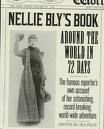









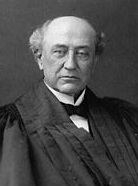


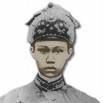

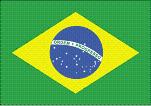





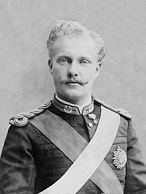


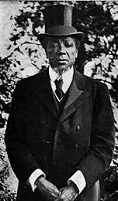















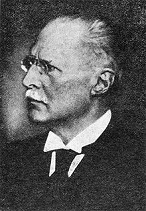
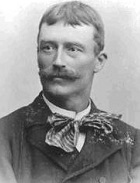
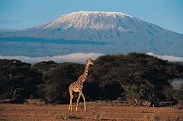


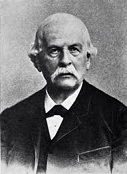








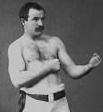
















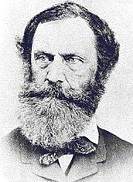

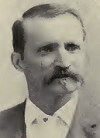
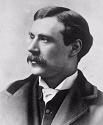

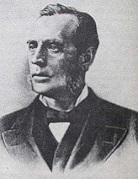



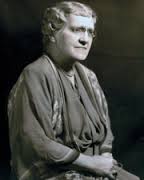
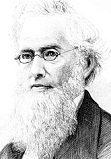

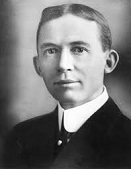

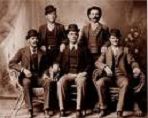
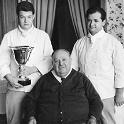

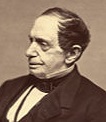

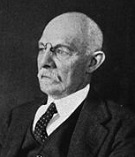
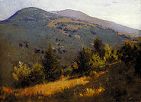
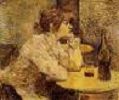
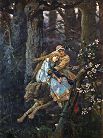
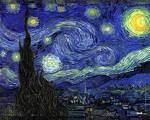



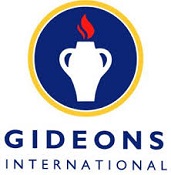
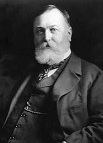
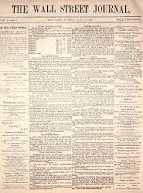
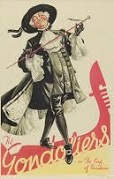
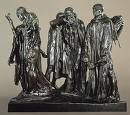

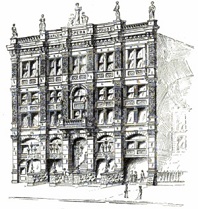
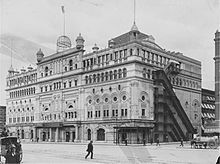
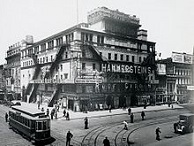
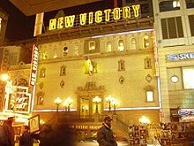
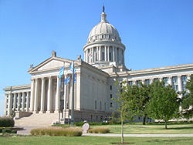
1889 Thank you Waite Court? There are only 140 documented cases of lung cancer worldwide this year. On Jan. 3 so-called "Superman" German philosopher Friedrich Nietzsche (b. 1844) freaks at the flogging of a horse in the Piazza Carlo Alberto in Turin, Italy, and suffers a mental breakdown, moving in with his mother near Weimar, and is cared for by his sister until he crocks on Aug. 25, 1900 in Weimar, Saxony. On Jan. 16 Cloncurry, Queensland sets an Australian record high temp. of 127.5 F (53.1 C); really 47C-49C? On Jan. 19 the first Robert E. Lee Day is celebrated in the Commonwealth of Va. on Lee's birthday; Stonewall Jackson is added in 1904; after the Martin Luther King Jr. Day is forced, er, voluntarily accepted, they celebrate Lee-Jackson Day on the Friday before it. On Jan. 22 Columbia Records (Columbia Graphophone Co.) is founded in Washington, D.C. from the Am. Graphophone Co., successor to the Volta Graphophone Co., becoming the first record co.; at first it supplies U.S. govt. depts. with phonographs for use as dictation machines; Colombia Gramophone Co. is founded in the U.K. On Jan. 28 Dong Khanh (b. 1864) dies, and 10-y.-o. older-than-his-years Thanh Thai (1879-1954) becomes emperor of French-controlled Vietnam (until 1907), living through both world wars only to see his own country begin to go down the toilet? On Jan. 30 the Mayerling Incident sees Austrian-Hungarian Emperor Francis Josef I's only son and heir crown prince Archduke Rudolf (b. 1858) commit suicide at his hunting lodge in Mayerling after killing his babe Baroness Maria Vetsera (b. 1871); his daddy had tried to force them to break up and they made a suicide pact, after which there's a coverup? - there's some things money can't buy, for everything else there's credit or debit what? On Mar. 2 outgoing Pres. Cleveland signs the 1889 U.S. Indian Appropriations Act, officially opening the Unassigned Lands to white settlers under the U.S. Homestead Act, with the Sooner Clause denying rights to land claimed by those who enter illegally; later in the year an amendment is signed by new Pres. Benjamin Harrison, relaxing some rules. On Mar. 4 the Repub.-controlled Fifty-First (51st) U.S. Congress convenes (until Mar. 3, 1891), becoming known as the Billion Dollar Congress for its lavish spending, incl. generous pensions for Civil War vets incl. noncombatants and children of vets; when it hits them in the pocket book, the public turns against it and lines up to reelect stingy Cleveland in 1892; meanwhile on Dec. 4 6'1" 300 lb. Maine Repub. Thomas Brackett "Czar" Reed (1839-1902) allies with Theodore Roosevelt to defeat William McKinley of Ohio to become Speaker #32 of the U.S. House (until Mar. 3, 1891, then from Dec. 2, 1895- Mar. 3,9), going on to use his chairmanship of the Houses Rules Committee to work to increase the speaker's power, causing the Battle of the Reed Rules, with Reed uttering the soundbyte: "The best system is to have one party govern and the other party watch"; Reed goes on to become a longtime rival of McKinley. Twenty-three is Benny? On Mar. 4 North Bend, Ohio-born Miami U. grad. and Presbyterian deacon in Ind. (good orator) (5'6 - only U.S. president shorter than the nat. avg.) Benjamin Harrison (1833-1901) AKA "the Centennial President", "Young Tippecanoe", "the Pious Moonlight Dude" (for his romantic ways), "the Human Iceberg" (for his glacial personality), "Kid Gloves Harrison" (worn to prevent skin infection), "Little Ben" (for his short stature) (4th pres. with a beard until ?), (the Front Porch Campaigner" (for the almost 90 campaign speeches given from his Indianapolis porch), great-grandson of a DOI signer, grandson of "Old Tippecanoe" Pres. William Henry Harrison, and son of a U.S. Sen. becomes the 23rd U.S. pres. (until Mar. 4, 1893) in the 30th U.S. Pres. Inauguration in a rainstorm in the U.S. Capitol in Washington, D.C. , becoming the 3rd time (1824, 1876) that the winner of the popular vote loses the election; the oath of office is administered by chief justice Melville W. Fuller in a rainstorm while ex-Pres. Cleveland holds an umbrella over his head; Shoreham, Vt.-born Levi Parsons Morton (1824-1920) of N.Y. becomes the 22nd U.S. vice-pres. (until Mar. 4, 1893); Buffalo Bill marches in the inaugural parade; the USMC Band conducted by John Philip Sousa plays at the inaugural ball in the Pension Bldg. before a large crowd; First Lady is former music teacher Caroline Lavinia Scott Harrison (1832-92), who next year co-founds and becomes pres.-gen. #1 of the Daughters of the Am. Rev. (DAR), and is into China painting, starting a nat. craze; Harrison's inaugural address contains the soundbyte: "As president of the United States, I was present at the first Pan-American Congress in Washington D.C. I believe that with God's help, our two countries shall continue to live side-by-side in peace and prosperity"; Harrison soon proclaims that the pres. should be a passive figure, and proves it, although a record six new U.S. states are admitted during his term (N.D., S.D., Mont., Wash., Idaho, Wyo.); James G. Blaine becomes secy. of state again (#28, #31) (until June 4, 1892); Victorian Christian gentleman and Philly dept. store king John Wanamaker (1838-1922) is appointed U.S. postmaster gen. #35 (until Mar. 4, 1893), championing parcel post, rural free delivery, and postal savings banks; Abe Lincoln's eldest son Robert Todd Lincoln (1843-1926) is appointed U.S. minister to Britain (until Mar. 4, 1893); the White House is wired for electricity while Pres. Harrison is in office, but he and his wife are too afraid to touch the switches - put your feet up, Mister President, but not there? On Mar. 6 after adopting a new more liberal constitution on Jan. 3, Serbian king (since Mar. 6, 1882) Milan I Obrenovich (b. 1854) suddenly abdicates and moves to Paris, and his teenie son Alexander I Obrenovic (Obrenovich) (1876-1903) becomes the last Obrenovic king of Serbia (until June 11, 1903), with regents appointed until he reaches age 18. On Mar. 9-10 the Battle of Metemma (Gallabat) sees 85K Sudanese forces of the Mahdi dug in at Gallabat attacked by 150K Ethopian forces under Emperor Yohannes (Johannes) IV of Ethiopia, who is about to win when he is KIA on Mar. 10, causing his army to desert, and the dead emperor to be captured and his head sent as a trophy to Omdurman; on Mar. 10 he is succeeded by his son Shewa prince Mengesha Yohannes (1868-1906), but within weeks the nobles desert him for Menelik II (Sahle Maryam) (1844-1913), who decides to stop offensive actions against the Mahdi; on May 2 King Menelik II of Ethiopia and Count Pietro Antonelli of Italy sign the Treaty of Wuchale (Ucciale), ceding parts of Ethiopia incl. Bogos, Hamasien, Akkele Guzay, Serae, and parts of Tigray in return for financial and military assistance; too bad, when Menelik learns that the Italian version of Article 17 claims a protectorate over Ethiopia backed by Britain, he gets pissed-off and denounces it; Menelik uses one of those newfangled electric chairs for a throne; meanwhile Anglo-Egyptian forces under Gen. Horatio Herbert, 1st Earl Kitchener of Khartoum (1850-1916) recapture Khartoum, although the Madhist regime hangs on until 1899. On Mar. 16 a total of six warships from Britain (Calliope), Germany (Adler, Eber), and the U.S. (Trenton, Vandalia, Lipsic) arrive in Apia, Samoa, after which a hurricane destroys all of them except British warship Calliope, killing 146, causing the civil war to cease long enough to rescue survivors from the surf; in Dec. all three countries agree to give Samoa to Germany, Tonga to Britain, and the seven islands to the E to the U.S. On Mar. 23 Punjabi-born Mirza Ghulam Ahmad (1839-1908) declares himself the Mahdi and Messiah and founds the Muslim Ahmadiyya sect (named after Muhammad not himself, he claims), which intiates new members by joining hands and reciting a pledge, and claims that Jesus died a natural death without being crucified or ascending to heaven, but went to India, and since he appeared 1,400 years after Moses, he is appearing 1,400 years after Muhammad; after being rejected by the rest of Islam and persecuted, the 4M followers in Pakistan are declared non-Muslims by the govt. in 1974 for denying that Muhammad is the final prophet; the sect founds a mosque in New York City in 1921, claiming to be the first Muslim-Am. org. On Mar. 31 French engineer ("the Magician of Iron") Alexandre Gustave Eiffel (Bonickhausen dit Eiffel) (1832-1923) unfurls the French tricolor from atop his $1M 7.3K-ton 1,056-ft. (300.65m) 1,652-step Eiffel Tower ((AKA La Dame de Fer) in Paris on the Champ de Mars (begun 1887), officially marking its completion in celebration of the centennial of the 1789 French Rev. as the entrance arch for the Exposition Universelle, becoming the tallest man-made structure on Earth (2x as tall as the Washington Monument) until the Chrysler Bldg. in 1930; initially condemned by critics as a "monstrosity" and a disgrace to Paris, who form a committee to have it removed, the cost of construction is recovered from sightseers' fees during the first year of operation; originally issued a 20-year permit, set to be dismantled in 1909, it is saved for use as a radio tower, and France's first radio program is broadcast from it in 1921; during the Nazi occupation in 1940-4 the French almost demolish it to prevent the Nazis from using it for communications - I fell off the Eiffel? On Apr. 1 Hiroshima officially becomes a city, with Akira Miki as mayor #1. On Apr. 7 after a LDS Church gen. conference reorganizes the First Presidency with him as pres., Wilford Woodruff Sr. (1807-98) (who joined way back on Dec. 31, 1833, becoming the first fly fisherman in the Rocky Mts., preaching a sermon on Aug. 22, 1868 prophesying the end of the world and Second Coming of Jesus, and marrying 9-12 wives from 1837-77, forcing him to live on the lam) becomes Mormon pres. #4 (until Sept. 2, 1898), going on to make the big decision to end polygamy in the church inside the U.S. while secretly encouraging it outside the U.S. (incl. on the high seas), founding the Genealogical Society of Utah on Nov. 13, 1894 and announcing the policy of sealing individuals to their direct ancesors instead of church leaders. On Apr. 15 Father Damien (b. 1840) dies of leprosy, and Father Joseph (Ira Dutton) (1843-1931) becomes leader of the leper colony in Molokai, Hawaii. On Apr. 22 (noon) the Oklahoma Land Rush (Run) ("Hoss Race") begins, opening the vacated Indian territory of Oklahoma to 50K eager "sooner" white settlers (Tom Cruise and Nicole Kidman?) waiting at the borders to claim 2M acres of land divided into 160-acre homesteads, while what's left of the Injuns go bonkers; Nannita Regina H. "Kentucky" Daisey (1855-) becomes the first person to claim a homestead tract; Guthrie City (new capital) (founded Apr. 22) and Oklahoma City (OKC) (founded Apr. 22) (modern pop 630K/1.46M) swell with Sooners, with the pop. of Guthrie and OKC starting at 10K, and OKC passing Guthrie up and becoming the state capital in 1910, causing the Okla. State Capitol to be built in 1914-17, becoming the only one in the U.S. with active oil rigs; the dome isn't completed until 2002 - everybody talks about how tough their truck is? In Apr. 1889 after the Daggs family from Tex. becomes the first white family to settle it, Ada, Okla. (originally Daggs Prairie) in Pontotoc County, SC Okla. goes on the map when Tex.-born Jeff Reed is appointed to carry U.S. mail from Stonewall to Center, settling there, building a post office in 1891, and naming the town after his eldest daughter; in 1901 Ada is incorporated, growing rapidly after the St. Louis and San Francisco Railway, Santa Fe Railroad, and Okla. Central Railway arrive, becoming the HQ of the Chickasaw Nation. On May 1 Paris stages its first May Day celebration, which becomes a Socialist holiday, and on May 6 the 1889 Paris Exposition (Exposition Universelle) (3rd Universal Exhibition since 1867) formally opens in Paris (until Oct. 31), featuring the hometown favorite Eiffel Tower, an "odious shadow of a great lady"; Thomas Edison exhibits his phonograph and electric light; the U.S. gets jealous and begins planning for a bigger better exhibition on Columbus' 400 anniv. in 1892. On May 1 after the London Syndicate proposes a merger of Schlitz, Pabst, and Blatz in Milwaukee, and Schlitz and Pabst decline the offer, Valentin Blatz Brewing Co. sells part of its business to the English conglomerate Milwaukee and Chicago Breweries Ltd. (originally United States Brewing Co.) for $2.5M, which in June merges with Chicago cos. M. Brand Brewing Co., Bartholomae & Leicht Brewing Co., Bartholomae & Roesing Brewing and Malting Co., Ernst Brothers Brewing Co., and K.G. Schmidt Brewing Co. (makers of Budweiser brand), utilizing the established Blatz distribution network; also in 1889 Franz Falk Brewing Co. and Jung & Borchert Brewing Co. in Milwaukee merge to form Falk, Jung & Borchert Brewing Co, which is acquired in 1893 by Pabst; also in 1889 18 breweries in St. Louis, Mo. merge into the English syndicate St. Louis Brewing Assoc., and in 1890 six breweries in New Orleans, La. merge into the New Orleans Brewing Co.; by 1891 24 English syndicates acquire 80 U.S. breweries and two malt houses; in 1892 the English syndicates start price wars, dropping Chicago beer prices from $6/barrel to $3.50/barrel in 1899 21 breweries merge to form the Pittsburgh Brewing Co. in Penn.; in 1901 10 breweries in Boston, Mass. merge to form the Mass. Breweries Co. Ltd., and 16 breweries in Baltimore, Md. merge to form the Gottlieb-Bauernschmidt-Straus Brewing Co.; in 1905 15 breweries in Pittsburgh, Penn. merge to form the Independent Brewing Co.; meanwhile in 1893 the Prohibitionists form the Anti-Saloon League. On May 2 King Menelik II of Ethiopia and Count Pietro Antonelli of Italy sign the Treaty of Wuchale (Ucciale), ceding parts of Ethiopia incl. Bogos, Hamasien, Akkele Guzay, Serae, and parts of Tigray in return for financial and military assistance; too bad, the Italians later claim that Article 17 makes Ethiopia their protectorate, while the Ethiopians claim a verb was mistranslated. On May 7 after a bequest from the will of Baltimore merchant-banker Johns Hopkins (1795-1873), $2M Johns Hopkins Hospital in Baltimore, Md. opens, utilizing state-of-the-art heating and ventilation to check the spread of disease; Canadian-born physician Sir William Osler (1849-1919) becomes its first chief physician, helping found the Johns Hopkins U. School of Medicine next year, and becoming one of its first professors of medicine, organizing a model teaching clinic, causing him to become known as "the Father of Modern Medicine"; in 1890 rubber gloves are first used in surgery in Johns Hopkins Hospital in Baltimore, Md. after New York-city-born surgeon William Stewart Halsted (1852-1922) who performed the first complete radical mastectomy in the U.S. in 1882 (which becomes the std. treatment) proposes Halsted's Principles of Asepsis, going on to design the U.S. residency training system. On May 31 after looking over their shoulder, the British Parliament passes the Naval Defence Act of 1889, adopting the "two-power standard", that the Royal Navy should maintain a number of battleships at least equal to the fleets of the two next strongest naval powers France and Russia combined, causing it to begin strengthening its fleet with Ł21.5M for 10 new battleships over the next 5 years, along with 38 new cruisers, 18 new torpedo boats, and four new fast gunboats; too bad, it starts an arms race, with the French and Russians building a combined 12 new battleships in 1893-4, compared to 10 for Britain. On May 31 the 1889 Johnstown Flood sees the South Fork Dam on the Conemaugh River 12 mi. E of the city break, and Johnstown, Penn. wiped out by a terrific flood of waters from 3-mi.-long 60-ft.-deep Conemaugh Lake, pouring out at 20 mph and killing 2,209 and causing $12M property damage, becoming the greatest single-day civilian loss of life in the U.S. until 9/11; relief is sent from all over the U.S., and the city is speedily rebuilt. On June 14 the Wild Bunch Gang of Robert Le Roy Parker (AKA Butch Cassidy) (1866-1908), incl. Harry Alonzo Longabaugh (AKA the Sundance Kid) (1867-1908), Tom McCarty and his brother-in-law Matt Warner rob the San Miguel Valley Bank in Telluride, Colo of $20K, then hole-up in Robbers Roost in SE Utah, launching the legendary career of Paul Newman and Robert Redford, er, Butch Cassidy and the Sundance Kid. In June the Swiss govt. arrests and expels a Prussian policeman attempting to capture a spy on Swiss territory, causing Bismarck to demand an apology and threaten invasion to establish his own police force; after the Swiss Council stands up to him, he backs down and drops it. On July 8 Dow, Jones & Co. of New York City begins pub. the daily business-focused newspaper The Wall Street Journal (originally the Customers' Afternoon Report), featuring the Dow Jones Average; in Mar. 1903 "short rotund powerhouse" Am. journalist Clarence W. Barron (1855-1928) purchases the co. for $130K, raising circ. from 7K to 50K by his death, attaining the largest circ. of any U.S. newspaper by modern times (2.27M in 2017), winning 40 Pulitzer Prizes; it launches an online version in 1996. On July 14 the Second International is founded in Paris by delegates from 20 countries; it is dissolved in 1916. On July 22 the San Diego Cable Railway in Calif. is incorporated, running its first cars next June 7. On Aug. 5 Conservative Roberto Sacasa Sarria (1840-96) becomes pres. of Nicaragua (until July 11, 1893). On Aug. 14 the London Dock Strike of 1889 breaks out, becoming a V for 100K strikers, giving their unions grate powah even though the members are unskilled; Cardinal Manning participates as mediator, impressing Hilaire Belloc, causing him to become a critic of capitalism and socialism alike. On Aug. 16 the Battle of Richmond in Richmond, Tex. between the two sides in the Jaybird-Woodpecker War (begun 1888) causes Tex. gov. (1887-91) Lawrence Sullivan "Sul" Ross (1838-98) (former Texas Ranger and Confed. col.) to declare martial law and negotiate a settlement giving the white Jaybird faction control of the govt. for decades to come - you build a better mousetrap you get a smarter mouse? On Sept. 10 Charles III (b. 1818) dies, and his son Albert I (1848-1922) becomes Grimaldi prince of Monaco (until June 26, 1922). On Oct. 3 King Lobengula of Matabeleland signs the Rudd Concession, giving Bill Gates, er, Cecil Rhodes what kingy thought were only mining rights for 25 years in return for a little bitty money and weapons; too bad, the document he signed hands them the whole country for a box of trinkets Manhattan style, and Rhodes goes on to amalgamate the Kimberley diamond companies, absorb rival Barnato, and achieve a diamond-mining monopoly (over 90%), while getting ready to colonize his new African digs; the cagey king shoulda smelled a rat when the Brits insisted that they will not colonize his kingdom, but made him promise to prohibit Boers and Portuguese from settling there; by the time he realizes that they are movin' on up to the East Side, and his proud Zulu warriors and their spears are no match for the new improved Brits with Maxim machine guns, he's lucky to have five years left?; meanwhile Cecil Rhodes obtains mining concessions from Lozi king (1878-1884, 1885-1916) Lewanika I (1842-1916) of the Barotse in Northern Rhodesia, and sends white settlers under rule of his new British South Africa Co., which is granted a royal charter (until 1924); British Bechuanaland is incl. in the grant, but they never administer it. On Oct. 14 Armenia, Colombia between Bogota and Colombia in coffee-growing country is founded by "Tigrero" (jaguar killer) Jesus Maria Ocampo. On Oct. 19 king (since Nov. 11, 1861) Luis I (b. 1838) dies, and Carlos I (the Diplomat) (1863-1908) becomes king of Portugal (until Feb. 1, 1908), presiding over its capitulation in Africa to the U.K. and its double bankruptcy in 1892 and 1902. On Nov. 2 "Sioux State", "Flickertail State", "Peace Garden State", "Rough Rider State" North Dakota (N.D.) (Sioux "allies") is admitted as the 39th U.S. state; "Mount Rushmore State", "Coyote State" South Dakota (S.D.) (Sioux "allies") as the 40th U.S. state on Nov. 2; "Treasure State" Montana (Mont.) (Sp. "mountain") (Sp. motto "oro y plata", "gold and silver") as the 41st U.S. state on Nov. 8, with capital at Helena instead of Anaconda after Copper King William Andrews Clark Sr. (1839-1925) bribes legislators, which is exposed in 1899, helping pass the 17th Amendment to the U.S. constitution; "Evergreen State" Washington (Wash.) (motto: Al-Ki, Indian for "by and by") as the 42nd U.S. state on Nov. 11 - don't laugh at these names, your descendants might end up moving there? The Geraldo of the 19th century? On Nov. 14 good-looking New York World daredevil reporter Nellie Bly (1864-1922), who last year spent 10 days in the Blackwell's Island insane asylum in New York City pretending to be insane to expose them takes Jules Verne up on his novel thesis and sets out on a 24,899-mi. round-the-world trip from Hoboken, N.J., arriving back in New York next Jan. 25 in a record 72 days, 6 hours, 11 min. 14 sec.; she retires from journalism in 1895 after marrying millionaire manufacturer Robert Seaman (1822-1904), then returns to reporting after employee embezzlement ruins the co. On Nov. 15 after the slaves are freed in Brazil, the military, led by Gen. Manuel Deodoro da Fonseca (1827-92) (who was removed as gov. of Rio Grande do Sul province in 1889 for repub. sympathies) overthrows Brazilian emperor (since Apr. 7, 1831) Pedro II (1825-91), who goes into exile in France, and a new Repub. of Brazil (Republica Velha) (Old Repub.) is declared (ends 1930), with Fonseca as pres. #1 (until Nov. 23, 1891), and Rio de Janeiro as the capital; on Nov. 19 a new Brazilian Flag is adopted consisting of a blue disc depicting a starry sky spanned by a curved band reading "Ordem e Progresso" (Order and Progress) and "L'amour pour principe et et l'ordre pour base; le progres pour but" (Love as a principle and order as the basis; progress as the goal) inside a yellow rhombus on a green field; two military dictatorships rule Brazil for the next four years. In Nov. John Adrian Louis Hope, 1st Marquess of Linlithgow, Viscount Aithrie and 7th Earl of Hopetoun (1860-1908) arrives in Melbourne as British gov. of Victoria (until 1895). On Dec. 18 after being nominated on Dec. 4 by Pres. Benjamin Harrison to fill a seat vacated by Stanley Matthews, Smyrna, Turkey-born David Josiah Brewer (1837-1910) becomes U.S. Supreme Court justice #51 (until Mar. 28, 1910). On Dec. 24 Charles Stewart (Stuart) Parnell's 7-year affair with married-but-separated aristocratic English woman Katharine "Katie" "Kitty" O'Shea (nee Wood) (1846-1921) is exposed when her hubby Capt. William O'Shea, one of his aides files for divorce, naming him as the cuckold, admitting that the capt. is impotent and had tolerated his wick-dipping for several years to get his hands on her inheritance; Parnell goes on to marry Katie next year, but his mainly Roman Catholic constituency abandons him, breaking his heart and leading to an early death in 1891, setting Irish Home Rule way back. On Dec. 29 Glele (ruled since 1858) dies, and is succeeded as king #11 of Dahomey (Benin) (until 1894) by Kondo, who takes the name Behanzin Hossu Bowelle (1844-1906), "the King Shark", continuing Dahome's proud tradition of slavery, superstition, and nude female Dahomey Amazon Warriors. The 1889 Japanese Constitution is promulgated, requiring the Imperial Diet to approve all laws. Gen. Boulanger flees from France to prevent arrest for plotting against the state, winning the French Third Repub. respect with the people. Chilean pres. Jose Manuel Balmaceda closes J.T. North's railway to stop British control of the nitrate industry in Tarapaca, causing Britain to begin plotting his overthrow. Christians in Crete revolt against the Muslim Ottomans again, causing the latter to crack down harder and suspend all arrangements for Christian representation in govt. After advice by Dutch Islam convert Christiaan Snouck Hurgronje (1857-1936) (who was allowed to make the hajj to Mecca in 1885, becoming one of the first Western Orientalists) the Dutch govt. begins applying Dutch Politiek, a policy of discouraging political Islam in Indonesia, with a view toward long-term Christanization and/or secularization. 74-y.-o. Bismarck gets old age pensions enacted in Germany. The Becerra Law in the Philippines sets up town councils in an attempt to modernize govt. admin. Britain declares a protectorate over Tokelau in the South Pacific. Irish-born Richard Croker Sr. (1843-1922) becomes the boss of Tammany Hall in New York City, amassing millions of dollars and living on Fifth Ave., complete with his own private railroad car; he retires in 1903, and his horse Orby wins the English Derby in 1907 - this is no social crisis, just another tricky day for you? The Young Turk Movement against the regime of Sultan Abdul Hamid II is formed as the Committee of Union and Progress (CUP) secret society by military medical school students in Istanbul, becoming known as the Deep State (Derin Deviet). Irish poet William Butler Yeats returns from London to Dublin after nine years, and gonne and falls maudly in love with Irish patriot and babe Maud Gonne (1866-1953), who hooks him into the Irish nationalist movement, then dumps him in 1891 after joining the Order of the Golden Dawn with him and meeting old flame Lucien Millevoye (1850-1918), a French journalist with whom she has two children; after dumping him in 1899, Yeats goes at her again, but she dumps him in 1902 for keeps after she converts to Roman Catholicism and he won't follow suit, marrying Irish republican Maj. John MacBride (1865-1916) in 1903, who gets executed in the 1916 Easter Rising. A U.S.-backed co. begins building a canal through Nicaragua. Nine small Malaysian states are federated into Negri Sembilan ("nine states"); curry-loving Penang on the E coast of the Malay Peninsula is placed under British protection, where it exports gold, lead, tin, rattans, guttapercha, and dammar (varnish) - ratta-tatt-tatt? The Bat Creek Stone in E Tenn. is discovered; does it contain ancient Hebrew or Welsh inscriptions? After Columbia U. refuses to admit women but lets them audit classes, causing her to create a committee of 50 prominent New Yorkers to support it, Barnard College for women is founded in Morningside Heights, Manhattan, N.Y. (across from Columbia U.) by Annie Nathan Meyer (1867-1951), named after late pres. #10 of Columbia U. (1864-89) Frederick Augustus Porter Barnard (1809-89); in 1983 when Columbia U. goes coed, it doesn't. English physician Sir Wilfred Thomason Grenfell (1865-1940) joins the Royal Nat. Mission for Deep Sea Fisherman, and organizes the first hospital ship for fishermen. The state of N.J. passes favorable corporate laws that attract J.D. Rockefeller to locate Standard Oil there. The Nat. Assoc. of Regulatory Utility Commissioners (NARUC) is founded in Washington, D.C. for state public service commissioners who regulate essential utility services. Progressive movement leader Jane Addams (1860-1935) et al. found Hull House in Chicago, Ill. for poor immigrant families, providing recreational facilities for kids and English language instruction, eventually expanding from 1-13 bldgs., and in 1912 its own summer camp, Joseph T. Bowen Country Club in Waukegan, Ill.; in 1931 Addams becomes the first U.S. woman to receive a Nobel Peace Prize. Elon U. in N.C. receives a charter from the state of N.C., going on to become a leading coed liberal arts U. in the Am. South. Cecil Reddie (1858-1932) founds Abbotsholme School in Rocester, Staffordshire, England, becoming the first British progressive school, with scope for extra-curricular activities to produce well-rounded students. After donating 40 acres of land in Denver, Colo. in 1887 to the Jesuits, who found Regis U., John Brisben Walker (1847-1931) buys Cosmopolitan Mag., selling it to William Randolph Hearst in 1905 for $400K-$1M. Hungarian-born Arthur Nikisch (1855-1922) becomes conductor of the Boston Symphony Orchestra (until 1893). 8'4" Ella Ewing (1872-1913) of Mo. is hired by a Chicago museum curator to exhibit herself for $250/week, going on to pay off her family's farm and build a dream home with 10-ft. ceilings, 9-ft. doors, 8-ft. windows and a 9-ft. bed, "praising God and blessing Him for her extreme height". The descendants of Luke Hansard (1752-1828) discontinue the compilation and printing of the Hansard, the official record of proceedings of the British Parliament. Dutch-born Edward William Bok (1863-1930), who formed the Bok Syndicate Press in 1886 and made money pub. the sermons of clergyman Henry Ward Beecher becomes ed. of Ladies' Home Journal in Philly. The Oklahoman (originally the Daily Oklahoman) daily newspaper is founded in Oklahoma City, Okla. by Knoxville, Tenn.-born prohibitionist evangelist Samuel White "Sam" Small (1851-1931), and acquired in 1903 by Edward King "E.K." Gaylord (1873-1974) (until 1974), becoming the state's largest daily newspaper (until ?); on Sept. 15, 2011 Denver, Colo. businessman Philip Anschutz is announced as the buyer, and the sale is closed in Oct. Silver is discovered in Willow Creek Canyon in SW Colo.; in June 1891 the Holy Moses silver (amethyst) vein is discovered by Fort Wayne, Ind.-born Nicholas C. Creede (nee William "Billy" Harvey) (1843-97) at Jimtown on East Willow Creek above its junction with West Willow Creek, which is renamed Creede, Colo., becoming the last 19th cent. Colo. silver boom town, growing to 10K pp. in Dec. 1891; meanwhile municipal elections in Denver, Colo. are corrupted by crime boss Soapy Smith, who pays off the mayor, and the chief of police, causing them to be called "the firm of Londoner, Farley and Smith"; the mayor loses his job, but Soapy is untouched, but in 1892 anti-gambling and saloon reforms cause him to leave for the new silver-mining boom town of Creede declaring himself boss in 1892, get his brother-in-law William Sidney "Cap" Light (1863-93) appointed as deputy marshal, opening the Orleans Club saloon and gambling hall, and exhibiting the fake petrified man McGinty for 10 cents admission; in 1892 after hearing that the reforms are being abolished, Soapy returns to Denver just before a business district fire on June 5, 1892 that destroys the Orleans Club. The town of Lakewood, Colo. between Denver and Golden is founded by Ill.-born Golden, Colo. founder William Austin Hamilton Loveland (1826-94), who plats a 13-block area along W Colfax Ave. in E Jefferson County, retiring there for life; it is not incorporated until 1969 under the name Jefferson City; it becomes known for an orthodox Jewish community, motels, used car lots, biker bars, and shopping centers incl. JCRS Mall, Westland Mall, and Villa Italia on W Alameda Ave., never developing a central business district. Aunt Jemima self-rising pancake flour makes its commercial debut, making Nancy Green (1834-1923) into the advertising world's first living trademark - you want to do what to it, Howard? The first of 75 (by 1918) Ethiopian Independent Churches is founded in South Africa. The U.S. Dept. of Agriculture (USDA) is given cabinet status. The first Russian Wolfhound is imported to the U.S. from England. By this year the great Am. buffalo (bison herds) have been reduced by whitey from a high of 50M in pre-white days to maybe 1K. In Nov. Clemson U. (originally Clemson Agricultural College of S.C. until 1964) in Clemson, S.C. is founded as an agricultural college by a land bequest from Thomas Green Clemson (1807-88), husband of John C. Calhoun's daughter Anna Maria Calhoun, sited on Fort Hill, the John C. Calhoun's 1825-50 home, and modeled after Miss. State U., admitting only white male students, although blacks and women aren't officially banned; it also houses a military college; it goes coed in 1955; sports teams are called the Tigers, with the tiger paw becoming the logo in 1970; alumni incl. U.S. Supreme Court justice James F. Byrnes, S.C. gov. Nikki Haley, U.S. Sen. (D-S.C.) Strom Thurmond, and Chicago Bears player William "Refrigerator" Perry. The Nat. Zoo is founded in Washington, D.C.; next year it merges with the Smithsonian. Penn Square's Central Market is founded in Lancaster, Penn., becoming the oldest continuously operated farmer's market in the U.S. by modern times. Paris-born Andre (André) Paul Guillaume Gide (1869-1951) begins writing his public Journal (until 1949). Susan la Flesche Picotte (1865-1915) of the Omaha tribe in Neb. becomes the first Native Am. female physician. London-born Socialist Freethinker Annie Besant (1847-1933) (associate of Charles Bradlaugh, who was once arrested with her for immorality for pub. Charles Knowlton's The Fruits of Philosophy advocating birth control) joins the Theosophical Society, working up to pres. by 1907; meanwhile she leaves for India, becoming a leader of the Hindu nationalist movement. Charles Sherlock Fillmore (1854-1948) and Mary Caroline "Myrtle" Page Fillmore (1845-1931) found the New Thought Unity (Unity Church) in Kansas City, Mo. French chemist Pierre Berthelot, who was elected sen. for life in 1881 succeeds Louis Pasteur as perpetual secy. of the French Academy of Sciences. Barnum and Bailey's Circus opens in Olympia, London. The London County Council is founded (until 1965) as the principal local govt. body for London. The Witwatersrand Chamber of Mines is formed in South Africa. The French Panama Canal Co. (founded 1879) goes bankrupt after removing 78M cubic yards of earth, 30M of which are later used by the U.S. effort - call the tailor? Noah Webster's copyright expires, allowing anybody to pub. a Webster's dictionary. During a French escargot shortage, Oysters Rockefeller (named after America's richest man John D. Rockefeller) is invented by Jules Alciatore of Antoine's Restaurant in New Orleans, La., taking the recipe to the grave with him after repeatedly denying that it contains spinach. Nintendo Co. is founded in Kyoto, Japan on Sept. 23 by Fusajiro Yamauchi (1859-1940) to manufacture playing cards (hanafuda). Modell's sporting goods chain is founded in Manhattan, N.Y. by Hungarian immigrant Morris A. Modell. Armand Peugeot (1849-1915) of French bicycle maker Peugeot (founded 1810) produces his first steam tricycle, which proves unreliable; in 1890 he produces his first automobile with a Panhard-Daimler engine, 3-point suspension, and sliding gear; in 1896 he splits out the Societe des Automobiles Peugeot, and begins building engines, becoming successful in auto racing; in 1899 300 units are sold; in 1903 motorcycles are added to the product line; by 1903 Peugeot has 50% of the French automobile market; by the 1930s their trademark becomes the protected position of the headlights behind the grill; in 1974 Peugeot buys 30% of Citroen, and takes it over completely in 1975; in Feb. 2014 the Peugeot family agrees to give up control in return for the French govt. and Dongfeng Motors of China each buying 14% stakes, giving the three partners equal voting rights. Maison Pic (L'Auberge du Pin) in Valence, Drome, France is opened by Eugene Pic and Sophie Pic, earning three Michelin stars in 1939 under their son Andre Pic (1893-1984) (known for his crayfish gratin, Pike Richelieu, and pig bladder chicken), then losing star #3 in 1946, and star #2 in 1950, causing Andre's son Jacques Pic (1932-92) to become a chef, winning back star #2 in 1959, and star #3 in 1973; too bad, in 1995 it loses star #3, causing Jacques' daughter Anne-Sophie Pic (1969-) to take over from her brother Alain Pic, regaining it in 2007. Sports: On Mar. 14 Harvard introduces spring practice to collegiate football. On July 18 John L. Sullivan defeats Jake Kilrain (John Joseph Killion) (1859-1937) in the last championship bare knuckle fight; the bout lasts 75 rounds and takes 2:16:23. On Oct. 6 German explorer and geologist Hans Heinrich Josef Meyer (1858-1929) and Austrian mountaineer Ludwig Purtscheller (1849-1900) become the first to scale dramatic 19,341 ft. (5,895m) Mount Kilimanjaro, Africa's highest mountain, in Tanganyika between Lake Victoria and the Indian Ocean 130 mi. SSE of Nairobi, rising 16K ft. from the surrounding terrain, formed from three extinct volcanoes, and consisting of two volcanic peaks 7 mi. apart, Kibo (19,335 ft.) and Mawenzi (16,893 ft.), plus a distant 3rd, Shira (12,999 ft.); despite being near the equator, it has permanent glaciers, as does 2nd highest Mt. Kenya; after scaling Kibo, Mayer names it Kaiser Wilhelm Spitze (Kaiser Wilhelm Peak) after Wilhelm I, which is changed to Uhuru Point in 1961; an attempt to climb Mawenzi only reaches Klute Peak, causing Mawenzi's highest summit to be named Hans Meyer Peak, which is first climbed in 1912; Kibo isn't claimed again until 1909. On Oct. 18-29 the 1889 World Series sees the New York Giants (NL) defeat the Brooklyn Bridegrooms (AL) by 6-3; Game 1 at the Polo Grounds witnesses a seventh-inning stretch after someone cries "Stretch for luck". The first World All-Round Speed Skating Championship is held in the Netherlands. Yale U. football coach (captain of the 1878 and 1879 Yale football teams) ("Father of Am. Football") Walter Chauncey Camp (1859-1925), known for attending every important rule committee meeting until his death and for revising the rules of football initiates the practice of naming the best college football players each season for the College Football All-American Team, and popularizing All-Am. teams with Caspar Whitney via articles in This Week's Sports mag. and Collier's mag. Architecture: In Nov. 306-ft.-tall Bennington Battle Monument in Vt. (begun 1887) is completed to commemorate the Aug. 17, 1777 Battle of Bennington, becoming the tallest on Earth (until ?); at the top visitors can see Vt., N.Y., and Mass. The 7.5-mi. narrow-gauge Celestial Railroad, between Jupiter and Lake Worth Fla. opens, becoming the smallest and most southern railroad in the U.S., with way stations named Venus and Mars; it is auctioned off in 1896 after Henry M. Flagler builds Palm Beach, Fla., and builds another railroad that bypasses it. The Daft Block in Salt Lake City, Utah is built for Sarah Daft by Mormon architect Elias Lacy Thomas Harrison (1830-1900); in 1908 Brigham Young's watchmaker John Daynes buys it for his Daynes Jewelry Co. Wealthy Stettin, Prussia-born Jewish cigar manufacturer Oscar Hammerstein I (184-1919) builds his first theater, the Harlem Opera House at 211 West 125th St. in Harlem, Manhattan, N.Y., becoming the first theater in Manhattan, followed in 1890 by Columbus Theatre on 125th St., in 1893 by the Manhattan Opera House on 34th St., and on Nov. 25, 1895 by the Olympia Theatre at 1514-16 Broadway in Longacre (later Times) Square, which debuts his comic opera Santa Maria before failing, followed in 1899 by the Victoria Theatre at 42nd Street and Seventh Ave., which goes vaudeville in 1904 under the mgt. of his son William "Willie" Hammerstein (1875-1914) (father of Oscar Hammerstein II) before failing in 1915, along with the Paradise Roof Garden atop the Victoria Theatre and Theatre Republic; he follows on Sept. 27, 1900 with the Theatre Republic at 209 West 42nd Street (between 7th and 8th Aves.), which he leases in 1902 to producer David Belasco, who renames it the Belasco Theatre, then changes it in 1910 to the Republic Theater; in 1931 Bill Minsky acquires it and turns it into Minsky's Burlesque, featuring stripper Gypsy Rse Lee; in 1942 it becomes the Victory Movie Theater; in 1972 it becomes the first 42nd St. theater to show XXX porno films; in 1990 New 42nd Street Inc., owned by New York City and the state of N.Y. for redevelopment of seven aging theaters between 7th and 8th Aves. takes it over and restores it, and on Dec. 11, 1995 rename it the New Victory Theater, the area's first theater for families and children, and the oldest operating theater in New York City; he follows on Dec. 5, 1904 with the Lews Fields Theatre at 254 West 42nd Street, and in 1906 by his 2nd Manhattan Opera House at 311 West 34th Street to compete with the Metropolitan Opera, followed in 1908 by the Philadelphia Opera House in Philly. The Shah Jahan Mosque is built in Woking, Surrey, becoming the first purpose-built mosque in Britain. The Wheeler Opera House opens in the booming mining town of Aspen, Colo. Inventions: On June 21 after making the first moving pictures on celluloid film last year in Hyde Park, London, Bristol-born English portrait photographer William Freeze-Frame, er, William Friese-Greene (1855-1921) receives patent #10,131 for his Chronophotographic Camera, which can take 4-5 (up to 10?) photographs per sec. using peforated celluloid film, and sends info. on it to Thomas Edison, who is busy developing his Kinetoscope; too bad, the low frame rate causes it to become a flop, and he goes bankrupt in 1891; he then invents Biocolour, using B&W film with two different colored filters, and alternate frames of the monochrome print stained red or green. On Aug. 27 Am. chemist Henry M. Reichenbach of Eastman Kodak develops the first roll film using celluloid substrate, and on Dec. 10 George Eastman is granted a patent for flexible celluloid film. On Oct. 6 W.K.L. Dickson makes the first sound film, with the soundbyte "Good morning, Mr. Edison. How do you like this?"; on Nov. 23 the first Jukebox is installed at the Palais Royale Saloon in San Francisco, Calif., consisting of an Edison phonograph with four coin-operated listening tubes. The first working electric elevator is installed in the Demarest Bldg. in New York City at 339 Fifth Ave. in Manhattan. English chemist Sir Frederick Augustus Abel, 1st Baronet (1827-1902) invents Cordite smokeless propellant (58% nitroglycerine, 37% guncotton, 5% petroleum jelly), which is used in 303 British Mark I and Mark II rifle cartridges in 1891-1915, and the detonation system of the Little Boy a-bomb dropped on Hiroshima in Aug. 1945. William Gray of Hartford, Conn. receives a patent on Aug. 13 for a coin-operated telephone box, and installs the first one at a bank in Hartford. The Pizza is invented by baker Rafaele Esposito of Naples for King Umberto I of Italy and his wife Margherita. French inventor Louis Ducos du Hauron proposes the Polyfolium Chromodialytique concept of 3-layer color film; too bad, he never makes a working model. Oskar Messter of Germany develops a projector using a Maltese Cross shutter mechanism. Reaper-mower manufacturer Jacob Hiram Myers (1841-1920) of Rochester, N.Y. receives a patent for the Automatic Voting Machine (AVM), which catches on and becomes a monopoly until 1936, when the Shoup Voting Machine Corp. (founded 1905 by Samuel R. Shoupbecomes a competitor, introducing the Model 2.5 in 1935, which takes over,. selling 100K machines by 2000. Valdemar Poulsen of Denmark patents a magnetic recorder. N.Y.-born Kansas City, Mo. undertaker Almon Brown Strowger (1839-1902) of the U.S. invents an automatic electromechanical telephone switching device, and patents it in 1891, opening the first commercial telephone exchange on Nov. 3, 1892 in La Porte, Ind. with 75 subscribers (cap. 99). Science: Swift's Second Comet is first observed (period 7.0 years). German pathologist-histologist Richard Altmann (1852-1900) purifies protein-free DNA, coining the term "nucleic acid' to supplant Friedrich Miescher's term "nuclein", later discovering it contained a large amount of protein; in 1890 he pub. "The Elementary Organism" (Die Elementarorganismen), describing filaments he found in nearly all cell types using a new staining technique, which he calls "bioblasts" but are later found to be mitochondria. Spanish histologist Santiago Ramon y Cajal (1852-1934) discovers the mechanisms of gray matter nerve cells, then in the next two years isolates Cajal's Cells (Cajal-Retzius Cells) near the brain surface, and demonstrates the changes they undergo while functioning, founding modern neuroscience and winning the 1906 Nobel Med. Prize. Julius Elster and Hans Geitel of Germany observe photoelectric activity in sodium, cesium, and rubidium. ? Von Mehring and ? Minkowski of Germany prove that the pancreas secretes insulin, preventing diabetes. Italian mathematician Giuseppe Peano (1858-1932) pub. the Peano Axioms, which define the natural numbers in terms of sets. Italian astronomer Giovanni Virginio Schiaparelli (1835-1910) discovers the synchronous rotations of planets Mercury and Venus. Nonfiction: Henry Brooks Adams (1838-1918), The History of the United States of America During the Administration of Thomas Jefferson and James Madison 1801-1817 (9 vols.) (1889-91); focuses on diplomacy, making use of secret European archives to present an intimate picture of Jefferson, who faced the dilemma of governing an egalitarian society in a world that aggrandizes power; draws mixed reviews, from "A history yet to be replaced" by C. Vann Woodward to "misjudged the state of the nation in 1800" by Noble Cunningham. George Bancroft (1800-91), Martin Van Buren to the End of His Public Career. Hilaire Belloc (1870-1953), Danton. Henri Bergson (1859-1941), Essai sur les Donnees Immediates de la Conscience. Madame Helena Blavatsky (1831-91), The Key to Theosophy; presents Theosophy in a question-and-answer format; makes a fan of Mohandas Gandhi, who writes the soundbyte in his autobio.: "This book stimulated in me the desire to read books on Hinduism, and disabused me of the notion fostered by the missionaries that Hinduism was rife with superstition." The Voice of the Silence (The Book of the Golden Precepts); "The Mind is the great Slayer of the Real. Let the Disciple slay the Slayer." Charles Booth (1840-1916), Life and Labour of the People of London (17 vols.) (1889-1903); shows "a numerical relation which poverty, misery, and depravity bear to regular earnings and comparative comfort"; categorizes the poor as Class A: "Vicious: borderline semi criminal" or Class B: "Casual earnings very poor. The labourers do not get as much as three days work a week, but it is doubtful if many could or would work full time for long together if they had the opportunity." - the original "Statistics Lie"? Robert Seymour Bridges (1844-1930), On Prosody of Paradise Regained and Samson Agonistes. Bernhard ten Brink (1841-92), Geschichte der Englischen Literatur (1889-93). Oscar Browning (1837-1923), Modern England, 1815-1885. Samuel Butler (1835-1902), Shakespeare's Sonnets Reconsidered. Andrew Carnegie (1835-1919), The Gospel of Wealth; how the super-rich should be trustees of great wealth, and administer it for the public good; "The man who dies... rich dies disgraced" - must coverup the crime behind the fortune? Paul du Chaillu (1835-1903), The Viking Age. Richard T. Ely (1854-1943), Social Aspects of Christianity, and Other Essays. Francis Galton (1822-1911), Natural Inheritance; coins the term "eugenics". Ignac Goldziher (1850-1921), Muhammedanische Studien (2 vols.) (1889-1890); a Jew gets so immersed in the study of Islam that he almost becomes a Muslim; shows how the ahadith grew for two cents. after Muhammad's death; claims that Islamic law (Sharia) owes its origins to Roman law. Ferdinand Gregorovius, History of Athens in the Middle Ages, from Justinian to the Turkish Conquest. William Torrey Harris (1835-1909), The Philosophy of Education; "Substantial education... scientifically defined, is the subsumption of the individual"; "The great purpose of school can be realized better in dark, airless, ugly places... It is to master the physical self, to transcend the beauty of nature. School should develop the power to withdraw from the external world"; from the horse's mouth, the U.S. Commissioner of Education from 1889-1906. William Henry Herndon (1818-91) and Jesse William Weik (1857-1930), Lincoln: The True Story of a Great Life (3 vols.); rev. ed. pub. in 1892; pisses-off Lincoln worshippers with its exposure of his dirty laundry incl. his mother's illegitimacy, negative portrayal of Mary Todd Lincoln (Herndon's personal enemy), and his suicidal depression; Robert Todd Lincoln denounces it for claiming that Ann Rutledge was the only love of his daddy's life, and for the negative portrayal of his mother and her domestic life, causing meager royalties. William Henry Hudson (1841-1922), Argentine Ornithology; anything about bird girl? Thomas Henry Huxley (1825-95), Agnosticism: Collected Essays. J.K. Huysmans (1848-1907), Certains; art criticism. Richard Jefferies (1848-87), Field and Hedgerow: Being the Last Essays of Richard Jefferies (posth.). Fanny Kemble (1809-93), Far Away and Long Ago. Andrew Lang (1844-1912), Letters on Literature. Cesare Lombroso (1835-1909), The Man of Genius; artistic genius is a form of hereditary insanity? Henry Dunning Macleod (1821-1902), The Theory of Credit; the first work to create a theory of money from a theory of credit instead of vice-versa, known as the Credit Theory of Money, influencing Chartalism and Institutional Economics; "Money and Credit are essentially of the same nature: Money being only the highest and most general form of Credit." Sir Gaston Maspero (1846-1916), Les Momies Royales de Deir el-Bahri. John Bach McMaster (1852-1932), Outline of the Lectures of the Constitutional History of the United States, 1789-1889. Max Mueller (1823-1900), Six Systems of Hindu Philosophy; Natural Religion (Gifford Lecture). Prentice Mulford (1834-91), Thoughts Are Things; helps to launch the New Thought movement; "'To thine own self be true' is an oft-uttered adage. But to which self? The higher or lower?" Friedrich Nietzsche (1844-1900), Twilight of the Gods (Idols); or, How to Philosophize with a Hammer (Gotzendammerung) (Götzendämmerung); disses modern German culture as suffering from "cultural decadence", pointing to Caesar, Napoleon, Goethe, Thucydides, and the Sophists as the way to go, promoting the Transvaluation (Revaluation) of All Values, touting the ancient Romans as superior to the ancient Greeks. Santiago Ramon y Cajal (1852-1934), Manual de Histologia Normal y Technica Micrografica. Ernest Renan (1823-92), Examen de Conscience Philosophique. Theodore Roosevelt (1858-1919), The Winning of the West (4 vols.) (1889-96); supports his belief in the superiority of the Nordic race in the struggle between civilization and savagery, and backs social Darwinism; "The settler and pioneer have at bottom had justice on their side; this great continent could not have been kept as nothing but a game preserve for squalid savages"; "The most ultimately righteous of all wars is a war with savages"; "It is of incalculable importance that America, Australia, and Siberia should pass out of the hands of their red, black, and yellow aboriginal owners, and become the heritage of the dominant world races"; "The world would have halted had it not been for the Teutonic conquests in alien lands; but the victories of Moslem over Christian have always proved a curse in the end. Nothing but sheer evil has come from the victories of Turk and Tartar." William Sharp (1855-1905), Life of Robert Browning; The Children of Tomorrow. Leo Tolstoy (1828-1910), The Power of Darkness. Graham Wallas (1858-1932), Property Under Socialism. Lester Wallack (1820-89), Memories of Fifty Years (posth.). Friedrich von Wieser (1851-1926), Natural Value (Der Naturliche Werth); disciple of Carl Menger proposes the Alternative (Opportunity) Cost Doctrine, and coins the term "marginal utility" (Grenznutzen), which replaces William Stanley Jevons' "final degree of utility", and Carl Menger's "value". August Weismann (1834-1914), Essays on Heredity. Music: Sabine Baring-Gould (1834-1924), Songs and Ballads of the West (1889-91); West England that is (Devon and Cornwall). Ernest Chausson (1855-99), Symphony No. 1 in B-flat, Op. 20. Claude Debussy (1862-1918), Cinq Poemes de Baudelaire. Cesar Franck (1822-90), Symphony in D minor (Feb. 17) (Paris Conservatory); his biggest hit. Gustav Mahler (1860-1911), Symphony No. 1 in D major ("Titan") (Budapest). Sir Hubert Parry (1848-1918), Ode on St. Cecilia's Day. David George Ritchie (1853-1903) (ed.), The Early Letters of Jane Welsh Carlyle [1826-66]. John Philip Sousa (1854-1932), The Washington Post March; written for their annual contest. Sir William Schwenck Gilbert (1836-1911) and Arthur Sullivan (1842-1900), The Gondoliers (comic operetta #12) (Savoy Theatre, West End, London) (Dec. 7) (554 perf.); a young bride wants to marry the heir to the throne of Barataria, who was raised by a drunken gondolier as his own son, and after the king dies both sons jointly rule because nobody knows which is the real one; meanwhile they marry local girls, and the bride-to-be is in love with another man. Richard Strauss (1864-1949), Don Juan (symphonic poem) (Weimar). Peter Tchaikovsky (1840-93), The Sleeping Beauty (ballet); (Mariinsky Theatre, St. Petersburg); based on Charles Perrault's "La Belle au Bois Dormant"; the last act Aurora's Wedding is often performed alone; Tsar Alexander III comments "Very nice". Art: Pierre Puvis de Chavannes (1824-98), Alma Mater (mural) (Sorbonne, Paris). Aime-Jules Dalou (1838-1902), Triumph of the Republic (sculpture) (Place de la Nation, Paris). Ramon de Elorriaga, The Inauguration of George Washington. Vincent van Gogh (1853-90), Landscape with Cypress Tree; Starry Night; becomes his most famous painting; Irises; bought at auction in New York City in 1987 for $53.9M. Anna Klumpke (1856-1942), Portrait of Elizabeth Cady Stanton. Auguste Rodin (1840-1917), The Burghers of Calais (Les Bourgeois de Calais) (sculpture); about the humiliating terms of surrender to the English in the 1347 siege of Calais. Giovanni Segantini (1858-99), The Drinking Place. Abbott Thayer (1849-1920), Mount (Grand) Monadnock Series (1889-1917); the weird isolated 3,165-ft. inselberg (kopje) in SW N.H. obsesses the dude? Henri de Toulouse-Lautrec (1864-1901), The Hangover; model is Suzanne Valadon. William Quiller Orchardson (1832-1910), The Young Duke. Marie Spartali Stillman (1844-1927), Messer Ansaldo Showing Madonna Dionara His Enchanted Garden. Viktor Vasnetsov (1848-1926), Ivan Tsarevich Riding the Grey Wolf. Plays: J.M. Barrie (1860-1937), A Window in Thrums. David Belasco (1853-1931) and Henry Churchill de Mille (1855-93), The Charity Ball. Anton Chekhov (1860-1904), The Wedding. Gerhart Hauptmann (1862-1946), Before Dawn (Vor Sonnenaufgang); founds naturalistic drama. Bronson Crocker Howard (1842-1908), Shenandoah; about the U.S. Civil War; first successful production of Charles Frohman. Jerome K. Jerome, Three Men in a Boat. Henry Arthur Jones (1851-1929), The Middleman. Maurice Maeterlinck (1862-1949), La Princesse Maleine (first play); makes him an instant star; Serres Chaudes. Arthur Wing Pinero (1855-1934), The Profligate. August Strindberg (1849-1912), Miss Julie; Pariah; Among French Peasants; Creditors. Hermann Sudermann (1857-1928), Die Ehre. Leo Tolstoy (1828-1910), The Power of Darkness. Poetry: Jules Amedee Barbey d'Aurevilly (1808-89), Amaďdée. Katharine Lee Bates (1859-1929), Sunshine and Other Verses for Children; incl. Goody Santa Claus on a Sleigh Ride, which introduces Mrs. Claus. Robert Browning (1812-89), Asolando (last work). William Wilfred Campbell, Lake Lyrics and Other Poems. Eugene Field (1850-95), Wynken, Blynken, and Nod (original title "Dutch Lullaby") (Mar. 9); "Wynken, Blynken, and Nod one night/ Sailed off in a wooden shoe - / Sailed on a river of crystal light,/ Into a sea of dew"; A Little Book of Western Verse. Herman Gorter (1864-1927), Mei (May). William Sharp (1855-1905), American Sonnets. Edward Rowland Sill (1841-87), The Hermitage and Later Poems (posth.). Algernon Charles Swinburne (1837-1909), Poems and Ballads, 3rd ed.. Arthur Symons (1865-1945), Days and Nights (debut). Alfred, Lord Tennyson (1809-92), Crossing the Bar; instructs his son Hallam to put it at the end of all eds. of his poems. William Butler Yeats (1865-1939), The Wanderings of Oisin. Novels: Emilia Pardo Bazan (1851-1921), Insolacion; Morrida. Walter Besant (1836-1901), The Bell of St. Paul's; To Call Her Mind. Bjornstjerne Bjornson (1832-1910), In God's Way. Paul Bourget (1852-1935), Le Disciple. Lewis Carroll (1832-98), Sylvie and Bruno; followed by "Sylvie and Bruno Concluded" (1893). Mary Cholmondeley (1859-1925), Sir Charles Danvers. Wilkie Collins (1824-89), Blind Love. Marie Corelli (1855-1924), Ardath. Louis Couperus (1863-1923), Eline Vere (first novel); makes him an instant celeb. Richard K. Fox, Belle Starr, the Bandit Queen, or the Female Jesse James; a dime novel pub. in the year of her death makes her a posth. celeb. Anatole France (1844-1924), Thais. James Anthony Froude (1818-94), The Two Chiefs of Dunboy. George Gissing (1857-1903), The Nether World. Maxim Gorky (1868-1936), Foma Gordeev. H. Rider Haggard (1856-1925), Cleopatra; Allan's Wife. Margaret Wolfe Hungerford (1855-97), A Life's Remorse; A Troublesome Girl. Jerome K. Jerome (1859-1927), Three Men in a Boat; three friends row up the Thames from Hampton Court to Oxford with their dog; a "classic of whimsical humour" - pip, pip, bloody bloody, and all that rot? Andrew Lang (1844-1912), Prince Prigio; The Blue Fairy Book; a hit, causing him to crank out a long series of different-colored fairy books to keep him in the green. Emily Lawless (1845-1913), Plain Frances Mowbray and Other Tales. Pierre Loti (1850-1923), Japoneries d'Automne. Guy de Maupassant (1850-93), Strong as Death (Fort comme la Mort) . Kalman Mikszath (1847-1910), The Magic Caftan. Gilbert Parker (1862-1932), The Vendetta. Banjo Paterson (1864-1941), Clancy of the Overflow (Dec. 21). Arthur Quiller-Couch (1863-1944), The Splendid Spur. Wilhelm Raabe (1831-1910), Das Odfeld. Edgar Saltus (1855-1921), The Pace That Kills; A Transient Guest and Other Episodes. Vsevolod Solovyov (1849-1903), The Magi. Bertha von Suttner (1843-1914), Die Waffen Nieder! (Lay Down Your Arms!); Erzahlte (Erzählte) Lustspiele. Carmen Sylva (1843-1916) (tr.), The Bard of Dimbovitza. Mark Twain (1835-1910), A Connecticut Yankee in King Arthur's Court; Hank the Yankee is hit with a sledgehammer and wakes up guess where; history is changed by a time traveller's actions?; invents the idea of the electric fence. Giovanni Verga (1840-1922), Maestro Don Gesualdo; the Italian "Madame Bovary"? Constance Fenimore Woolson (1840-94), Jupiter Lights. Births: Am. Adams' Catalyst organic chemist Roger Adams (d. 1971) on Jan. 2 in Boston, Mass.; educated at Boston Latin School, and Harvard U. Australian Sufi Muslim convert Friedrich von Frankenberg (d. 1950) on Jan. 2 in Germany; immigrates to Australia in 1927. Am. "The Girl from Mars" sci-fi writer Miles John Breuer (d. 1945) on Jan. 3 in Chicago, Ill.; Czech immigrant parents; educated at the U. of Chicago. Am. New York State Supreme Court justice Joseph Force "Good Time Joe" Crater (d. 1930) on Jan. 5 in Easton, Penn.; educated at Lafayette College, and Columbia U. English civil engineer Arthur Clifford Hartley (d. 1960) on Jan. 7 in Kingston upon Hull, East Riding of Yorkshire; educated at Imperial College London. French poet-politician (Roman Catholic) ("the French Goebbels") Philippe Henriot (d. 1944) on Jan. 7 in Reims. Am. Kool-Aid inventor Edwin Elijah Perkins (d. 1961) on Jan. 8 in Lewis, Iowa. U.S. Lt. Gen. Delos Carleton Emmons (d. 1965) on Jan. 17 in Huntington, W. Va. Am. Lockheed Corp. co-founder Allan Haines Loughead (Lockheed) (d. 1969) on Jan. 20 in Niles, Calif.; son of novelist Flora Loughead; brother of Malcolm Loughead (Lockheed). Am. sociologist Pitirim Alexandrovich Sorokin (d. 1968) on Jan. 21 in Touria, Russia; emigrates to the U.S. in 1923. Mexican newspaper publisher Rafael Alducin (d. 1924) on Jan. 22 in San Andres Chalchicomula, Puebla. Australian aviation pioneer (Hawker Aircraft co-founder) Harry George Hawker (d. 1921) on Jan. 22 in Moorabbin, Melbourne, Victoria. German Gen. Hermann-Bernhard Ramcke (d. 1968) on Jan. 24 in Schleswig. Am. quantum physicist Edwin Crawford Kemble (d. 1984) on Jan. 28 in Delaware, Ohio; educated at Harvard U. French Gen. Jean Joseph Marie Gabriel de Lattre de Tassigny (d. 1952) on Feb. 2 in Mouilleron-en-Pareds (Vendée). Danish #1 "Passion of Joan of Arc", "Vampyr" film dir.-scriptwriter Carl Theodor Dreyer (d. 1968) on Feb. 3 in Copenhagen. Am. historian Charles Kelly (d. 1971) on Feb. 3 in Cedar Springs, Mich; educated at Valparaiso U. Austrian Nazi sculptor Josef Thorak (d. 1952) on Feb. 7 in Salzburg. Norwegian dramatist Helge Krog (d. 1962) on Feb. 9 in Christiana. Am. comedy actor-dir.-writer-producer Lawrence "Larry" Semon (d. 1928) on Feb. 9 in West Point, Miss.; known for over-expensive filmmaking habits. Welsh "Fame is the Spur" novelist Robert Howard Spring (d. 1965) on Feb. 10 in Cardiff. Am. Hunt Oil founder Haroldson Lafayette Hunt Jr. (d. 1974) on Feb. 17 near Ramsey, Ill.; father of Nelson Bunker Hunt (1926-). Am. silent film actress Ormetta Grace "Ormi" Hawley (d. 1942) on Feb. 21 in Holyoke, Mass. English "The Idea of History" philosopher-historian Robin George Collingwood (d. 1943) on Feb. 22 in Cartmel Fell, Lancashire; educated at Rugby School, and Univ. College, Oxford U. Am. "The Wizard of Oz", "Gone With the Wind" film dir. Victor Lonzo "Vic" Fleming (d. 1949) on Feb. 23 in Pasadena, Calif. Am. Repub. N.H. gov. (1925-7, 1931-5) and U.S. diplomat to the U.K. (1941-6) John Gilbert Winant (d. 1947) on Feb. 23 in New York City; educated at Princeton U. Canadian distiller (founder of Seagram's Ltd.) (Jewish) (Zionist) Samuel Bronfman (d. 1971) on Feb. 27 in Soroki, Bessarabia, Russia; emigrates to Canada in 1899; father of Edgar Miles Bronfman Sr. (1929-2013). Am. jazz cornetist (black) Freddie (Freddy) Keppard (d. 1933) on Feb. 27 in New Orleans, La.; brother of Louis Keppard (1888-1986). French poet-novelist-critic (coiner of the term "Noveau Roman") Emile Henriot (d. 1961) on Mar. 3 in Paris. U.S. Hawaii gov. #10 (1951-3) and U.S. Sen. (D-Hi.) (1959-62) Oren Ethelbirt Long (d. 1965) on Mar. 4 in Altoona, Kan.; educated at the U. of Mich., and Columbia U. Portuguese king #34 (1908-10) Manuel II (d. 1932) on Mar. 19 in Lisbon; 2nd son of Carlos I and Amelie of Orleans; grandson of Louis I; younger brother of Luis. Am. "Perils of Pauline" silent film actress ("the Stunt Queen") Pearl Fay White (d. 1938) on Mar. 4 in Green Ridge, Mo.; one of the few actresses to add years (8) to her age to avoid Mary Pickford type child roles. German "The Holy Mountain" bergfilm dir. Arnold Fanck (d. 1974) on Mar. 6 in Frankenthal. Libyan king #1 (only) (Sunni Muslim) Idris I (Muhammad Idris bin Muhammad al-Mahdi as-Senussi) (d. 1983) on Mar. 12 in Al-Jaghbub; grandson of Muhammad ibn Ali as-Senussi (1787-1859). Argentine "La Prensa" ed. Alberto Gainza Paz (d. 1977) on Mar. 16 in Buenos Aires. Am. "Thin Man" film dir. (Christian Scientist) Woodbridge Strong "Woody" Van Dyke (d. 1943) on Mar. 21 in San Diego, Calif. Kiwi Lt. Gen. Bernard Cyril Freyberg, 1st Baron Freyberg (d. 1963) on Mar. 21 in Richmond, London, England; New Zealand gov.-gen. (1946-52); known for his swimming prowess. English Olympic athlete Albert George Hill (d. 1969) on Mar. 24 in Tooting, London. Am. "The Sound of Music" actor-playwright-producer Howard Lindsay (d. 1968) on Mar. 28 in Waterford, N.Y.; collaborator of Russel Crouse (1893-1966). Am. "The Cisco Kid in In Old Arizona" actor Warner Leroy Baxter (d. 1951) on Mar. 29 in Columbus, Ohio; grows up in San Francisco, Calif. Am. "Footlight Parade", "Dinner at Eight" actor Herman Meyer Bing (d. 1947) on Mar. 30 in Frankfurt-am-Main, Germany. Chilean "La Flor del Aire" feminist poet Gabriela Mistral (Lucilla del Maria del Perpetuo Socorro Godoy Alcayaga) (d. 1957) on Apr. 7 in Vicuna; first Latin Am. to win Nobel Lit. Prize (1945). English BBC Symphony Orchestra conductor (1930-78) Sir Adrian Cedric Boult (d. 1983) on Apr. 8 in Chester; educated at Westminster School and Christ Church, Oxford U. Am. violinist-composer-conductor (Jewish) Efrem Zimbalist Sr. (d. 1985) on Apr. 9 in Roston on Don, Russia; emigrates to the U.S. in 1911; husband (-1938) of Alma Gluck (1884-1938) and (1943-) Mary Louise Curtis Bok Zimbalist (1876-1970); father of Efrem Zimbalist Jr. (1918-); grandfather of Stephanie Zimbalist (1956-). French philosopher Louis Auguste Paul Rougier (d. 1982) on Apr. 10 in Lyon; educated at the U. of Lyon, and the Sorbonne. Am. "Tiger Rag" jazz cornetist (white) Dominic James "Nick" LaRocca (d. 1961) on Apr. 11 in New Orleans, La.; Sicilian immigrant parents. Am. "The American Black Chamber" WWI cryptologist Herbert Osborne Yardley (d. 1958) on Apr. 13 in Worthington, Ind. English "challenge and response, time of troubles, and universal state" historian Arnold Joseph Toynbee (d. 1975) on Apr. 14 in London; nephew of Arnold Toynbee (1852-83); educated at Winchester College, and Balliol College, Oxford U. Am. "Homestead", "Lonesome Road", "Susanna and the Elders" muralist Thomas Hart Benton (d. 1975) on Apr. 15 in Neosho, Mo.; grandnephew of U.S. Sen. Thomas Hart Benton (1782-1858). Am. civil rights and labor leader (black) Asa Philip Randolph (d. 1979) on Apr. 15 in Crescent City, Fla. German-Am. art dealer (Jewish) (founder of the Blue Four) Galka "Emmy" Esther Scheyer (d. 1945) on Apr. 15 in Braunschweig. The last half of April 1889 is a very funny month for Satan? English "The Tramp" comedian-actor-dir.-producer (Protestant) Sir Charles Spencer "Charlie" Chaplin (d. 1977) on Apr. 16 [Aries] in Walroth, London; knighted in 1975; husband (1918-20) of Mildred Harris, (1924-8) Lita Grey, (1936-42) Paulette Goddard (1910-90), and (1943-77) Oona O'Neill (1925-91); father of Charles Chaplin Jr. (1925-68), Sydney Chaplin (1926-), and Geraldine Chaplin (1944-). Am. composer-bandleader Arthur Lange (d. 1956) on Apr. 16. German Nazi justice minister (1942-5) Otto Georg Thierack (d. 1946) on Apr. 19 in Wurzen, Saxony. Nazi artist-dictator chancellor (1933-45) (Teppichfresser) (never a paper hanger?) Adolf (Ger. "noble wolf") Hitler (Ger. "smallholder") (d. 1945) on Apr. 20 [Aries - that makes him an Arien?] at 6 p.m. in Braunau am Inn, Austria; son of Alois Hitler (1837-1903) (Schicklgruber until 1876) (half Jewish?) (who beats him, turning him into a momma's boy), and Klara Hitler (1860-1907); on Apr. 22 at 15:45 "Adolfus" is baptized by Roman Catholic Father Ignaz Probst; has some poor Irish relatives; his godparents are Johann and Johanna Prinz from Vienna (via Spital), and Klara's sister Johanna; goes to high school in Linz with Jewish philosopher Ludwig Wittgenstein, then drops out to become a painter - was he ever young and his heart an open book? Peruvian pres. (1939-45, 1956-62) Manual Prado y Ugarteche (d. 1967) on Apr. 21 in Lima; son of Mariano Ignacio Prado (1826-1901). Swiss chemist Paul Karrer (d. 1971) on Apr. 21 in Moscow; educated at the U. of Zurich; synthesizes riboflavin (1935). German SS Gen. Richard Gluecks (Glücks) (d. 1945) on Apr. 22 in Odenkirchen. Am. Mormon leader Henry Dinwoodey Moyle (d. 1963) on Apr. 22 in Salt Lake City, Utah; educated at the U. of Utah, U. of Chicago, and Harvard U. Dutch Rear Adm. Karel Willem Frederik Marie Doorman (d. 1942) on Apr. 23 in Utrecht. British Labour politician Sir Richard Stafford Cripps (d. 1952) on Apr. 24 in London; nephew of Beatrice Webb (1858-1943); educated at Univ. College London; father of Peggy Cripps (1921-2006). Am. "Gentlemen Prefer Blondes" screenwriter-novelist Corinne Anita Loos (d. 1981) on Apr. 26 in Sisson (Mount Shasta), Calif. Austrian neo-Positivist philosopher (destroyer of metaphysics) (Roman Catholic) Ludwig Josef Johann Wittgenstein (d. 1951) on Apr. 26 in Wittgenstein Palace, Vienna; son of Karl Wittgenstein (1847-1913), head of the 2nd wealthiest family in Austria-Hungary behind the Rothschilds, and Leopoldine "Poldi" Kalmus; 2nd cousin of Friedrich August von Hayek (1899-1992). German Gen. Friedrich Gollwitzer (d. 1977) on Apr. 27 in Bullenheim. Norwegian poet-novelist-dramatist Arnulf Overland (d. 1968) on Apr. 27. Portuguese dictator PM #100 (1932-68) and economist (Roman Catholic) Antonio (António) de Olveira Salazar (d. 1970) on Apr. 28 in Vimeiro, Santa Comba Dao; educated at the U. of Coimbra. English Sopwith Camel aircraft designer Herbert Smith (d. 1977) on May 1 in Bradley, North Yorkshire; educated at Bradford Technical College. Am. "Mrs. Bailey in It's a Wonderful Life", "Ma Cooper in Make Way for Tomorrow" actress Beulah Bondi (Bondy) (d. 1981) on May 3 in Valparaiso, Ind.; plays James Stewart's mother in four films. Am. newspaper publisher (founder of Central Newspapers Inc.) Eugene Collins Pulliam (d. 1975) on May 3 in Ulysses, Kan.; maternal grandfather of Dan Quayle (1947-). Am. Roman Catholic cardinal (1946-) and archbishop of New York (1939-) Francis Joseph Spellman (d. 1967) on May 4 in Whitman, Mass. Am. typographer (inventor of Times New Roman) Stanley Morison (d. 1967) on May 6. British pacifist leader (Anglican) Reginald Clifford Allen (d. 1939) on May 9 in Newport, South Wales; educated at Peterhouse College, Cambridge U. German Gen. Sigfried Henri (d. 1964) on May 10 in Soest. Am. "The Merry Widow" actress-dancer ("Girl with the Bee-Stung Lips") ("Gardenia of the Screen") Mae Murray (Marie Adrienne Koenig) (d. 1965) on May 10 in Portsmouth, Va.; wife (1918-25) of Robert Z. Leonard (1889-1968). English painter Paul Nash (d. 1946) on May 11 in London. Am. labor leader (Jewish) Bas Sheva "Bessie" Abramowitz Hillman (d. 1970) on May 15 in Linoveh (near Grodno), Russia; emigrates to the U.S. in 1905; wife (1916-) of Sidney Hillman (1887-1946). Icelandic novelist (in Danish) Gunnar Gunnarsson (d. 1975) on May 18 in Fljotsdalur. Am. air pollution-challenged engineer-chemist-inventor (freon, tetraethyl lead) Thomas Midgley Jr. (d. 1944) on May 18 in Beaver Falls, Penn.; educated at Cornell U. Austrian-Am. psychiatrist (founder of psychodrama and group psychotherapy) (Jewish) Jacob Levy Moreno (Iacob Levy) (d. 1974) on May 18 in Bucharest, Romania; educated at the U. of Vienna; emigrates to the U.S. in 1925. Am. "Nola" pianist-composer Felix Arndt (d. 1918) on May 20; mother Countess Fevrier is a relative of Napoleon III. U.S. asst. atty.-gen. (1921-9) ("First Lady of Law") Mabel Walker Willebrandt (nee Mabel Elizabeth Walker) (d. 1963) on May 23 in Woodsdale, Kan.; educated at Arizona State U. and USC. Am. helicopter inventor Igor Ivanovich Sikorsky (d. 1972) on May 25 in Kiev, Ukraine. English Basic English linguist Charles Kay Ogden (d. 1957) on June 1 in Fleetwood, Lancashire; educated at Magdalene College, Cambridge U. Japanese "Bridge on the River Kwai" actor Sessue (Kintaro) Hayakawa (d. 1973) on June 10 in Minamiboso, Chiba. Russian "Poem Without a Hero" poet Anna Akhmatova (Anna Andreevna Gornko) (d. 1966) on June 11 in Odessa, Ukraine. French aviator (first WWI fighter ace) ("King of the Sky") Adolphe Celestin Pegoud (Célestin Pégoud) (d. 1915) on June 13 in Montferrat, Isere. Am. "Perpetual War for Perpetual Peace" historian Harry Elmer Barnes (d. 1968) on June 15 in Auburn, N.Y.; educated at Syracuse U., and Columbia U. Am. "Benjamin Henry Latrobe" architectural historian Talbot Faulkner Hamlin (d. 1956) on June 16 in New York City; educated at Amherst College, and Columbia U. French Resistance martyr Jean Moulin (d. 1943) on June 20 in Beziers. Am. "High Sierra" actor Donald MacBride (d. 1957) on June 23 in Brooklyn, N.Y. Am. auto racer Howard Samuel "Howdy" Wilcox (d. 1923) on June 24 in Crawfordsville, Ind. U.S. Maj. Gen. Russell Peter "Scrappy" Hartle (d. 1961) on June 26 in Chewsville, Md. Japanese Gen. Shozo Sakurai (d. 1985) on June 27 in Hagi, Yamaguchi. Egyptian journalist Abbas Mahmud al-Aqqad (d. 1964) on June 28 in Aswan. Am. "Camille", "The Four Horsemen of the Apocalypse" screenwriter-dir. June Mathis (June Beulah Hughes) (d. 1927) on June 30 in Leadville, Colo.; first female exec at MGM, the highest paid exec in Hollywood in 1926; believes in reincarnation, and wears an opal ring for inspiration. Indian banker-diplomat Sir Benegal Rama Rau (d. 1969) on July 1 in Hubli, S India; husband of Dhanvanthi Rama Rau (1893-1987); father of Santha Rama Rau (1923-); educated at King's College, Cambridge U.; knighted in 1936. Am. "You're My Everything" lyricist Joe Young (d. 1939) on July 4 in New York City. French "Les Enfants Terribles" "Orphee" writer-dir.-poet-playwriter (bi) (opium addict) Jean Maurice Eugene) (Eugčne Clément) Cocteau (d. 1963) on July 5 in Maisons-Lafitte, Yvelines (near Paris); at age nine his atty. father ocmmits suicide, and he leaves home at age 15; friend of Raymond Radiguet (1903-23); lover of Jean Marais (1913-98). Am. auto racer Cyrus Richard Patschke (d. 1951) on July 6 in Lebanon, Penn. U.S. Rep. (D-Tex.) (1945-53) Jesse Martin Combs (d. 1953) on July 7 in Center, Shelby County, Tex. Am. "Friar Tuck in The Adventures of Robin Hood" 300 lb. actor Eugene William Pallette (d. 1954) on July 8 in Winfield, Kan.; goes from slender to fat during his long career, becoming known for his raspy gravelly frog-like voice. Am. "Viper Mad" jazz composer-playwright (black) Noble Lee Sissle (d. 1975) on July 10 in Indianapolis, Ind.; educated at De Pauw U., and Butler U.; collaborator of Eubie Blake (1887-1983). Am. basketball player-coach (Jewish) Max "Marty" Friedman (d. 1986) on July 12; partner of Barney Sedran, known as "the Heavenly Twins". Croatian Ustase leader Ante Pavelic (d. 1959) on July 14 in Bradina, Konjic, Bosnia and Herzegovina. Am. "Torch Song", "Tugboat Annie Sails Again" actress Marjorie Rambeau (d. 1970) on July 15 in San Francisco, Calif. Am. auto racer Joseph Crook "Joe" Dawson (d. 1946) on July 17 in Odon, Ind. Am. "Perry Mason" novelist-atty. Erle Stanley Gardner (d. 1970) (AKA A.A. Fair, Kyle Corning, Charles M. Green, Carleton Kendrake, Charles J. Kenny, Les Tillray, Robert Parr) on July 17 in Malden, Mass.; #1 best-selling U.S. author of the 20th cent.; works in an asst. DA's office as a teen. French Radical-Socialist statesman Georges-Etienne Bonnet (d. 1973) on July 22/23 in Bassilac, Dordogne; educated at the Sorbonne. Russian "War and Peace" ballerina-actress Vera Alexeyevna Karalli (d. 1972) on July 27 in Moscow. English "Frankenstein", "Invisible Man" film dir. (gay) James Whale (d. 1957) on July 22 in Dudley, Worcestershire. German West Berlin mayor (1948-53) Ernst Rudolf Johannes Reuter (d. 1953) on July 29 in Apenrade (Aabenraa), Schleswig-Holstein. Am. Little Blue Books publisher-writer (Jewish) (atheist) (Socialist) E. Haldeman-Julius (Emanuel Julius) (d. 1951) on July 30 in Philadelphia, Penn.; Russian Jewish immigrant parents; father of Alice Haldeman-Julius Deloach (1917-91) and Henry Haldeman-Julius (1919-90). Am. electronics engineer (inventor of the Iconoscope) Vladimir Kosmich Zworykin (d. 1982) on July 30 in Murom, Vladimir, Russia; emigrates to the U.S. in 1919. German Stern-Gerlach Effect physicist Walther (Walter) Gerlach (d. 1979) on Aug. 1 in Biebrich, Rhineland Palatinate. Am. "Man Who Came to Dinner", "Brother Rat" film dir. William Jackson Keighly (d. 1984) on Aug. 4 in Philadelphia, Penn. Am. "Earth Triumphant", "John Deth, A Metaphysical Legacy" writer-poet Conrad Potter Aiken (d. 1973) on Aug. 5 in Savannah, Ga.; son of wealthy prominent New England family; brain surgeon father goes nuts and commits murder-suicide on his wife on Feb. 27, 1901, after which he is raised by his great aunt in Mass.; educated at Harvard U; student of George Santayana; lifelong friend of T.S. Eliot. English writer-critic John Middleton Murry (d. 1957) on Aug. 6 in Peckham; husband (1918-) of Katherine Mansfield (1888-1923); educated at Trinity College, Oxford U. Am. baseball player (Boston Braves) Henry Morgan "Hank" Gowdy (d. 1966) on Aug. 24 in Columbus, Ohio. Am. critic-historian-novelist Waldo Frank (d. 1967) on Aug. 25 in Long Branch, N.J. Am. FDR's and Truman's press secy. Stephen Tyree Early (d. 1951) on Aug. 27. Croatian politician (Roman Catholic) Mile Budak (d. 1945) on Aug. 30 in Sveti Rok. Am. "The Gangs of New York" writer-journalist (Methodist) Herbert Asbury (d. 1963) on Sept. 1 in Farmington, Mo. Am. Wagnerian bass-baritone (Jewish) Friedrich Schorr (d. 1953) on Sept. 2 in Nagyvarad (Oradea), Hungary; emigrates to the U.S. in 1933. Dutch aviation pioneer (KLM co-founder) Albert Plesman (d. 1953) on Sept. 7 in The Hague. Am. anti-New Deal "Mr. Republican" U.S. Sen. (R-Ohio) (1939-53) and majority leader (1953) Robert Alphonso Taft (d. 1953) on Sept. 8 in Cincinnati, Ohio; son of pres. William Howard Taft (1857-1930); educated at Yale U. (Skull & Bones); father of Robert Taft Jr. (1917-93); co-author of the 1947 Taft-Hartley Act. French poet Pierre Reverdy (d. 1960) on Sept. 30 in Occitanie, Narbonne; grows up near Montagne Noire; lover (1921-6) of Coco Chanel (1883-1971). Am. humorist-actor-ed. (Algonquin Round Table co-founder) Robert Charles Benchley (d. 1945) on Sept. 15 in Worcester, Mass.; educated at Harvard U.; father of Nathaniel Benchley (1915-81); grandfather of Peter Benchley (1940-2006). Am. "Home to Harlem", "IF We Must Die" novelist (black) (bi) Festus Claudius "Claude" McKay (d. 1948) on Sept. 15 in Clarendon, Jamaica; emigrates to the U.S. in 1914. Am. "Today and Tomorrow" journalist (Jewish) Walter Lippman (d. 1974) on Sept. 23 in New York City; German Jewish immigrant parents; educated at Harvard U. English Guild Fabian Socialist economist George Douglas Howard Cole (d. 1959) on Sept. 25 in Cambridge; educated at St. Paul's School, and Balliol College, Oxford U. German archeologist Gerhard Bersu (d. 1964) on Sept. 26 in Jauer, Silesia. German "Being and Time" existentialist philosopher Martin Heidegger (d. 1976) on Sept. 26 in Messkirch, Baden. Am. "Her Private Affair", "The Girl of the Golden West" actor Harry Bannister (d. 1961) on Sept. 29 in Holland, Mich.; husband (1926-32) of Ann Harding (1902-81). German radical pacifist Karl (Carl) von Ossietzky (d. 1938) on Oct. 3 in Hamburg. Dutch physicist Dirk Coster (d. 1950) on Oct. 5 in Amsterdam; co-discoverer of Hafnium in Copenhagen (Lat. "Hafnia). Am. "The Five Ages of Man" historian-philosopher Henry Fitzgerald "Gerald" Heard (d. 1971) on Oct. 6 in London, England; educated at Cambridge U.; emigrates to the U.S. in 1937. Am. "The Divorcee", "Strange Interlude" movie producer-dir. Robert Zigler Leonard (d. 1968) on Oct. 7 in Chicago, Ill.; husband (1918-25) of Mae Murray(1889-1965) and (1926-68) Gertrude Olmstead (1897-1975). Am. Delta Air Lines co-founder Collette Everman Woolman (d. 1966) on Oct. 8 in Bloomington, Ind.; educated at the U. of Ill.; collaborator of Dr. B.R. Coad. British Lt. Gen. Sir Giffard Le Quesne Martel (d. 1958) on Oct. 10 in Milbrook, Southampton; knighted in 1943. Dutch painter-forger Han van Meegeren (Henricus Antonius van Meegeren) (d. 1947) on Oct. 10 in Deventer, Overjissel; makes first forgeries in 1923, two portraits by Frans Hals. Am. explorer-writer Kermit Roosevelt Sr. (d. 1943) on Oct. 10 in Sagamore Hill, Oyster Bay, N.Y.; son of Theodore Roosevelt (1858-1919); educated at Harvard U.; father of Kermit Roosevelt Jr. (1916-2000). English "The Age of the Gods", Progress and Religion", "The Making of Europe" cultural-religious historian (Anglican-to-Roman Catholic convert) ("greatest English-speaking Catholic historian of the twentieth century" - Daniel Callahan) Christopher Henry Dawson (d. 1970) on Oct. 12 in Hay-on-Wye, Powys, Wales; grows up in Yorkshire; educated at Winchester College, and Trinity College, Oxford U. German Roman Catholic theologian ("the 20th Century Doctor of the Church" - Pope Pius XII) Dietrich von Hildebrand (d. 1977) on Oct. 12 in Florence, Italy; son of Adolf von Hildebrand (1847-1921) (a Protestant); converts to Catholicism in 1914, goes anti-Nazi and flees to Vienna in 1933, becoming a favorite of popes John Paul II and Benedict XVI. German Jesuit theologian Erich Przywara (d. 1972) on Oct. 12 in Kattowitz, Upper Silesia. Am. "Imitation of Life", "Mannequin" novelist (Jewish) Fannie Hurst (d. 1968) on Oct. 19 in Hamilton, Ohio; educated at Washington U. of St. Louis. English Vorticist artist Edward Alexander Wadsworth (d. 1949) on Oct. 19 in Cleckheaton, West Yorkshire; educated at Fettes College. Am. "Dracula", "Berkeley Square" playwright-screenwriter John L. Balderston (d. 1954) on Oct. 22 in Philadelphia, Penn. French "Oh! Calcutta! Calcutta!" artist (anti-clerical, anti-war) Camille Clovis Trouille (d. 1975) on Oct. 24 in La Fere. French "Napoleon", "J'Accuse" dir.-producer-writer-actor (Jewish) Abel Gance (d. 1981) on Oct. 25 in Paris. English "National Velvet", "The Chalk Garden" novelist-playwright Enid Algerine Bagnold, Lady Jones (d. 1981) on Oct. 27 in Rochester, Kent. English Vorticist artist Edward Alexander Wadsworth (d. 1949) on Oct. 29 in Cleckheaton, West Yorkshire. Am. actress ("Kid Nazimova") Dorothy Phillips (Dorothy Gwendolyn Strible) (d. 1980) on Oct. 30 in Baltimore, Md.; wife (1912-23) of Allen Holubar (1888-1923). German Dada photomontage artist (bi) Hannah Hoch (Höch) (d. 1978) on Nov. 1 in Gotha. British diplomat (pacifist) (League of Nations co-founder) Philip John Noel-Baker, Baron Noel-Baker (d. 1982) on Nov. 1 in Brondesbury Park, London; educated at King's College, Cambridge U.; created baron in 1977. Am. "The Cameraman", "Hit and Run", "Slide, Kelly, Slide" dir.-writer-actor-producer Edward "Ed" "Junior" Sedgwick (d. 1953) on Nov. 7 in Galveston, Tex.; brother of twins Eileen and Josie Sedgwick; educated at the U. of Galveston; husband of Ebba Havez (1899-1982). Am. silent film comedian Snub Pollard (nee Harold Fraser) (d. 1962) on Nov. 9 in Melbourne, Australia; known for his upside-down Kaiser Wilhelm II mustache. English "Dr. Jack Griffin in Invisible Man", "Prince John in The Adventures or Robin Hood" actor William Claude Rains (d. 1967) on Nov. 10 in Camberwell, London - the invisible cloud rains camberwell in London? Greek sculptor Michael Tombros (d. 1974) on Nov. 12 in Athens. Am. "Reader's Digest" co-founder William Roy DeWitt Wallace (d. 1981) on Nov. 12 in St. Paul, Minn.; husband (1921-) of Lila Bell Wallace (1889-1984); educated at UCB. Egyptian modernist writer (blind) ("Dean of Arabic Lit.") Taha Hussein (Husayn) (d. 1973) on Nov. 14 in Izbet el Kilo, Minya; first Ph.D. grad of Cairo U. (1914). Indian Hindu leader and PM #1 (1947-64) Pandit Jawaharlal Nehru (d. 1964) on Nov. 14 in Allahabad, Uttar Pradesh; father of Indira Gandhi (1917-84). Am. businessman Warren Albert Cole (d. 1968) on Nov. 15 in Swansea, Mass.; educated at Boston U. Am. "You Can't Take It With You", "Animal Crackers", "The Man Who Came to Dinner", "Dinner at Eight", "Stage Door" playwright-dir.-producer-critic (Jewish) ("the Great Collaborator") George Simon Kaufman (d. 1961) on Nov. 16 in Pittsburgh, Penn.; collaborator of Moss Hart (1904-61), Marc Connelly (1890-1980), Edna Ferber (1885-1968) et al. Hungarian 2nd Repub. pres. #1 (1946-8) Zoltan Tildy (d. 1961) on Nov. 18 in Losonc, Austria-Hungary (Lucenec, Slovakia). Am. "Laura", "The Razor's Edge", "Sitting Pretty" actor Clifton Webb (Webb Parmelee Hollenbeck) (d. 1966) on Nov. 19 in Beech Grove (Indianapolis), Ind. Am. Big Bang astronomer Edwin Powell Hubble (d. 1953) on Nov. 20 in Marshfield, Mo.; educated at the U. of Chicago, and Oxford U. - Edwin Pow Bubble? Am. anti-minimalist interior decorator Dorothy Draper (nee Tuckerman) (d. 1969) on Nov. 22 in Tuxedo Park, N.Y. British RAF Air Marshal Sir Patrick Henry Lyon Playfair (d. 1974) on Nov. 22. German banker (Nazi Party financier) Baron Kurt von Schroeder (d. 1966) on Nov. 24 in Hamburg. Am. hall-of-fame bowler Enrico Salvano "Hank" Marino (d. 1976) on Nov. 27 in Palermo, Sicily; emigrates to the U.S. at age 11. English All-or-None Law of Nerves physiologist Edgar Douglas Adrian, 1st Baron Adrian of Cambridge (d. 1977) on Nov. 30 in London; educated at Trinity College, Cambridge U. Soviet field marshal Vasily (Vasili) Konstantinovich Blucher (Bluecher) (Blücher) (Blyukher) (d. 1938) on Dec. 1 (Nov. 19 Old Style). Am. Zone System "The still sells the movies" photographer Fred R. Archer (d. 1963) on Dec. 3 in Ga.; grows up in Los Angeles, Calif. Am. film dir.-producer-writer (Jewish) Paul Bern (Levy) (d. 1932) on Dec. 3 in Wandsbek, Schleswig-Holstein, Germany; husband (1932) of Jean Harlow (1911-37). Am. auto racer Spencer E. Wishart (d. 1914) on Dec. 3 in Philadelphia, Penn. Am. "42nd Street", "Knute Rockne: All American" actor-dir. Lloyd Francis Bacon (d. 1955) on Dec. 4 in San Jose, Calif.; son of Frank Bacon; brother of Irving Bacon (1893-1965). Am. cowboy actor Charles "Buck" Jones (Charles Frederick Gebhart) (d. 1942) on Dec. 4 in Vincennes, Ind. Am. Coca-Cola Co. pres. (1923-54) Robert Winship Woodruff (d. 1985) on Dec. 6 in Columbus, Ga.; son of Ernest Woodruff (1863-1944); educated at Emory U. French "The Mystery of Being" Roman Catholic existentialist philosopher-playwright Gabriel Honore (Honoré) Marcel (d. 1973) on Dec. 7 in Paris. Am. "The Kid from Tomkinsville" children's writer ("Inventor of the Modern Sports Story") John Roberts Tunis (d. 1975) on Dec. 7 Boston, Mass.; educated at Boston U. and Harvard U. Am. "Anthony Adverse", "The Disinherited" novelist William Hervey Allen Jr. (d. 1949) on Dec. 8 in Pittsburgh, Penn.; educated at the U. of Pittsburgh. Am. "Lt. Tragg in Perry Mason", "Kane's political rival in Citizen Kane" actor Ray Bidwell Collins (d. 1965) on Dec. 10 in Sacramento, Calif. ; friend of Orson Welles. Am. "Tom Wingfield in The Glass Menagerie" actor-writer-producer-composer Eddie Dowling (Joseph Nelson/Narcisse Gaucher) (d. 1976) on Dec. 11 in Woonsocket, R.I.; French-Canadian father, Irish-Am. mother named Bridget Mary Dowling; husband of (1911-) Rachel Rice Dooley. Am. "Broadway" playwright-producer Philip Hart Dunning (d. 1968) on Dec. 11 in Meriden, Conn.; starts out at age 12 as a carnival magician. Am. Knott's Berry Farm founder (1940) Walter Marvin Knott (d. 1981) on Dec. 11 in San Bernardino, Calif.; grows up in Pomona, Calif. English "The Making of the Domesday Book" historian Vivian Hunter Galbraith (d. 1976) on Dec. 15 in Sheffield; educated at the U. of Manchester, and Balliol College, Oxford U.; student of Maurice Powicke (1879-1963) and Thomas Frederick Tout (1855-1929). German "Magda Gott" writer Georg von der Vring (d. 1968) on Dec. 20 in Brake, Oldenburg. Am. evolutionist biologist (co-founder of pop. genetics and discover of the inbreeding coefficient) Sewall Green Wright (d. 1988) on Dec. 21 in Melrose, Mass.; parents are first cousins; brother of Theodore Paul Wright and Quincy Wright; educated at Lombard College, and Harvard U. Swiss "The Mediator", "Christianity and Civilisation" Reformed theologian Heinrich Emil Brunner (d. 1966) on Dec. 23 in Winterhur (near Zurich); educated at the U. of Zurich and U. of Berlin. Am. musician-composer Nathaniel Shilkret (d. 1982) on Dec. 25 in New York City; Austrian immigrant parents; child prodigy. Am. "Reader's Digest" co-founder Lila Bell Wallace (nee Acheson) (d. 1984) on Dec. 25 in Virden, Manitoba, Canada; wife (1921-) of Dewitt Wallace (1889-1981). Russian "Anselmo in For Whom the Bell Tolls", "Michael Bastakoff in Comrade X" actor Vladimir Nikolaevich Sokoloff (d. 1962) on Dec. 26 in Moscow; emigrates to Germany in 1923, France in 1932, and the U.S. in 1937. Am. Army Lt. (first U.S. Army officer KIA in WWI) William T. Fizsimons (d. 1917) on Dec. ?; educated at the U. of Kan. German chemist Oswald Helmuth "Otto" Gohring (Göhring) (d. 1915); student of Kasimir Fajans (1887-1975). Am. "The Dark Frigate" children's writer Charles Boardman Hawes (d. 1923). Greek Gen. Konstantinos Th. Bakopoulos (d. 1950) in Agiorgitika (near Tripoli), Arkadia. German film producer Eric (Erich) Pommer (d. 1966). English "Young Bess" novelist Margaret Emma Faith Irwin (OE "boar friend") (d. 1967) in London; educated at Clifton College and Oxford U. Am. concert pianist Alexander Borovsky (d. 1968) in Russia. Scottish BBC dir.-gen. #1 (1927-38) John Charles Walsham Reith, 1st Baron Reith of Stonehaven (d. 1971) in Stonehaven; knighted in 1927; created baron in 1940. Am. architect ("The Man Behind Manhattan's Deco Mountains") Ralph Thomas Walker (d. 1973); educated at MIT; pupil of Howard K. Hilton. Am. journalist Elisabeth May Adams Craig (d. 1975). French poet-novelist Henri Bosco (d. 1976) in Provence. Am. "Five Million Words Later" journalist Bruce Bliven Sr. (d. 1977) in Emmetsburg, Iowa; father of Bruce Bliven Jr. (1916-2002); educated at Stanford U. Am. "The Lady from Shanghai", "M" actor Glenn Anders (d. 1981). Am. Mar-a-Lago architect Marion Sims Wyeth (d. 1982) in New York City; educated at Princeton U., and Ecole Nat. Superieure des Beaux-Arts. Deaths: French chemist Michel Eugene Chevreul (b. 1786) on Apr. 9 in Paris; last living person born before the French Rev. Am. Repub. politician Simon Cameron (b. 1799) on June 26 in Maytown, Penn.: "One who will stay bought when he is bought" (definition of an honest politician). Am. scholar Theodore Dwight Woolsey (b. 1801) on July 1 in New Haven, Conn. English confectioner John Cadbury (b. 1802) on May 11 in Birmingham. Swedish-born Am. Union "Monitor" engineer John Ericsson (b. 1803) on Mar. 8. Am. Mary Who Had a Little Lamb Mary Elizabeth Sawyer (b. 1806) on Dec. 11 in Boston, Mass. French novelist Jules Amedee Barbey d'Aurevilly (b. 1808) on Apr. 23 in Paris: "Next to the wound, what women make best is the bandage"; "Books must be set against books, as poisons against poisons"; "In the matter of literary form it is the thing poured in the vase which makes the beauty of the vase, otherwise there is nothing more than a vessel"; "The most beautiful destiny: to have genius and be obscure"; "The Orient and Greece recall to my mind the saying, so colored and melancholic, of Richter: 'Blue is the color of mourning in the Orient. That is why the sky of Greece is so beautiful''"; "The mortal envelope of the Middle Ages has disappeared, but the essential remains. Because the temporal disguise has fallen, the dupes of history and of its dates say that the Middle Ages is dead. Does one die for changing his shirt?"; "When superior men are mistaken they are superior in that as in all else. They see more falsely than small or mediocre minds"; "Men give their measure by their admiration, and it is by their judgments that one may judge them." Am. Confederate pres. (1862-5) Jefferson Davis (b. 1808) on Dec. 6 in New Orleans, La.; lived since 1878 in Beauvoir Mansion 5 mi. W of Biloxi, Miss. Am. educator Frederick Augustus Porter Barnard (b. 1809) on Apr. 27 in New York City. Hungarian-born German composer-conductor Joseph Gungl (b. 1809) on Feb. 1 in Weimar; composed 436 dances incl. "Amoretten" (waltz), "Hydropaten" (waltz), "Casino" (waltz), "Dreams on the Ocean" (waltz), "In Stiller Mitternacht" (polka), "Blue Violets" (Mazurka), and a Hungarian march transcribed by Franz Liszt. Irish physician Sir William Brooke O'Shaughnessy (b. 1809) in Jan. in Southsea, Hampshire, England. Am. Southern Arapaho chief Little Raven (b. 1810) in Cantonment, Okla. English writer Martin Farquhar Tupper (b. 1810) in Nov. in Albury, Surrey: "Well-timed silence hath more eloquence than speech"; "Break forth and spread over every place/ The world is a world for the Anglo Saxon race!" English Radical-Liberal statesman-economist-orator John Bright (b. 1811) on Mar. 27 - bright, but not as brilliant as Ashleigh Brilliant? French landscape painter Jules Dupre (b. 1811) on Oct. 6. U.S. Supreme Court justice #32 (1853-61) John Archibald Campbell (b. 1811) on Mar. 12 in Baltimore, Md. Am. Repub. politician Lewis Hayden (b. 1811) on Apr. 7 in Everett, Mass. U.S. Confed. Col. Abraham C. Myers (b. 1811) on June 20 in Washington, D.C. Am. Wisc. gov. #1 (1848-52) Nelson Dewey (b. 1813) on July 21 in Cassville, Wisc. British astronomical photography pioneer Warren De La Rue (b. 1815) on Apr. 19 in London. English physicist and brewer James Prescott Joule (b. 1818) on Oct. 11. Am. astronomer Maria Mitchell (b. 1818) on June 28; first Am. prof. female astronomer. English poet Robert Browning (b. 1812) on Dec. 12 in Venice, Italy in Ca'Rezzonda (his son's estate); buried in Westminster Abbey beside Tennyson: "Ah, but a man's reach should exceed his grasp,/ Or what's a heaven for?"; "Hamelin town's in Brunswick,/ By famous Hanover city;/ The river Weser, deep and wide,/ Washes its wall on the southern side;/ A pleasanter spot you never spied." Scottish writer Charles Mackay (b. 1814) on Dec. 24 in London. Dutch opthalmologist Franciscus Donders (b. 1818) on Mar. 24 in Utrecht. French photographer Andre-Adolphe-Eugene Disderi (b. 1819) on Oct. 4 in Paris; dies broke in an asylum. French playwright Emile Augier (b. 1820) on Oct. 25 in Croissy. Dutch poet Josephus Albertus Alberdingk Thym (b. 1820). U.S. First Lady (1844-5) Julia Tyler (b. 1820) on July 10 in Richmond, Va.; 2nd wife of Pres. John Tyler. Cuban monk Jose Olallo Valdes (b. 1820) on Mar. 7 in Camaguey. Am. Republican Party founder Asahel Nichols Cole (b. 1821) on July 14 in Wellsville, N.Y. Am. Confed gen. Daniel Harvey Hill (b. 1821) on Sept. 24 in Charlotte, N.C. French painter Alexandre Cabanel (b. 1823) on Jan. 23. Scottish Shakespearean actress Isabella Glyn (b. 1823) on May 18 in London, England (cancer). English "Eventide" composer William Henry Monk (b. 1823) on Mar. 1. English "No Name" novelist Wilkie Collins (b. 1824) on Sept. 23; wrote 27 novels, 50+ short stories, 15 plays, and 100 nonfiction works. U.S. Supreme Court justice #46 (1881-9) Stanley Matthews (b. 1824) on Mar. 22 in Washington, D.C. U.S. Repub. politician George Hunt Pendleton (b. 1825) on Nov. 24 in Brussels, Belgium. Am. soldier-novelist William Clark Falkner (b. 1826) on Nov. 6; shot by business partner Richard Jack Thurmond after being elected to the Miss. legislature. Icelandic scholar Gudbrand Vigfusson (b. 1827) on Jan. 31 in Oxford, England (cancer). Russian writer Nikolai Chernyshevsky (b. 1828) on Oct. 17 in Saratov. French historian Numa Fustel de Coulanges (b. 1830) on Sept. 12 in Massy (Seine-et-Oise): "History is and should be a science"; "[History is] the most difficult of all the sciences"; "Do not applaud me. It is not I who speaks to you, but history which speaks through my mouth"; "History is no easy science; its subject, human society, is inifinitely complex"; "History is not the accumulation of events of every kind which happened in the past. It is the science of human societies." Austrian poet Robert Hamerling (b. 1830) on July 13 in Stiftingstal (near Graz). U.S. First Lady (1877-81) "Lemonade" Lucy Hayes (b. 1831) on June 25 in Fremont, Ohio. U.S. Battle of Little Bighorn Col. Marcus Albert Reno (b. 1834) on Mar. 30 in Washington, D.C. Am. Folgers Coffee Co. founder J.A. Folger (b. 1835) on June 26. French novelist Auguste Villiers de l'Isle-Adam (b. 1838) on Aug. 19 in Paris (stomach cancer); dies in poverty in the care of the Freres Saint-Jean-de-Dieu. Austrian dramatist Ludwig Anzengruber (b. 1839) on Dec. 10 in Vienna (anthrax). Am. Kansas City Times founder John Newman Edwards (b. 1839) on May 4 in Dover, Mo. Belgian leper colony founder Father Damien (b. 1840) on Apr. 15 in Molokai, Hawaii (leprosy); beatified on June 4, 1995; canonized on Oct. 11, 2009 by Pope Benedict XVI. Am. Civil War Union gen. Ranald S. Mackenzie (b. 1840) on Jan. 19 in Staten Island, N.Y.; fell from a horse in 1884 in Ft. Sill, Okla., causing him to retire. Am. carpet sweeper inventor Melville Reuben Bissell (b. 1843) on Mar. 15 in Grand Rapids, Mich. (pneumonia); his wife Anna Bissell takes over his co., becoming the first U.S. female CEO. English poet Gerard Manley Hopkins (b. 1844) on June 8. Am. outlaw Belle Starr (b. 1848) on Feb. 3 in Briartown, Okla. (killed in an ambush); 9 mo. for horse theft is her only criminal record? English-born Am. Mormon hymnodist George Manwaring (b. 1854) on July 7 in Salt Lake City, Utah (pneumonia); dies less than 1 mo. after being released from prison for violating the 1882 U.S. Edmunds Anti-Polygamy Act. Greek-born French actor Jacques Damala (b. 1855) on Aug. 18 in Paris (OD of morphine and cocaine); "Well, so much the better" (his wife Sarah Bernhardt). Vietnamese emperor #9 (1885-9) Dong Khanh (b. 1864) on Jan. 28.